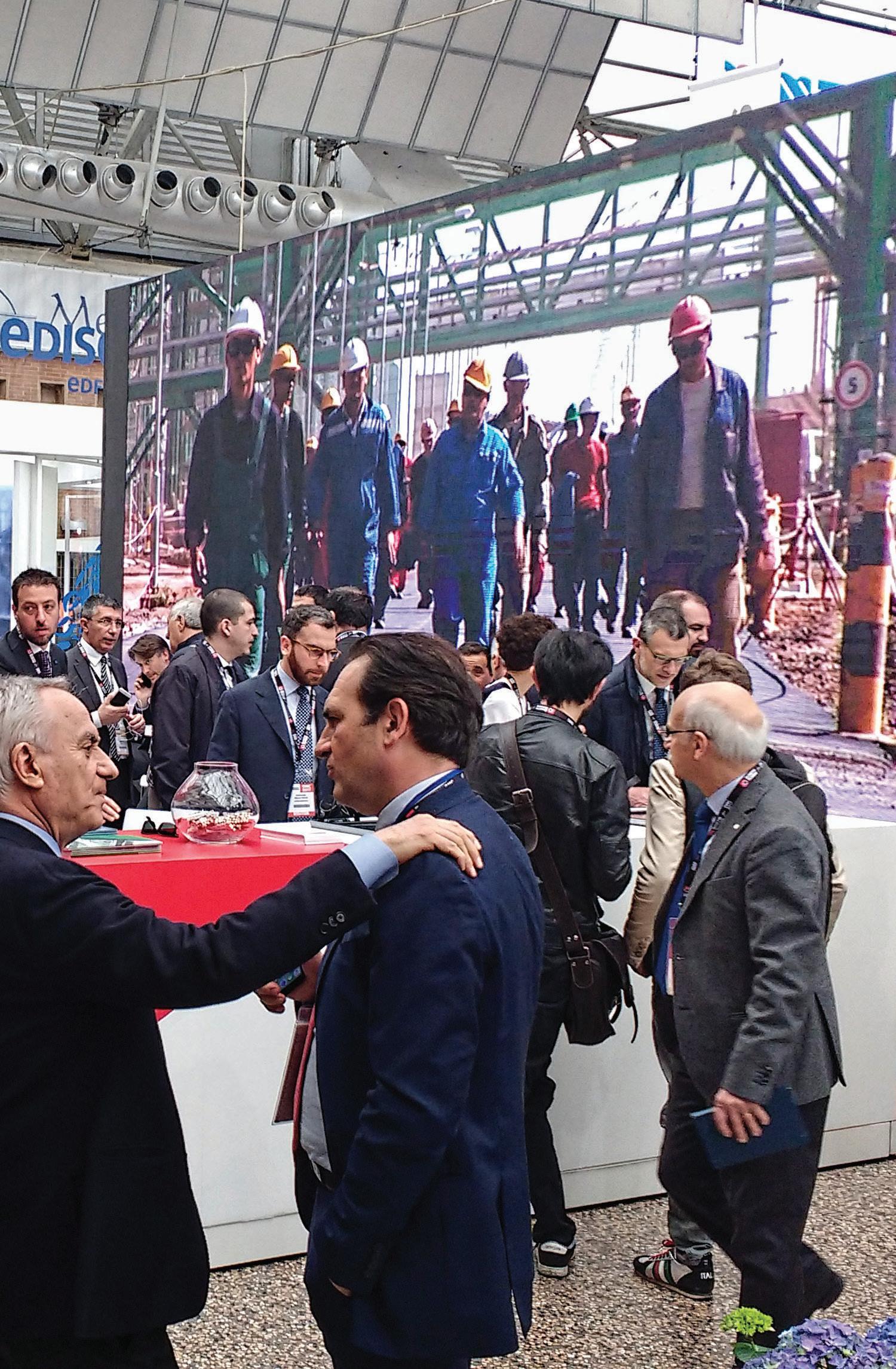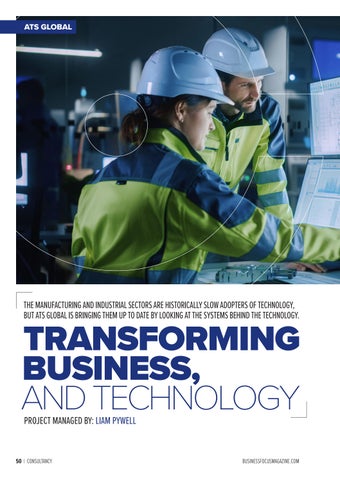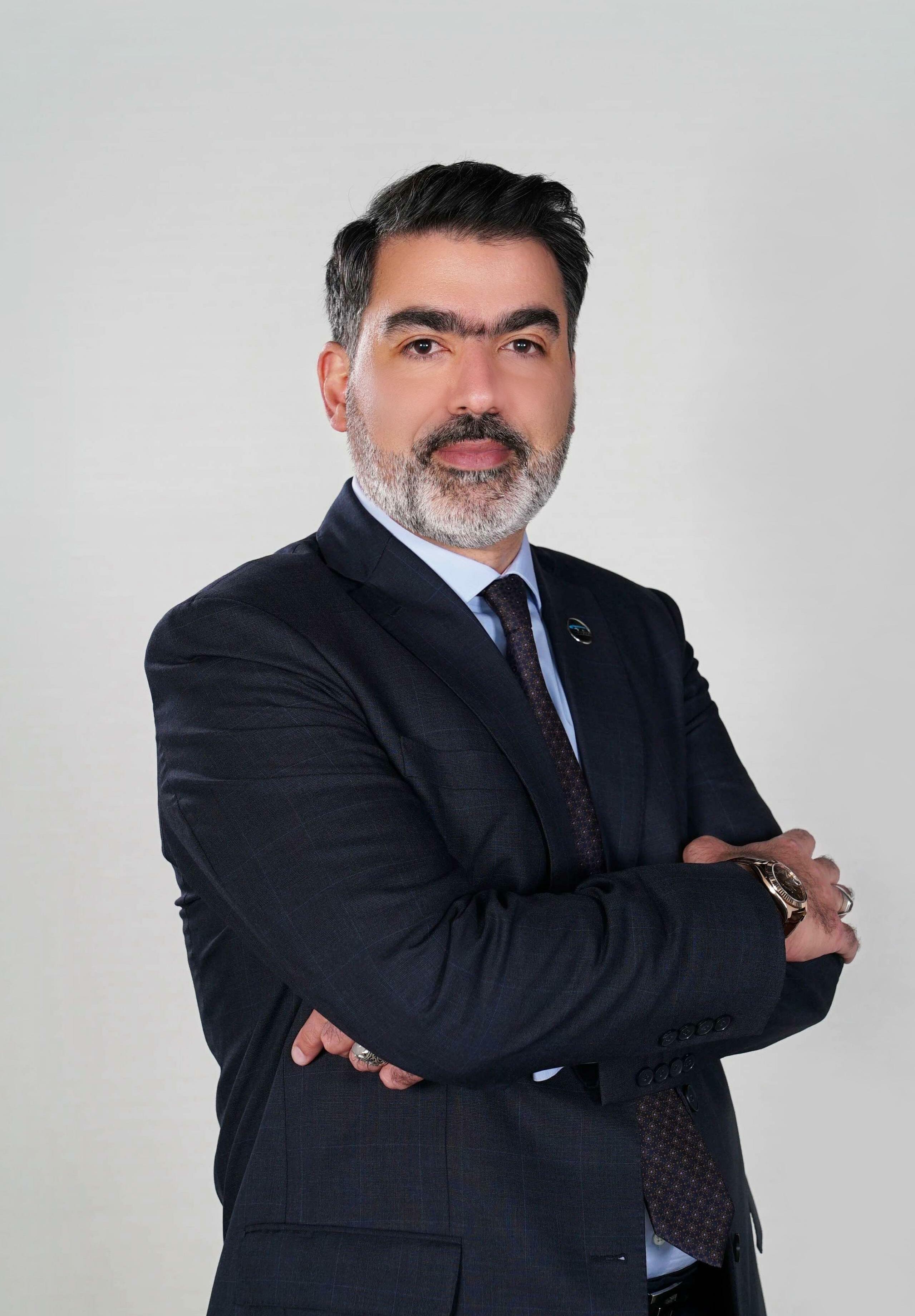

FEATURE YOUR BUSINESS
With a global readership of over 290,000, Business Focus Magazine is the perfect platform to place your business in front of our Senior Executive level audience.

PROJECT MANAGERS
MARK BAILEY
m.bailey@ceomediagroup.com
ANDREW BOURKE a.bourke@ceomediagroup.com
DEAN BROWN d.brown@ceomediagroup.com
CHRIS CONWAY c.conway@ceomediagroup.com
DAVID GARNER d.garner@ceomediagroup.com
TIMOTHY GARWOOD t.garwood@ceomediagroup.com
DAVID HAYVIS d.hayvis@ceomediagroup.com
JOHN HOLLIMAN j.holliman@ceomediagroup.com
HARRISON MITCHELL h.mitchell@ceomediagroup.com
ROBERT NAPIER SMITH r.smith@ceomediagroup.com
LIAM PYWELL l.pywell@ceomediagroup.com
JAKE REEMAN j.reeman@ceomediagroup.com
JAMIE SIVYER j.sivyer@ceomediagroup.com
DAVID TAVERNOR d.tavernor@ceomediagroup.com
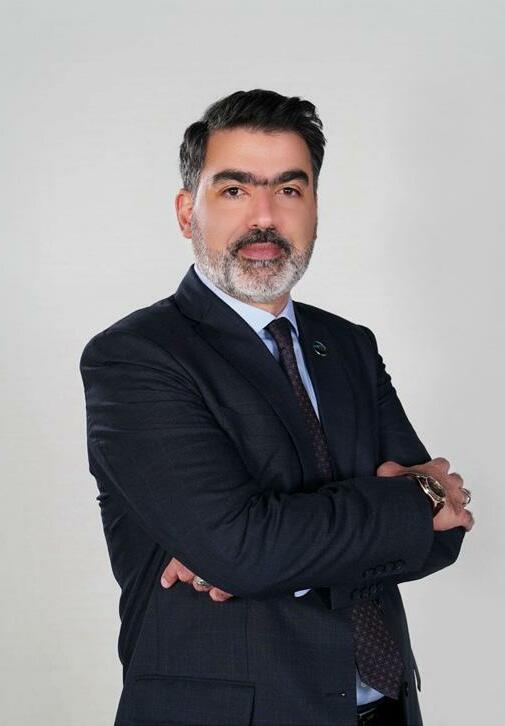
HAYDEN TURNER h.turner@ceomediagroup.com
RASH UDDIN r.uddin@ceomediagroup.com
ALICE YOUNG a.young@ceomediagroup.com
DESIGN
SCOTT ANDREWS design@ceomediagroup.com
ADRIANA STROIA artwork@ceomediagroup.com ACCOUNTS
KAMILA
CHRIS
FOCUS ON SUSTAINABILITY
No matter what sector you operate in, people are talking about the sustainability agenda. But sometimes that discussion can feel overly academic, detached from the reality of our day-to-day lives. So, to put it in context, in this issue we are looking at the sustainability of what we eat and drink. We have profiled companies at every stage of the food chain and heard about the steps they are taking to reduce emissions, reduce waste, and support the communities around them.
We have talked with the leaders at the aquaculture company, SalMar, about how they are farming salmon on the salmon’s terms. We have learned about the ambitious waste reduction programmes underway at Coca-Cola Beverages Africa Ethiopia, and how diversity and inclusion empower cheese processing firm Prima Cheese. Our profile of Bilerud highlights how innovative new material solutions can create more sustainable ways to package food, while GOPET TRANS has shown combined solutions it applies to transport goods more sustainably, and Plaquemines Port Harbour & Terminal District told us how they are building sustainable port infrastructure to support those supply chains.
As well as following every step of the food supply chain, we have also been looking at B Medical Systems and the vital role they play in transporting medications and vaccinationsa more crucial job now than ever. This profile accompanies interviews with leaders of other prominent healthcare businesses, including Inovus Medical and SHL Healthcare.
As always, the question of sustainability repeatedly returns to a discussion of the energy industry, and our conversations with energy firms Svea Renewable Solar AB and Hoppecke have both been enlightening on that front.
In all of these discussions, when the subject of sustainability is raised, there are common themes that keep recurring. The need for innovation is a common one, as is the ability to measure, gather data and benchmark to track progress. But above all, we hear that there is no one solution. Collaboration is the best tool available.
ON THE COVER
Aura Group Go to page 80
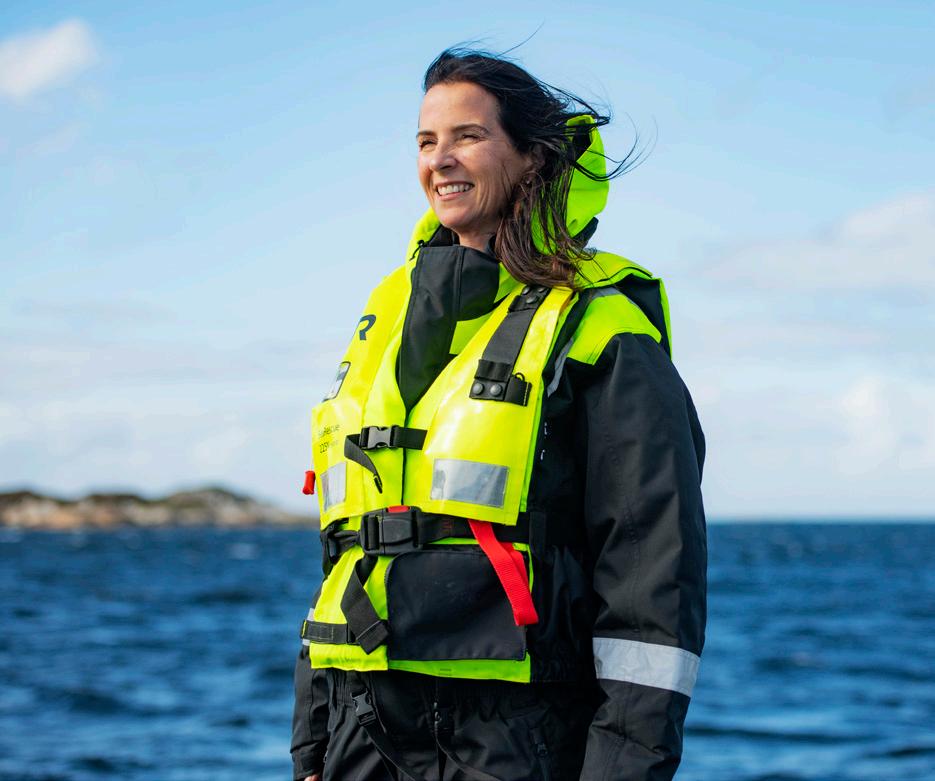
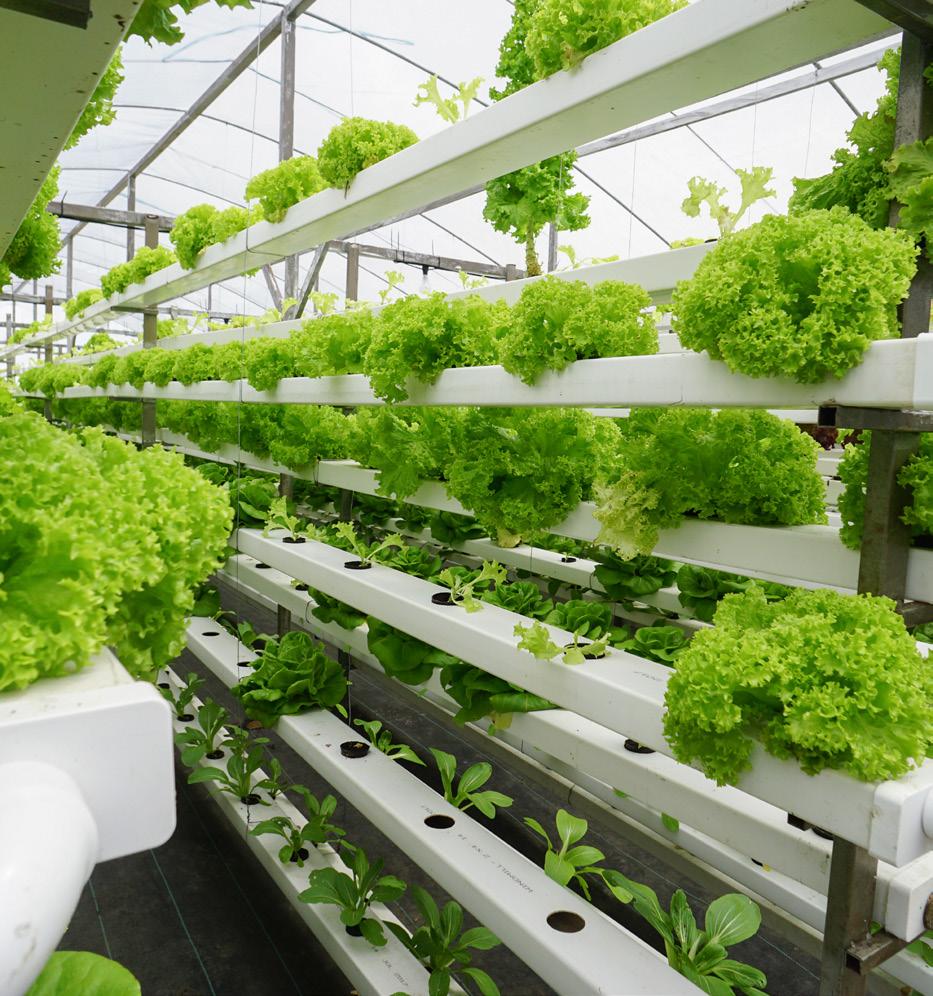
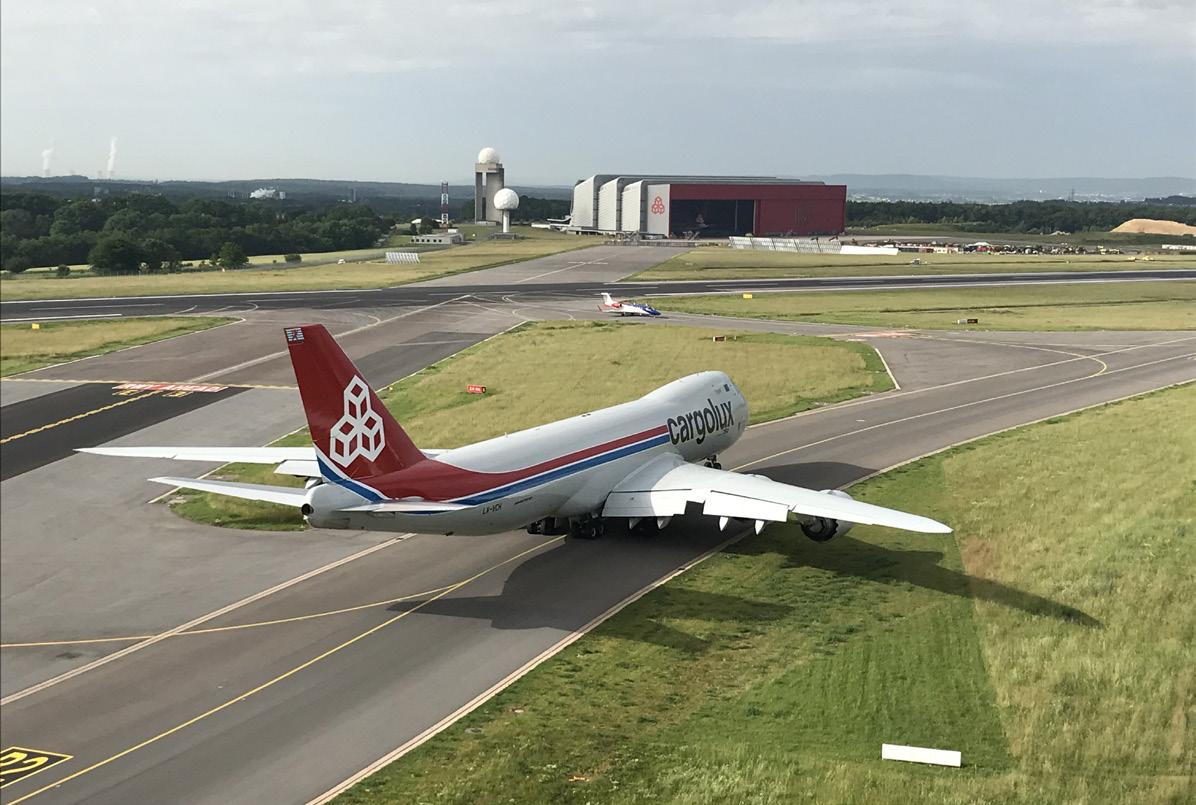
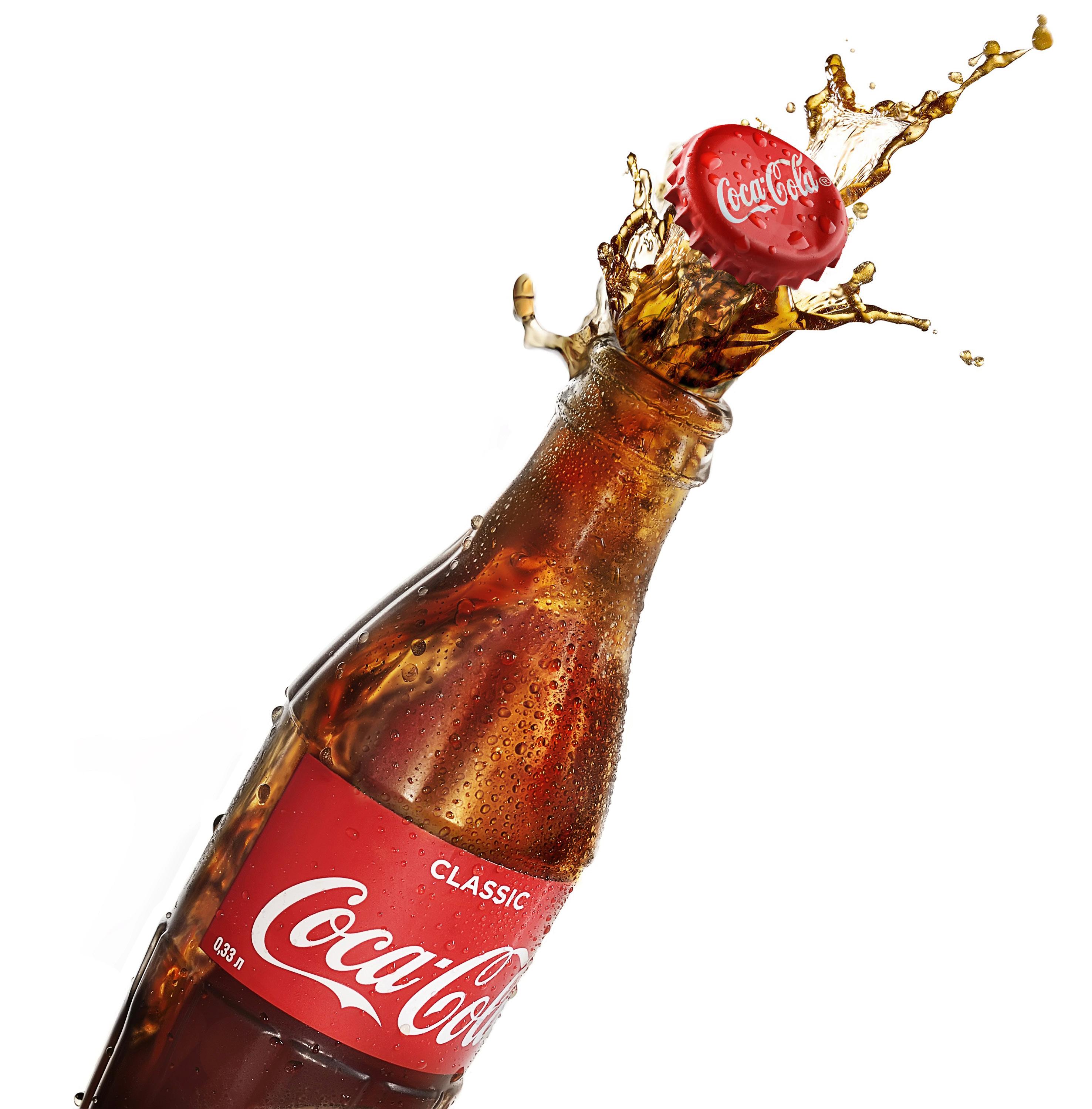
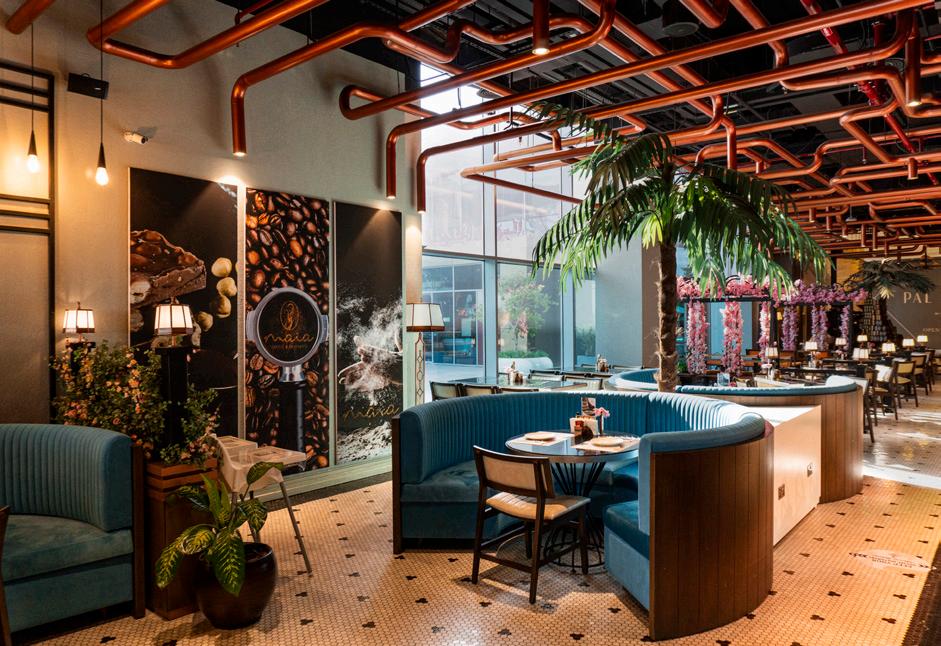
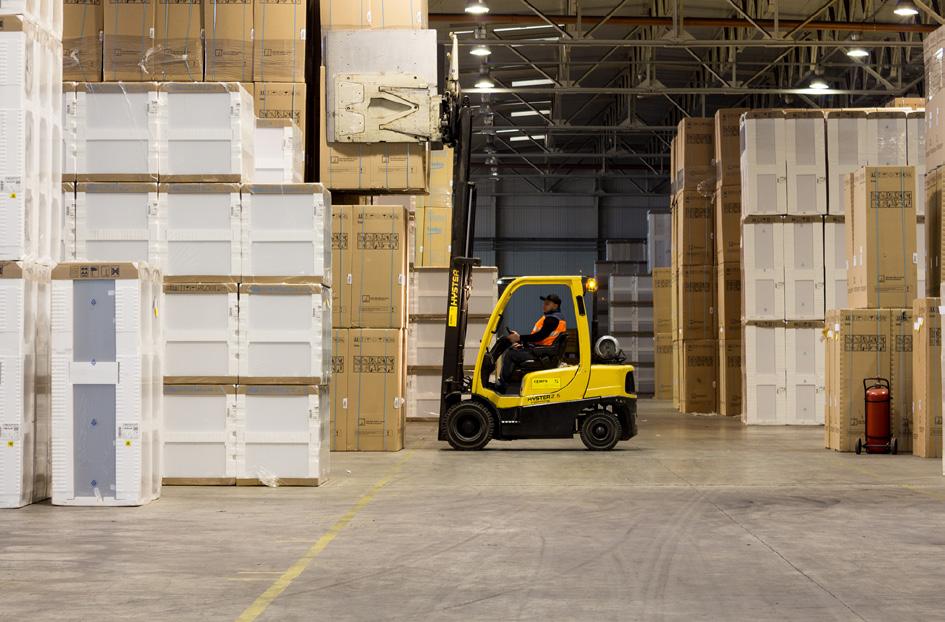



OFFSHORE TECHNOLOGY AFRICA
WHEN: 30TH NOVEMBER - 2ND DECEMBER 2022
WHERE: CAPE TOWN, SOUTH AFRICA
Offshore Technology Africa (OTA) launches in Cape Town, South Africa, in November 2022 to enable Governments, Financiers, Developers, Solution and Technology providers to come together to expedite the unlocking of Africa’s vast and transformative offshore energy potential.

Offshore Technology Africa will take the form of interactive boardrooms, allowing all participants to get involved in collaborative and productive discussions. All attendees should come prepared to participate in a collaborative environment and leave with productive outcomes.
www.offshoretechnologyafrica.com


Your total foodservice solution
We work behind the scenes to supply more than 13,000 products to over 45,000 caterers and foodservice businesses around the UK.


With a depot network of 24 sites spanning the country from Worthing on the south coast to Oban in Scotland we provide a truly local presence, both in terms of service, products, employment and community engagement. Our multi-temperature supply chain gives our customers full consolidation of frozen, ambient and chilled products on the same delivery, which makes life easier for them and is a point of difference.
We’ve also recently opened our doors to the public, offering home delivery and click and collect solutions from many of our depots. As one of the UK’s leading foodservice providers, we share our customers passion for great food.

All the ingredients for a partnership that delivers



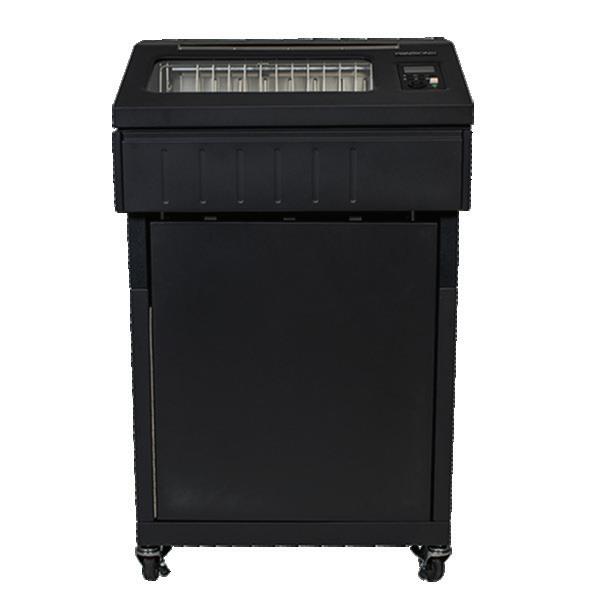
This issue, in our interview with Linda Litlekalsøy Aase, the CEO of a leading aquaculture firm, SalMar, she lays out a stark challenge facing a world with a growing population. “The world needs more food and healthier food, healthier proteins, and we will have nearly 10 billion people by 2030,” Aase tells us. “We need more food.”
FROM FARM TO FORK
But at the same time as that need for food grows more urgent, we need to think more carefully about where that food comes from, and the impact it has. Ensuring that we can source enough sustainable food is a project that will take in every aspect of the supply chain, and the cooperation of companies and organisations at every stage of the food’s journey.
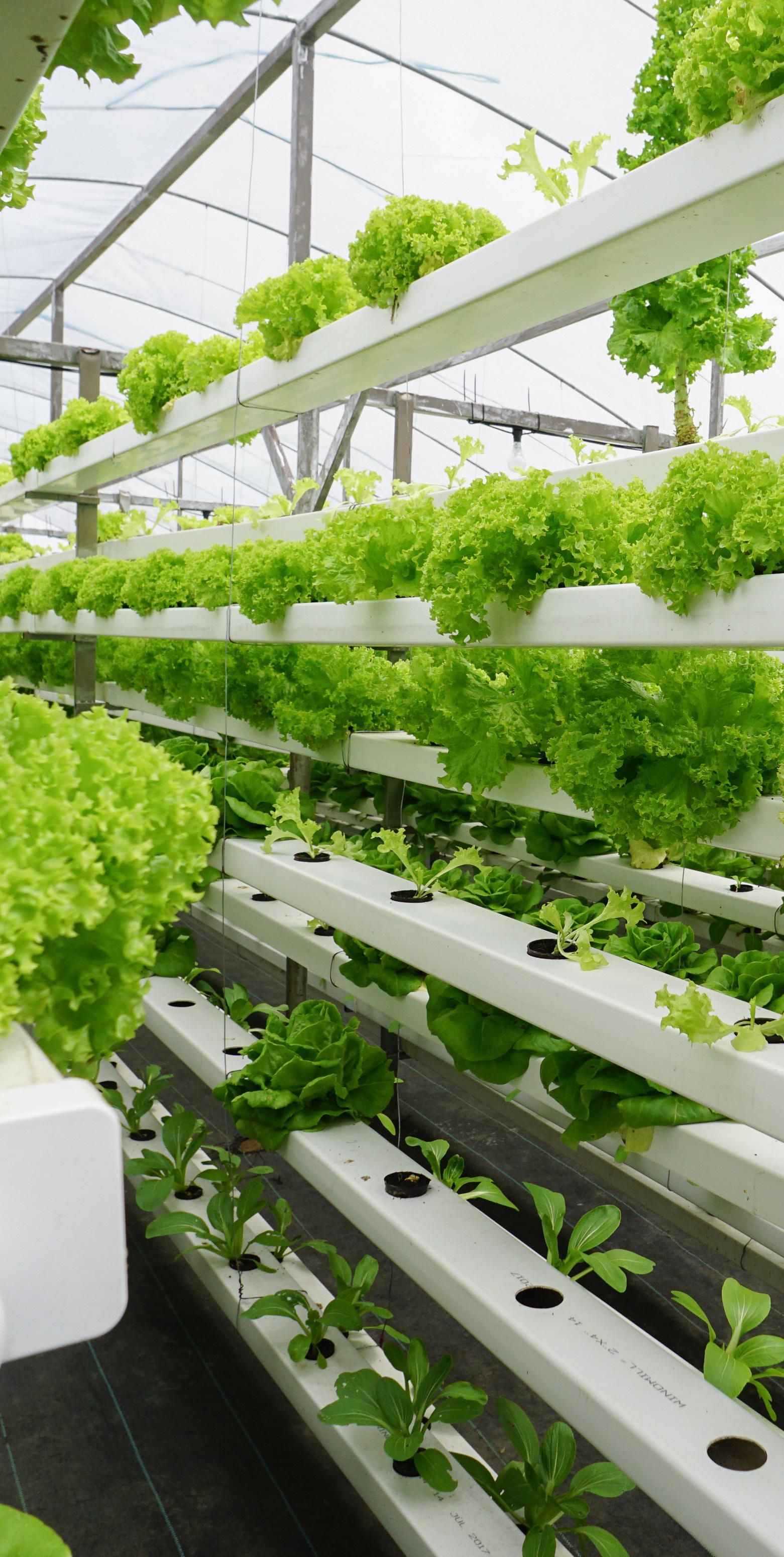
In our profile of Aase, we take a close looking at the first step in that journey. SalMar’s business is farming salmon, and as Aase insists, that is work that can only take place on the salmon’s terms.
“We want to use as few resources as possible and make a small environmental footprint. Only 3% of energy for human consumption comes from the sea and we want to increase that,” Aase tells us. “Protein from aquaculture takes fewer resources and has less impact on the climate. We have gathered a lot of data, experience, and competence from traditional farming in determining the best terms for our salmon. We have had fantastic results that make us believe we can achieve great production out in the open ocean.”
As well as being on the salmon’s terms, Aase points out that SalMar’s approach must be uncompromisingly data-based.
“If that is the starting point, we ask where we should operate, what technology we need to operate there, and what sensors we need to monitor fish and gather data to develop our technology further,” Aase says. “Everything stems from the salmon.”
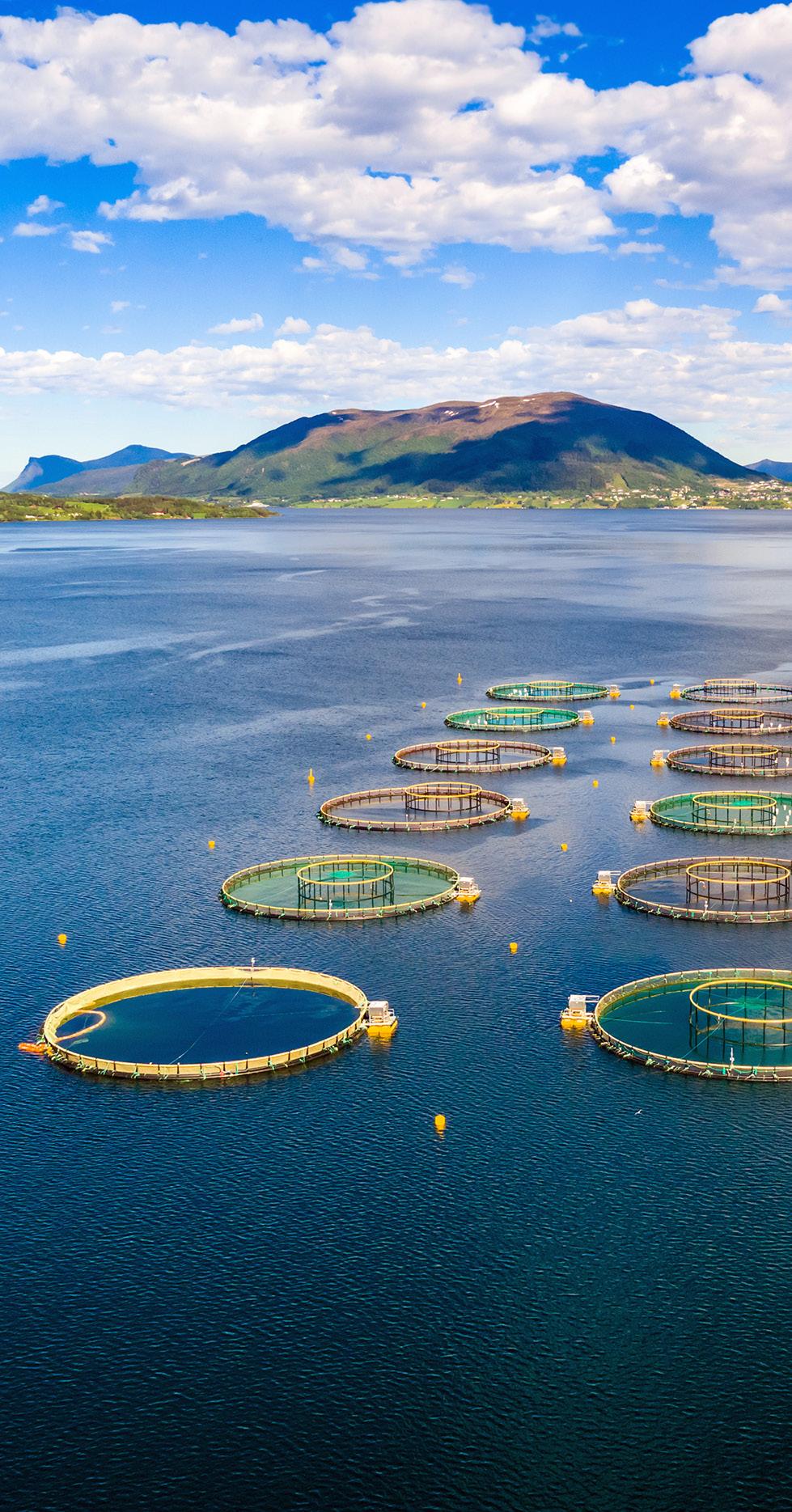
PART OF THE PROCESS
After raw ingredients are harvested, they will usually need to be processed into saleable and consumable forms by food processors such as Prima Cheese, profiled in this issue.
As Nima Beni, Co-CEO of Prima Cheese points out, “We do not just talk about sustainability for the image of the company. We are starting small, looking at our wastage. We are already looking at plans for solar panels on all our facilities, which will cost half a million. These are things we are taking step by step- heat recovery, water capture, these will come on board in the next few years.”
Discussion around sustainability often focuses on carbon footprints and energy usage, but it is also about people
and having a positive social impact. In our conversation with Beni, he told us about the work Prima Cheese does to ensure that social impact.
“We have great connections with different ethnic communities in the local and wider region, and when we have a connection with community leaders or people with a great reputation word-ofmouth is very important,” Beni says.
At the same time, a committee for fairness, equality and diversity ensures staff are supported and educated to avoid discrimination.
Often, however, social, and environmental considerations will combine, as in Coca-Cola Beverages Africa-Ethiopia.
“We pride ourselves on our sustainability initiatives, including our ‘World without Waste’, Economic inclusion and water stewardship initiatives, and we have big plans to expand upon these projects,” says Daryl Wilson, the company’s Managing Director.
As well as environmental measures, the company also works with the local community, particularly by supporting local schools.
“We went in asking what they wanted and responded to their requests with measures such as building an extension to existing schools,” Wilson adds.
PART OF THE PACKAGE
The next step along the food and beverage supply chain, beyond raw ingredients and processing, is to package it for the consumer. During his profile in this magazine, Armin van Overbeek, Vice President of Sack and Kraft Paper at Billerud, told us about the crucial role of materials in making that process sustainable.
“We are experiencing a consumer-driven push for a more sustainable society in combination with the commitments that both FMCG and industrial large corporations have communicated to the market,” van Overbeek says. “And that is also reflected in their packaging. We see an increasing demand for our highly sustainable packaging products, and an opportunity to replace fossil-based packaging solutions with paper-based alternatives.”
He adds that the company is set to capitalise on the global move towards eco-friendly solutions. “Most innovation work we do in our business area is related to the same topic: replace plastic with paper. We map the opportunities for very specific niches where we know we can add value for the brand owner, which at the same time add value for us.”
Of course, once the food and drinks are packaged, the next job is to get them to where it

needs to be. Transport is an essential element of the supply chain; it is also one with one of the highest rates of emissions.
“Transportation, in all its forms, ranks first in terms of CO2 emissions. Long before the pandemic, industry, and legislators across the EU have been concerned with reducing this footprint,” insists Kamelia Vasileva, Global Commercial Manager at transportation firm, GOPET TRANS.
It is not a challenge with only one solution. As Vasileva tells us in our profile this issue, a combination of fleet renewal, more efficient equipment, and improved planning via IT tools, among others, all contribute. GOPET TRANS in particular has found that a road-rail combination for land transport can have significant impacts on limiting CO2 levels.
Of course, the infrastructure around that transportation also makes a crucial contribution, as we found talking to Maynard Jackson Sanders, Executive Director at Plaquemines Port Harbour & Terminal District.
“Our port will be all-electric or gas powered,” Sanders says. “We are controlling our carbon footprint and we have an abundance of natural gas here, so all our vehicles will be powered by gas. It is an environmentally friendly port and we are going to be able to bunker ships with the latest green fuelling, methanol, LNG compressed natural gas and hydrogen.”
At every step of your food’s journey, from the farm to the plate, businesses are working to find new solutions to help create a greener plate.
“WE SEE AN INCREASING DEMAND FOR OUR HIGHLY SUSTAINABLE PACKAGING PRODUCTS, AND AN OPPORTUNITY TO REPLACE FOSSILBASED PACKAGING SOLUTIONS WITH PAPER-BASED ALTERNATIVES.”
ON THE SALMON’S TERMS
PROJECT MANAGED BY: DAVID TAVERNORSalMar is the second largest producer of salmon and the world’s largest producer of organic salmon, a status it has risen to quickly since the company was founded in 1991. “We started up with nine employees, and today employ 1800 people along the coast of Norway, with offices in Asia,” says Linda Litlekalsøy Aase, SalMar’s CEO. “We have 30 years of experience in the traditional fish farming sector along the coast and we have also gained experience in offshore farming.”
WITH THE MOVE TO FARMING IN OPEN WATER, SALMAR IS REVOLUTIONISING SALMON FARMING.
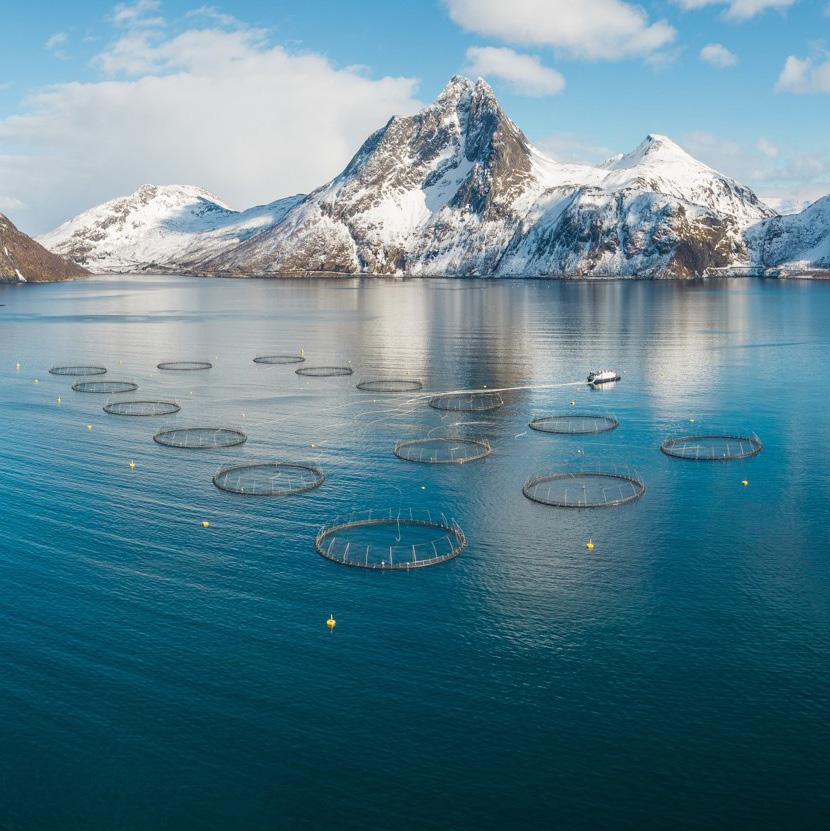
SalMar has achieved this success through its strong identity. As Aase puts it, “Everything we do will be on the terms of our salmon. Our passion for salmon is in everything we do.”
This passion has allowed SalMar to become a cost leader focusing on performance in every aspect of the business.
“Our performance is linked to the salmon’s performance, so achieving low costs means focusing on the salmon,” Aase explains.
While SalMar as a company has over three decades of experience in the fishing sector, Aase herself is relatively new to the industry.
“I was not a traditional choice for CEO. I do not come from inside the industry and have limited experience with aquaculture,” Aase says. “But my background is in engineering. I have studied economics, and then I had a leadership position for the last 15 years in Aker Solutions and Rolls-Royce Marine. Then I had the pleasure of being part of the SalMar board for two years before I became the CEO of the company.”
A GAME CHANGER
That engineering background has proved to be critical as SalMar adopts a new game-changing approach to aquaculture.
“The world needs more food and healthier food, healthier proteins, and we will have nearly 10 billion people by 2030,” Aase tells us. “We need more food.”
The solution, once again, is to work on the salmon’s terms. Salmon prefer to swim in open water, and so SalMar is going where the salmon go.
“Going offshore lets us work in the premises of the natural salmon that have been there for hundreds of years,” Aase says. “We want to use as few resources as possible and make a small environmental footprint. Only 3% of energy for human consumption comes from the sea and we want to increase that. Protein from aquaculture takes fewer resources and has less impact on the climate. We have gathered a lot of data, experience, and competence from traditional farming in determining the best terms for our salmon. We have had fantastic results that make us believe we can achieve great production out in the open ocean.”
With a new farming environment, there are new challenges, which require innovative solutions.
New technology must more robust and structural,” explains Runar Sivertsen, Director of Strategic Projects for SalMar. “We are opening sustainable farming with perfect
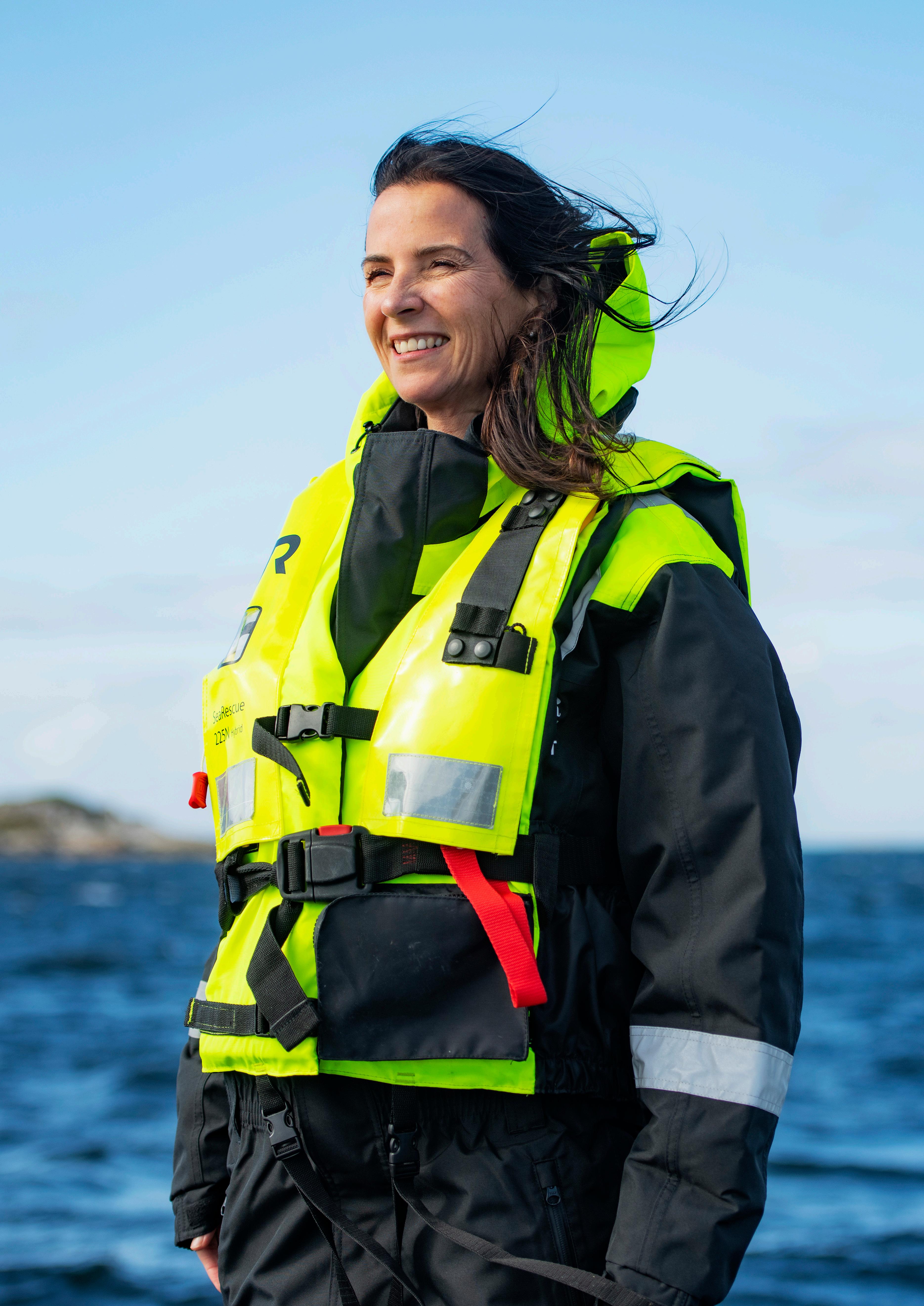
Healthy seafood for future generations
Healthy seafood for future generations
Healthy seafood for future generations
Congratulations to the winners of the Aquaculture Awards!
Congratulations to the winners of the Aquaculture Awards!
Healthy seafood for future generations
Read our sustainability report here.
Read our sustainability report here.
Read our sustainability report here.
Read our sustainability report here.
Norway +47 55 69 70 00 norway@cargill.com

Cargill Aqua Nutrition is a world leader in aquaculture feed and nutrition. To deliver on our promise of healthy seafood for future generations, we commit to support the sustainable growth of the global aquaculture industry by enabling better seafood and helping farmers succeed.
Cargill Aqua Nutrition is a world leader in aquaculture feed and nutrition. To deliver on our promise of healthy seafood for future generations, we commit to support the sustainable growth of the global aquaculture industry by enabling better seafood and helping farmers succeed.
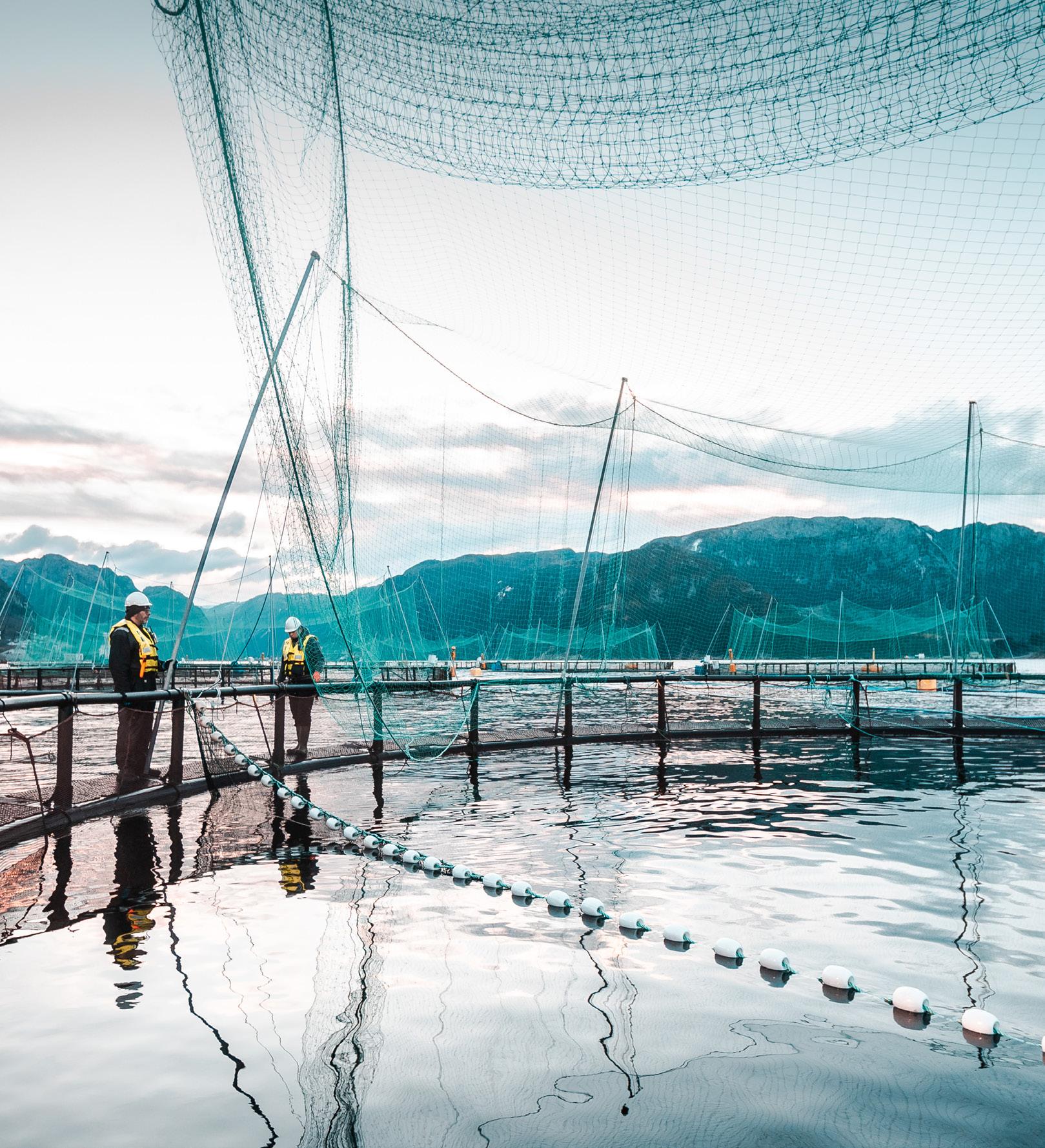
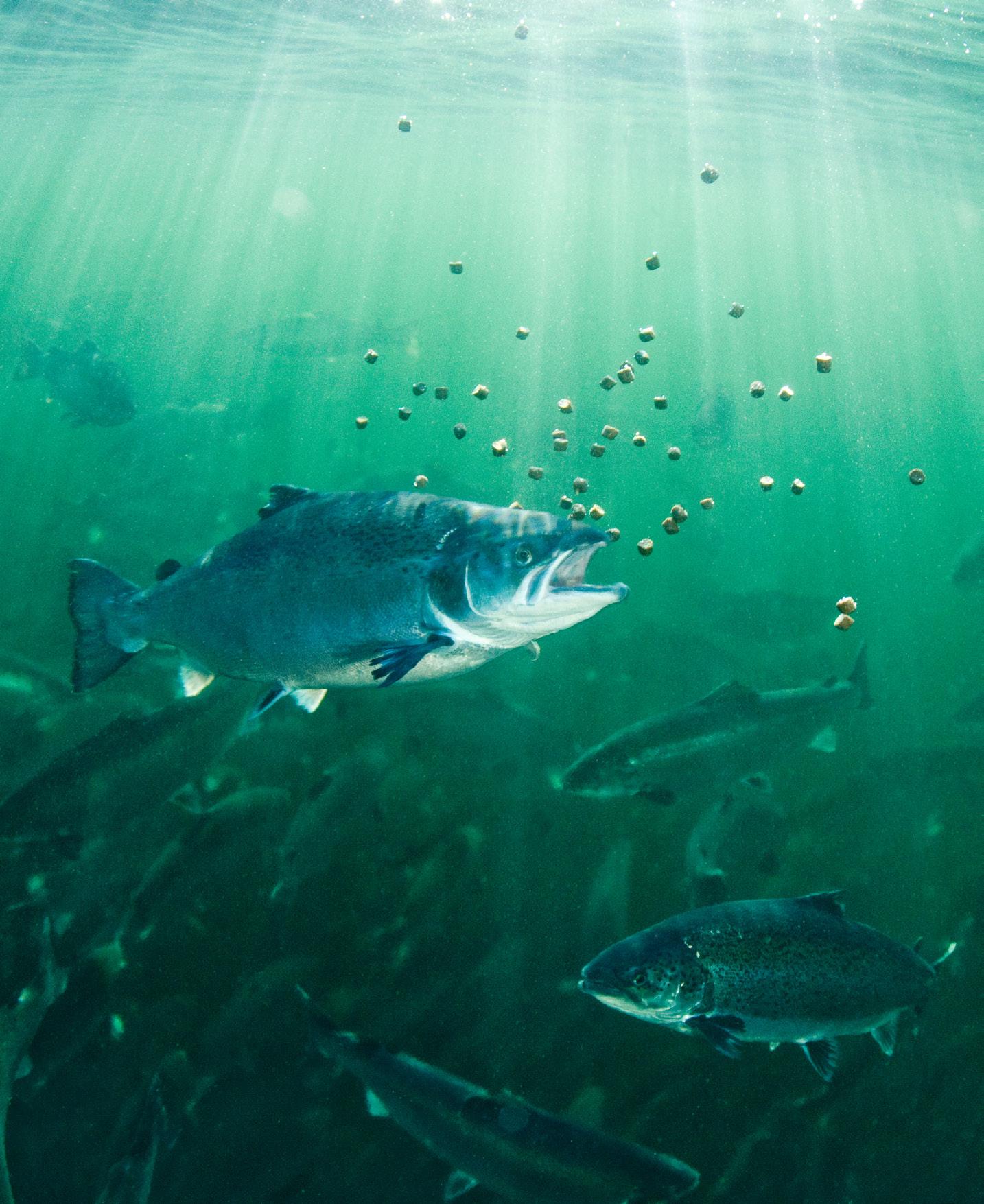


Cargill Aqua Nutrition is a world leader in aquaculture feed and nutrition through our brand name EWOS. To deliver on our promise of healthy seafood for future generations, we commit to support the sustainable growth of the global aquaculture industry by enabling better seafood and helping farmers succeed.
Cargill Aqua Nutrition is a world leader in aquaculture feed and nutrition through our brand name EWOS. To deliver on our promise of healthy seafood for future generations, we commit to support the sustainable growth of the global aquaculture industry by enabling better seafood and helping farmers succeed.
To ensure a robust and healthy fish is at the heart of all we do. By putting the fish first, we provide better results. For the fish. For the farmers. For the environment and, ultimately, for the consumer.
To ensure a robust and healthy fish is at the heart of all we do. By putting the fish first, we provide better results. For the fish. For the farmers. For the environment and, ultimately, for the consumer.
Proud sponsor of the Sustainability Award.
Proud sponsor of the Sustainability Award.
To learn more about Cargill’s aqua nutrition business in the Europe, visit www.Cargill.com/feed | www.Ewos.com
To learn more about Cargill’s aqua nutrition business in the Europe, visit www.Cargill.com/feed | www.Ewos.com
To learn more about Cargill’s aqua nutrition business in the UK, visit www.ewos.com
To learn more about Cargill’s aqua nutrition business in the UK, visit www.ewos.com
Scotland
+44 1506 633966 customersolutionsuk@cargill.com
Scotland +44 1506 633966 customersolutionsuk@cargill.com
Helping the world thriveCARGILL
BRINGING GLOBAL EXPERTISE TO HELP SALMON FARMERS SUCCEED
With 155.000 employees working in 70 countries, Cargill connects farmers with markets, customers with ingredients, and people and animals with the food they need to thrive.
Our purpose is to nourish the world in a safe, responsible, and sustainable way. We combine our experience with new technologies and insights to serve as a trusted partner for food, agriculture, financial and industrial customers in more than 125 countries.
Cargill operate four key business segments: Food/Feed, Agriculture, Financial and Industrial. We provide insights to our partners. We transform raw materials into finished goods, and we move products around the world.
In the Food/Feed segment we combine 120 years of experience with insights from operating in 40 countries, we help livestock and aquaculture farmers, feed manufacturers and distributors of all sizes deliver better animal nutrition through unparalleled research capabilities, innovative feed and premix products and services, and digital modeling and formulation solutions.
Cargill is a leading supplier of salmon feed, distributed under the EWOS brand. With a strong focus on research and innovation, we provide the scientifically validated feed products and services customers need to support all stages of salmon production.

Our continual drive to develop the most sustainable, most innovative products in the industry is matched by our long track record of helping salmon producers succeed.
Our Global Innovation Centers are located in Dirdal, Norway, Puerto Montt, Chile and Colaco, Chile. These centers give us important insights into new ways to improve productivity and fish welfare. Three feed factories in Norway located at Bergneset, Halsa and Florø turn that expertise and raw materials into pellets.
EWOS COMPASS is our growth model where not only fish performance and feed effectiveness are taken into account, but also fish health, sustainability and even variable farming conditions and environmental factors of specific customers. Based on this growth model we can predict and adjust for changes in nutritional needs and adapt feed composition to provide our customers with the salmon feed they need meet strategic market goals.
Excellent supplier relationships, technological expertise and efficient distribution networks help to make Cargill the dependable partner of choice for salmon producers. Our goal is to help farmers achieve shorter production times and larger, more resilient fish.
Stringent policies mean that all EWOS feed ingredients are sustainable, traceable and produced to our exacting standards. The goal is to meet the needs and aspirations of the present, without compromising the ability of future generations to meet their own needs. That means balancing economic, environmental, and social factors.
SalMar is an ambitious and longtime customer of Cargill and EWOS. Throughout our relationship we have been challenged to develop solutions in cooperation with the customer that meet their goals and productivity focus to fulfill SalMar’s strategic ambitions in their salmon production.
www.cargill.com
temperatures and depths. With the harsh surface conditions in those environments, we could not use those areas, but new technology opens that up.”
Even here though, the new technology needs to be developed with the salmon in mind, allowing SalMar to be close to operations and ensure it is a facilitator of sustainable growth.
“We’ve seen how we can make the life of the salmon as good as possible,” Aase points out. “That is why we develop technology on the terms of the salmon. That is why we need to work so closely with our supply chain to link and test out our technology to see how it is performing with huge projects like the ocean farm which will be set out in the open sea.”
“We place the salmon at the centre of everything we do, on the salmon’s terms,” Sivertsen adds. “We find the best conditions and sites for farming. We make sure that in its lifespan, salmon has the best life it possibly can. If that is the starting point, we ask where we should operate, what technology we need to operate there, and what sensors we need to monitor fish and gather data to develop our technology further. Everything stems from the salmon.”
THE SPIRIT OF COLLABORATION
Achieving SalMar’s goals requires more than just the latest technology, however. It also requires SalMar to work closely with business partners and suppliers.
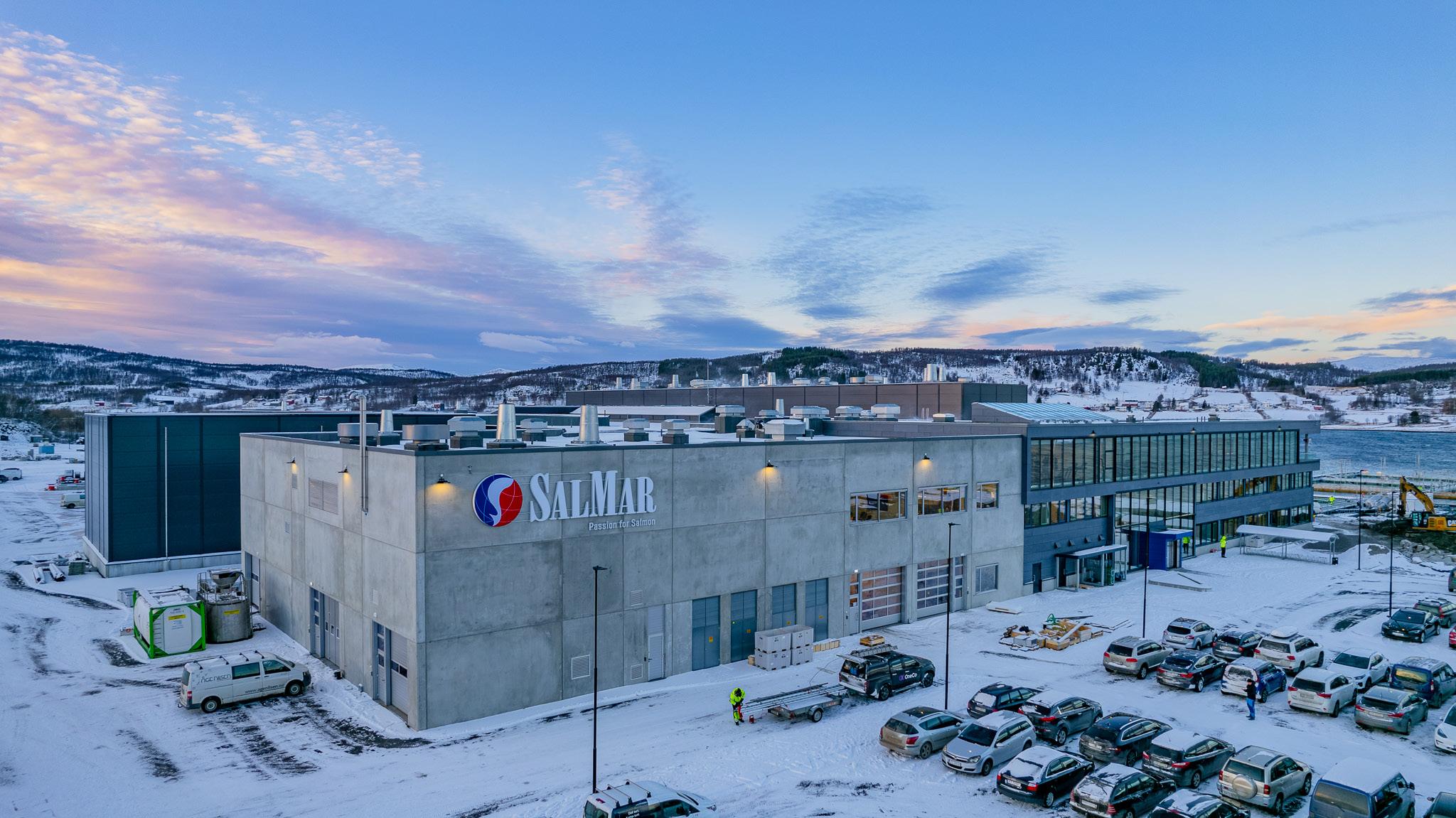
“It all boils down to close relationship and collaboration,” Aase says. “A collaborative mindset is extremely important.”
“Akeris is developing the offshore part of the industry, with key competencies that are helping us to build this infrastructure out in the open sea,” Sivertsen says. “We are also working with other strategic partners. Over a long time, we have worked with food suppliers to create a good diet for the fish, and we have longstanding partnerships with customers that supply directly to consumers, working with third parties and partners around the world.”
Talking with Aase, it is clear that she is passionate about building the kind of collaborative partnerships that will allow SalMar to help meet the world’s food needs.
“The world needs more food and more healthy food. We cannot do it by ourselves. We need to work together, even with our competitors, in our
supply chain,” she insists. “We are in Norway, building up the industry, and we want to go global and transfer knowledge and build value chains outside of Norway to be a global partner. We have huge ambitions, but we cannot do it alone.”
Sivertsen adds, “We are also finding great ways to co-exist with other ocean industries.”

“We’re not alone on the ocean,” Aase points out. “Wind farms and the oil and gas industry are all out here. So, cocreation opportunities are wide. We need to share knowledge.”
SalMar’s target is to be the industry leader in the salmon farming industry. As well as developing technology and methods within the value chain, SalMar believes in control of the entire value chain from the beginning of the salmon’s life to developing the products ready to eat.
“We need to make sure we are partnering up with the right people, technology and companies,” Aase tells us. “With our strategic partners, we have ambitious plans for the open sea, offshore, producing almost the same volumes as we produce today at coastal farms in Norway. The ambition is to be producing 150,000 tons by 2030 for offshore farming.”
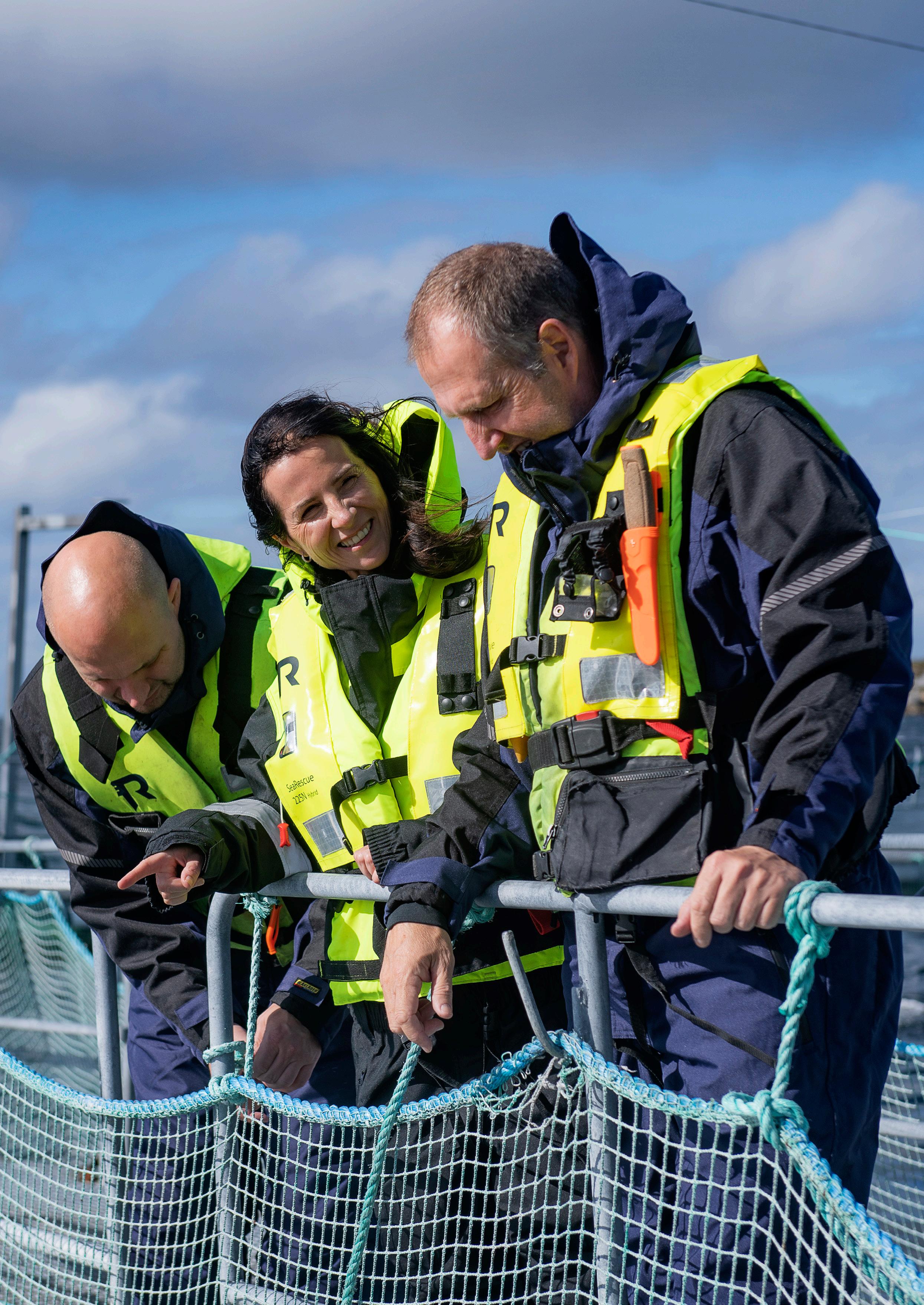

WE LOOK AT HOW EXECUJET HAS BEEN EXPANDING ITS BUSINESS AND ITS OFFERING SINCE WE LAST TALKED TO THE AIRCRAFT SERVICES FIRM.
RISING AGAIN
PROJECT MANAGED
BY: DEAN BROWNOffering a diverse range of services that include aircraft management for private and commercial registered aircraft, aircraft chartering, aircraft maintenance, aircraft completions management and fixed base operations, ExecuJet has become a leading global business aviation organization. ExecuJet’s experienced staff of 750 people is engaged in operations across Africa, Asia Pacific, the Caribbean, Europe, Latin America, and the Middle East, managing 133 business jets to the most stringent safety standards.
ExecuJet’s commercial fleet operates under the regulatory umbrella of seven regional civil aviationissued air operating certificates (AOCs). This is as well as 26 world-class FBO facilities across every one of its operating areas, and authorised maintenance facilities in Lagos and Nigeria, certified to work on most business jets.
All these operations are supported by ExecuJet’s parent company, the Luxaviation Group, the second largest operator of corporate aircraft in the world, managing over 235 aircraft with a staff of over 1,300 employees. ExecuJet’s staff, which makes up more than half of that team, is guided by the vision “To be the premier, international, business aviation company in our
geographical areas of operation,” and the mission statement “To satisfy specialist executive and business aviation needs through professional management, ethical business practices and service excellence.”
It has been four years since we last looked at ExecuJet, when the company was experiencing steady growth and had ambitious plans for the future. It has been an eventful few years since then, but ExecuJet is still investing in and growing its offering.
ExecuJet’s Flight Services has just reopened its fixed-base operator at St. Thomas in the US Virgin Islands under new management, following years of closures following hurricanes and Covid-19. But this is only part of the company’s expansion and investment.

GROWING CAPABILITIES
Among those investments are the addition of zinc-nickel and cadmium electroplating capabilities to its Maintenance, Repair and Ordinance facility at Subang Airport.
“We had been using outside vendors to provide this service to our customers, but as Malaysia’s largest business aviation MRO company, having this technology in-house allows ExecuJet to have better control over the workflow for airframe heavy maintenance checks and ultimately provide better turnaround times,” said Ivan Lim, Regional Vice President for Asia at ExecuJet MRO Services.
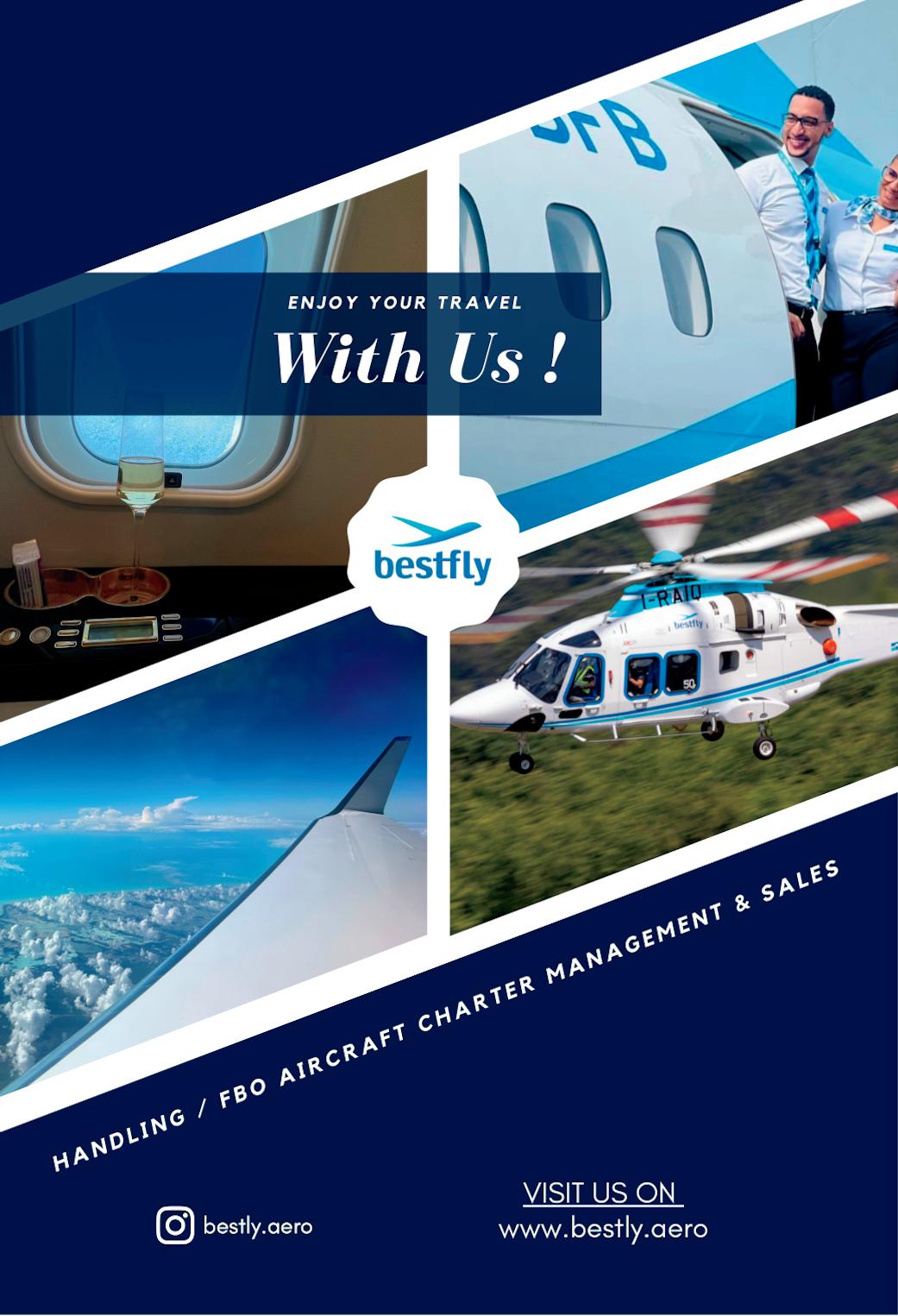
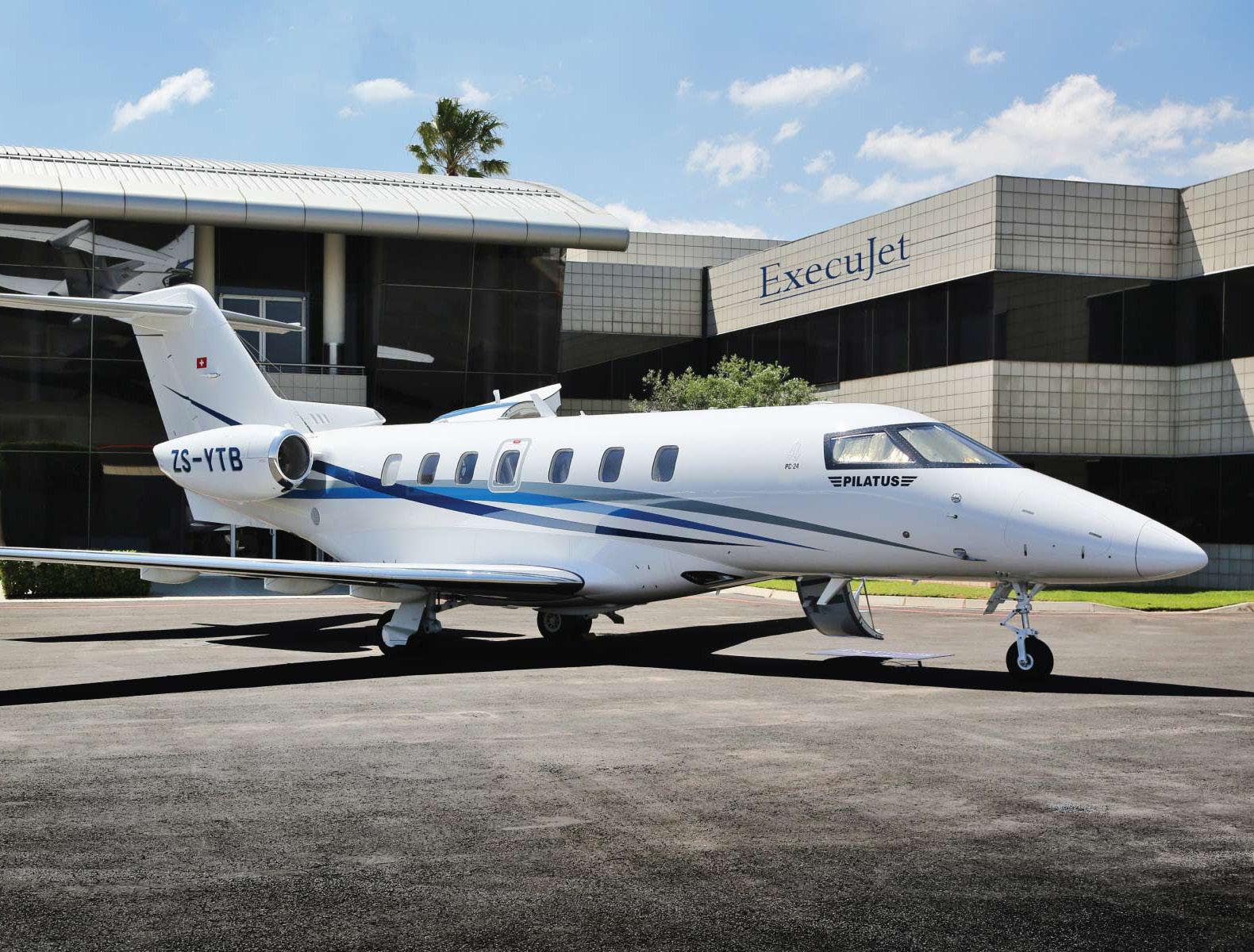
It is a valuable technique that works by applying a smooth, thin layer of cadmium or zincnickel to metal airframe parts to protect them against surface corrosion, even in high-salt environments.
As well as airframe maintenance, ExecuJet is also seeing growing demand for engine maintenance services, and its Subang Airport facility recently performed the first-ever removal and installation of the engine fan case on a Dassault Falcon 7X. The facility’s capabilities mean it was able to perform this procedure in parallel with the aircraft’s base maintenance check.
“The team are Dassault-trained engineers and technicians able to perform engine removals, engine fan case removals and installations,” Lim said of the operation, pointing outs that ExecuJet MRO Services is a Dassault factory-owned MRO. “The team performed the task smoothly. We have invested in the necessary tooling and spare parts to perform this critical maintenance task, amongst others. We are ready to assist our Pratt & Whitney Canada PW300 engine series customers with all requests.”
At the same time, the company has been expanding its charter fleet with the addition of a Bombardier Global Express based at Lanseria International Airport near Johannesburg. This new aircraft can transport up to 13 passengers anywhere within a range of 4,800 nautical miles. But this is only the start of a fleet expansion that will be a key area of focus for the company moving forward.
ADDING VALUE TO AVIATION
This is just one example of the ways ExecuJet works to create value for its customers.
“The key to customer satisfaction is to create added value: Combining state-of-theart aircraft with expert support services tailored to the needs of your business,” Mike Berry, Executive Vice President of Aviation Services has said. “As customers define value in their own terms, we see our job as understanding those terms and translating them into a totally integrated aviation solution.”
ExecuJet’s aircraft management service allows the firm to offer all the benefits of aircraft ownership with none of the time-consuming management responsibilities typically involved in aircraft operations.
ExecuJet’s staff will take care of complicated matters ranging from aviation legislation compliance, aircraft maintenance coordination, staff recruitment, and productive aircraft operation, while simultaneously offering lower costs and greater efficiencies.
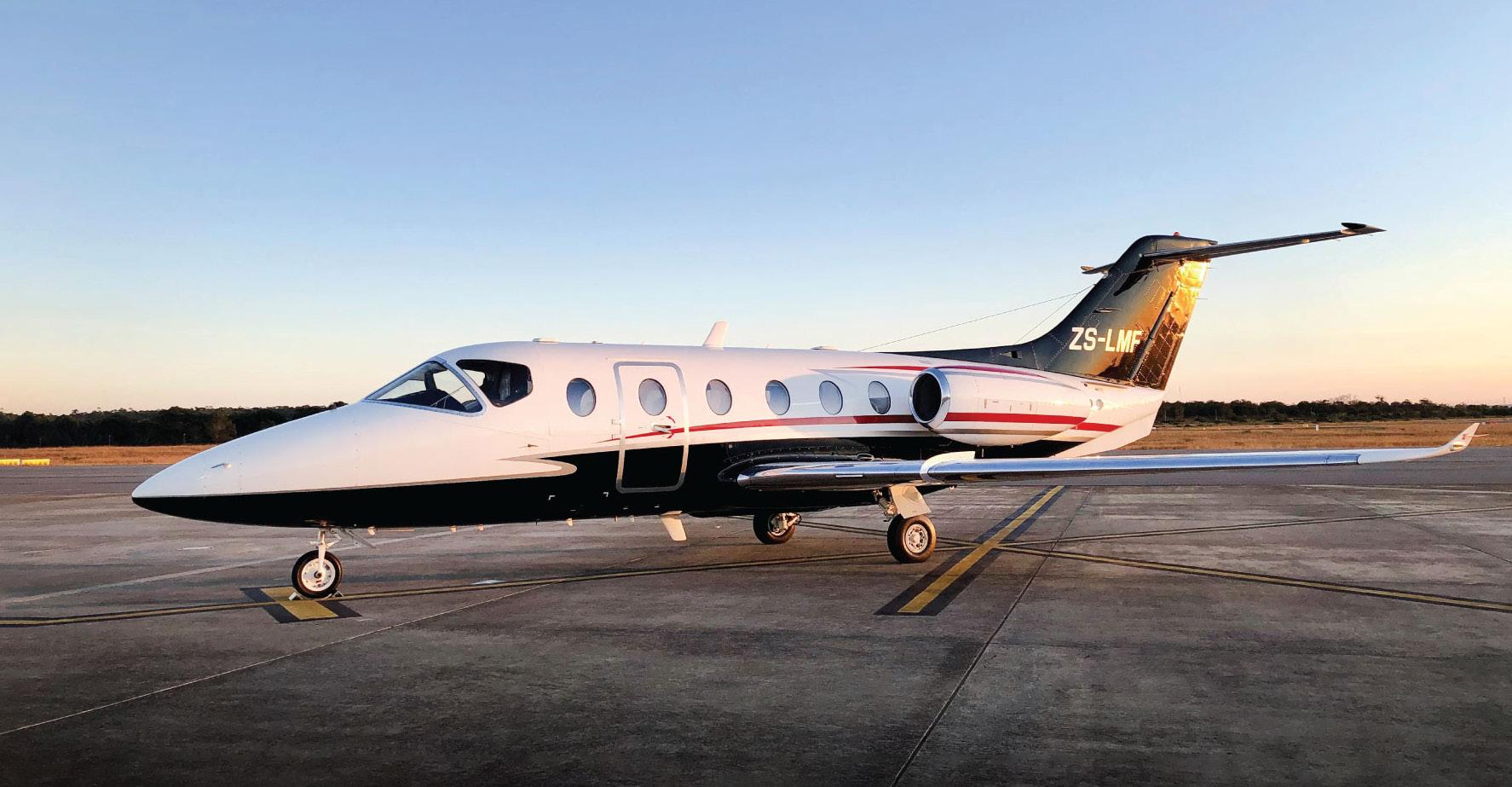
This service is grounded in a deep understanding of its customers’ business aviation needs on the ground and the sky, enabled by its modern fleet of fixed-wing and rotarywing aircraft at operating bases worldwide.
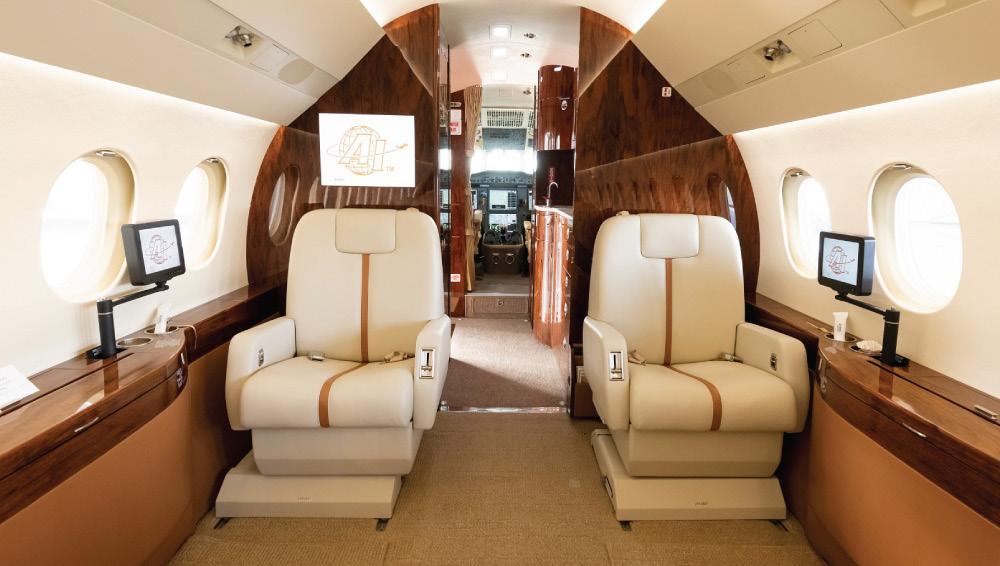
But as well as that deep understanding of the sector as a whole, ExecuJet pays close personal attention to its individual customers’ requirements, providing a diverse range of FBO and aircraft aviation solutions. These include a portfolio of solutions including flight planning, arranging overflight and landing clearances, inflight catering, and a complete menu of ground handling and concierge services such as aircraft, passenger, and baggage handling. ExecuJet offers fuel, aircraft valet and hangarage, as well as security, customs and immigration, limousine, and ground transportation.
GOLD STANDARD SAFETY
As well as expanding its maintenance capabilities and growing its fleet, ExecuJet has also been investing heavily in ensuring it has a world-class
safety offering. The company’s South African division recently received an upgraded safety award from aviation safety specialists South Africa’s Litson and Associates (L&A).
The specialists granted ExecuJet the Gold level safety recognition, upgrading it from the Silver award the company has already received in 2021.
Gavin Kiggen, the Vice President of ExecuJet in Africa, has said the new aircraft and safety recognition will be “highly attractive” to charter customers across Africa.
“This new Gold award recognises our high aviation safety standards over a number of years and reflects the results of L&A reviews,” Kiggen said when receiving the award. “From flight and ground operations to maintenance and training, safety is now, and will always be, our top priority.”
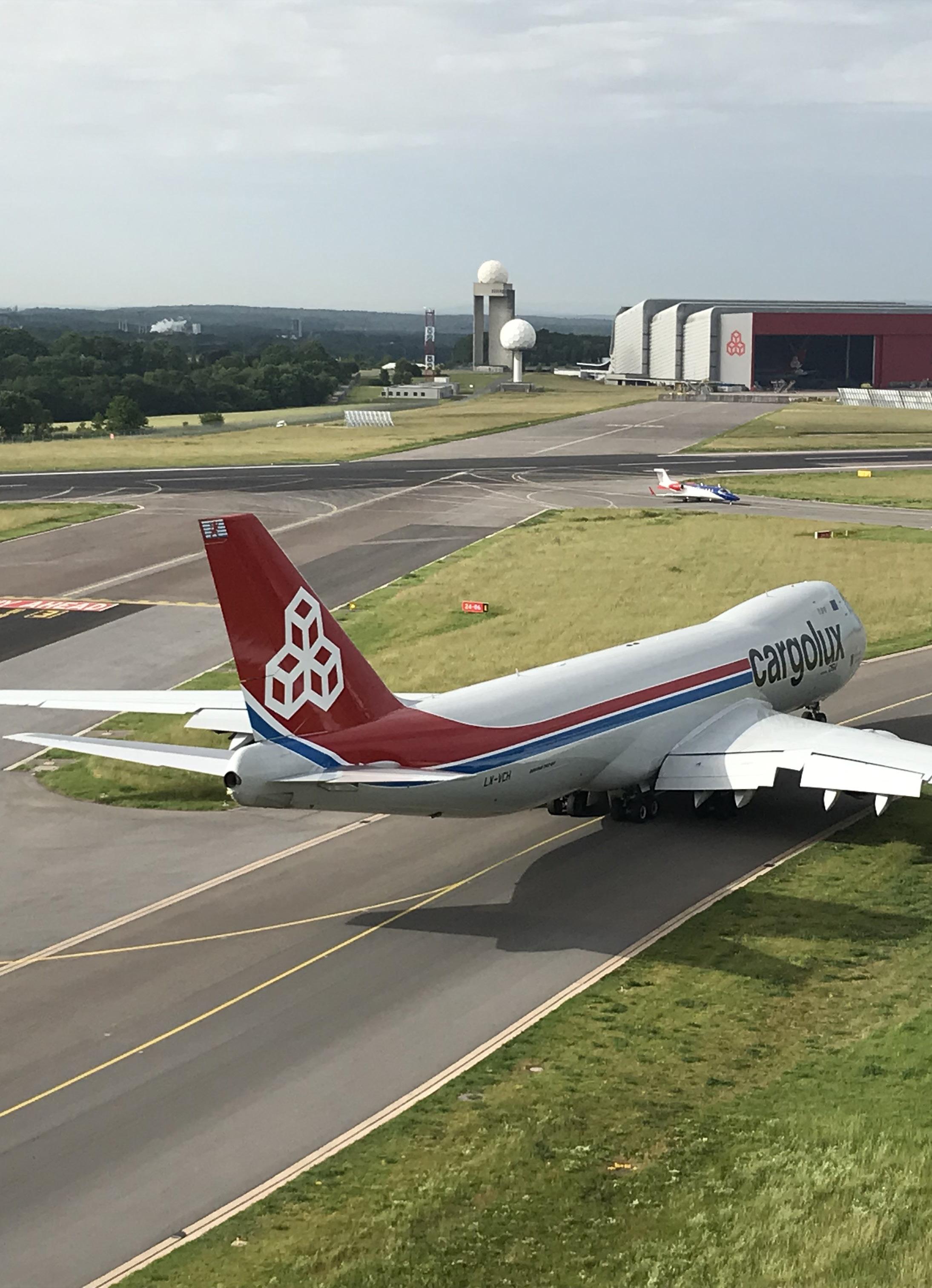
LUXEMBOURG AIRPORT, THE COUNTRY’S ONLY INTERNATIONAL AIRPORT, IS STRIDING POST-PANDEMIC TOWARDS SUSTAINABLE AVIATION.
STAYING CONNECTED
PROJECT MANAGED
BY: RASH UDDINLocated in the heart of Europe, Luxembourg Airport, operated by lux-Airport, is a boutique airport which strives to combine the quality and standards of a large hub airport with the comfort and efficiency of a regional one.
Although small, the airport prides itself on having had 4.4 million passengers in 2019, flying to more than 100 destinations with 15 different airlines. It is also a major cargo airport, ranking as Europe’s fifth-busiest by cargo tonnage, with Cargo airline Cargolux headquartered on the airport premises.
Lux-Airport currently employs some 350 people and the number is set to increase, says CEO ad interim Alexander Flassak. “As air traffic is slowly returning to pre-pandemic levels, so are activities at Luxembourg Airport. We had a very busy summer, and we would expect to go back to close to 4 million passengers handled by the end of 2022 – a better-than-expected result.”
STAYING FIRM DURING THE PANDEMIC
Speaking about the pandemic that grounded global aviation for nearly two years, he acknowledges that lux-Airport was unique, as – unlike most –
the airport management did not offload any employee due to the significantly reduced traffic volumes, and in fact, increased staff numbers. As such, the airport has not faced the pressing staff shortages post-pandemic that most European airports have.
“We are a robust and reliable employer and we have always tried to provide employees with what they need for their professional and personal development, before the pandemic, during the difficult times as well as now. However, we are feeling the effects of a very tight labour market in the aviation sector as we plan to increase the number of employees, while all airports fight for the same talent. This is one of the challenges we face right now, and one we are set to handle as the business at Luxembourg Airport grows.”
He notes that despite the restrictions of the last two years, the airport has stayed committed to continuing all of its investment projects. A new hangar and a new fire station have been built, and a major refurbishment of the

Trusted by the NATO and companies all around the world.
And, of course, by Luxembourg Airport
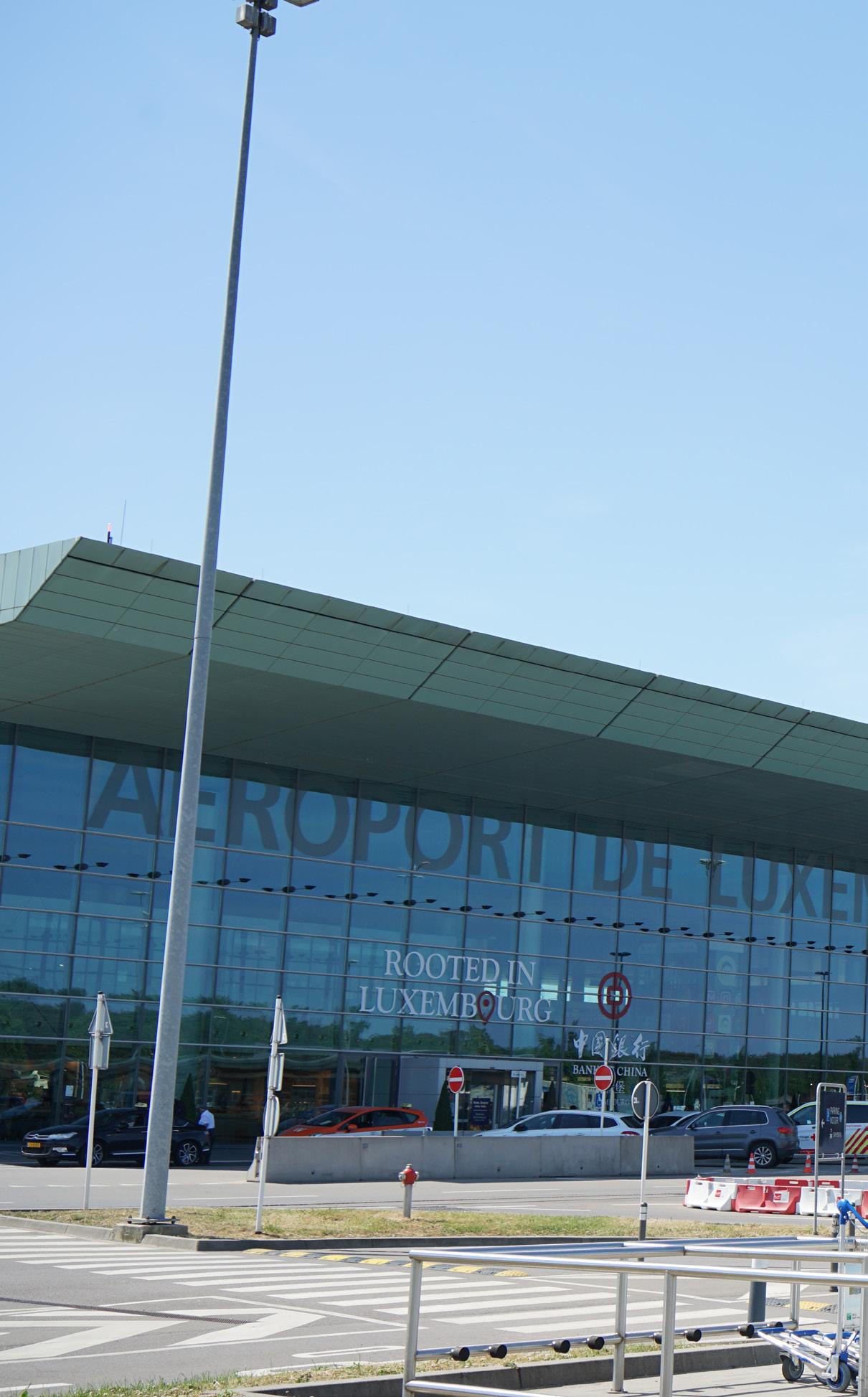
Hangar and shelter doors by BOHLEN
Few companies in Europe master the design and production of hangar and shelter doors. And even less are capable of maintaining, repairing and overhauling them.
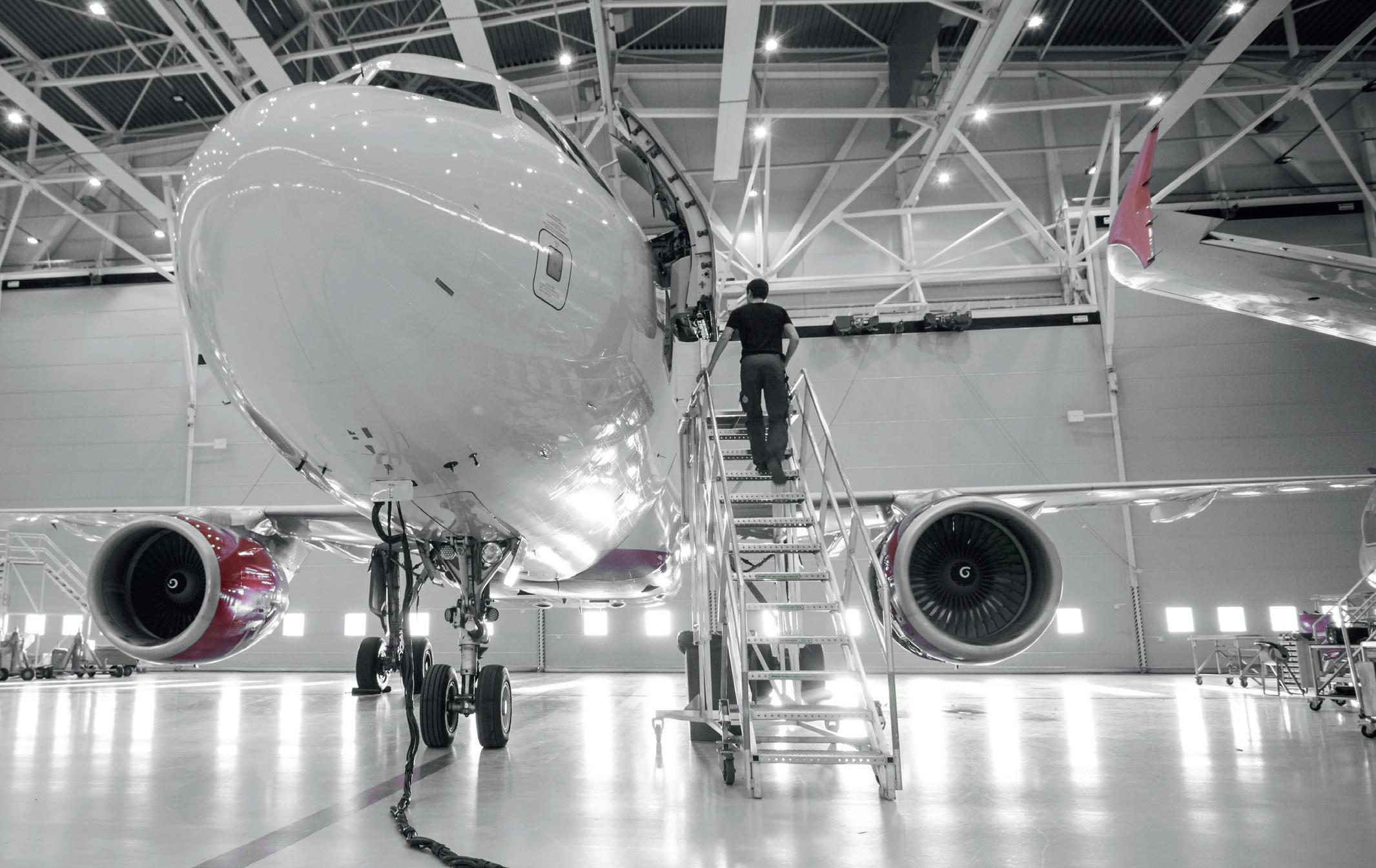
BOHLEN is the positive exception. We make sure that your hangar and shelter doors will still function in 40, 50 or even 60 years. This gives you investment security for decades to come.
BOHLEN AG Industriestr. 22, 54662 Speicher www.bohlen-group.com
BOHLEN
HANGAR AND SHELTER DOORS BY BOHLEN
From planning and production to maintenance and refurbishment – BOHLEN brings long-term investment security
Hangar and shelter doors are complex steel components that are expected to be robust. BOHLEN doors have been meeting these high demands for decades. This is also the reason why there are only a few companies in Europe specialising in this field. In addition, very few manufacturers have the necessary expertise to maintain, repair and overhaul hangar and shelter doors. The consequence: In urgent cases, the demand for gate refurbishments often cannot be met.
The German-Luxembourg company BOHLEN has made “Competence in Metal” (as the claim goes) the motto of its work. And this is also true for shelter and hangar doors. For more than 50 years, the renowned steel and metal construction company has been a partner for sophisticated steel and glass structures. The company’s customers include international airports (such as LUX Airport), companies in the US, Denmark, Italy, the Netherlands and Thailand, as well as NATO and the German Armed Forces.
BOHLEN hangar and shelter doors have an excellent reputation in the industry. BOHLEN’s patent on the drive system for hangar doors once again confirms the complex technical requirements such constructions pose.
But just building the gates is not enough in the long term. BOHLEN also has the expertise and experience to professionally maintain, repair and, if necessary, refurbish them. BOHLEN customers therefore enjoy a maximum in product and investment security – the hangar and shelter doors are guaranteed to be in perfect working order for 40, 50 or even 60 years.
Bohlen S.à r.l., 10, rue Martin Maas, Z. I., L-6468 Echternach, Luxembourg. E: info@bohlen-group.com / T: +352 26 72 81-1 www.bohlen-group.com
airport’s single runway started two years ago, has just been completed.
The runway project was special, as the refurbishment had to be performed at night, with full airport operations during the day, requiring innovative and fast procedures. The current runway was used as the foundation for the new one and every night, a new layer was added on top of the existing runway. This allowed the airport to stay open and operational for flights during daily operations.
TOWARDS ZERO CARBON
Mr Flassak affirms that environmental protection and sustainability remain among the top priorities for lux-Airport – it is one of the 100 airports committed to achieving net-zero carbon emissions by 2030, as part of the industry net-zero pledge spearheaded by ACI EUROPE, the European airport association. In March this year, lux-Airport certified level 3+‘Neutrality’ of the ACI Airport Carbon Accreditation programme - an essential milestone towards netzero operations.
“There are different steps to achieving neutrality,” explains Mr Flassak. “For example, our electricity is produced 100% using hydropower, which is carbon-neutral. Another example is the runway renovation, where the lights were changed into modern LED lighting and the adaptation of the lighting in the parking garage to an intelligent turn-on/turn-off system. Moreover, aeronautical emissions are included in our actions too, as the landing charges at Luxembourg Airport include an environmental factor.”
Lux-Airport also expands its environmental engagement by investing in the production of e-Fuels, an important component
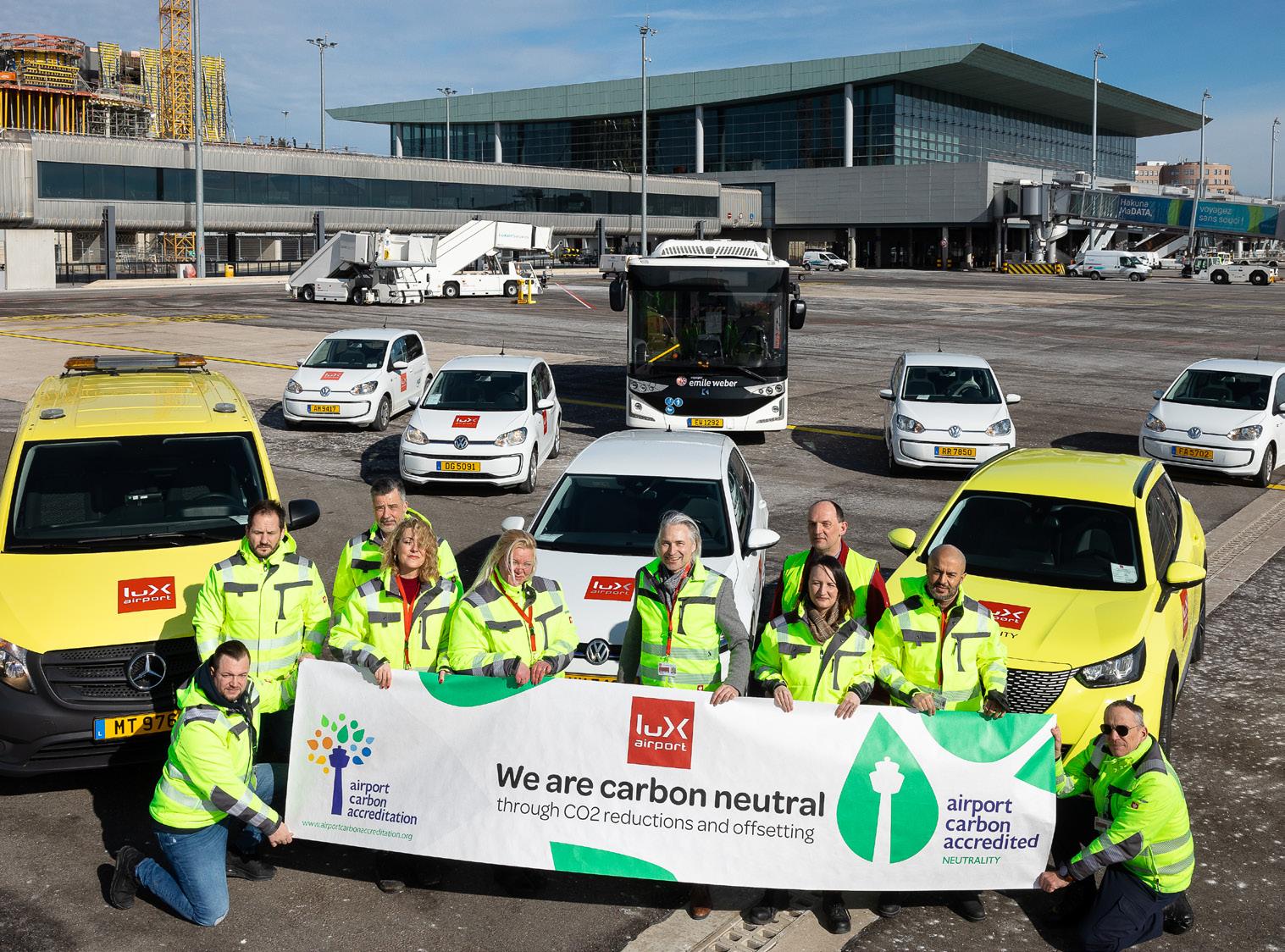
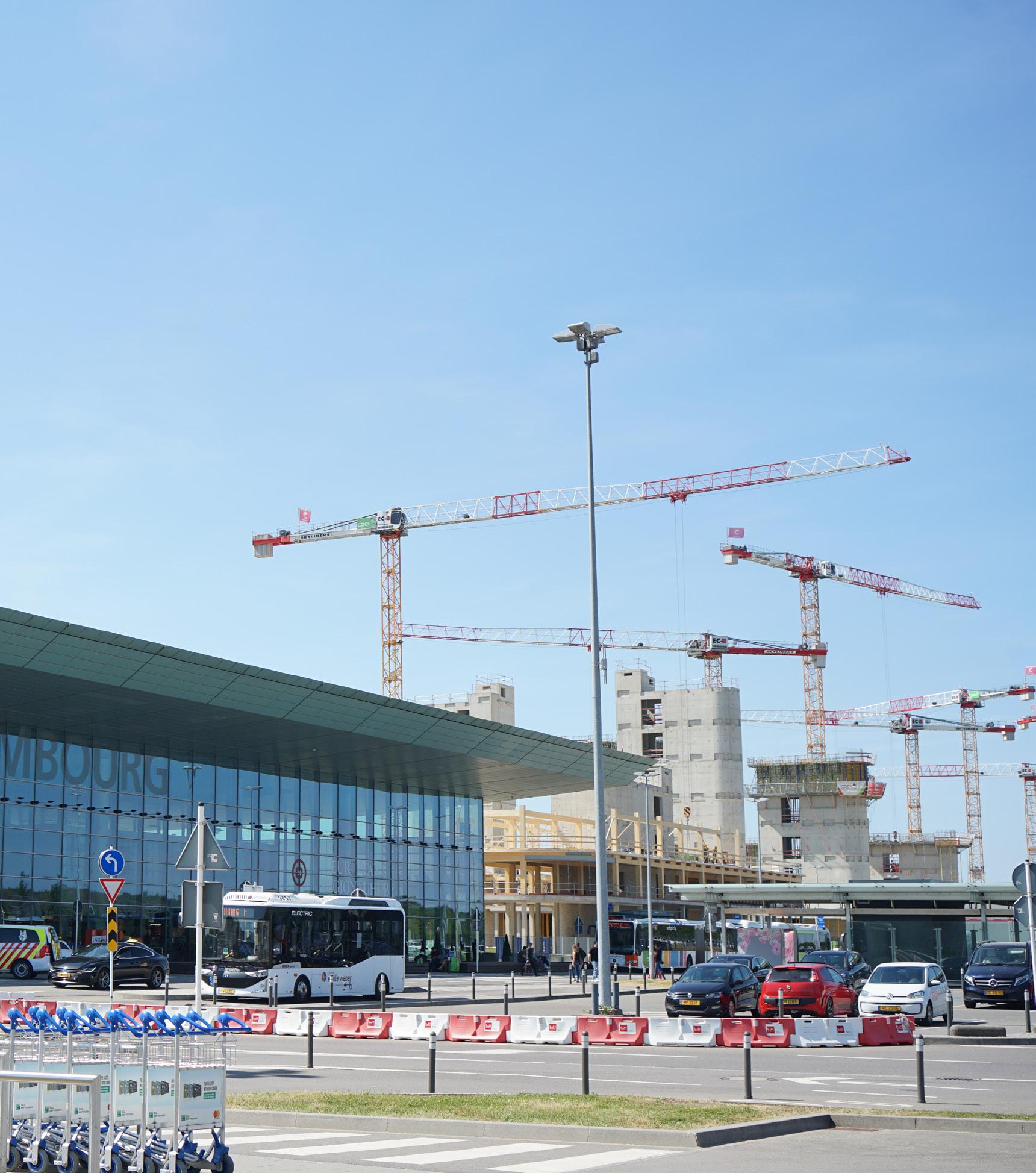
of sustainable aviation fuel (SAF), to fulfil the “Fit for 55” guidelines of the European Commission.
“Earlier this year, we have invested in the production of sustainable aviation fuel based on renewable energy by acquiring a shareholding in Norsk e-Fuel, one of the leading companies in the development of production of sustainable aviation fuels (SAF) from renewable electricity, air-captured CO2 and water. This investment also underlines our strong commitment to supporting the targets for a climate-neutral aviation sector.”
SUSTAINABLE FUTURE
Despite its ‘regional’ status, luxAirport has ambitious plans for the future. “We’re hitting the limits in terms of facilities, so
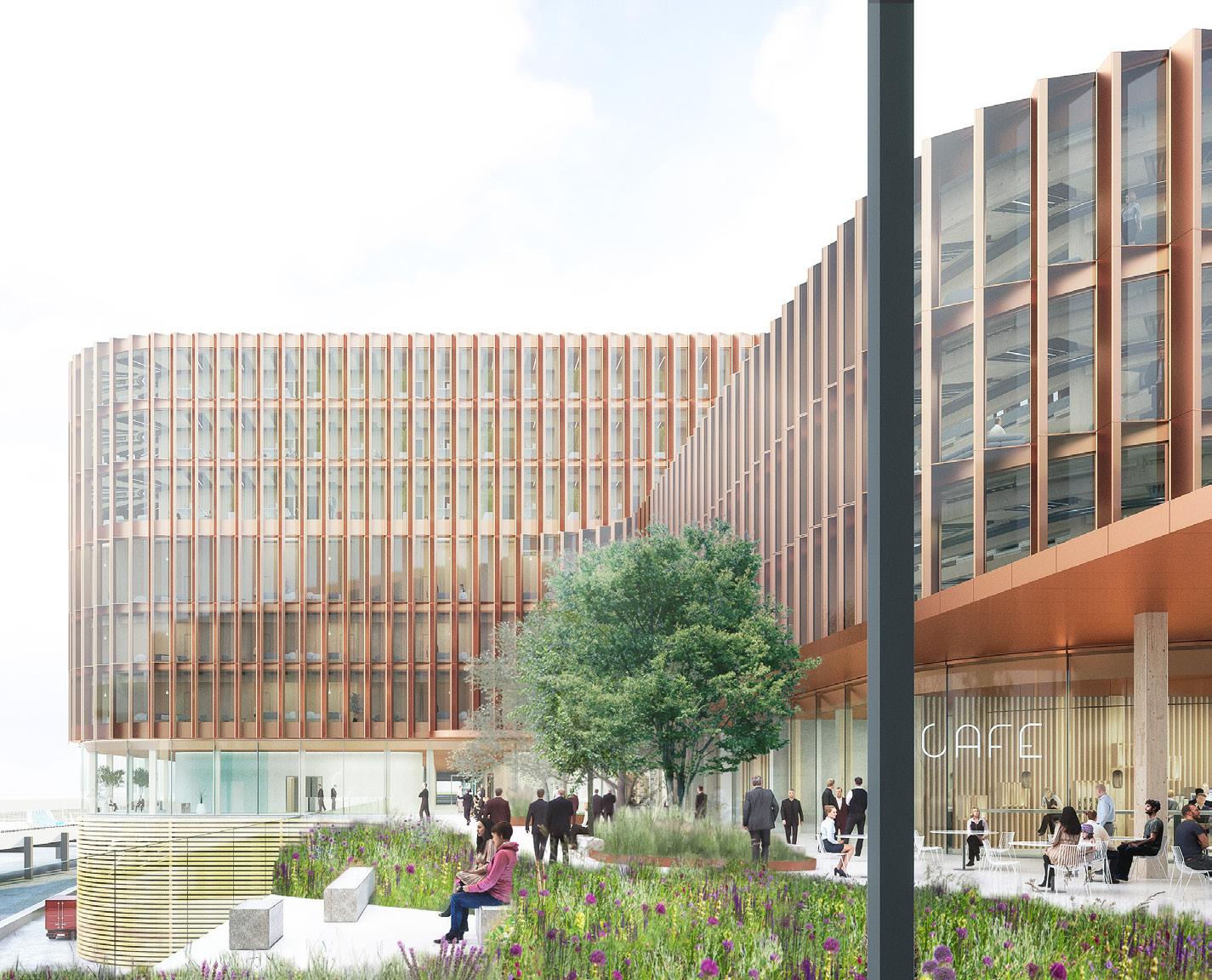
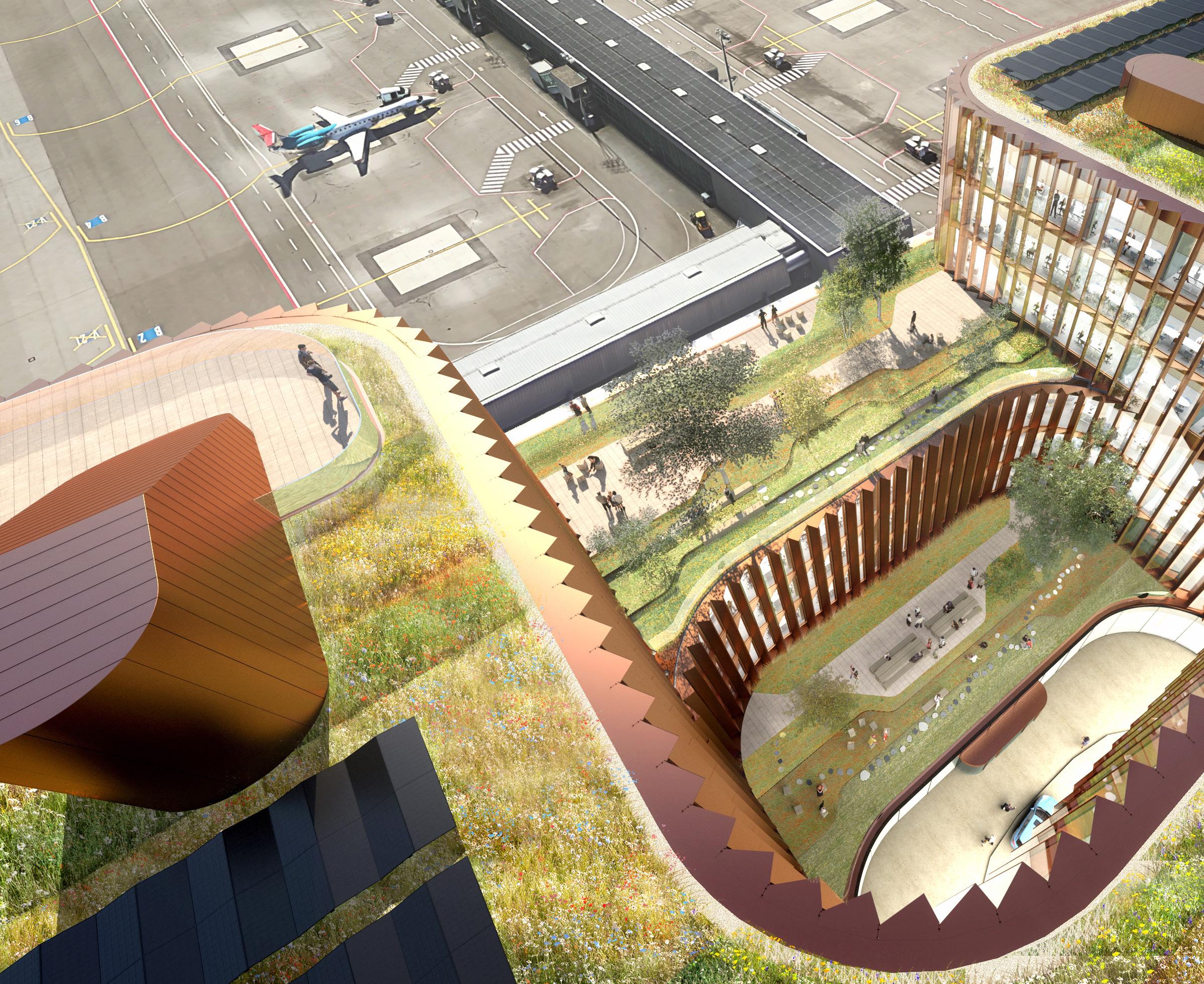
expansion is the only answer, both for the airport’s own premises as well as for our external partners,” affirms Mr Flassak.
Already during the pandemic, the construction of a major development project, Skypark Business Centre, was initiated, to be built directly beside the airport terminal - the first visible milestone of ‘Airport City’, a major development that will include accommodation, retail, and conference facilities.
The business centre is set to create a reference building for sustainability and environmental awareness – it uses timber construction methods, intended to reduce the development’s carbon footprint, as well as a series of other devices
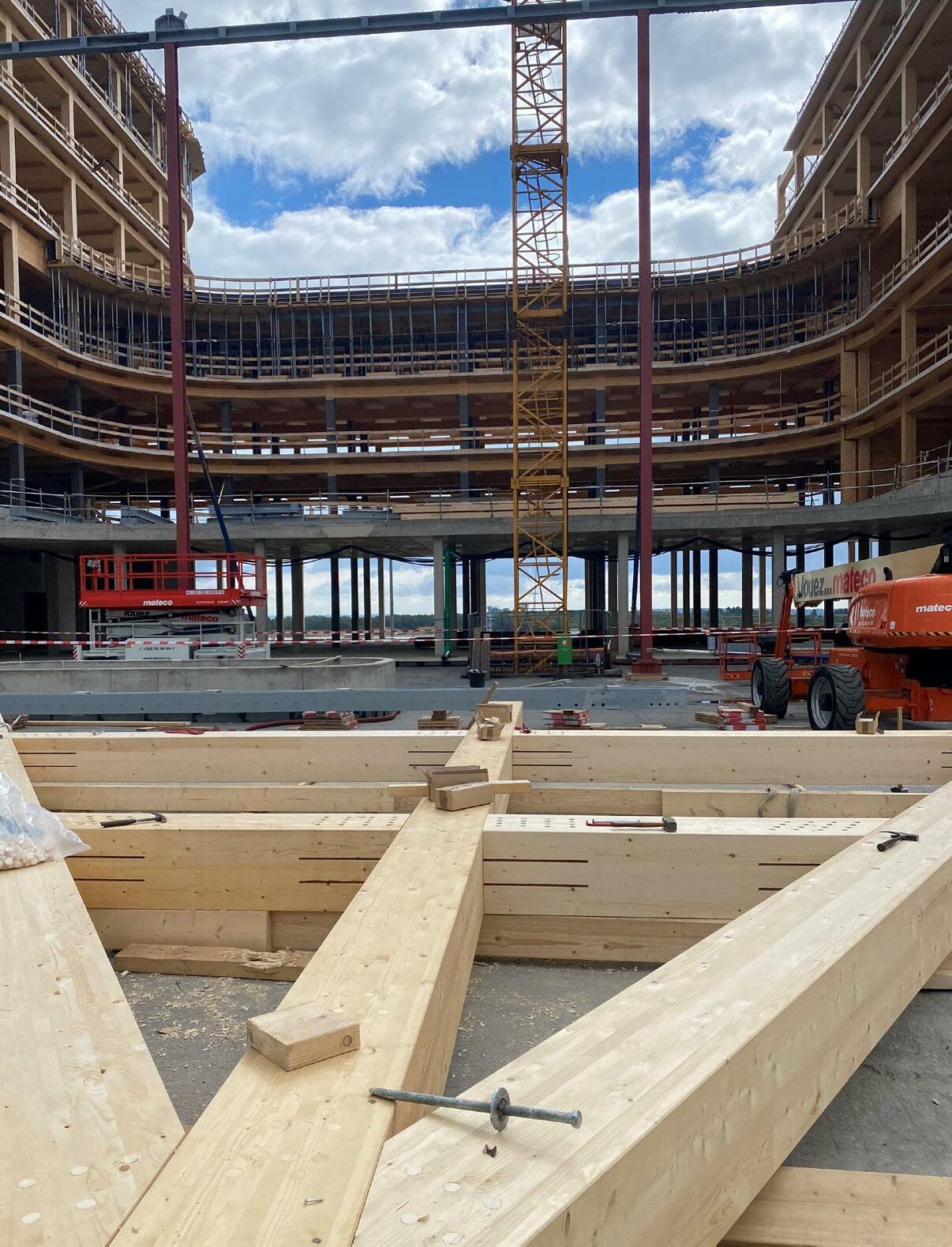
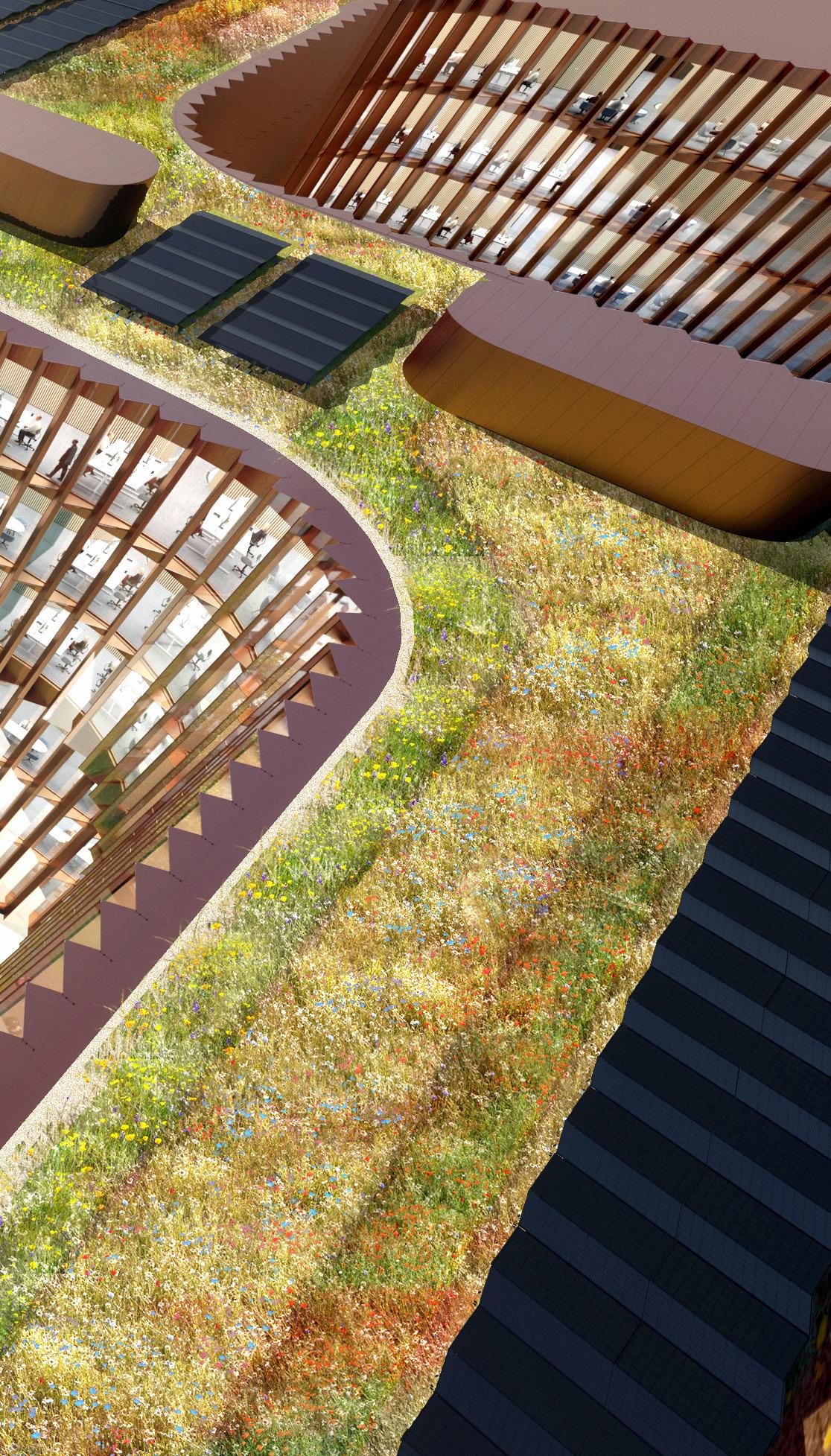
that ensure the scheme’s sustainability. The philosophy of the design is inspired by the ideas of the circular economy where materials are easy to adapt and recycle if needed.
“Designed by one of the world-leading architects, the Bjarke Ingels Group, the Skypark Business Centre is going to be one of the largest – if not the largest – wooden buildings in Europe. This shows our aim to diversify revenue streams and our belief in the airport’s location, which is – contrary to other rather satellite airport locations–really close to the main business district and the city centre of Luxembourg, both reachable with free public transport within a few minutes.”
“For employees, business partners and visitors alike, we want to realize an attractive project with an extremely high quality of experience and a diverse range of services that will be exemplary for the future of the Airport City development.”
It is hoped the first stage of the project will be completed within the next 12 months but speaking about the imminent future, Mr Flassak is staying firmly on the ground: “Our primary hope for the coming months and years is a full recovery of the aviation industry after two extremely challenging years. Quite simply, we want life to return back to normal. Prepandemic, Luxembourg Airport was getting very busy. We hope that we can return to that growth trajectory.”

2019 seems like a long way away now, before Covid and everything that came with it. It has certainly been a long time for the aviation sector. While the industry has been working hard to recover since the pandemic, before anyone had heard of Covid the biggest concern was how airport facilities could grow in line with demand.
This was particularly true of Queen Beatrix International Airport, one of the busiest airports in the Caribbean. Three years ago, the airport hosted 29 different airlines and welcomed over 2.5 million passengers every year. When we spoke with James Fazio, CEO of Aruba Airport Authority N.V., he told us, “We’re victims of our own success so to speak. The last major development our airport saw was the Beatrix 2000 project, and now we’re dealing with the current realities of aviation with an airport design
that predates the 9/11 attacks. The airport needs to address that, especially if we’re going to continue to grow and catch up with technology and passengers’ expectations.”
To address those challenges, the Gateway 2030 project was established, to introduce a huge overhaul to Aruba’s Queen Beatrix International Airport.
“It’s a major expansion and modernisation of the airport. It’s driven by the tremendous growth we’ve had in the previous 15 years,” Fazio told us during our last interview. “We have a US pre-clearance facility here and
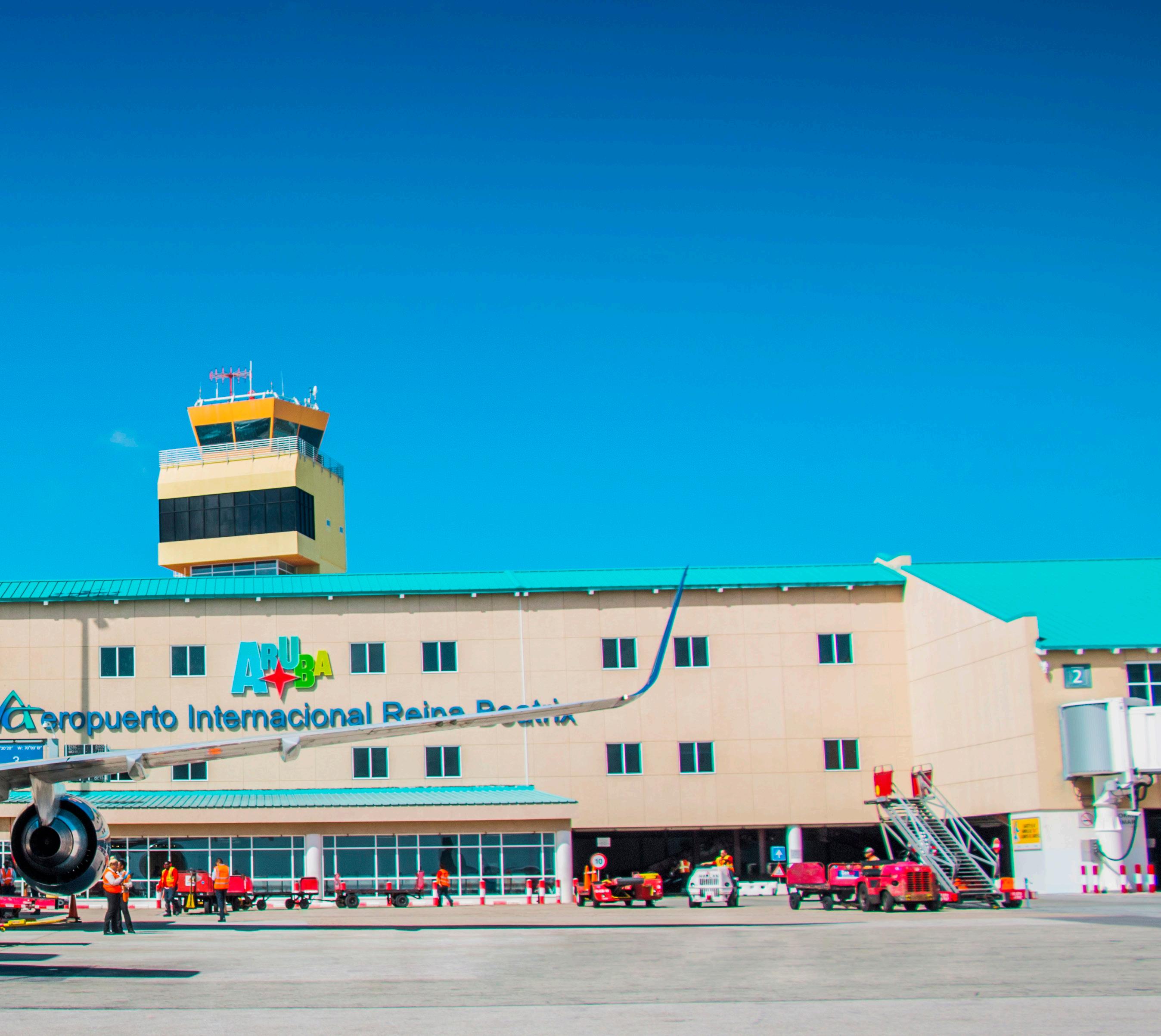
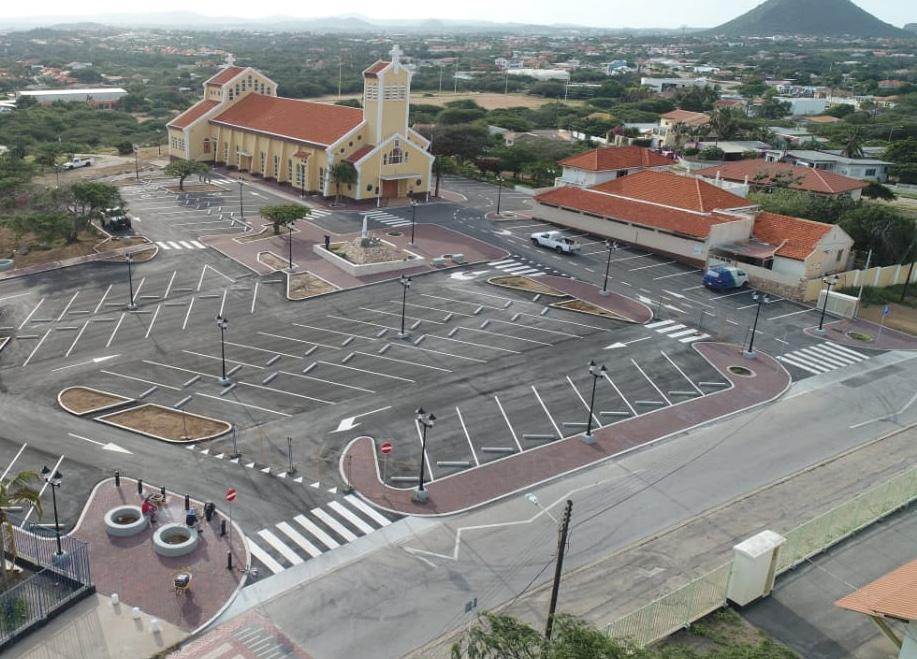
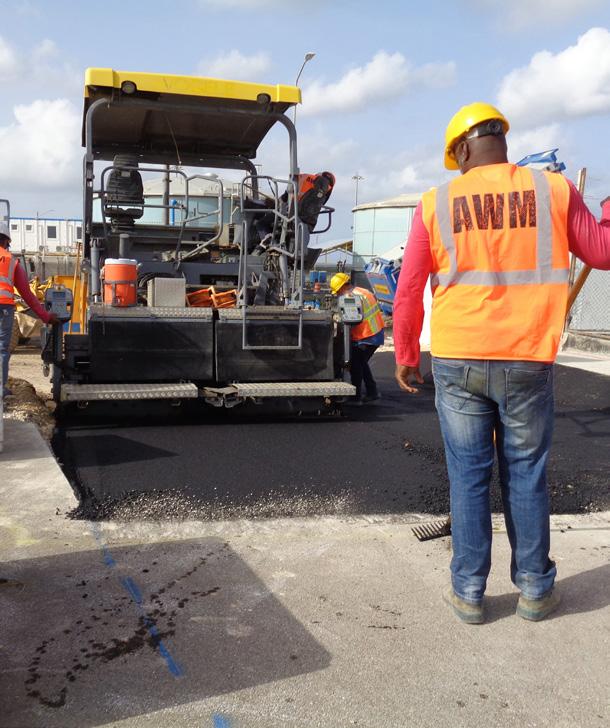
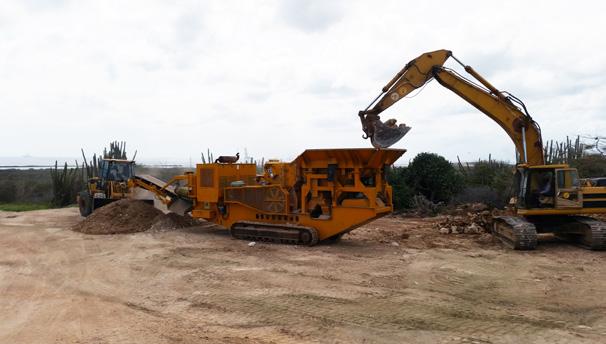
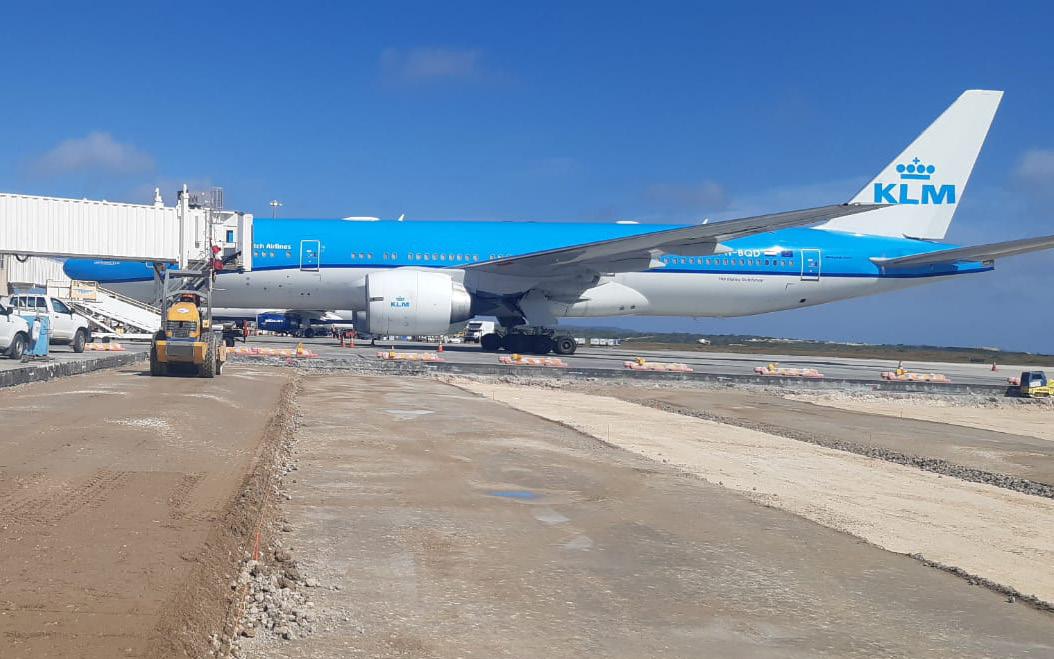
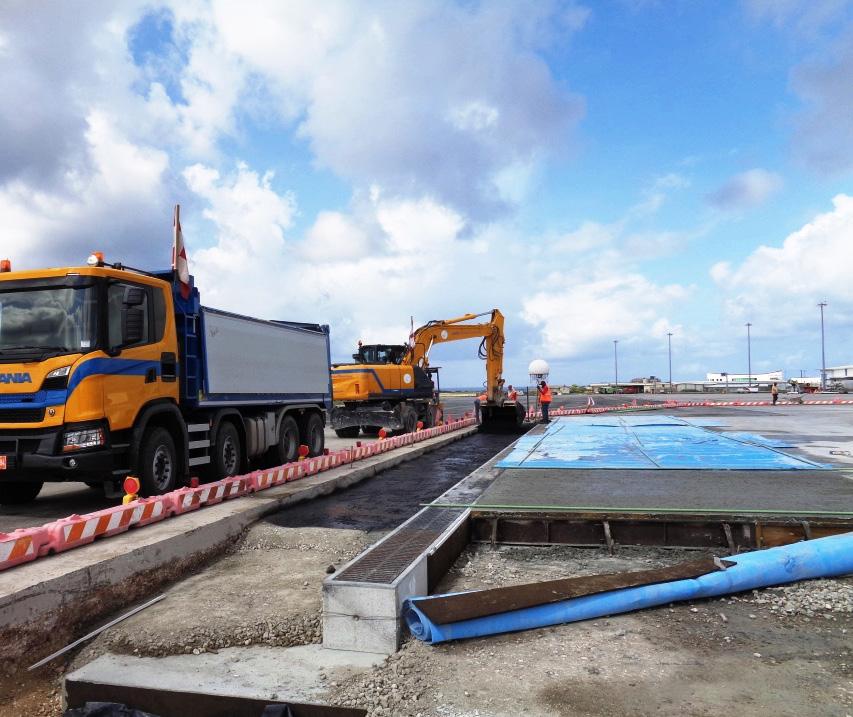
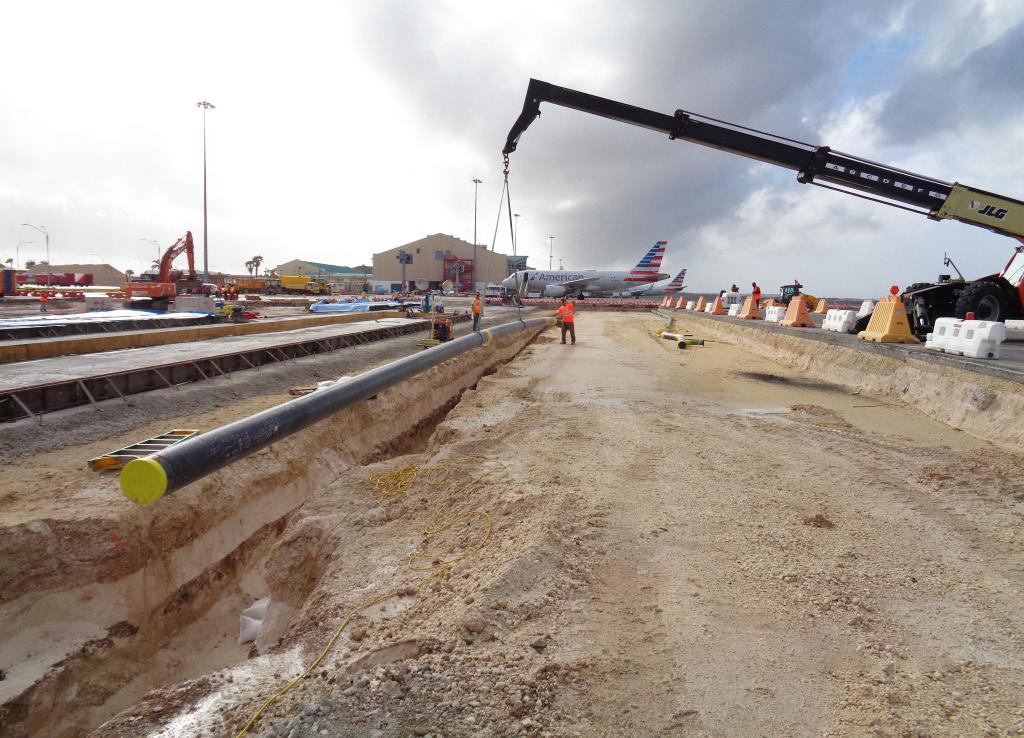
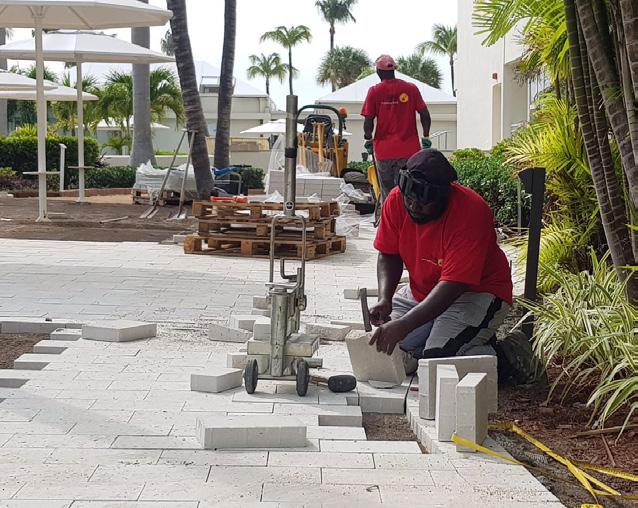
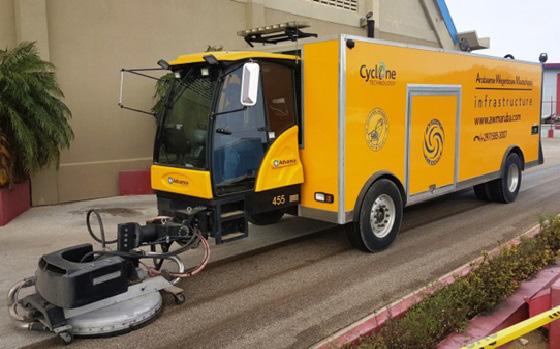
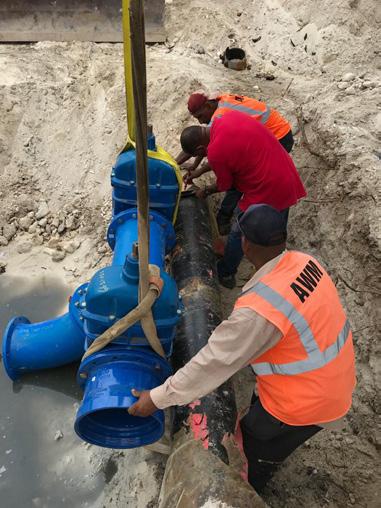

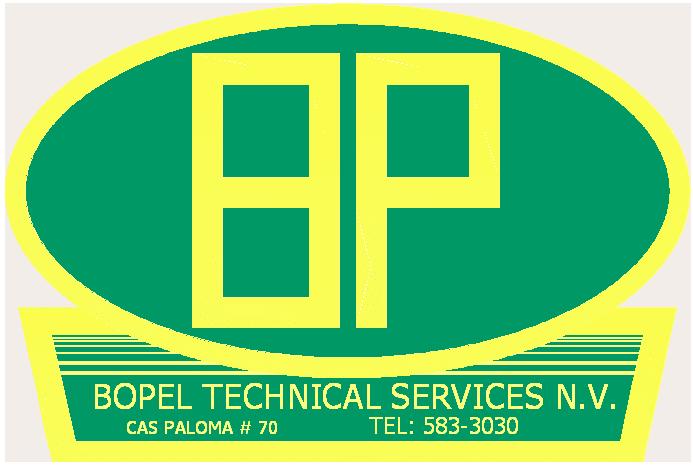

it was designed, again, 20 years ago and doesn’t represent the convenience it really should. In some ways, we’re operating two different airports, one for US-bound traffic and one for non-US-bound traffic. That isn’t very efficient, so we’re working towards a single airport concept that uses technology to improve the passenger experience and expand the check-in area and shopping facilities.”
Over the years since we conducted that profile of Aruba Airport Authority, Gateway 2030 has gone into full swing, and the work on Queen Beatrix International Airport, even in the face of a global pandemic and numerous macroeconomic concerns, has been impressive.
BREAKING NEW GROUND
Within months of our last profile, the contract management and technical supervision services for the Aruba Airport Gateway 2030 project were awarded to Arcadis, the Amsterdambased design and consultancy organisation.

The project Arcadis was contracted to would include plans to redevelop and expand the airport in line with growing passenger numbers while creating a more modern space for them to work in. The goal was nothing less than to turn Queen Beatrix International Airport into one of the largest and most efficient airports in the region.
Joost Meijs, CEO of Queen Beatrix International Airport, said at the time, “It’s very exciting for Aruba Airport to be one step closer to the ground-breaking of the Gateway 2030 project. We are glad that Arcadis is going to support the accountable AAA project and programme team who are responsible for leading this ambitious extension of our airport facilities. Their ample experience in this field will
be relied on to successfully complete the airport’s expansion and modernisation project.”

Arcadis has provided contract management and technical supervision for the airport’s new pier and passenger gates developments, all demolition works, the expansion and redevelopment of the airport’s existing check-in hall, as well as new baggage hall, immigration and security halls, and a stylish food and beverage plaza.
Nick Hutchinson, who is Arcadis’ Global Leader for Integrated Airport Solutions said of the project “We are proud to be working under the programme and project management of the AAA on this ground-breaking project. Arcadis has great expertise in the airport sector, working with some of the largest airports in the world. Our multi-national team that will work at Aruba Airport will consist of experts from Latin America, Europe, North America, and the Middle East. We are convinced that the Gateway 2030 project will greatly benefit the people and economy of Aruba, as well as the comfort and travel efficiency of visitors.”
EXPANDING HORIZONS
Since breaking ground on the project in 2019, Gateway 2030 has continued to storm ahead, even in the face of the Covid-19 pandemic. By October last year construction was already well underway, with estimated costs of $140 million.
A year ago, Queen Beatrix International Airport was undergoing “Phase 1-A” of the Gateway 2030 project, particularly including the expansion of the US departures check-in hall, which is twice the size of the airport’s original area. Phase 1-A is still underway but is expected to be completed by 2024.
“SINCE BREAKING GROUND ON THE PROJECT IN 2019, GATEWAY 2030 HAS CONTINUED TO STORM AHEAD, EVEN IN THE FACE OF THE COVID-19 PANDEMIC.”
Phase 1-A will also include the construction of a new baggage hall, but as well as construction, Phase 1-A will include the implementation of a new baggage handling system as well as new airside and landside connections.
While air travel has been lower than usual for the last couple of years, it is now enjoying an upswing as vaccination becomes widespread, and a lot of that traffic is heading to islands in warmer climates such as Aruba.

As Gateway 2030 continues to expand Queen Beatrix International Airport’s facilities, airlines are bringing more passengers to the airport. Last year, Frontier Airlines added a new service to Aruba as part of its 15-route expansion, joining big names such as American

Airlines, Delta, Jet Blue, Spirit, Southwest and United Airlines. This year, British Airways has proposed twice-weekly flights to Queen Beatrix International Airport from Gatwick, using its Boeing B777-200ER aircraft. The flights will commence on the 27th of March 2023.
Work towards Gateway 2030 continues, as baggage tugs have been rerouted, the coping beam has been completed, and they have started pouring concrete in the reinforcement of the existing foundations. The airport has started installing underground utility buildings and has finalised the temporary supports for the existing structure of the Check-in Hall.
By 2030, Queen Beatrix International Airport will be completely transformed.
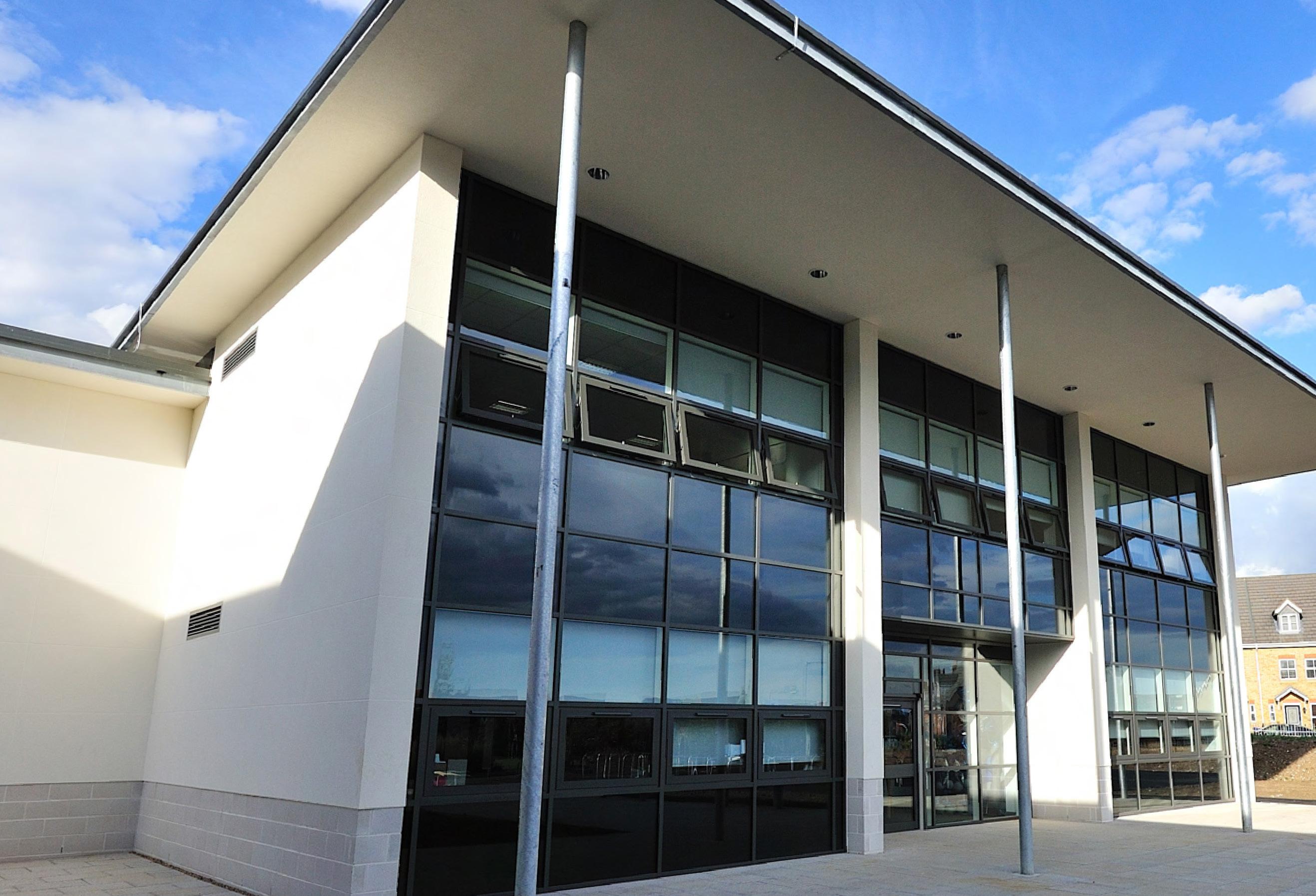
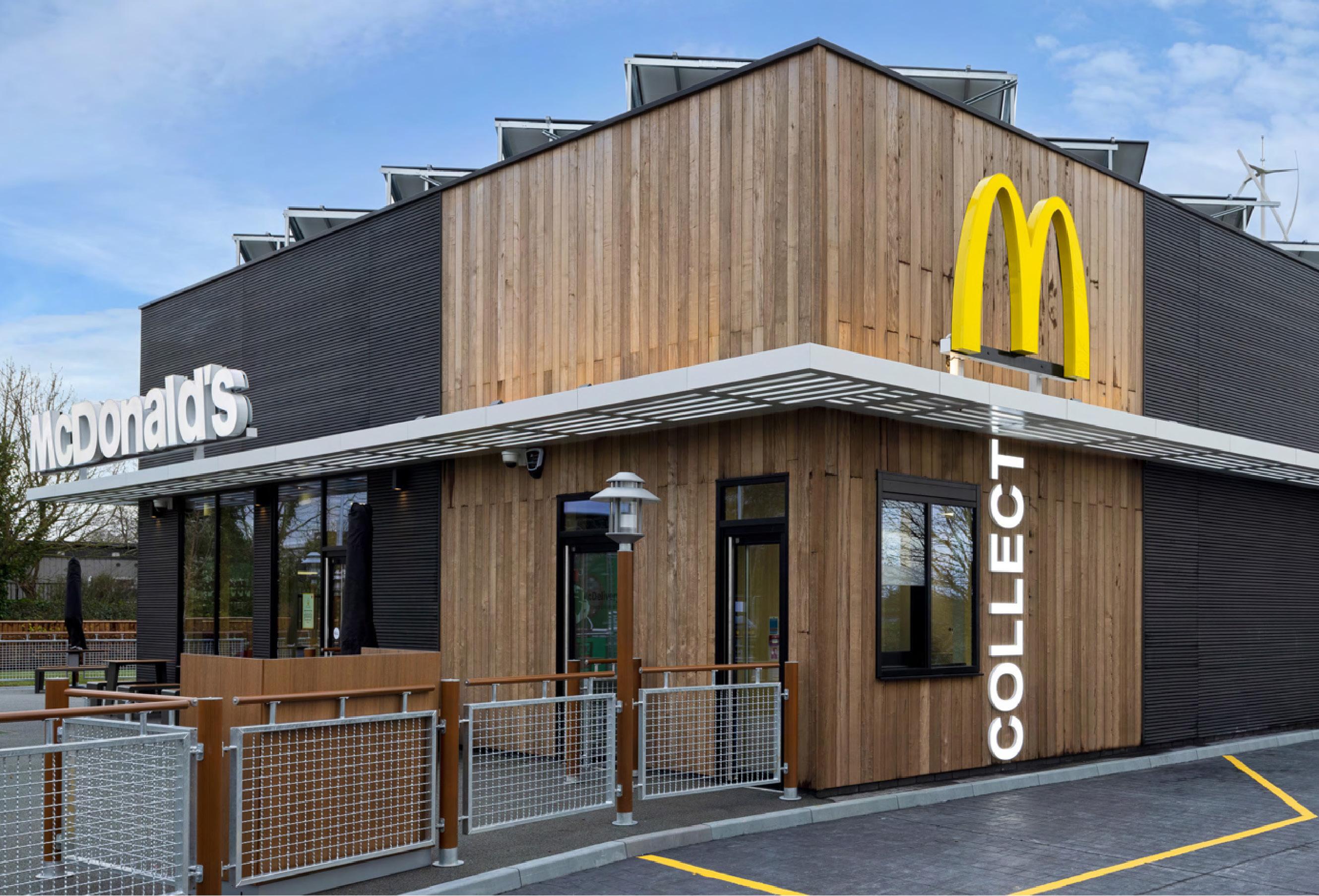
PROJECT MANAGED BY: TREVOR GRETSINGER
BY ANY OTHER NAME
It is not the first time we have talked with Algeco Offsite Solutions, although the last time we took a look at the modular construction firm it was called the Elliott Group. The firm has recently consolidated its brand as part of a process of integration of recent acquisitions, now trading under the widely recognised Algeco name; the brand being uniform across its European business.
The acquisitions have been carefully integrated, providing the group with much further coverage and capability, with new colleagues very much part of a wider team now,” says James Withey, the company’s new Managing Director.
When we last spoke with Elliott Group, we learned that the company’s method of deploying modular construction, manufacturing parts of the building at its factories before assembling them on site, was one regarded with some reluctance by the traditional construction sector. That perception was changing then, but when we speak with Mr Withey it sounds like the industry has truly woken up to the potential of modular construction methods.

“I’ve only been in the MMC business for a year, but I would say there’s an absolute recognition that modular construction delivers many benefits beyond traditional construction, however
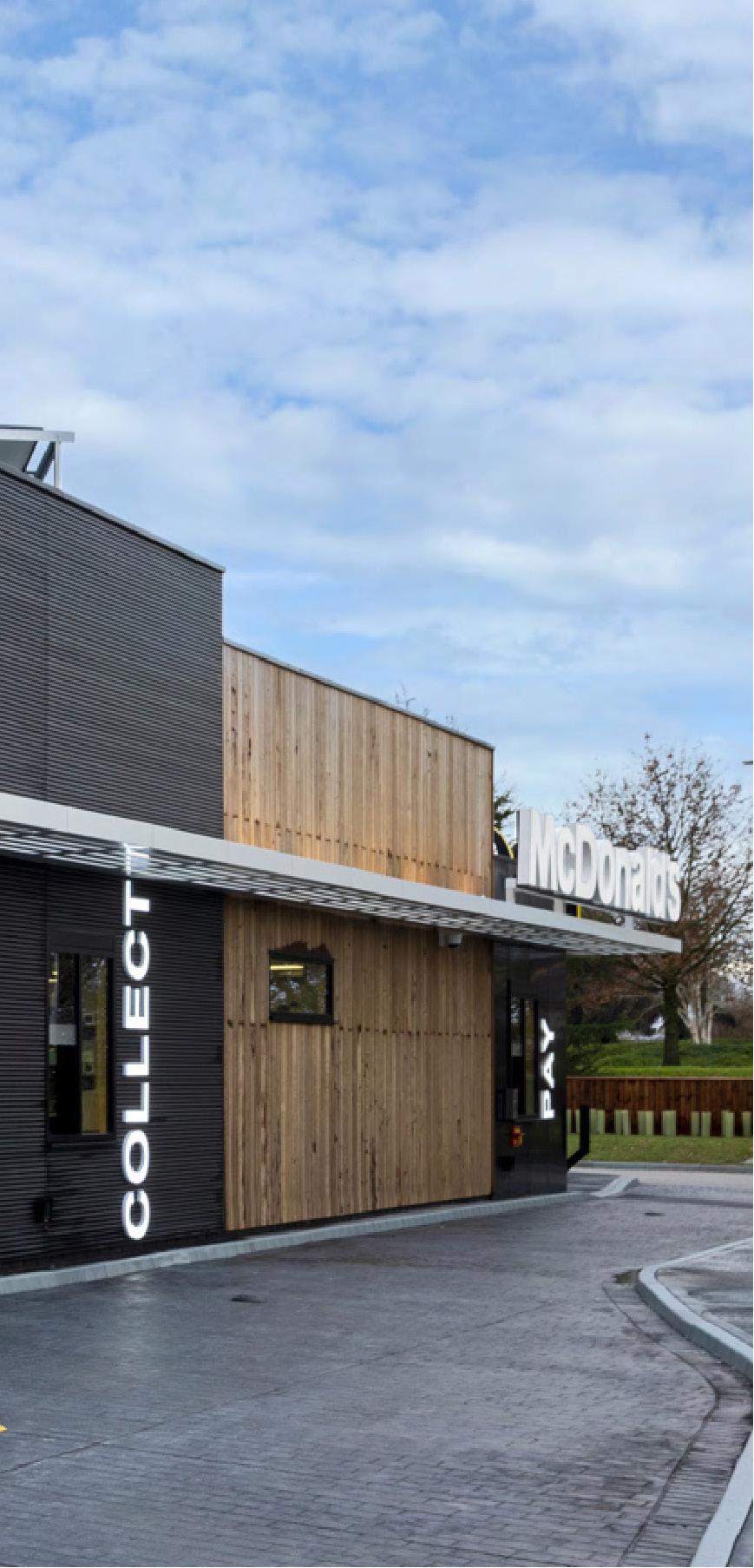
it can work hand in glove with older methods,” Withey insists. “A modular construction environment can be safer, deliver a higher quality product in a shorter time and providing the design is standardised, offer efficiency versus traditional construction. Unlocking the benefits of MMC requires a level of repetition”. “Providing customers or their advisors consider Modular early enough in their design process, these benefits can be unlocked to their advantage. Indeed, several main contractors, without their own MMC capability have recognised this and are collaborating with us so they too can benefit”.
At the same time as perceptions change, so have Algeco’s methods, and the company has made significant investments in its products. Their new award-winning Seismic Steel Frame technology provides “a more sustainable platform and process upon which to scale” their business, Withey tells us.
LAST TIME WE SPOKE WITH ALGECO IT WAS WORKING UNDER A COMPLETELY DIFFERENT BRAND NAME, BUT THAT IS NOT ALL THAT HAS CHANGED!
Algeco itself has undergone significant transformation since we last saw them, even beyond the new branding. The company has significantly increased its revenues and has diversified into two additional sectors. It employs approximately 30% more staff than it did a year ago, while its products have become more standardised as it has begun to digitise some of its processes.
“We’re investing in people as well as our plant”. There is not one area of the business that has remained static,” Withey says. “We have made progressions in all aspects of people, platform, and process. We have a superb capability and team, and as the market is increasingly looking at modern methods of construction and how it can take real advantage of them, we want to compete and help shape it”.
A MATTER OF PRIORITIES
Whilst Algeco Offsite Solutions is growing, it has seen market demand grow alongside it, as interest increases in MMC.

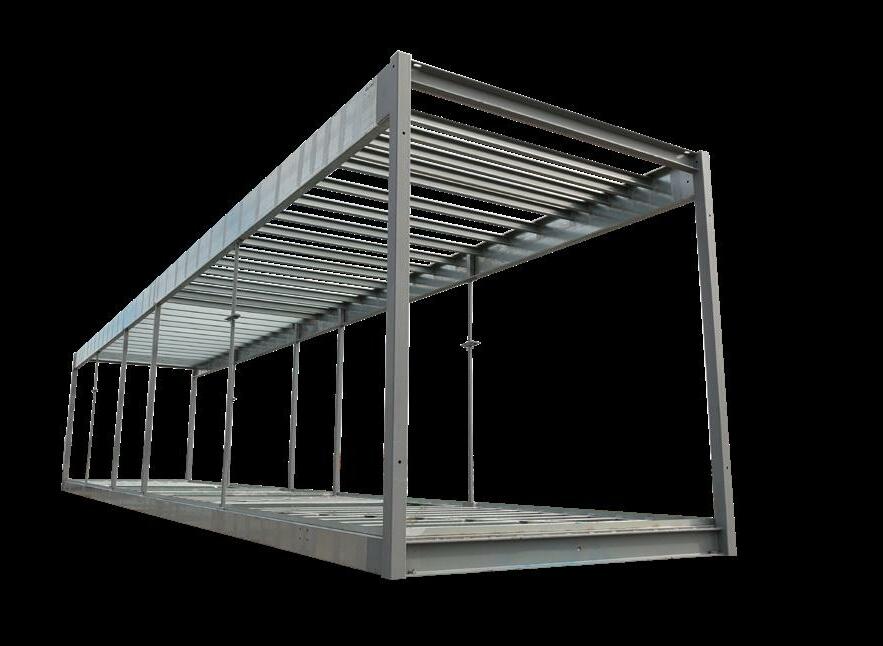

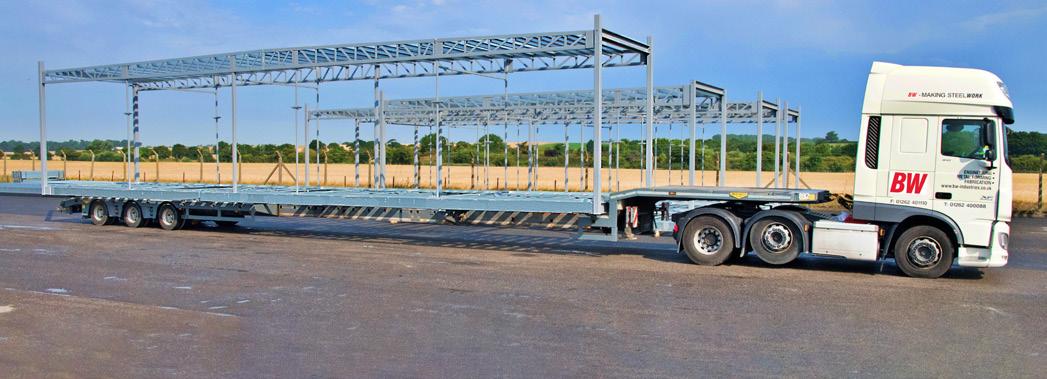
“The question is where to focus and prioritise,” Withey tells us. “That has been the biggest challenge, especially for a small to medium size business. We don’t have limitless resources, so it is about making sure that with the resources we have we execute our plans well.”
Prioritising how those resources are used is a matter of measurement. As Withey explains, whatever the business, whatever its ownership structure, shareholders want a return on the capital they have invested.
“Within the sectors we work, there is urgency for new facilities and yet the demand is long term. That enables designs to be standardised, unlocking the true benefits of MMC.”


“Programmes of repeatable work and predictable demand which attract investment, enable MMC growth. He encourages clients with such a profile to engage Modular providers early in the design process, to maximise the benefits”.
In being proactive, rather than reactive, Algeco is pursuing innovation across its business.
The Seismic Platform was on the drawing board the last time we spoke with the company, and now it is commercialised. “We have proven it beyond feasibility, taken it into reality and it is a product being delivered right now to the Department of Education, in use on two new school projects”
“We have collaborated with industry partners and academia to create the Seismic platform, we intend to leverage this success and develop a ‘Halo product’ which will go across all of our vertical sectors, enabling us to deliver consistency and further standardisation,” Withey tells us.
AFTER SCHOOL
While education and schools were always the foundation of Algeco’s work, with 30 years of history in the sector behind them, Withey is excited about entering new markets.
“We are working for the Ministry of Defence to deliver single-living accommodation projects. These essentially are accommodation products that sit inside the wire of a defence establishment,” he says. “The platform feasibly could be developed to enable us to pivot into other sectors such as hotel accommodation, build-to-rent, student housing and healthcare, when the time is right.
Addressing multiple sectors with an iteration of the design is a methodology which closely aligns with the principle of standardisation.
A particular advantage of Algeco’s modular construction techniques is that they allow for the majority of the work to be done off-site, which is useful for sectors where site disruption and time on site need to be minimised. Withey believes the best results can be brought about through a collaborative approach.
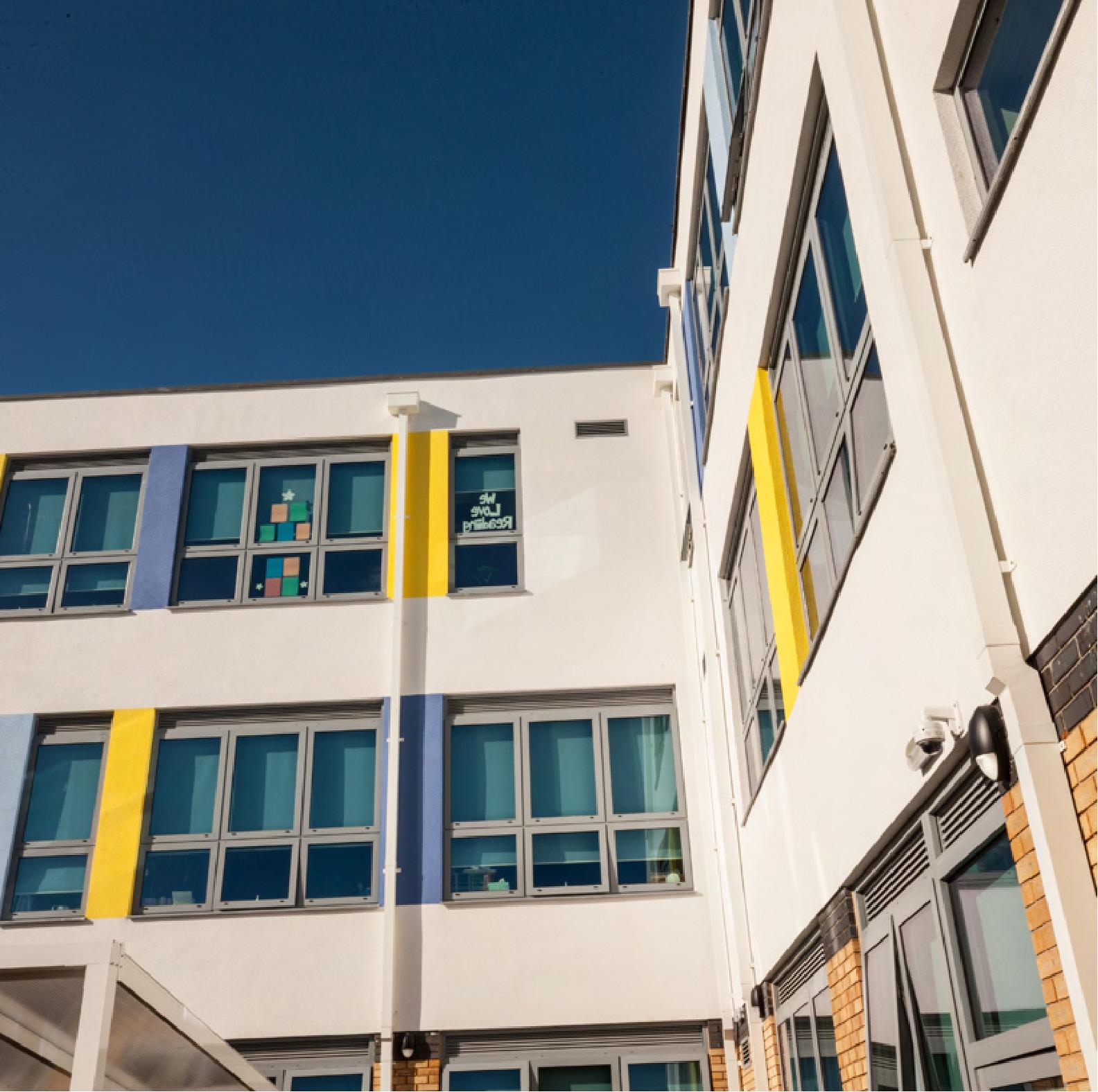
“I’m a collaborator by nature. One of the things I’ve tried to do is establish networks and relationships with tier-one contractors and developers looking for a partner, to deliver their schemes more quickly, safely, and efficiently,” he says. “That is starting to open opportunities for our business, because they get access to an MMC capability they might not otherwise have, without the expense of acquisition. There is a strength in that relationship, as opposed to a traditional subcontractor model.
It is clear talking to Withey that his energy and vision for the future of Algeco are tangible.
“It is an exciting place to work at the moment. This role couples my experience of real estate with my background in manufacturing,” he says. “From that point of view, I have a really enthused team who are on a fantastic growth journey. There is a real buzz around the business and there are good development opportunities and careers within.”
As excited as Withey is, however, he will not lose sight of what is essential for Algeco’s future.
“It comes back to serving the client. We’re in five different sectors and starting to specialise in each of those. We need to keep looking ahead to ensure we can satisfy the customer’s need and standardise to remain efficient and effective. Doing so will ensure we grow sustainably and help shape the future of construction.”
CONCRETE SOLUTIONS TO
GROWTH IN EAST AFRICA
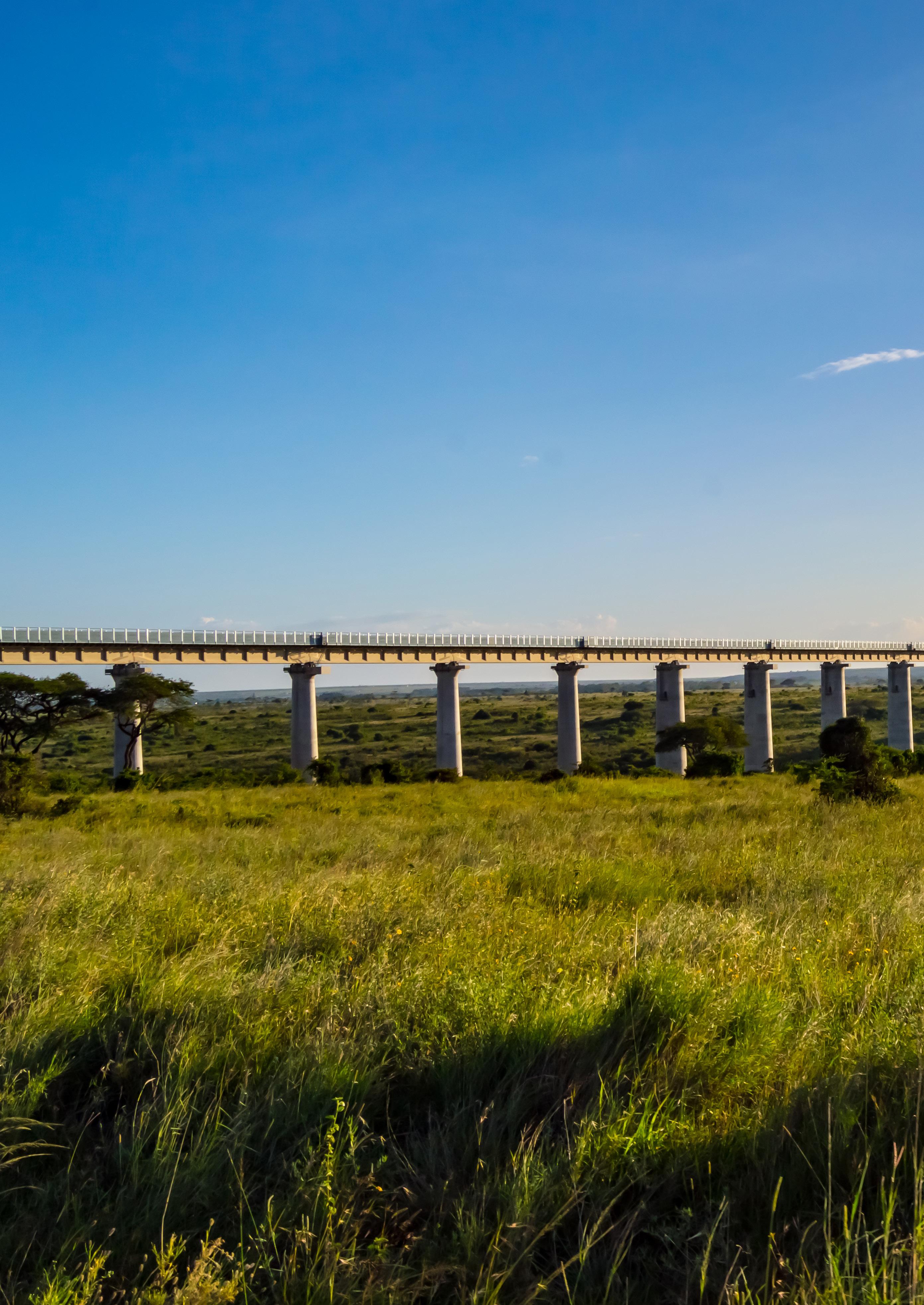
Mombasa-headquartered Bamburi Cement PLC is a leading cement company in eastern Africa, with a long history of providing highquality innovative construction solutions while being sustainable in its operations. Its subsidiaries include Hima Cement Ltd (Uganda), Bamburi Special Products Ltd, Lafarge Ecosystems Ltd and Binastore Ltd.
Over time, the company has partnered with the government, contractors, and other construction experts to bring some of Kenya’s iconic structures into being, including the Nairobi Expressway, the Standard Gauge Railway (SGR), the port of Mombasa, bridges, windmills, major roads across Kenya, airports, high-rise buildings and many more.

The company also offers building and construction solutions that meet the next level of customer needs, including in the area of lowcarbon construction. Its building solutions provide an opportunity
for local home builders not only to construct cost-effectively using quality technical advice but also to achieve very low CO2-content buildings.
BUILDING ON ITS PROUD HISTORY
The company history is an inspiring account of the pioneering spirit and vision of Croatian construction magnate Felix Mandl, who settled in Kenya in the early 1950s and set up Bamburi Cement, which became a significant contributor to the development of the country and the whole eastern African region.
In 1989 the company was acquired by Lafarge Group, which later merged with Holcim Ltd to create LafargeHolcim, a new leader in the building materials industry. Under the new owner, Bamburi has become the undisputed leader in east Africa in its sector.
The company is now managed by Mr Seddiq Hassani, Bamburi Cement Group Managing Director, who was appointed to his role in 2018, following his position as the Head of Growth and Innovation of LafargeHolcim Middle East and Africa.
Under his leadership, a new strategy was defined based on the diversification of products and services, which also helped Bamburi Cement to navigate through the Covid-19 turbulence
without laying off any of its 400 employees, even as other companies faltered or folded altogether.
EXPANDED PORTFOLIO
The company has always stayed at the forefront of innovation and continues to introduce new products each year. “Innovation is part of our DNA,” says Mr Hassani. “Our Group has the biggest research centre in building materials in the world. It is based in Lyon and will support us in launching a new solution every year. We are also looking at new technologies such as 3D printing and low-carbon emission products, in order to contribute to the Net Zero Pledge.”
In March, the company announced its entry into the specialized mortar sector by launching a ready-to-use tile adhesive under the brand name ‘Bamburi TectorCeram SETI 300’ into the Kenyan market. Designed for placement of porous tiles including ceramic, terracotta, earthenware, and natural stone tiles, Bamburi SETI 300 is a cementitious mortar product produced from carefully sourced raw materials, including chemical admixtures, Bamburi cement and sand.
Seddiq Hassani stated: “We are delighted to tap into the growing demand for speciality mortar products such as tile adhesives. As a champion for innovation in construction, Bamburi Cement is well-positioned to develop and present yet another construction solution to resolve challenges in the tiling sector. The diversification of our product portfolio allows us to further differentiate, grow in new segments and enhance value for our customers and stakeholders.”
Bamburi SETI 300 is also part of the company’s ecoresponsible offerings as it is environmentally safe, manufactured from inert chemicals that do not harm the environment and designed to minimise the amount of water used to affix tiles.
EMBEDDED IN THE ENVIRONMENT
The company has a rich history of environmental efforts. Right from its beginnings, Bamburi Cement has engaged in the rehabilitation of its quarries, so that after it extracts minerals from the ground for cement manufacture, the exhausted quarries are rehabilitated into thriving ecosystems.

The world-famous Bamburi Haller Park and Bamburi Forest Trails are some of the stories of these world-class rehabilitation efforts, where barren limestone quarries have been transformed into thriving ecosystems of flora and fauna. This rich experience is also shared with others through training in environmental rehabilitation and ecosystem management.
Another initiative relates to the substitution of fossil fuels by industrial and municipal waste and biomass to power Bamburi’s cement plants, allowing a safe and environmentally friendly way to recover waste, and reduce the company’s carbon footprint.
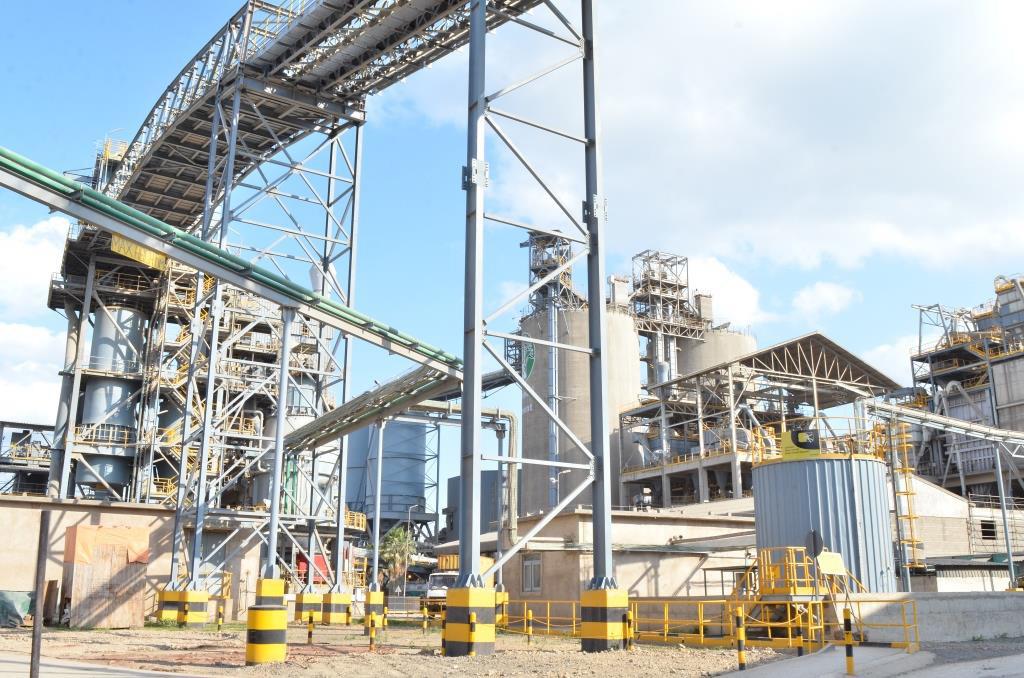
Mr Hassani pointed out that in line with the Holcim Group targets of having net zero emissions in its operations, Bamburi Cement has made great strides in reducing its carbon footprint. “Within the country, Bamburi Cement is the only cement company that has started carbon footprint tracking for cement production and thereby putting in place initiatives that reduce its carbon footprint,” he noted, adding that improving Bamburi’s Thermal Substitution Rate (TSR) continues to be part of its drive towards its net zero ambitions.
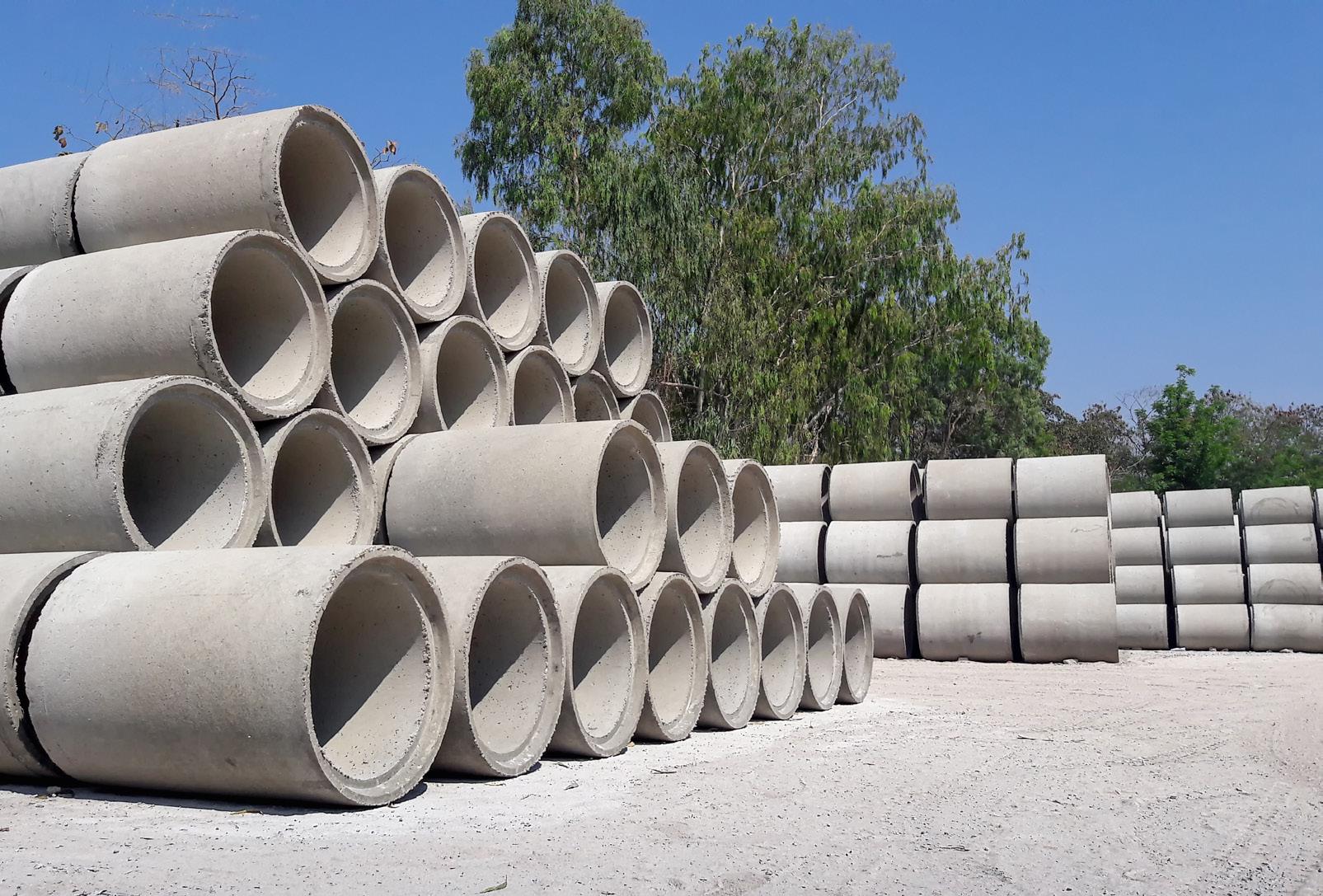
FIRM FOOTING
In the post-pandemic environment, the company continues to do well, with its performance reflecting robust cost management through various cost initiatives and operational efficiencies, as well as the continued economic recovery from the impact of the Covid-19 pandemic in the construction sector.
In mid-2022, Bamburi Cement Group defied the economic odds to record marginal growth
in revenue in the face of high inflation, increased fuel prices as well as increased cost of inputs.
Mr Seddiq Hassani commented: “We started the first quarter on positive volume and price performance, emerging resilient from the last two years which have taught us adaptability and operational efficiency.”
“As the cost of input raw materials continues to rise rapidly, we will continue implementing all cost-saving initiatives, while sustaining our commitment towards innovation aimed at achieving better returns for our shareholders, as well as gradually embarking on the switch to green solar energy as part of our efforts to contribute to the group’s net zero goals.”
CLASSIC LIFTS, A LARGE INDEPENDENT UK-WIDE PROVIDER OF PROFESSIONAL LIFT MAINTENANCE, REPAIRS, MODERNISATIONS, AND NEW INSTALLATIONS IS LOOKING TO INCREASE ITS GEOGRAPHICAL COVERAGE.
EXPERTS IN ELEVATION
PROJECT MANAGED
BY: ALICE YOUNGClassic Lifts Ltd. was established in 1990 and is celebrating its 32 years in business by going from strength to strength. From a once small local company, the business has grown to a seven-branch £30 million turnover operation, employing 220 people, and is looking to further expand its footprint.
In 2010, the original lift company was acquired by its current management team.
Managing Director Adrian Crane says: “The company has built on its long history in the industry, and thanks to the hard work and dedication of the team the business has expanded significantly over the last decade from a local company to a fast-growing UKwide business. We’ve kept local service provision and excellent customer service at the heart of what we do, with our teams in the Northeast, Yorkshire, Northwest, Midlands, Southwest, London and the Southcoast providing professional lift services to our customers.”
He reflects that their success is down to having a strong team that is both very well placed and very well informed within the lift sector market. He has extensive experience in the field, having joined the lift
industry as an apprentice at the age of 16, and people around him boast a similar background and knowledge.
While the company employs a core team of experienced engineers with a longstanding history in the lift industry, one of Classic Lift’s principles is to invest in people and apprenticeships. Bringing new employees and engineers through from an early ageas well as providing ongoing training to its existing staff - provides the best possible service for its customers and helps ensure the future of UK lift engineering.
“I would say the core competencies of our people have been the key to our success – experience, knowledge and education. And of course, good customers who have helped us to grow; without good customers, there would be no business.”
LOCALISED APPROACH
The company currently maintains approximately 8000 lifts under ongoing service contracts with customers ranging from household name retail brands, international hotel groups, facility management organisations, schools, offices, hospitals and universities to smaller nursing homes, residential developments, and commercial facilities.
Mr Crane adds that Classic Lifts installs or performs major modernisation on approximately 220 lifts per year using highquality, specification-driven, open protocol equipment from its network of long-established and partnering manufacturers.
“Unlike some multinational companies which perhaps tend to have a less personalised and less localised approach to customers, we do the opposite, hence our regional branch network. We work closely with our customers with local people within the local vicinity and build customer relationships rather than just providing a service. That is one of our key strengths.”
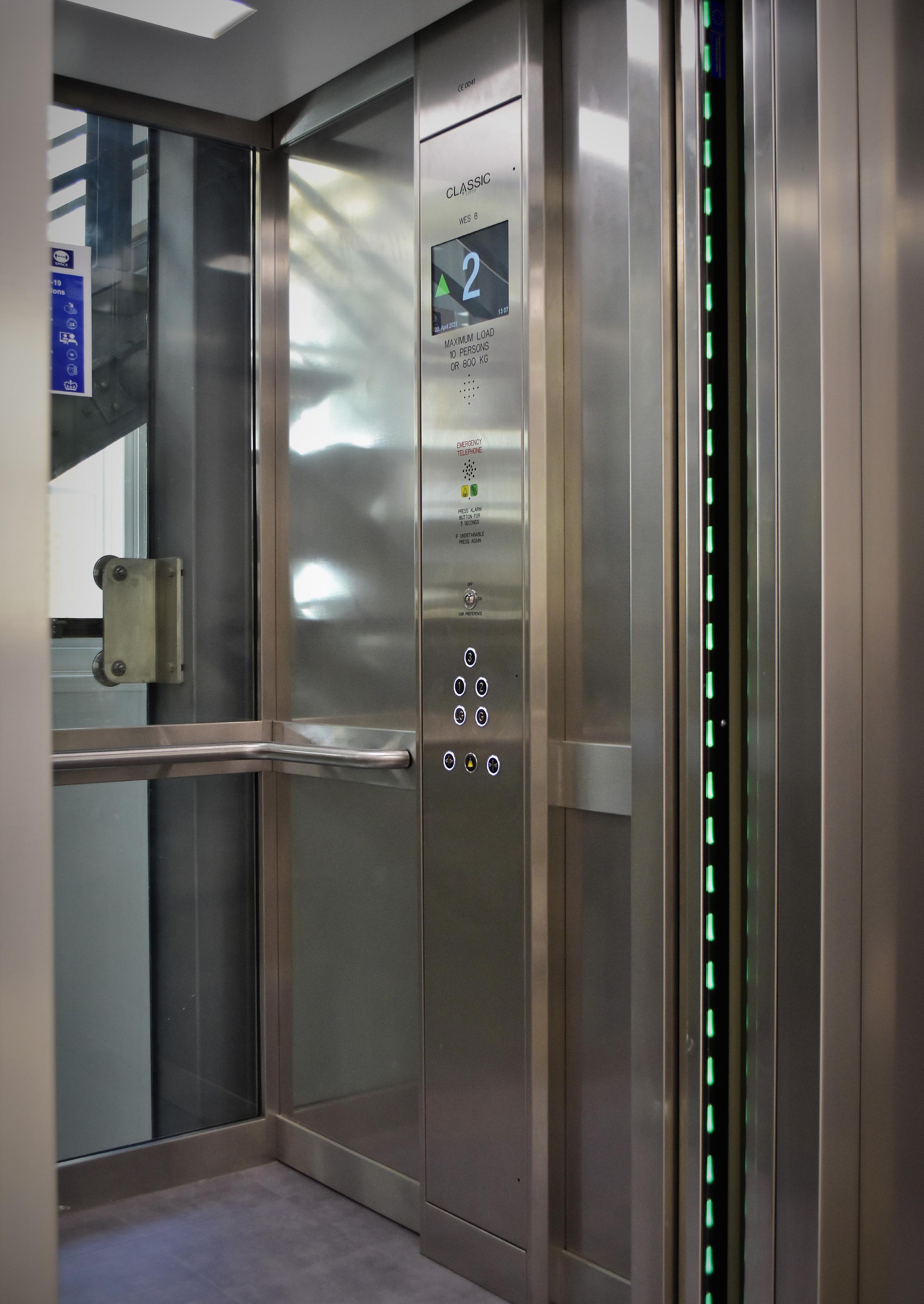
The same personalised approach is applied to the company’s suppliers who have helped Classic Lifts to grow. “Some key suppliers have worked with us for many years, such as Kollmorgen, DAC, Wittur, New Lift and MP Lifts, and we have excellent relationships with them. If there is a problem with the transport of material, for example, we can talk with the suppliers and resolve it together. There will always be problems in the industry, but it is how people respond to those problems that is important. It’s that response that helps us deliver excellent customer service.”
INVISIBLE YET INDISPENSABLE
While lifts get, as a rule, very little attention from the general public who take their safety for granted and use them without a second thought, lifts are the very centre of attention for Mr Crane and his team.
“Our maintenance routine is generally tailored to the lift itself, depending on its usage, type, age and the environment it’s in. Some buildings such as hospitals, hotels and similar require lift maintenance every month.”
He notes that one of Classic Lift’s specialities is the ability to work on highly specialised projects.

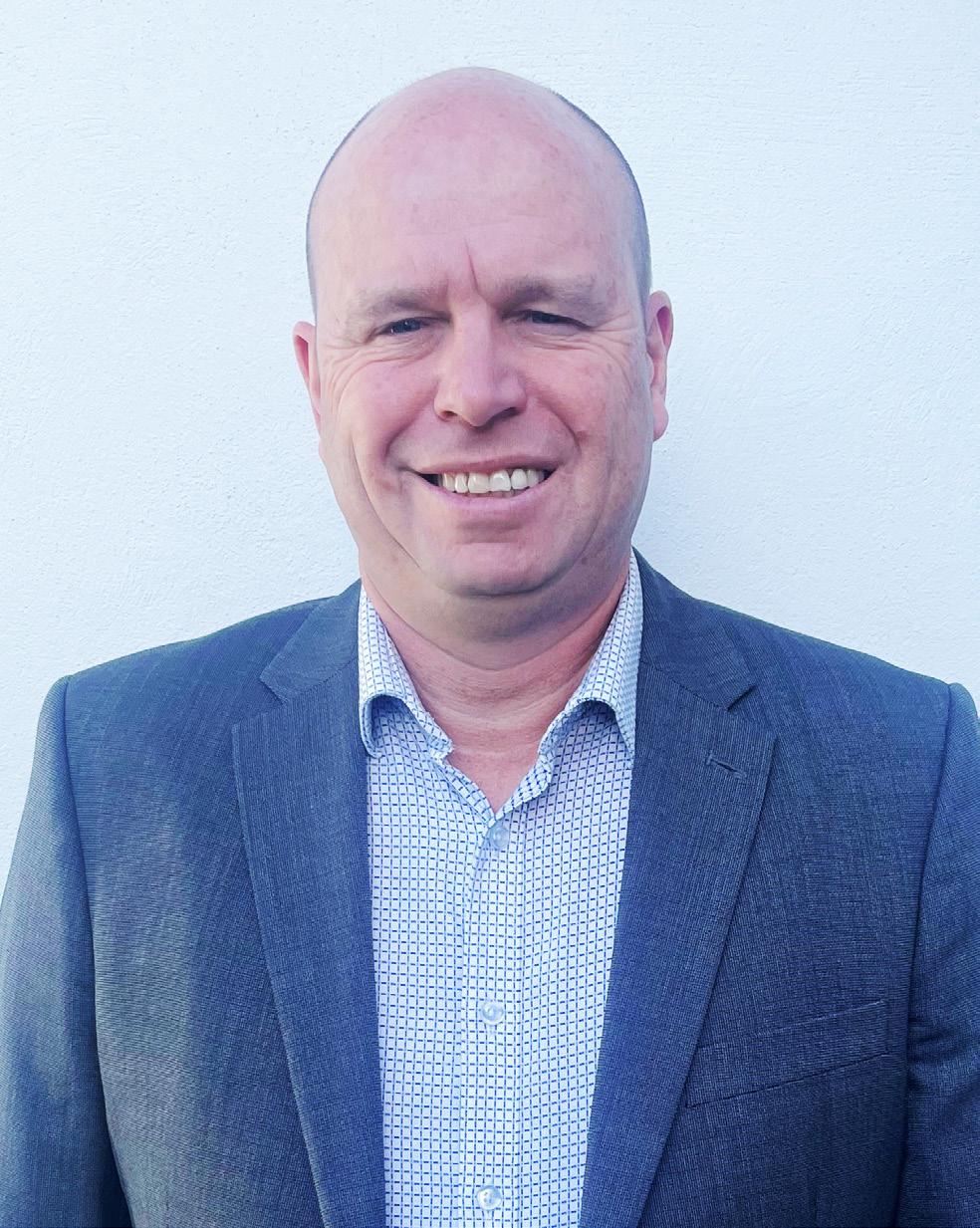
“The large multinationals tend to rely on standard products being installed in new buildings. But we’d look at a lift shaft that may be an odd shape or a building that may be difficult to access and work with our customer and a consulting engineer to devise a specific solution.”
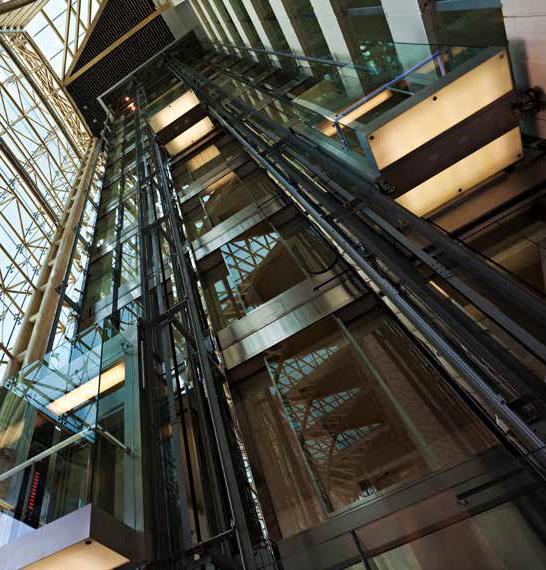
Examples of Classic Lift’s projects are numerous and varied and include both traditional and modern structures in prestigious locations. For example, Classic Lifts has worked with The Royal Opera House for 10 years as their maintenance and service provider, won a contract for a modernisation package for the two specialist lifts in the 146m high Towers of the Humber Bridge, as well as for major refurbishment of 10 lifts at Barnsley hospital.
“To name some ongoing projects, Classic Lifts has been responsible for providing lift maintenance at One Strand, London, a prestigious office building located in the heart of London and is part way through a major modernisation of all 11 lifts on site. We have also recently completed modernisations of lifts in Sheffield Children’s Hospital, another large, prestigious project,” says Mr Crane.
ENHANCED LOCAL COVERAGE
That approach has clearly worked very well for Classic Lifts, which has just completed its 4th acquisition in the last 12 years, in line with its expansionist spirit. The purchase of Stour Lifts Ltd. completed in August 2022 is the company’s latest move to accelerate Classic Lifts’ growth strategy for the UK and extend its regional coverage to provide enhanced customer service.
Mr Crane says: “All our acquisitions, including this last one, have been very friendly. Stour, based on the south coast near Bournemouth, worked on behalf of Classic Lifts providing local service and maintenance in a partnering subcontractor arrangement, so we knew them very well over a long period of time.
They have very similar values towards investment in people and their relationships with their customers and suppliers, and their location fits in very well to the Classic Lift expansion strategy.”
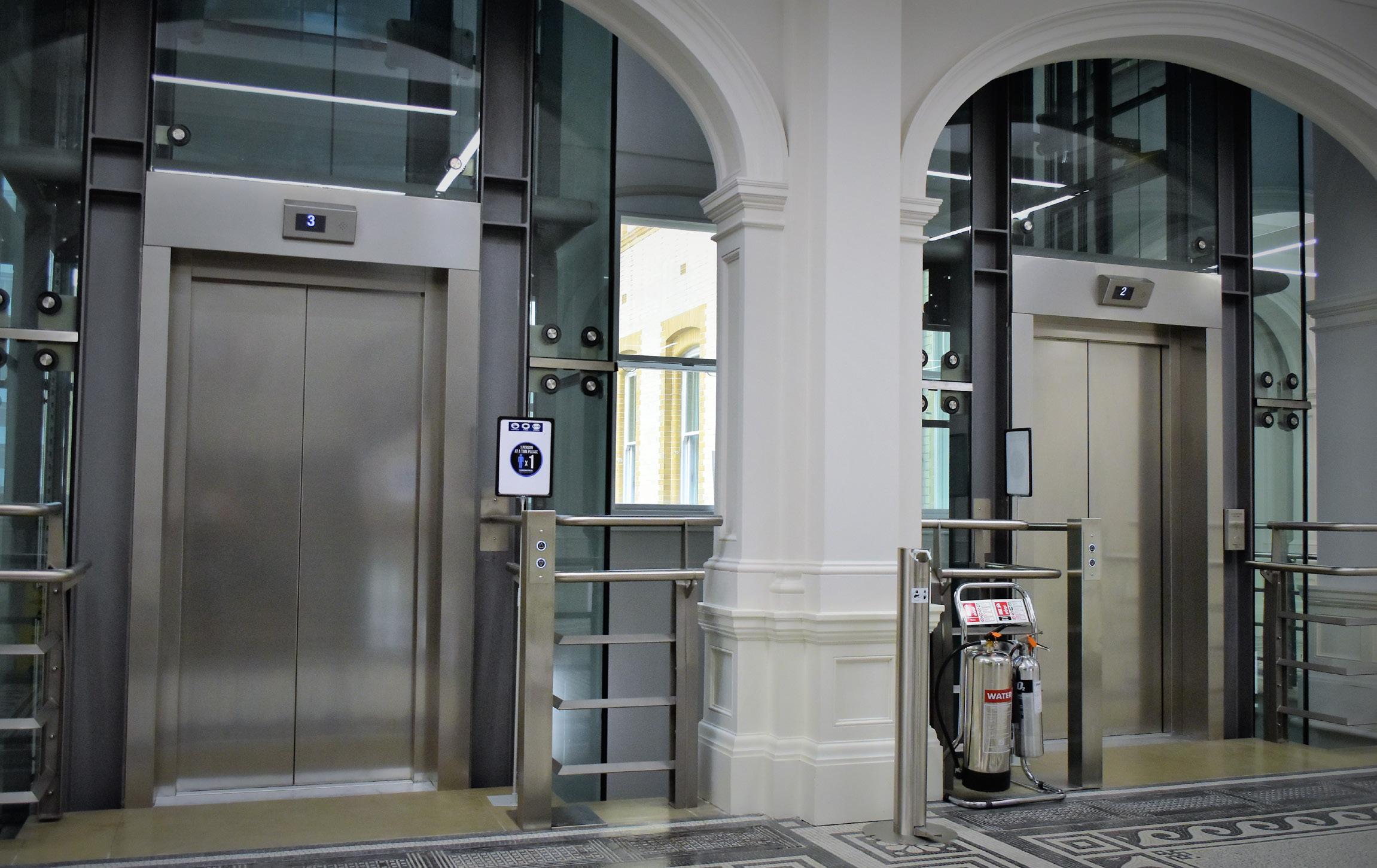
In conclusion, he affirms that enhancement of local coverage will remain an important objective, so potential future acquisitions are in the pipeline. Fast, expert response, provided locally by local people, will be the basis of the company’s further development.
“We take pride in providing a high level of customer service, a fast response, expertise, integrity, and value for money. This is done by the company being owner-managed, meaning that the management and staff are approachable, informed, professional and committed. We believe this ethos and openness will allow Classic Lifts Ltd. to remain a sustainable business for future generations.”
“We’ve worked on some unusual buildings requiring highly customised solutions.”
TRANSFORMING BUSINESS, AND TECHNOLOGY
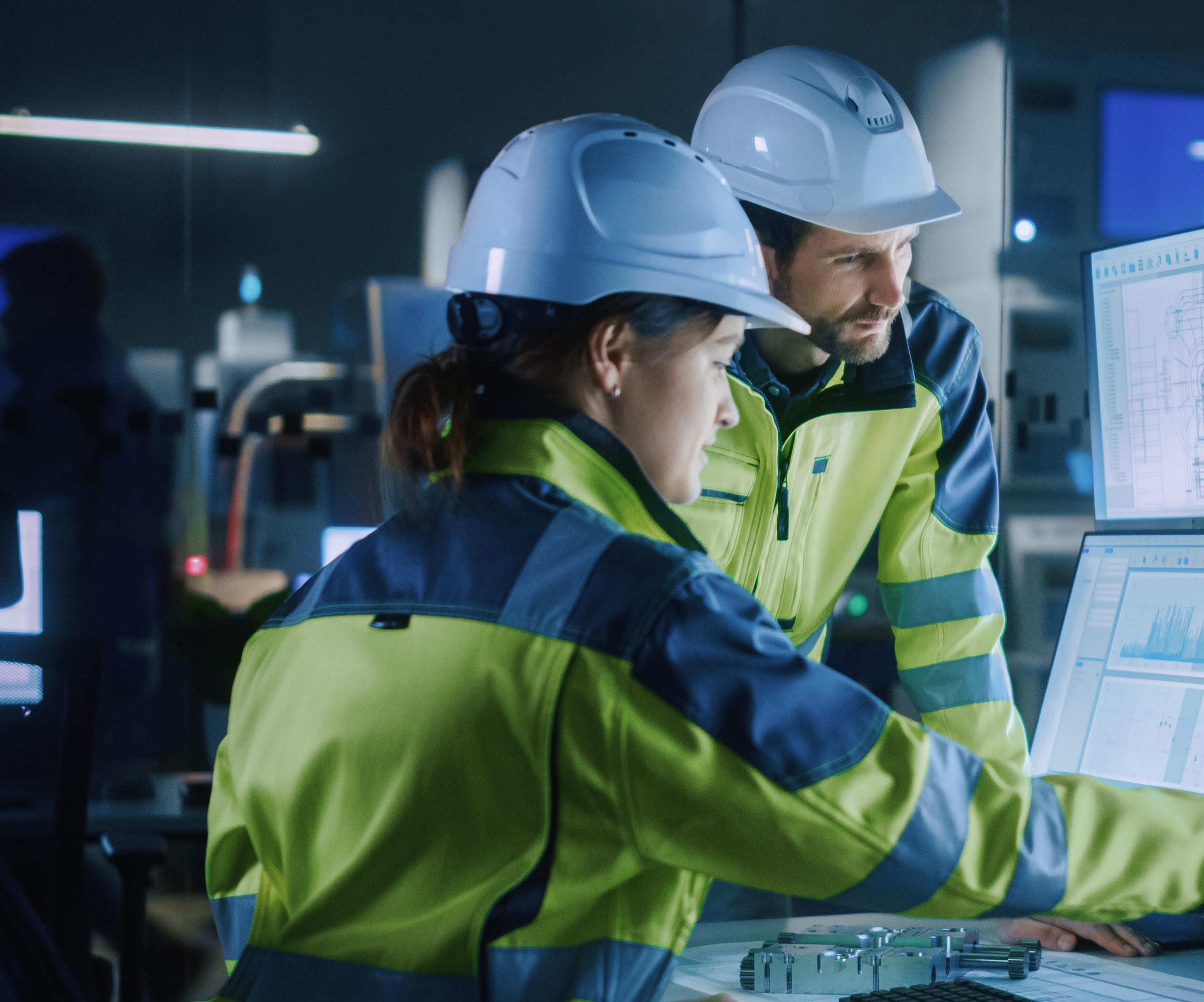
PROJECT
MANAGED BY: LIAM PYWELLFor nearly 40 years ATS Global has been operating as a global system integrator working in the automation and control arena, but in the last decade, the company has been undergoing an evolution into a complete industrial software solutions provider, bringing them into the Industrial IT domain. The firm operates in 26 countries, with each branch of the company taking responsibility for its development plans and execution, providing industrial OT/IT solutions and know-how to improve and sustain its customers’ operations.
Being a systems integrator with a global presence puts us in a unique position,” says Kevin Partington, CEO of ATS Global. “We are either competing with large IT incumbents who often lack the operational technology knowledge to deliver OT/IT projects, or we are competing with small, very local
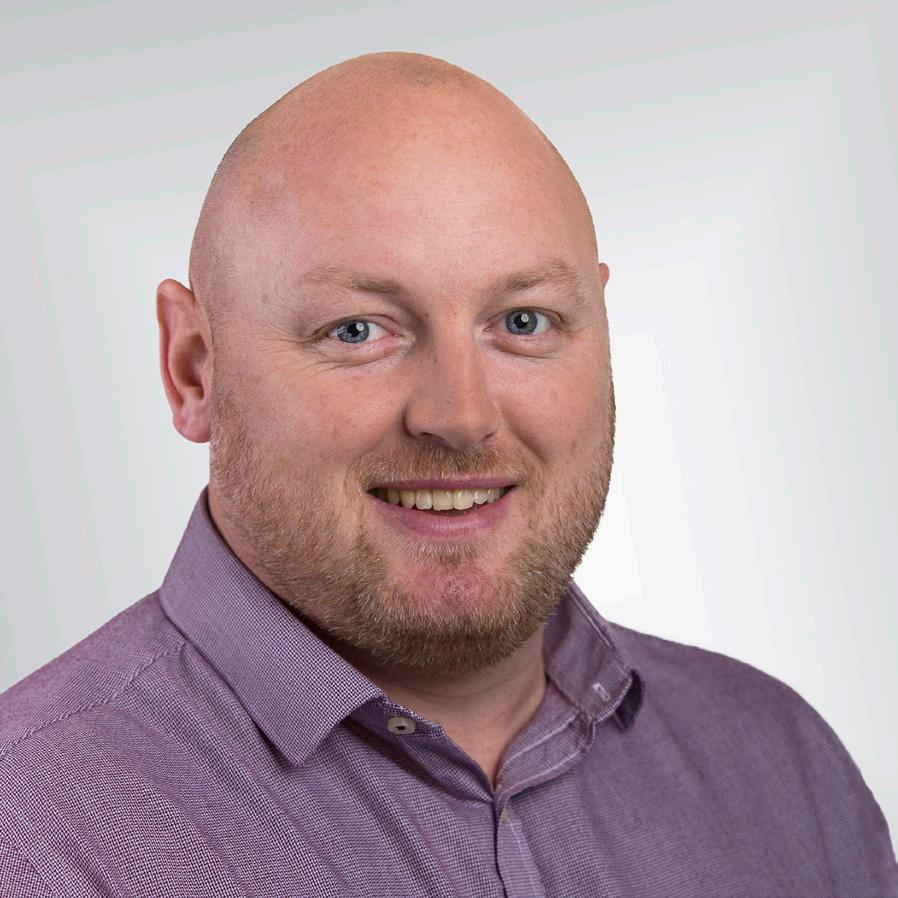

integrators who lack the ability to scale their operations to deliver solutions globally.
ATS Global’s work covers the complete manufacturing closed loop, from the design and simulation of products within the design process, all the way to the physical production of the product and the performance of the facility.
IBASET
DEEP INDUSTRY EXPERIENCE, INNOVATIVE TECHNOLOGIES, PRACTICAL MES, SQM, & MRO SOLUTIONS
iBASEt delivers more than just software applications. We provide the data that drives the intelligence to operate with greater precision. Utilize the iBASEt Digital Operations Suite, powered by Solumina iSeries, to leverage advanced technologies, to expand your digital ecosystem, and drive Industry 4.0 strategies. Combine your iBASEt software solution with our partner and professional services expertise to enable the digital enterprise.
Our three core solutions can be deployed individually or together to digitally transform your manufacturing, quality, and sustainment operations. Whether your goal is to improve one facility or transform an entire enterprise, the iBASEt Digital Suite can get you there.
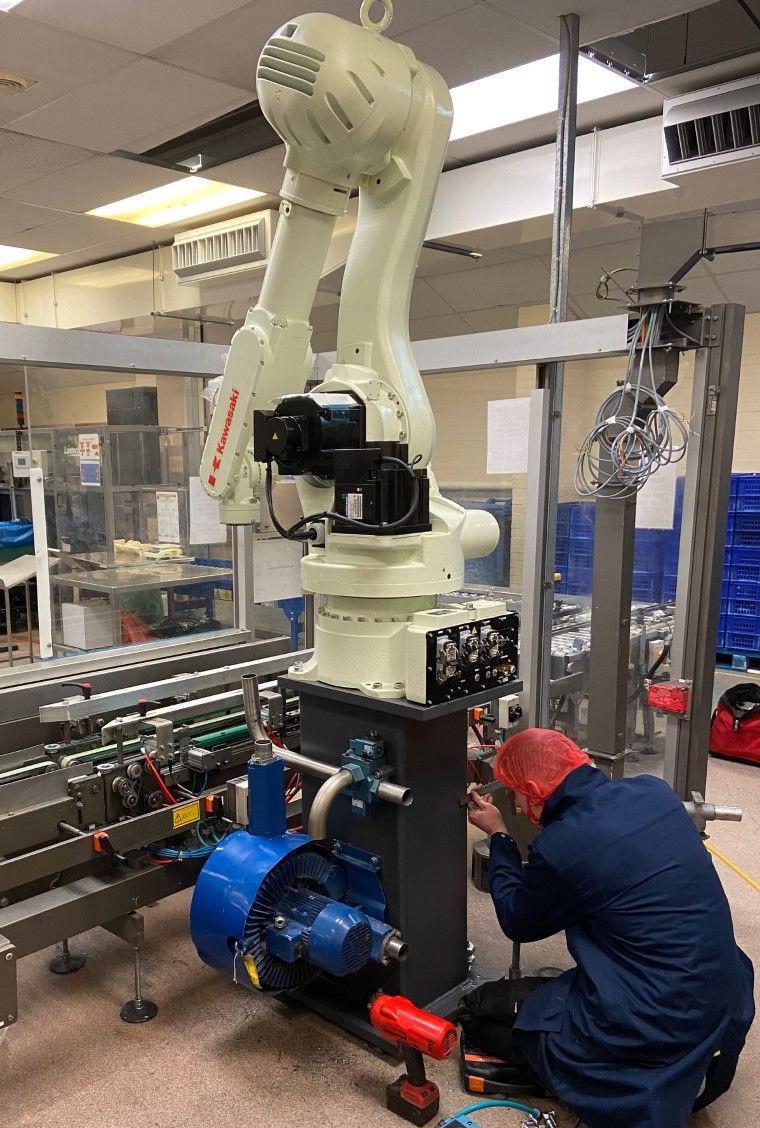

From digital work instructions on the production line to real-time reports in the executive office, a paperless shop floor system breaks down silos and provides the information needed to improve the speed and accuracy of everything a manufacturer does. With a process planning, quality, and maintenance platform, like iBASEt’s Solumina, paperless systems can be extended across the value chain.
A WORLD OF SERVICES TO SIMPLIFY YOUR CHALLENGES
Our track record of world-class implementations provides the experience and knowledge necessary to accelerate your industrial transformation. We will work with you to install and support our solutions anywhere in the world. Make sure you have access to the right data, delivered to the right person, to provide intelligent decision support as part of becoming a completely digital enterprise.
www.ibaset.com
“That means we can answer questions about where a product was made, who made it and when it was made,” Partington points out. “We can assess if it was made the way it was designed, and we can test and measure if it was made to the correct specification. We cover that complete closed loop allowing for feedback and feedforward.”
A NEW CONCEPT
ATS Global’s evolution has continued, with the company’s work in new technologies moving their business model towards a managed services concept. “Customers’ buying behaviours are changing with a desire to contract businesses like ours to deliver outcomes, reducing the focus on the features and functions of our solutions,” says Partington. “That means we are asking how we can deliver more output with fewer people, not because we want to remove people but because we have to be able to increase the pace and scale of our business during a time when there is a war on talent. A key focus has been in the area of intellectual property, building repeatable solutions from our unprecedented industrial OT/IT domain knowledge,” Partington says. “In addition, we are focussing on our business processes to ensure they enable the harvesting of our knowledge across the business, from proposal creation, technical leadership, project management and engineering practices which have seen a number of central teams stand out in our business.”
With their partner products, ATS Global is also looking at the creation and extraction of secondary IP, in places where the company does not own the product but can offer a method of rapid deployment which is unique to them.
ATTRACT, RECRUIT, DEVELOP, RETAIN
Intellectual property is born out of the knowledge of the people you employ, and as a professional service organisation, ATS Global is at the cutting edge of the recruitment challenges now common in nearly every industry sector. “With the continued growth of the digital age, our people have many choices on where they can work, which increases the challenge of attracting and recruiting talent but also places a challenge to our business on retaining them. Acquiring and retaining people is always a challenge,” Partington tells us. Responding to that challenge is a top priority for Partington. “We have four clear agendas. We carry an ‘attract, recruit, develop and retain’ strategy. Our Chief People Officer is responsible for those four key areas using a combination of methods,” he tells us. “We use traditional social media and website channels, and we are well-recognised as an employer with a strong culture and values around
lifelong learning and benefits.”
When it comes to roles that require very specific expertise, such as senior engineer roles, the firm takes an even more precise approach. “We have to consider carefully up front how to bring those people into the business,” Partington says. “We have a good internal referral scheme. It is a large industry, but people know colleagues and often want to bring excolleagues to ATS. There is no one solution that offers a golden ticket, so we have to continually work hard to find ways of finding and retaining talent. As a global business, we have a variety of cultures in three time zones, working in eight languages, further complicated by the ongoing geopolitical uncertainty in a number of regions which requires us to think globally but act locally.”
PROCESS BEFORE TECHNOLOGY
Of course, another attraction that ATS Global offers recruits is the chance to work in one of the most exciting sectors of the
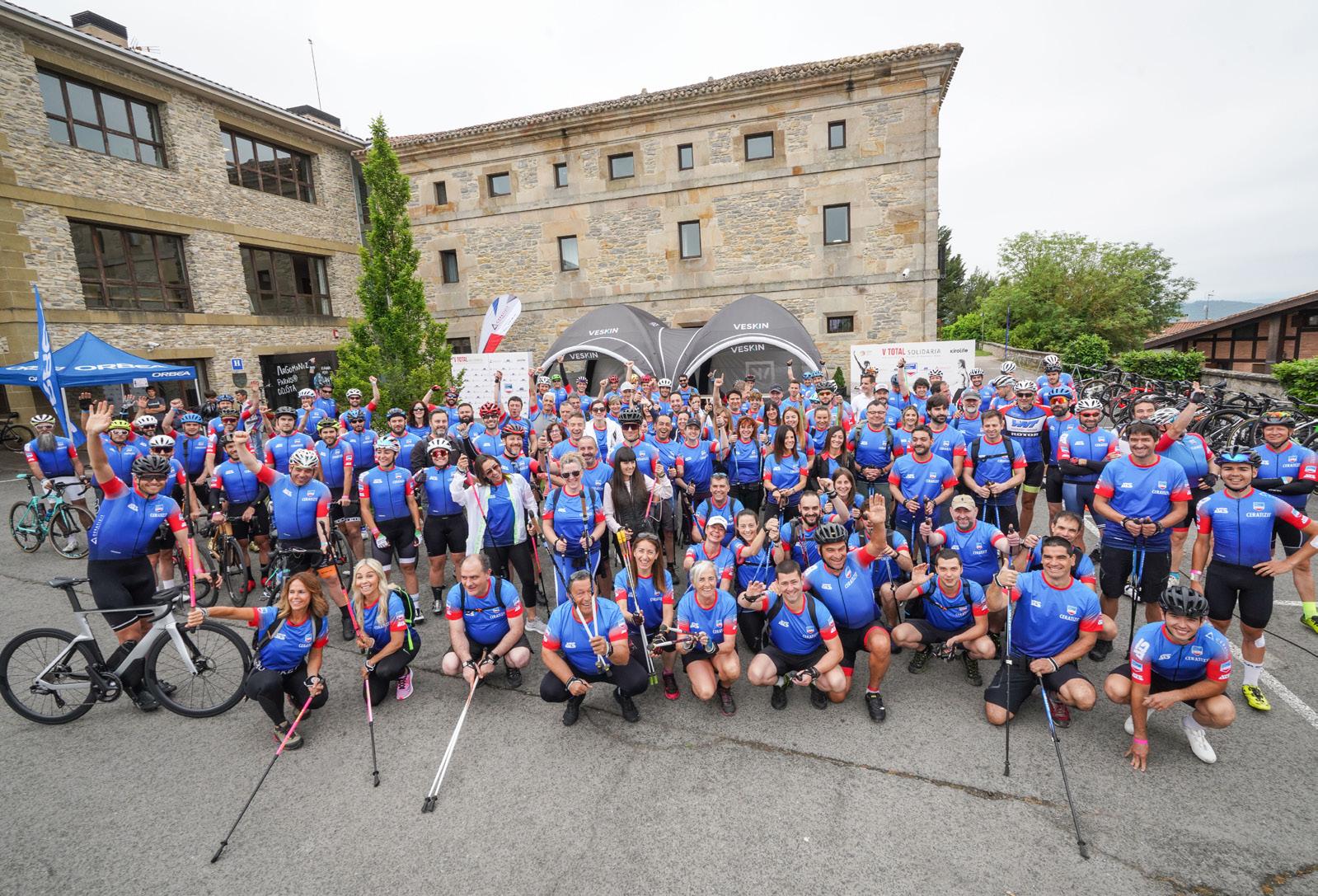
current technology revolution. But Partington cautions against getting swept up by hype, insisting on practical technology applications.
“All too often we see customers trying to make technology fit their business with poor use cases which fail to offer an ROI because they feel pressured to digitalise something,” Partington argues.
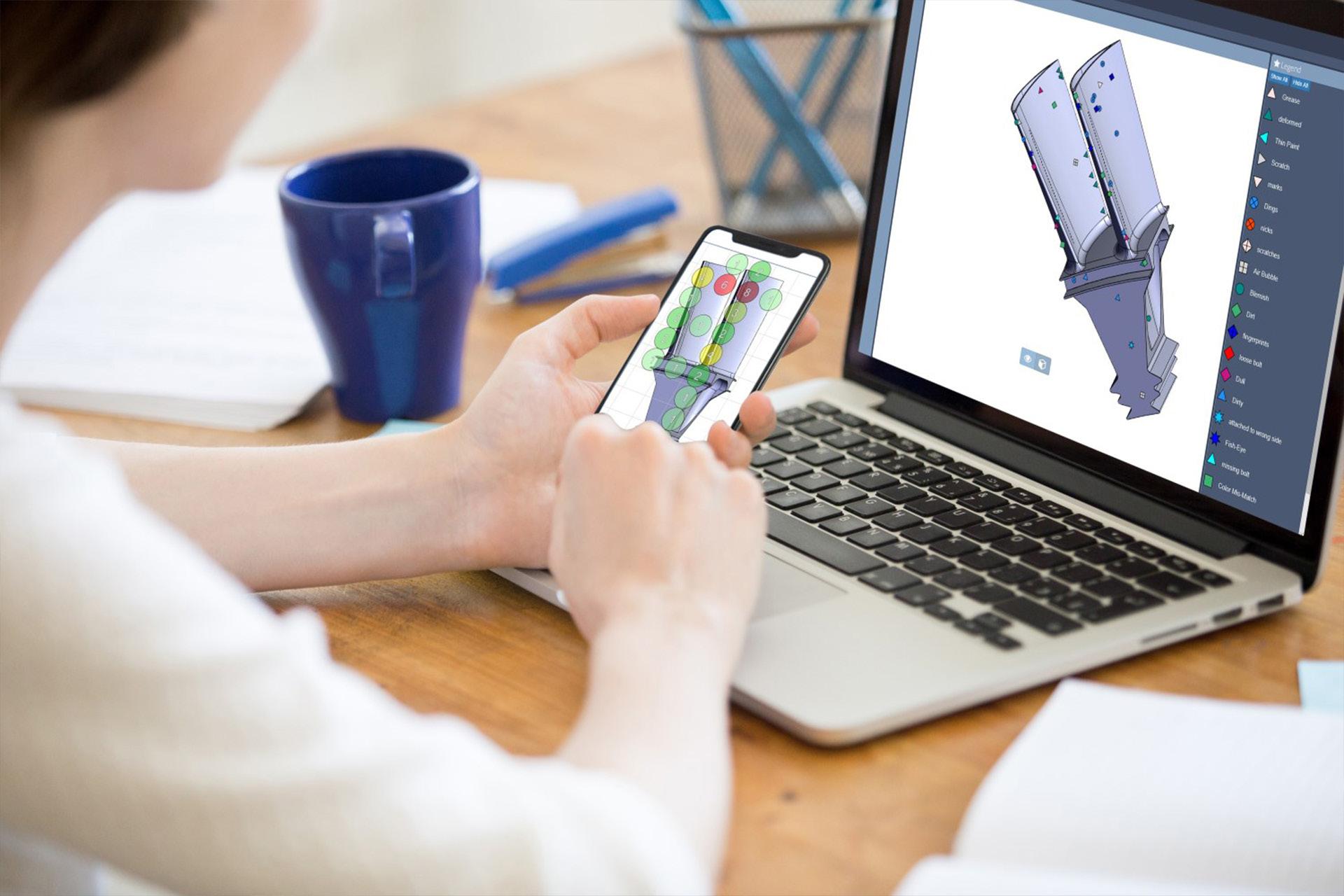
“Virtual Reality and 3D printing are good examples of where we have seen customers make investments or a specific use case but with no mid-term benefit, often seeing these technologies decommissioned in a short space of time. Manufacturers need to take an iterative approach to consume technology, first focusing on capturing data and making information visible to the right people at the right time to make informed decisions. To get value from tools like virtual
reality and machine learning, you need good data capture and reporting.”
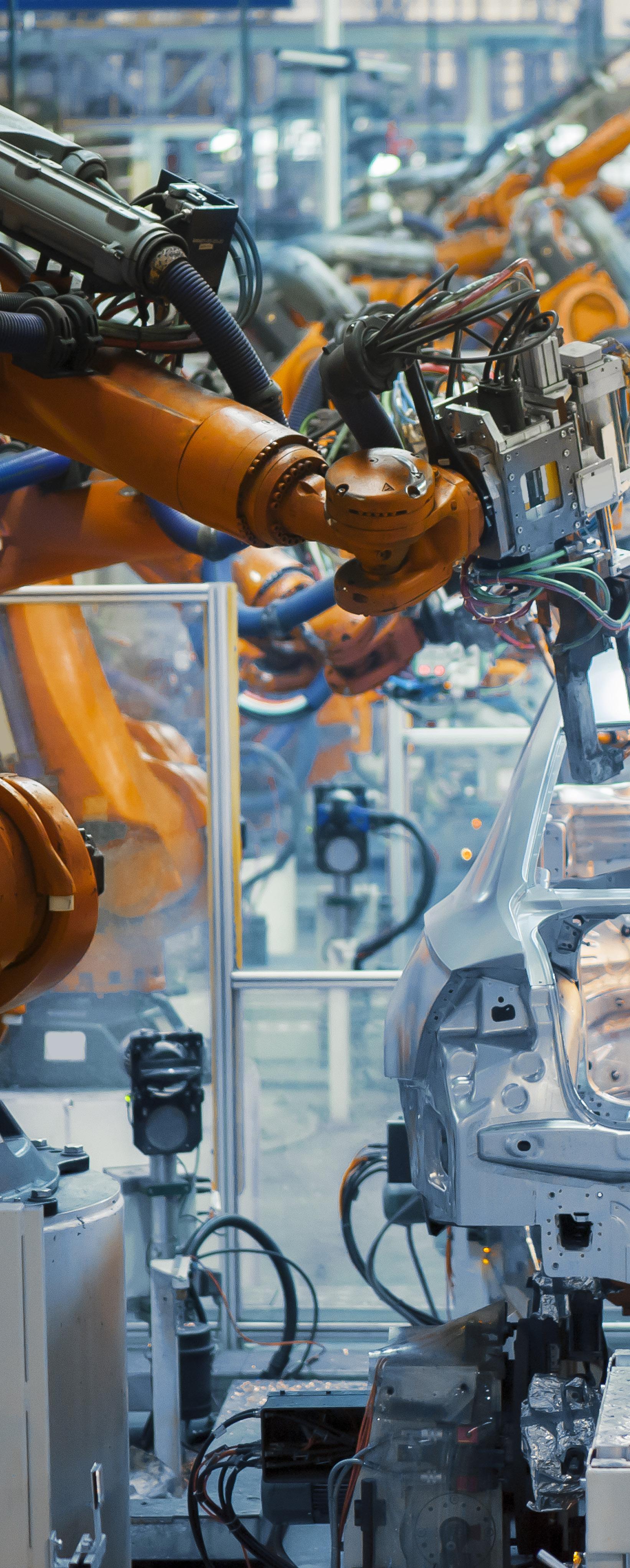
ATS’s approach is to discourage clients from acquiring tech for its own sake, instead looking at the needs that underlie it.
“We focus on the people, process and structure of our clients to ensure the right use of technology, making our work more of a business transformation project than that of a technology project, and increasing the customers’ ability to consume technology and realise the benefits of their investment,” Partington says.
“You don’t want one or two use cases just to justify the Capex spend. The technology is readily available, and customers are more educated on available solutions than ever due to the internet. This means all too often we are shown poor deployments which
place adequate technology on top of poor processes.” It is an approach Partington believes will give ATS Global a promising future.
“Manufacturing has lagged other sectors (retail, hospitality, finance, etc) in the adoption of technology however since the pandemic we are seeing more emphasis being placed on digital transformation from our industrial clients to de-risk parts of their business and optimise operations,” Partington says.
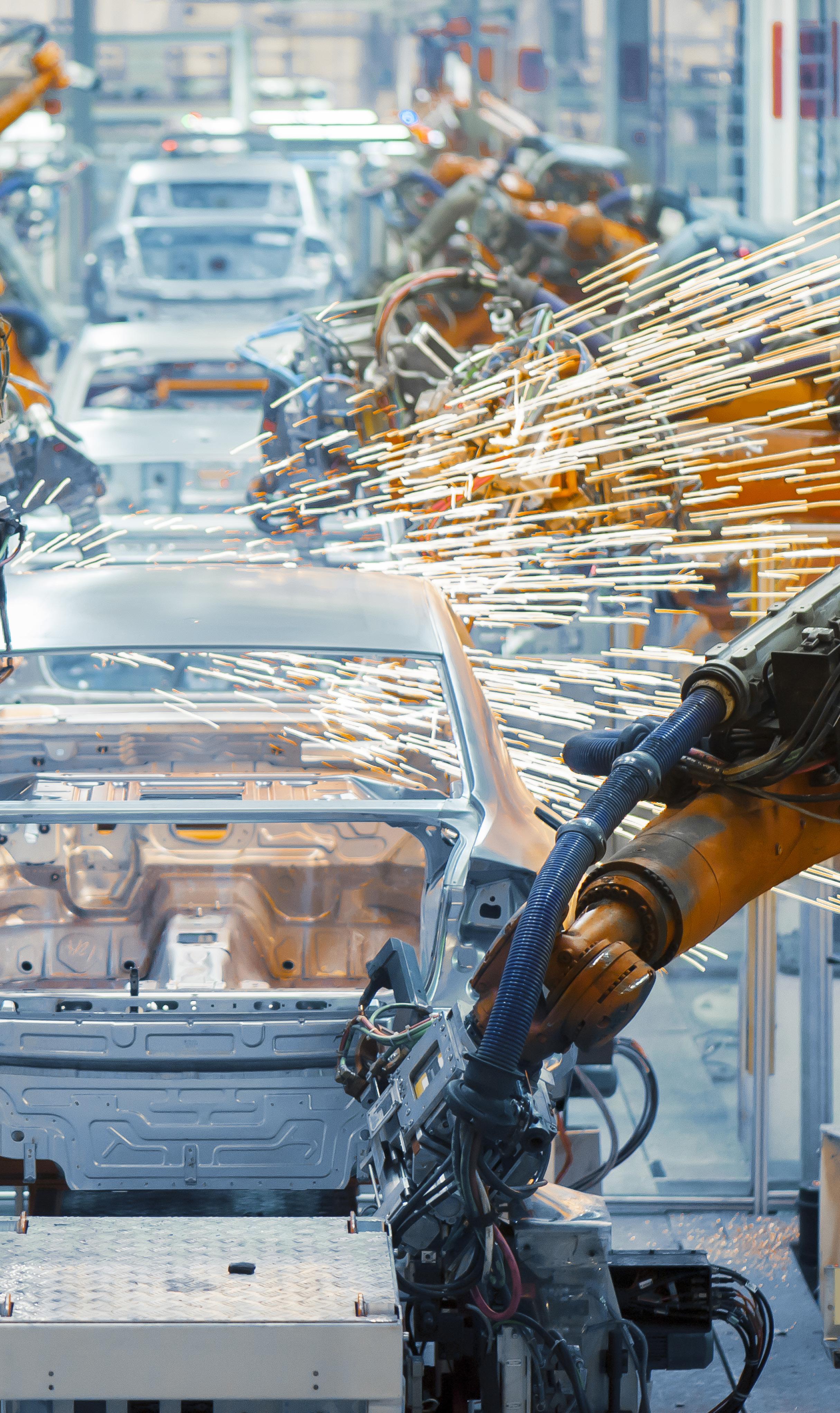
“Cloud and SaaS are becoming more accepted by manufacturers which are challenging our traditional operational technology activities. A typical IT asset is refreshed every three to five years, whereas operational technology assets can be deployed for two or three.”
Going forward Partington believes their focus will have to turn from complex engineering to the delivery of faster, scalable, and more “repeatable solutions”.
“The question is always can we re-use and repeat what we do for customers?” Partington tells us. “Can we bring down barriers to consuming technology? It is a truism that managers overestimate what they can do in 12 months, but in our experience, they underestimate what they can do in 12 years.”
“WE FOCUS ON THE PEOPLE, PROCESS AND STRUCTURE OF OUR CLIENTS TO ENSURE THE RIGHT USE OF TECHNOLOGY.”
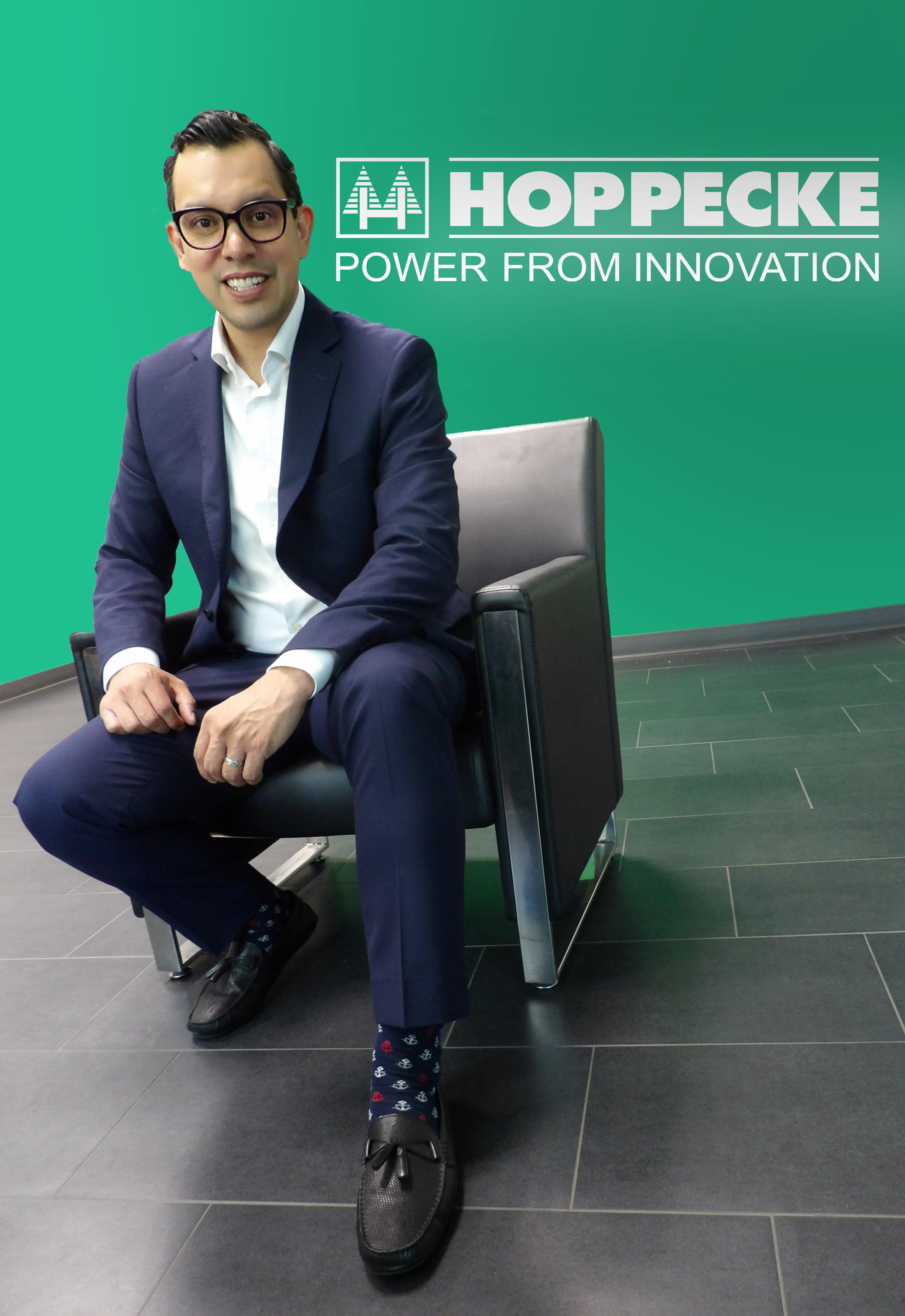 Josue Chavez, President, & Managing Director, HOPPECKE North America.
Josue Chavez, President, & Managing Director, HOPPECKE North America.
WE LEARN HOW HOPPECKE NORTH AMERICA IS BRINGING FAMILY BUSINESS VALUES TO A MULTINATIONAL COMPANY.
A GLOBAL FAMILY
PROJECT MANAGED
HOPPECKE North America is a multinational family business that focuses on enabling electric power for everyone, everywhere, with products and services across three sectors: (1) utilities (including oil and gas, nuclear and gas power plants, and substations); (2) data (including uninterrupted power supply in data centres and telecommunications companies); and (3) railways (auxiliary, traction, and railroad signals batteries).
Our unique value proposition is based on three words: family, engineering, and customers,” says Josue Chavez, HOPPECKE’s President, and Managing Director of North America. “Healthy families care about what, how and why they do certain things. We translate that into our daily business. For example, we care about
the communications we have among team members and with our customers, the topics we discuss, and how we engage in those conversations.
“Placing an emphasis on communication enables our team members to make our supply chain flexible to meet customer expectations.”
Engineering, meanwhile, means HOPPECKE focuses its efforts on developing technical capabilities across the value chain from product design, and production to marketing, and customer service. Also, it means that HOPPECKE offers technical advice to its customers to find the best solutions.
HOPPECKE’S CORE IS THE CUSTOMER
Finally, the customer is at the centre of everything HOPPECKE does.
“We see customers as members of our family. We don’t just build on transactions, but we also take care of them,” Chavez tells us. “We have customers that we have been doing business with for 37
BY: HARRISON MITCHELLyears, and we have consistently maintained, and cultivated those relationships throughout that time. We take pride that the leading companies in the technology, utilities, and railway sector, with very high standards, are part of our family.”
Meeting the needs of companies with such high standards comes with challenges, especially for a company operating on the international stage.
“Our international Headquarters was established in 1927 in Germany. We have been in North America for 37 years, and that means we have cultivated a hybrid of European and North American business culture to enable growth,” Chavez points out. “How do you build a multinational company with a significant presence in North America? How do you manage the supply chain, attract, and develop talent, and service customers? We have been wrestling and applying lessons learned around these challenges for 37 years.”
MORENG METAL PRODUCTS, INC.
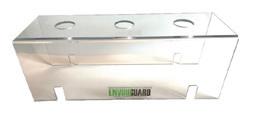

A fourth-generation, family-owned business, Moreng Metal Products has been around for well over a century.
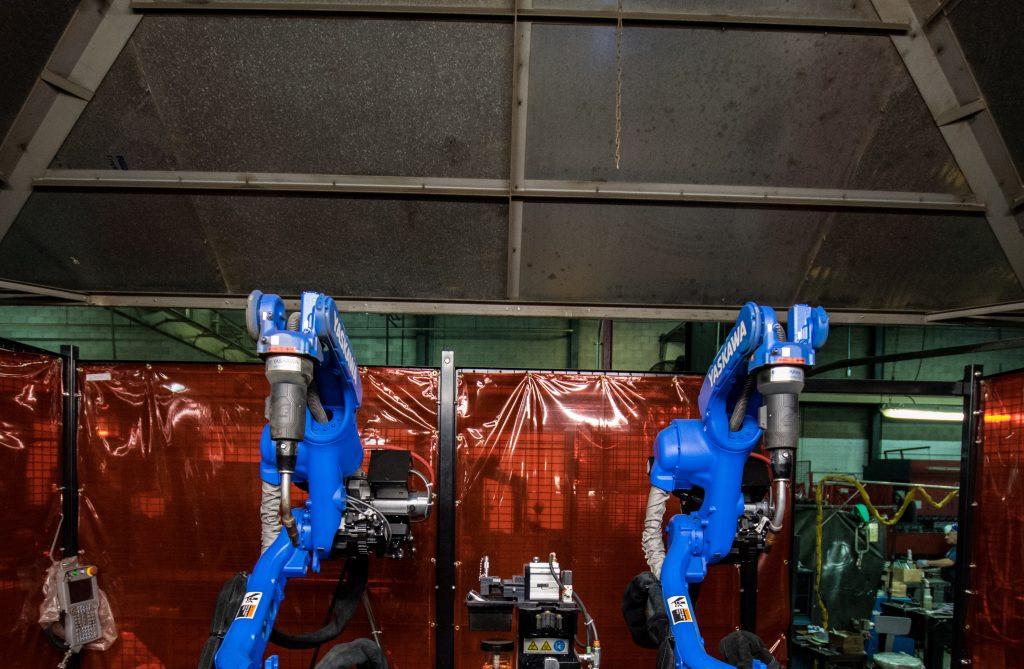
Our customers feel confident in choosing Moreng Metal Products, an ISO 9001:2015 certified company, for their precision sheet-metal fabrication needs because we’re staunchly committed to delivering outstanding results.

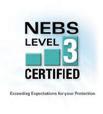

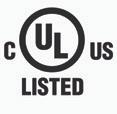

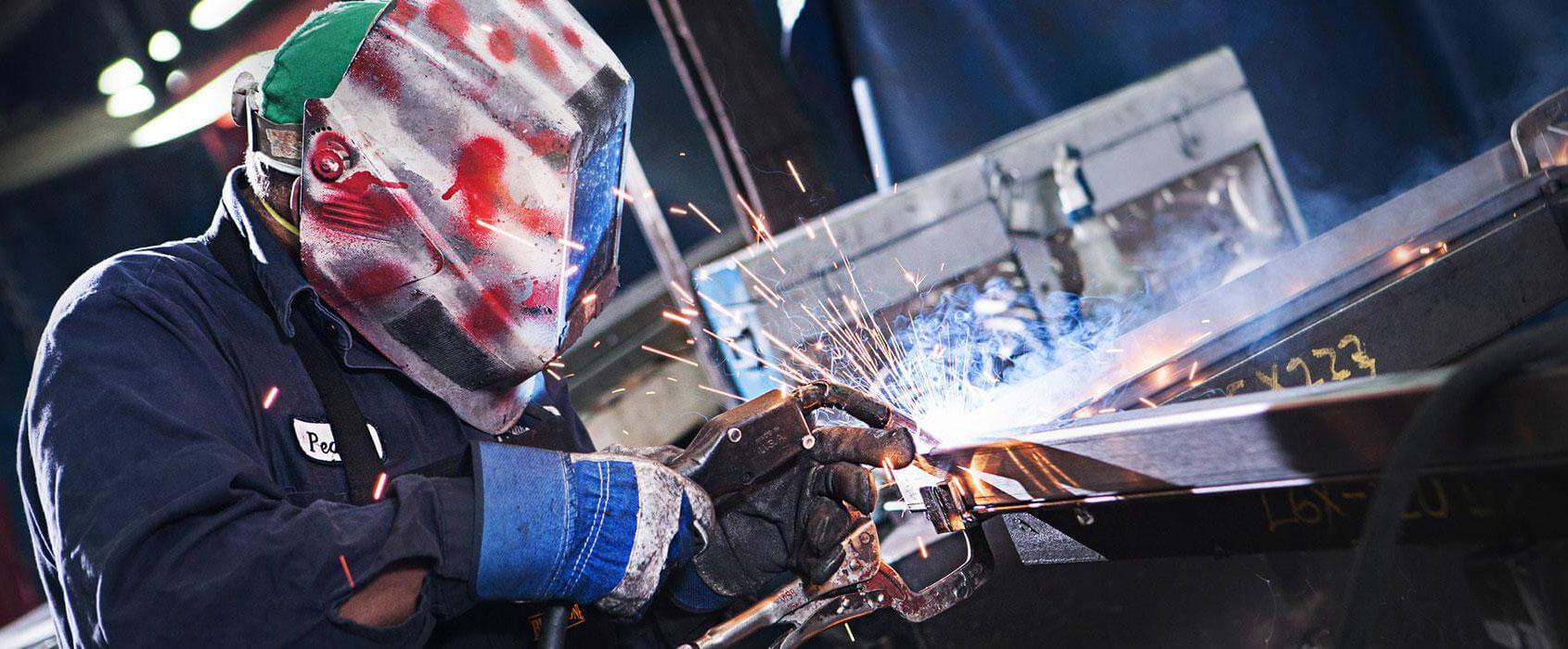
We offer comprehensive, end-to-end manufacturing services, leveraging an extensive range of advanced manufacturing capabilities to produce large quantities of components as well as highly specialized custom products.

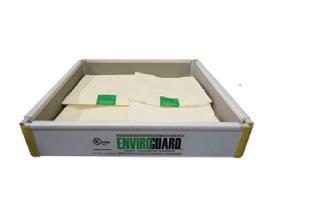
We perform our work with speed and precision and deliver products of exceptional quality, while at the same time, acting as stewards of the environment and contributing to our community.
Over the past decade, we’ve expanded into several new sectors, including renewable energy, data management, and heating and biofuels.
We have also added new capabilities to our service offerings. The addition of a paint line and advanced powder-coating capabilities have helped us win new customers who appreciate our comprehensive, end-to-end manufacturing services. We also added state-of-the-art equipment, including the Amada 2510 NT punch press, Amada LCG 3015 AJ fiber laser, and Amada HG 1003 ARS Automated Bending to our Sheet Metal department and five robotic-welding cells to our Production Welding department, which enable us to perform high-volume work with unmatched speed and precision.
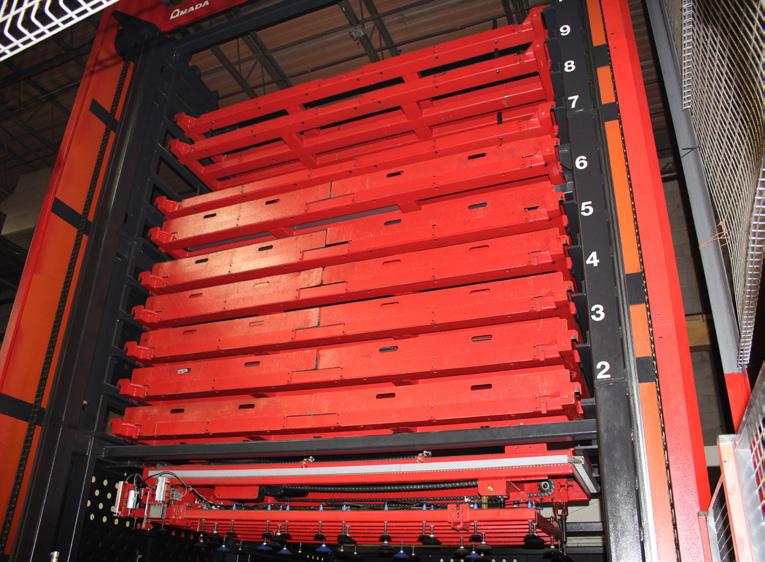
www.MorengMetal.com
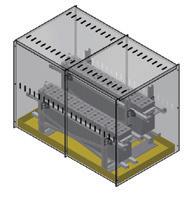


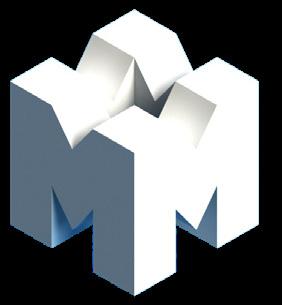
In order to face these challenges successfully, HOPPECKE North America maintains a strong focus on developing its main capabilities, and to do that, it needs to start with talent.
“HOPPECKE believes its potential lies in the character and drive of its employees, and we create value by helping them bring their potential to fruition,” Chavez says. “We focus on attracting, retaining, and developing talent. We take pride in the fact that our key employees have been with us since the beginning. Longevity and loyalty are values we like to cultivate, and that’s part of our solution.”
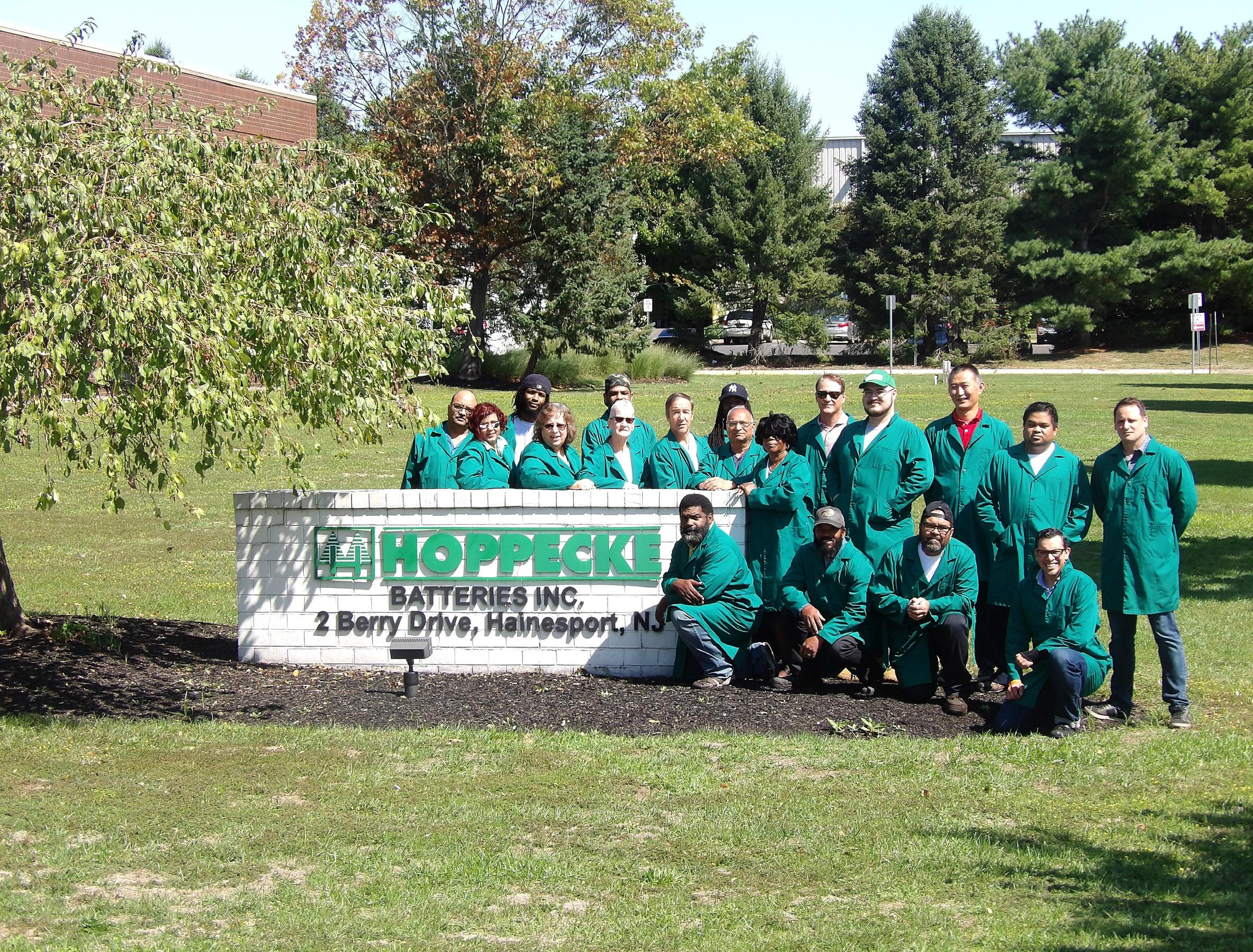
Part of HOPPECKE’s human resource strategy includes building a culture around its value proposition of family, engineering, and customers.
“It is clear in our minds that the people we hire should care about these three words,” Chavez insists. “We look for candidates with strong technical backgrounds, who are customer-centric and are passionate about achieving their goals. We want our employees to have the big picture in mind, whether they are in finance, production, or marketing. They must think about what it takes to serve the customer better.”
It is not just about hiring great talent but retaining it. HOPPECKE is a company that believes in promoting opportunities for its staff to professionally develop themselves.
UNIQUE SELLING POINT IS BASED AROUND THREE WORDS: FAMILY, ENGINEERING, AND CUSTOMER.”
“OUR
“Our employees have the opportunity to partake in international training rotations,” Chavez says. “Getting worldly experience helps bridge cultural gaps between our offices while providing our employees the opportunity to grow personally and professionally.”
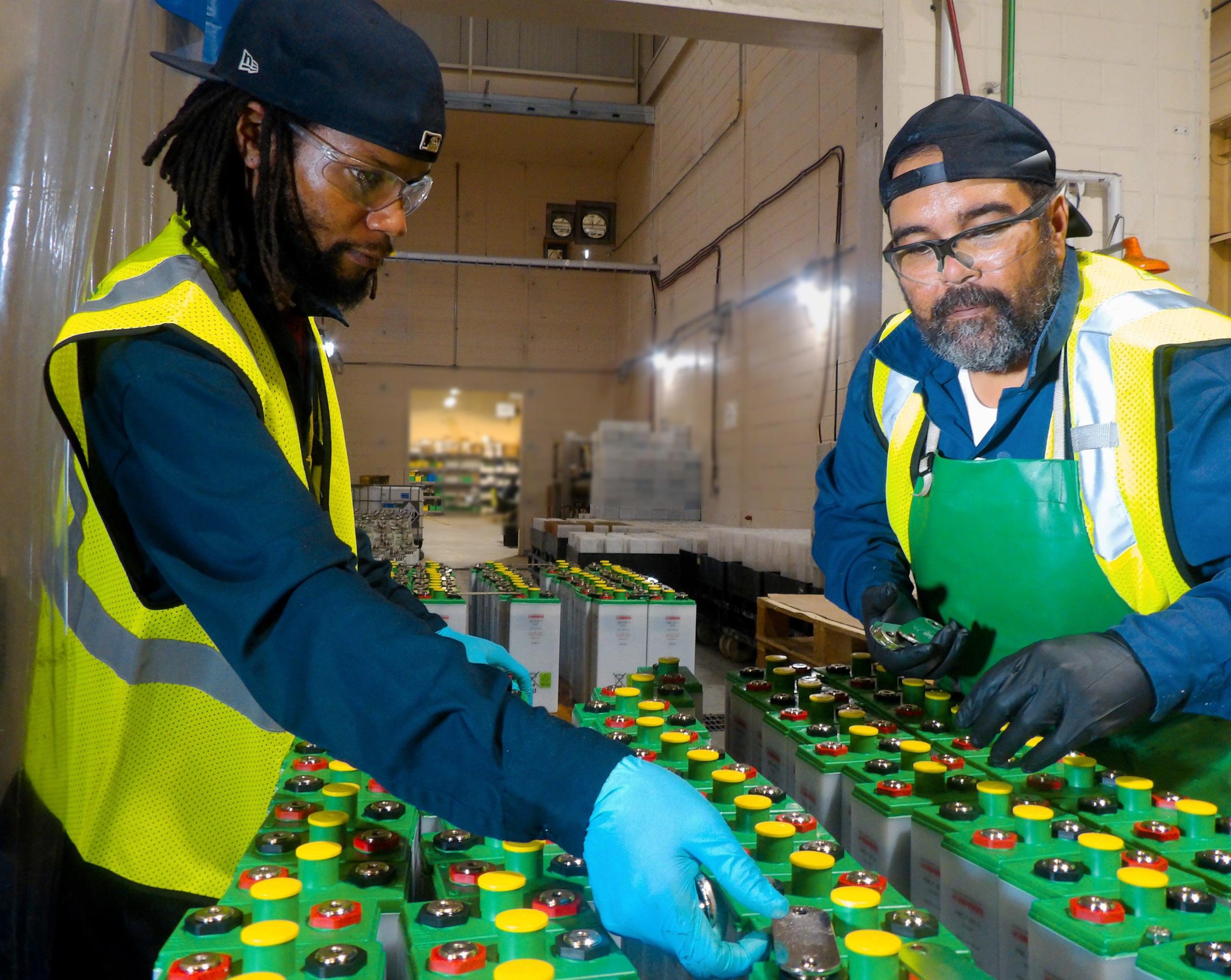
“One of the wonderful things is that people can learn to significantly improve their competencies. We believe employee development plans are an essential part of our human resources strategy.”
HOPPECKE also offers attractive benefits and flexibility, using a hybrid model that allows staff to work from home, or come to the office. Our technical infrastructure encourages colleagues to seamlessly communicate with each other helping to accomplish goals and foster innovation. “We have learned to collaborate to solve business problems across various functions and geographies. This helps us to increase employee’s engagement and therefore retention rates,” Chavez explains.
With top talent in place, all HOPPECKE needs to do is to systematically ensure they have the tools and processes to do their job.
“The international hallmark of German companies such as Siemens, SAP, BMW Group, Adidas, BASF, and others that drive the global economy is extraordinary quality,” Chavez tells us. “We take pride in being part of this club by putting technology, discipline, and talent around key business indicators to drive extraordinary quality and continuous improvement culture.
As well as having open communication, and strong relationships within the company. HOPPECKE also works closely with its partners up and down the supply chain.
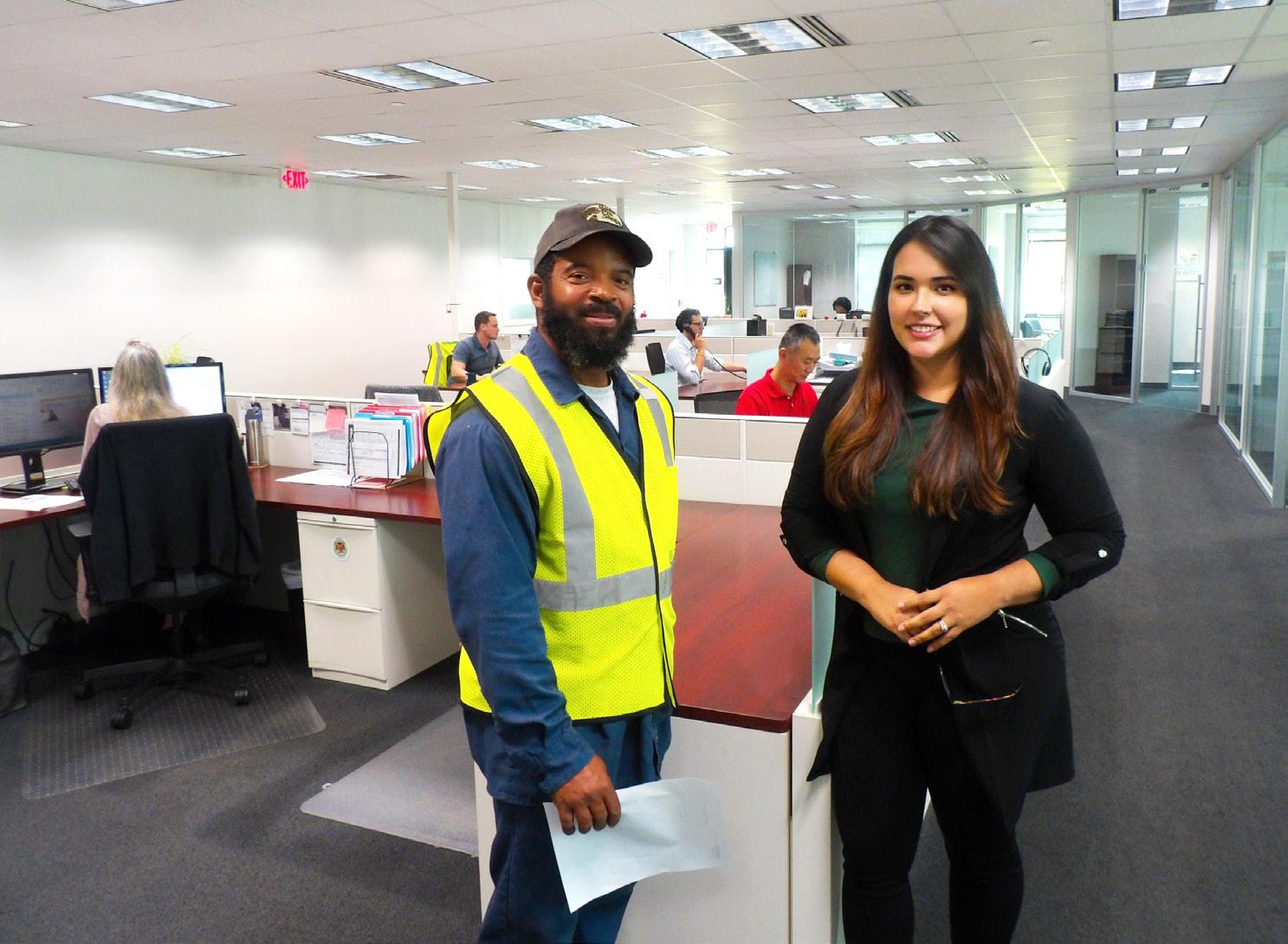
“Our product, by nature, is a component of a larger project (e.g., a rail car or data centre). As our customer needs change or there are fluctuations in the metal market, HOPPECKE’s global network is designed to stay nimble, and meet customer’s expectations”. “Transparency and communication are paramount to make informed decisions regarding supply chain efficiencies.”
ALL IN THE FAMILY
Hoppecke has big plans, not just for the organization itself, but for the battery industry as a whole.
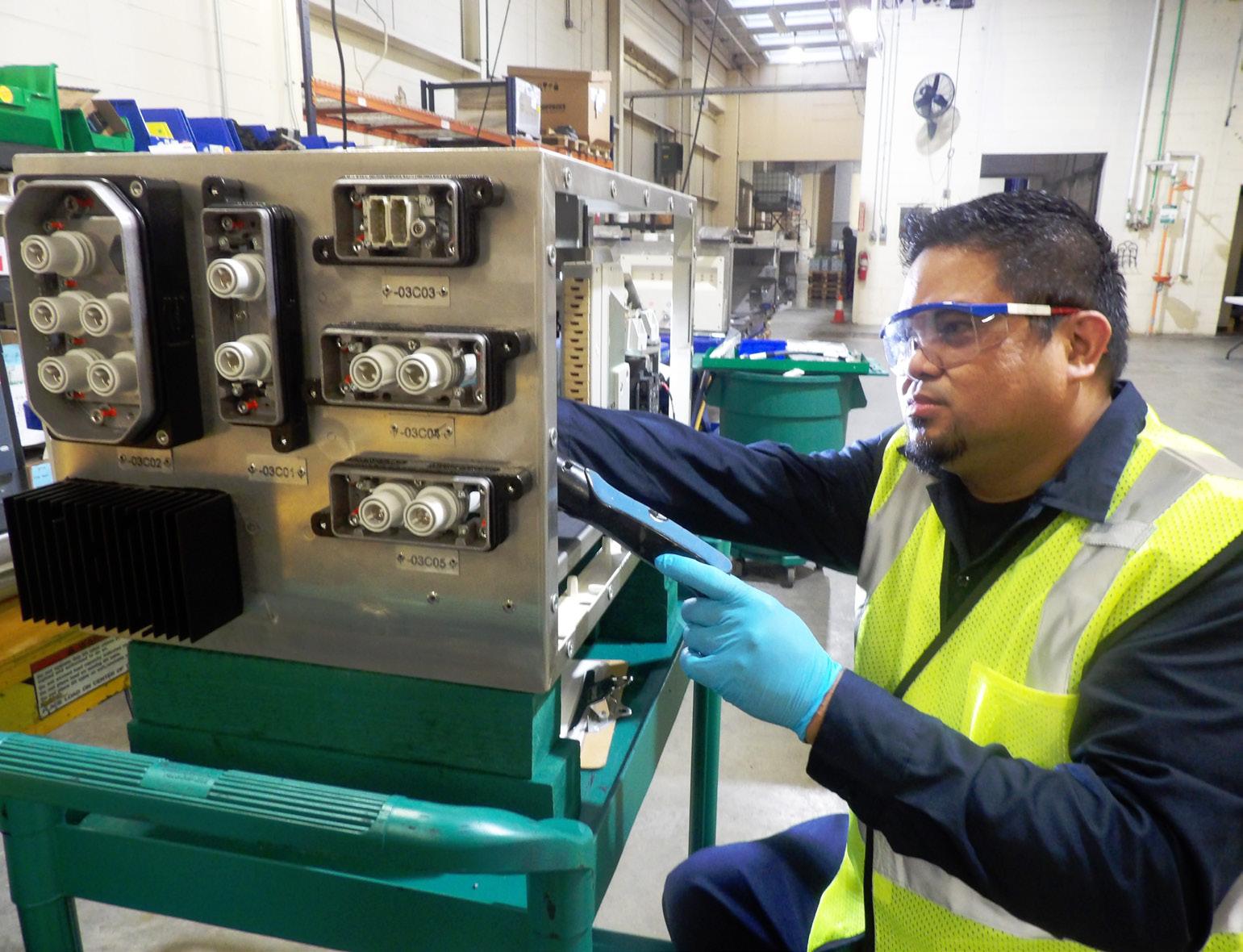
“We have been campaigning in the North America utility, data, and railways sectors, and in our core business we foresee the opportunity to double our growth,” Chavez says. We are introducing a new product, the Grid Xtreme, a pure lead acid battery for the data centre and telecom sector. This is a threequarter billion-dollar market in the US. We are preparing to enter
new markets with these new technologies. We are working to develop lithium auxiliary and traction batteries for the railway sector and can foresee sizeable growth in that market too.” However, as the company grows, it still will not forget who we are.
“We are a family business,” Chavez insists. “When you look at our competitors, we are unique in that sense. We are a global, family-owned business building a culture around caring about what we are doing every day. It’s not just about the bottom line.”
AS THE NEED TO TRANSITION TO RENEWABLE ENERGY BECOMES MORE URGENT, SVEA SOLAR IS ENABLING THE REVOLUTION ON EVERY FRONT.
RAPIDLY GROWING SOLAR
Svea Solar is a company born out of a belief – the belief that solar energy is the most powerful solution to combat climate change. Founded by Swedish entrepreneurs Björn Lind and Erik Martinson, Svea Solar came to life in a studio apartment in the suburbs of Stockholm in 2014. In only eight years, the company has grown from a vision into actually building a more sustainable future. Svea Solar has set out not only to generate more solar power but to ensure that power is used in the most efficient possible way.
Svea Solar, which is one of the fastest growing clean tech companies in Europe, helps people become more self-sufficient on clean energy by offering solar installations, batteries, EV charging and energy contracts. With our products and services, we can optimise the energy need of our customers, ensuring customers are consuming and producing energy at the best times,” explains Erik Martinson when we speak with him. “We are taking care of the entire energy need. A lot of providers work with an energy company, but we bundle it all together on one platform, making it easy for the customer and a one-stop-shop for all their needs.”
For Martinson, load balancing is crucial to Svea Solar’s approach, combining tools for energy generation, transfer, and storage to create a strong grid for everyone.
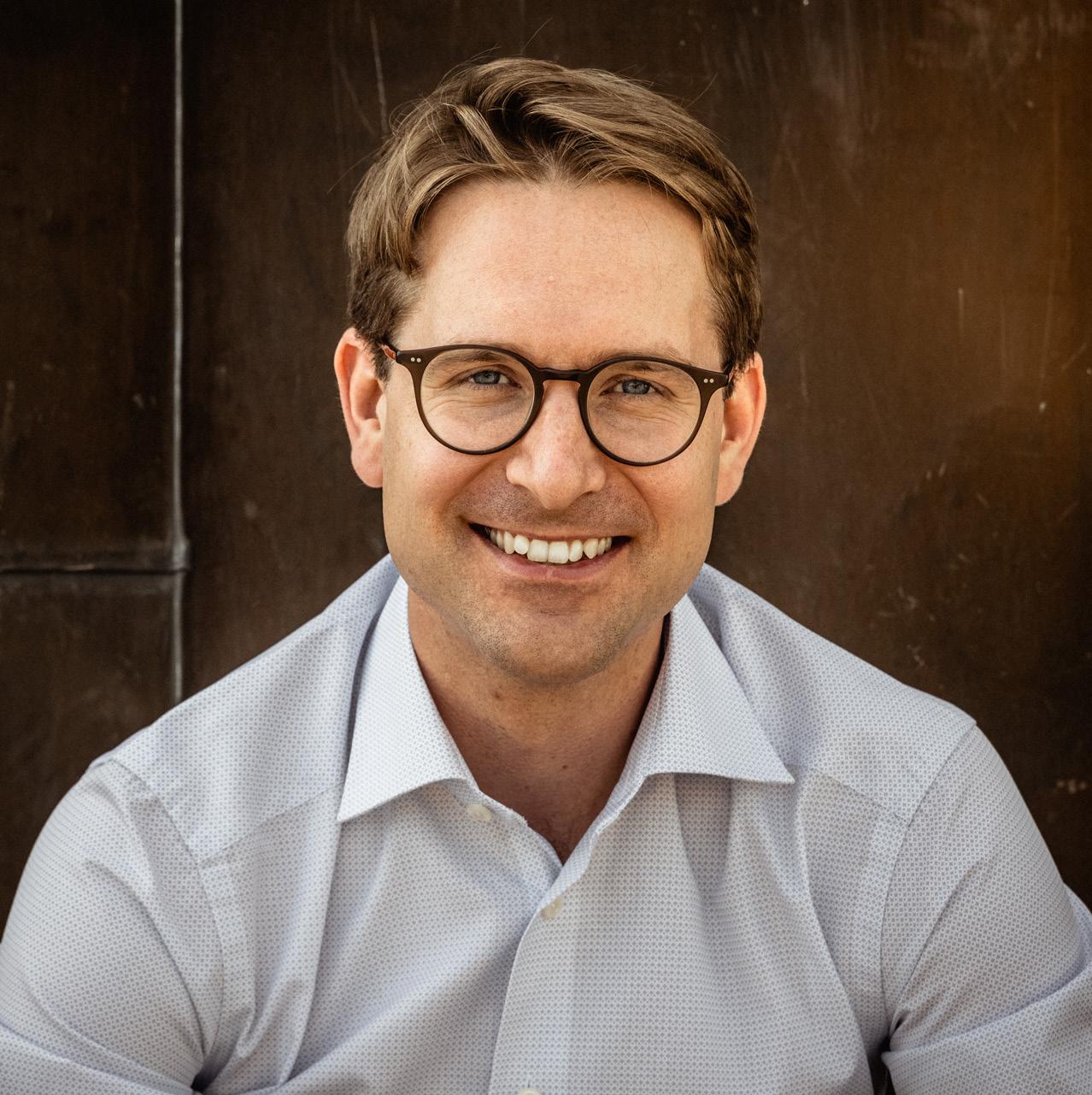
“If you can add solar, battery and EV charging at the weakest points of the grid, at people’s homes, it’s important to combine that with a smart back-end system to ensure customers are consuming energy at the right time,” Martinson points out. “You need to manage the needs of the home while bringing energy back to the grid to ensure that whole communities or even societies can go fully renewable.”

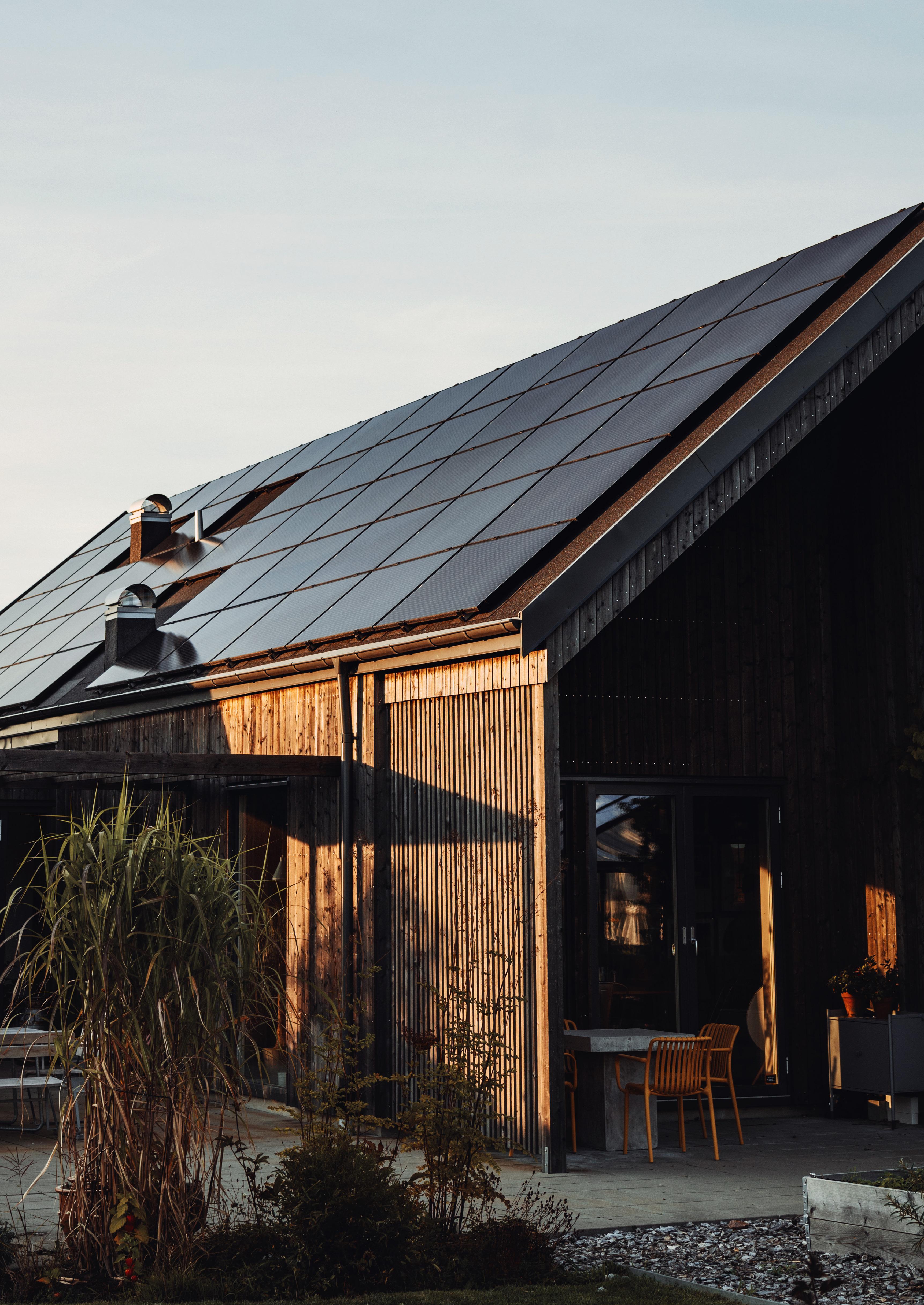
ESDEC
ESDEC AND SVEA SOLAR SCALE UP WITH PARTNERSHIP Esdec, global supplier of mounting systems for rooftop solar panels and Svea Solar, one of Europe’s largest PV installation companies, recently announced the strengthening of their European partnership. Svea Solar has selected Esdec as their main supplier of mounting systems for all their European residential and commercial rooftop solar projects. The collaboration includes agreements about the delivery of the various mounting systems, training and education for installers and project support for large commercial projects.
The energy transition in Europe is an enormous challenge, but also offers many opportunities for the solar industry. The pressure is high, sustainability targets are set. So, it is important to take big steps. To scale up. And to work together. The intensified partnership between Svea Solar and Esdec contributes to the accelerated roll-out of solar PV in Europe.

“To enable stable growth, it is important to work together with reliable partners. With Esdec as our main supplier of mounting systems we have found such a partner,” says Christer Kollberg CSCO from Svea Solar. Harm Haarlink, Managing Director Distribution at Esdec: “I am very pleased with the collaboration with Svea Solar. I am convinced that we can help each other in realizing each other’s growth ambitions in Europe.”
eu.esdec.com/en/

Wind and solar are both intermittent, so Martinson believes that to reach 100% renewable energy it is essential to work on the consumption side as well as the production side of the equation.
“We’re looking forward to bringing that approach to other markets so that our customers are consuming when prices are low and the grid is not as strained,” he says. “We have three macro trends: The electrification of all industries, electrification of transport while ensuring the grid is renewable. These trends are putting mass constraints on the grid, and we are on a mission to solve the grid issue and eliminate fossil fuels.”
GROWING THE COMPANY, KEEPING THE CULTURE
In pursuing that mission, Svea Solar is guided by a set of core values established from the company’s outset. These include working sustainably and ensuring the planet and people come first in everything Svea Solar does.

It also encourages a collaborative outlook, insisting “We are smarter, better, and have more fun when we work together and learn from each other.”
PUSHING RENEWABLES
“We have a somewhat unconventional structure. I am the CEO, but our HR officer is sharing the role with me in the sense that we run the management team together,” Martinson tells us. “We are putting the people agenda high within the company’s priorities. It is one of our foundations, to keep the culture we have nurtured within the company.”
“WE ARE
BY GROWING AS FAST AS WE CAN.”Photo credit: Mickael Tannus.
Svea Solar is a company of really focused people working on maintaining the company’s leadership, and to that end they are offered that training that will help them grow within the company. The company itself is growing rapidly, making it even more important that it preserves its values of: Work sustainably, Eyes on the prize, Do it together, Move forward, Own it and Create good vibes.
“Soon 80% of the people we have will be new, so they need to be ready to grow with the company in the right way while we maintain the company culture,” Martinson points out. Today the company has roughly 1,000 employees, but Martinson believes that following an imminent process of scaling up the company will have a complement of 5,000 people. That growth may seem rapid, but Martinson believes it is essential to fulfilling Svea Solar’s goals.
“We are phasing out fossil fuel by growing as fast as we can,” he says. “But you cannot scale a company if you do not attract and retain the top talent. We have been fortunate to have people join who are motivated, & that is the most important factor for any company planning to grow fast.”
By investing in its people, Svea Solar is, fortunately, able to form a virtuous circle of recruitment and retention.
“If people around you know that we are investing in the leadership and have room

for people to grow within the company, we will attract new people,” Martinson says. “The same aspects that will attract people will also keep people within the company. Investing in people will attract new talent, so the issues have the same solution.”
ENOUGH TO GO ROUND
The other factor that is bound to draw talent towards Svea Solar, and the industry in general, is that renewable energy is a sector rife with opportunity right now. There is enough opportunity, in fact, that Martinson sees no reason for renewables firms to be competing with one another.

“There are great companies, but the market is huge,” he says. “There is no reason for us to pick a fight with any solar company. We can sell more than we can put up. The faster we can grow, the more we can add to the team. That is our job, to grow our company as fast as possible.”
Instead, Martinson believes the entire renewables sector shares a common rival.
“We need to take away business from fossil fuels,” he says simply. “Our job is to ensure we are taking fossil fuels out of the equation or persuading them to change over to renewables as fast as possible. The faster we can grow together with other great companies within the field, the more we can take away from fossil fuels. We need to take out oil, gas, and coal, one solar panel at a time.”
Today, Svea Solar’s target is to reach a turnover of 15 billion euros within the next four to five years.
“But we can do a lot more than that over time while taking out as much fossil fuel as possible,” Martinson insists.
“WE HAVE BEEN FORTUNATE TO HAVE PEOPLE JOIN WHO ARE MOTIVATED, AND THAT IS THE MOST IMPORTANT FACTOR FOR ANY COMPANY PLANNING TO GROW FAST.”
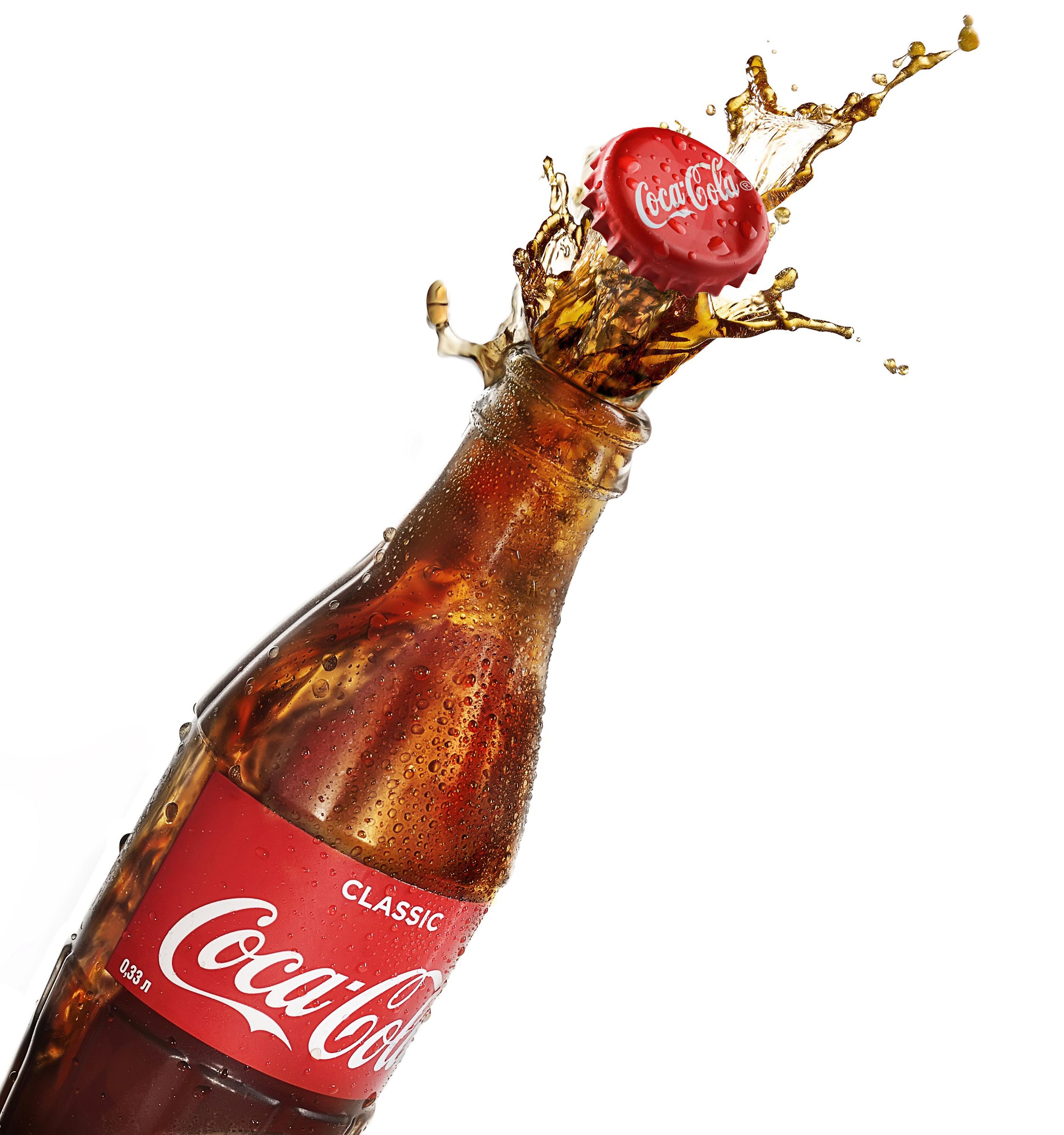
COCA-COLA BEVERAGES AFRICA-ETHIOPIA (CCBA ETHIOPIA) HAS BEEN PROVIDING COCA-COLA BEVERAGES TO ETHIOPIA FOR 63 YEARS BUT IS ALSO SUPPORTING LOCAL COMMUNITIES IN OTHER WAYS.
BOTTLING ETHIOPIA’S FUTURE
PROJECT MANAGED BY: JOHN HOLLIMANFor over 60 years CCBA-Ethiopia has been serving as the largest bottler of Coca-Cola products in Ethiopia as a subsidiary of Coca-Cola Beverages Africa. The company directly employs 3,500 people, while up and down its value chain the firm is responsible for the creation of 75,000 jobs.
“The company’s bottling capacity exceeds 100-million-unit cases a year, across nine brands including soft drinks, juice, mineral water and flavoured mineral water,” explains Daryl Wilson, CCBAEthiopia’s Managing Director.
Wilson’s leadership of CCBA-Ethiopia is guided by a singular vision, “to refresh Ethiopia every day”.
“We are focusing on Africa and making it a better place for all,” Wilson says. “We are a total beverage company with premium quality products at arms-length. We’re committed to doing business the right way, not the easy way. This means when we establish ourselves, we work with local communities to support them in many ways. That’s one of our primary responsibilities.”
This support can be seen in the form of the company’s numerous sustainability measures.

“We pride ourselves on our sustainability initiatives, including our ‘World without Waste’, Economic inclusion and water stewardship initiatives, and we have big plans to expand upon these projects,” Wilson says.
As well as environmental measures, the company also works with the local community, particularly by supporting local schools.
“We went in asking what they wanted and responded to their requests with measures such as building an extension to existing schools,” Wilson says.
CCBA-Ethiopia is dedicated to doing business the right way, in line with the philosophy of Coca-Cola Beverages Africa. Alongside its parent company, CCBA-Ethiopia is developing increasingly sustainable ways to manufacture, distribute and sell its products while creating greater shared opportunities for the communities it serves.
The “World Without Waste” initiative is a key part of that. Wilson is the first to recognize that the world is facing a packaging problem, and alongside Coca-Cola Beverages Africa and The Coca-Cola Company as a whole, CCBA-
•
•
•
•
•
•
•
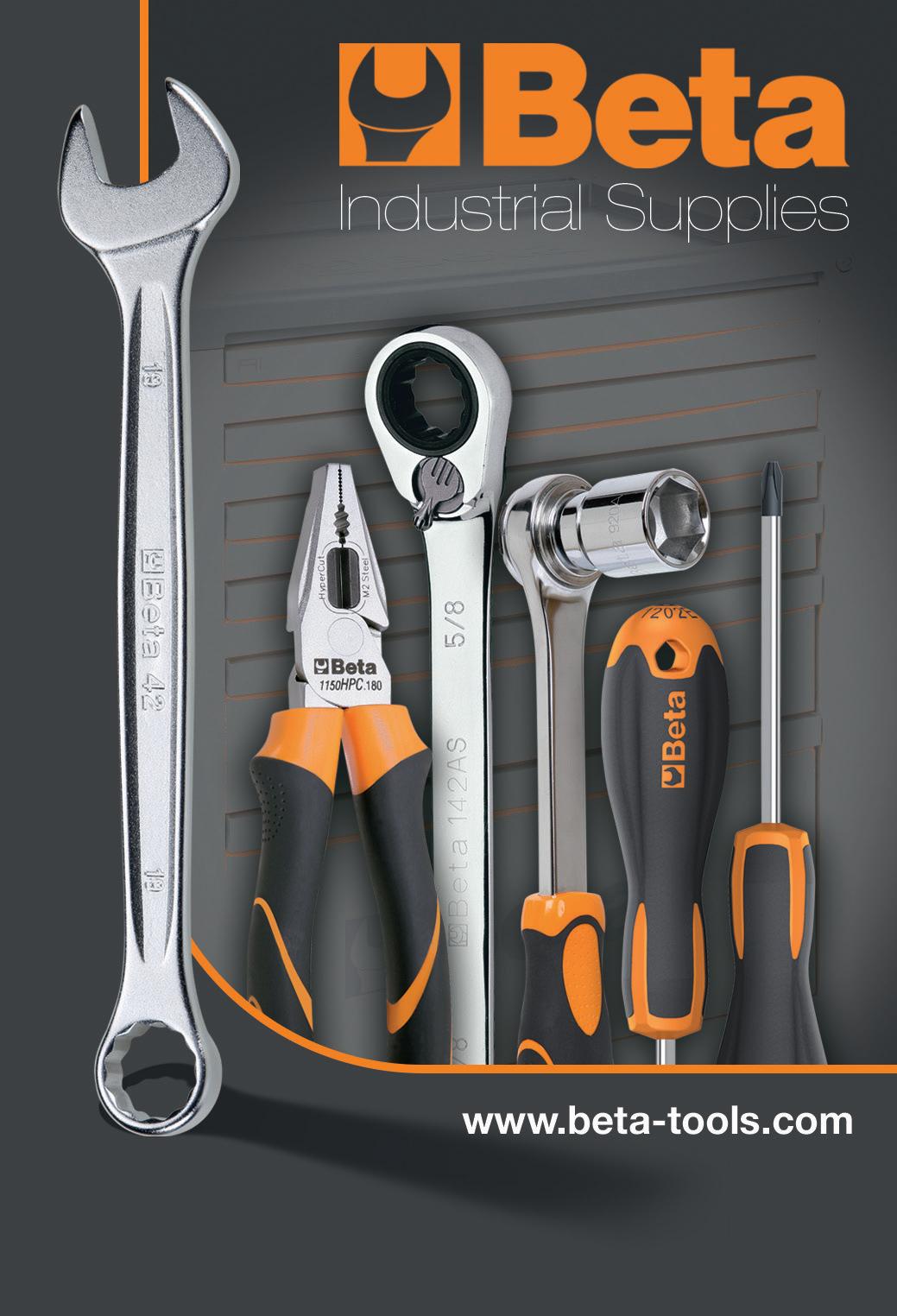

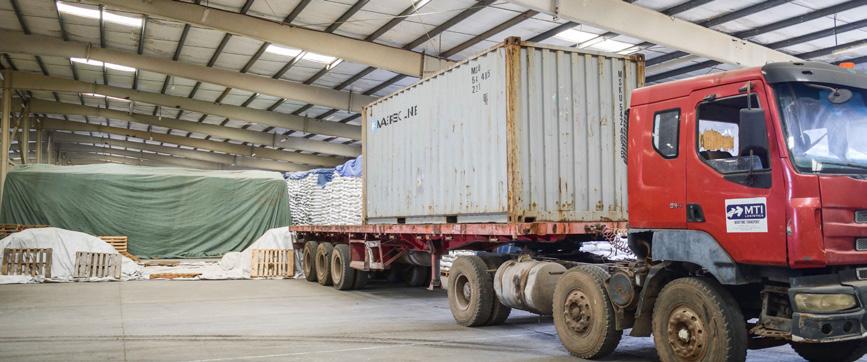
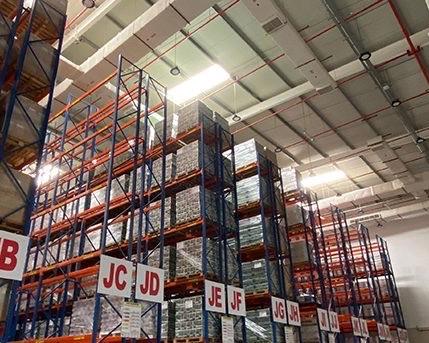
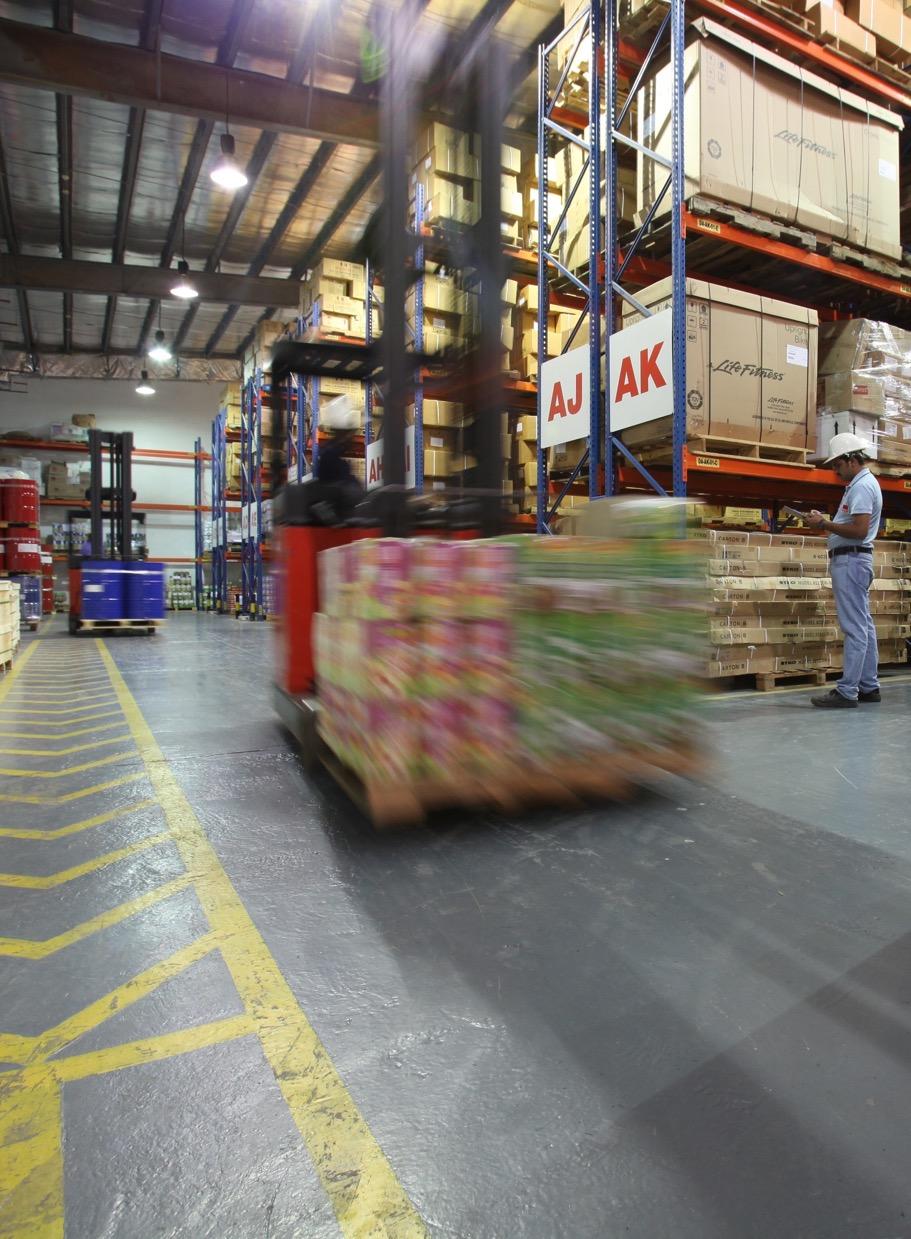
Company Overview
CGF CROWN CORK MANUFACTURING PLC, a leading manufacturer of crown corks in Ethiopia with more than 8 years’ experience, equipped with the state of the art production facilities guided with a modern management system.

Vision statement
To be a leading brand and largest packaging solution producer for beverage industries in East Africa by 2025.

Mission statement
To provide innovative, competitive, and quality products and services to its esteemed customers with excellence, profitably, and socially responsible manner.
Phone: (+251) 114 622066 Fax: (+251) 114 622176
Email: gmcc@cgfcrowncork.com www.cgfcrowncork.com
Ethiopia acknowledges its responsibility in helping to solve that problem. Working in partnership with these companies, CCBA-Ethiopia is committed to investing in the planet and making the packaging problem a thing of the past.
The leading edge of CCBAEthiopia’s strategy is in its newly operational plant at Sebeta.
This new $100 million plant is the largest Coca-Cola bottling plant in Ethiopia and has the capacity to produce an average of 72,000 cases a day for Ethiopia’s South-East and Southern regions, bringing the whole company’s production capacity up to 352,000 cases per day.
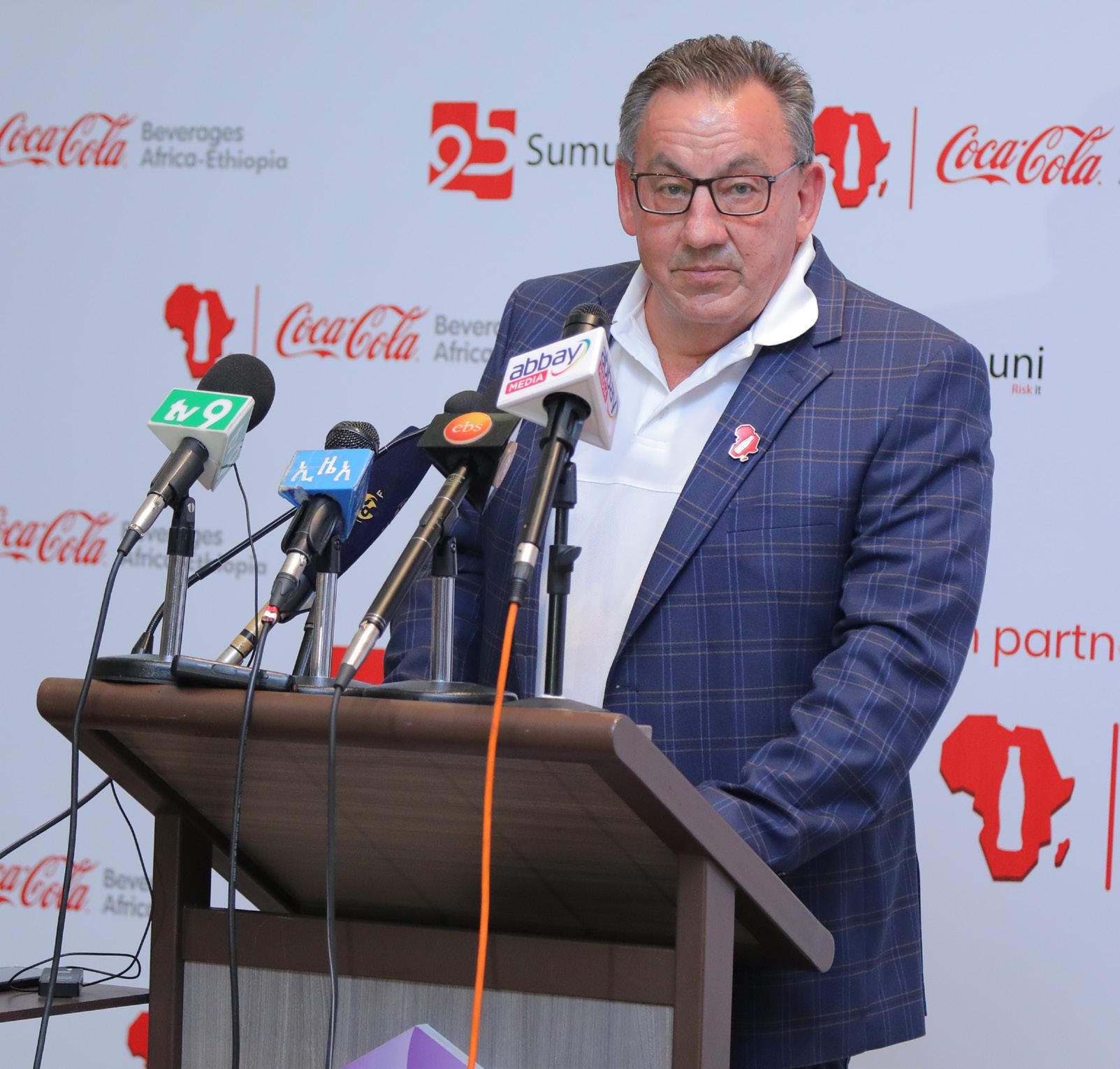
“Over our journey in Ethiopia, a big country with a large population and consumer needs, we have worked towards making sure we have product availability across the country,” Wilson explains. “It was purely a capacity decision, an investment towards the next three or four years of the company.”
As well as boosting capacity, the facility also points the way for an even more sustainable vision of CCBA-Ethiopia’s future.
A PLANT FOR THE FUTURE
CCBA-Ethiopia works across three plants in Addis Ababa, Bahir Dar and Dire Dawa and is continuing to expand with the new greenfield site in Sebeta which it inaugurated in May this year.
“WE’RE COMMITTED TO DOING BUSINESS THE RIGHT WAY, NOT THE EASY WAY.”Daryl Wilson, CCBA-Ethiopia’s Managing Director.
“Sebeta is unique in many ways,” Wilson says. “When we established the design we built in a day school, a unique addition within our company. It is one of the first we’ve introduced in our facilities, and we intend to expand it to other operations. We’re very proud of it, and hope it will add value to parents, know that they can bring children to work, and see them at lunch and dinner time. It takes a big burden off mothers and fathers. Part of the building will be run by solar power, and we’re looking to extend that still further.”
A COMPANY FOR PEOPLE
The addition of a school to the new plant is an important step because it demonstrates that CCBA-Ethiopia views sustainability as not just about energy consumption
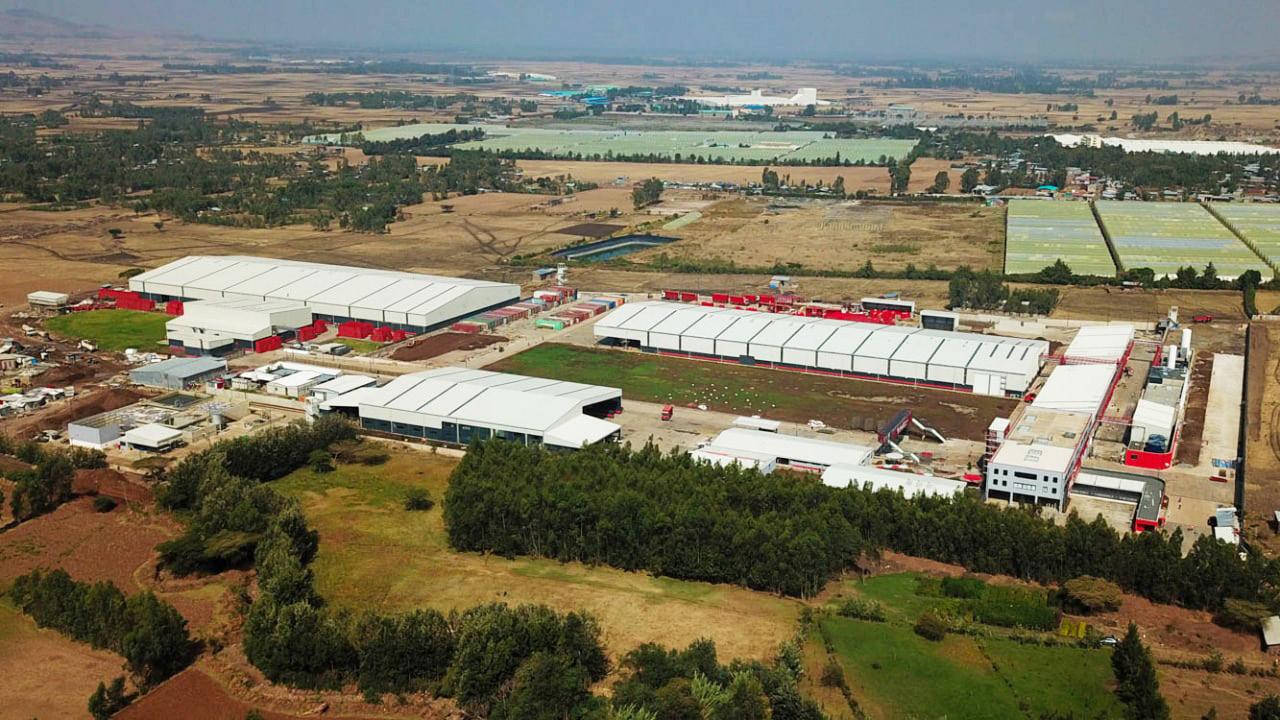
or emissions, but about how the company relates to local communities and its own staff.
“That is why we have a range of recruitment initiatives. We offer 18-month on-the-job training, and the majority of our intake is women. We have an entire engineering crew run by women, and we just launched a Women-in-Leadership campaign. We make sure the working environment, remuneration and benefits package is appealing.”
CCBA-Ethiopia’s support of its staff and local communities is more needed than ever. Africa can be a challenging environment for businesses, but recently those challenges have only been exacerbated by global macroeconomic trends.
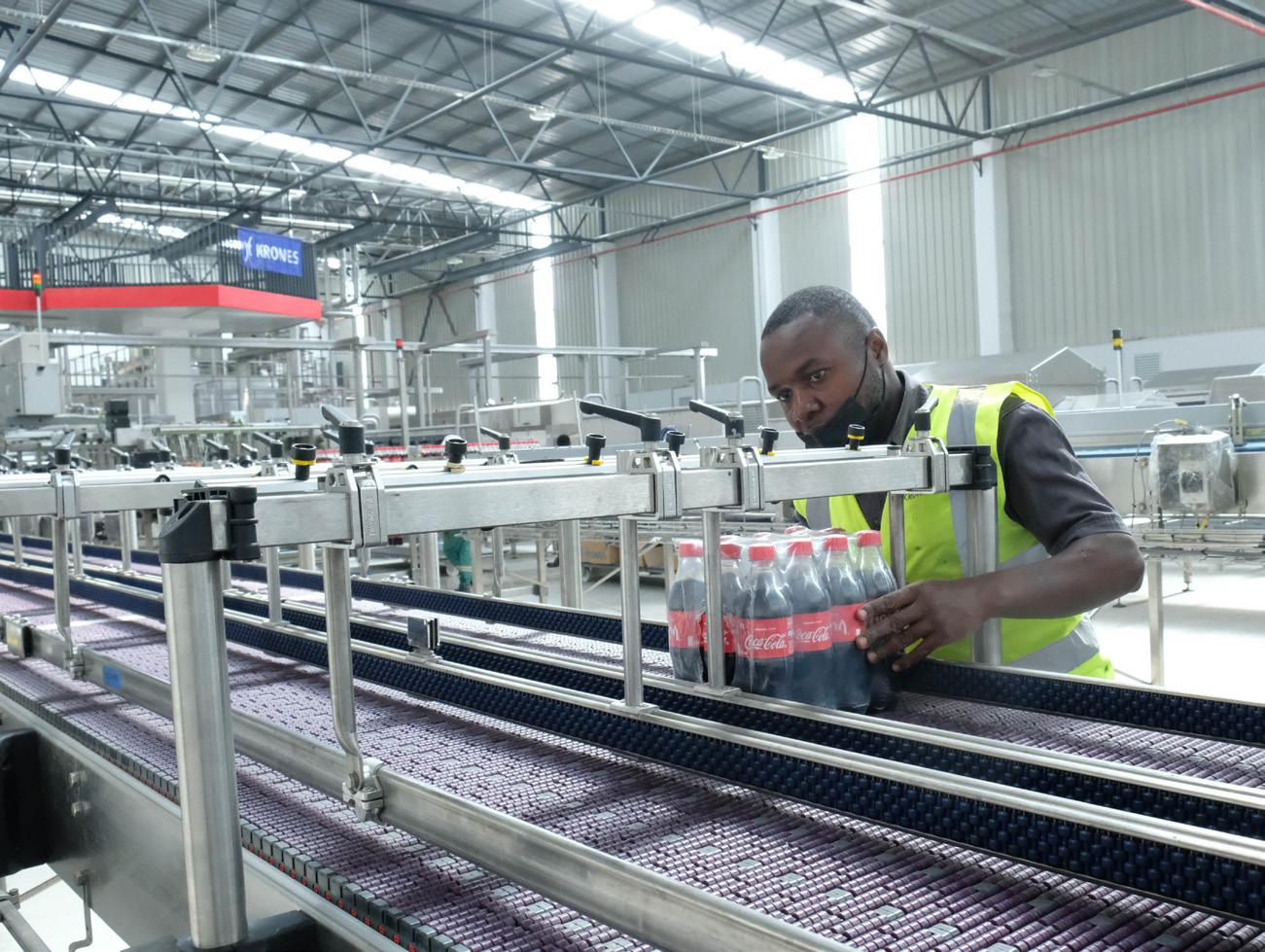
“Operating in Africa is challenging but we’re an African company, we’ve been here a long time. We’ve had FOREX shortages recently and will be facing them for some time. The country’s really struggling,” Wilson admits. We’re working with the government and local banks to see how we can pull together to find a solution. There is a shortage of sugar, so we have to import and that means inflated costs, but we are committed to sourcing locally as much as we can.”
Whatever happens, Wilson remains convinced his company’s future and Ethiopia’s are entwined.
“As I said, we’re very committed to and believe in the potential of Ethiopia. We see the potential here and we’ll continue to make these investments. That’s why we’ve been working on our next factory,” he explains. “It’s all part of our continuing plan from 2019, growing our business to meet consumer needs and provide excellent customer service. We are working with communities to support their needs where we can.”
“ASSETS ARE ONE THING, BUT WE KNOW THEY DON’T RUN THEMSELVES. OUR COMPETITIVE ADVANTAGE IS THE PEOPLE WE EMPLOY, THEY ARE THE CENTRE OF OUR BUSINESS.”
“Assets are one thing, but we know they don’t run themselves. Our competitive advantage is the people we employ, they are the centre of our business,” Wilson insists.

PRIMA CHEESE IS AN INTERNATIONAL MARKET LEADER ADAPTING TO AN INCREASINGLY COMPETITIVE MARKET.
THE BIG CHEESE
Prima Cheese is a food processing company that specialises in cheese. It buys it, cuts it, packs it, dyes it, shreds it, and distributes it to the UK market, as well as markets in 50 other countries. “We are one of the biggest independent food cheese processing plants in the country and a major player on the world market,” says Nima Beni, Co-CEO of Prima Cheese alongside his sister, Nagma Ebanks-Beni.
We have products that are only exclusive worldwide to Prima Cheese. As a company, we are disruptors in the market. We also are very well known for our consistency, quality of product, flexibility, and service.”
That reputation is increasingly valuable in the face of growing competition in the market.
“There is new competition entering the market, but for me, competition is a great thing,” Beni tells us. “We thrive on it. It makes us better. As new entries come on the market with new ways of thinking and doing business, we have to respond.”
As an outward-facing company that serves 50 countries worldwide, Prima Cheese also has to respond to issues that cross global borders, especially around Covid. China, for instance, has some areas still in lockdown,
which has an adverse effect on Prima Cheese’s business there.
“We persevere and have flexibility with our suppliers. We have raw materials coming in, mitigated with products on site. We have a huge storage facility,” Beni explains.
“If we have to hold stock, we will do. When it comes to situations like Brexit- like any company we have dealt with and continue to deal with delays and paperwork from that. Competitiveness can go many ways, but we like to think we are quite aggressive. We stay humble and persevere with the same ethos of flexibility and customer service we have always had, but we always want to be two or three steps ahead of everybody else.”
The key ingredient in remaining steps ahead of the competition is the strong relationships Prima Cheese has with its suppliers.
“We make sure we can always get the best possible price, because we have a reputation of always paying on time and being honest and transparent with our suppliers,” Beni points out. “Those relationships are important. We are proactive and aggressive in trying to be at our potential or existing clients’ doors before our competitors are.”
As Beni puts it, “When our competitors arrive at a client’s office, they see our name in the log-in book.”
While Prima Cheese can reach its clients ahead of the competition, word of mouth can reach them even faster. The firm is able to do this because it specialises in the business-tobusiness environment.
“We make sure our brand is strong. We don’t go into retail, we are strictly business-to-business, through food wholesaling and food services, manufacturers, and co-packing services,” Beni explains. “Our brand image and reputation are very important. People ask for ‘Prima’, not just ‘pizza cheese’. With an established brand, we have a good name, and the customer decides to deal with us rather than our competitors.”
PROJECT MANAGED BY: TREVOR GRETSINGER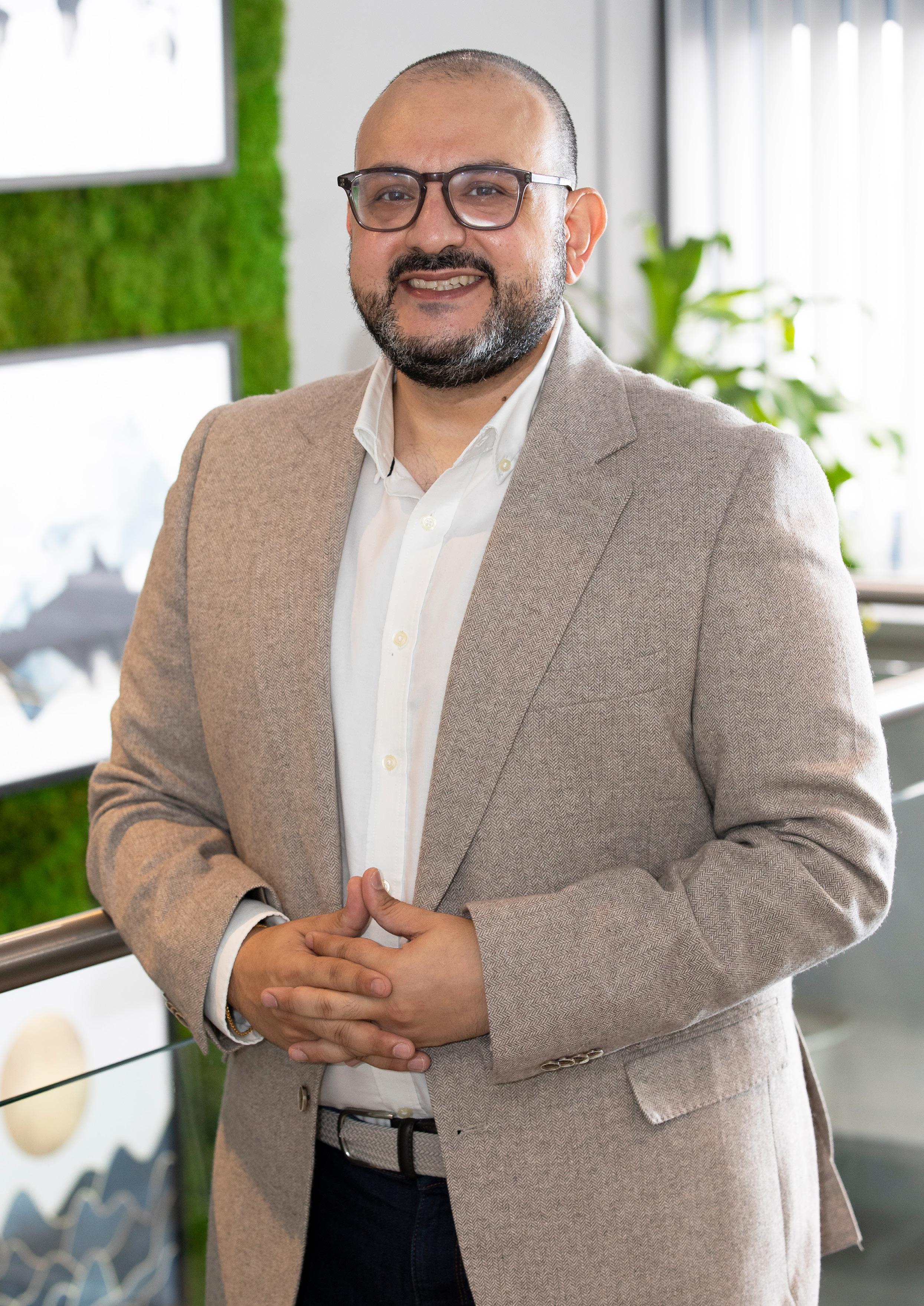
Your Partner of Choice for Sustainable Flexible Packaging
VLACHOS BROS S.A. provides high-performance flexible packaging materials, clear or rotogravure printed, for the food industry.
In-depth expertise on film properties, printing & lamination technology.
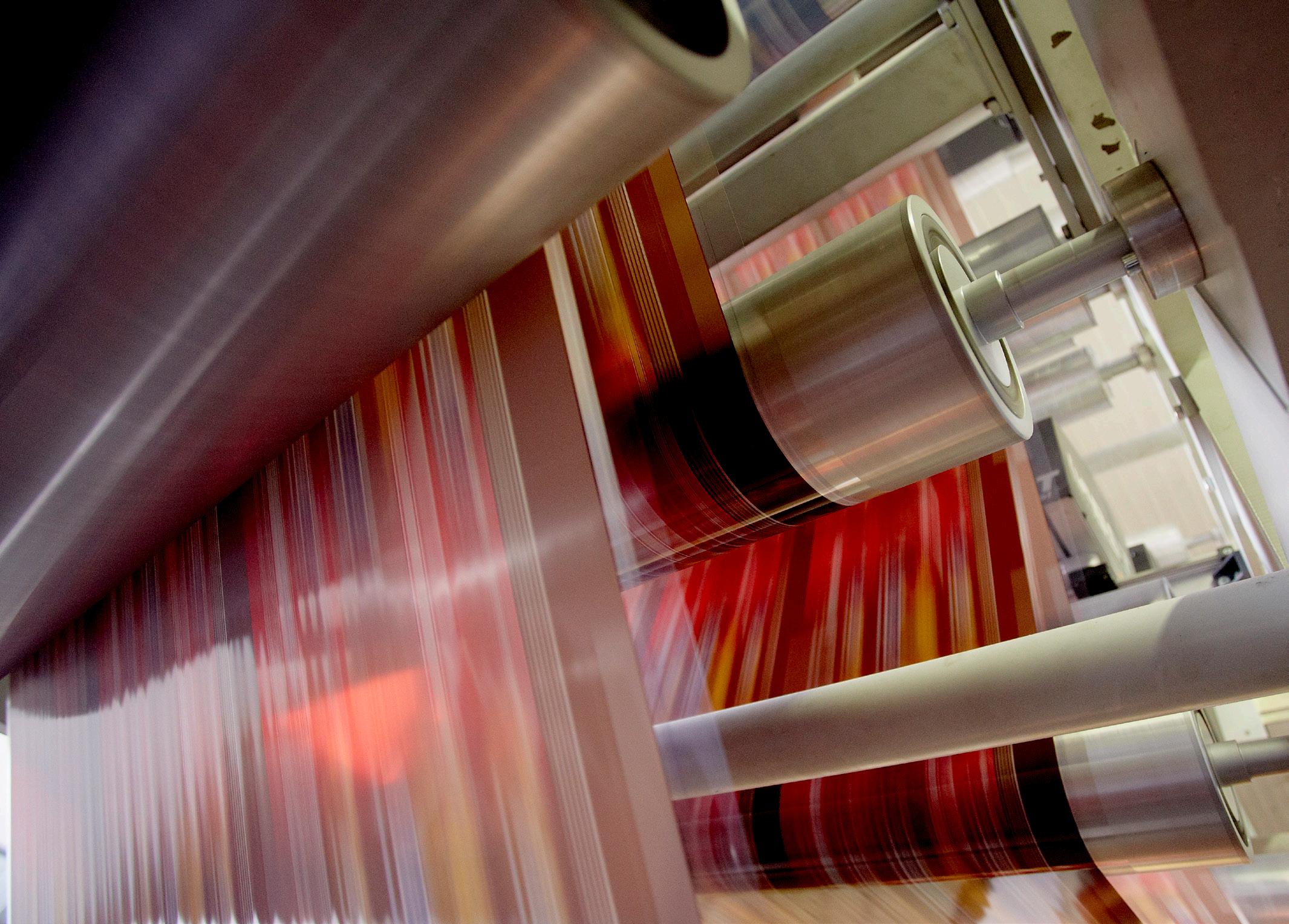
Targeted investment in state-of-the-art converting equipment.
Service-oriented, adapting to the food industry needs.
Competitive products & services with efficiency & unmatchable flexibility.
Extensive range of mono-polymer, recyclable packaging materials.
Reduction of food waste by extending product shelf life.
REACHING COMMUNITIES
Alongside its reputation, Prima Cheese’s most valuable resource is its people, and speaking with Beni it is clear how much he values the diverse communities that make up his company’s staff.
“We have great connections with different ethnic communities in the local and wider region, and when we have a connection with community leaders or people with a great reputation word-ofmouth is very important,” Beni says. “We are a common name in certain WhatsApp groups for communities in the region. They know it is a great place to work, we are big on being inclusive with zero tolerance for discrimination. Our workplace is a fair community that has won awards for fairness and equality. We have no gender pay gap, we have a community, family and environment that is very welcoming to all people.”
This is why Prima Cheese has representation from 25 different nationalities on site,
an achievement that is all the more impressive for a facility in the Northeast of England, an area of the UK not famous for its diversity.
One of the reasons Prima Cheese is such an appealing employer is the opportunities it opens for its staff, with extensive internal and external training. The firm promotes from within, and there are staff managing accounts or coordinating Prima Cheese’s raw materials strategy who started their careers on the company’s production lines.
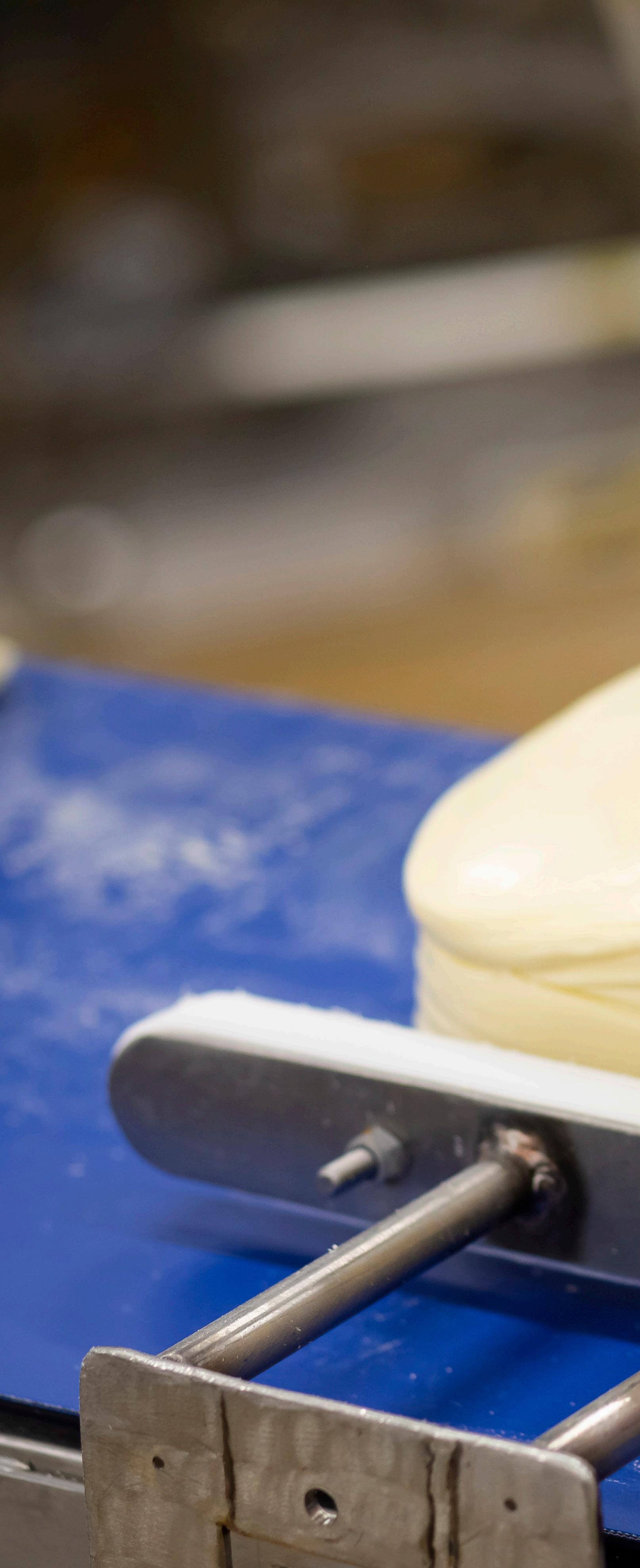
At the same time, a committee for fairness, equality and diversity ensures staff are supported and educated to avoid discrimination.
“It’s not about pointing the finger and saying, ‘You shouldn’t say this’, education is important,” Beni says.
Education is about more than courses- it is also about sharing knowledge across the company. Beni speaks highly of Pima Mentoring, a peer-on-peer mentoring scheme.
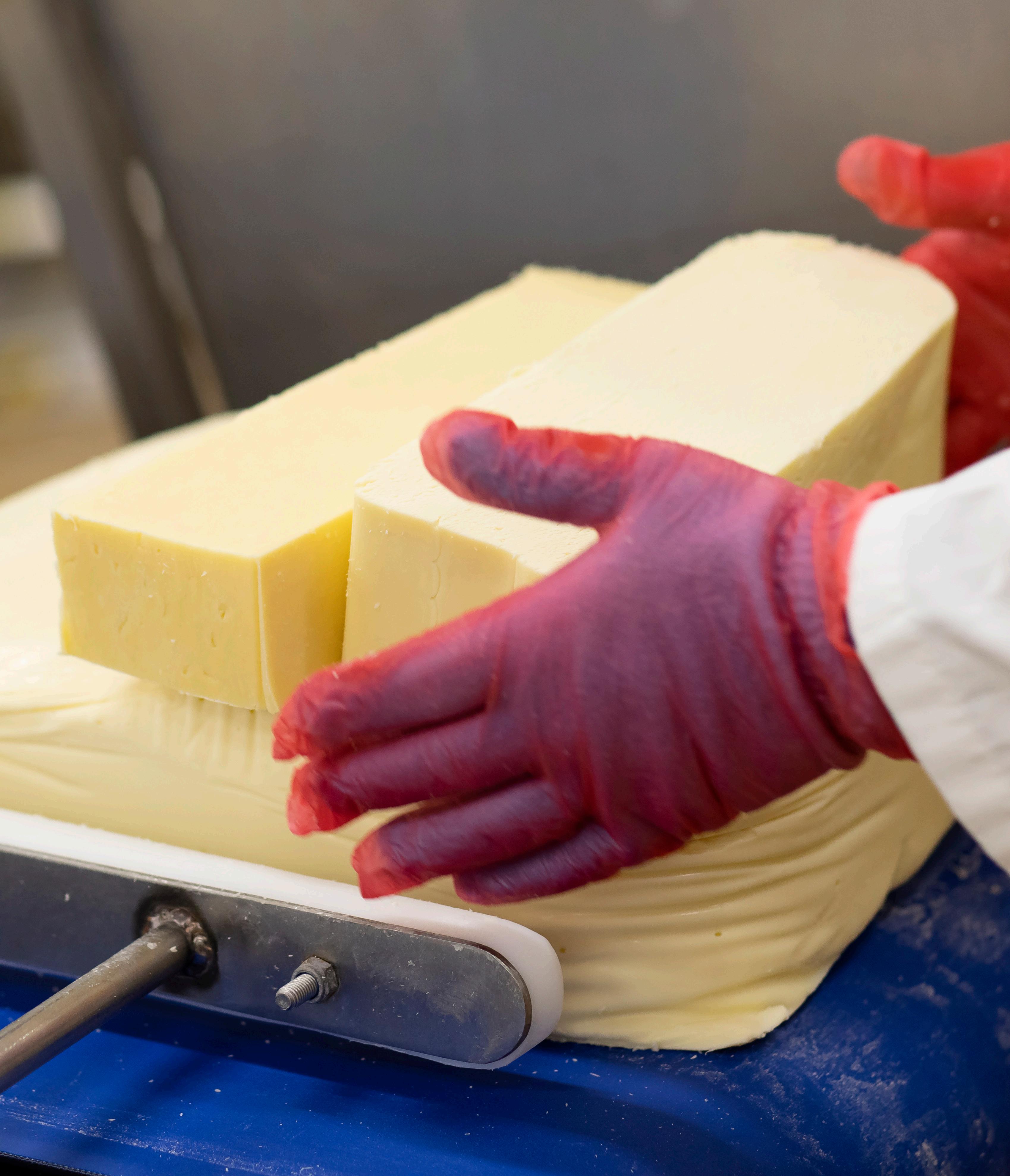
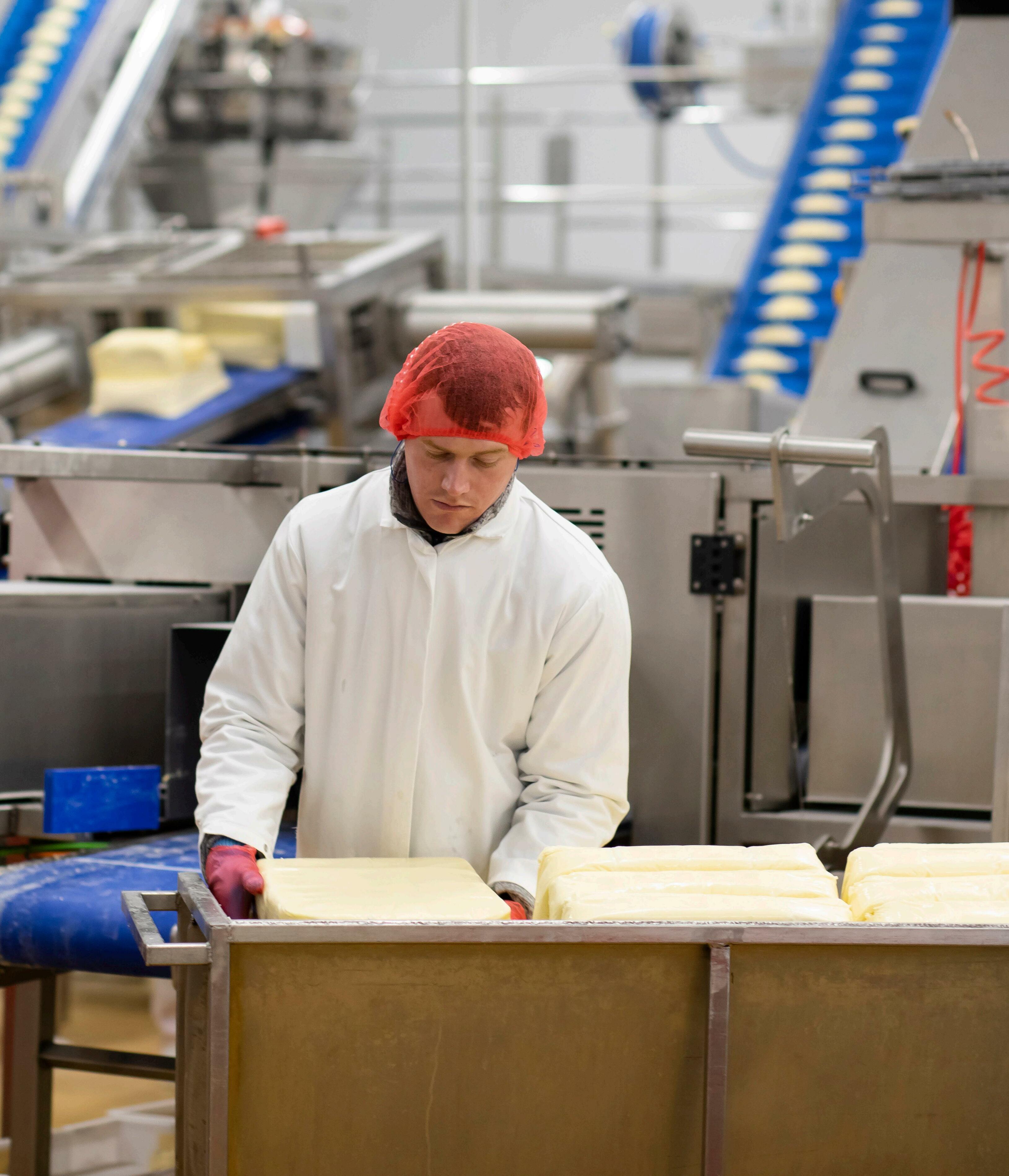
“If someone feels they are not good at time management and think someone else is good at it, they can book a mentoring session to self-improve within the company,” Beni tells us. “We also have suggestion boxes where the information comes straight up to us, the co-CEOs at the top of the company. It means we have that communication with all staff.”
A FORMIDABLE TEAM
Prima Cheese attracts people with ambition, so it is no coincidence that both of the company’s CEOs share that ambition.
“We are very ambitious. We think of ourselves as a formidable team. We are coCEOs, brother and sister, and we have a lot of energy to ensure this company grows,” Beni says. “We are becoming very big in the co-packing services, which is a new division we’re building. The export market is only ten years old and that is thriving.
We expanded the site two years ago from a 20,000-square-foot area to 80,000 square feet. We don’t owe money to the bank, we don’t have any debt, so we have a very good foundation to continue what we’re doing and make sure the company grows year on year in turnover, tonnage, and profit.”
The company had good results at the end of last year and is on its way to exceeding them this year. But while Prima Cheese has its eyes on a bigger and better future, it is also looking towards a greener future.
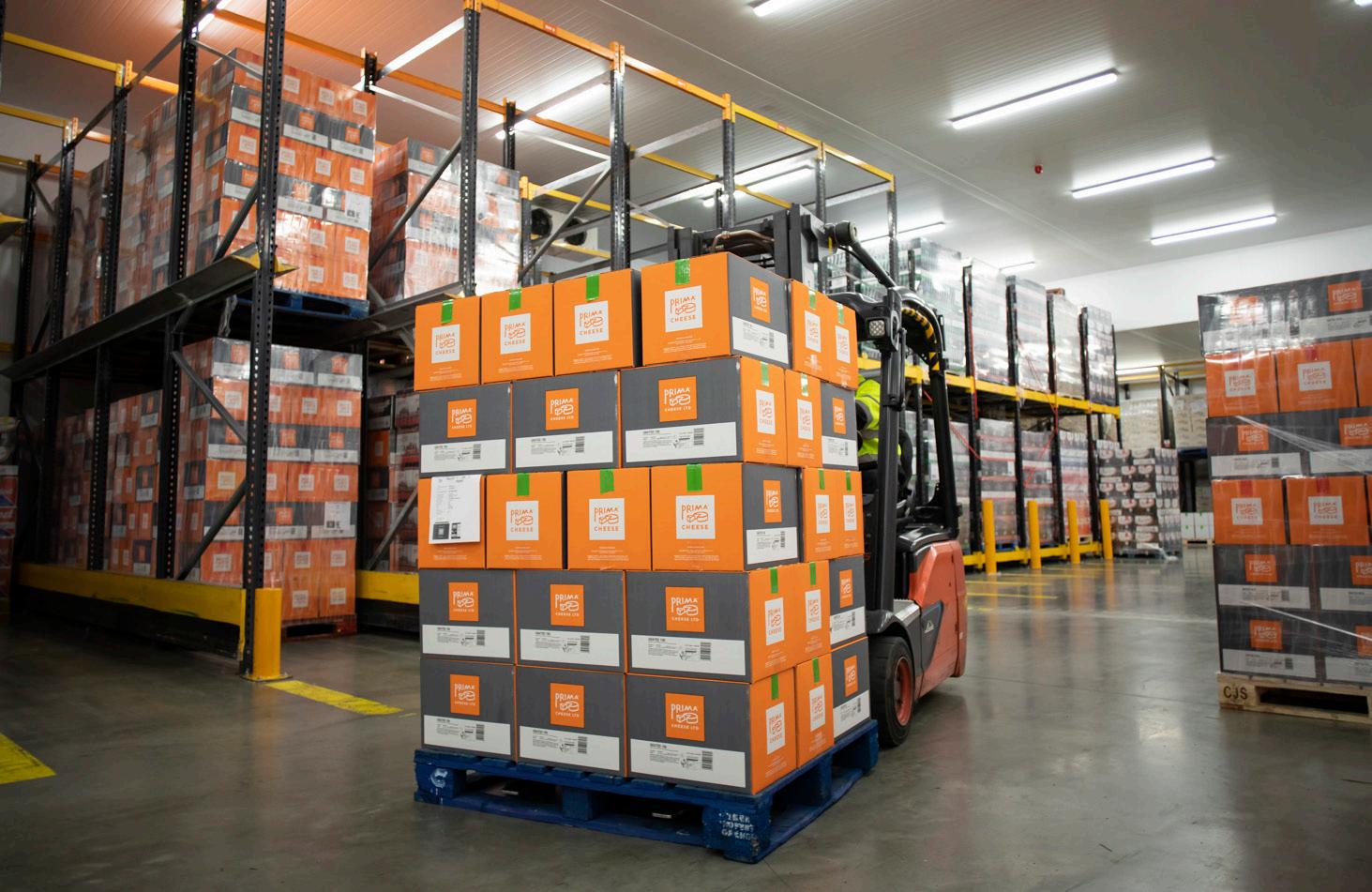
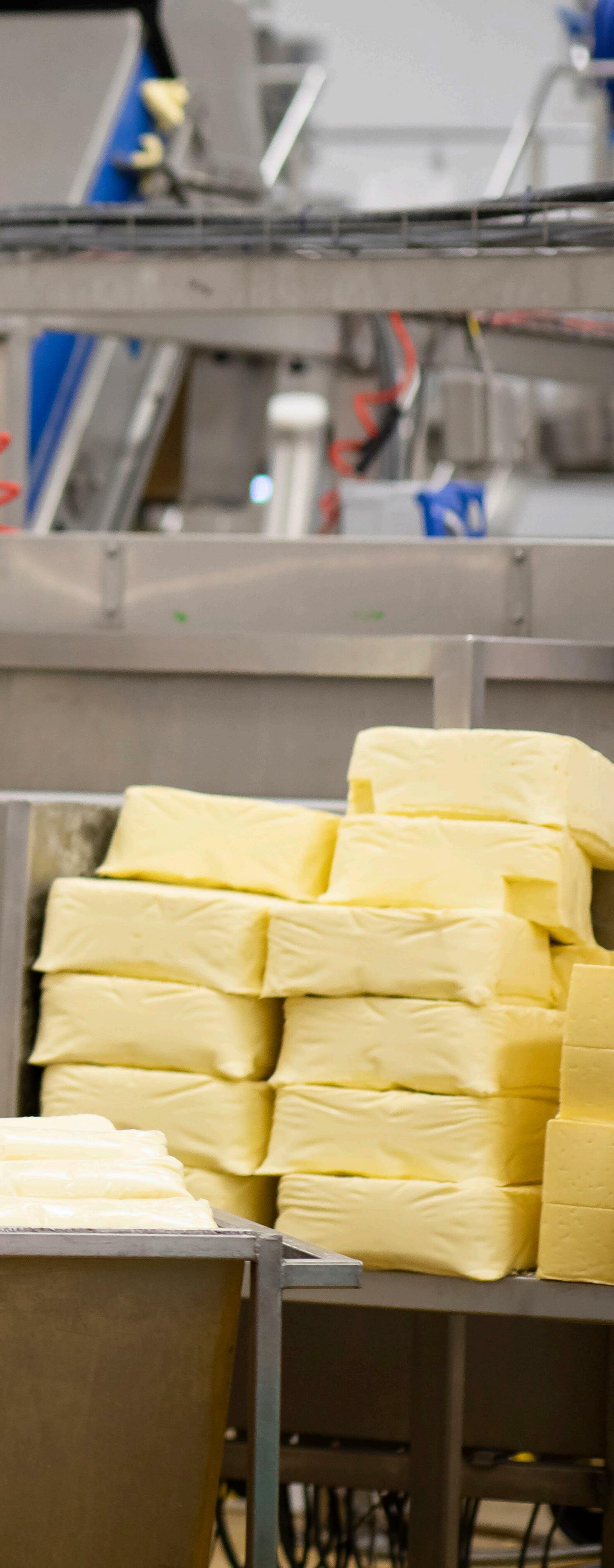
“We don’t just talk about sustainability for the image of the company. We are starting small, looking at our wastage,” Beni tells us. “We are already looking at plans for solar panels on all our facilities, which will cost half a million. These are things we are taking step by step- heat recovery, water capture, these will come on board in the next few years.”
It is sure to be one green cheese we will not mind trying.
“WE MAKE SURE OUR BRAND IS STRONG. WE ARE STRICTLY BUSINESS-TO-BUSINESS, THROUGH FOOD WHOLESALING & FOOD SERVICES, MANUFACTURERS & CO-PACKING SERVICES.”
WITH AN ENVIABLE COLLECTION OF BRANDS AND VAST RESOURCES BEHIND IT, AURA GROUP IS SET TO PROVIDE A COMPREHENSIVE SELECTION OF DINING EXPERIENCES FOR QATAR’S WORLD CUP.
WHAT IS ON THE MENU
PROJECT MANAGED BY: HARRISON MITCHELLBased in Qatar, Aura Group is the largest hospitality and entertainment company in the country, operating in the mid-to-premium segment. The company operates across two main divisions. The first of those is Aura Entertainment, which runs family entertainment centres, edutainment centres, outdoor adventure parks, theme parks and gaming and trampoline parks. This side of the business strives to provide thrilling and educational options for all age ranges. It offers new concepts across various entertainment categories, combined with a unique ability to develop new and upcoming names and trends.
The second division is Aura Hospitality, which includes the company’s restaurant division. This division has a very strong presence in the food and beverage sector with a range of outlets operating at various upscale locations. Aura’s brands have grown quickly and are already a frequent destination across many different segments due to the wide offering of options it provides. This division’s portfolio includes over 90 restaurants, with 37 of these going live within the next two months.
Pulling back from those divisions, the Aura Group itself is part of Power International Holding, with five major business sectors operating
under that group. UCC Holding acts as a general contracting company which ranks number one in the Arab world and Africa and 105 globally in the latest Engineering New Record (ENR) for 2022. There is also the Assets Group, which deals with real estate and hotels, while Aura covers hospitality and entertainment.
Power International Holding is recognised as one of the largest privately-owned conglomerates in the Middle East.
But while Aura Group’s parent company is impressive, Aura Group’s own portfolio is equally prestigious.
“The strength of the group comes with its core values, as showcased in our homegrown brands which are highly

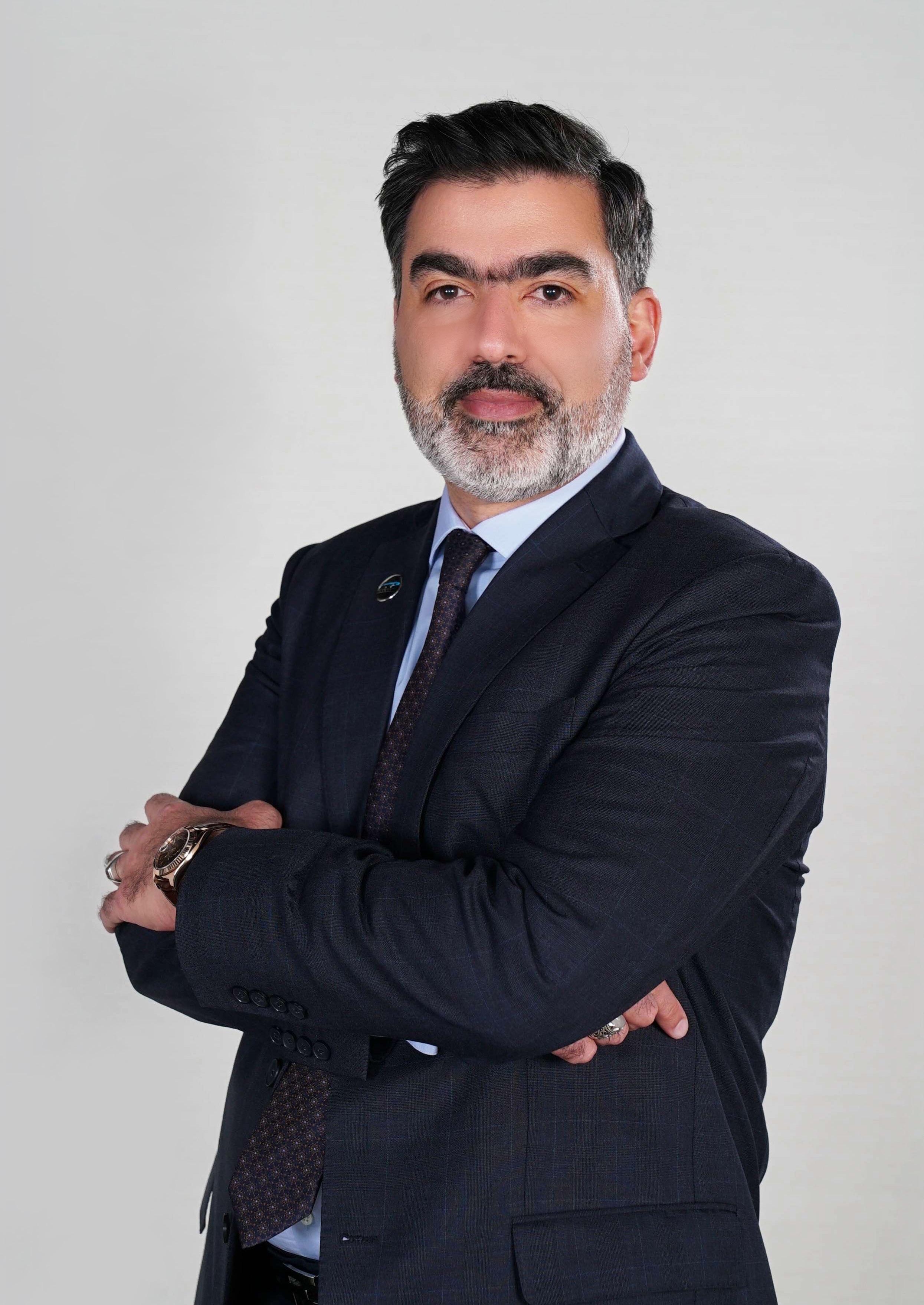
respected in the market,” says Naveed Dowlatshahi, Group CEO of Aura Group. “We started operations in 2011, with a Middle East-inspired brand namely Damasca located at Souk Waqif. Since then, we have grown our portfolio with many homegrown brands, most of them multiaward winning, such as Orient Pearl, Debs W Remman, Baladna, Jwala, La Casa, Divan, Remman Café, and Karaki.”
A RICH PORTFOLIO
Today Aura Group boasts a portfolio of 44 brands and a mix of homegrown and franchise brands. During the Covid pandemic, the Group also pivoted to create 25 different virtual brands.
“A virtual brand essentially operates from an existing restaurant, a ghost kitchen where you operate deliveryonly concepts,” Dowlatshahi says.
Those brands are supported by the resources of the country’s largest conglomerate, and a wealth of in-house talent.
“We have a very strong culinary team, research and development team and operational team which supports our homegrown brands. In recent years we decided to look outside of those brands to find brands that would add value to our portfolio and the market. That is the critical portfolio here,” Dowlatshahi says.
Lots of rapidly growing companies will bring in more brands, and it is only natural that they will try to bring in recognised international brands, but Aura Group is careful in its approach here.
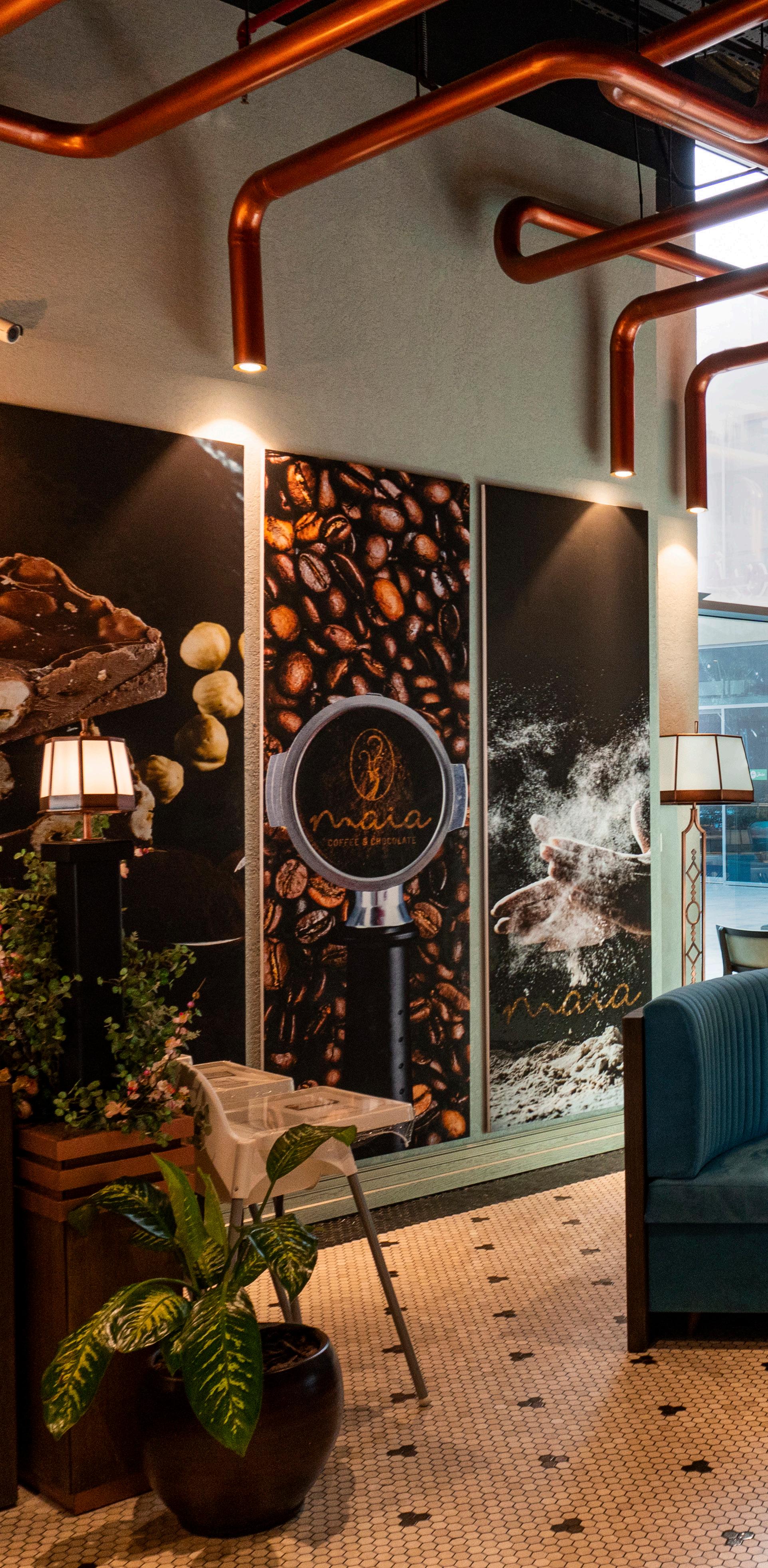
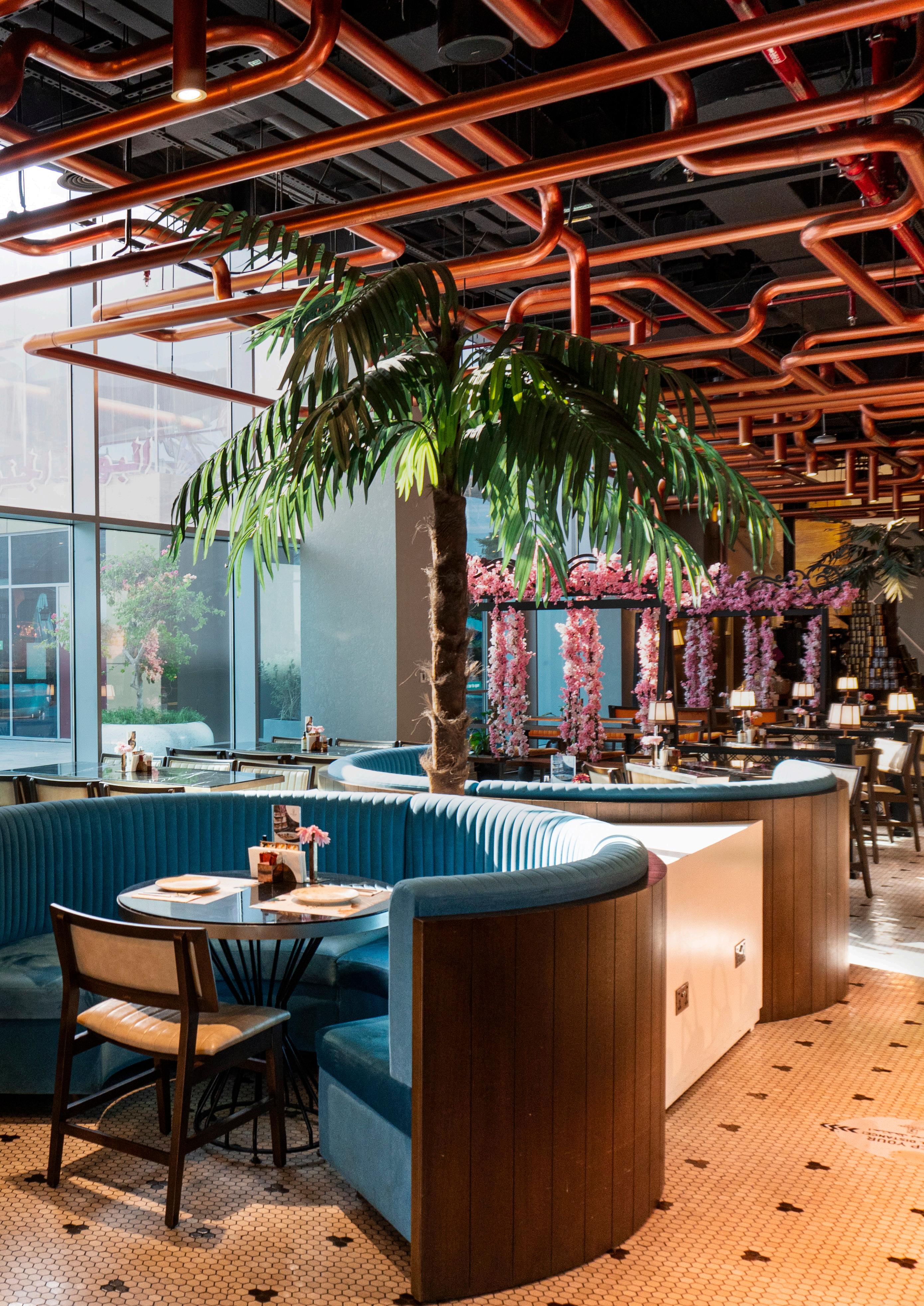
“In my experience in the Middle East, a lot of businesses decide to acquire brands based on emotion,” Dowlatshahi tells us. “These decisions should be more calculated and based on what is applicable for the market. That is what we have done, finding names that complement our portfolio with international brands where there is a gap in the market.”
This kind of portfolio makes Aura Group a unique business, but such a diverse portfolio can also complicate matters, as Dowlatshahi points out.
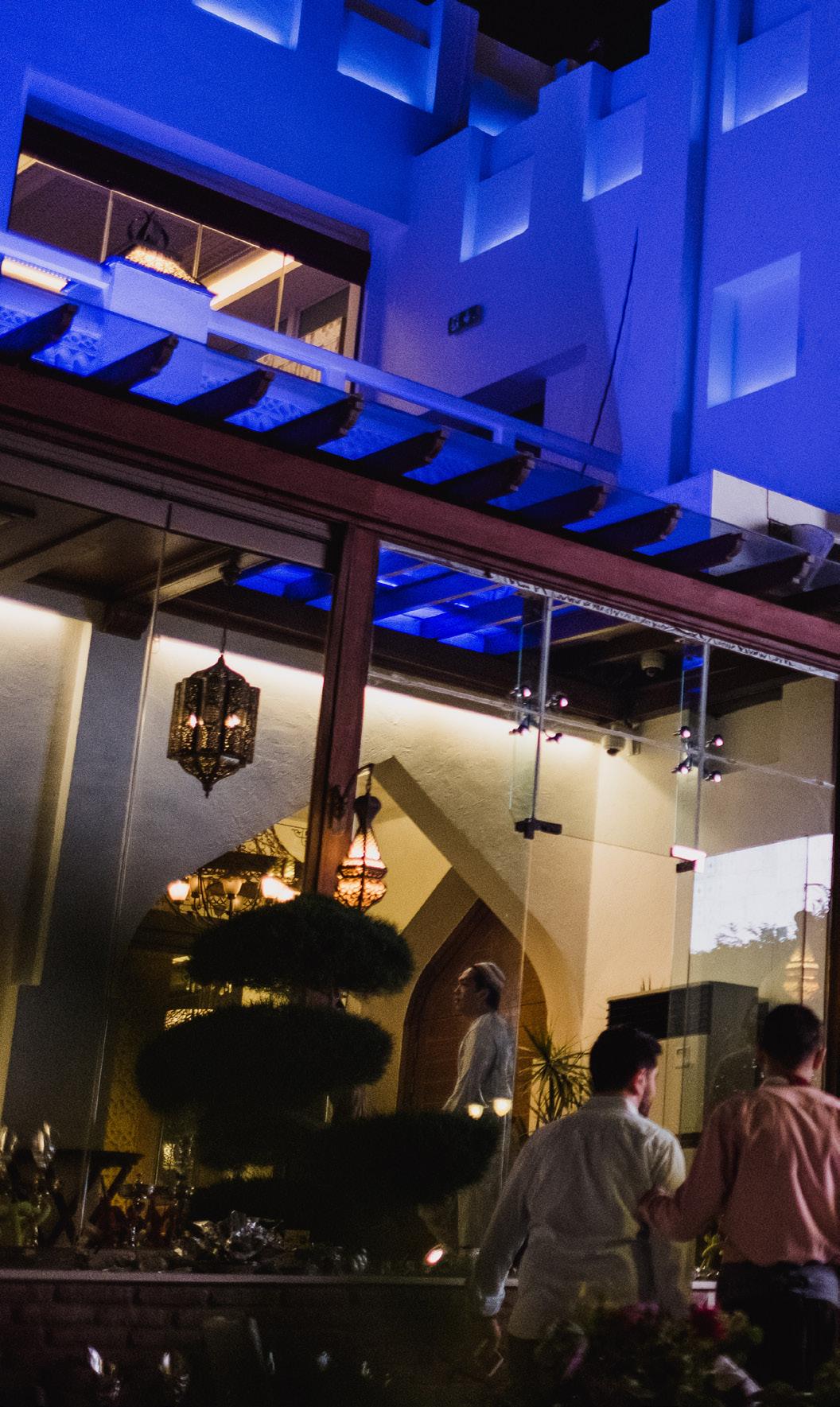
“We have 42 brands in our portfolio. I have never worked for an organisation with so many brands,” he admits. “This introduces complexity into our supply chain and marketing, but it also gives you
immense leverage from a real estate perspective. We have the muscle to go to property owners with our brands and say, ‘This is what we’re willing to put in your property, and these are the terms that we want’.”
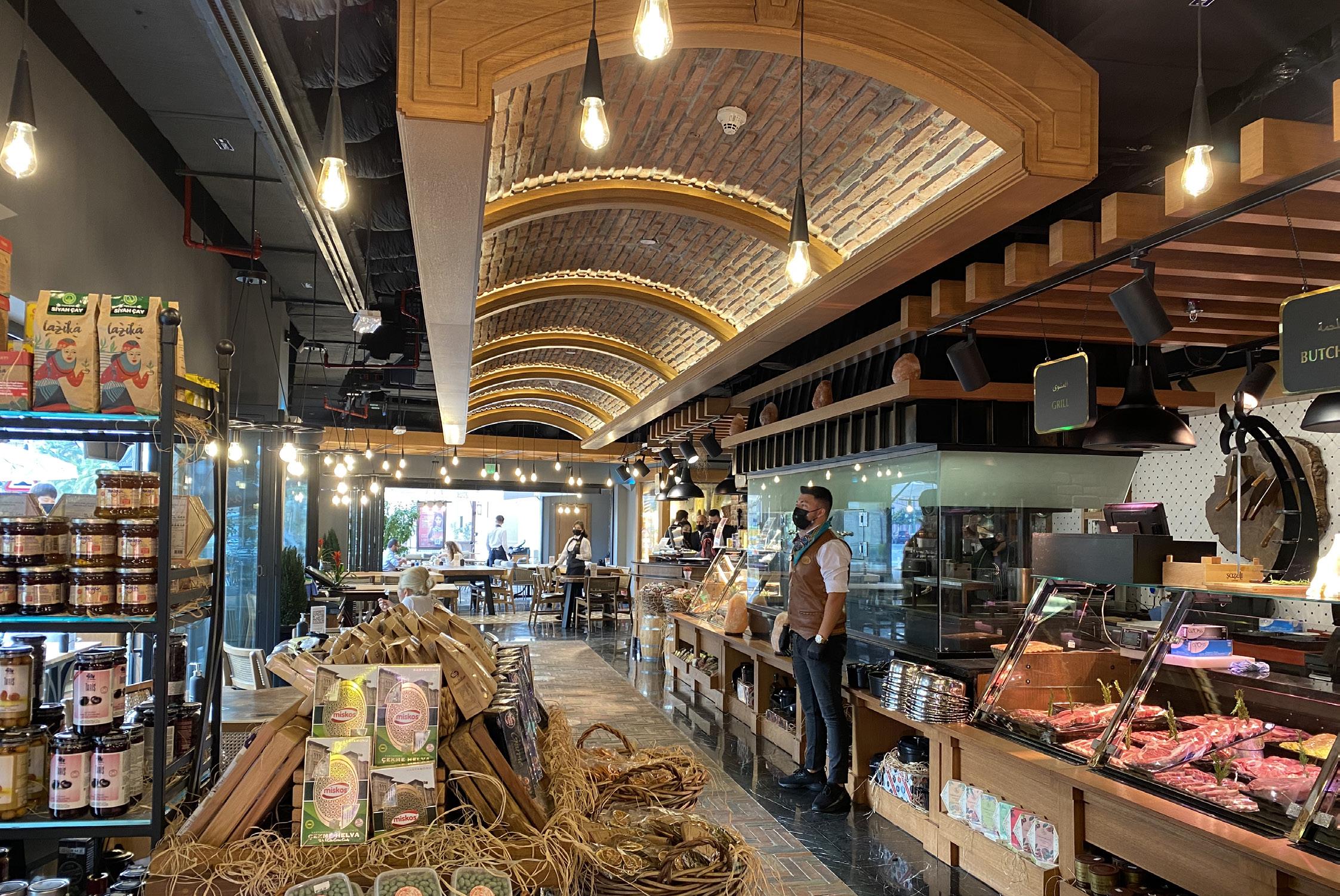
“WE HAVE A VERY STRONG CULINARY TEAM, RESEARCH AND DEVELOPMENT TEAM AND OPERATIONAL TEAM WHICH SUPPORTS OUR HOMEGROWN BRANDS.”
It is leverage that can work both ways. It is not uncommon for developers to come to Aura Group looking to add a specific brand to development, and for Aura Group to use that as an opportunity to open branches for its other brands alongside it.
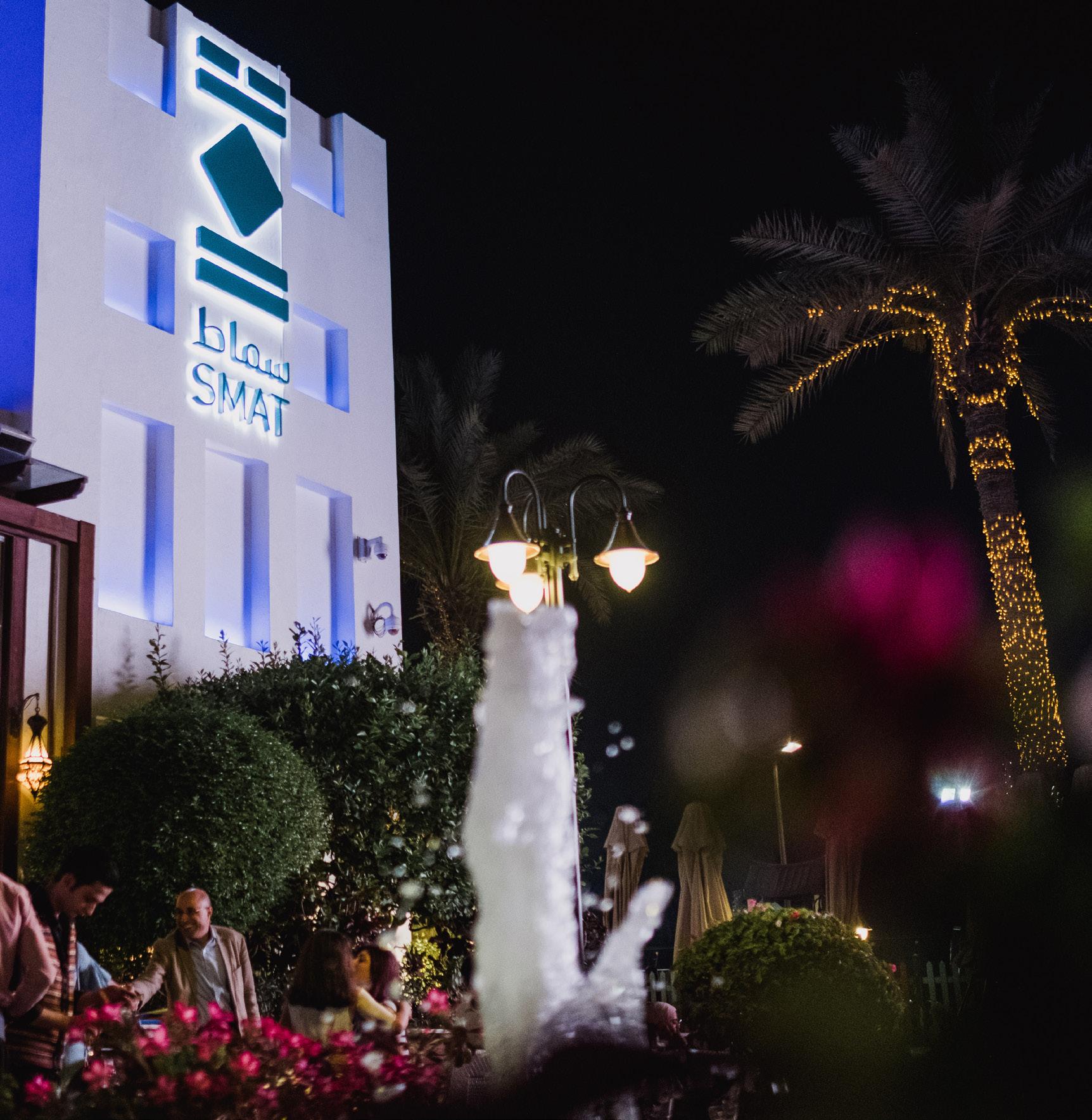
“We’re being very strategic from a real estate point of view,” says Dowlatshahi. “Ultimately, it is all about location, location, location. That means not only the location itself but also the commercial aspect of the location from a rental point of view. We have leveraged the best locations at the best commercial rates, which not many in the market can do.”
Another reason Aura Group can afford to do this is simply the comprehensive range of different food offerings it can provide.
“We touch every single cuisine type. We do not have a gap in our portfolio,” Dowlatshahi says proudly. “Over the last six months, we have covered every cuisine type.”
An example of the leverage that Aura’s portfolio offers is where it has partnered with Qatar Airways to take seven of its brands into a luxury food hall at the upcoming expansion of Hamad International Airport.
“Because of the depth of our portfolio in homegrown brands, we are in control of our own destiny. We do not have to answer to anyone to make decisions. We control everything,” Dowlatshahi says simply. “That makes a very strong USP for us as a business.”
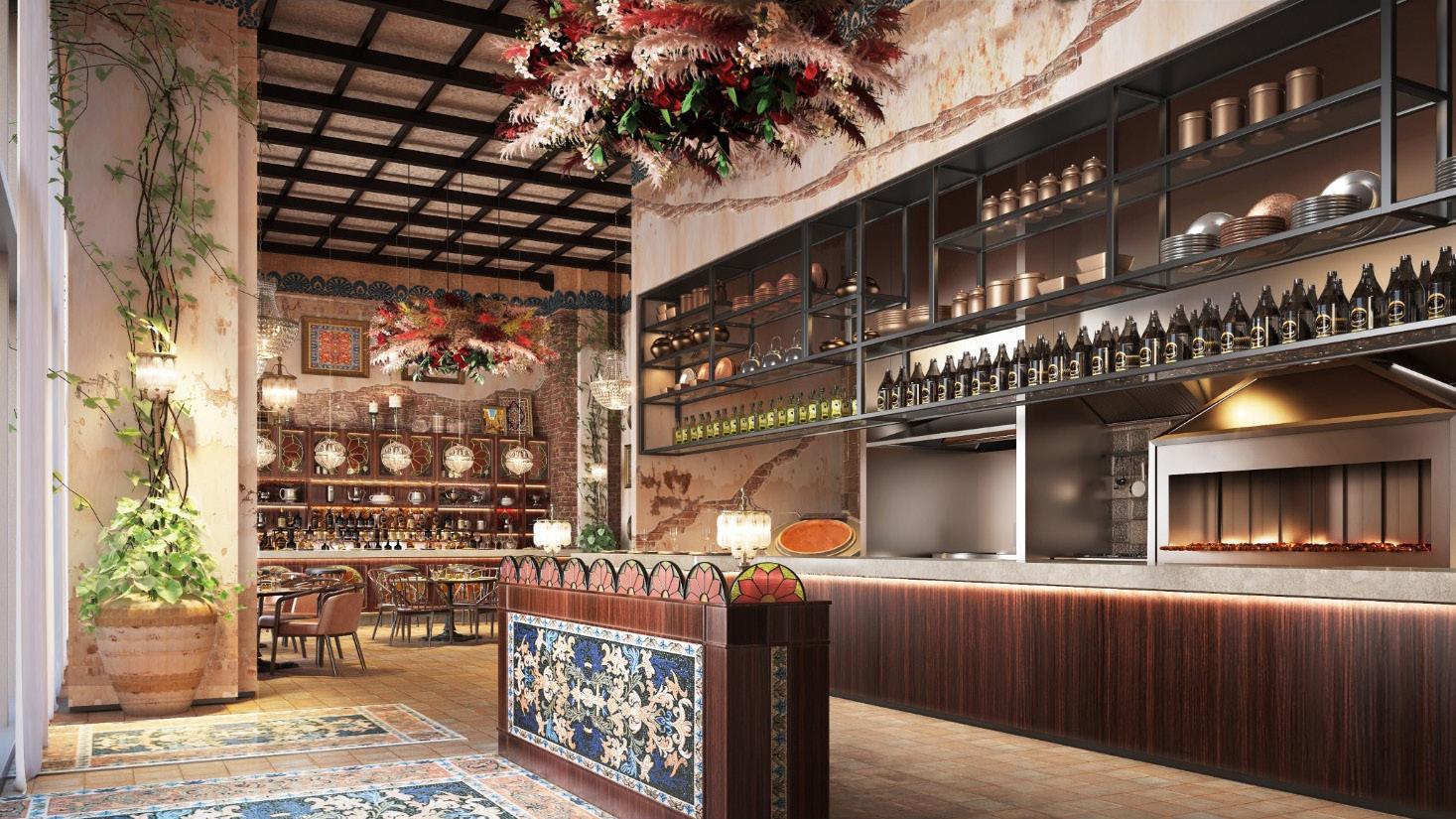
CHAMPIONSHIP GROWTH
The firm has brought on several franchise brands, most recently including the franchise acquisition of EL&N Café from London. Aura Group continues to look for brands to add to its portfolio, but this is not the only way the Group is growing. That growth has a particular urgency to it given the events set to take place in Qatar before long.
“Today we have around 2,000 employees. Within the next four weeks we plan to double due to the openings coming up in the build-up to the World Cup,” Dowlatshahi points out. “These openings will be on Al Mahar Island where we will have 11 food and beverage offerings plus the Winter Wonderland from Hyde Park.”
Al Maha Island is an impressive achievement, and an exemplar of the kind of luxury entertainment and hospitality
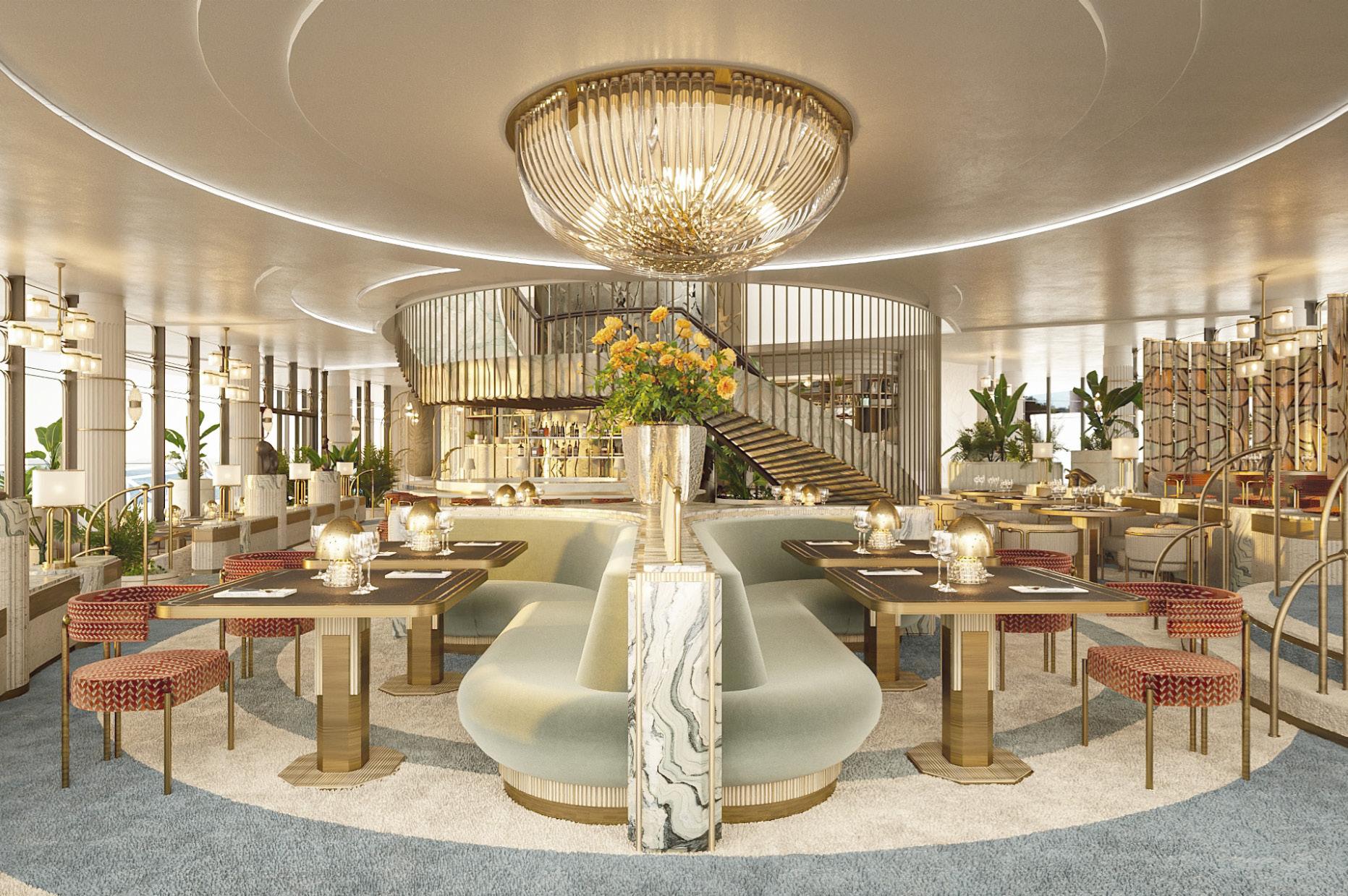
facilities Qatar is known for. It is a 3 million square foot manmade island, only a stone’s throw from the mainland. Aura Group’s attractions on the island, include Winter Wonderland, a brand highly successful operated from London’s Hyde Park which will occupy a million square feet, while the rest of the island is given over to hospitality-side signature restaurants. Namely, the international franchises of Aura Group, Nammos Beach Club, Zuma, Tatel, LPM, Carbone, Em Sheriff, and Billionaire
Aura Group can deliver projects on this scale thanks to the backing of the Power International Holding conglomerate.
“When we require design, construction, fitout, project management, security, landscaping, kitchen equipment, everything is within

our own ecosystem,” says Dowlatshahi. “Every segment is covered. We are self-sufficient. We can leverage the Group even from the design stage. We have a print house for menus and signage. Everything we do we manage within the Group. That offers us benefits
in terms of pricing, but also being a sister company means we are in better control of the entire process. I can call the Vice Chairman & Group CEO and speak one-to-one if there is a roadblock anywhere and immediately fix it. We will get priority.”
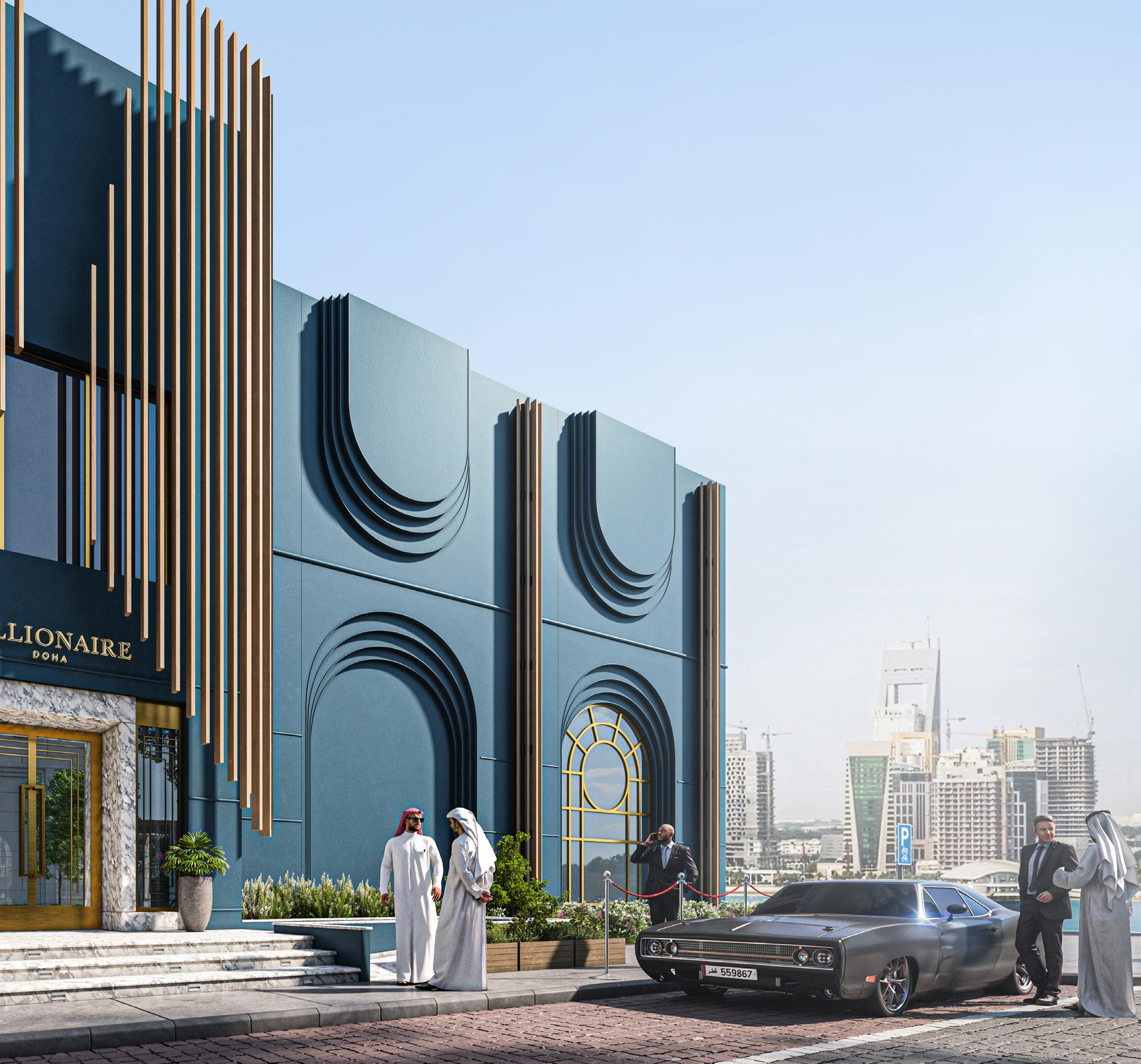
WE ARE SELF-SUFFICIENT. WE CAN LEVERAGE THE GROUP EVEN FROM THE DESIGN STAGE. EVERYTHING WE DO WE MANAGE WITHIN THE GROUP.”
HUMAN CAPITAL
But even with the power of the holding group behind it, Aura Group still faces challenges. Like many businesses across the hospitality sector worldwide, Dowlatshahi concedes Aura Group faces challenges around recruitment.
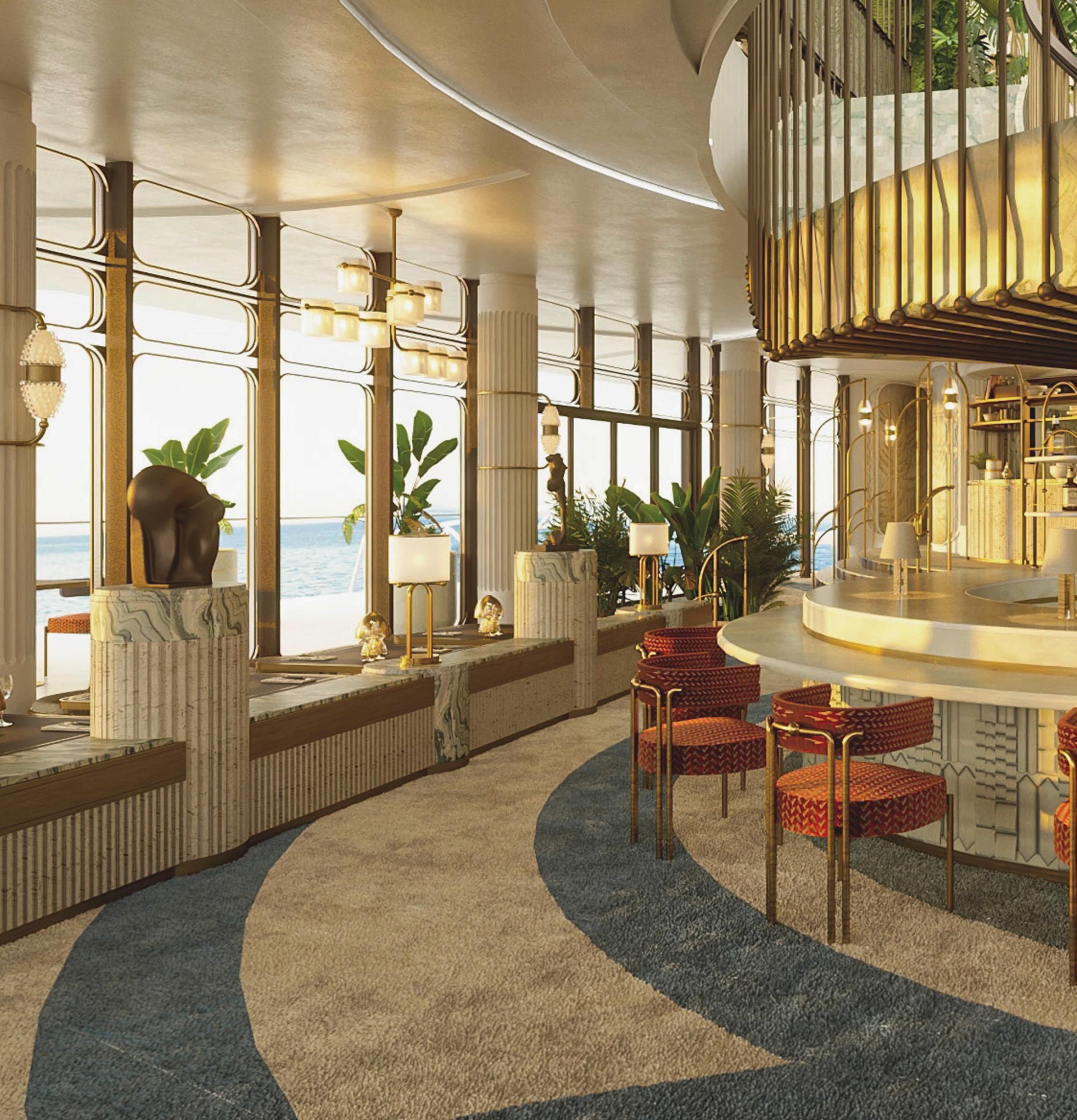

“Human capital is a global challenge. We rely primarily on recruitment from our region, as well as Asia and to some degree Europe and North and South America, but the competition is huge,” he tells us. “The Middle East as a whole has seen an expansion in the sector that has been exponential in the last 10 to 15 years, and that will continue.”
However, the biggest challenge is not just finding talent, but keeping it. While in many parts of the world the service industry, particularly hospitality, is seen as an aspirational career path, that is not really the case in Qatar.
“The vast majority who enter the industry are doing so out of necessity,” Dowlatshahi explains. “They work to support extended family and send money back home. It is not a career choice in the way it is in say, the UK where people enter the sector out of passion.”
While people might not enter the industry to stay, Dowlatshahi believes Aura Group can give them reasons to make a longer-term commitment to the company.
“What that means is you do not have that commitment and loyalty. It is a job, it is a means to an end and unfortunately, there is a high turnover because people will jump jobs,” Dowlatshahi says. “However, saying that, we have been fortunate enough to retain talent. Our turnover rate is less than 5%. We have done that by building a culture of nurturing employees. We are giving them the best working conditions, compensation, and benefits.”
As well as pay and benefits, Aura Group also offers its staff a path forward.
“Where we have this natural high turnover, we give staff a career path and development programme to keep them within the business. We show them a road map of where they can be in a few years, and ultimately, we pay very well with a competitive benefits program that rewards people for exceeding expectations,” Dowlatshahi says.
A GROWING OFFERING
Aura Group has an impressive offering and is building an extensive pool of talent to deliver that offering, but it is also developing its ability to communicate that offering to consumers.
“We are building an app for our entire business. It will be a loyalty app for the entire portfolio of restaurants and entertainment facilities, building brand equity and cross-promotion for the Group,” Dowlatshahi says. “It is a major initiative we are launching in October. The loyalty app will grow to become a super app that can also order home delivery, as well as making table reservations and eventually, in Phase 2 will have a digital wallet for payment.”
Aura Group’s digital capabilities are being developed alongside a greater focus on sustainability. The company has launched a zerowaste initiative.
“By the end of this year, we will achieve zero-waste in all our restaurants. We will turn all our organic waste into water and that water will be used for irrigation,” Dowlatshahi says.
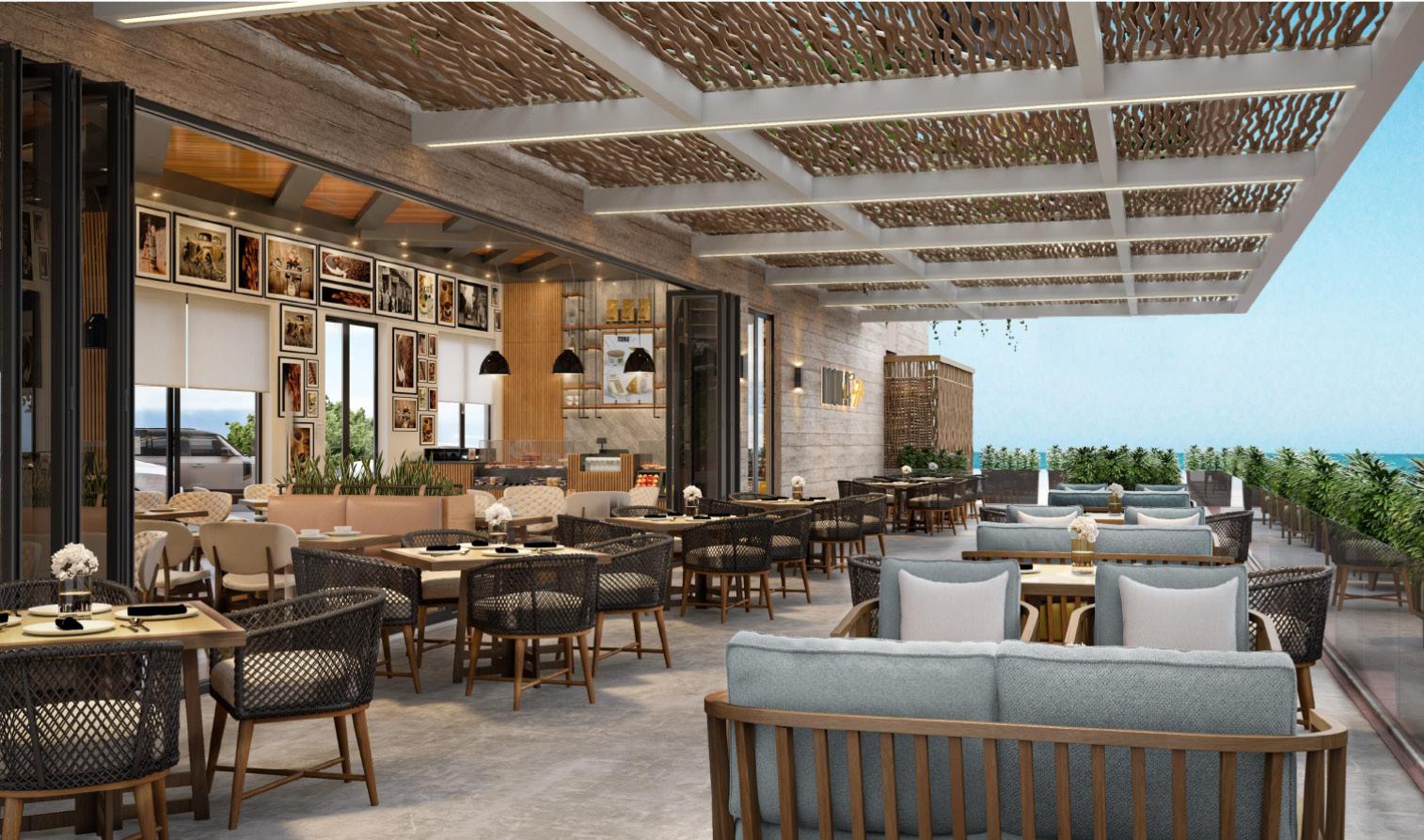
These are big plans, but as the World Cup grows nearer, Aura Group has no time for small ones.
“The immediate plan is to ensure we are open for the World Cup,” Dowlatshahi insists.
“The challenge with the World Cup, unlike a mall or high street development, is that there is a deadline. By the 20th of November, we have got to be ready. It is about ensuring we open on time and deliver on the projects we are developing.”
But while the World Cup looms heavily in Aura Group’s future, it is also by no means the end of Aura Group’s plans. To continue the level of growth Aura Group has enjoyed so far, however, the firm may have to enter new territory.
“We will continue to grow, but we don’t have a lot of depth in our portfolio when it comes to
“BY THE END OF THIS YEAR, WE WILL ACHIEVE ZERO-WASTE IN ALL OUR RESTAURANTS. WE WILL TURN ALL OUR ORGANIC WASTE INTO WATER AND THAT WATER WILL BE USED FOR IRRIGATION.”
managing multiple locations for each brand,” Dowlatshahi points out. “We tend to have signature locations, so there is a market capacity for brands. We need to enter new markets and we have a very strong strategy for 2023 as far as exporting our brands goes. We are leveraging the strong DNA of our homegrown brands which work well in other regions.”
The plan involves growth along several routes, including the traditional franchise route and what Dowlatshahi calls the fashionable ‘man-chise’ route, where Aura Group will take a more active role in the day-today management of franchised restaurants.
“We are looking at entering new markets through partnerships and joint ventures. In Europe, in particular the UK and London, we already have a location in Mayfair secured which we will open in Q2 of 2023,” Dowlatshahi says.
The new restaurant, BASTA, is a traditional Khaleeji concept selling cuisine from across the GCC, with food from Bahrain, UAE, Kuwait, and a lot of influence from Iran, India, and the Levant. It will be an exciting new experience for London diners, the kind that Aura Group is an expert at delivering.
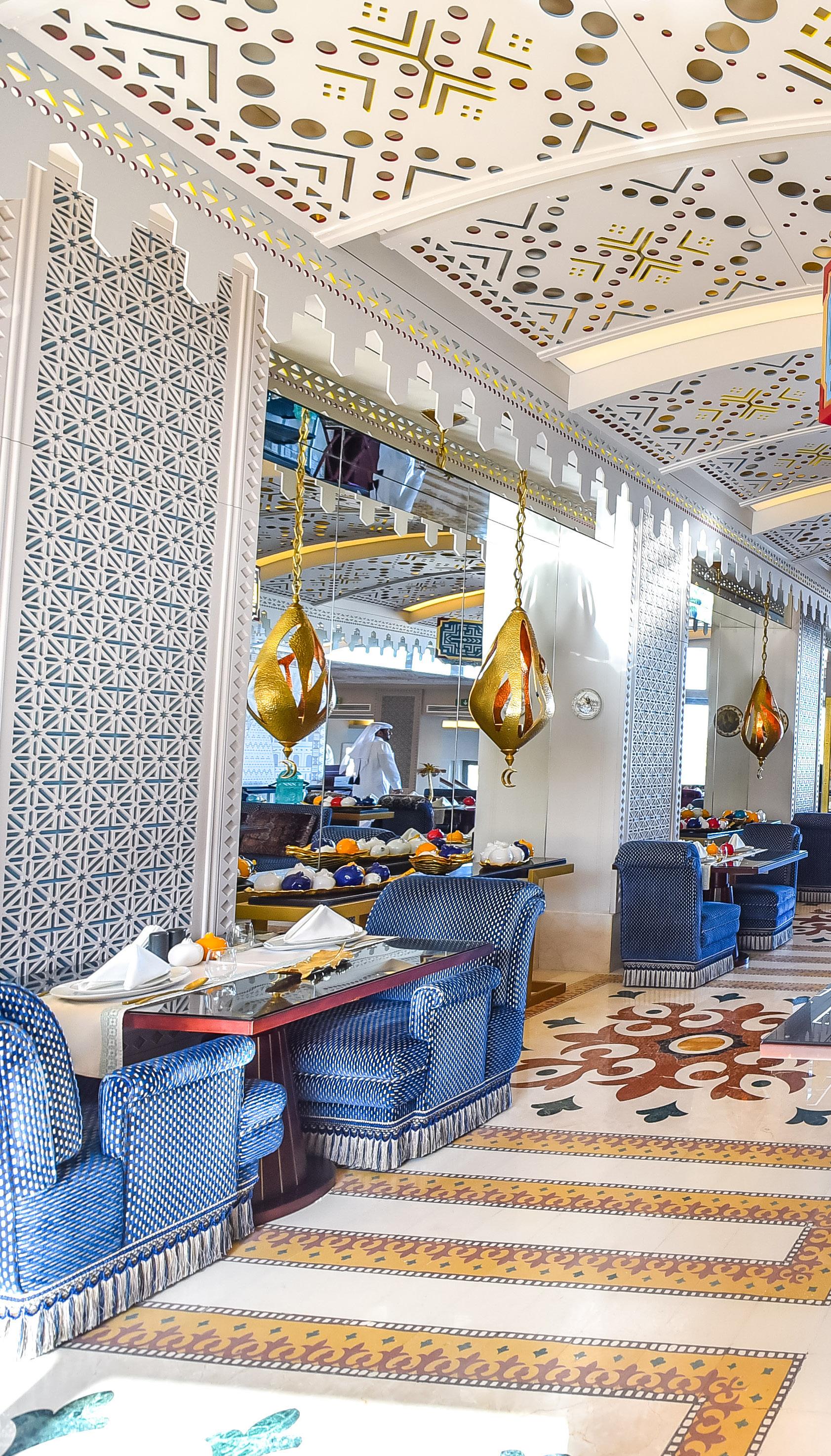
“WE NEED TO ENTER NEW MARKETS AND WE HAVE A VERY STRONG STRATEGY FOR 2023 AS FAR AS EXPORTING OUR BRANDS GOES.
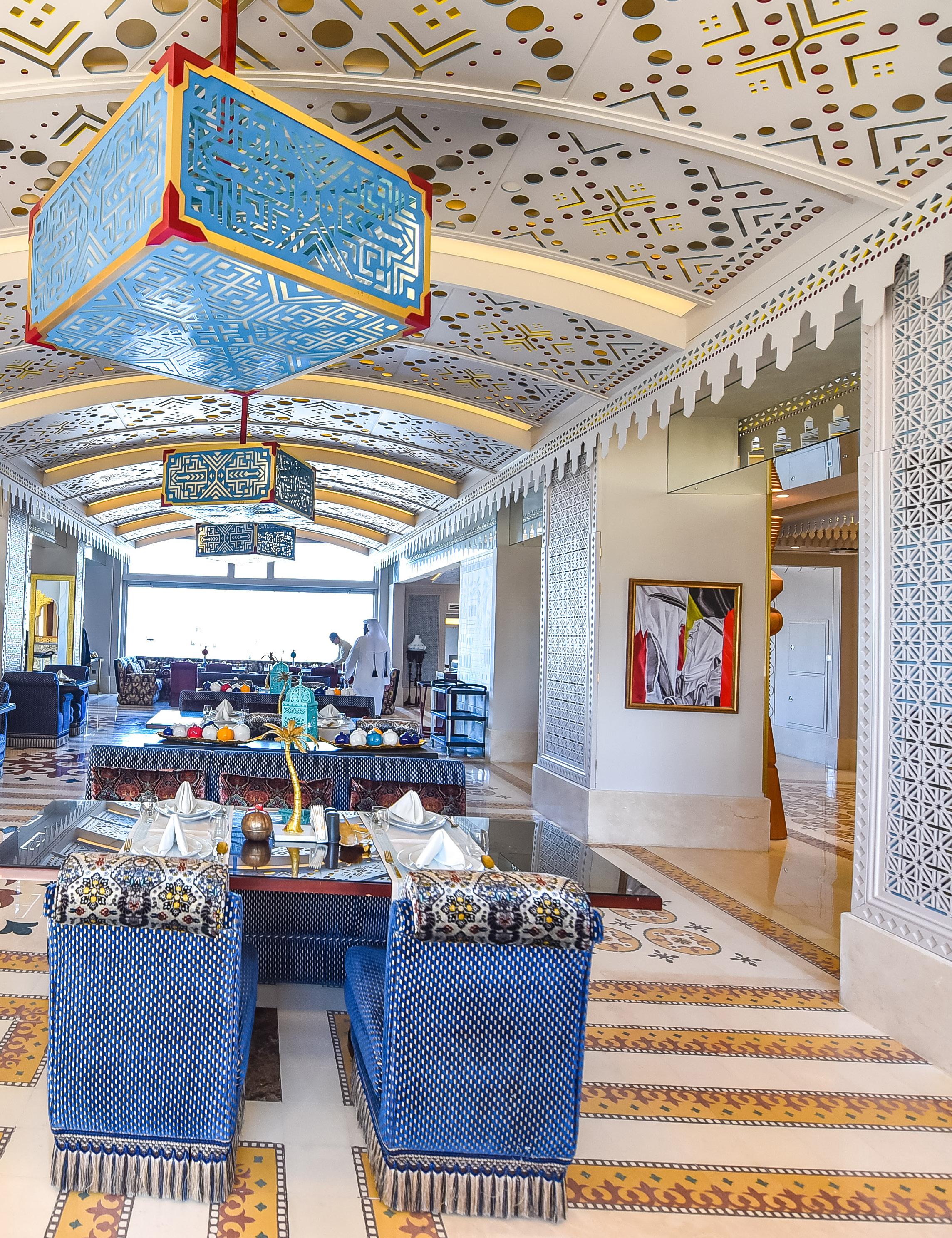
GC AESTHETICS DEVELOPS AND MANUFACTURES A COMPREHENSIVE RANGE OF PROPRIETARY AESTHETIC PRODUCTS THAT EMPOWER PATIENTS TO FEEL CONFIDENT AND SECURE IN THEIR PERSONAL JOURNEY.
EMPOWERING BODY CONFIDENCE
PROJECT MANAGED BY: DAVID TAVERNORWhile breast implants were once only associated with the rich and famous, today they are accessible to almost any woman who wants to feel more confident and better about herself, whether for personal reasons or following an illness such as breast cancer. Whatever the background, patients and their surgeons have one thing in common: they want high-quality, safe implants that are made to last.
This is what Dublin-head quartered GC Aesthetics (GCA), a leading supplier of a comprehensive range of proprietary aesthetic and reconstructive products, can provide. Throughout its 40year history, GCA has been dedicated to advancing the science of medical aesthetics and delivering high-quality breast implants for breast augmentation and breast reconstructive surgery.
The company has sold more than 3 million implants across 70 countries, and its products are supported by published 10year clinical data demonstrating compelling safety and clinical effectiveness.
GSA has production facilities in France and Scotland as well as sales offices in Spain, Italy, Germany, the UK and Brazil. In addition, it works with sales partners in over 60 countries around the world, with some of them for over 25 years.
Breast implants make up around 90% of GC Aesthetics’ output, with the remainder relating to body and face implants and tissue expander products. Around 50% of its implants are sold in Europe, 35% in Latin America and 15% in the Asia Pacific.
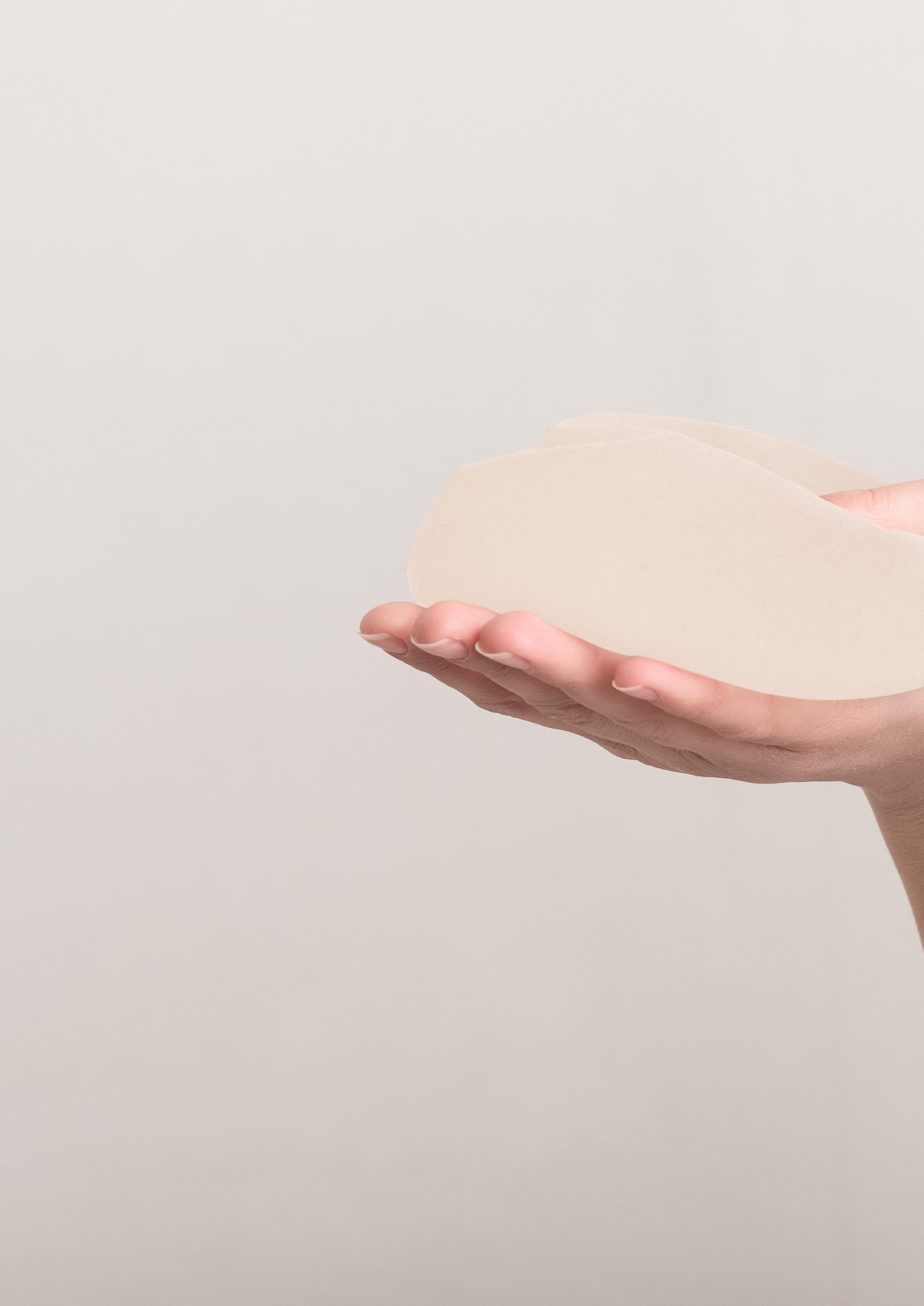
FEELING BETTER IN ONE’S SKIN
GSA’s vertically integrated strat egy enables exceptional clinical, operational and commercial per
formance, which allows the com pany to provide competitively dif ferentiated products to surgeons and patients. Through a culture of continuous innovation and ded ication to customer responsive ness, GCA has established itself as a leading provider of medical aesthetics solutions and the part ner of choice for patients seeking to improve their lives.
“We are not here to enable people to improve themselves purely for aesthetic reasons,” underlines CEO Carlos Reis Pinto.
“We want to help patients to believe in themselves and feel more confident. This is why the safety and quality of our implants are so important.”

We’re more flexible than ever!

The global partner you trust for custom healthcare packaging solutions including pouches, bags, lids, film roll stock, flow wrap and high barrier foils and films.

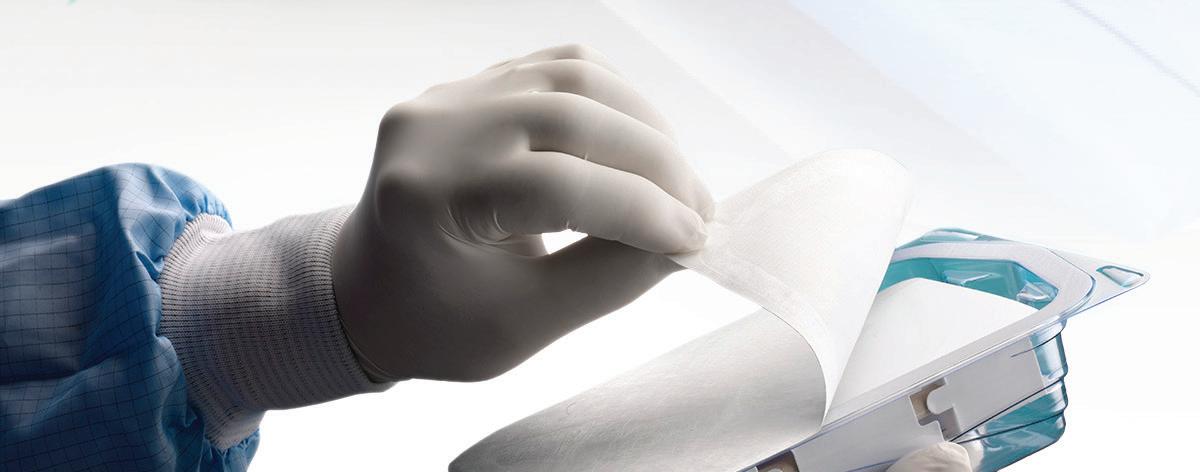
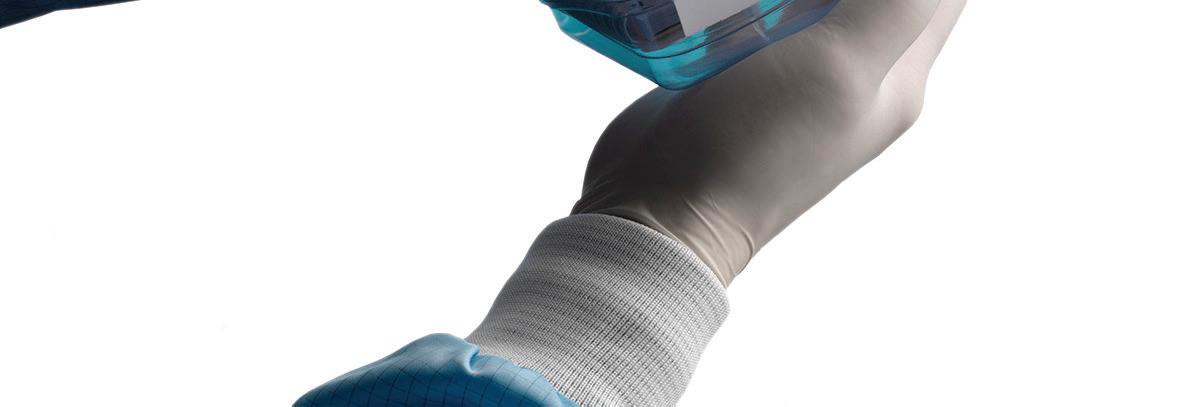

And we continue to provide a full range of rigid packaging you can count on from concept to the point-of-use. Learn more about our custom designed trays, blisters, automation trays, die cards, performance packaging, sealers and lab validation services.
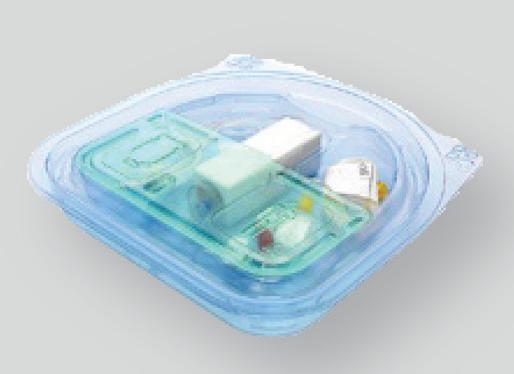


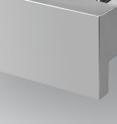


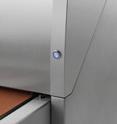
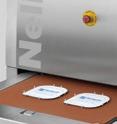


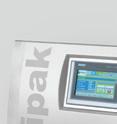

For more information, contact us: Email: info@nelipak.com | Phone: +1.401 946.2699


NELIPAK
HEALTHCARE-FOCUSED CUSTOM PACKAGING SOLUTIONS Nelipak Healthcare
Packaging, a global technology partner to life science leaders, providing innovative packaging solutions and complementary products and services.
We actively collaborate with our customers to understand their business requirements and to effectively design and deliver technologically superior, reliable and trusted packaging solutions with a competitive edge. We are proud to be associated with the success of GC Aesthetics and look forward to being part of their continued growth.
With facilities in Cranston, RI: Whitehall, PA; Phoenix, AZ; Venray, The Netherlands; Galway & Clara, Ireland; Derry & Elsham, UK; Humacao, Puerto Rica and Heredia, Costa Rica, Nelipak® Healthcare Packaging designs, develops and manufactures custom healthcare packaging products that provide superior protection for medical devices and pharmaceuticals.
We offer rigid and flexibles packaging solutions, including pouches, bags, trays & blisters, coated and uncoated lid stock, pharmaceutical packaging, as well as heat seal coatings, handling trays for high speed automation lines, tray heat sealers, laboratory testing services and added value solutions.
We are proud to bring value to our customers’ packaging products from the earliest design phase through to manufacturing and validation. By applying healthcare-focused expertise early in the development process, we can become true partners to our OEM customers and work collaboratively with them to design optimized products fit-for-purpose, reduce waste, and even improve the experience for the end-user – while still meeting the requirements of even the most stringent medical environments.
Our teams do more than design a package; we provide a systematic approach to the packaging process resulting in efficient design, material use, pack configuration, handling, shipping and end-user costs.
THOUGHTFUL INTEGRATED PACKAGING SOLUTIONS
We take the pain out of packaging. Nelipak has the widest choice of complementary packaging options focused on healthcare applications. Our competitive, value-added solutions deliver sustainable performance based on packaging and speed to market with the convenience of a single partner.
RISK-FREE SUPPLY
LAB SERVICES
Nelipak Laboratory Services, an ISO 17025:2017 certified independent testing facility within Nelipak Healthcare Packaging, offers a comprehensive range of tests, including
“Each woman needs a dedicated solution that she knows will not cause any complications, a brand and product that she can trust and that makes her feel good. For this reason, we consider ourselves a healthcare aesthetic partner rather than an aesthetic sector manufacturer only.”
He further affirms that innovation is embedded in the company’s culture – over the last few years, the company has introduced a number of advanced products aimed at providing patients and surgeons with the best possible options.

GAME-CHANGING ADVANCEMENTS
Early in October this year, the company proudly announced the CE approval of its new microtextured anatomical breast implant LUNA xt™, the first breast implant in the world approved under the new European Medical Device Regulation (MDR).
With Its unique and proven safe microtextured surface, highly cohesive silicone gel and highperformance shell, the product provides an industry-leading response to both surgeon and patient needs in breast reconstruction procedures.
“I am proud to launch the first MDR-approved breast implant in the market. This is a great accomplishment and recognition for the work accomplished by our teams. Being the first one is another testimonial to GC Aesthetics’ commitment to women’s healthcare and safety,” said Carlos Reis Pinto.
“The MDR rules have been designed to improve product safety ensuring greater openness, traceability, and clinical safety evidence. Having the first breast implant manufacturing system in the world certified under the new MDR rules demonstrates that our company continues to pursue excellence and customer satisfaction.”

The introduction of LUNA xt™ follows the launch of FixNip™ a few months ago, a one-of-a-kind implant for the reconstruction of the nipple-areola complex with long-lasting nipple projection.
This unrivalled medical device is implanted with a minimally invasive procedure done by a surgeon on average in 15 minutes, minimising patient downtime and offering an excellent safety profile.
Mr Pinto affirmed that the recent launches highlight the company’s commitment to delivering safe options that establish a newer, higher, and more beneficial standard of care for women who seek total breast reconstruction. “These technology breakthroughs will complete our range of solutions dedicated to women’s aesthetic healthcare.”
EXPANDING THE REACH
GCA plans to aggressively capitalise on its success in 2022 and on its superior product line by expanding into new jurisdictions. In June, the company announced its growth
and expansion plans for the Brazilian market, the secondlargest breast augmentation market in the world.
The Brazilian growth strategy includes two main pillars –the commercialization of all GC Aesthetics® products and solutions designed to support the best outcome for women’s breast enhancement journey, before, during and after surgery.
GSA’s Brazilian revenue growth is also linked to the ANVISA certificate (Brazilian Health Regulatory Agency) just obtained for the re-introduction of The Round Collection™ Breast Implants - a unique microtextured surface breast implant that has been the preferred option by surgeons in Brazil: 99% of surveyed plastic surgeons consider The Round Collection™ as the trustable product in terms of safety and performance.
Summarising the drivers of the company’s growth as well as of its future development, Carlos Reis Pinto affirms that technology, packaging and training are the keys to success, underpinned by solid, trustful partnerships. In this respect he mentions the working relationship with Nelipak, highlighting its history of innovation of cleanroom manufactured custom healthcare packaging designed to meet the most stringent packaging requirements.
“In the coming years, we will continue to invest in innovative solutions, to continue to drive high-quality standards in this highly regulated sector and to broaden our market presence. In line with our vision and values, we will continue to focus on safety, quality and reliability, to build on our strong reputation by innovating, listening and improving as we strive to become the most-trusted and first-choice provider of surgical aesthetics.”

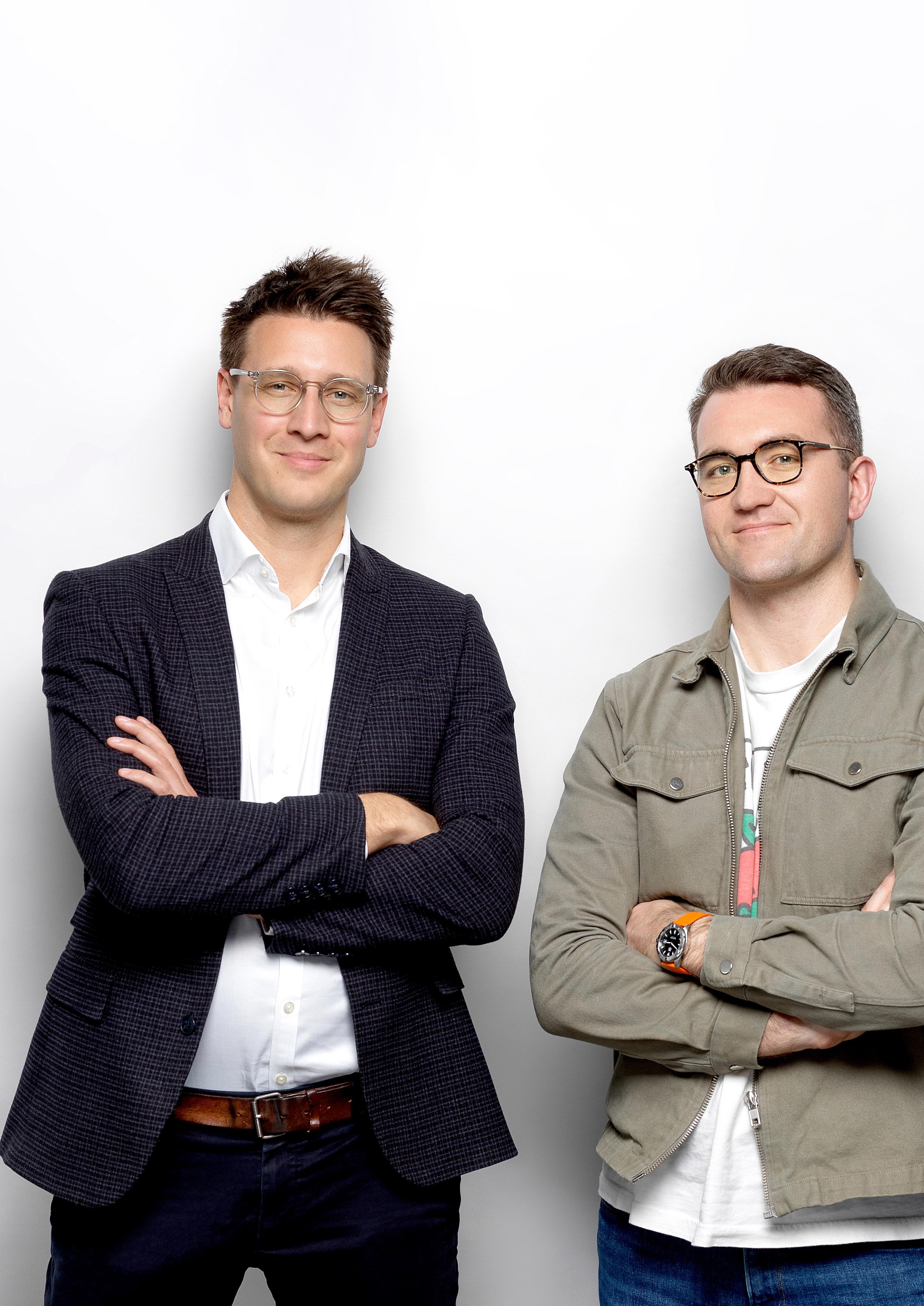
INOVUS MEDICAL’S NEW DIGITAL SURGERY PLATFORM WILL ALLOW IT TO EXPAND ITS TRAINING CAPABILITIES EVEN FURTHER THAN BEFORE.
SURGICAL INTELLIGENCE
PROJECT MANAGED
BY: TREVOR GRETSINGERIt has been two years since we last talked to Inovus Medical, a company that specialises in designing and manufacturing healthcare simulators, with a specific sub-focus on surgical simulation. The time since then has been more than eventful, with the continuing trials of the pandemic, supply chain challenges and an increasingly complex geopolitical situation, but Inovus itself has achieved some major milestones.
When we last talked to Inovus Medical the firm had just raised a round of seed capital. This year the company has closed a $7 million growth capital round, as Inovus continues its move to becoming a digital-first company.
“We have launched our first digital product, a digital surgery platform that adds value to and connects our growing ecosystem of simulator hardware,” says Dr Elliot Street. “We launched that platform in 2020 and got it out to market ahead of schedule to support surgeons under the pressures of Covid. As well as powering our surgical simulators, this digital surgery platform allowed surgeons across the UK and the globe to maintain connectivity
with one another, while refreshing or even enhancing their surgical skills at a time when they could do very little operating.”
As well as achieving more funding, Inovus has also expanded considerably. The firm has just hired a new direct commercial team in the USA, giving Inovus access to the central, east, and west parts of the States with boots on the ground.
“We have listened to the market and put the infrastructure on the ground in the USA. In the US we are seeing more and more adoption. We have also very much cemented ourselves as the market leader in the UK,” Street tells us. “We are offering the single most cutting-edge technology for surgical training.”

A TRAINING CONTINUUM
The biggest challenge Inovus has set out to solve is that surgery is far more than just one skill that can be comprehensively learned.
“There is not a single drill or set of tasks you can do to learn surgery. There is this continuum of surgical skills governed by questions such as ‘what is it I want to learn?’, ‘Do I need to learn the basics?’, ‘Am I moving to an advanced level?’” Street explains. “All of these different elements of learning keyhole or microscopic surgery can be broken down. You do not need a one size fits all solution, but you do need all those solutions to meet the needs of that continuum.”
Street understood the problem Inovus needed to solve, but more than that, he wanted to get surgeons to the point where they can train for surgery the way an elite athlete will train for sport.
“That means offering a training experience that is as close as possible to what they will experience on game day,” Street says.
“We
These barriers were the cost of the training equipment, that it was difficult to access and impossible to scale. Even then, the simulators, often relying on virtual reality technology, were simply not realistic or functional enough to replace the hours of real experience on patients that surgeons usually need to learn.
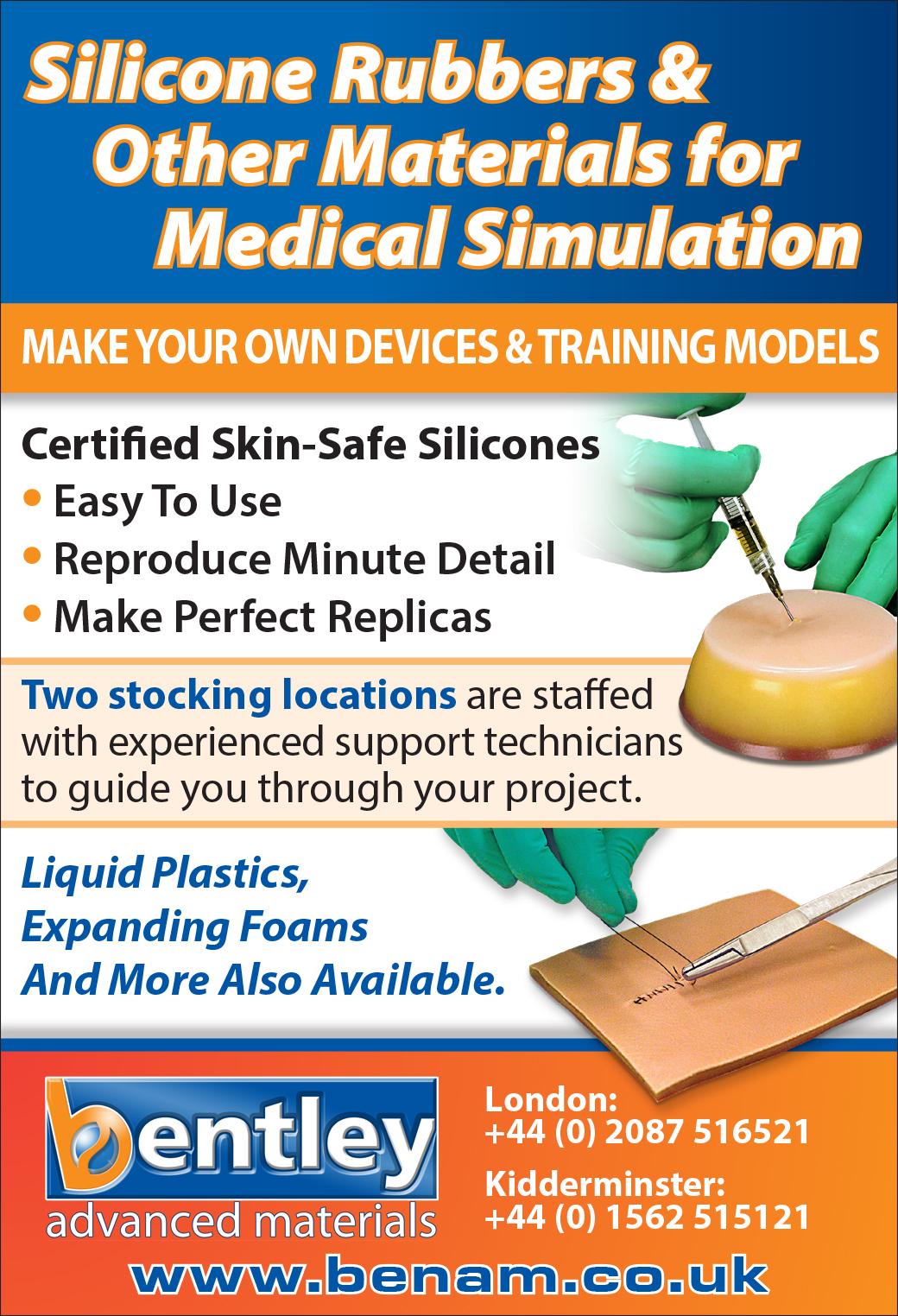
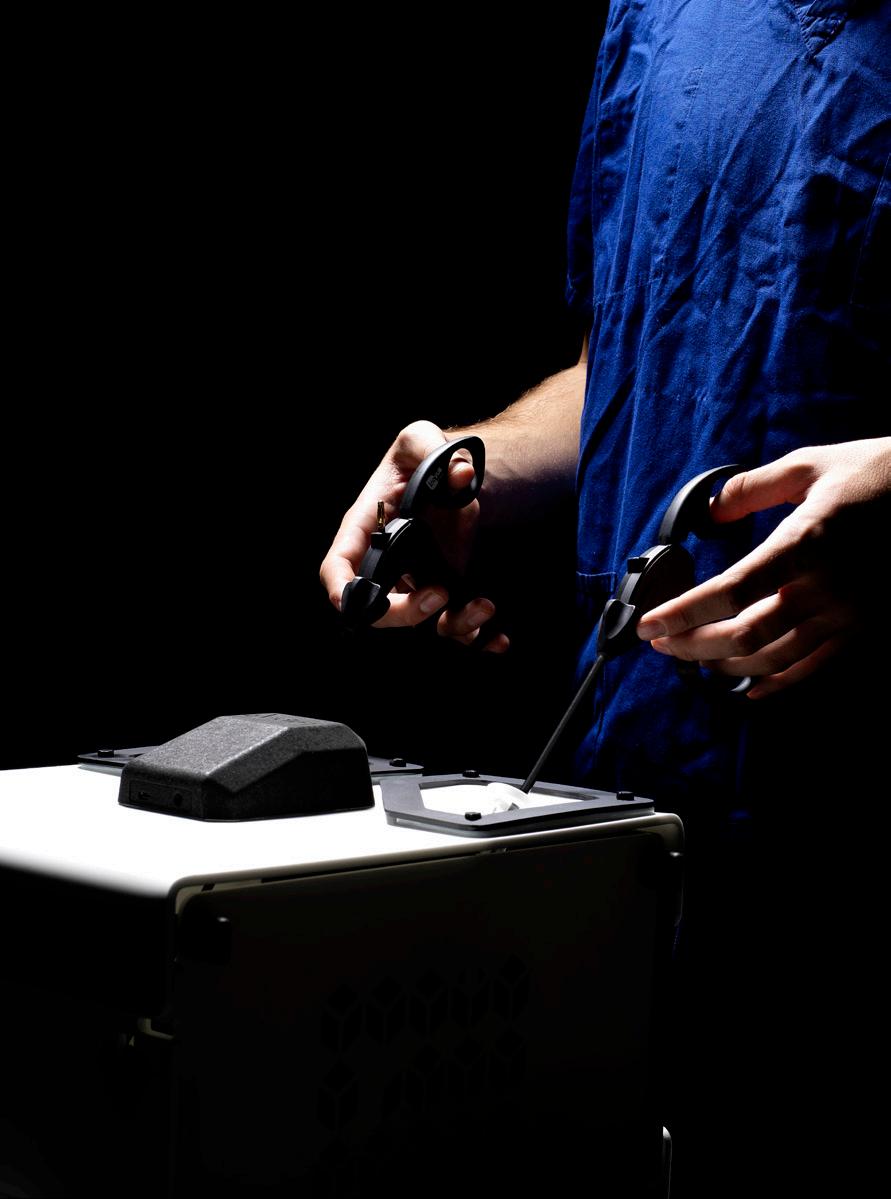
“We started at the bottom of the continuum with low-fidelity basic simulators. Then in 2020 we launched our digital surgery platform and crossed over into high fidelity simulators,” Street says. “The watershed moment was that this platform did not follow the status quo. There was no virtual reality, instead, we used augmented reality to create a platform that is more affordable
because of the way we built it. It is more scalable and accessible, the use of AR allows us to create natural haptics, soft tissue phantoms, and real instruments. Our digital surgery platform means we have a user-friendly system and platform for surgeons to connect to in their day-to-day lives.”
Street informs us that surgeons have described it as the best advance they have seen in 30 or 40 years. It is cheaper and more effective than existing systems, but it is far more than that.
“What we have done is taken on the classic IBM model of large expensive mainframe systems, and produced a product more like the Mac Book Pro, which is accessible to far more people,” explains Street. “But unlike the mac book pro, it is more powerful than the IBM equivalent.”
But Street is the first to point out that this is all just marketing unless people are actually using the system. Fortunately, since the platform was launched it has been adopted by nine regional training programs, including the whole of the West Midlands region, meaning that 5.9 million patients will have surgeons honing their skills on the platform. More than that, it means Inovus now has a wealth of new data to learn from.
“With this platform, we are capturing huge volumes of objective data. We can ask if it is improving skills and efficiencies. We have added a clinical excellence pillar to the business, a team led by surgeons who are researching and providing an evidence base for the digital surgery platform with our augmented reality approach,” Street points out.
realised four barriers were stopping that from happening in surgery.”
“WE WILL DELIVER THE SAME LEVEL OF TRAINING ACROSS ALL THOSE SPECIALITIES.”
“We have seen that it results in a 40% reduction in time to operate, a 60% increase in surgical efficiency, which impacts on costs to deliver in a cash-strapped NHS, alongside improved surgical performance that reduces the risk to patients.”
This data will help Inovus Medical realise its long-term mission, to become the world partner for surgical training, and while the company has achieved so much since we last spoke to them, Street’s mind is purely on Inovus’s next steps.
“Where do we go from here? Right now, we have products serving keyhole surgery, gynaecological surgery, and general surgery, but it does not address all the skills for surgery, gynaecology, urology, neurosurgery and beyond,” Street says. “Moving forward we want to take our proven evidence-backed digital platform and apply it to a horizontal continuum of surgical specialities. We will deliver the same level of training across all those specialities. Only then will we be able to say we have achieved our mission when everyone on the planet is using our technology.”
To get to that point, Inovus is not only building its footprint in the States and around the world but has also doubled its development team, continuing to create new technologies and apply them to the surgical training continuum. But all these new technologies will be supported by Inovus’s new digital platform, which is now coming into its own as a product.
“This platform has been in use for two years, but now it is its own standalone product that will power this growing ecosystem of connected training tools,” Street announces.
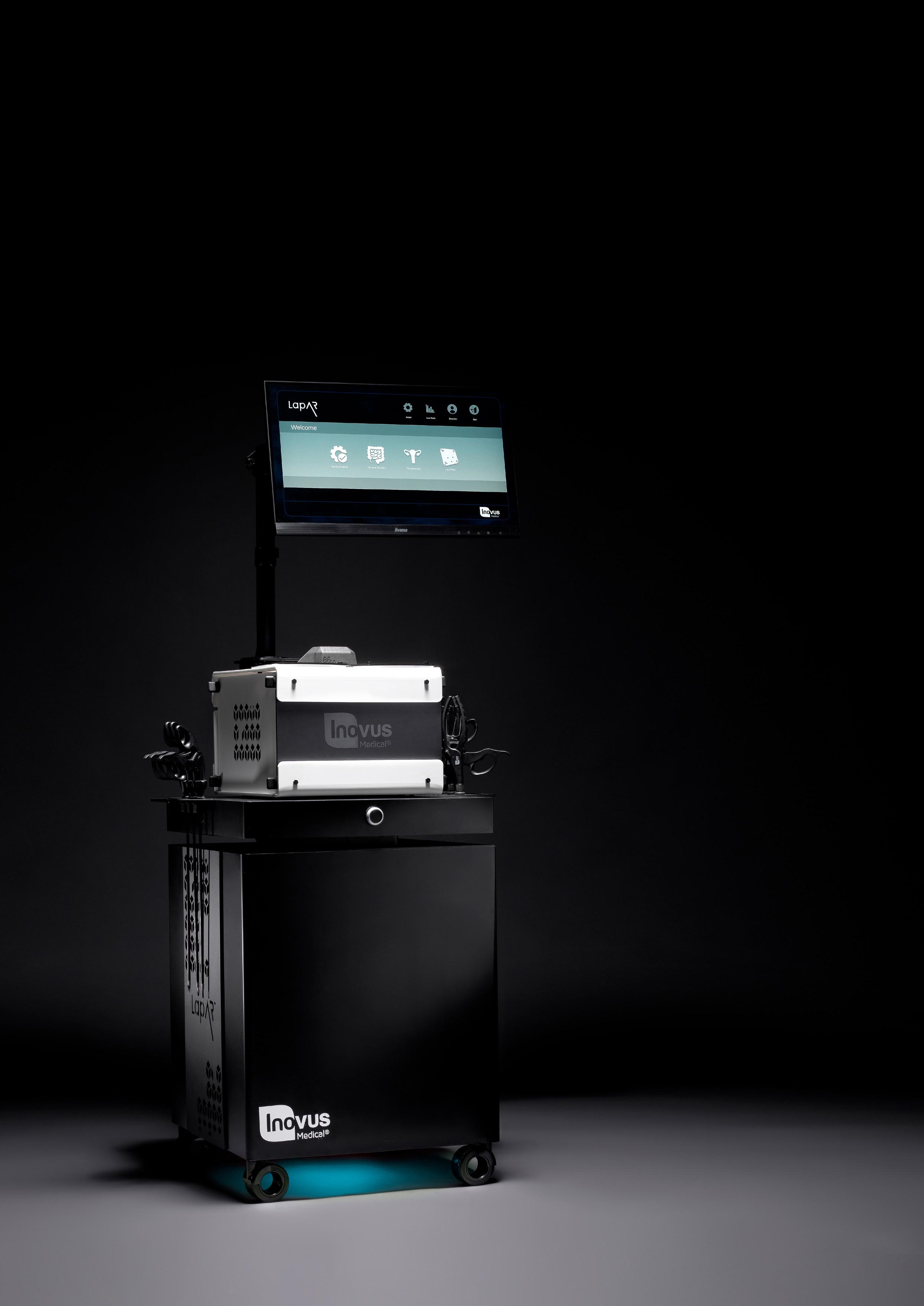
“WE HAVE LAUNCHED OUR FIRST DIGITAL PRODUCT, A DIGITAL SURGERY PLATFORM THAT ADDS VALUE TO AND CONNECTS OUR GROWING ECOSYSTEM OF SIMULATOR HARDWARE.”

PARIS-HEADQUARTERED PRODUCTLIFE GROUP, A PROVIDER OF REGULATORY COMPLIANCE SERVICES FOR THE SAFE AND EFFECTIVE USE OF MEDICAL SOLUTIONS, FOLLOWS AN IMPRESSIVE GROWTH STRATEGY.

PARTNER FOR REGULATORY COMPLIANCE
PROJECT MANAGED BY: TREVOR GRETSINGERProductLife Group (PLG) is a life sciences consulting business that offers outsourced services in the areas of regulatory affairs, quality and compliance, vigilance, and medical information. Its expertise spans oversight of both established products and innovative therapeutics and diagnostics.
Established in 1993, PLG has supported a range of clients throughout the life sciences product life cycle, combining local expertise with global reach and spanning more than 150 countries. The company is based in France but operates a number of offices throughout Europe and the United States while planning to further expand its global reach.
THE STRATEGY OF GROWTH
The company has gone through a period of rapid expansion over the last few years, following a change in ownership in 2019.
With this change, the company got not only a new owner but also a new CEO, Mr Xavier Duburcq, who defined a new company strategy, significantly changing the
direction of the business, with a strong focus on organic growth and growth from acquisitions.
That strategy has been successfully followedsince 2019, PLG has grown organically by 15–20% per year and each year completed two to three acquisitions. “At first, we focused on adding specific complementary skills to the field we operate in, such as safety and vigilance related to drug development. Now we are strengthening our geographical footprint together with further boosting our skill set,” Mr Duburcq explains.
PLG’s latest acquisition is an example of that vision. In June, the company was joined by Denmark-headquartered Pharma IT, a leading provider of technology and deregulatory compliance solutions for the life
sciences industry, specialising in quality and compliance, management consulting, drug development and, specifically, information technology.

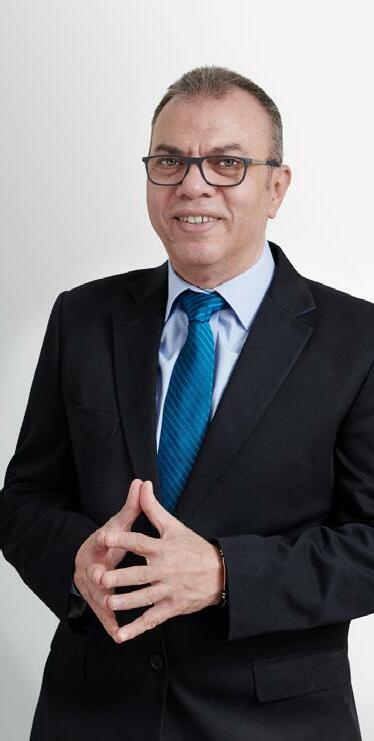
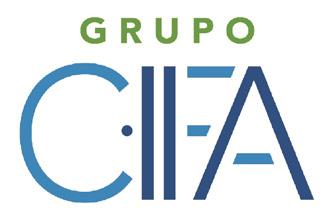
“IT competence is becoming even more crucial, as regulations are increasingly based on data management, and both the European Union as well as the FDA are implementing new portals for automated drug data input. The addition of Pharma IT will reinforce our existing quality management and compliance offering with expertise in the field of IT systems implementation, validation and compliance, as well as strengthen our presence in the Nordic region.”
WIDE RANGE OF SERVICES
PLG’s clients come from the pharmaceutical, med-tech and biotech industries. “Our services cover the full product cycle from start-up funding and product development to preparations for a medical device or drug approval. Our support is mainly about quality and compliance with regulations, and we also cover all aspects of product vigilance and provide consulting services for market access,” says Mr Duburcq.
“Today, larger companies tend to fully outsource their regulatory and compliance services. That means that for some large clients we manage all the drugs, regulatory and compliance activities.”


He points out that demand has increased for support with the IDMP (Identification of Medicinal Products) process. IDMP is a suite of five standards developed within the International Organization for Standardization (ISO) to facilitate the unique identification of medicinal products in the context of pharmacovigilance and the safety of medications throughout the world.
“The standards have a lot of different components. We help our clients to manage those requirements, organising the quality and data management systems and processes. If required, we help them to find the right software solution, and to integrate the software into their systems.”
ENERGISED TO GROW
Reflecting on the latest developments, Mr Duburcq admits that managing steep business growth has been a challenge, but one that has been handled well: as a result of the latest acquisition, the company today employs some 1000 people across its locations – a sharp increase against 2019 when the headcount was under 200.
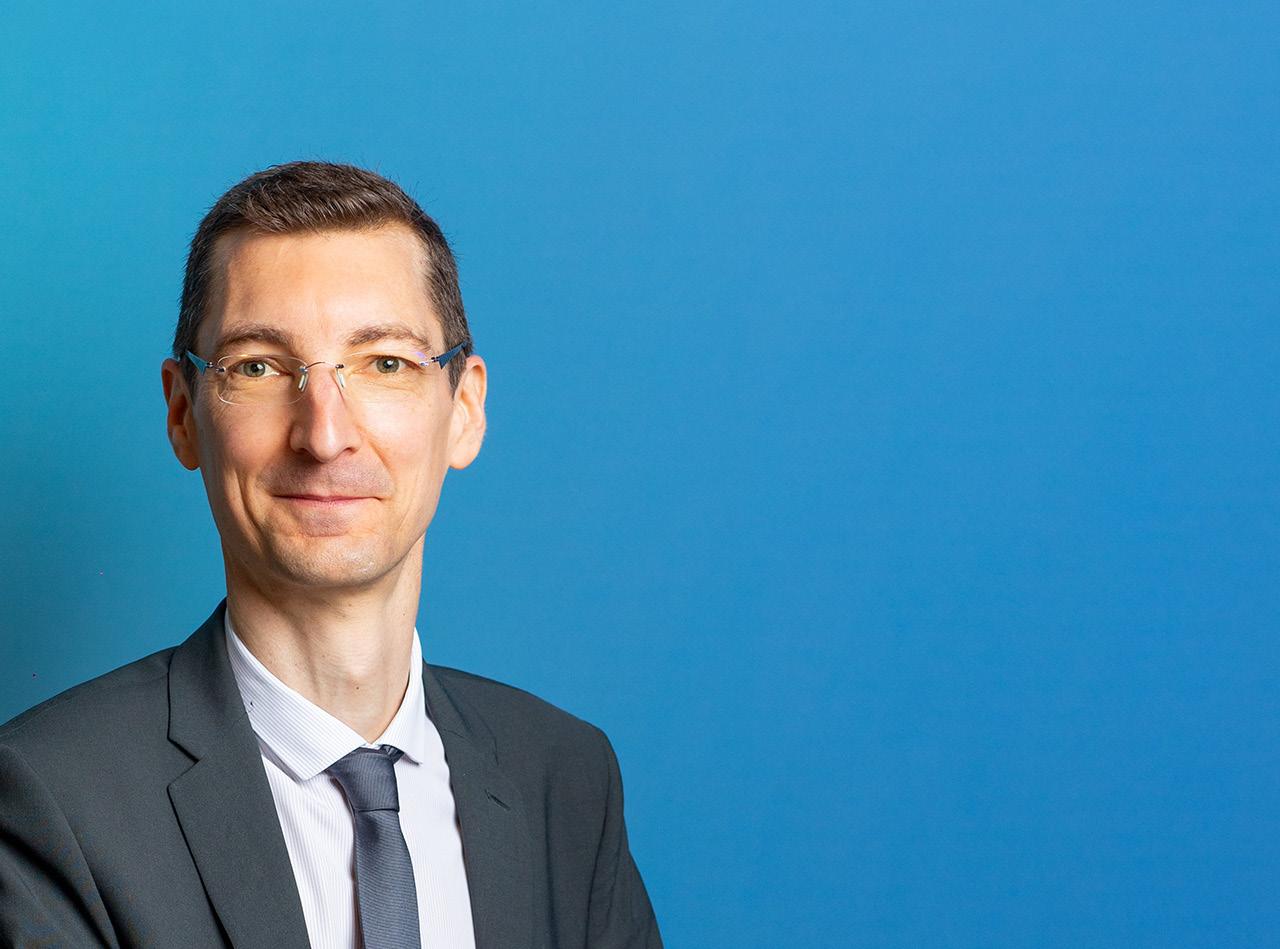
“You can imagine that such an increase means a permanent change inside the company. We also try to retain the dynamic, entrepreneurial spirit of a small company, so when we recruit new people, they need to adapt to that mindset.”
Most of PLG’s staff are specialists in different fields of medicine and pharmaceuticals, but increasingly also include IT engineers. Attracting the best talent is not easy, says Mr Duburcq, as PLG competes for the right human resources with similar players in the market.
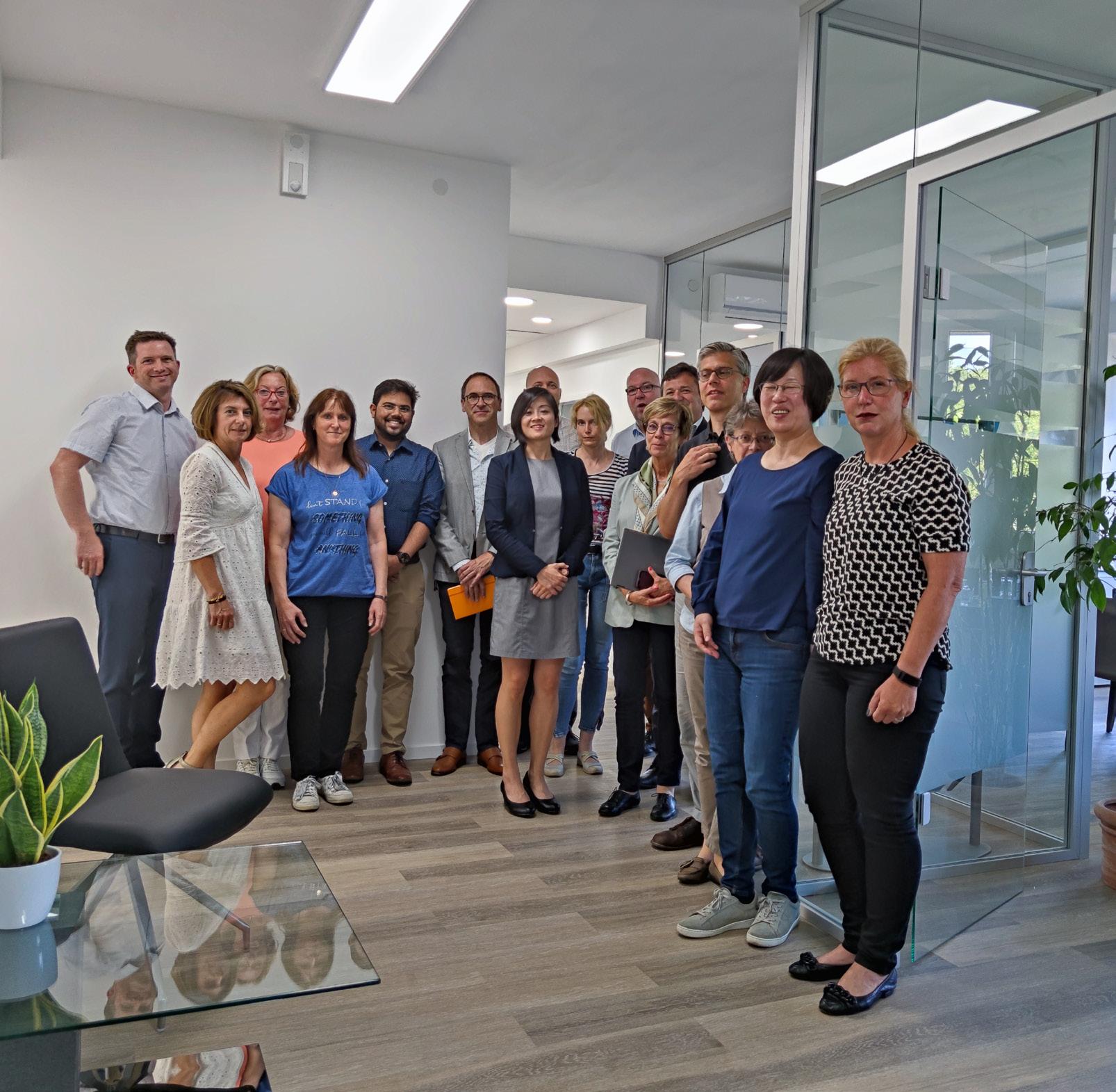
Under the new CEO, the company has fully reshaped the experience of being an employee and has adapted its internal and external communications with the creation of a Social Ambassadors network, Employee Boosters, a Shadow Board & a CSR Committee.
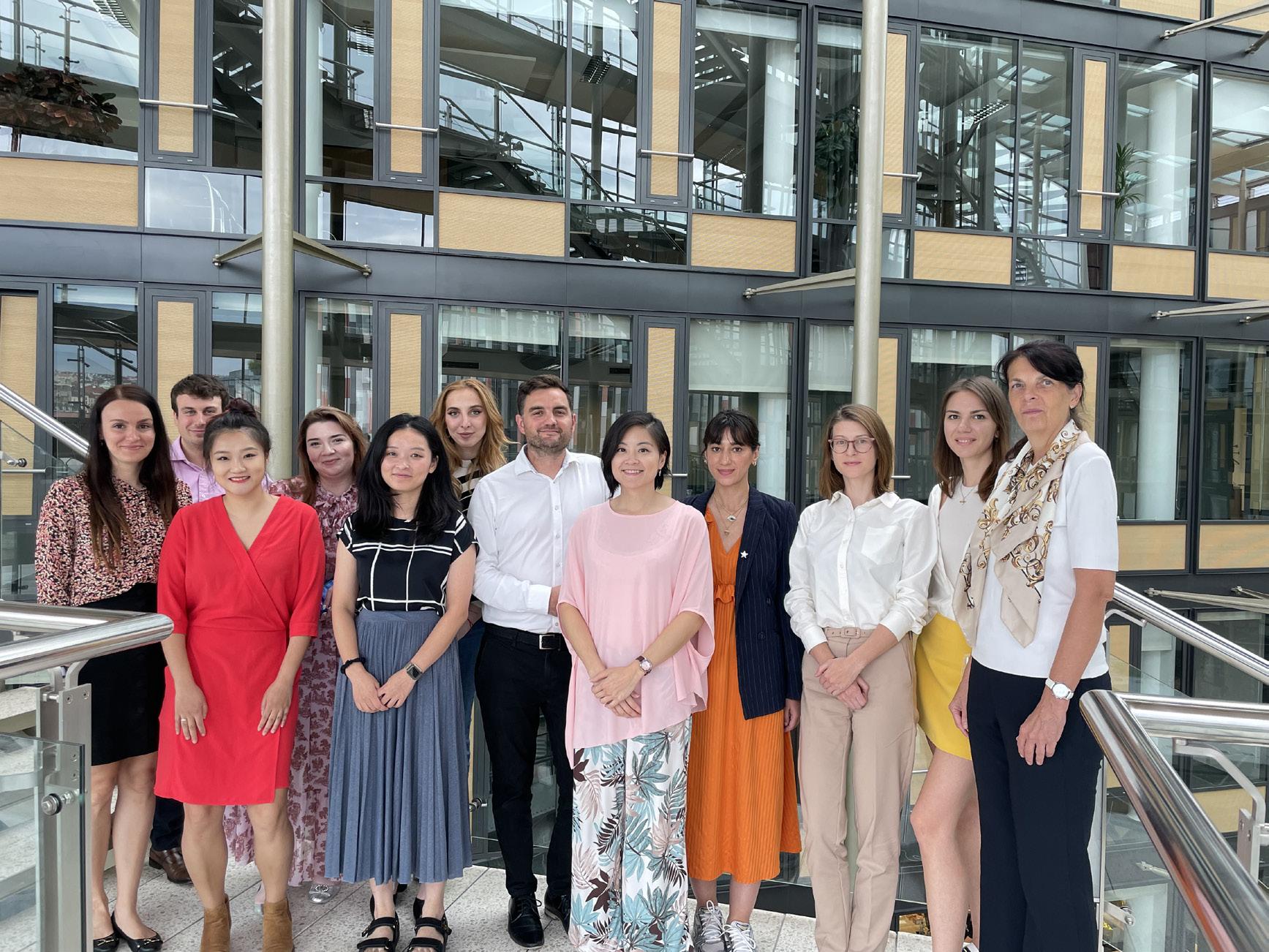
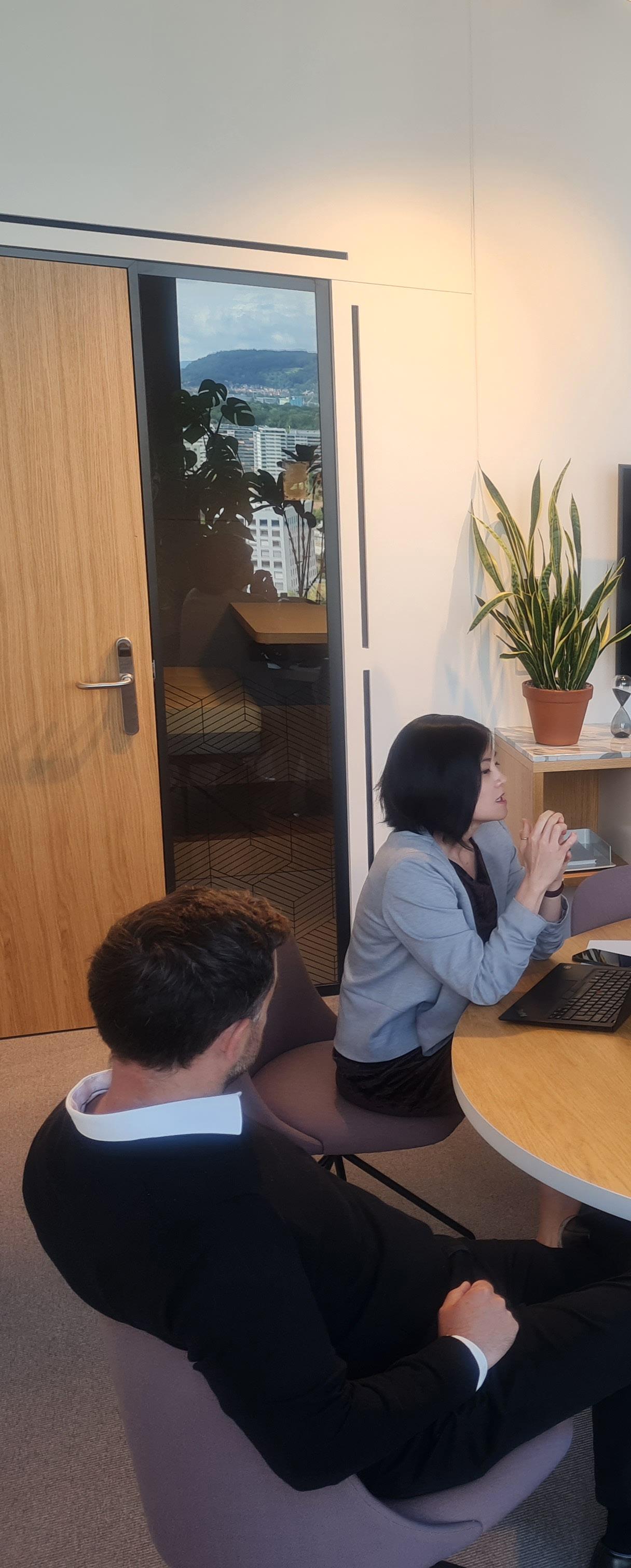
“As part of our strategic plan called ‘Energised’, we want our people to become engaged in certain aspects of company strategy formation. For example, our Shadow Board, made up of elected employees, often young and dynamic, are asked to present their views and to propose projects aimed at company transformation,” says Mr Duburcq, adding that the management is in the process of implementing some
of the proposals, including the one of how best to manage new acquisitions.
INCREASING THE BUSINESS
And new acquisitions are certainly in the pipeline – by 2025, PLG is set to reach 2,000 employees as well as increase its presence outside its key markets of Europe and the US, says Mr Duburcq.
“We would like to start focusing on the APAC region next year, with plans to develop the business in the US and Canada. We already have some Chinese and Indian clients, but at the moment we manage them from Europe. As the Asia Pacific region today probably represents a third of the pharmaceutical market, it is an obvious destination for us.”
However, reinforcing activities in Europe and the US is also on the agenda. The company has just become an exclusive partner for EIT Health, the entity in charge of Health Innovative projects in Europe, for the life sciences sector.
“We will provide support for start-ups within the EIT Health’s Venture Centre of Excellence (VCoE). It is an important programme, screening and supporting hundreds of startups in Europe focused on new drugs and new solutions, most of whom will need support with their regulatory strategy and market access. PLG will provide that support.”
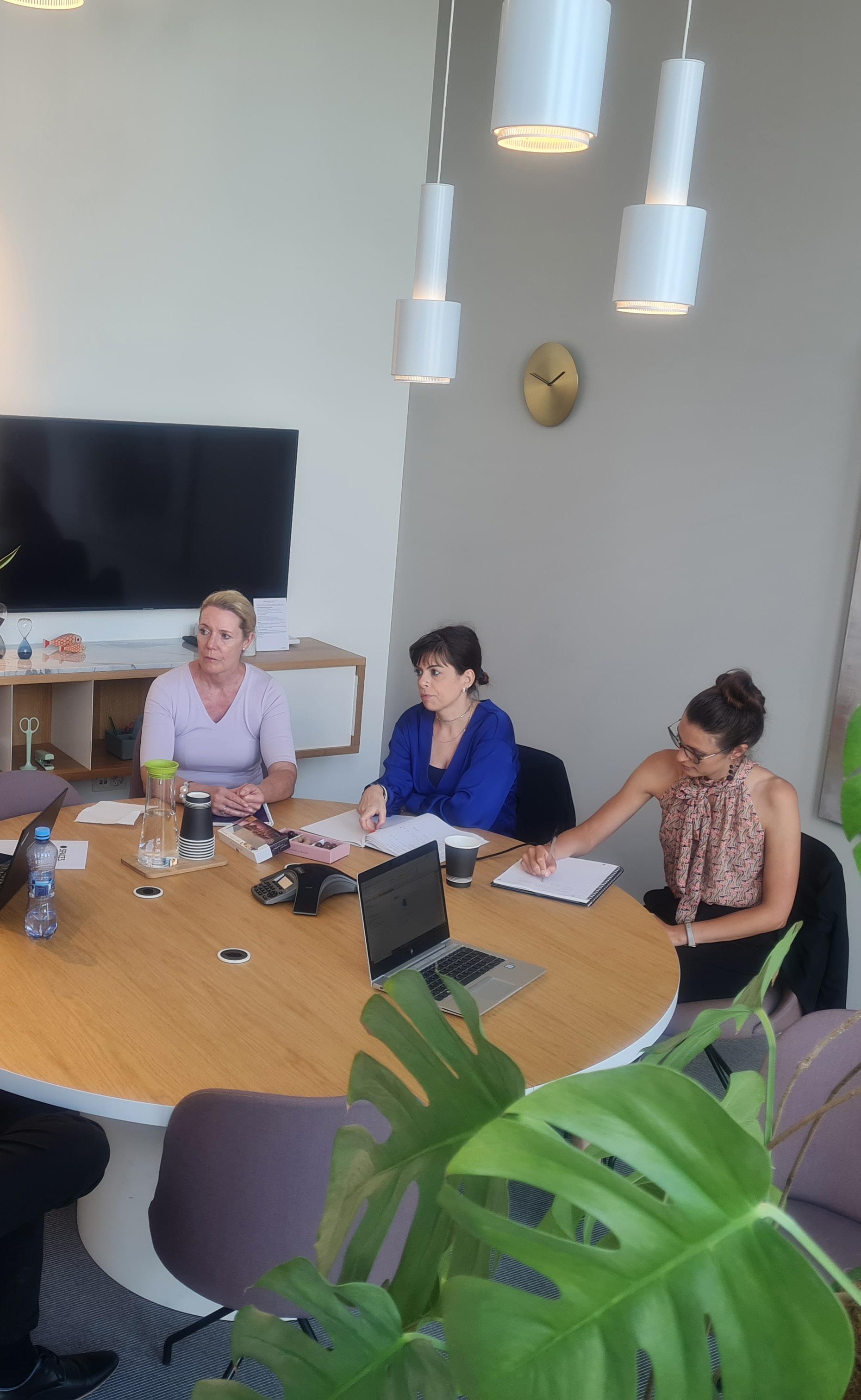
“I’m happy to announce that PLG has just achieved another step in its transformation roadmap with the acquisition of Zwiers Regulatory Consultancy (ZRC) - a consulting company with offices in Amsterdam and Oss, the Netherlands” Duburcq disclosed.
ZRC offers product development services in the EU, the US, and other territories, covering strategic, scientific, and regulatory support, ensuring regulatory compliance throughout the product life cycle.
The ZRC acquisition will expand PLG’s footprint into the dynamic Dutch life science ecosystem and provide physical proximity to the European Medicines Agency (EMA).
And Duburcq concludes: “This comes as an answer to one of our key objectives for 2022, as expressed in our strategic roadmap EnergiZe 2025, which is to reinforce our ability to support our clients during the development phase.”
WE LEARN HOW SHL HEALTHCARE INVESTS IN TALENT AND TECHNOLOGY OVER A GLOBAL NETWORK.

A GLOBAL HEALTHCARE PARTNER
SHL Healthcare focuses on manufacturing solutions for the MedTech industry, with particular regard to patient handling and pressure mattress systems, among others. The company serves as a contract manufacturing company, and a contract designing company and has manufacturing operations in Bulgaria and China alongside its R&D premises in Sweden.
Our strength lies in being a leading contract design and manufacturer for these solutions, which is supported by all the required ISO13405 certifications needed to sell our products in Europe, the US and around the globe,” explains Per Bjorkman, Director of Business Development for SHL Healthcare. “We have an elite team of industry experts with key knowledge and extensive experience in product development. In fact, we are perhaps the largest contract manufacturer of medical lifting slings globally.”
A GLOBAL EFFORT
Speaking with Bjorkman, it feels like the company is at the dawn of a new era. Following the stresses of Covid, and everything that has come with that, it is clear Bjorkman is excited to be finally getting out into the world again and interacting with customers directly.
“After two years of Covid, all we want is to get back in the field and meet people,” Bjorkman says.
“We want to show customers our capabilities, our knowledge, and our people.
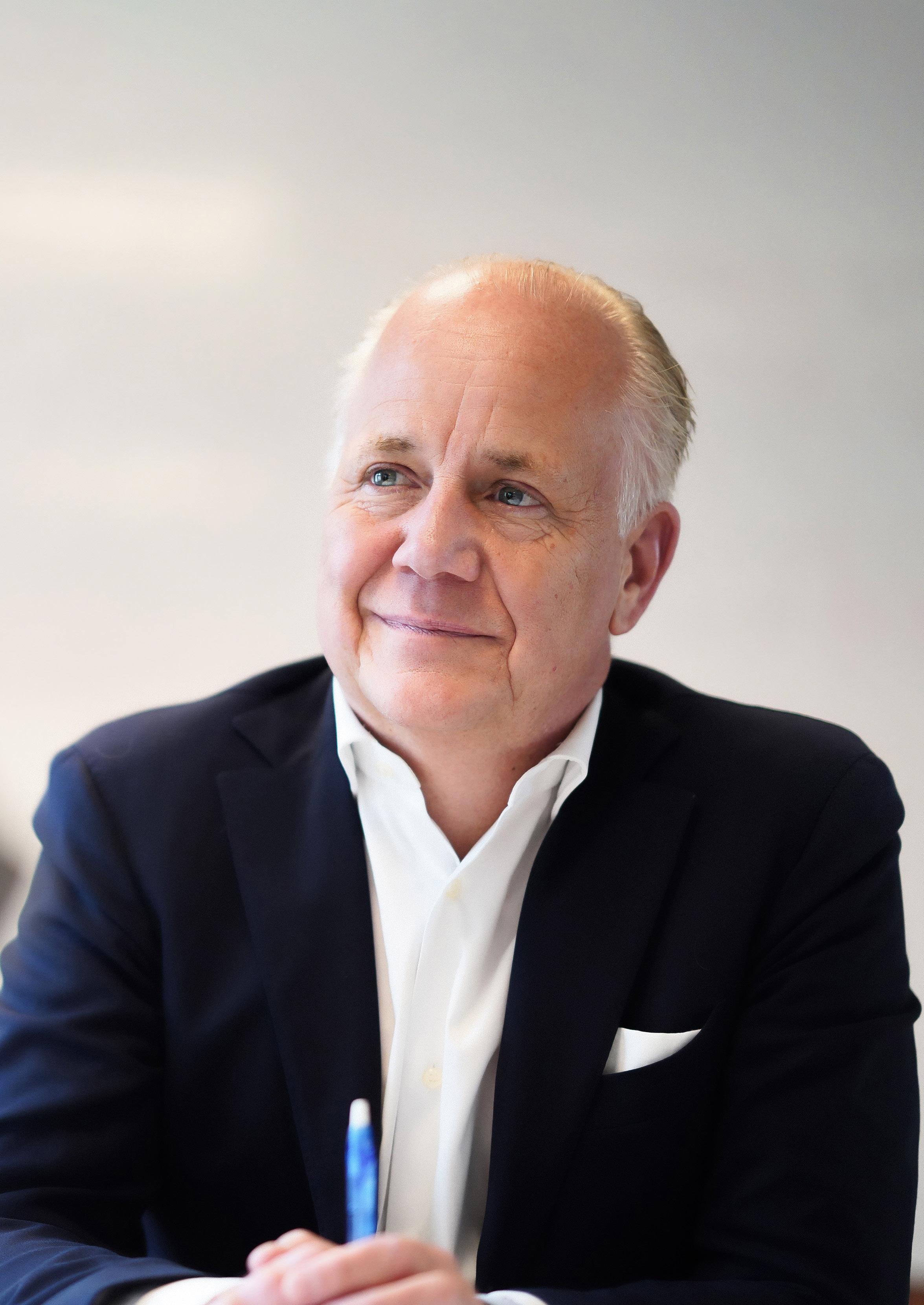




SOLIDENGINEER AB
SHL Healthcare is a leading MedTech manufacturing company that partnered up with SolidEngineer for the transition from paper-based to electronic records and signatures.
Fulfilling regulatory requirements for the MedTech industry is key to success and a focus on all changes to the business.
Implementing SOLIDWORKS PDM with replicated sites allows SHL Healthcare to collaborate globally. It allows for full control in the development of projects and the ability to facilitate changes to existing products faster than before while enhancing quality control.
SOLIDWORKS PDM enables users in all time zones to collaborate with less emailing and with an easier way of finding the correct information. Digitizing is a challenging project for any organization with changes in both systems used and standard operating procedures.
By defining and implementing the change in phases it is easier to reach the end goal of transforming the company’s way of working.
“It’s easy to learn SOLIDWORKS PDM but it is always a challenge to change behaviors and the way you work”, says Mie Sörqvist, PDM-Expert at SolidEngineer. She explains that it is important to repeat the reasons for changing, and the benefits for both the users and the company.
With over 25 years of experience in serving Swedish companies with product development solutions, SolidEngineers’ technical consultants experts and certified SOLIDWORKS support team ensure clients shorten product development time, reduction of costs and improve quality.
www.solide.se
EPICOR
As companies contend with an array of challenges from operational efficiency, supply chain disruption, workforce complexities, through to changing customer expectations for digital connectedness, the need for flexible, industry productivity solutions powered by insights has never been greater.
The Epicor Industry ERP Cloud portfolio is built to deliver a variety of integration, automation, and performance capabilities that help customers stay ahead of these challenges while maximising the power of their data.
In the new Epicor 2022 Industry Insights Report, we asked 1,350 IT decision-makers to reveal their biggest needs as they evaluate, purchase, and onboard cloud ERP solutions. To find out why 90% of those surveyed are comfortable with cloud-based ERP solutions and what they looked for at every stage of technology adoption, read the 2022 report and discover what capabilities your peers and competitors are seeking including industry expertise, integration, cybersecurity, and customer support at epicor.com
Epicor is a global leader of industry-specific enterprise software designed to promote business growth within the Manufacturing Industry. We have been enabling our customers’ businesses to achieve their ambitions for more than 50 years.
As the leader in Enterprise Resource Planning for medium-sized businesses, Epicor is the trusted partner for thousands of companies worldwide.
Innovation and sustainability… …where skin meets fabric
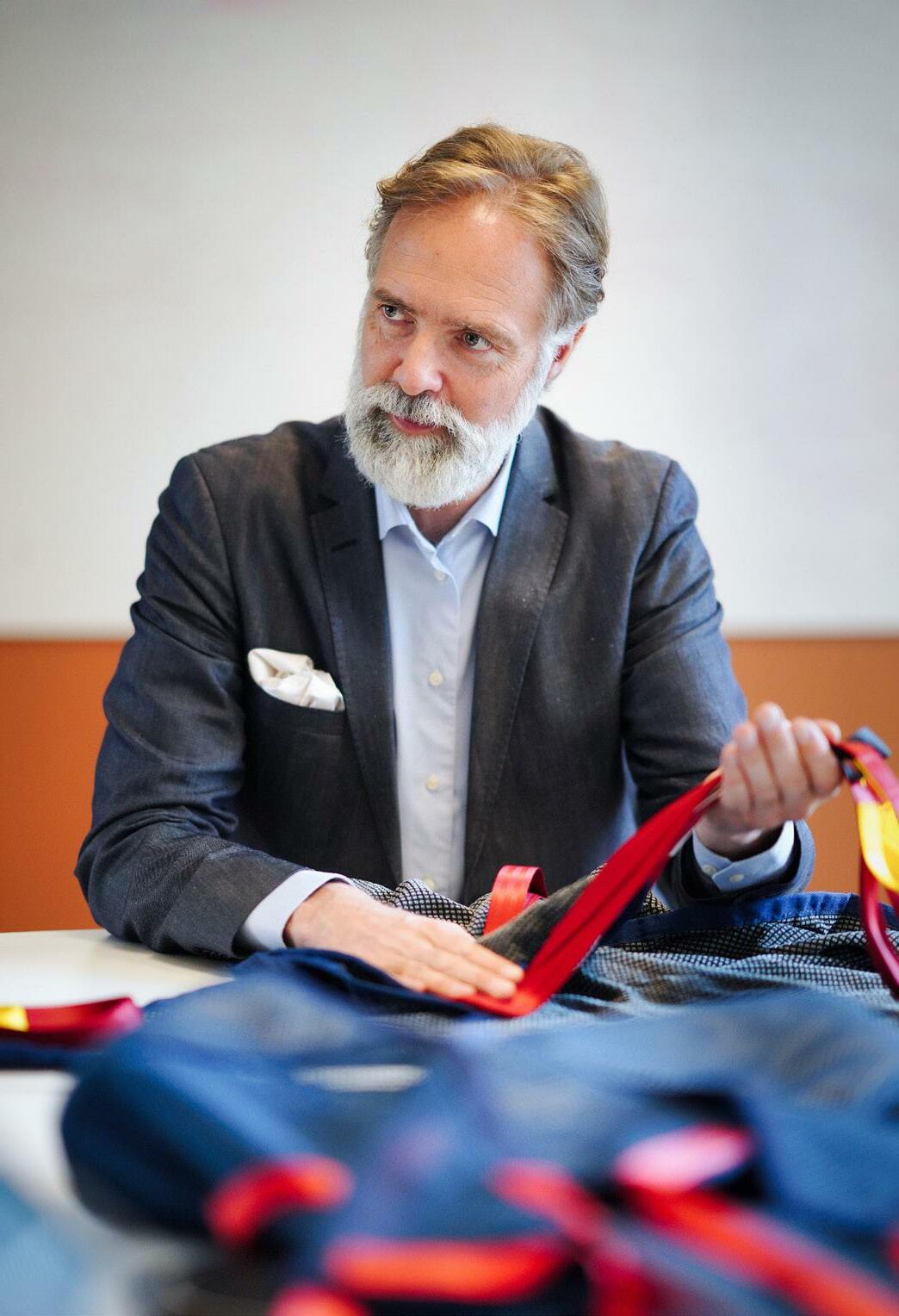
Talk to Trelleborg Engineered Coated Fabrics about our range of technical textiles for healthcare & medical applications

� TrelleborgECF.com
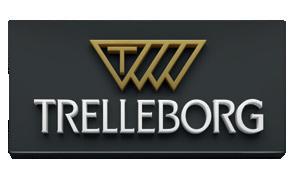
� TIS.ECF.healthmed@trelleborg.com
� +44 (0)115 983 7676
It’s actually happening right now as this Autumn and Winter will be the perfect time to catch up. I really believe that it’s essential to meet customers in person so they can touch and feel products and be able to get the explanations they need right away. Our ability to meet digitally around the world has really helped us to do so much, but I think you need both.”
Having access to the full range of communication options is essential for SHL Healthcare, as it is a company with a truly global presence, to the point where many customers also use SHL Healthcare as an impromptu logistics provider, among other services.
“We sometimes help customers with global logistics,” Bjorkman explains. “We’ve helped several customers from our Europeanbased logistics centre. For example, if you have a customer operating in several different countries, instead of them taking care of logistics through all their subsidiaries, they can handle it through our customer service department which would then facilitate the tasks.”
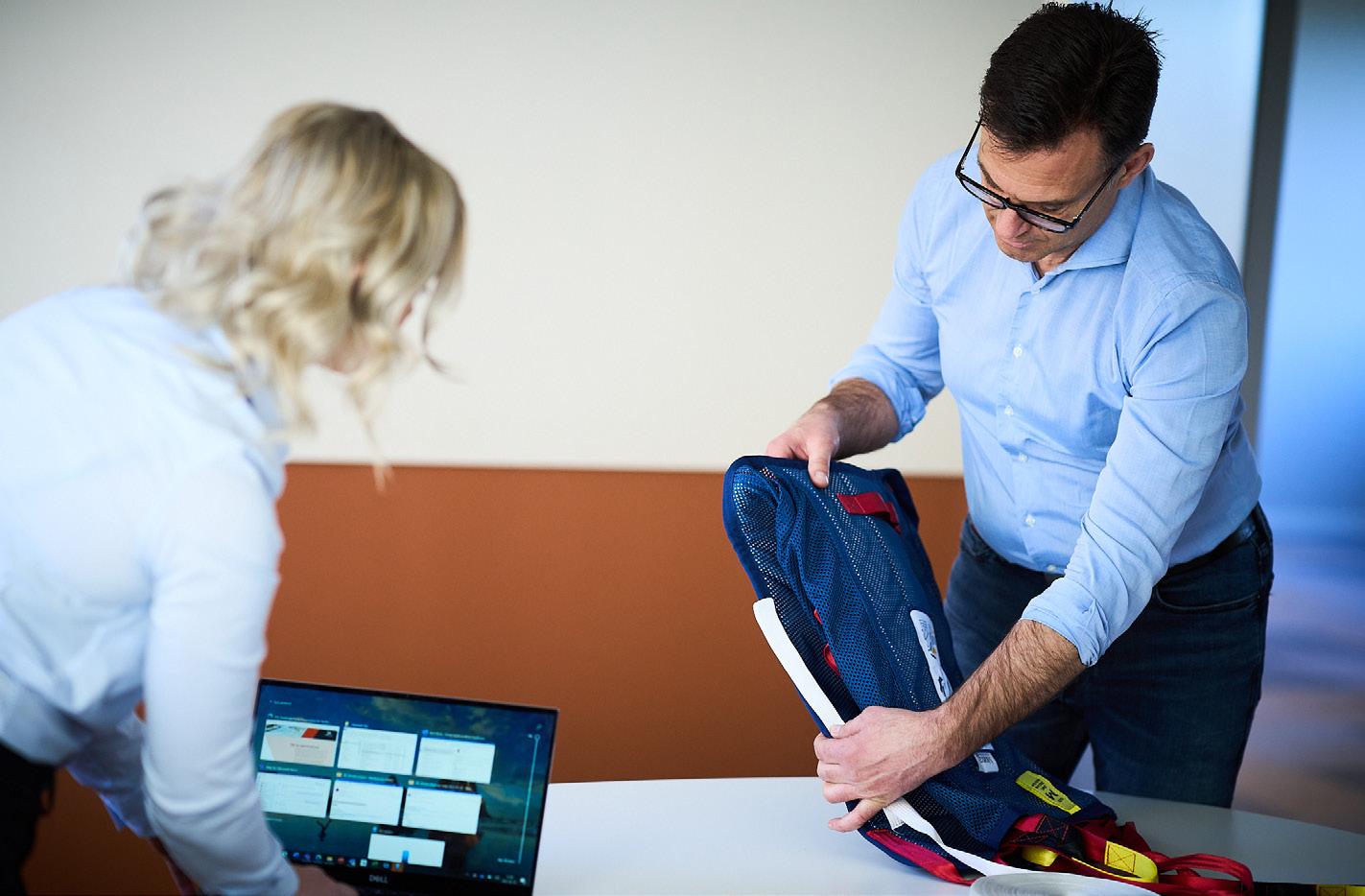
As well as having a logistics network that can reach all around the world, SHL Healthcare also sources talent from all over the world.
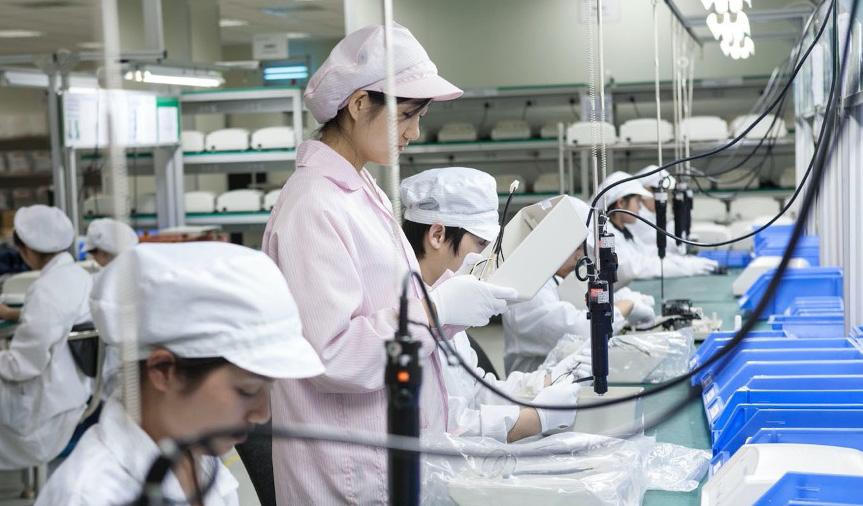
“IN ORDER TO CONTINUOUSLY IMPROVE OUR OFFERING AS A GLOBAL MEDTECH MANUFACTURER, WE ALWAYS HAVE A GROWTH PLAN IN PLACE TO MEET INCREASING DEMANDS FOR OUTPUT.”
“Over the last two years we’ve invested a lot in talent in Sweden, China and Bulgaria,” Bjorkman points out.
“In China, we brought in engineers with experience from other major players in the MedTech industry. In Sweden, we’ve used a similar approach by setting up a Centre of Excellence in the textile capital of the country to attract talents that offer abundant knowledge. We’ve also hired experts with diverse cultural backgrounds from countries such as the USA, France, and Italy. It’s fantastic to have these new additions to the team, especially with their know-how.”
The Textile Centre of Excellence in Borås, the textile capital of Sweden, will extend and streamline support for early project phases in close collaboration with customers.
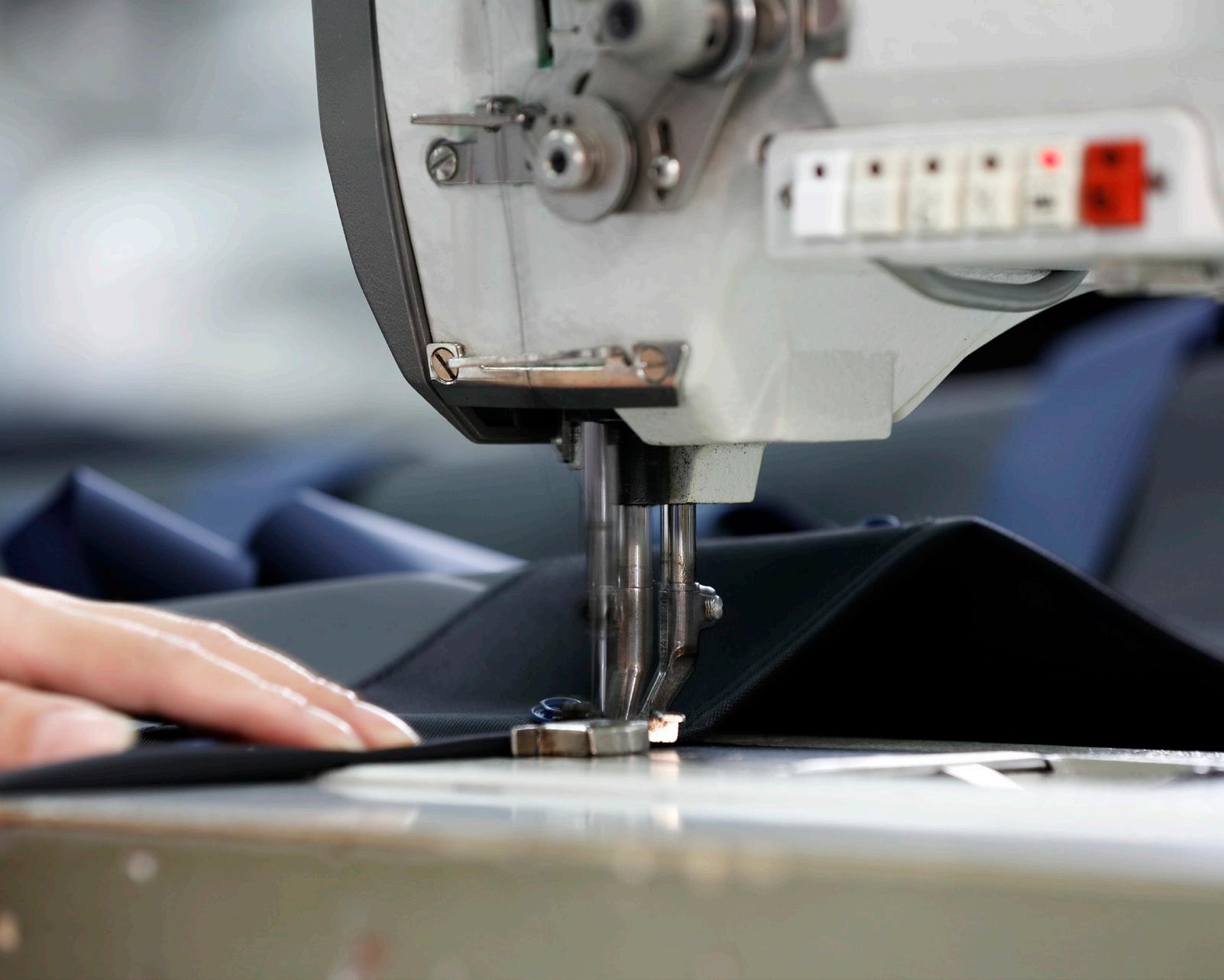
Bjorkman explains, “We started the Centre of Excellence this year. In the old days, we used to send samples back and forward to China, while trying to balance time zones and language barriers. The ideal goal is to work directly with our Centre of Excellence on design transfers, new product developments, and getting samples backwards and forwards quickly All of which to reduce the overall development time wherever possible.”
The Centre of Excellence is also part of the good working environment SHL Healthcare works hard to create to nurture and retain talent.
“We have a lot of open communication between departments, and I believe it is a fun workplace to work in. It’s very open-minded, with a flat management structure compared to other companies,” Bjorkman says. “We find good talent through structured hiring processes
using top tier head-hunters. We are thus very lucky to often have highly competent individuals join our team that understands and works well with each other.”
“We also offer testing services that test products to meet the highest industry standards.”
THE SOURCE OF INNOVATION
SHL Healthcare values its people because they are essential to the innovation that is vital for the company’s growth.
It is a strong team offering a diverse range of services built around the customers’ needs.
“We’re very customer-centric in our offering, working directly with customers from our teams in R&D, Quality, Business Development,” Bjorkman points out.
“Our innovation comes from the people themselves,” Bjorkman says. “Our production is accurate and of premium quality. We set very high standards for ourselves, and I think a lot of our team members really appreciate that the standards are set so high. If there are challenges, we inform the customer directly to find the most suitable solution, all to ensure the excellence of the products and service we give to our customers is never compromised.”
Bjorkman is also passionate about ensuring that SHL Healthcare’s teams have access to the best possible tools.
“WE’RE VERY CUSTOMERCENTRIC IN OUR OFFERING, WORKING DIRECTLY WITH CUSTOMERS FROM OUR TEAMS IN R&D, QUALITY, BUSINESS DEVELOPMENT.”
“We like to buy the latest manufacturing equipment available. Right now, we’re working a lot with the automation of production, which is new for our products,” Bjorkman says. “There is always pressure to automate. A lot of other companies in the business are moving to lowerwage countries all around the world. Our alternative is to keep up with automation to warrant acceptable pricing. We try to stay ahead of the customers’ needs and to prepare them for upcoming trends, whilst keeping costs down.”
To stay ahead, it is essential to have a strong vision of the future, and it is clear
Bjorkman has big plans for SHL Healthcare.
“Our key focus right now is to get the new facility in Bulgaria ramped up,” he says excitedly. “Our first products will be coming out of the factory in a couple of months, with a plan in place on how to fully utilize production. The next site will then be in North America, which will allow us to provide even more prompt support to customers all over the world. In order to continuously improve our offering as a global MedTech manufacturer, we always have a growth plan in place to meet increasing demands for output. Our efforts in the expansion will surely reflect such growth.”
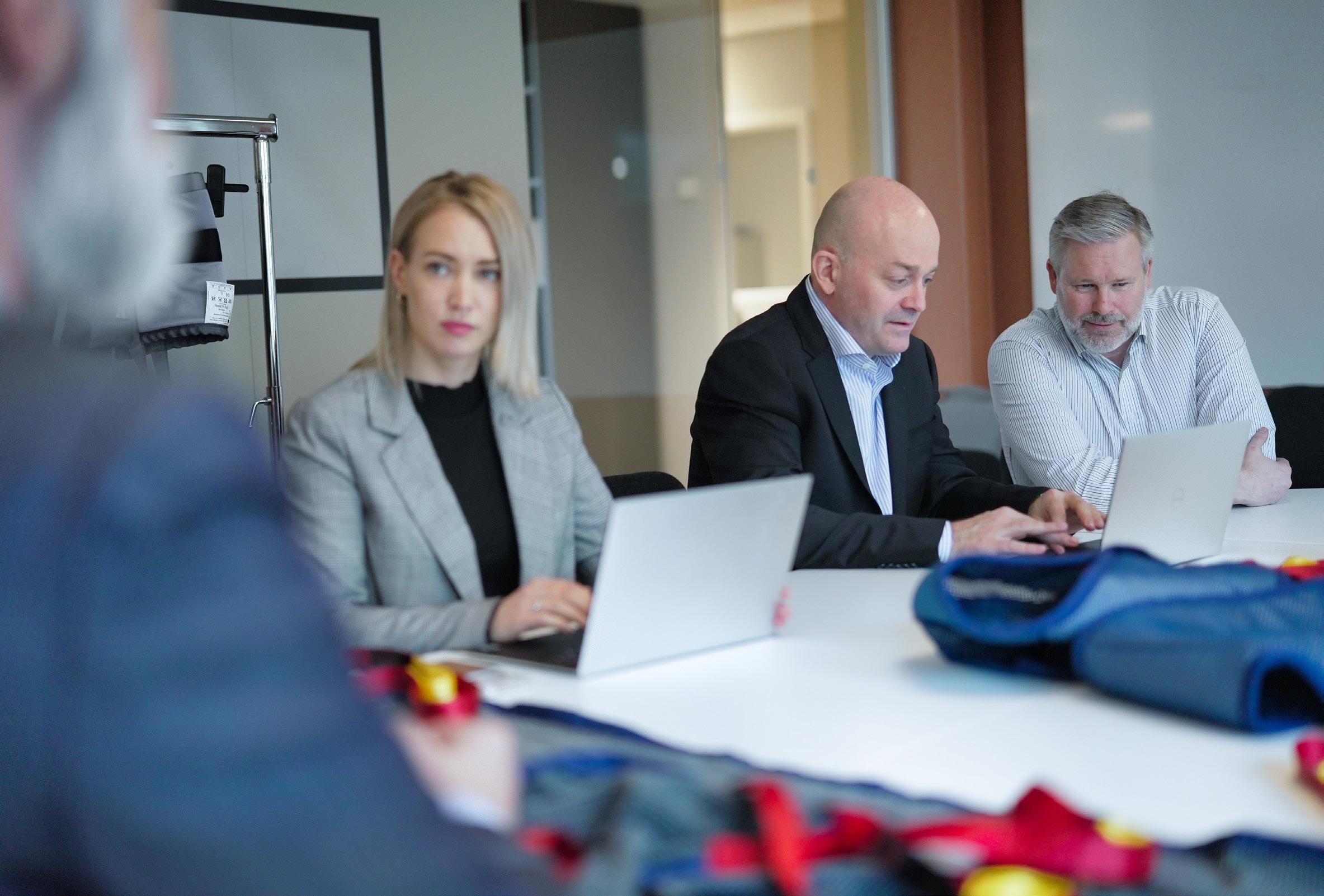
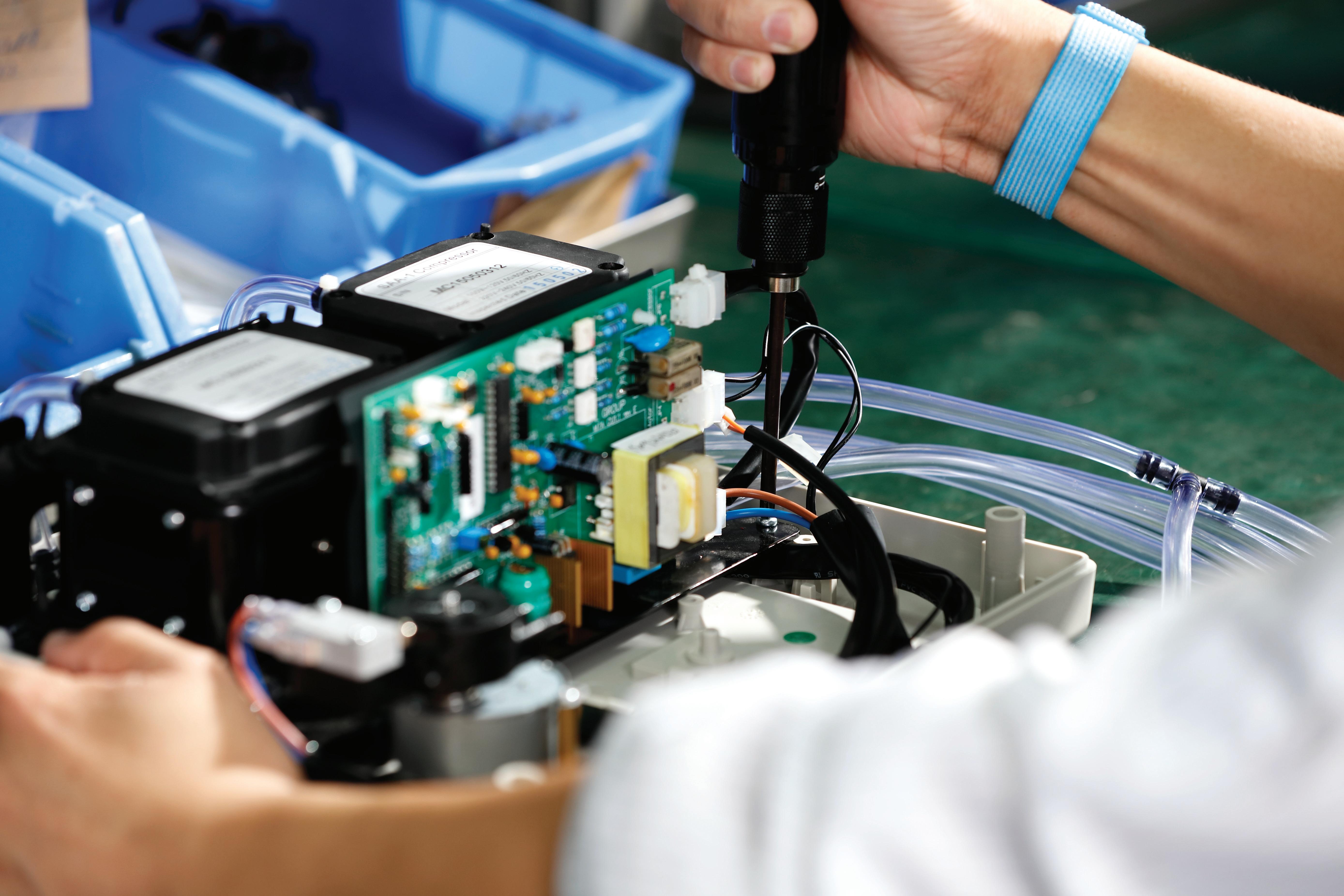
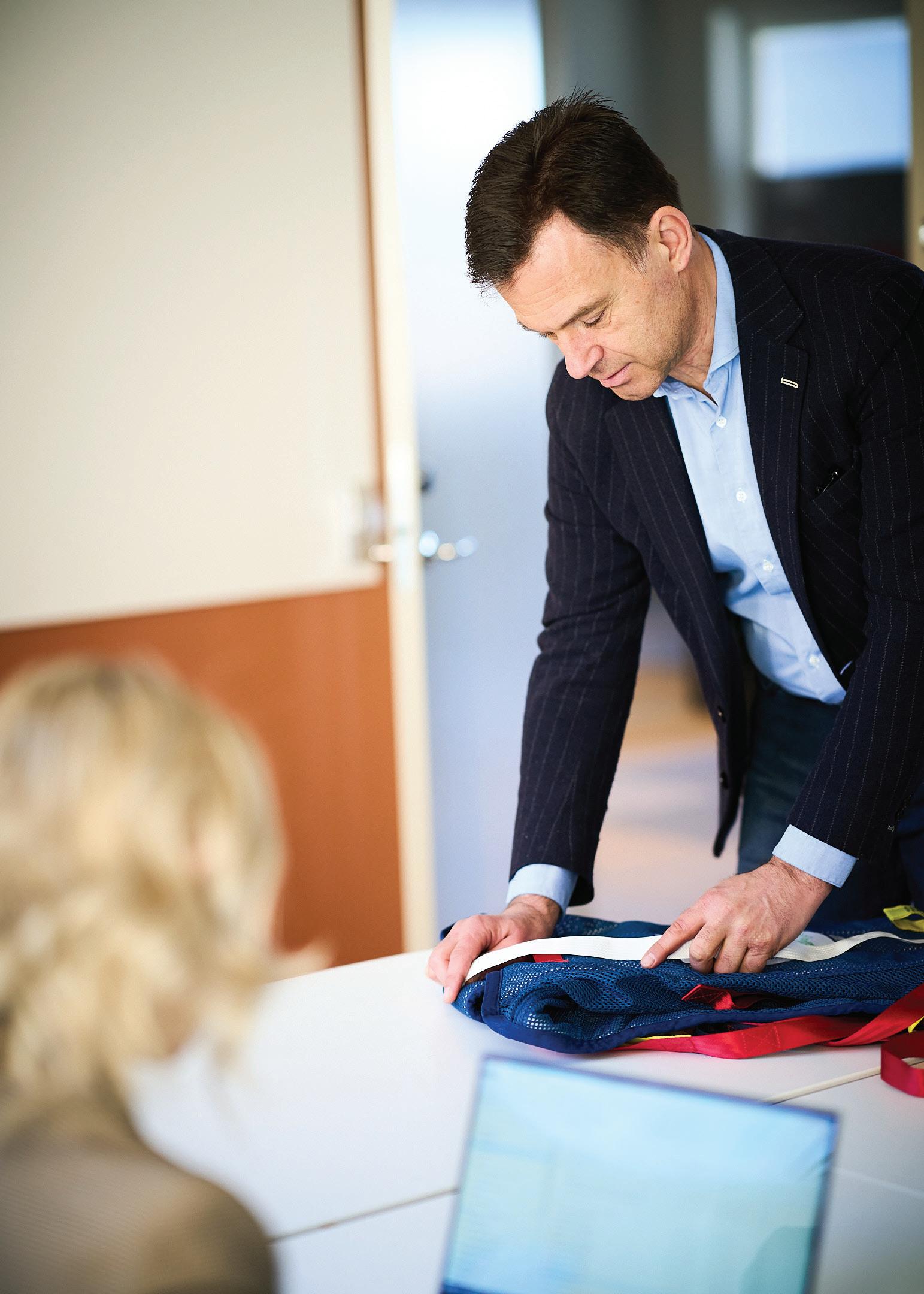



SWISS-BELHOTEL INTERNATIONAL OFFERS A PLETHORA OF UNIQUE HOTEL EXPERIENCES, SHOWING THE WAY FOR THE POST-COVID HOTEL TRADE.
THE PEOPLE AND THE PASSION
PROJECT MANAGED BY: TREVOR GRETSINGERSwiss-Belhotel International is a global hotel management company headquartered in Hong Kong, with 125 hotels & resorts across 16 brands in more than 19 countries across Europe, the Middle East, Asia, Africa, and New Zealand.
For 35 years the company has been serving customers and supporting hotel owners, guided by what Gavin Faull, the company’s President and Chairman, calls “the three Ps”- passion, professionalism, and profit.
What makes Swiss-Belhotel International stand apart from its peers in the industry is the close relationship the firm has with its hotel owners.
“It comes from the passion and professionalism, and our partnership with the hotel owners. I meet every owner once a year- I am just off to Malaysia on Sunday to meet a hotel owner,” Faull points out to us. “They are not normally
used to having the owner of the company come and talk to them and spend time with them and ask, ‘What do you want to do?’
We make a real point of the fact that we manage their hotel, they do not build our hotel.”
It is a philosophy that means each of Swiss-Belhotel International’s outlets has a unique character and ambience.
“All our hotels are individually designed, and they are all extensions of the owner’s vision,” Faull says. “It is the passion of the owner that drives the hotel. It is an extension of their life and their success.”
“They are all proud of their hotels, they are so proud to ask people to come and stay


Teaching hospitality to the world
Do you need to:
Enhance your learning program? Onboard new teams and teach them fundamental hospitality skills? Upskill and cross skill existing teams with advanced hospitality and leadership courses? Train, engage and retain many people consistently across many locations? Reduce the management overhead of training?
Chat to our global team today about:

Online hospitality courses: Typsy has 1100+ expert led video lessons to engage and train your teams Online learning platform: Track the learning plus tailor training to each job role
Production services: We can assist you to create your own videos tailored to the learning needs in your business.
LEARN MORE at typsy.com
TYPSY
The hospitality skills shortage and recruitment crisis globally are driving an increased need for online learning to be used as a primary method for the delivery of hospitality training. As businesses look to reduce costs, increase efficiencies, keep headcount low and reduce risk, online learning has been increasingly adopted in an industry that previously relied heavily on face-toface learning and on-the-job training.
The Typsy online learning platform that comes with over 1100 expert-led hospitality learning lessons allows hotels and food and beverage outlets to onboard new starters more effectively and build their competencies faster.
In line with Typsy’s mission - “Teaching hospitality to the world” - Typsy has partnered with many large hotel and hospitality groups including SwissBelhotel International, Radisson Hotel Group, Wyndham Hotels and Resorts, Delaware North, and more to develop people.


Governments and Associations are using Typsy to build hospitality skills capacity in their region to improve the skills and confidence of one of their most valuable assets - their people. In turn, this supports the hospitality and tourism industry to strengthen its GDP.
In addition, the expert-led Typsy courses are blended extensively with the curriculum at hospitality schools to strengthen learning outcomes and create job-ready students.
The Typsy Customer Success team works closely with customers to ensure the online training is well adopted and ultimately drives value for businesses to help deliver exceptional guest experiences, improved reviews and positive guest feedback.
We are proud to strengthen the capability and hospitality skills of learners across the world.
www.typsy.com
We can help you train your teams consistently to deliver exceptional guest experiences.
View from Swiss-Belsuites Victoria Park, Auckland, New Zealand.

at their hotel. It is much more exciting than saying ‘Come to my warehouse!’ or ‘Come to my parking station’,” Faull says. “A hotel is an emotionally-charged, people-centred business.”
While it is not hard to see why people would want to enter the sector, Swiss-Belhotel International plays a valuable role in guiding people into the industry.
“Not all, but many of our owners are first-time owners and we have to educate them on the challenges of the hospitality industry,” added Priyanka Kapoor, Group Director - Sales, Marketing, Branding and Communications at Swiss-Belhotel International. “We take them through expectations of ROI, and the effort that goes into managing the hotel, but also show them how our winning partnership philosophy comes into play. We have an acquisition strategy which focuses on ensuring that each property is well-taken care of, and we keep close to our owners to make them feel comfortable. We measure our growth with the profits that the Owners make, not by the number of hotels we have. That is our USP, where the owner feels there is a partnership, and they have a say in their business.”
Even Faull himself has experience in other industries, operating as a dairy farmer, property owner and educationalist and it gives him a valuable perspective that he brings to the hotel industry.
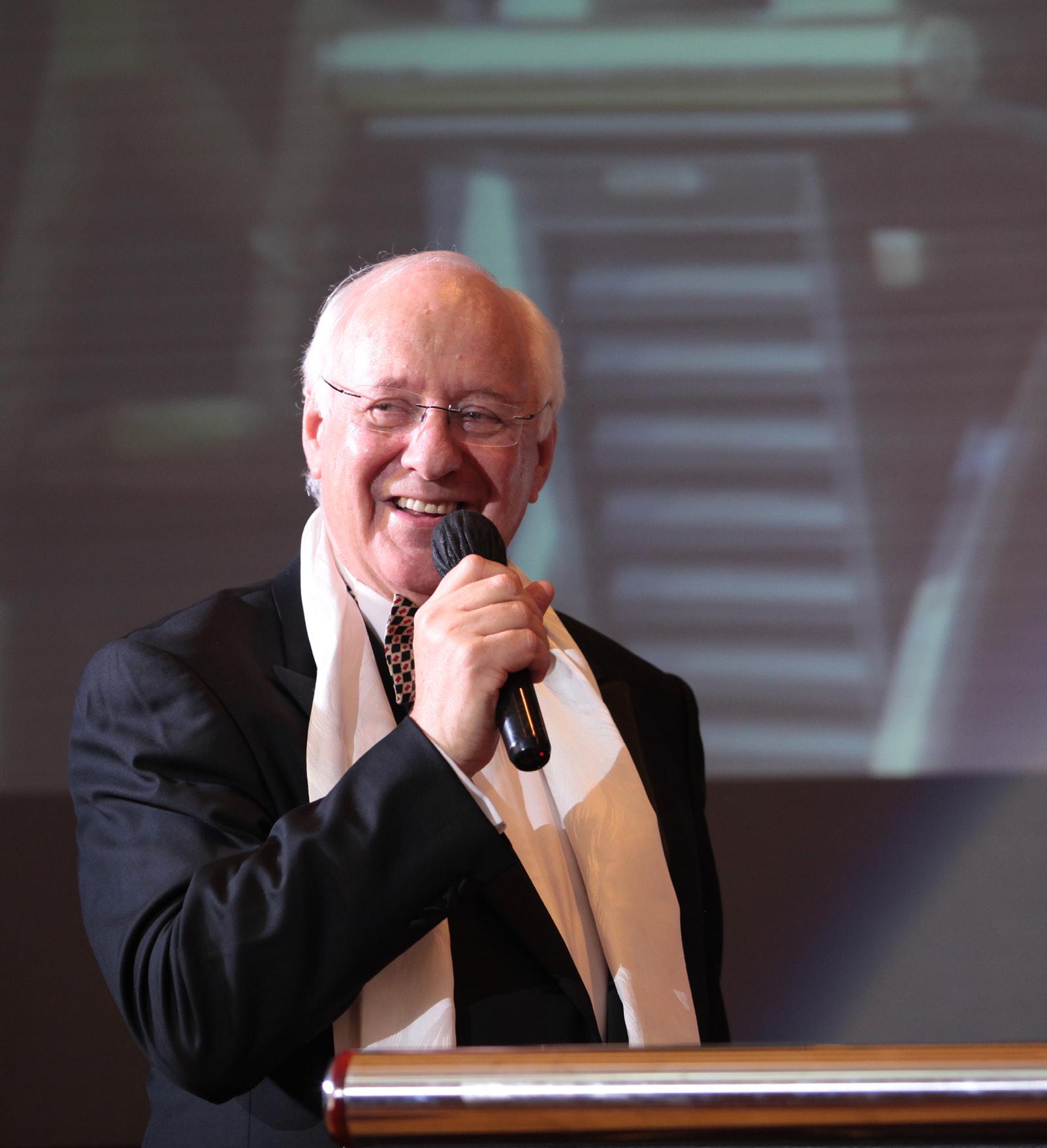
“I’m used to looking at the environment, at the soil, how you manage pastures, animals, the product and the investment,” Faull says. “We see, in farming, as respecting the environment and respecting how we do things. These concepts are a way of thinking.”
This informs the way sustainability is practised across Swiss-Belhotel International, but a key part of that outlook is that sustainability is not just about the environment, it is about people.
September 2022, we are asking hotels to celebrate not just with staff, but to take the celebration outside into the community. We also ask the hotels to, where possible, source from local people and businesses.”
THE RIGHT PERSON IN THE RIGHT PLACE
“We look at the local community wherever we operate,” Kapoor insists. “It is a KPI for our managers. For our 35th anniversary month,
One thing anyone who has spent time in the hotel industry will tell you is that hotels are less about buildings than they are about people. As Faull tells us, bringing in the right talent has always been the most important challenge in the hotel business, and the biggest one. And it has just got harder following Covid.
“A HOTEL IS AN EMOTIONALLYCHARGED, PEOPLECENTRED BUSINESS.”Chairman and President of Swiss-Belhotel International Mr. Gavin Faull.
“Covid exacerbated this. People’s attitudes and commitments have changed, that is just a fact of life,” Faull says. “People say, ‘I only want to work four days a week’ and we have to work around that. People cannot make beds from home, but we still have to take a new approach to adapt to employees’ needs. I think it has been a positive change. The biggest challenge is always instilling passion, making people feel like part of our family and part of our team.”
As well as providing an appealing and responsible working environment to staff, Swiss-Belhotel International also needs to ensure those staff have the right skills, from the check-in desk all the way to the hotel managers themselves. This is an area where the company has proved itself to be ahead of the curve.
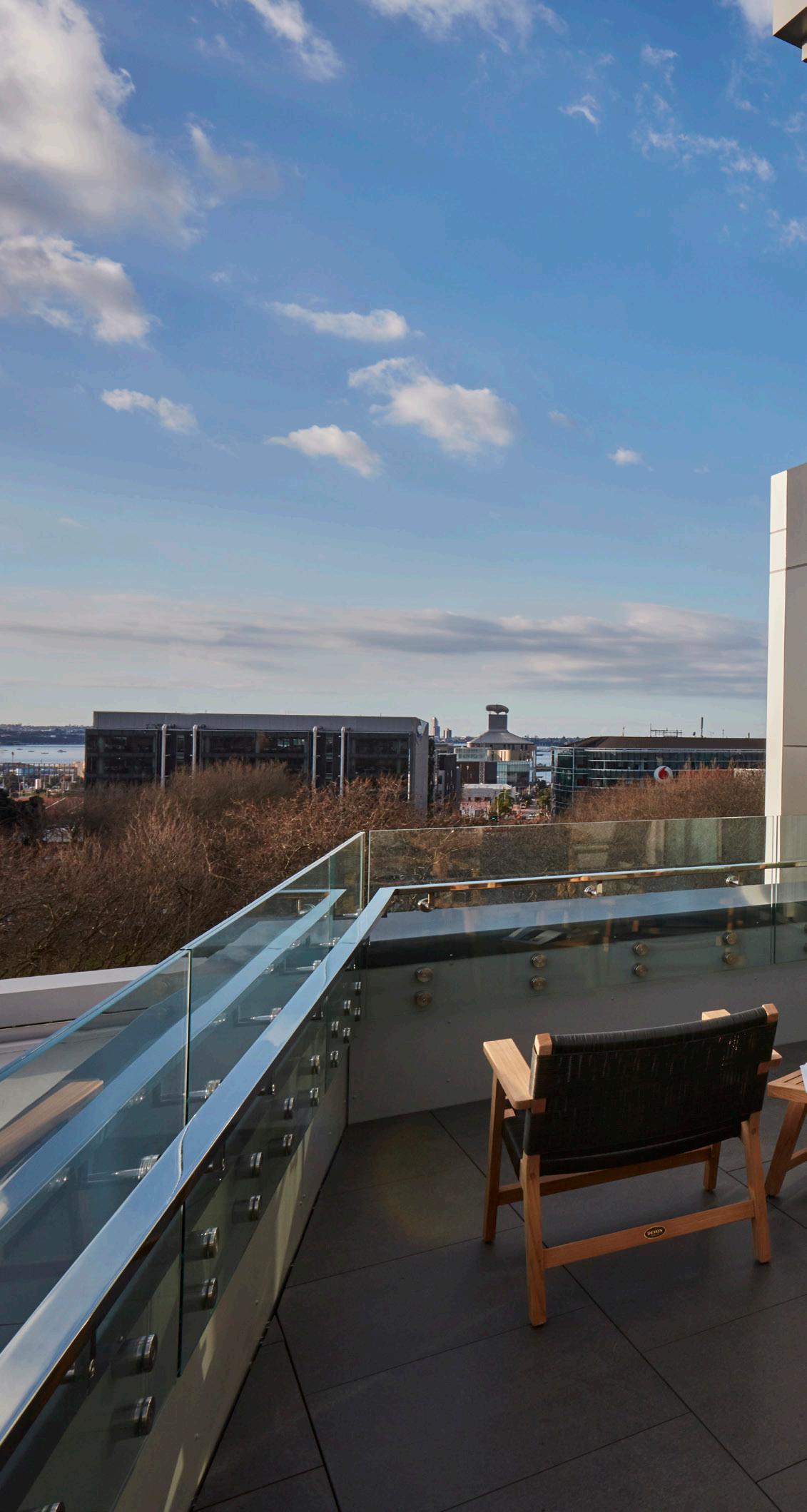
“We have an online training system we developed just before Covid. It means people taking the course can be monitored, we know if they have completed it and how well they have done,” Faull tells us. “We also have another online system, through eHotelier, for executive training. It provides a diploma or degree course, and once again we can monitor people’s progress through it. These courses are online, so everyone has taken to it very positively. People are thinking differently about how they learn and what they are learning.”
“The education of our staff is imparted through our SwissBelacademy,” Kapoor adds.
“There are courses in every department supplied by a wellknown education provider of online material. For line staff up to supervisory levels it is developed by Typsy, and for

general managers, group, and regional executives, developed by eHotelier.”
When it comes to people, perhaps the most critical working relationship remains that between Swiss-Belhotel and the hotel owners it works with.
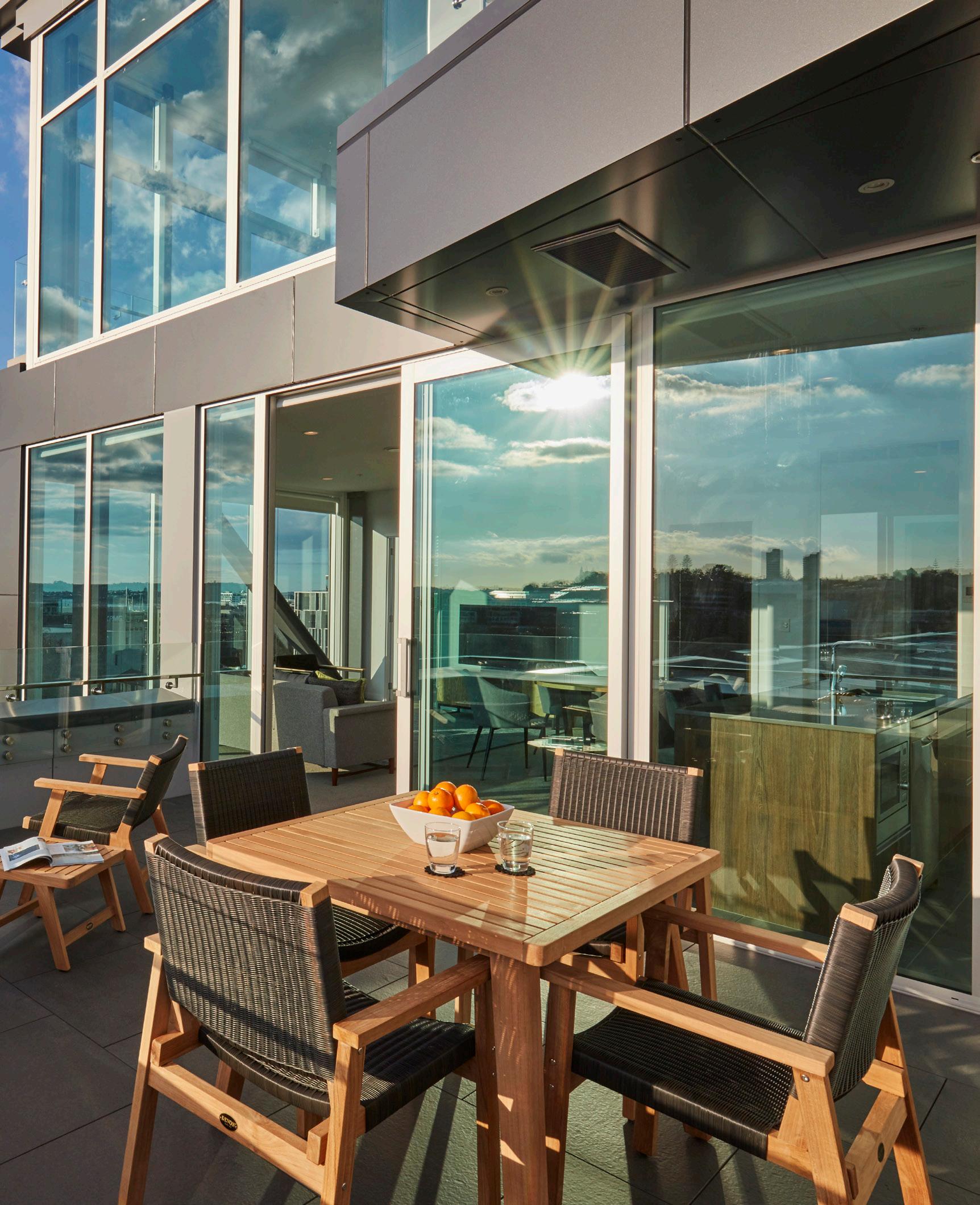
“We have to look at them differently, see what their goal in life is,” Faull explains. “We need people-orientated
people. That has not changed in 150 years, and it never will. General managers have to have a multitude of skills. That is not just doing the technical aspects of their job but leading, motivating and marketing. These people have to bring all these skills to the table. It takes effort, it takes motivation, it takes flexibility, but we think it is working pretty well in our company.”
BRAND NEW
Looking to the future, it is clear talking with Faull that he has big plans for the company. He believes Vietnam, Thailand, Malaysia have huge potential, along with growth prospects at the Middle East and North Africa. He tells us there are between 50 and 100 projects the company is negotiating on.
“We are getting lots of people inviting us to look at their hotels and help them expand. Covid has highlighted their operational shortcomings and that it is not quite so easy to address them alone,” Faull reflects. “We just opened a hotel in Thailand. We have been approached by a department of the Government of Malaysia.”
However, one new development Swiss-Belhotel International is making is particularly close to Faull’s heart. A new brand of hotel called MĀUA is located on Nusa Penida island off the coast of Bali.
“It is inspired by my Māori heritage from New Zealand. This brand is a sustainable, environmentally friendly space, and the response has blown us away,” Faull says. “We started off by underselling it, because when you open a hotel people have to move into the market, but we found, people, our guests wanted to pay more for the value they experienced!”
The appeal of unique concepts like this is even greater in the post-Covid tourist trade.
“People are going hunting on the internet for different experiences, different destinations,” Faull points out. “These are the special market niches we’re working to accommodate.”
WE LEARN HOW ACRASTYLE HAS GROWN FROM A LIGHTING MANUFACTURER INTO CREATING BESPOKE PARTS FOR THE POWER INDUSTRY.
SPECIALISING IN BESPOKE
PROJECT MANAGED
BY: MARK BAILEYAcrastyle was established in 1962 and celebrates its 60th anniversary this year, but in those early days, the company was manufacturing and supplying lighting fittings. That would all change in the late ’60s when Morris Chapman, the company’s then owner, won a contract with NORWEB to provide control and relay panels for the energy company.
From there, Acrastyle started supplying control and relay panels to electricity utilities around the country, and beyond.
“In the 80s and 90s the company carried out a lot of export work to Hong Kong, into Africa, Central America, and Southeast Asia,” says Stephen Smith, General Manager of Acrastyle. “Even today we have some projects in those areas, although recently our business has been primarily UK orientated. We continued in that form until 1997 when Morris Chapman sold the business to an Indian owner, Mr Ashish Jalan. He bought the business in 1997 and still owns it here in Ulverston.”
Smith started with the company in January 2018, and the following year was appointed General Manager. Smith’s career began at the
General Electric Company in Stafford, staying there from 1978 until he left in December 2016, when American General Electric took over the company. Smith had progressed from a Graduate Engineer to Commercial Director in their Systems Project division when he left GEC. Smith had been a customer of Acrastyle before he joined them.
Today, Acrastyle Ltd is owned by Indian firm S&S Power Switchgear Ltd, which is part of the Group, Hamilton & Company. Acrastyle itself predominantly manufactures control and relay panels, whilst also supplying disconnectors to the UK market from its factory in India.
“The disconnectors are shipped from India, and we assemble them and sell them to utilities and contractors in the UK,” Smith says. “We also have a product called ‘neutral
earthing resistors’. These are old technology, but in some instances our customers still want them. We also manufacture battery equipment/chargers disconnectors and neutral earthing resistors and also have a small team that can carry out small electrical interface engineering projects.”
Across all these sectors of work, Acrastyle provides products uniquely tailored to the requirements of its customers. The company works with Northern Ireland Electricity, Scottish Power, Electricity North West, National Grid as well as UK Power Networks and Scottish & Southern.
“What we are very good at is bespoke panel manufacture,” Smith says. “Each of our customers has their own specification of panels that they require. Even within a single utility company, our customer may have six or seven variations for us to deal with, so bespoke manufacturing is a key area for us.”
Acrastyle has its own inhouse design team, where it can reliably manufacture equipment to its client’s specifications.
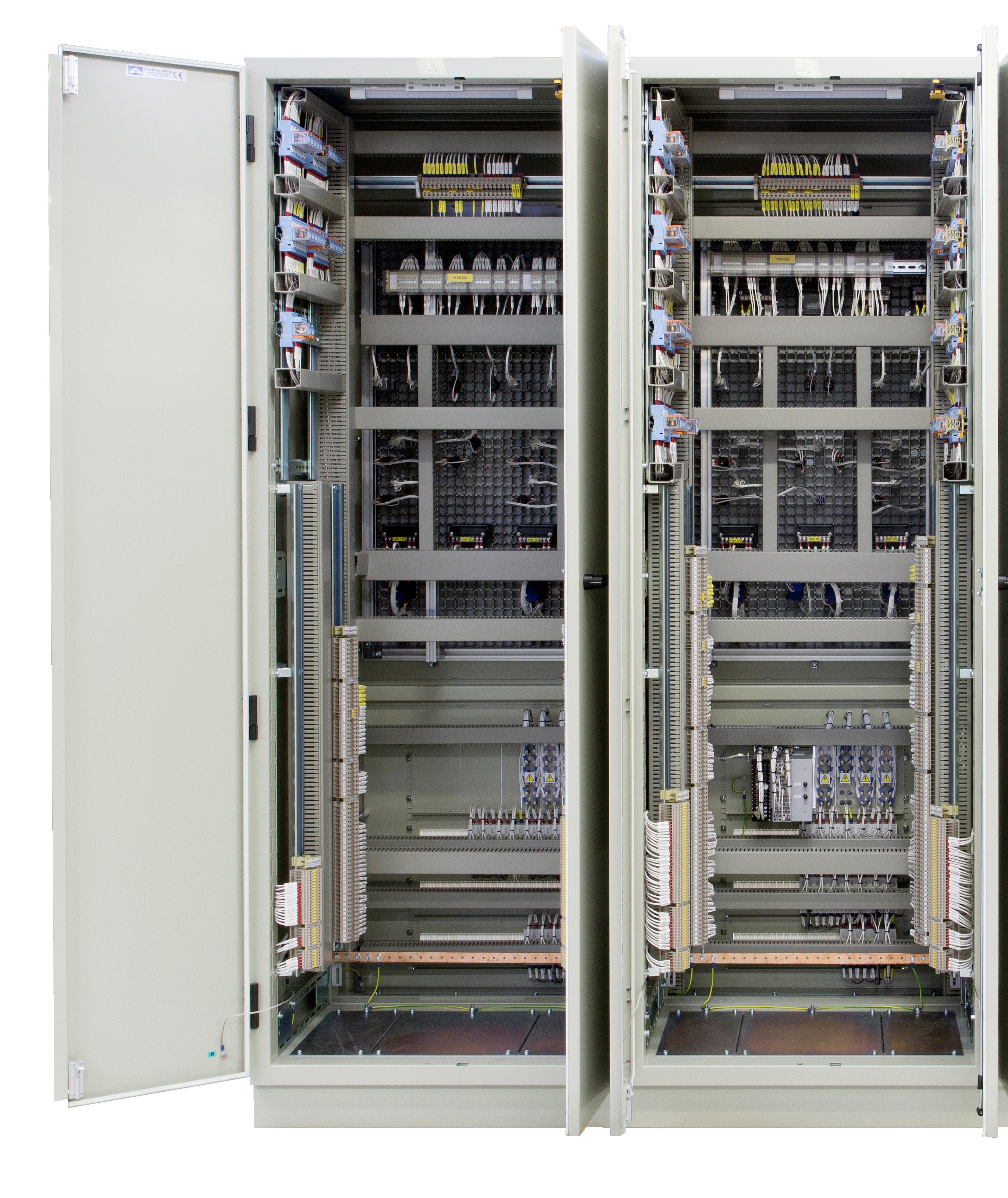
PANEL MANUFACTURE.”
STRENGTHENING THE SUPPLY CHAIN
While serving customers with exacting specifications, materials are crucial, and obtaining the right materials can be a challenge during a time when supply chain disruptions are common.
“Pre-pandemic a typical relay panel would take 12-16 weeks to deliver,” Smith points out. “Now some equipment has increased to six-month deliveries, which has meant that our panels are now taking between 18- and 28weeks to deliver.”
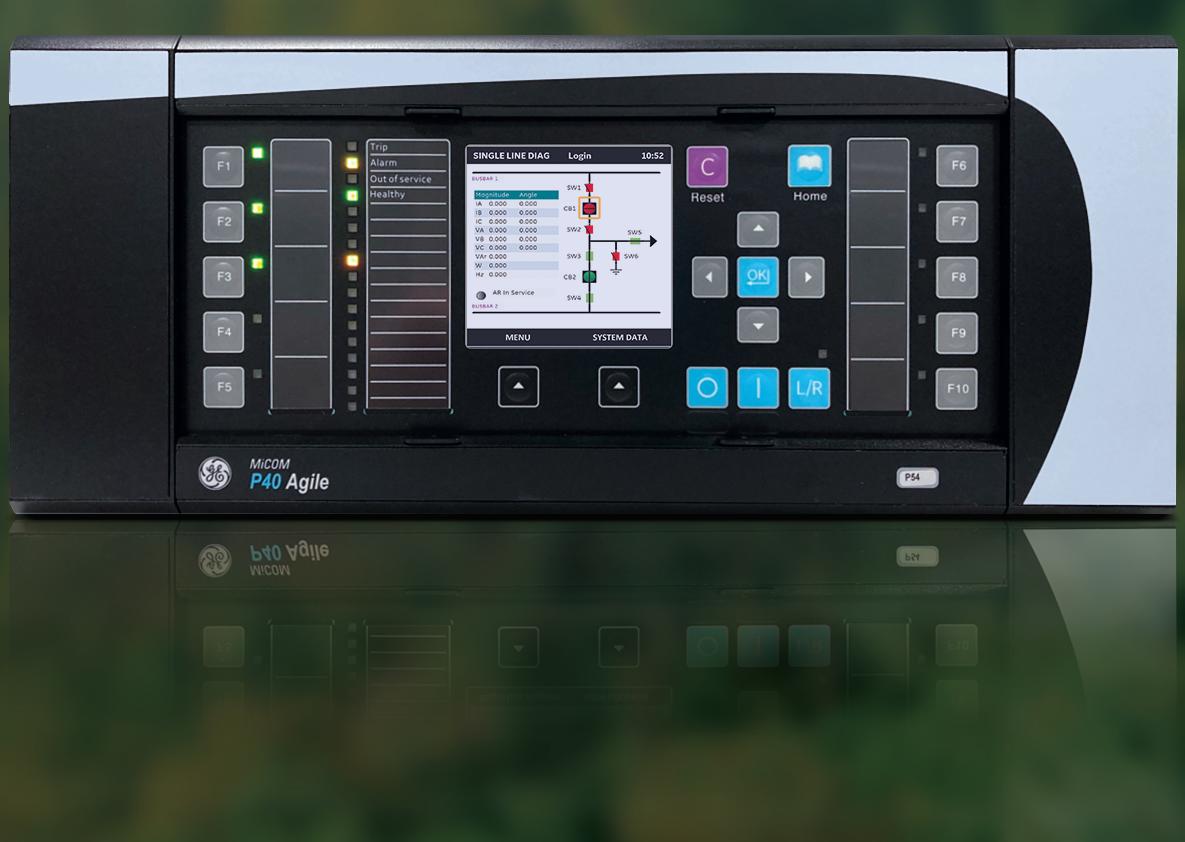
In the face of these challenges, Acrastyle maintains open channels of communication with its customers, ensuring they stay informed from an early stage if there are delays.

“Our financial year runs from April to March. Previously, if we had an order in December we could typically manufacture and deliver it before the end of March, but a slower supply chain now means that we need an order by the end of October rather than December to meet the end of FY deadline,” Smith explains.
The other supply chain Acrastyle needs to maintain is its supply chain of talent.

At its core, Acrastyle is staffed by a combination of highly experienced project managers and hands-on engineers with first-hand experience of how complex and demanding power system projects can be. These projects can create numerous unpredictable technical, logistical and coordination challenges that put intense pressure on already

“WHAT WE ARE VERY GOOD AT IS BESPOKE
tight time constraints, overstretched engineering resources and strained budgets, and Acrastyle’s highly flexible, partnership approach equips them to deal with those challenges.
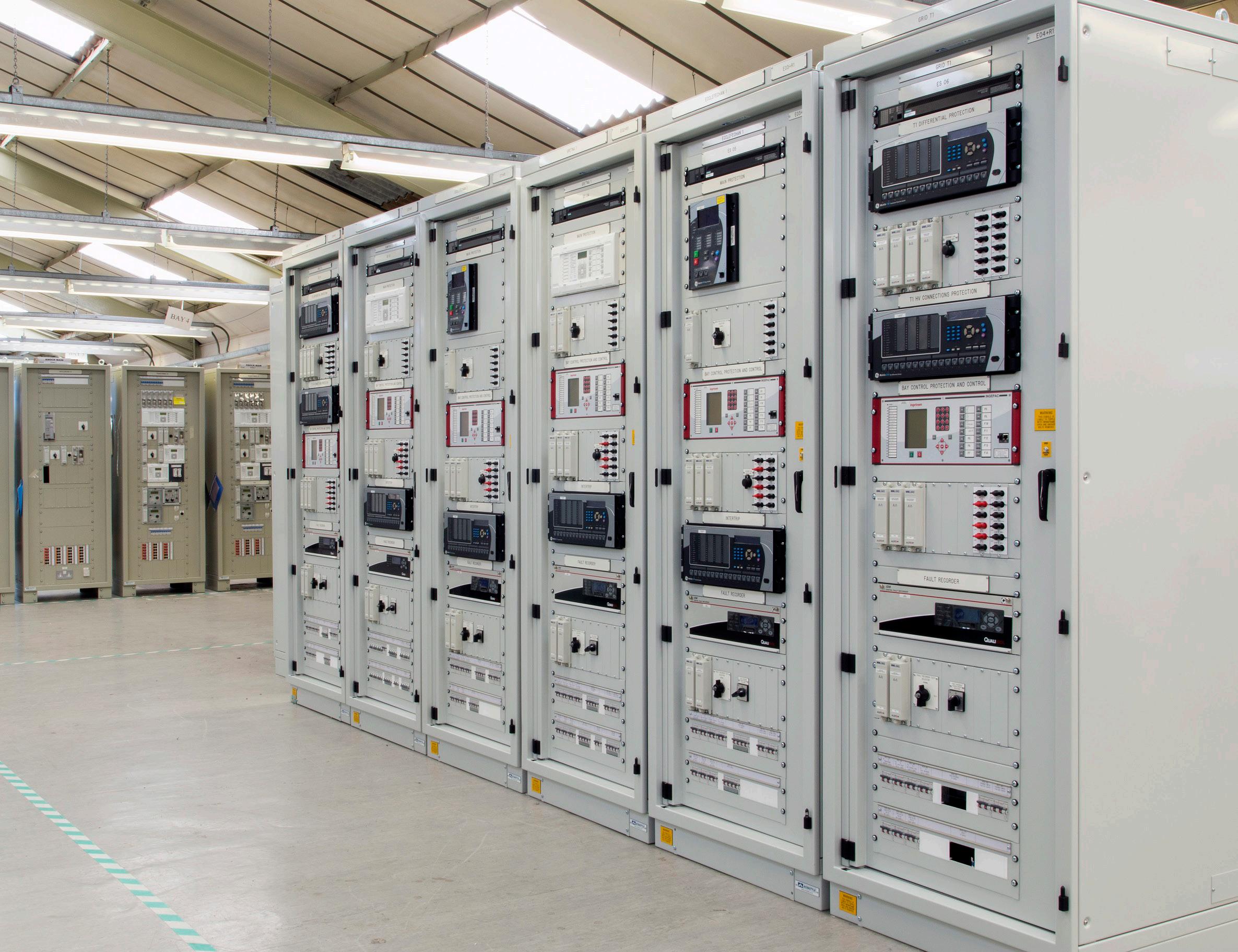
“We are situated on the Furness peninsula of the South Lakes, so there’s some industry around the area,” Smith points out. “Going back in time, this area was all iron ore and coal fields and in later times the Sellafield Nuclear plant. The BAE shipyard is located nearby in Barrow where they manufacture the Trident submarines.”
BUILDING FOR THE FUTURE
Acrastyle also invests heavily in apprenticeships to grow the next generation of talent and the diversity among them.
“You need young blood,” Smith insists. “The average age in the company as of the last four years has gone from 53 to 43. We have managed to bring the average age of our staff down and increase the number of women in the company. It has been notable recently that our recruitment process has seen an increased number of women applying for jobs.”
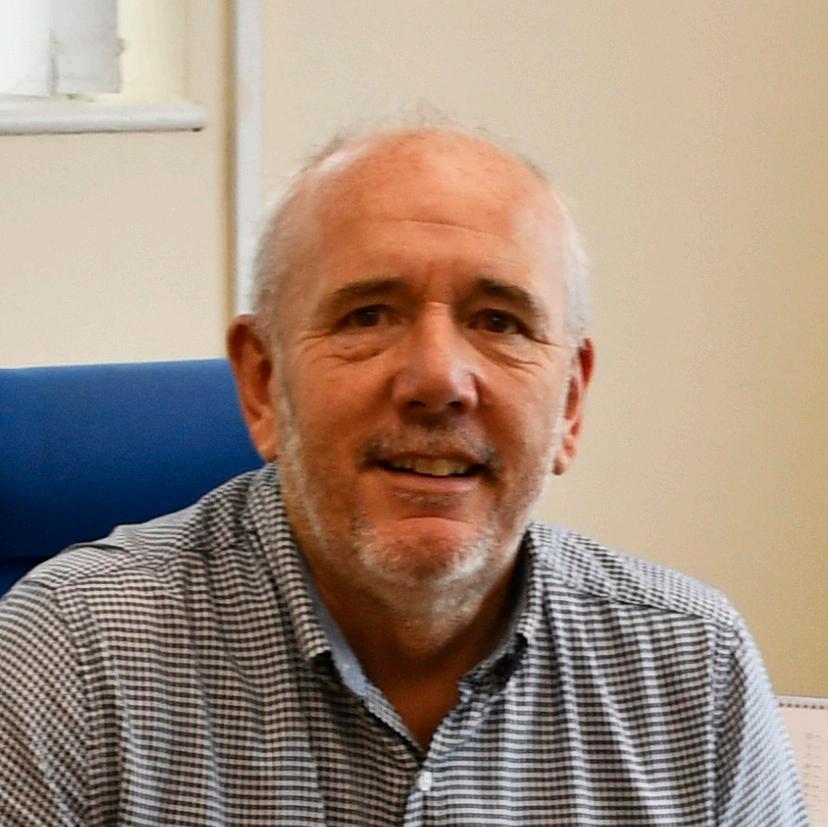
As well as finding and developing talent, Acrastyle also has to work hard to retain it, as the company is operating in a highly competitive environment.
“It is difficult because one of the problems we have with human resources is losing people to the shipyards, where they work on Government contracts,” Smith says. “We’ve had people leave and come back, but we try our best to hang onto our people here.”
Looking to the future, Smith
is optimistic about Acrastyle’s prospects as the company has created a strong trajectory for growth.
“The future looks very good. We are looking to increase our turnover by £1 million this year,” Smith points out.
“The feedback we are getting from our main customers is that they have a lot of work to carry out with new connections to onshore and offshore wind farms as well as solar farms. We are confident there is still a lot of work here for us to do.”
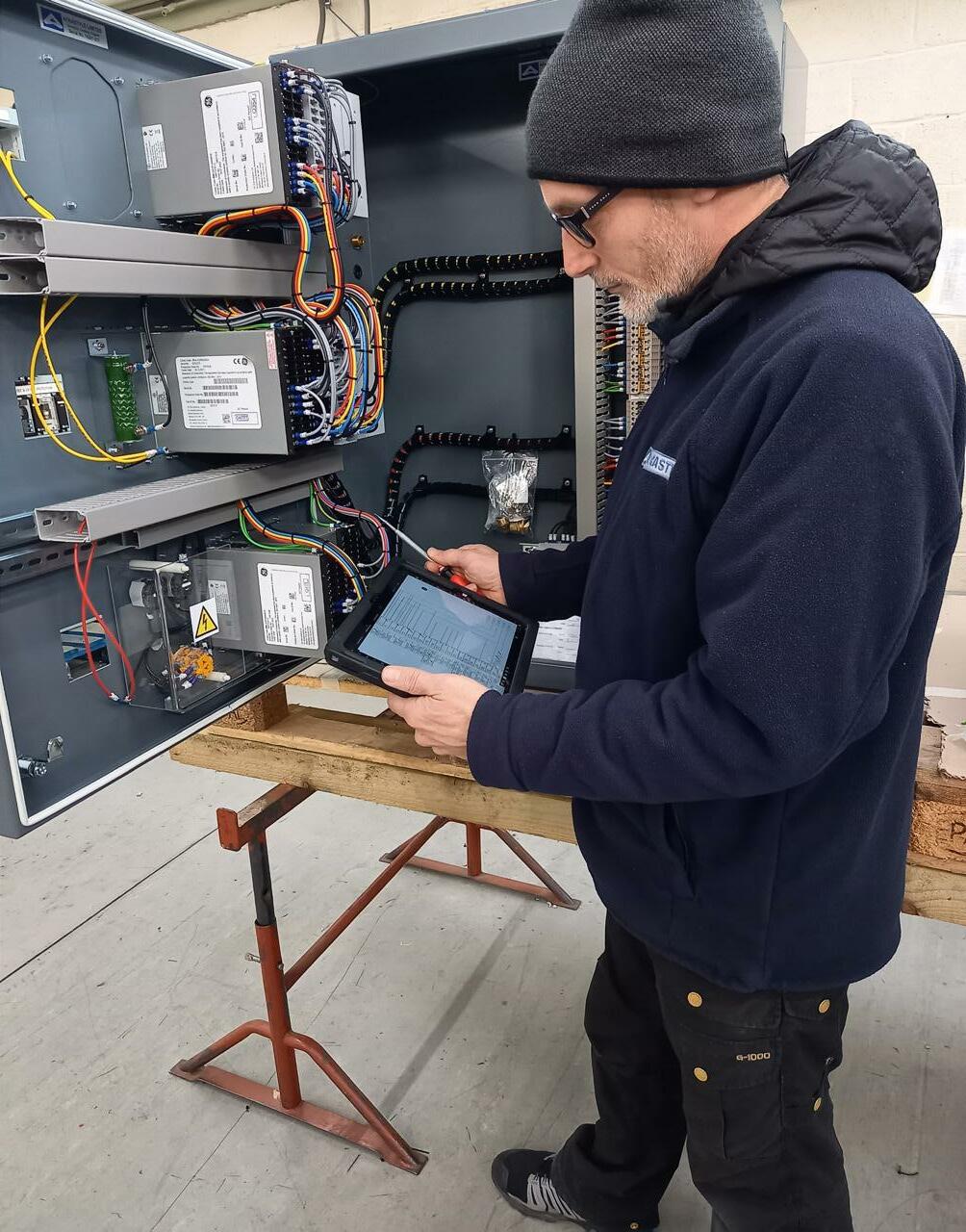
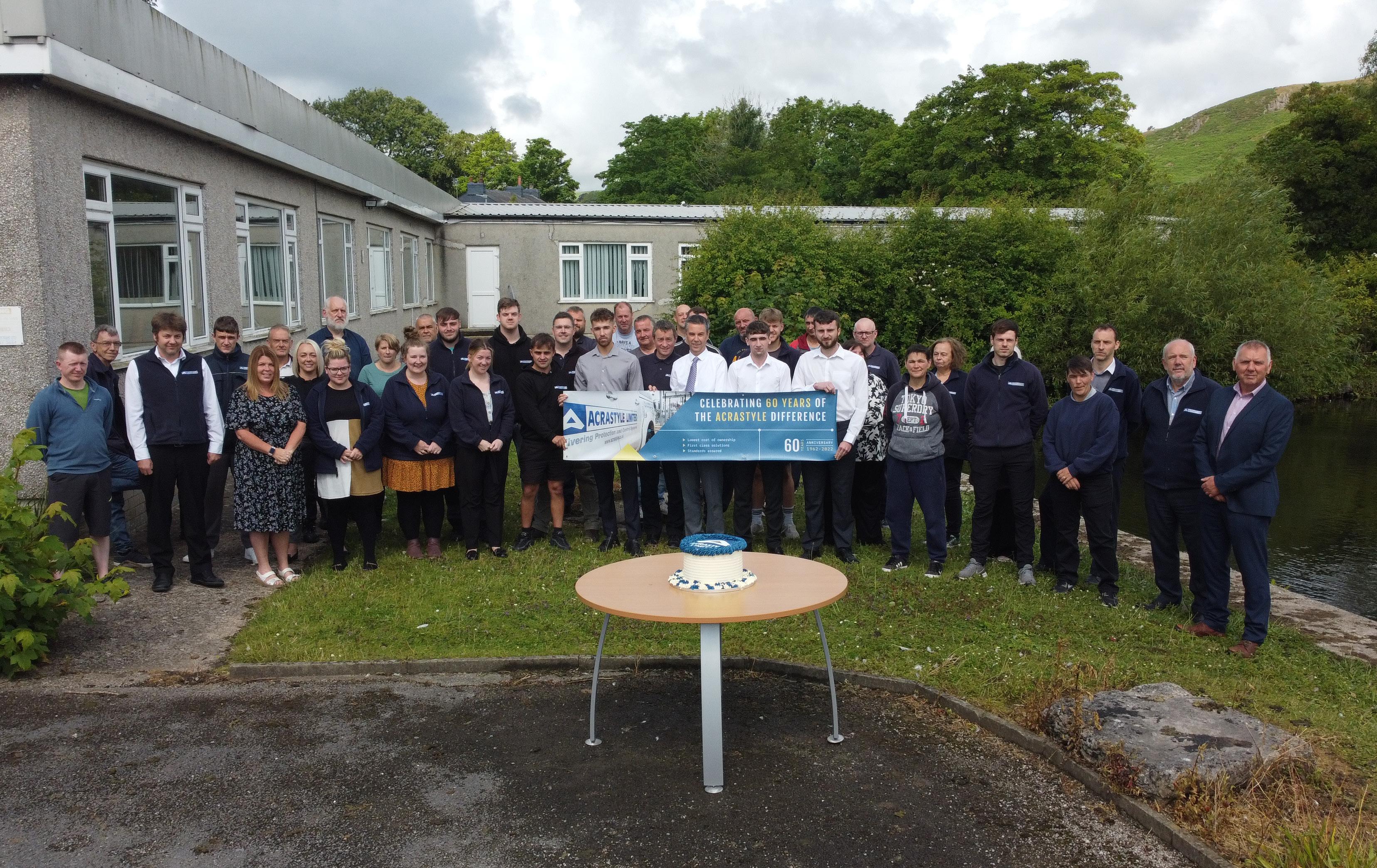
“WE HAVE MANAGED TO BRING THE AVERAGE AGE OF OUR STAFF DOWN AND INCREASE THE NUMBER OF WOMEN IN THE COMPANY.”
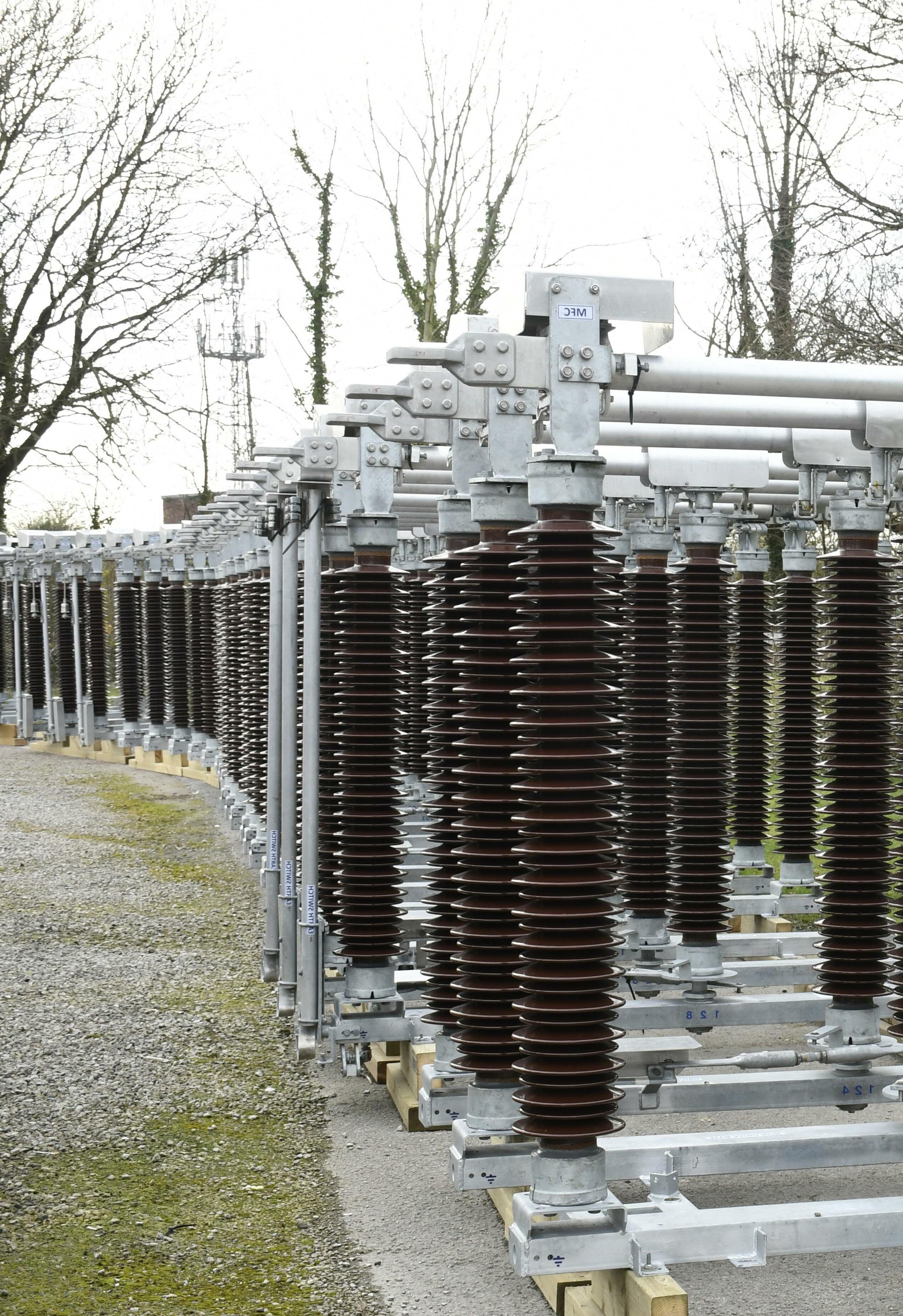
BEKUM, A LEADING MANUFACTURER OF EXTRUSION BLOW-MOULDING MACHINES, IS INTRODUCING NEWLY INNOVATED PRODUCT LINES, REFLECTING CURRENT AND FUTURE MARKET NEEDS.
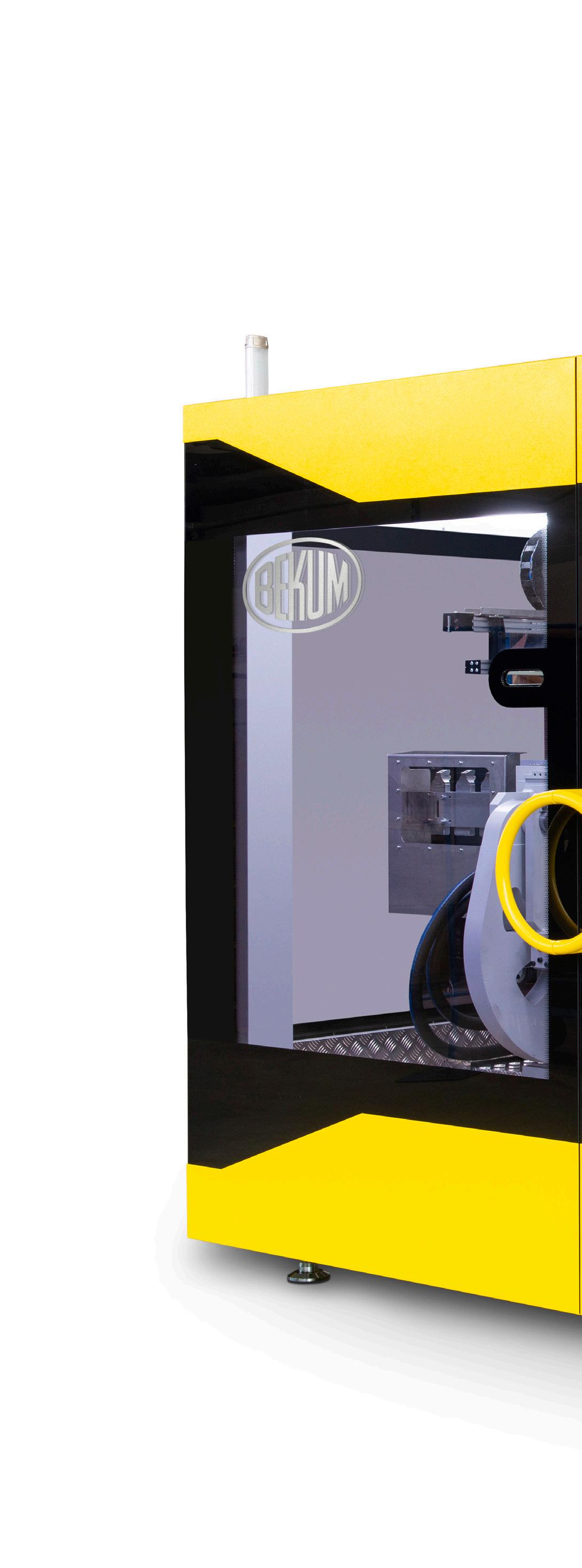
MOULDED TO PERFECTION
PROJECT MANAGED BY: DEAN BROWNBekum today is a market leader in extrusion blow-moulding machines for blown plastic containers; operating worldwide, it has customers in over 100 countries, ranging from small businesses to major enterprises.
We deliver machines for consumer packaging such as detergents, food, beverages, as well as for pharmaceutical, automotive and industrial packaging, including canisters, drums and IBCs,” says company CEO Michael Mehnert, affirming that the group has grown due to its core values of quality, service, and technology. “Quality is key, our machines have a service life of 30-40 years and boast the highest resale values in the market.”
FROM PIONEER TO MARKET LEADER
Bekum continues its proud heritage. The company was founded in 1959 in Berlin by Gottfried Mehnert, a pioneer in plastics technology, who developed his first blowmoulding machine at the age of 21. The company has gone on to deliver more than 18,000 machines to factories in more than 100 countries and has earned over 40 patents, some of which now form the industry standard for modern blowmoulding machines.
At the time of Bekum’s foundation, it was common practice to inflate and shape the extruded parison from the bottom. One of the most remarkable inventions of Gottfried Mehnert, which now represents the industry standard, was the development of a method to blow the bottle from the top as well as the world’s first neck finish calibration, which made the tight closure for bottle caps possible for the first time. Today, all extrusion blown plastic bottles in the world are produced using Gottfried Mehnert’s inventions.
Further pioneering developments followed, including PVC blow moulding for edible oil and water bottles, the invention of the world’s first double-sided shuttle machine, as well as the 6-layer co-extrusion that opened new markets for oxygen-sensitive products and diffusion-tight fuel tanks. Further inventions, such as tie-bar-free clamping systems at the end of the 1980s, made Bekum a world leader in blow-moulding technology.
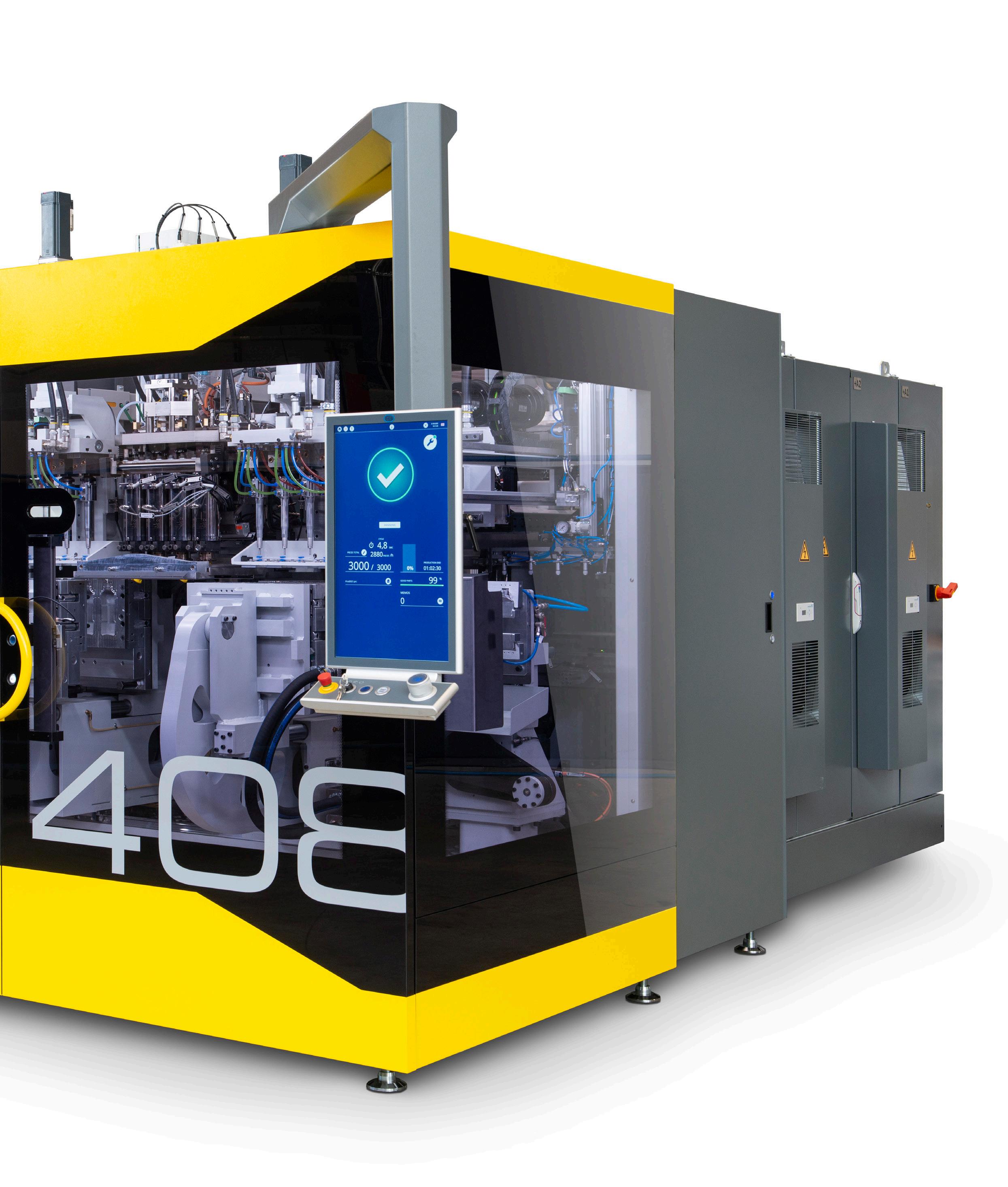
NEW SHAPE AND FORM
Six years ago, Gottfried Mehnert placed the management and shares of the Bekum group of companies in the hands of his youngest son Michael, who has since given the company a new impetus, with new machines such as the fully electric 8-series, award-winning machine design, energy-saving extruders, and a modern Industry 4.0-capable control system.
Describing the latest developments Michael Mehnert says: “We have recently opened a new service centre in Austria to support shorter response times and focus our R&D efforts on artificial intelligence, remote control and diagnostics to monitor the machine parameters and minimise downtime, as well as reflect the requirements for a more sustainable operation.”
Following his father passing away in August, Michael Mehnert has now taken full responsibility for the business and its future. He affirms that he is ready to take up the challenge, given his previous intensive engagement in company management as well as product innovation.
INNOVATED FOR THE FUTURE
Mr Mehnert acknowledges that the company has recently achieved another milestone with the innovation of its product lines, reinventing nearly its complete product portfolio at once, and introducing a modular design aiming at shorter lead times and reduced costs. 20 new machine models are set to be presented in the K2022 show in Düsseldorf, to ramp up their production in the near future.
He explains that the new developments have been pursued across three lines. The first one is the re-entry into small packaging machines (EBLOW 208D), machines that the
company started 60 years ago, with 60 and 120kN clamping force for smaller production volumes in cosmetics or pharma packaging.
The second line is new big packaging machines (EBLOW 1208D) with 1280mm carriage stroke for high output production like food packaging, with a newly developed e-Twintoggle, a full electric clamping system up to 500kN with special innovated bearings and less wear.
And, last but not least, the company will be presenting a new line-up of industrial machines up to 2000kN clamping with a patent-pending clamping unit which is hybrid electric for 220L L-Ring drums or IBC containers.
“All these new machine lines and technologies are my babies, but of course, a big team is working behind this,” says Michael Mehnert, adding that in addition to the portfolio innovations, the company is also rolling out Bekum Control 8.0 globally, a control platform with Industry 4.0 capabilities and artificial Intelligence health monitoring for higher equipment availability.
MEETING THE CHALLENGE
While in the past most of Bekum’s machines were delivered to the automotive and other heavy engineering sectors, the company has more recently utilised new opportunities in other industries such as pharmaceuticals, supplying highly customised machines for clean rooms. At the other end of the spectrum is the oil & gas sector, where demand for Bekum’s canisters, canisters, drums and IVC has increased.
Mr Mehnert points out that just as for any business, sustainability has been a hot topic for Bekum, and one that has been reflected

“QUALITY IS KEY, OUR MACHINES HAVE A SERVICE LIFE OF 30-40 YEARS AND BOAST THE HIGHEST RESALE VALUES IN THE MARKET.”
in the product range. “We have made huge steps in terms of sustainability both in terms of operations and product range,” he says.
“The fully electric machines use less energy than the previous machine generations, but we have also introduced 36D high-performance extruders with 20% less energy usage, a significant enhancement since an extruder consumes 80% of production energy. We have also developed new 3-layer spiral heads with dynamic simulation tools, with 80% of the middle head potentially made of postconsumer plastic.”
Sustainability is not the only area of investment, though. Last year, the company doubled its production capacity in the United States, with 4,500 m2 of production and office space and a new lab for extrusionblown PET, an investment worth $8 million.
“We are ready to face the future despite the current uncertainty in the markets. Those who will survive will get stronger, making good use of the new opportunities, emerging from the expected market consolidation.” It is a fair bet to say that Bekum will be one of them.
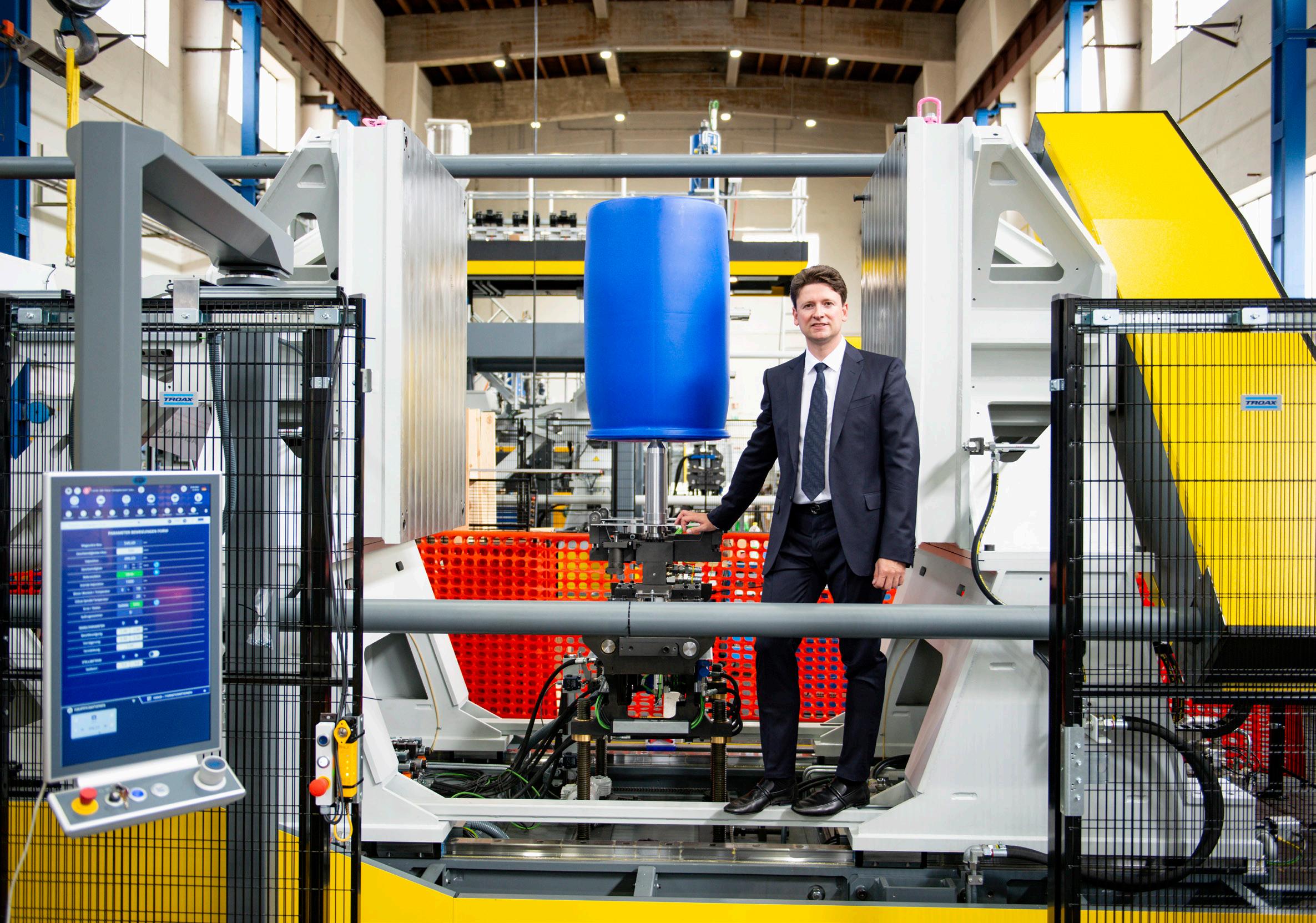
“WE ARE READY TO FACE THE FUTURE DESPITE THE CURRENT UNCERTAINTY IN THE MARKETS. THOSE WHO WILL SURVIVE WILL GET STRONGER, MAKING GOOD USE OF THE NEW OPPORTUNITIES, EMERGING FROM THE EXPECTED MARKET CONSOLIDATION.”Michael Mehnert,
CEO,Bekum.
AFTER 24 YEARS IN THE MANUFACTURING BUSINESS, FERROFAB, A FAMILY-RUN COMPANY AND ONE OF THE MIDDLE EAST’S LEADING OIL AND GAS MANUFACTURERS, IS NOW SETTING OUT TO ENTER THE RENEWABLE ENERGY SECTOR.
FABRICATORS & TECHNOLOGY INTEGRATORS OF CHOICE
PROJECT MANAGED BY: DAVID HAYVISFounded in 1998, Ferrofab is a family-run business that offers a diverse range of modular and static process equipment, including pressure vessels, skid packages, heat exchangers, and both offshore and onshore equipment. The company is strategically headquartered in Jebel Ali, a port town south of Dubai which offers logistical ease to clients and suppliers.
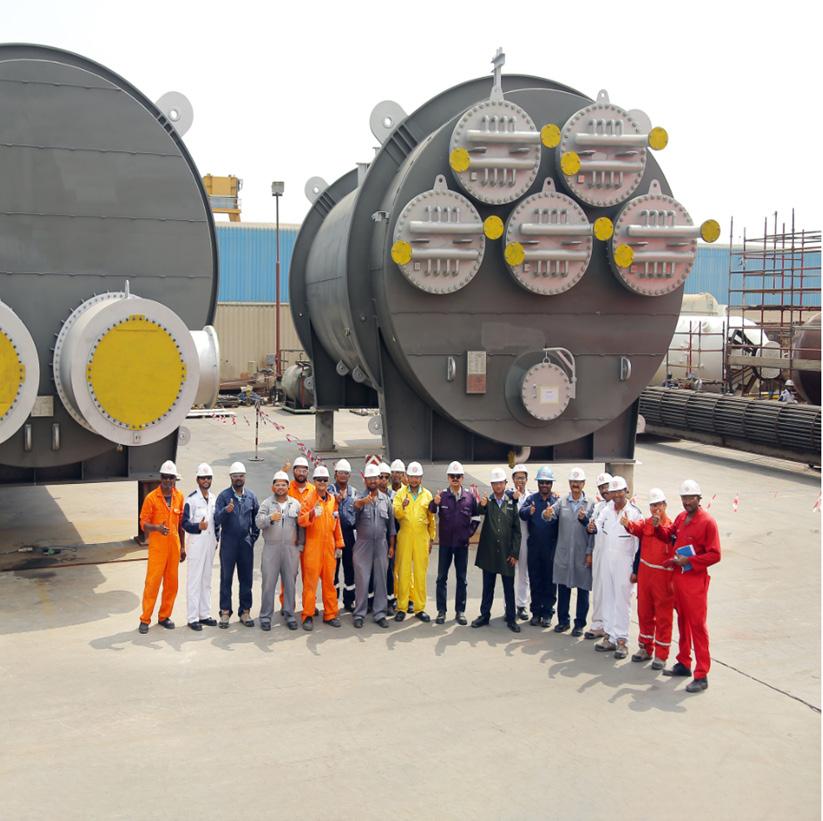
Over the years, Ferrofab has earned a trustworthy and esteemed reputation, thanks to their state-of-the-art facilities, consistent development, and unwavering commitment to achieving engineering excellence. Today, the company has several accreditations under its belt by ASME, API, and NB, and has also been approved by ADNOC Group of Companies, PDO, KOC amongst many others.
The Dubai-based manufacturer boasts a total of 800,000 square feet of modern facilities and runs various companies across the UAE. That said, their customer
base has extended well beyond the Middle East and past the oil and gas industry. Their next stopthe renewable energy sector.
HUMBLE BEGINNINGS
Ferrofab started out as a one-man project over two decades ago. What began as founder Walter Moraes’s passion for engineering turned into a dynamic company.
Business Focus had the pleasure of interviewing Johan Moraes, Ferrofab’s newly appointed Executive Director, who is spearheading Ferrofab’s growth along with his father Walter Moraes.
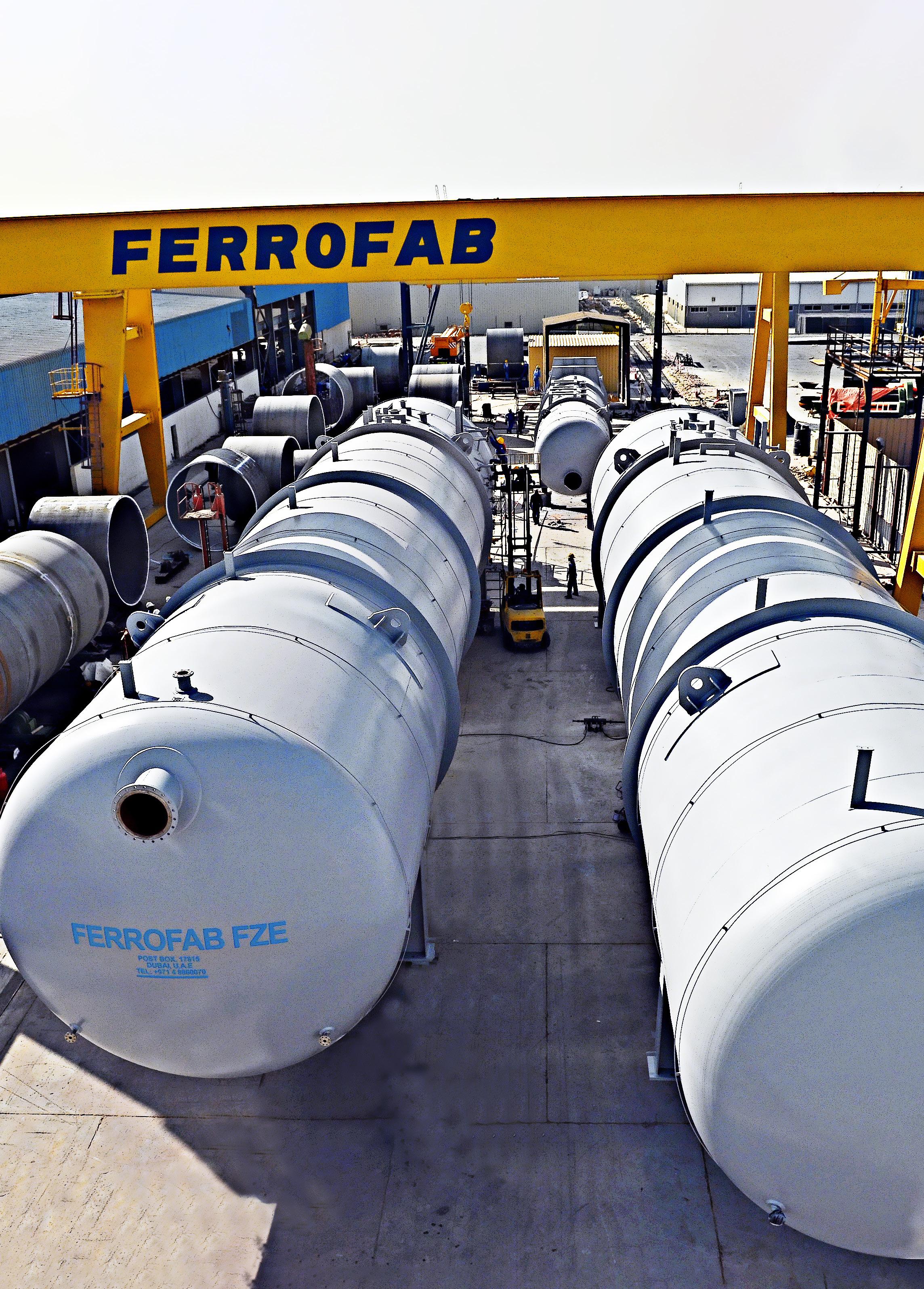
Tel: +971 4 804 6000 / E-Mail: sales@dme.dillinger.biz www.dillingermiddleeast.com

We are a leader in the welding industry with over 100 years of experience, more than 50 subsidiaries and more than 4,000 distribution partners around the world. Our extensive product portfolio and welding expertise combined with our global presence guarantees we are close when you need us. Having a profound understanding of your needs enables us to solve your demanding challenges with Full Welding Solutions – perfectly synchronized and as unique as your company.

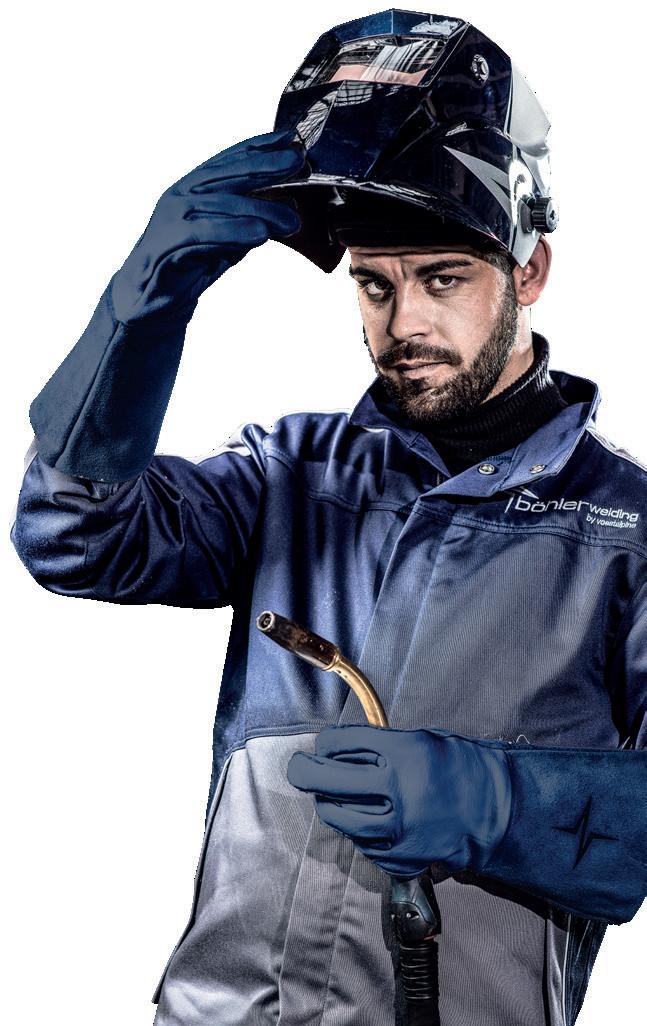
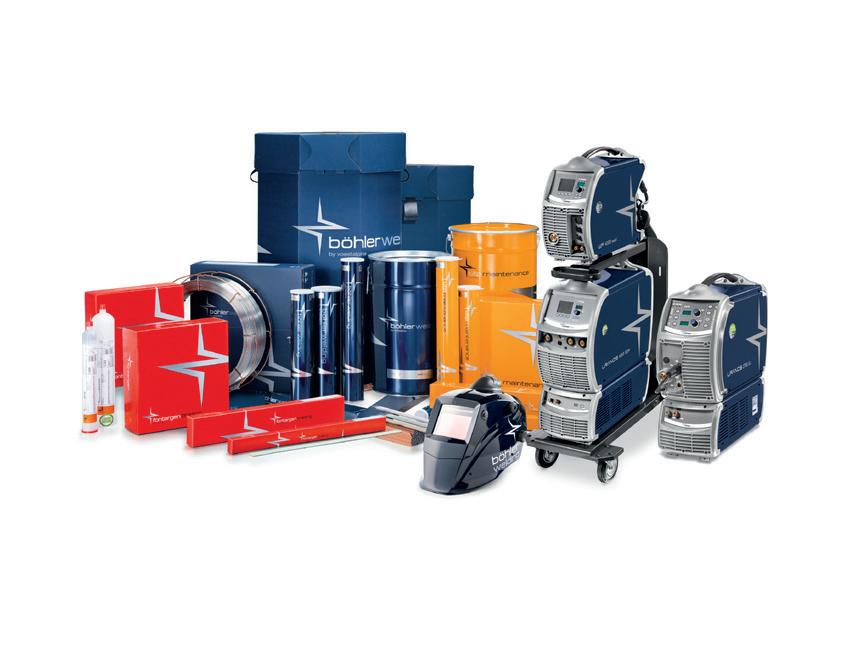
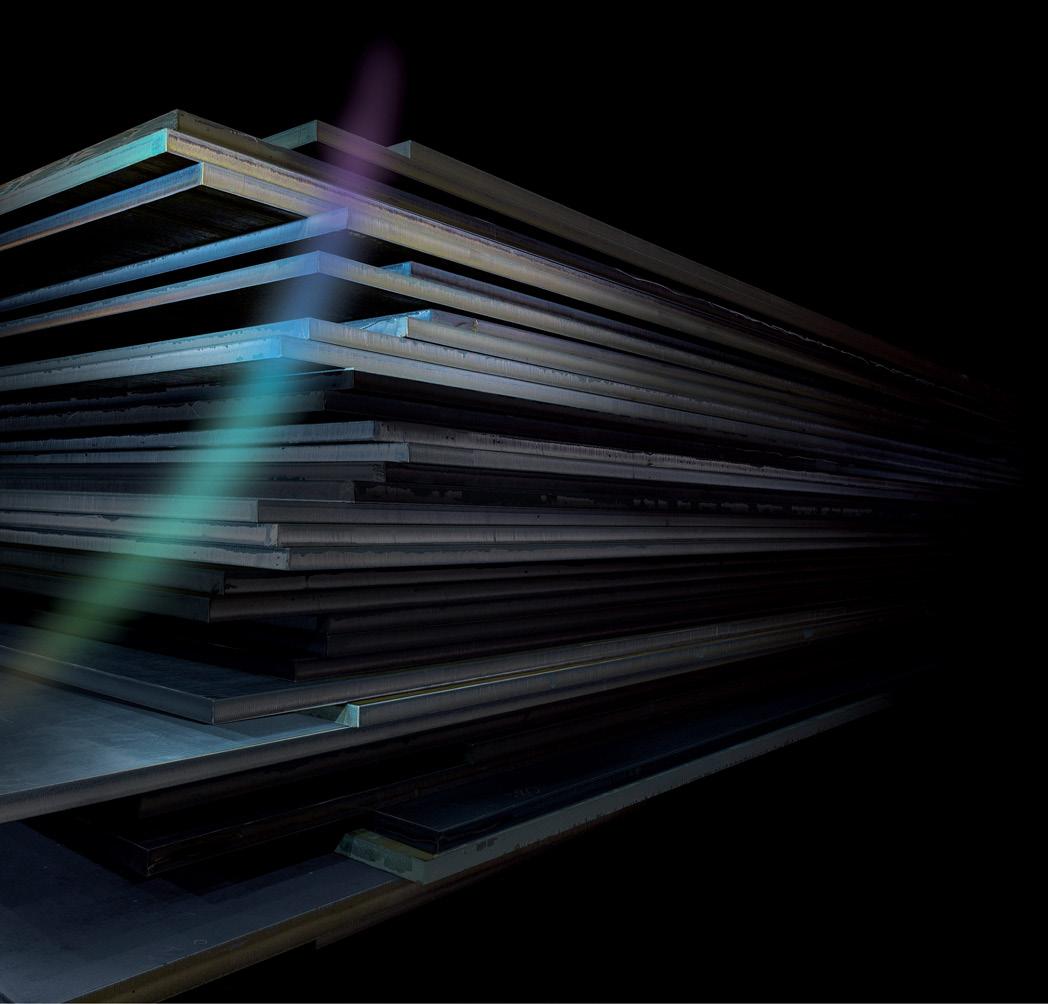
voestalpine Bohler Welding Middle East www.voestalpine.com/welding
“My father began this venture in the same year I was born, starting with just a handful of people but with a vision for something greater,” says Johan, who grew up around the company and watched it grow into the powerhouse it is today. “It was that fire and drive that made the company expand its capabilities and seek out opportunities for continuous development. This is my inspiration to see how to really unlock more of this company’s potential and elevate it even further.”
Joining the business was always an ambition for Johan, and it was not long after he earned his degree in mechanical engineering before he joined forces with his father. “I try to deeply involve myself with all the departments to best understand the company’s pulse as a whole” says Johan. “Maneuvering through these roles can be challenging at times but is always rewarding when you see the prospect of advancing.” When asked to outline some of the major milestones Ferrofab has achieved, Johan remarks that the company’s continuous endeavor towards growth and expansion is their proudest achievement.
“OUR
STAYING AHEAD OF THE CURVE
Covering the whole manufacturing process inhouse is a big differentiator for Ferrofab. It enables the company to maintain quality and consistency while serving clients as a trusted partner through and through and eliminates the need to rely on subcontractors or external machinery to finish projects. It is also a testament to the company’s customer-centric approach, which has resulted in building strong client and supplier relations.
“Our suppliers and clients are our true partners. We look at our relationships with them as less transactional and more partnership-based,” affirms Johan. “Our attitude is best described by my father’s philosophy: ‘If you want to run fast, run alone. If you want to run far, run together.’ This quote really resonates with us - we pursue symbiotic partnerships in which both parties support each other and grow together.”
This culture of reciprocity and respect does not only apply to Ferrofab’s clients and suppliers but is also a key component of the company’s internal culture. Ferrofab prides itself on having built a culture where employees are empowered to be leaders in their own right. Across the board, employees share the same values: quality, integrity, teamwork, continuous learning, and measurable achievement.
These values are also what keeps Ferrofab competitive - the company is constantly on the lookout for ways to do and be better, from identifying improvements in their current processes to expanding into new markets.
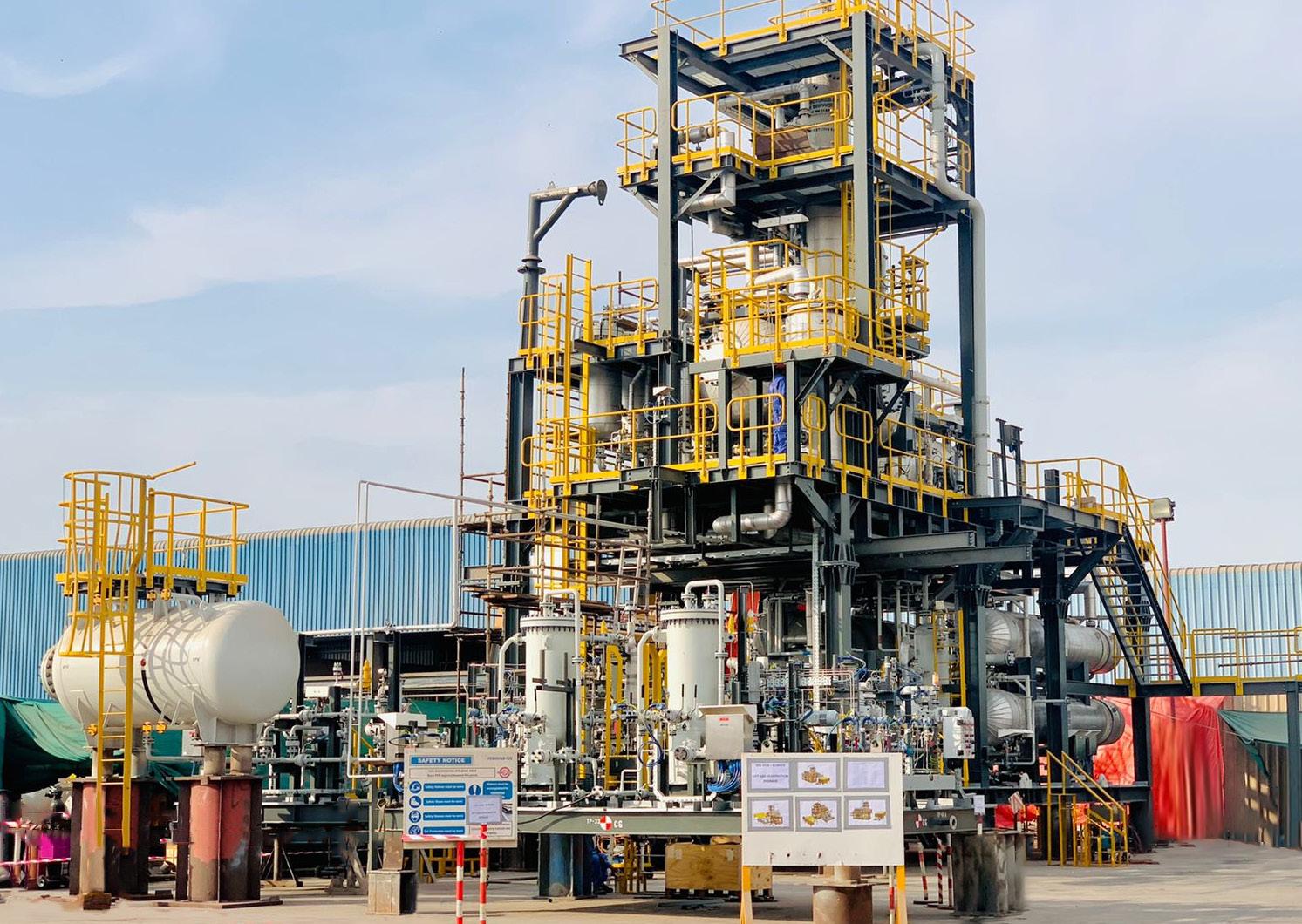
One example is the company’s prioritisation of sustainable practices, which is not only exhibited by their entrance into the renewables industry, but also through the structural changes being made internally.
Ferrofab is dedicated to reducing their carbon footprint and is actively working towards this commitment through the adoption of solar panels, increasing recycling policies, catalyzing digitization, and reducing the use of superfluous materials.
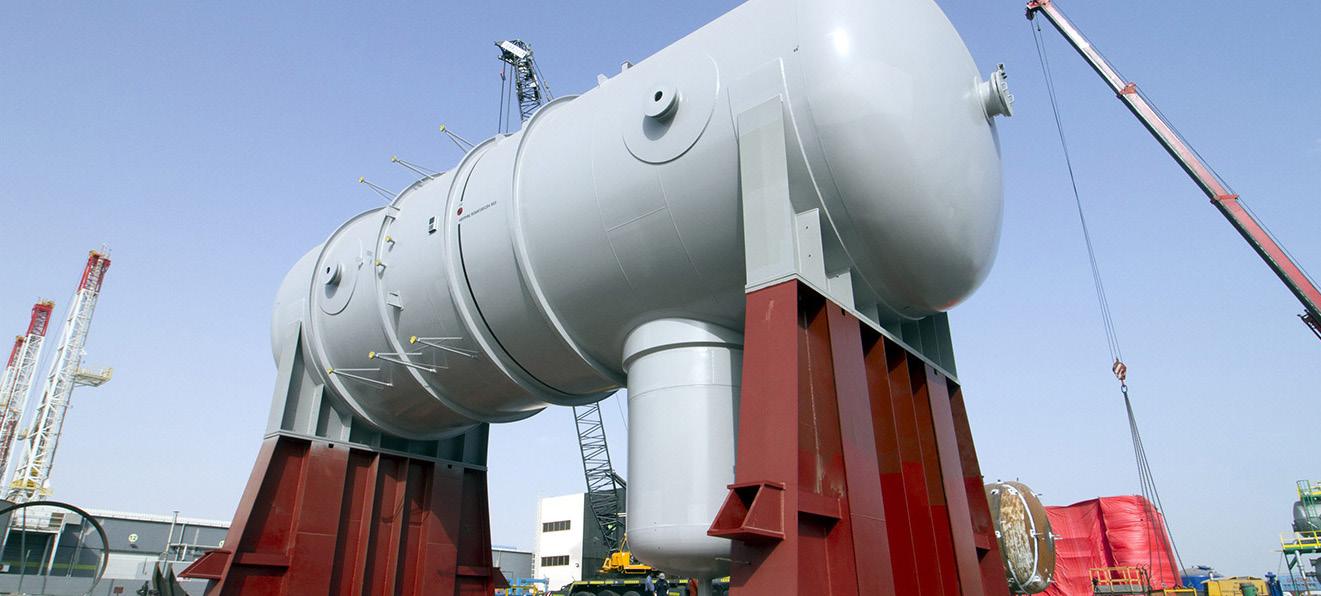
WIND OF CHANGE
Since stepping into his new role, Johan has been committed to taking Ferrofab to new heights by focusing on expanding the
company’s capabilities and entering new markets. The latest fruit of these efforts has been their collaboration with offshore wind platform developer Gazelle Wind Power, which marks the beginning of Ferrofab’s expansion into the renewable energy sector.
Leveraging Gazelle’s scalable proprietary technology, Ferrofab can manufacture hybrid modular offshore wind platforms which aims to support any make and model of wind turbines. Ultimately, these platforms and turbines will be supplied to clients across the globe.
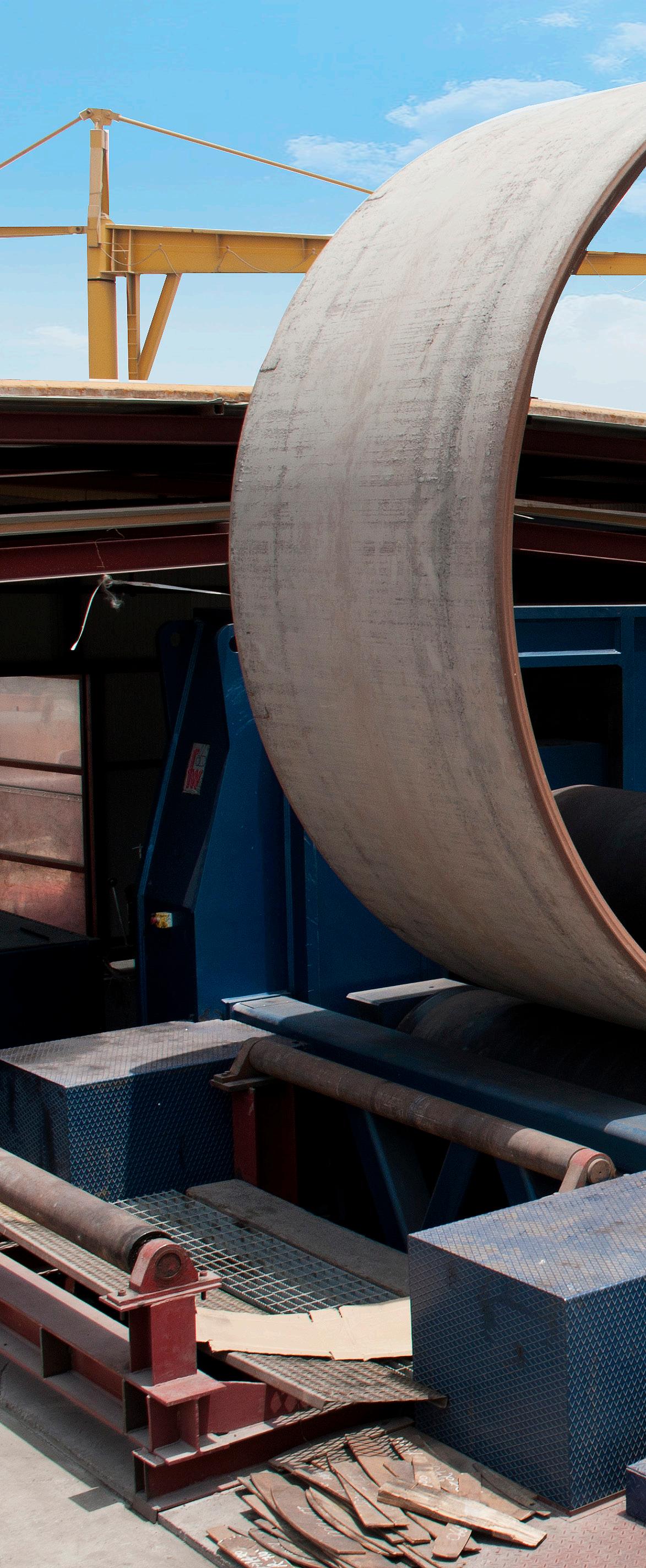
“Gazelle’s unique floating platform technology is the much-needed next step in the evolution of the offshore wind industry,” remarks Johan. “With its innovative design and modular components, the deployment of this solution will be a revolutionary step in the production of renewable energy.”
FUTURE PROSPECTS
Ferrofab’s growth has been on a steady upward trajectory since its inception. The company has recently constructed a new plot on the port of Jebel Ali, which serves to improve ease of logistics for clients and suppliers as well as support the company’s rapid growth.
Speaking about the investment, Johan says: “For any investment we make, the first point of consideration is always to identify how we can drive value to our clients. This new facility will give our clients logistical ease, which drives down handling and transportation cost substantially.”
This investment is one of many more to come in Ferrofab’s plans for expansion. The company is eager to unearth other areas of expansion and is all set to dive head-first into the opportunities that lie ahead, areas of green hydrogen energy and cryogenics.
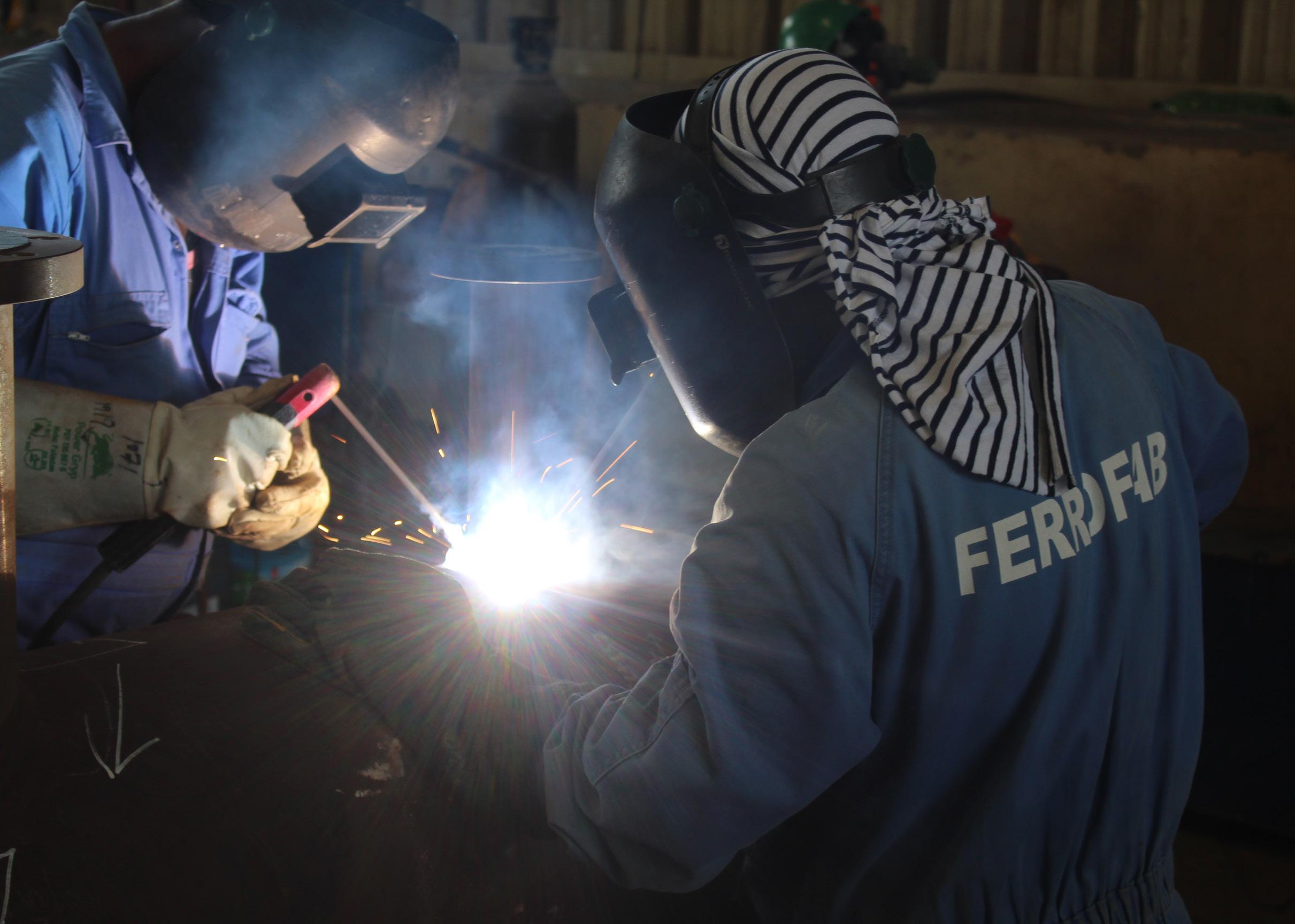
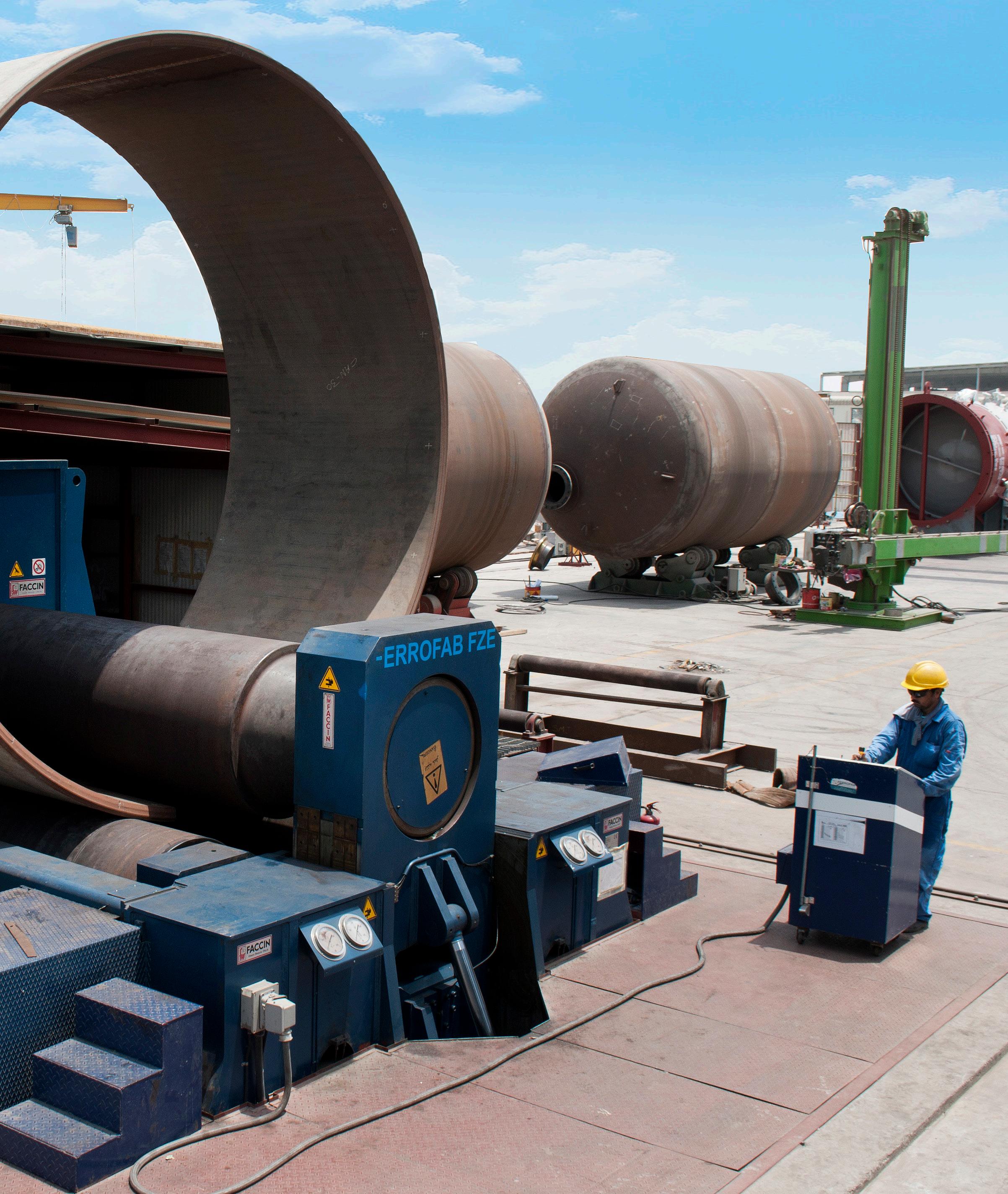
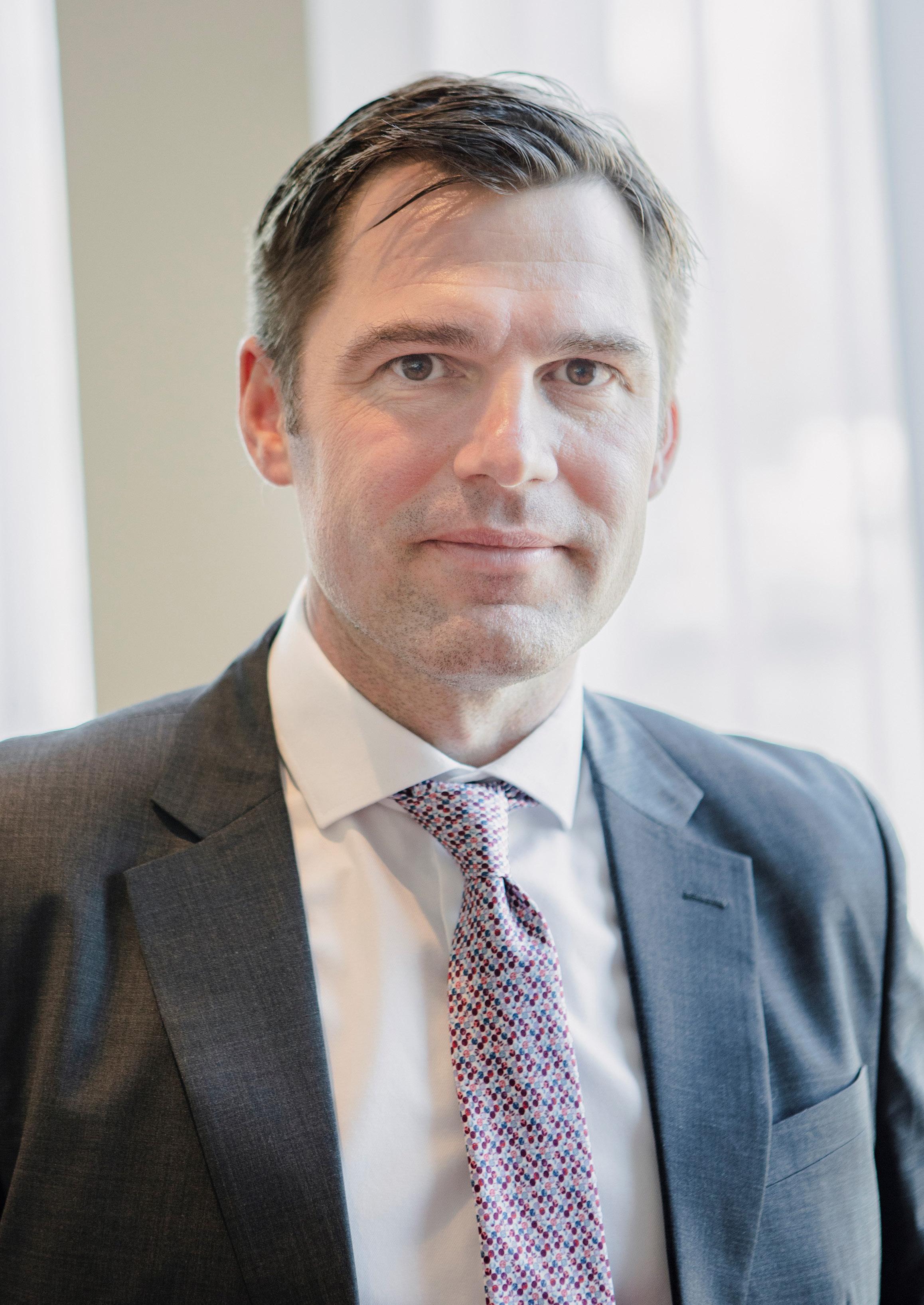
IMCD, A GLOBAL LEADER IN THE DISTRIBUTION AND FORMULATION OF SPECIALITY CHEMICALS AND INGREDIENTS, IS INCREASING ITS PRESENCE IN THE APAC REGION.
THE RIGHT CHEMISTRY
PROJECT MANAGED
The story of the Netherlands-headquartered IMCD Group can be traced back to a small group of companies that came together in 1995, unified by its two founders, Piet van der Slikke and Hans Kooijmans. Today, with both founders still active in company management as CEO and CFO, IMCD – a leader in the speciality chemicals sector – operates in more than 50 countries across six continents, employing over 3,700 professionals.
IMCD’s customers benefit from direct access to an extensive portfolio of high-quality products, avoiding the complexity of dealing with multiple points of contact. Across its eight market sectors, the group offers technical expertise and a high-quality portfolio of 43,000 products used in almost every aspect of daily life.
The last two years of the global pandemic have left the company unscathed. In 2022, IMCD recorded an impressive financial performance, reporting 58% EBITA growth in the first half of the year – the result of strong demand, organic growth, and acquisitions.
EIGHT BUSINESS GROUPS
Andreas Igerl, the recently appointed President of IMCD Asia region, describes the company’s winning strengths:
“We have a wide and diversified market coverage which resulted in a strong, resilient business model. As a speciality chemical distributor acting worldwide, we are operating out of eight business groups that can be roughly divided into industrial and life sciences.”
“The industrial business includes coatings & construction, advanced materials, lubricants & energy and industrial solutions, while life sciences contain pharmaceuticals, beauty & personal care, food & nutrition and home care I&I. Considering the speciality chemicals distribution, we are one of the global leaders in this sector.”
He explains that the group has always invested heavily in technical and formulation expertise, which is one of its competitive advantages.
BY: ALICE YOUNGIMCD operates 65 technical centres and application laboratories in over 20 countries that work closely with sales teams and product managers to provide suitable formulation and dedicated support to the group’s partners wherever they are in the world.
“We combine the element of speciality chemical distribution with a very technical approach to the market, providing a formulation service to our customers – we were probably an early mover to provide this service and master it.”
FIVE PILLARS OF GROWTH
Mr Igerl, an international leader with a strong background in the chemical industry and vast experience working in assignments in Asia and Europe, had been with IMCD for three years before being appointed to his current position just a few months ago. His vision for the business is clear.
“We want to significantly grow the business in Asia, and we will do this through our fivepillar strategy: organic growth; supplier expansion; mergers and acquisitions; digitisation and talent development.”
“It is a very simple, easy-tounderstand strategy, embedded in IMCD’s unique culture, which drives entrepreneurial behaviour and the freedom to act. Our employees enjoy the freedom to make their own decisions; we expect them to lead our business as if it’s their own business.”
This approach is key when managing a diverse workforce of different nationalities and cultures. “I think the most important thing is having a clear strategy and vision that everybody understands across all cultures. And if you have achieved that, you have set the foundation for growth,” Mr Igerl explains.
“The second thing is that we let the countries run very independently. We give them a vision and a strategy and help them drive the growth, but the execution is done locally, with a local workforce and talents. As a group, we fit the slogan ‘think globally, act locally’ very well. We try to leverage our global relationships and financial strength but encourage our companies in individual countries to drive the business locally, in line with the group’s strategy.”
BUSINESS EXPANSIONS
Andreas Igerl acknowledges that IMCD Asia has experienced significant growth over the last few years, driven to a large extent by organic growth and acquisitions. Just recently, the group added five companies to the portfolio.
“We acquired a company in Indonesia, which completes our footprint in the pharma and personal care sectors and made four acquisitions in China – two in the coatings market and one active in personal care, meaning that we have now entered the coatings & construction and the beauty and personal care markets in China.”



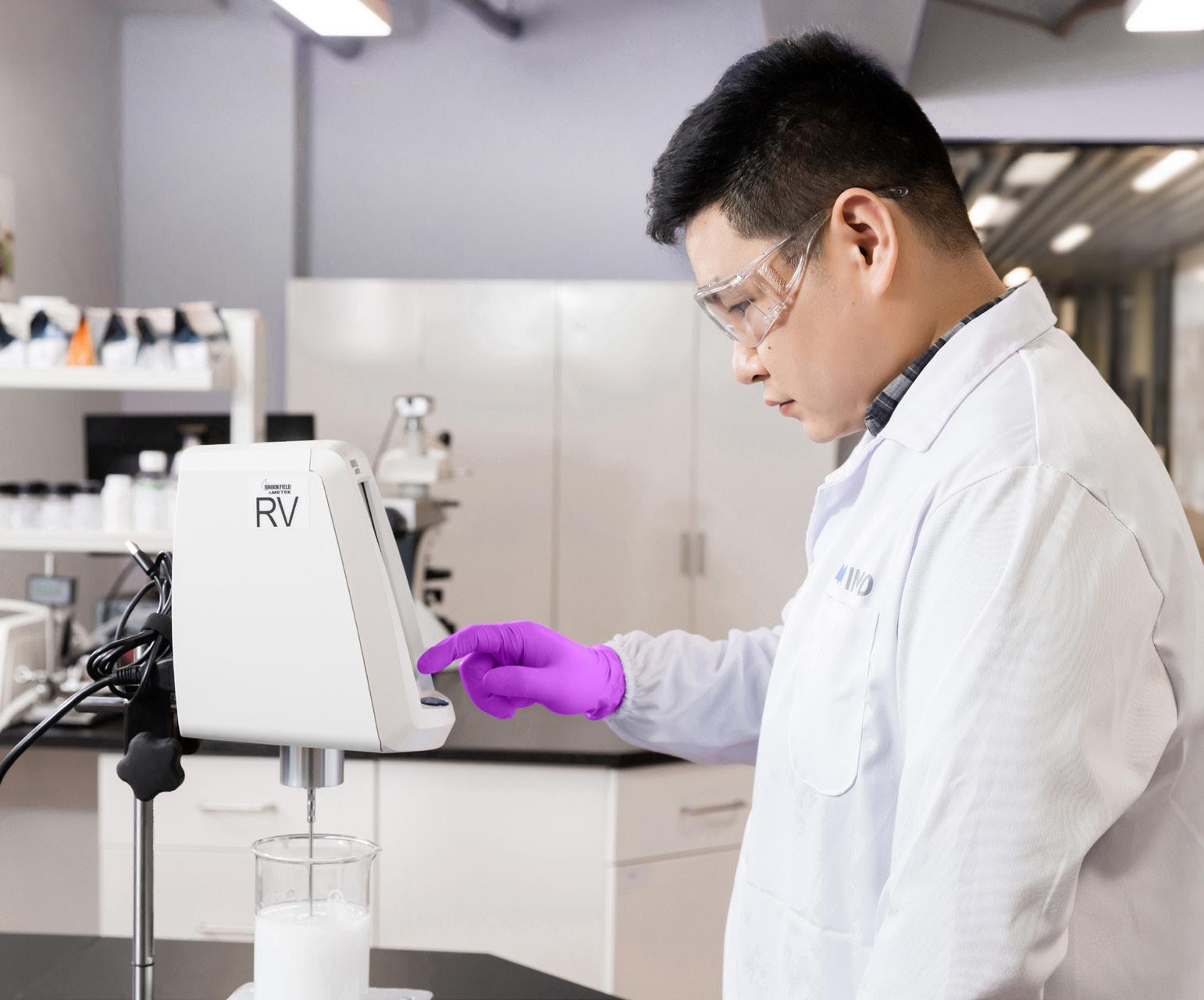
The most recent acquisition has been of Welex, a Chinese speciality distribution company that represents a wide range of leading global suppliers, providing its customers with an extensive portfolio backed by technical and formulation expertise.
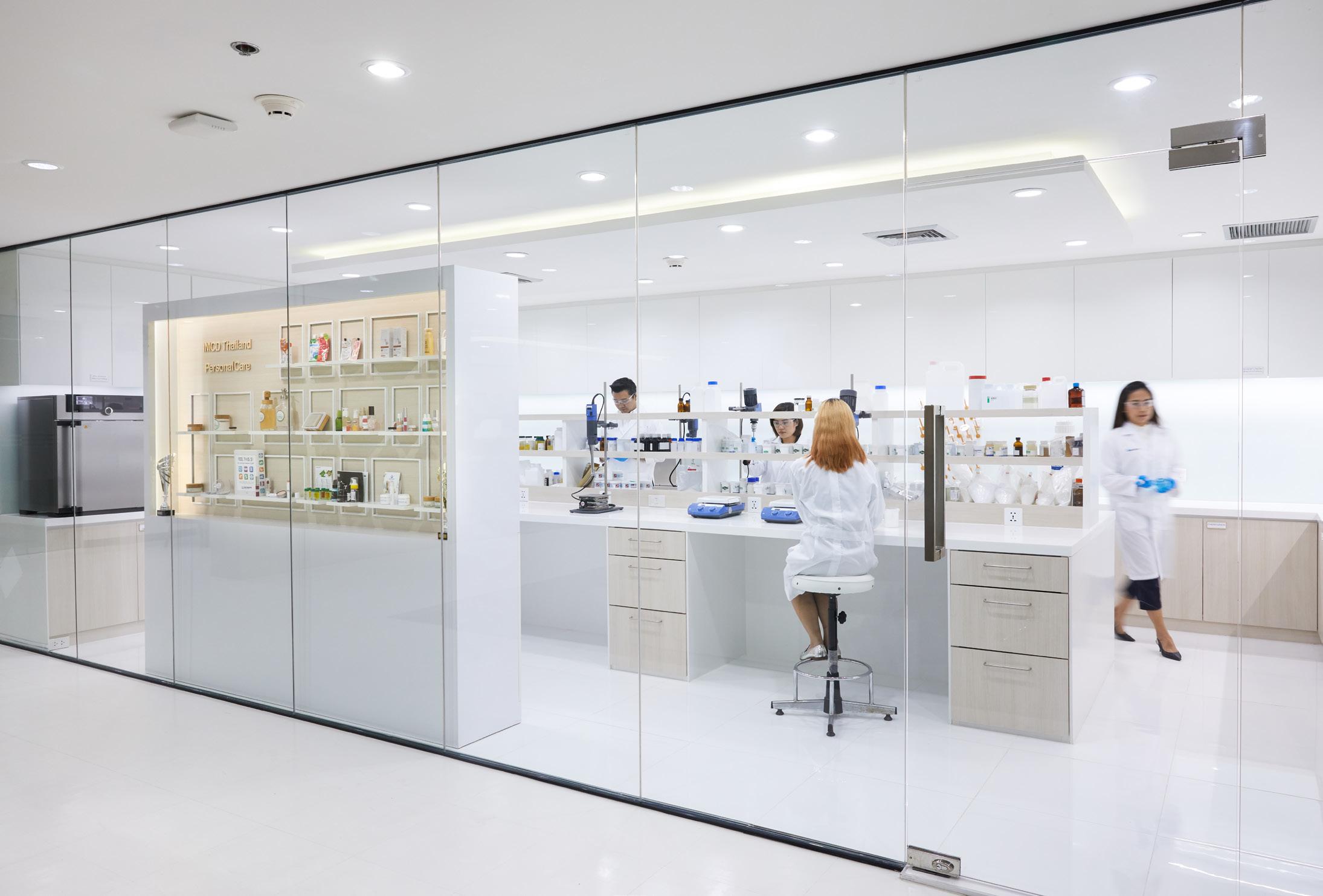
“The addition of Welex opens the door for us to diversify our coatings, paint and ink business, and with prime suppliers, and enter the fastgrowing agrochemical and specialty compounding additive markets. This is an important milestone for us as we continue our growth momentum with the diversification of our business, adding a significant presence in the North and South of China.”
M&A is not the only direction for IMCD’s investment in the APAC region, Andreas Igerl points out. The others include talent
development, digitisation, and building centres of excellence. Two years ago, the group inaugurated a pilot plant for meat, seafood, and plant-based analogues in Thailand, followed by an ultra-high temperature (UHT) pasteurisation pilot plant in Jakarta, Indonesia, designed to support complex ingredient formulations in the application of dairy, beverages, and soups.
READY FOR THE NEXT STEP
Andreas Igerl affirms that business expansion and investment projects are implemented strictly in line with sustainability and social responsibility principles.
“We aim to grow our business while reducing its environmental footprint and having a positive social impact demonstrated through clear and measurable metrics; we run the IMCD Cares
programme to support health and education, diversity, and climate programmes in the communities in which we operate.”
Reflecting on the future, he points out that IMCD will continue to capitalise on its resilience, based on its varied business groups serving various markets and its technical expertise, and is aiming at further business growth.
“We certainly have a vision in place and are set to achieve that vision by executing our 5-pillar strategy. If we do our job successfully, everything else will fall into place. Besides organic growth and supplier expansion, acquisitions have been and will be an important growth driver for IMCD Asia. Once we have achieved our target vision and brought IMCD in Asia to the next level, we will be ready for the next challenge.”
PEARL POLYURETHANE
THE FUTURE IS POLYURETHANE
PROJECT MANAGED BY: LIAM PYWELLSpecialising in tailor-made polyurethane systems, Pearl Polyurethane Systems is an award-winning innovator as well as the largest system house in the Middle East and Africa, serving a range of clients both regionally and globally from its headquarters in Dubai, United Arab Emirates.
Drawing on its expertise of 35 years in the design, production and customization of polyurethane systems, on independent raw material supply chains and an experienced and dedicated team of experts, the company’s mission is to guide its clients throughout the entire value chain – from the first consultation through to ongoing support.
WHY POLYURETHANES?
Martin Kruczinna, CEO of Pearl, explains that polyurethanes play an important role in today’s world, and help to combat climate change & global warming. “Rigid polyurethane foams deliver tremendous energy savings & reduce CO₂ emissions,” he points out.
Polyurethanes are increasingly important in the construction sector, for example. Of all conventional insulating materials, polyurethanes offer the highest insulation performance while being mechanically durable, moisture-resistant, temperatureresistant, and chemically stable.
Viewed over their entire life cycle, polyurethanes display an excellent energy balance.
Pearl’s customised solutions have been used in a number of iconic construction projects throughout the UAE and Middle East. Prime examples include the German Pavilion designed for Expo 2020 in Dubai, where advanced metal sandwich panel insulation containing polyisocyanurate rigid foam cores formulated and supplied by Pearl Polyurethane Systems was used.
The importance of polyurethanes, however, far outreaches the construction industry, Mr Kruczinna points out.” Besides well-established applications like sandwich panels, insulation boards, pipe insulation and appliances available as part of our EcoPearl product line, Pearl Polyurethane has been working successfully on diversifying its product portfolio.
As polyurethane is an extremely versatile material, there is a vast number of applications for which polyurethane-based solutions are the preferred option.”
DRIVING FORWARD WITH PASSION
Pearl draws on decades of industry experience as part of the Bayer group: “Our key selling point and competitive advantage, is our ability to merge the stateof-the-art research and knowhow linked to our legacy with the competence to customise to local requirements, taking into account legislative, economic, customerspecific, and even climate-related factors. This is what has made us the market-leading system house in the Middle East and Africa,” says Mr Kruczinna.
He points out that the company has defined an ambitious growth plan, based on expansion beyond Pearl’s previous home markets as well as into non-insulation applications.
Diversity is an important topic, not only in terms of the product range but also internally, says Mr Kruczinna, pointing out that in the very male-dominated chemical industry, especially in the Middle East, all Pearl’s new hires in 2021 were female.
“Diversity has benefited the company greatly, and Pearl is set to develop further based on its newly defined set of values: ownership, accountability, en trepreneurial spirit, and passion.
SYSTEMS, A PROVIDER OF SUSTAINABLE AND DURABLE POLYURETHANE-BASED SOLUTIONS, IS LOOKING TO INCREASE ITS GLOBAL FOOTPRINT.
PEARL
POLYURETHANE SYSTEMS
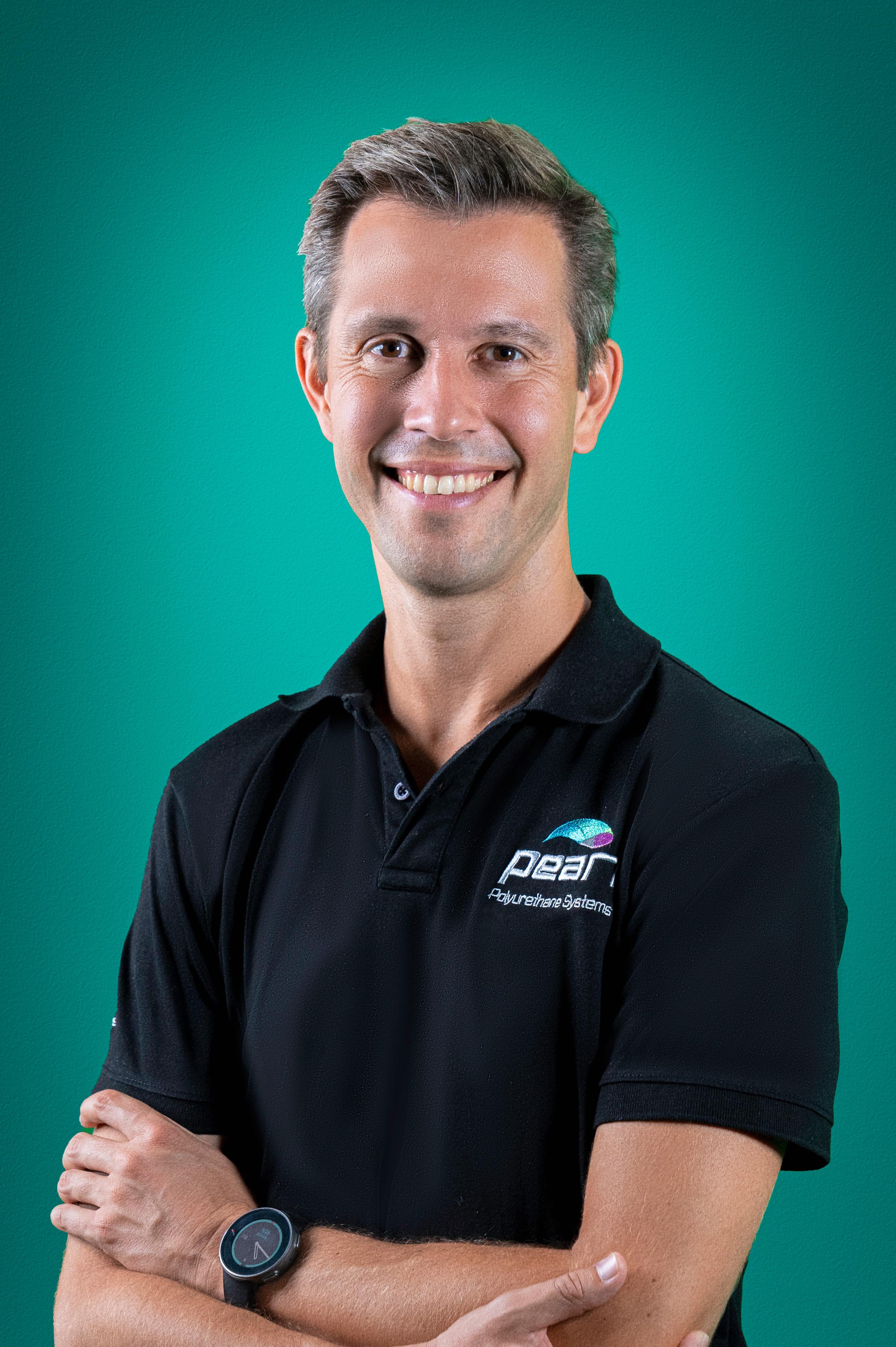
CHEMICALS MACHINERY TECHNOLOGY
POLYURETHANE ADDITIVES & RAW MATERIAL

POLYURETHANE FOAM MACHINERY
MATTRESS MACHINERY
MATTRESS FABRIC & ACCESSORIES
PAINTS & COATING RAW MATERIAL
DETERGENT & COSMETICS FOOD & NUTRITION
SOLUTIONS SIMPLIFIED
RECAZ CHEMICALS est in 2010 is one of the leading distributors of chemicals in ME and Africa with a vision of providing a complete range of raw materials and technical support for Polyurethane, Paint, Detergent, Adhesive and the Telecommunications industry.
Our focus and strength has been to partner with quality and reliable manufacturers worldwide and distribute there products with adequate stocking points and a prompt delivery service. Our highly qualified technical team ensures that any technical query is properly addressed and solved.
We in RECAZ believe that growth and development is a by product of honest relationships with our customers and partners where by we provide a perfect balance of supply, competitive price, on time delivery and after sales service.
Polyurethane:
We love it and we live it!
www.recazchem.com THIS IS
Each and every day, we are inspired by the great versatility of polyurethanes. We develop and improve PU formulations for our customers with passion and dedication. What fascinates us most is helping our customers to simplify processes and make their products even more successful.
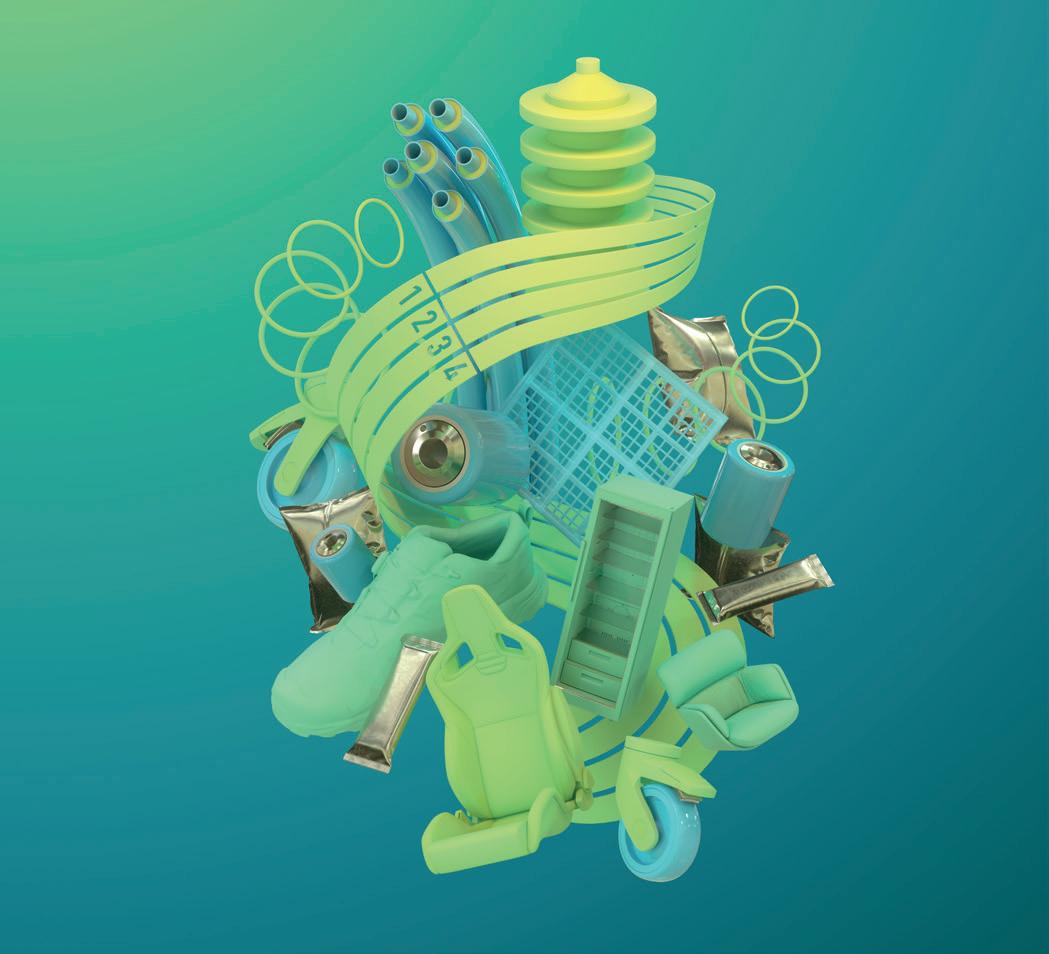
If you share this enthusiasm, we should get to know one another! We are an independent, multinational company specializing in customized PU systems that meet your needs, no matter how special or unusual. And we very much look forward to working with you to find the right solution for your requirements!
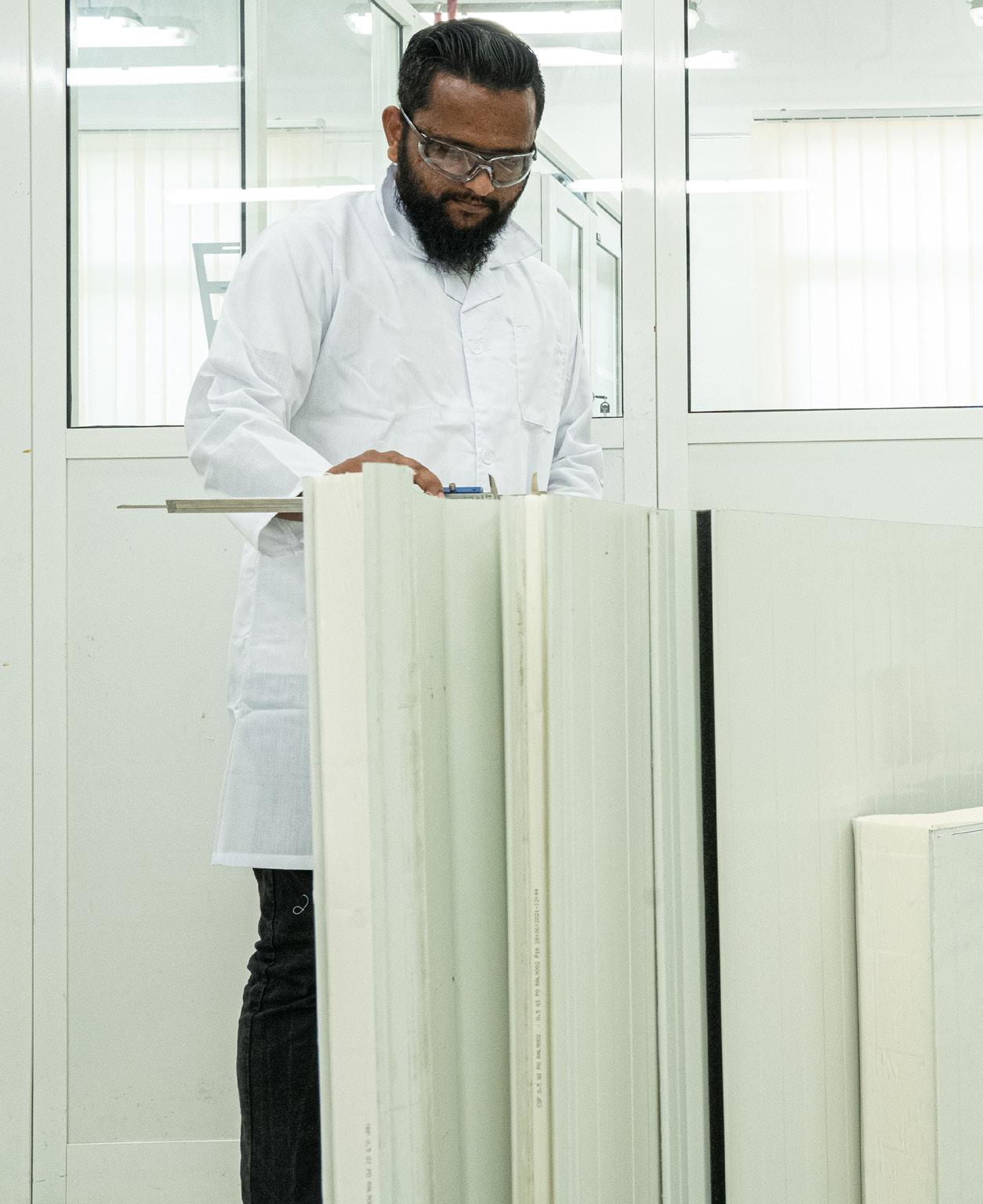
We want people to feel that it is their company, we want them to embrace the challenge, accept accountability and be ready to seize opportunities when they present themselves.”
“Passion for the business is reflected in its performance. We are on track towards achieving double digit growth despite the challenging times. Next year, the growth figures will not be any lower, with plans to build an additional production site in Saudi Arabia.”
TECHNOLOGICAL LEADERSHIP
“The USP enabling the realisation of Pearl’s growth strategy is our positioning as technology leader, with our research and development department and our technical service making the difference.”
states Kruczinna. “The award winning “low-lambda system” – helping our customers to produce sandwich metal panels with extremely good thermal insulating capabilities—and the offering of sustainable solutions such as carbon neutral Isocyanates are only two of many firsts in the region.”
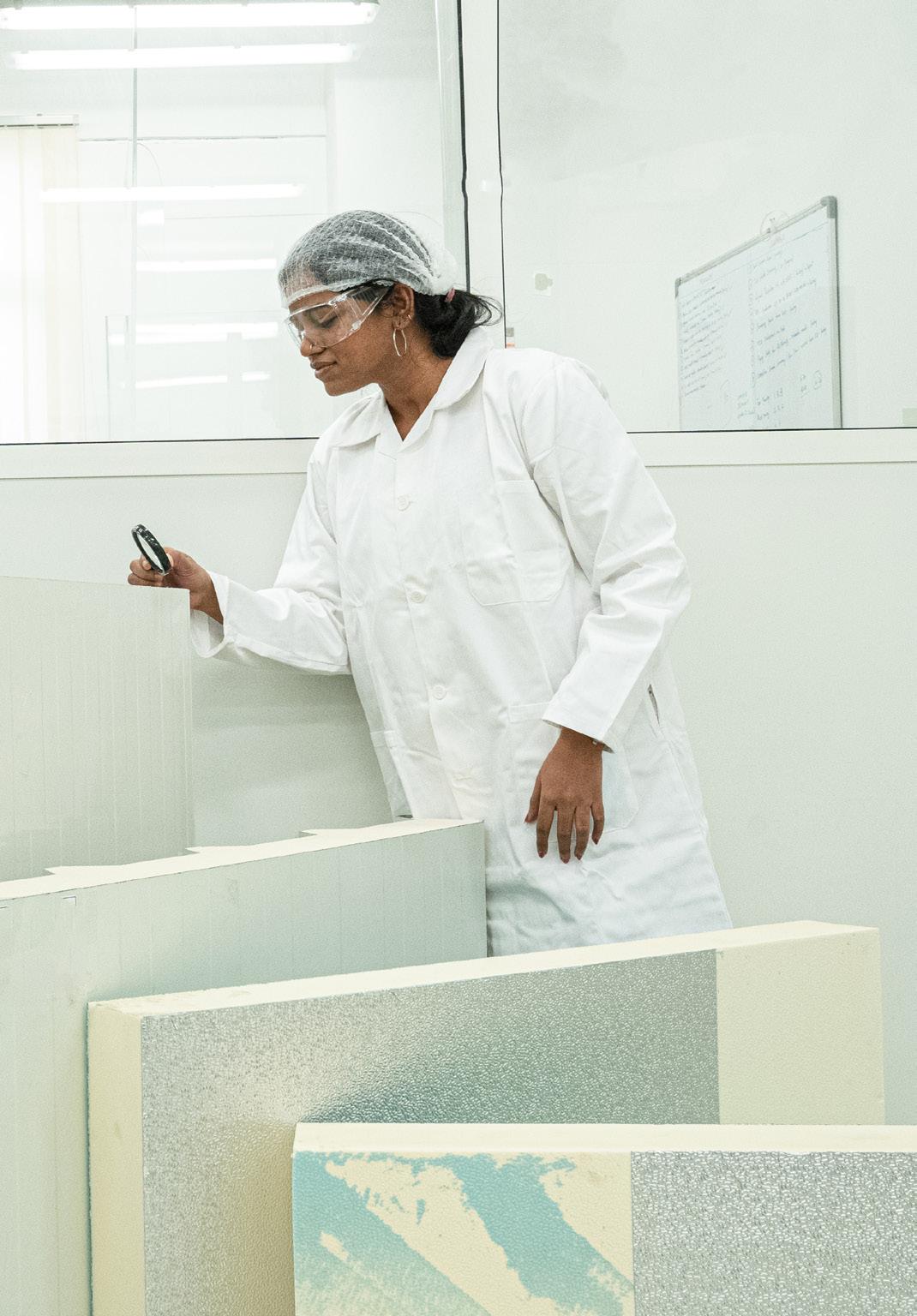
Following the introduction of the ground-breaking new low-lambda insulation product, Pearl has rebranded its entire series of polyurethane systems for insulation applications to EcoPearl. The series covers a broad range of applications
ranging from metal sandwich panels and pre-insulated pipes to spray foam insulation for commercial and residential properties as well as other insulation applications such as appliances and water heaters, all of which can be modified by Pearl Polyurethane to specific end-user needs.
The company’s technological leadership was recognised when Pearl’s R&D collected the award for Innovative Insulation Project of The Year at the Construction Innovation Awards 2021 organised by Construction Business News Middle East.

“THE OVERALL MEGA TRENDS ARE FAVOURING OUR KIND OF BUSINESS. WITH ENERGY COSTS INCREASING AND GOVERNMENTS DEFINING THEIR CLIMATE TARGETS, OUR PRODUCTS ARE SET TO BE IN DEMAND.”
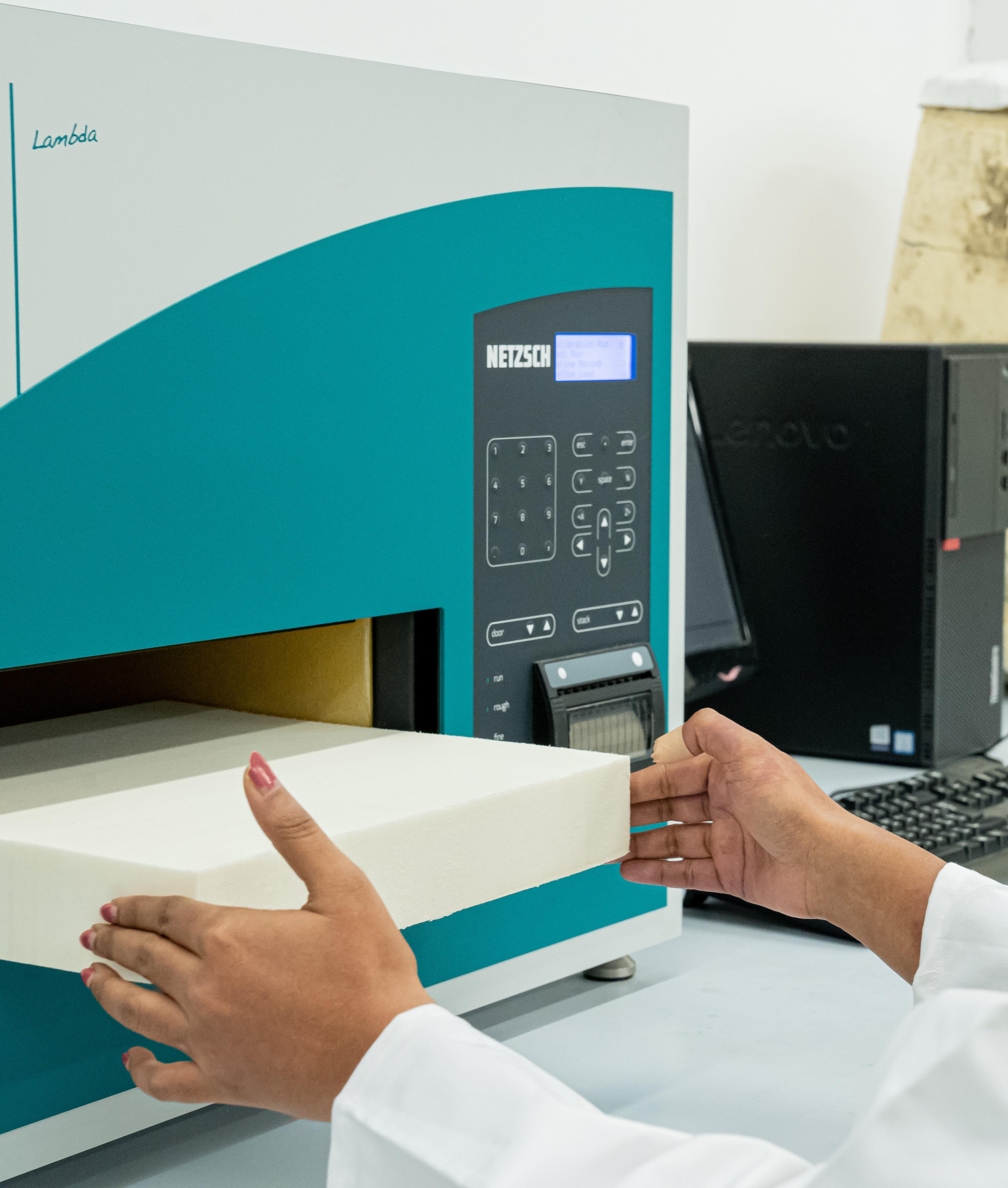
“Winning this award is an important part of Pearl’s mission to raise awareness of sustainability issues and the improved energy saving benefits of polyurethanebased insulation panels as part of a regional and global solution to reduce energy for heating and cooling purposes,” says Mr Kruczinna.
CHANGE AGENT IN THE FIGHT AGAINST GLOBAL WARMING
Sustainability continues to be central to the company’s R&D, he affirms. “Polyurethane Systems consist of an Isocyanate-component (MDI for rigid foam applications) and a Polyol formulation,” he explains.
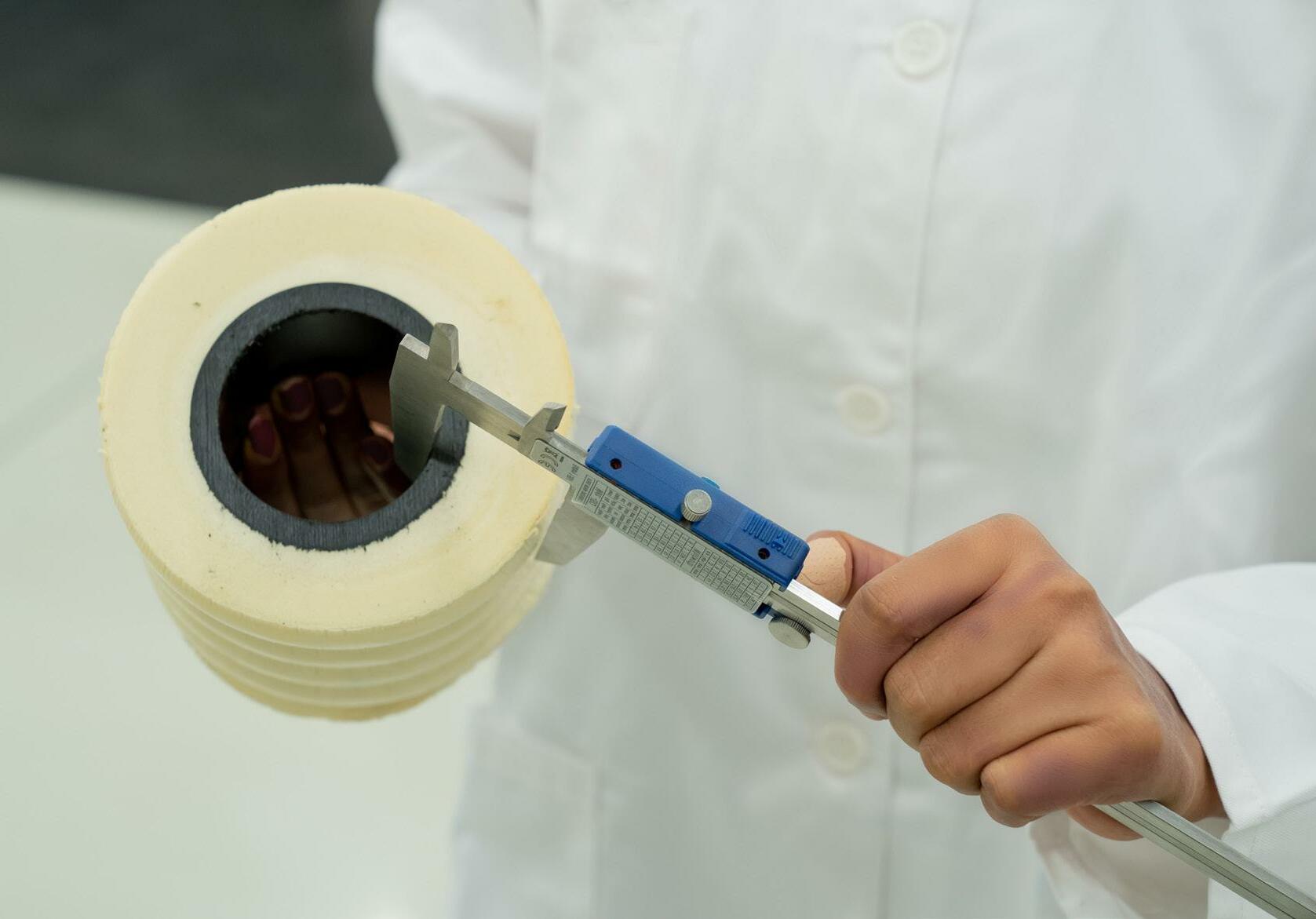

“The carbon-neutral MDI for which we have partnered with Covestro and are offering as the first company in the region is called “mass-balanced MDI”, as the renewable raw material used for this is added to the petroleum-based raw material in the MDI production process.”
“Our products based on carbon-neutral MDI help our customers to achieve their emission reduction targets.”
For its eco-friendly material, the company last year received the International Sustainability and Carbon Certification (ISCC).
Given the overall market developments, Pearl seems to be in a good place. The company has now three production sites in the UAE and is planning on opening up its next production facility in Saudi Arabia by the beginning of next year.
“The overall mega trends are favouring our kind of business. With energy costs increasing and governments defining their climate targets, our products are set to be in demand. We have the added advantage of being located in the Middle East with access to raw materials, at a hinge location between Asia and Europe, so we are in a perfect position to produce securely at an affordable cost,” Mr Kruczinna concludes.
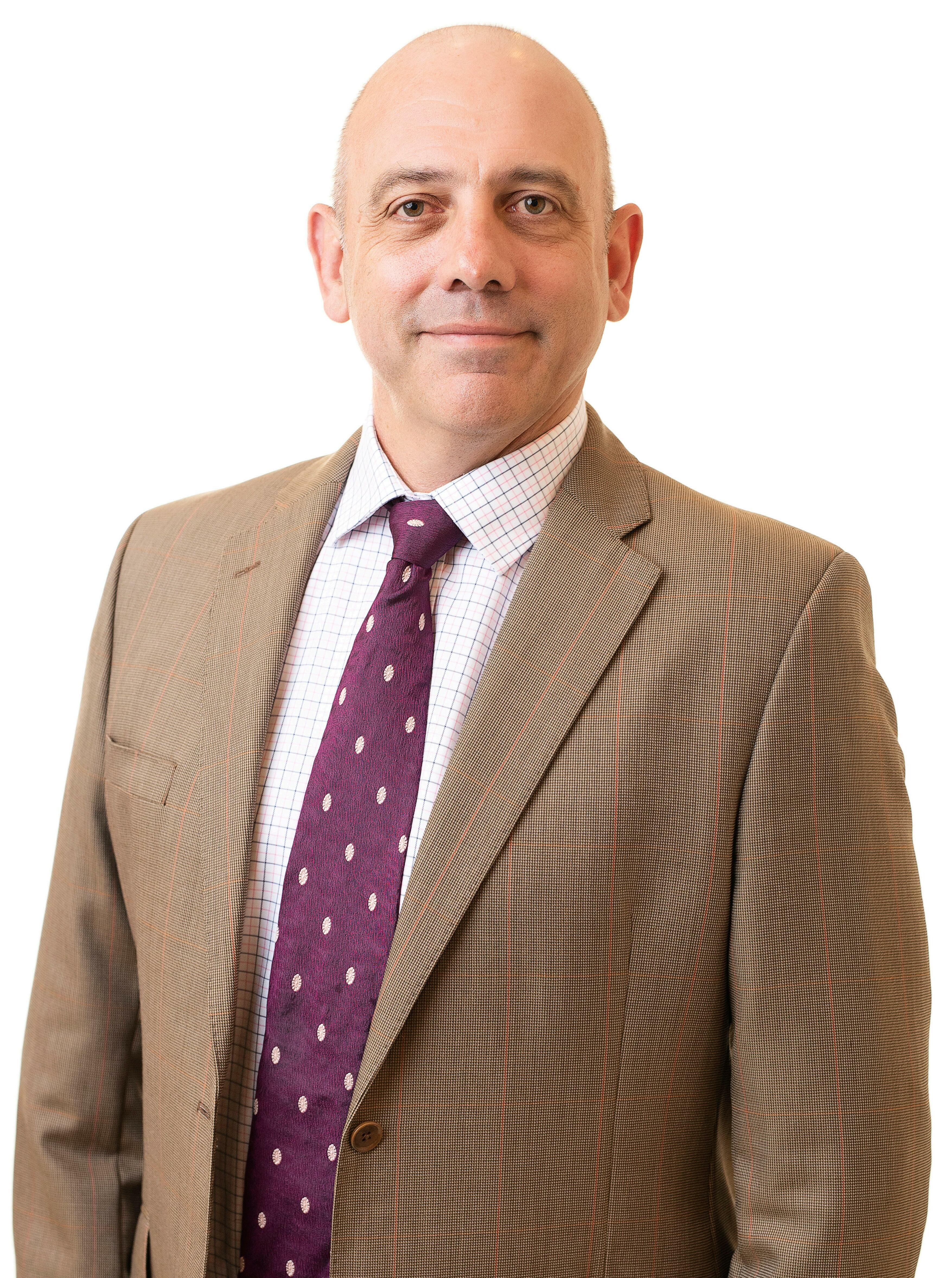 Simon Wensley, CEO Metro Mining Ltd.
METRO
Simon Wensley, CEO Metro Mining Ltd.
METRO
METRO MINING IS A SMALL BUT RAPIDLY EXPANDING MINING OPERATION, DRAWING ON LOCAL RESOURCES AND INDIGENOUS TALENT.
MINING BAUXITE AND TALENT
PROJECT
As the energy transition is underway, and electrification becomes an increasing necessity, there is one material that is going to see growing demand across all industries- aluminium. Metro Mining is a company that is going to prove crucial in meeting that demand. Metro Mining holds leases in the Weipa Bauxite Region on the west side of Queensland’s Cape York Peninsula. Bauxite’s been produced out there for years. Operating out of a number of tenements across the Cape, the firm has been mining for just under five years since it was established in 2018.
Our business supplies hydrate bauxite, the ore necessary for aluminium, a critical metal in the construction and transportation industries,” says Simon Wensley, CEO of Metro Mining. “It will underpin the energy transition in terms of solar, wind, and electrification. There is a strong demand for aluminium.”
Metro Mining’s current operation produces a highgrade unprocessed ore, a direct shipping ore (DSO) blended and sieved to a uniform size before it gets transported. It is a low footprint operation focused on mining and transportation, with a trans-shipping model whereby ore is loaded onto barges, which are then sent to anchorages offshore and transported via a floating
train of barges to large oceangoing vessels which take the bauxite into the traders’ market.
“Our primary customers reside in China at the moment, so we’re well-positioned for that market, eight or nine days sailing due north up into China,” Wensley points out.
Metro Mining is well positioned, but it also has an impressive capacity of 4 million tons of ore per annum, and that ore is of extremely high quality.
“The bauxite has a high level of content, it is high-grade, high alumina ore,” Wensley tells us. “We’re close to the market and provide consistent product and a creative set of services to go with that in terms of technical services and logistics.”
MANAGED BY: JAKE REEMANThe key is that Metro Mines is not only providing the critical ore, but also the shipping services necessary to bring that ore to the market.
“Technical services and logistics are both critical. We ship in very large cape-sized vessels, carrying 180,000 tons, and we charter those vessels to deliver to our customers in mainland China into large ports,” Wensley says. “It’s an important service for those customers that don’t participate in the freight market themselves.”
As well as getting the ore to where it needs to be, Metro Mining also provides vital technical support. Bauxite is not a fungible commodity; it requires a great deal of processing to be useful.
“To make sure that runs optimally and produces a good aluminium product, we have a team in China to follow up with customers and help them understand how to get the best use of out of the bauxite in their refining conditions,” Wensley explains.
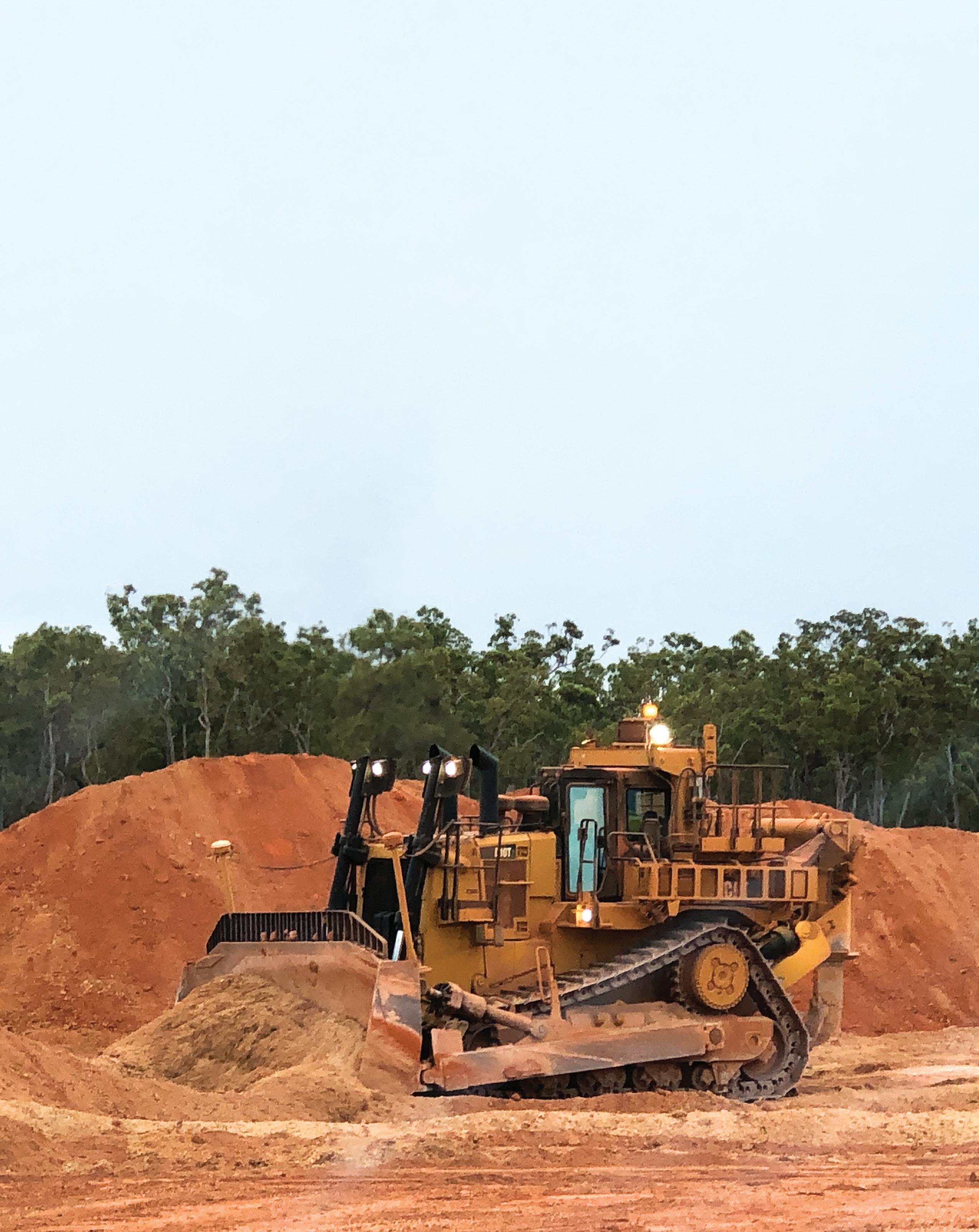
Shellby Power is a specialist Genset dealer for any business or application, such as communications, power, tourism, oil & gas, drilling & production.
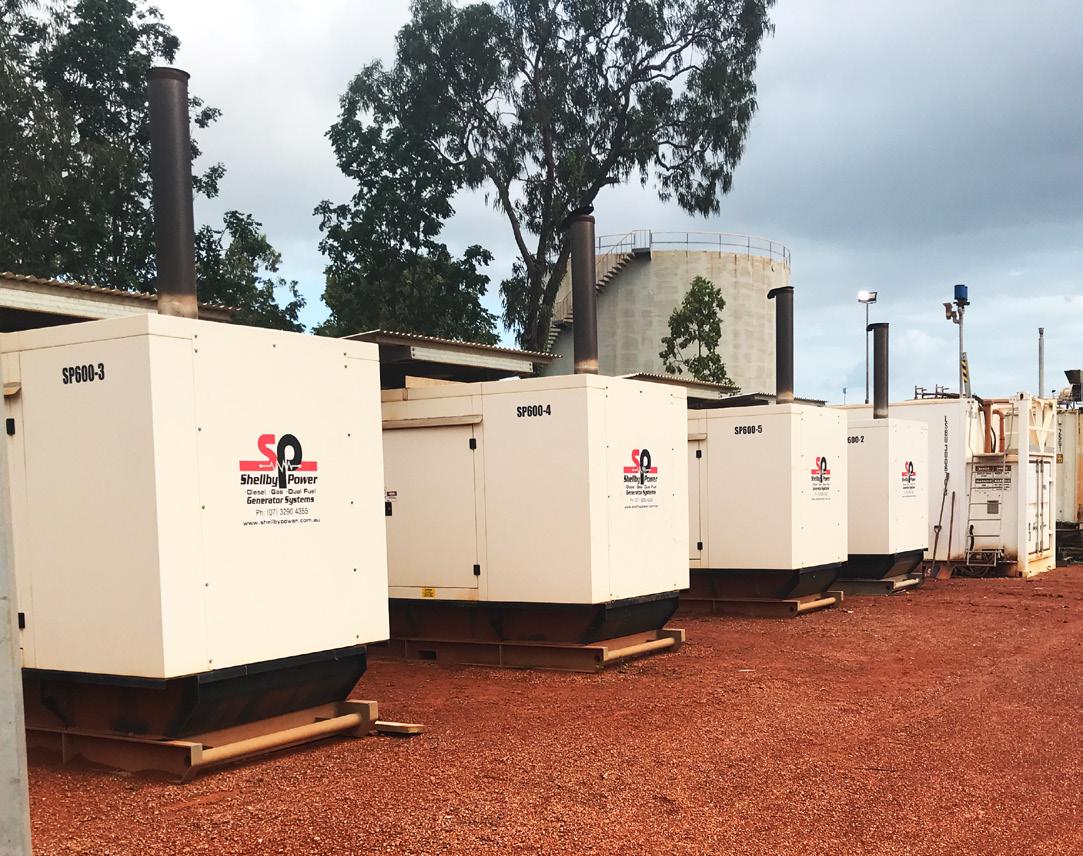
As an well-established power generation company, Shellby Power has the equipment you need to get the job done: diesel & gas engines, diesel generators, gas generators, duel fuel and a variety of components and ancillary equipment.
We cater for every power generation requirement: continuous power, stand by, prime power & remote power statics. You can rent or buy new or used generation equipment from within the Shellby Power network, anywhere around Australia.
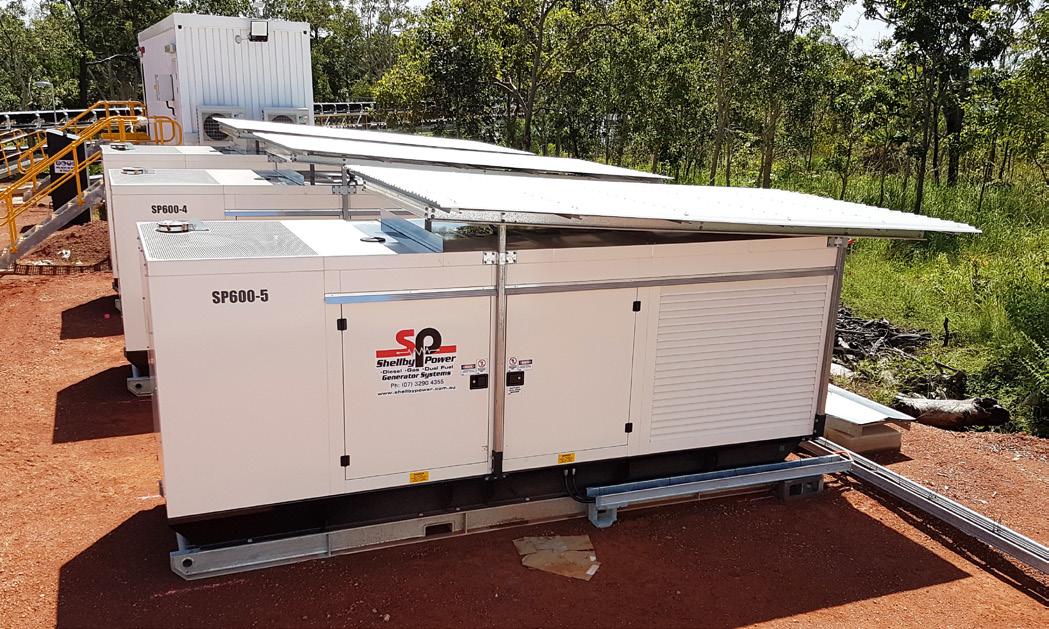
SHELLBY POWER
Shellby Power was introduced to Metro Mining through our relationship with the Scania network back in 2017. We had been running Scania engines in our gensets for years and worked closely with the Brisbane guys.
Metro was going with Scania trucks because of the power requirements and thought it smart to look into the same for their power generation requirements. After further discussion, Shellby Power signed a contract to supply power for the whole site. The boat loading facility runs 4 x 600kva gensets and the camp was installed with 2 x 600kva gensets. 5 years have passed, and we are still maintaining reliable power to the site.
Shellby Power is looking into ways of reducing our fuel consumption with the addition of solar and batteries that we can integrate into the current system with minimal impact to the site. Shellby Power has had a great working relationship with the mine and looks forward to supporting Metro mining as they ramp up operations into the future.
www.shellbypower.com.au
+61 8 8294 7261 info@cmgroup.net www.cmgroup.net
581 Transition Drive, Archerfield QLD 4108, Australia +61 7 3290 4355 ■ sales@shellbypower.com.au www.shellbypower.com.au
CM is the world’s leading independent bauxite research house, offering a range of tailored bauxite industry publications, including a unique set of bauxite price indexes based on deep industry knowledge and extensive research across the global bauxite market.
CM’s internationally recognised and widely cited Guinea Bauxite Index (GBIX) is the reference price selected for use in contracts by Guinean exporters.
CM combines its proven global bauxite industry research capability with approachable, knowledgeable, and naturally inquisitive researchers to generate deep and insightful weekly, monthly, and quarterly bauxite market reports.
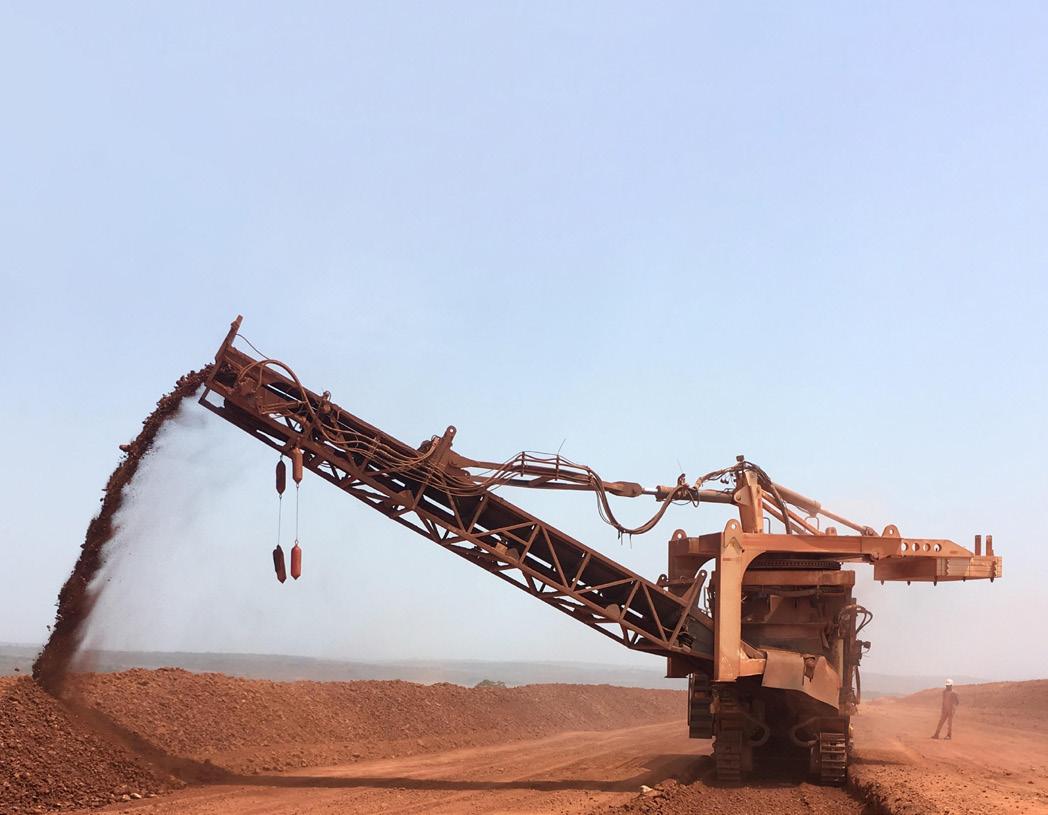
 SALES ■ SERVICE ■ HIRE
SALES ■ SERVICE ■ HIRE
“We give them the optimal grinding size, temperature and so on. There are a few ways to get the best out of our product, a few things that need to be optimised, and we have expertise there.”
INDIGENOUS TALENT
Metro Mining understands the importance of a strong supply chain, thanks to the remote location of its operations.
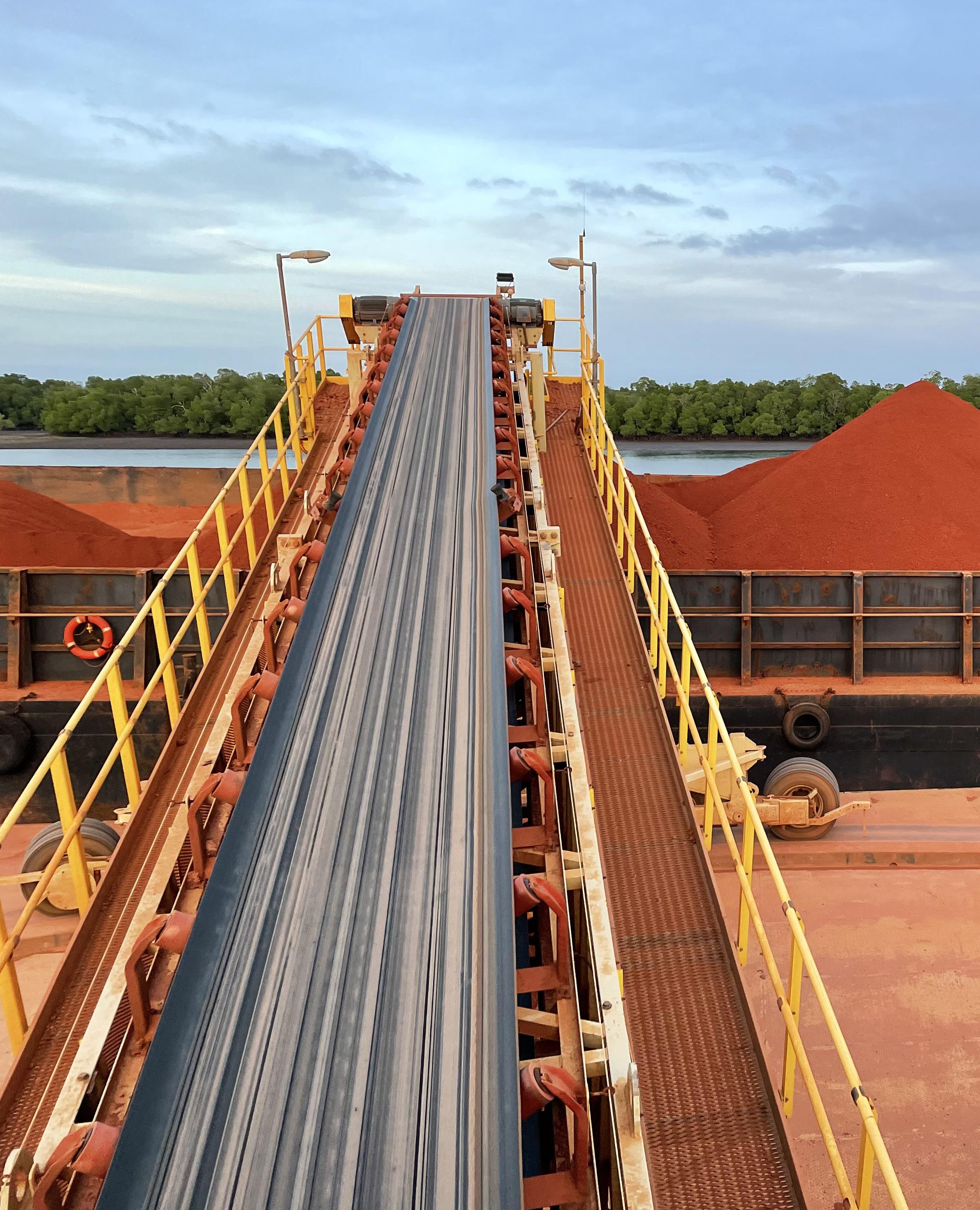
“There are no field roads, so all our resources have to come in by boat or by plane. So, managing inbound logistics is a challenge,” Wensley says. “We work with barging and freight partners who bring goods in by barge, and we have effectively underpinned the purchase of an aircraft that we fly in and out of Cairns to bring people on and off-site. We take a long-term perspective with partners who can provide those logistics.”
It is an approach that has proved particularly beneficial to Metro Mining’s staff, many of whom also hail from remote locations.
“We lay on special flights to all the local communities. Given we have the use of an aircraft we can be flexible in going to the small airports that support the local communities, flying people directly in and out,” Wensley says.
This is valuable given the large proportion, 30%, of Metro Mining’s workers who come from local, Indigenous communities, a very high number compared to other mining companies.
As Wensley points out, “We try to recruit heavily from the far north Queensland area, with 80% of our wages going into that area. What we try to do is try to employ as many local people as possible. We have partnerships with the traditional owners of the native title of the land, and we are employing as many local Indigenous people from the surrounding villages as possible.”
It is something Wensley is particularly proud of, and hopes to build on, with a target of 40% indigenous employment on the cards.
“It’s about engaging at every level, from the young people to the older groups, providing them with an environment where they can feel safe operationally and culturally,” Wensley says.
“We are trying to be sensitive to the history of the land in which we operate, and that sensitivity and awareness make
Indigenous employees feel more comfortable. Meanwhile, we are providing training and pathways to bring forward different skills. That is available to all our employees but being part of a small company gives our people a sense of place and a sense of fulfilment in a way a larger organisation might not recognise. We are quite a small site so we build a community spirit on-site through our leaders taking a strong role in bringing people together.”
A CHANGING CLIMATE
Another growing challenge for Metro Mining is the weather. Northern Australia faces a significant monsoon season each year, and the climate is only becoming more unpredictable.
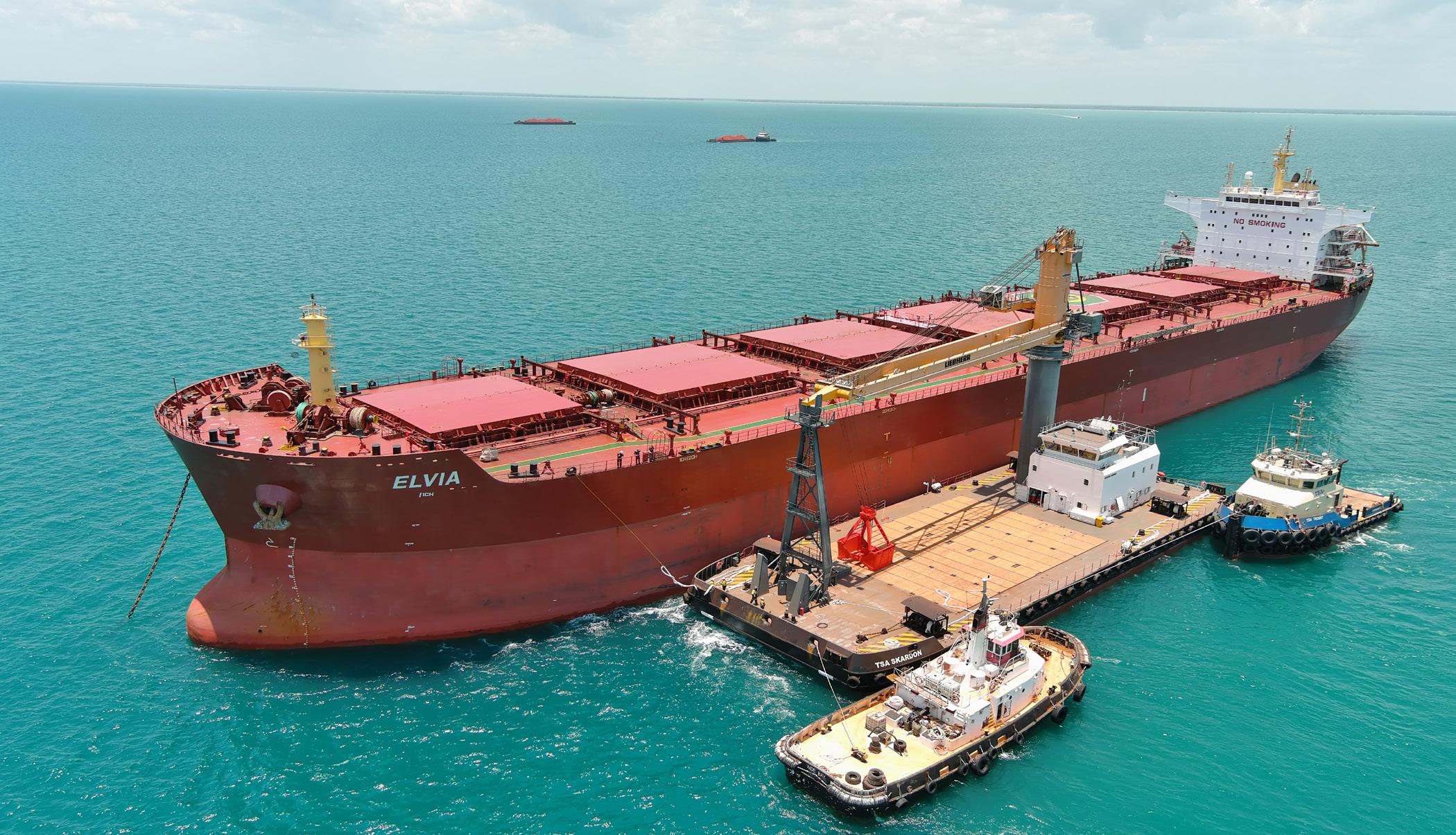
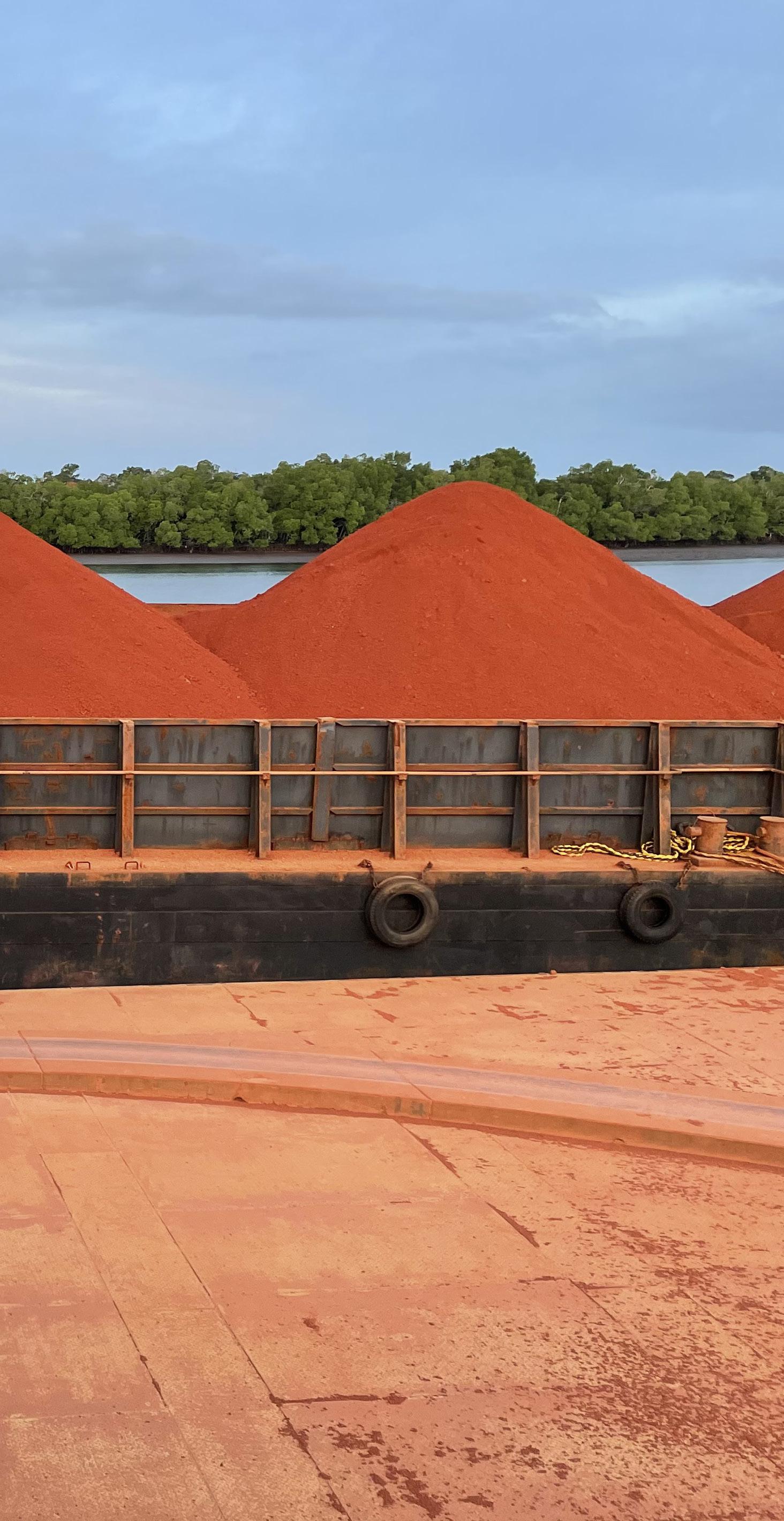
“We try to prepare ourselves for wetter weather in terms of how we operate. We have environmental management techniques to make sure we operate sustainably even when the weather gets difficult, such as preparing our roads,” Wensley explains. “We spend a lot of time on maintenance and working with trans-shipping partners to optimise the safety of our operations when the weather gets difficult. We have protocols we can enact quickly. It is all about being prepared, having plans and capable people in the
right places, and being enabled to enact those plans when necessary.”
Speaking of plans, Wensley has big plans for Metro Mining’s future.
“We have just announced in June that the board has made an investment decision to expand our operations. Currently, the investment is $4 million, so we are expanding to $7 million,” Wensley tells us. “The first few years of that are underpinned by sales contracts already, so that is a good sign of confidence in the project. We are now in the process of expansion, including planning, execution, engineering, and procurement. The total cost of expansion will be $28 million - low for a mining company. We hope to have that in place by Q3 next year.”
“IT’S ABOUT ENGAGING AT EVERY LEVEL, FROM THE YOUNG PEOPLE TO THE OLDER GROUPS, PROVIDING THEM WITH AN ENVIRONMENT WHERE THEY CAN FEEL SAFE OPERATIONALLY AND CULTURALLY.”
SWEDISH PULP AND PAPER MANUFACTURER BILLERUD CHALLENGES
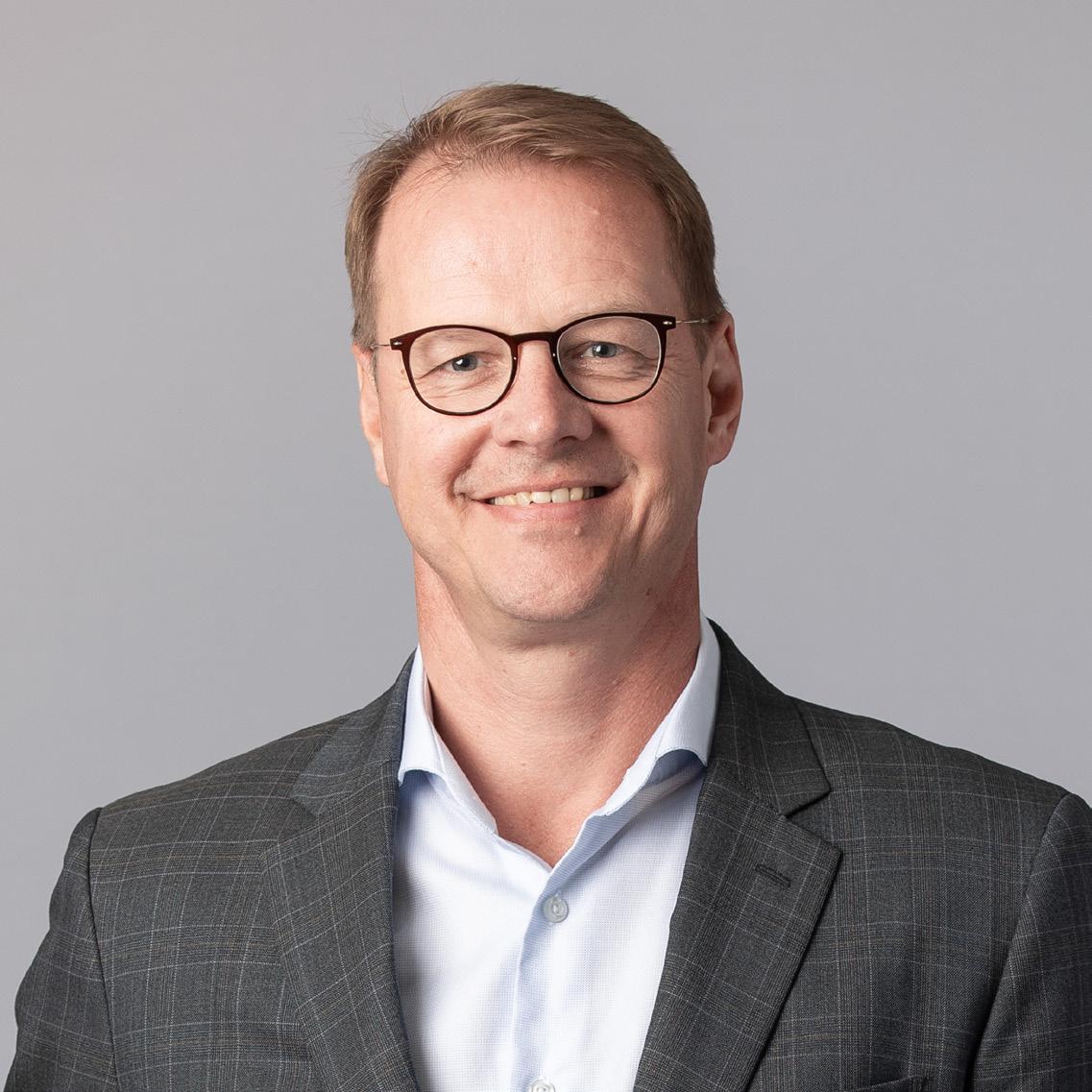
NOT JUST CONVENTIONAL PACKAGING FOR A SUSTAINABLE FUTURE BUT ALSO CONVENTIONAL BUSINESS, MOVING TOWARDS A CIRCULAR AND CLIMATE-NEUTRAL ECONOMY.

WITH TOMORROW IN MIND
PROJECT MANAGED BY: CHRIS CONWAYBillerud is a leading provider of primary fibre-based packaging materials, with customers in over 100 countries. The company has ten production units in Sweden, Finland, and the US with around 5800 employees and its products are supplied to a range of industries from food and drink to construction.
We spoke with Armin van Overbeek, Vice President Business Area Sack and Kraft Paper, at Billerud, who confirmed that the company is moving along with market trends. “The overall market outlook is very positive. Our business area is in very good shape, with our financial outcome for the first half of 2022 by far outperforming what we achieved in the same period last year.”
“We are experiencing a consumer-driven push for a more sustainable society in combination with the commitments that both FMCG and industrial large corporations have communicated to the market. And that is also reflected in their packaging. We see an increasing demand for our highly sustainable packaging products, and an opportunity to replace fossil-based packaging solutions
with paper-based alternatives. This trend started a few years back and is now gaining speed and momentum.”
Reflecting on the specific developments of the last two years, he notes that while the company continues to see the aftermath of the pandemic-related logistics consequences, the last two years of severe market volatility have also been a period of rising demand for packaging as a result of increased online sales, with plastic liners slowly being replaced with paper-based versions.
PAPER VERSUS PLASTICS
He acknowledges that the company has been well placed to utilise this trend since Billerud products boast excellent characteristics. “The main function of packaging is to
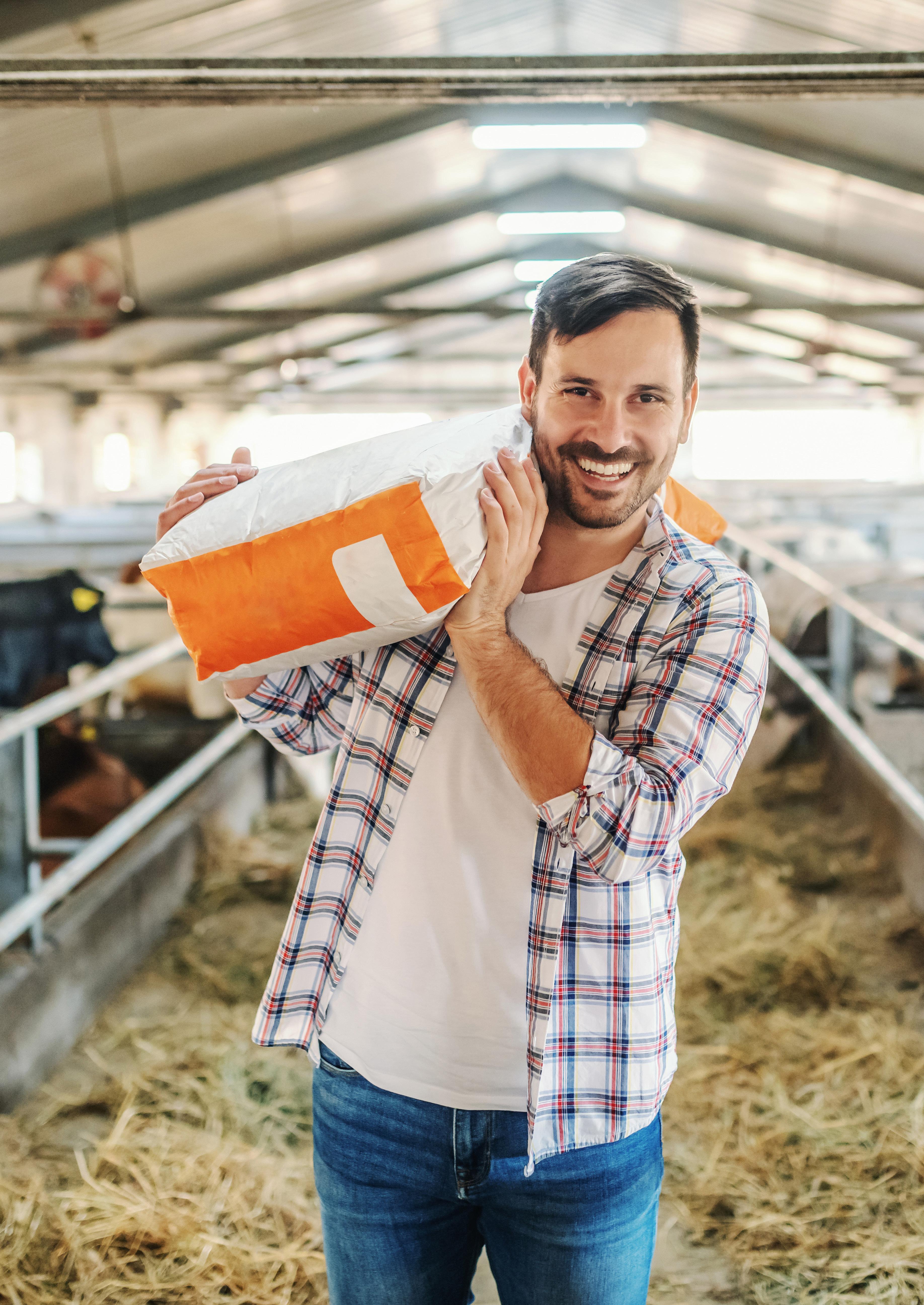
Railsider Mediterráneo is an international logistics operator that uses rail as the main transport to connect producers, recipients, warehouses & ports.
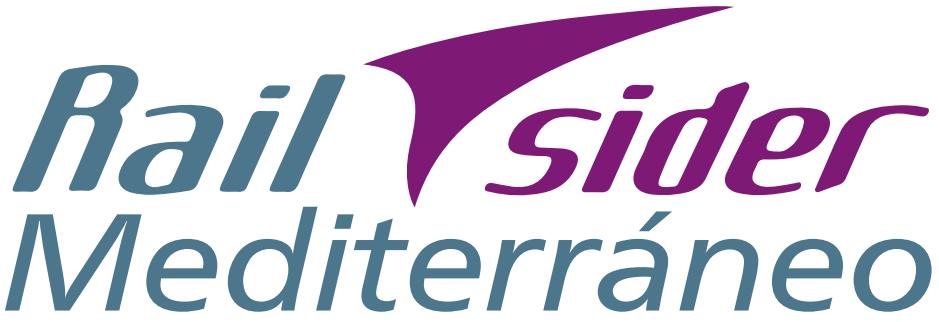
Railsider Mediterráneo provides its customers with logistics solutions based on a network of multimodal terminals, strategically located in the main industrial areas and in the rail interconnection centres with Europe, in order to mass shipments that generate economies of scale, thus reducing our customers’ logistics costs.
At Railsider Mediterráneo we transport our customers’ goods using our rail traction purchasing capacity, as well as our own and rented wagons, which allow us to transport any type of product, although we are strongly specialised in the iron & steel and paper market.
Camí del Rolls, s/n, 46500 Sagunto Valencia, Spain +34 67 246 19 24, +34 67 439 65 47 mjgarrido@railsider.com fbusquets@railsider.com company/railsidermediterraneo www.railsider.com
make sure the packed product is protected. Our paper products are outstanding when it comes to strength properties, due to the strong fibres we can use from the nearby forests. Another advantage with this strength is efficiency in the packaging and filling processes, which is appreciated from a cost perspective by our customers.”
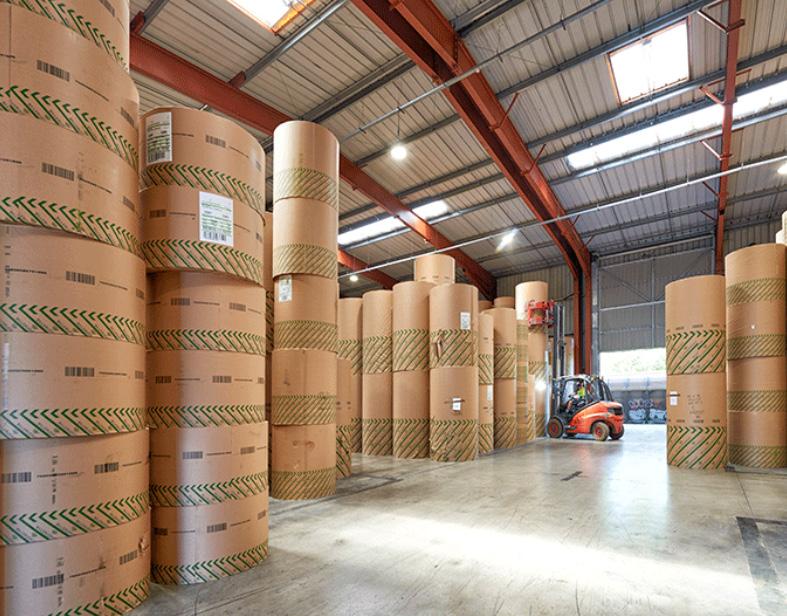
“We help our customers to reduce their climate footprint of both their primary and secondary packaging. For us product superiority is important, and the impressive strength of our papers enables customers to use less packaging, save costs and reduce their carbon footprint.”
He affirms that the company is set to capitalise on the global move towards eco-friendly solutions. “Most innovation work we in do in our business area is related to the same topic: replace plastic with paper. We map the opportunities for very specific niches where we know we can add value for the brand owner, which at the same time add value for us.”
One targeted application has been that of fast filling of powdered building materials, such as mortars and dry mixes. Mr van Overbeek explains that even though paper already has an established position in this market, fossil-based barriers are still part of the packaging, especially to provide moisture protection. Billerud has been able to replace this fossil-based part with integrated moisture protection in the paper itself. This innovation was launched on the market during the summer.
“Our fully paper-based solution has generated a lot of interest in the market, and surprisingly not only in the advanced EU markets but also further afield, in countries where the construction industry is highly dominant, for example in the Far East.”
INNOCENTI DEPOSITI
Innocenti Depositi has started its activity in 1948 with the transport and storage of paper.
The activity today is focused on 3 main divisions:
Industrial Products: Paper, pulp, timber, steel, chemicals.
Consumer Products: Palletized dry goods, food, home care, personal care.

Rail Transport: Main connection Italy to Scandinavia & Northern Europe.
We take great care on two main points:
Environment
Our warehouses are rail-connected and we give the advantage to all our customers that all inbound and outbound flows can move by rail.
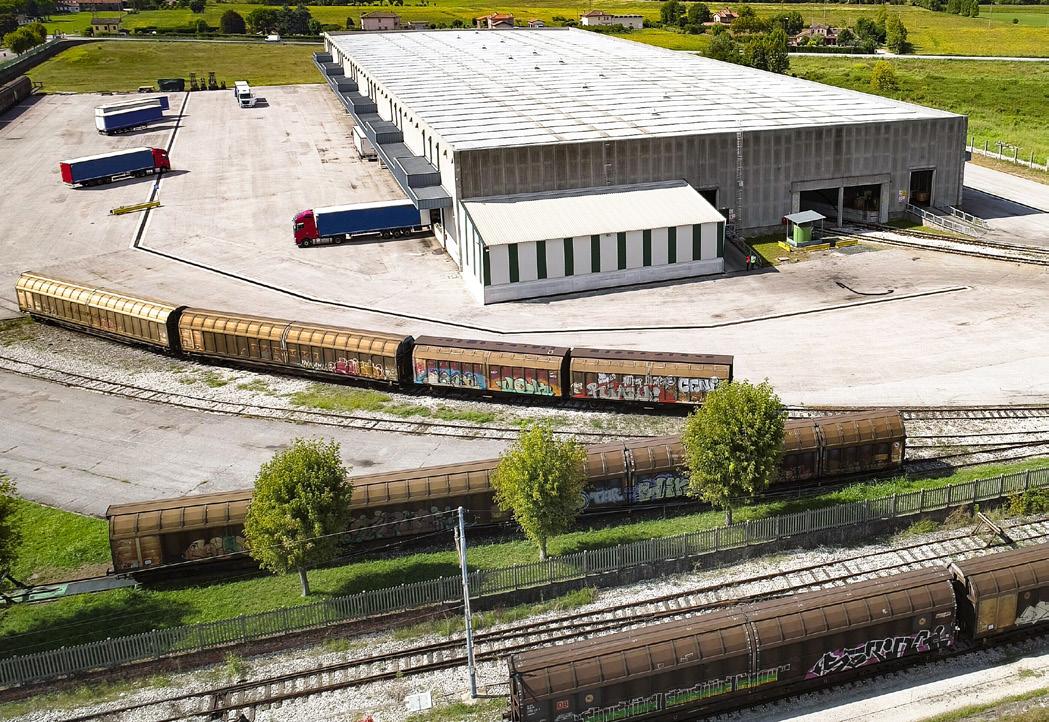
Automation
We have focused our investment in the consumer goods division on Automation. Fully automated warehouses with a capacity of more than 70,000 pallets. Robotized picking system that can handle over 50,000 packages per day.
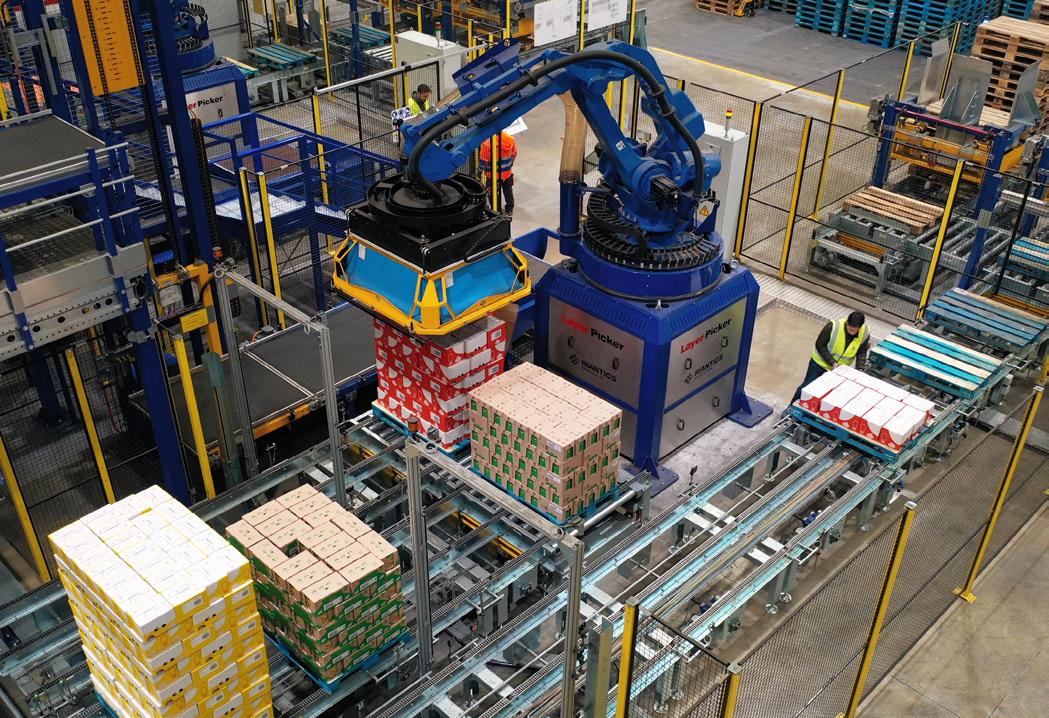
Our rail terminals are:
Limito di Pioltello (MI) – 40,000 sqm warehouse, east of Milan, 6 km from the town center.
Lodi - 25,000 sqm warehouse, southeast of Milan.
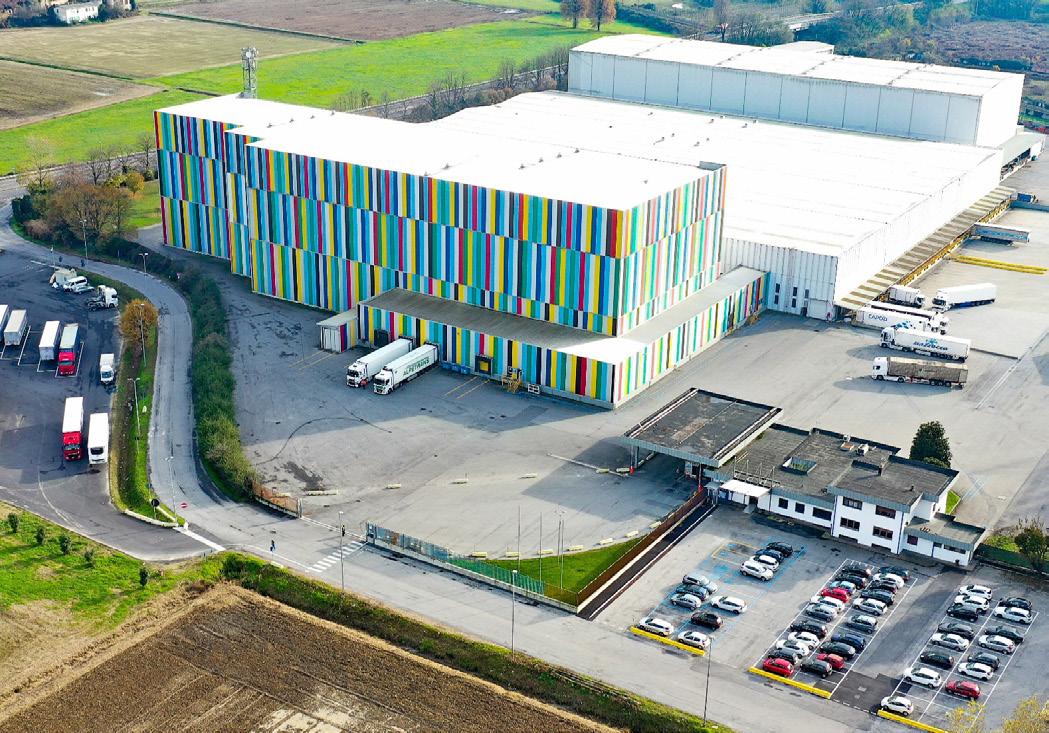
Grisignano di Zocco (VI) – 15,000 sqm warehouse, east of Verona, close to Padua and Venice.
Pomezia - 5,000 sqm warehouse, south of Rome. www.innocentidepositi.it

SUCCESS STORY
When asked for a prominent case study that might showcase the company’s forward-thinking approach, Mr van Overbeek highlights a recent achievement related to e-commerce. “Until a few years ago, all e-commerce packaging was either recycled corrugated boxes or plastic pouches. We saw two opportunities: replace the plastic pouches with much more sustainable paper pouches and replace recycled corrugated boxes with a more economical & lightweight paper pouch where applicable.”
“We decided we would focus on applications, apparel to begin with. We needed to map the full supply chain to understand where the bottlenecks would be. That meant working in close cooperation with brand owners, distribution centres, packaging machine producers, filling machine producers and producers of the pouches.”
Based on that cooperation, the company developed both a specific paper, as well as recommended a solution for the pouch. To prove the sustainability claim, a life cycle analysis (LCA) was produced to pinpoint the environmental advantages of a paper pouch in comparison to a plastic pouch and a recycled corrugated box.
“Since the introduction of both the paper and pouch on the market in 2020, the result has been overwhelming – several global apparel producers, as well as e-commerce platforms, are using our paper for a part of their e-commerce packaging needs. Also, the business continues to develop, with new solutions and new applications pushed by brand owners themselves.”

WINNING WITH PEOPLE
The mills related to Mr van Overbeek’s business area employ several hundred people and the human factor is clearly one of the core pillars of the company’s excellent business performance.
“Our internal motto is ‘winning with our people’,” states Mr van Overbeek. ‘”We value our employees and building a strong team is critical for our success and well-being. Therefore, we work to integrate inclusion and diversity in our daily work life, as well as putting the focus on talent management and succession planning, and on sustainable leadership, to assure our people thrive and feel part of the Billerud family.”
Although the mills are currently well-equipped and maintained, there seems to be a future opportunity to invest in barrier paper capability and capacity. “At the moment we are in progress of proving the concept and once we see that it has a successful trajectory, we will make the CAPEX decision.”
In conclusion, Mr van Overbeek affirms that Sack & Kraft is a value growth generator, not a volume growth generator. “We know where our strengths and opportunities are, and we will continue to capitalise on them by offering value-added products to our customers. Cyclicality does affect all of our industry but with these measures, I feel confident we can mitigate these cyclical fluctuations.”
PIONEERING LOGISTICS
PROJECT MANAGED BY: ANDREW BOURKEMilaha has always been ground-breaking. It was founded in 1957 as the first shipping agent in Qatar, a fact commemorated in the company’s commercial registration number: One. From this beginning, Milaha has continued to be a pioneer across the local and regional maritime industry. It has made a name for itself as a company that constantly challenges the status quo, growing into a large, diversified holding company with core interests in maritime transport, logistics, port management, and marine offshore services.
It is an attitude that is much in need during a time when the status quo seems to be constantly shifting. As supply chains become increasingly complex, Milaha has shown the ability to unlock synergies and drive success across five strategic business pillars, ensuring every requirement of its clients and partners is satisfied, and every expectation is exceeded.
Milaha is known as a company with an unwavering commitment to safety and quality, backed by financial and organisational strength, a diverse portfolio of offerings; and, most importantly, a dedicated team.
But as global supply chains are undergoing era-defining changes, Milaha itself is preparing to embark on the next phase of its vision to be the partner of choice for the maritime logistics sector.

As one brand with a strong portfolio of capabilities and a deep commitment to shared values and business objectives, Milaha aims to bring synchronised solutions to mobilise business.
“We are considered to be one of the largest maritime and logistics service providers and the main contributor to Qatar’s economic growth,” explains Milaha’s interim President and CEO, Mohammed Abdulla Swidan. “We are focussing our plans on the supply chain, O&G services and marine services while supporting the shipping and logistics’ increasing demand through maintaining a sustainable supply chain, establishing new trade routes, and securing alternate sources.”
These plans will be sustained by Milaha’s integrated services and state-of-the-art facilities, from shipping, logistics, and
MILAHA HAS ALWAYS BEEN A STEP AHEAD OF THE INDUSTRY, SO WE ASKED THEM ABOUT WHERE THE MARINE AND LOGISTICS SECTOR IS GOING NEXT.
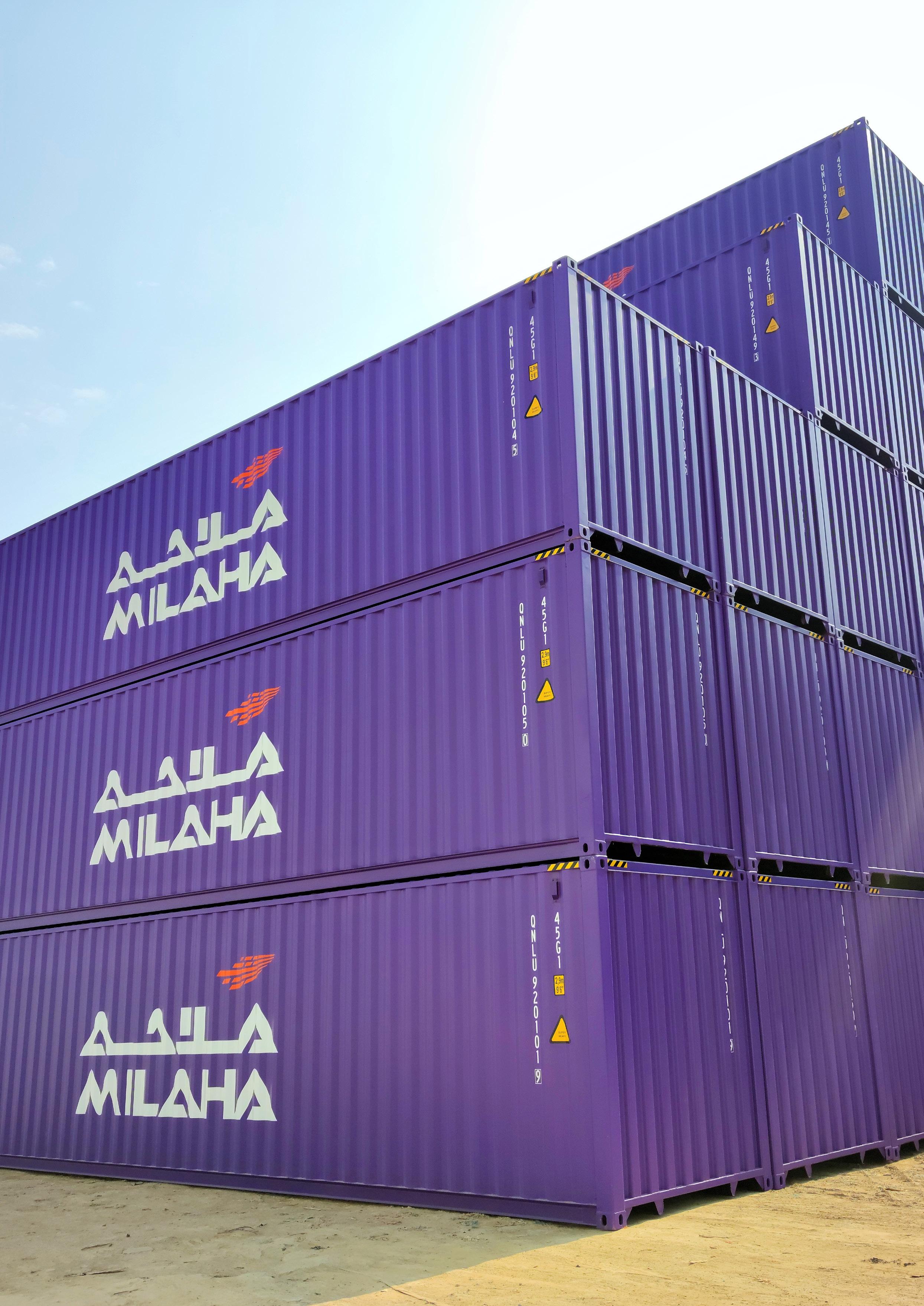
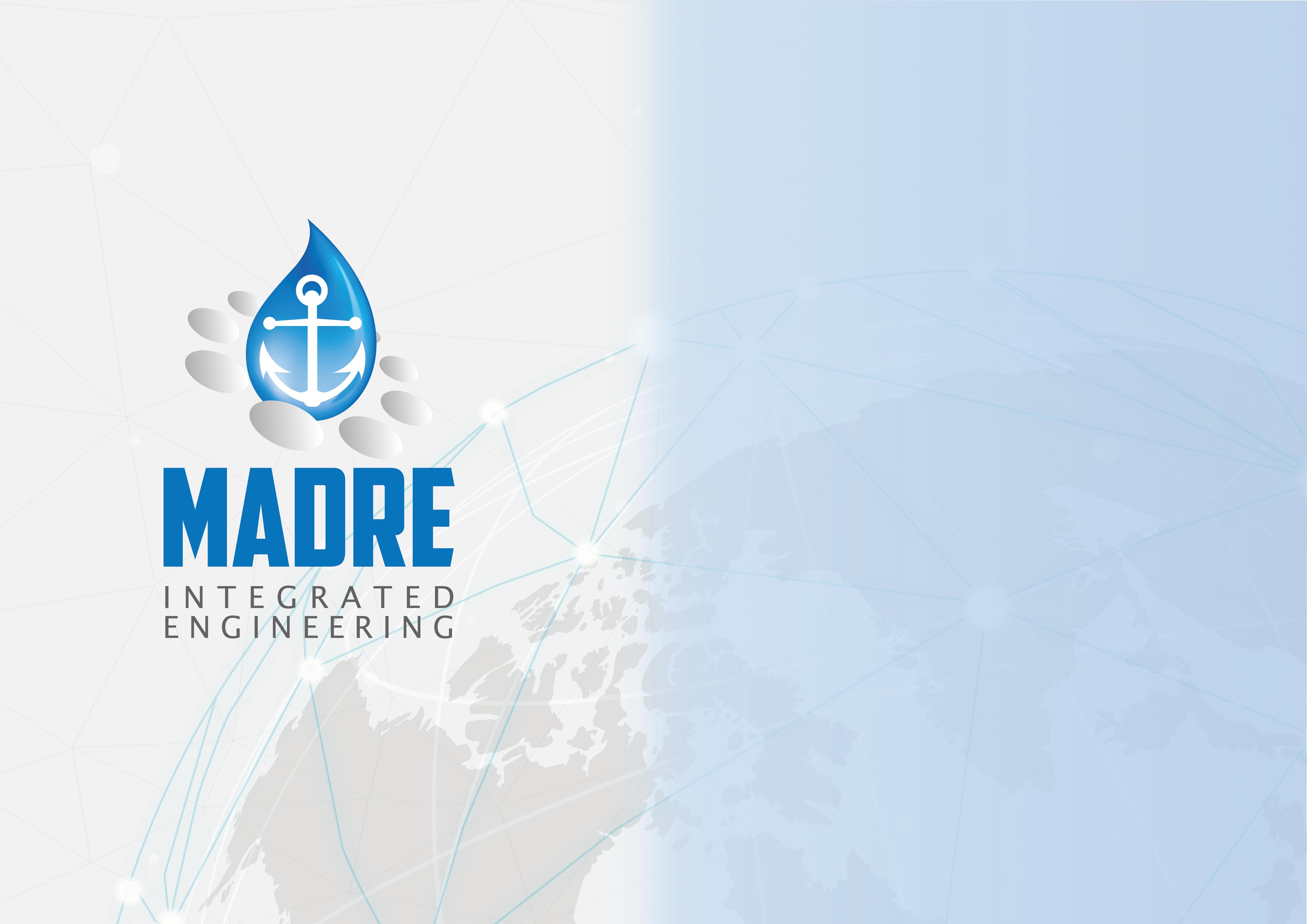



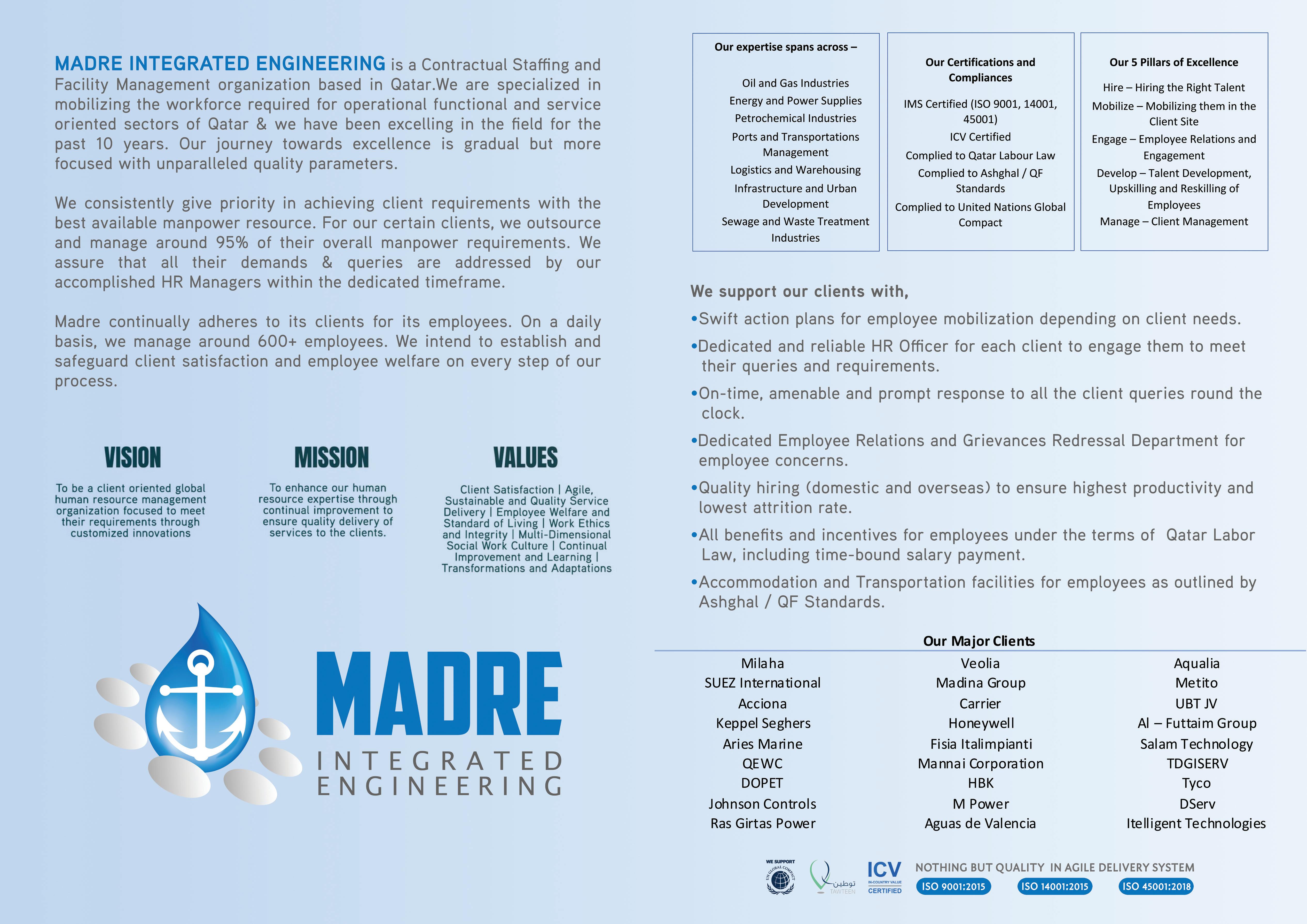



supply
A VALUABLE PARTNER
“The other main focus in our future business plan is to continue to expand our service offering in our home market, Qatar,” Swidan tells us. “We will find new capabilities development to add more value for our clients. We will also be expanding our footprint in the region, leveraging the strength of our existing capabilities. The outcome of the expansion is that we want to be more resilient, more sustainable, and even more competitive than we already are.”
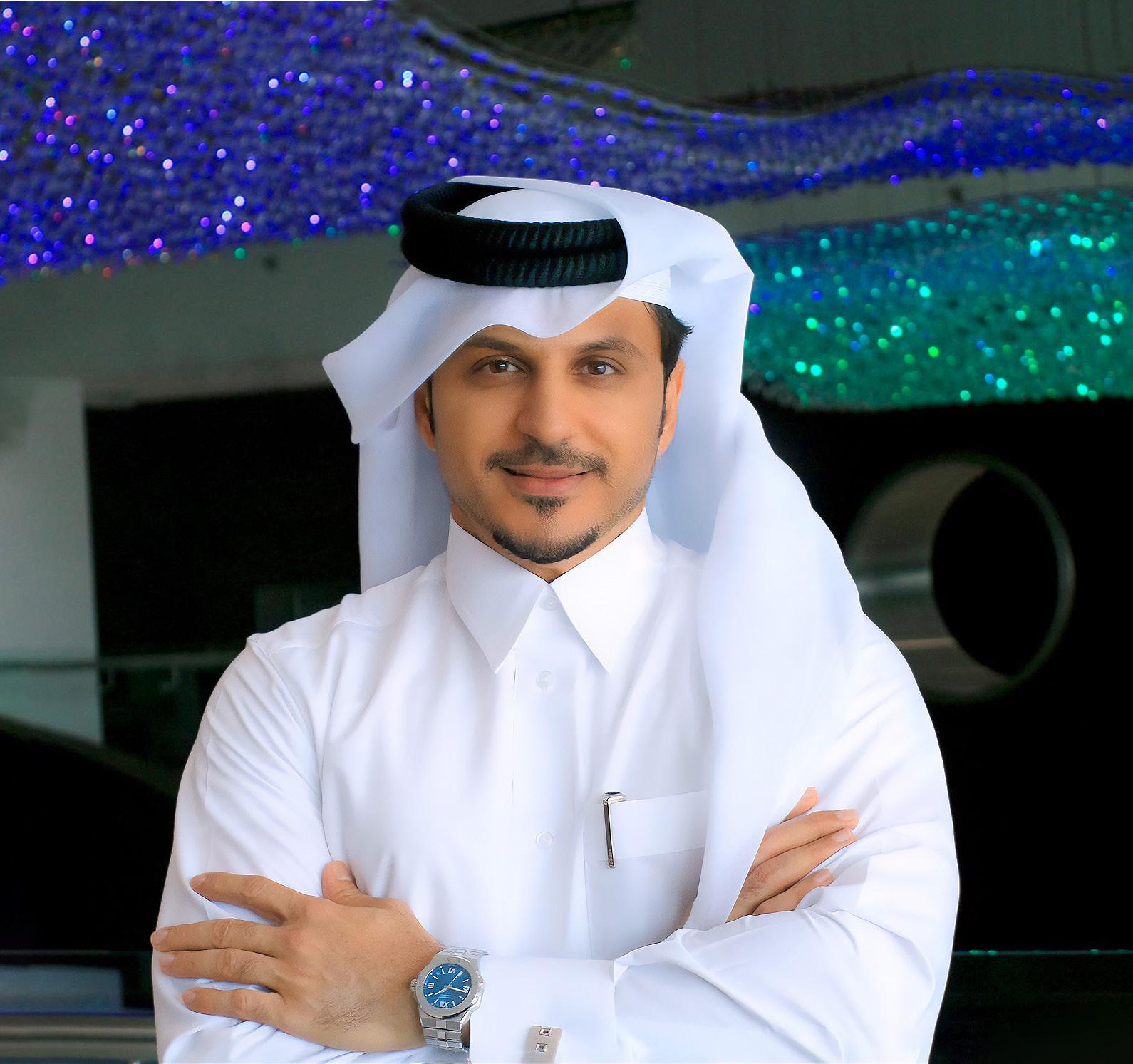
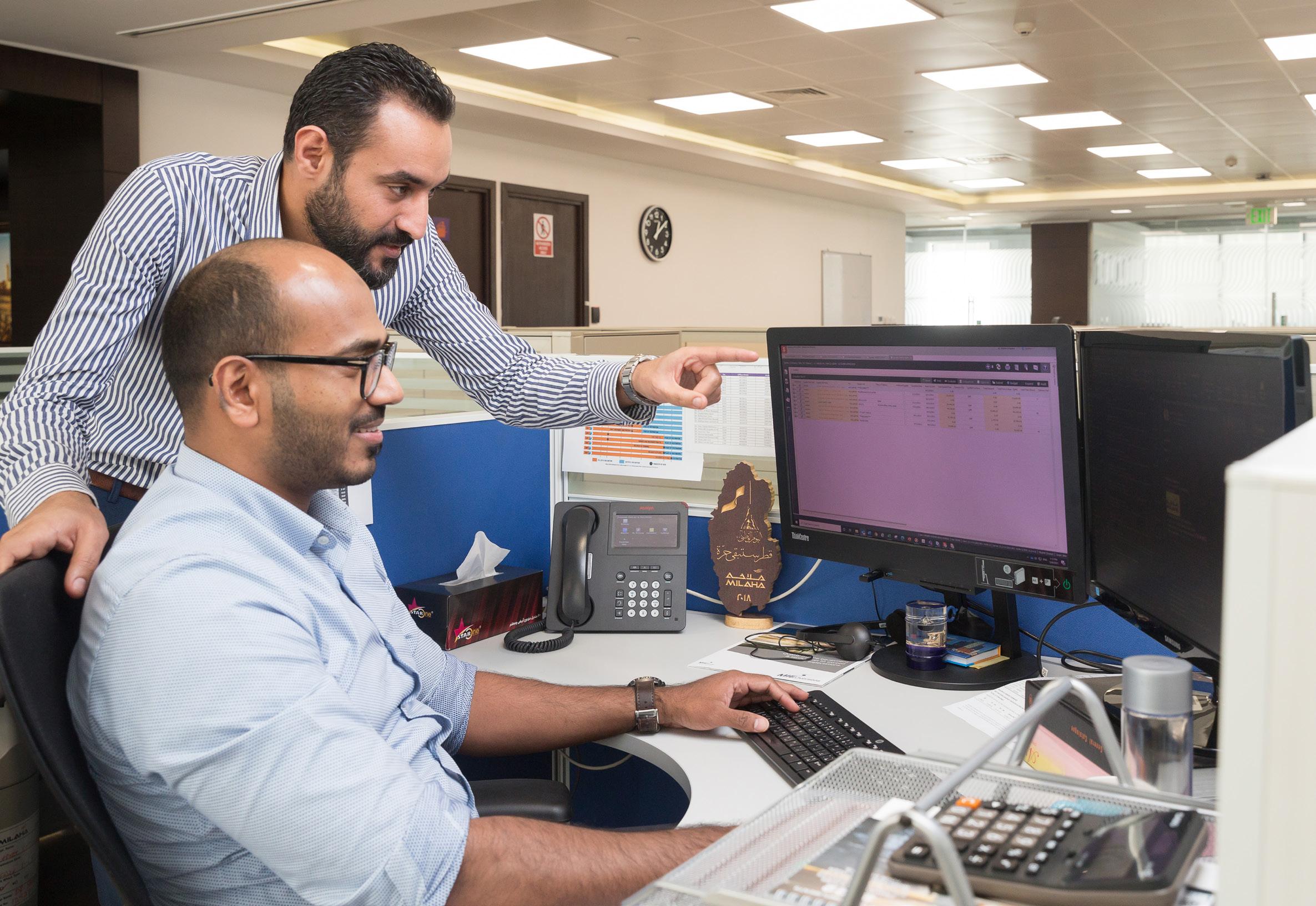
Milaha will achieve its goals by embracing digital tools and embedding digital thinking in the organisation while paying greater attention to ESG requirements and making the business more sustainable. Milaha’s pioneering track record will continue as it leverages innovative and solutionsoriented thinking to become not just service providers, but trusted partners of its clients.
Milaha’s partners will benefit from the company’s client commitment to delivering what it promises, drawing on a breadth of capabilities across the group that it can tap into to address almost any requirement.
In planning its future growth, Milaha will be targeting three primary market segments. The first of these is the oil and gas market sector, including NOCs, IOCs, EPC, and Oilfield Services Providers. Milaha also serves commercial and industrial businesses with extensive supply chain solution requirements which Milaha is well positioned to provide. Finally, Milaha has proven itself to be a valuable ally to marine vessel owners and operators.
Milaha works with these customers alongside local communities, and the company takes its social responsibility to those communities seriously.
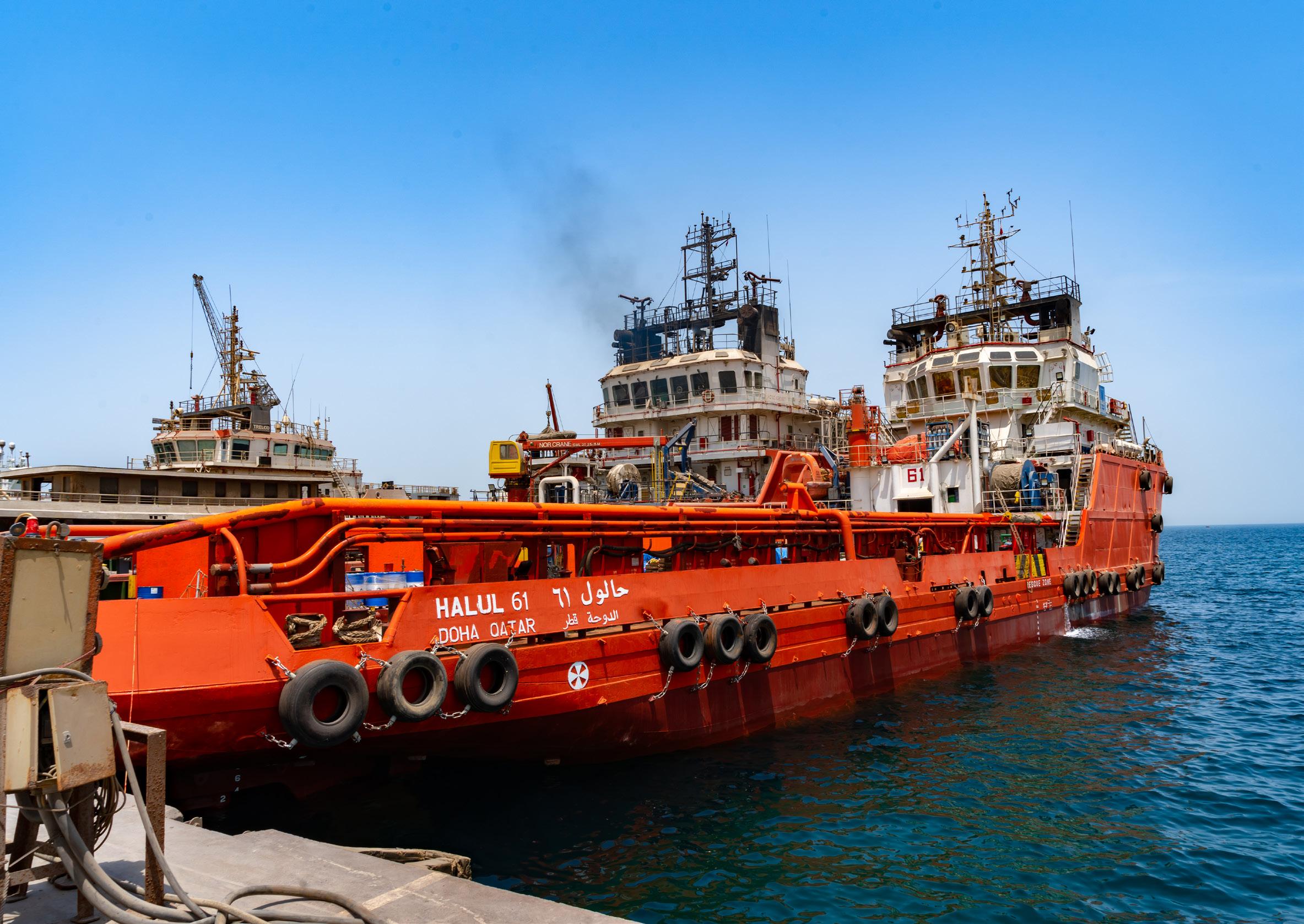
“WE




KPMG
ABOUT KPMG IN QATAR
KPMG in Qatar is part of the KPMG global network and continues to build on our successes thanks to a clear vision, maintained values, and our people.
KPMG in Qatar was established through its member firm KPMG Professional Services and has operated in the State of Qatar since 1977. This early commitment to the Qatari Market, together with the support of the KPMG network, has been the foundation of our accumulated industry experience and is reflected in our appointment by the Qatari’s leading organizations.
KPMG in Qatar has flourished to become one of the largest and most prestigious professional services firms in the country and currently has a workforce of over 350 professional staff and partners. Our people share a sense of purpose in the work we do, and a strong commitment to community service, inclusion, and diversity.
We also work closely with some of Qatar’s leading universities to employ dozens of interns and graduates each year. Our commitment to their development includes providing ongoing technical training and hands-on experience while working on projects under the guidance and mentorship of our professional staff.
As Qatar businesses increasingly join the global economy, KPMG’s blend of international experience and local knowledge enables clients to receive tailored, fit-for-purpose services that are designed to deliver real value.
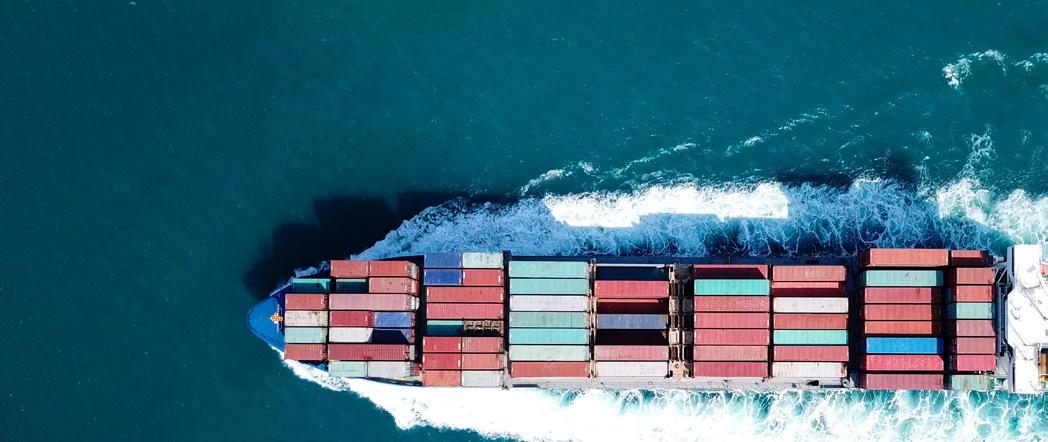
KPMG: A GLOBAL ORGANIZATION
KPMG is a global organization of independent professional services firms providing Audit, Tax and Advisory services to businesses, governments, public-sector agencies, and not-for-profits. KPMG firms operate in 144 countries and territories with more than 236,000 partners and employees working in member firms around the world. Leading with a commitment to quality and integrity across the KPMG global organization, bringing a passion for client success and a purpose to serve and improve the communities in which KPMG firms operate. In a world where rapid change and unprecedented disruption are the new normal, KPMG professionals seek to inspire confidence and empower change in all we do.
At KPMG, strategic alliances are central to our goal of helping clients achieve sustainable competitive advantage. Our alliance ecosystem is designed with a global view to help address today’s top issues, trends, and priorities. Combining deep business process, risk, tax, and industry experience with KPMG professionals who are trained and certified by our alliance partners, enabling KPMG firms to deliver wide-ranging solutions across multiple platforms and technologies.
As a responsible corporate citizens, KPMG firms also have a huge role to play in enhancing our approach to leading ESG related practices — underpinned by a strong responsibility to building a better future for all. We believe sustainable growth is integral to build a successful business with a long-lasting impact on our world. We focus our capabilities to have the largest tangible impact on our people, communities, planet, and society.
Since the KPMG network was formed in 1987, it has grown and evolved. And although we are incredibly proud of our past and the impact, we have made, we are even more excited about our momentum and future legacy. www.kpmg.com
TRS Middle East
TRS Middle East is proud to be supporting Milaha with their staffing needs. From our Dubai office we offer Milaha and regional clients a tailored recruitment service accessing local, regional and expatriate talent for the maritime, offshore, oil & gas, infrastructure, renewable energy and rail sectors
• Permanent staff all levels up to and including C-suite
• Contingent workforce solutions
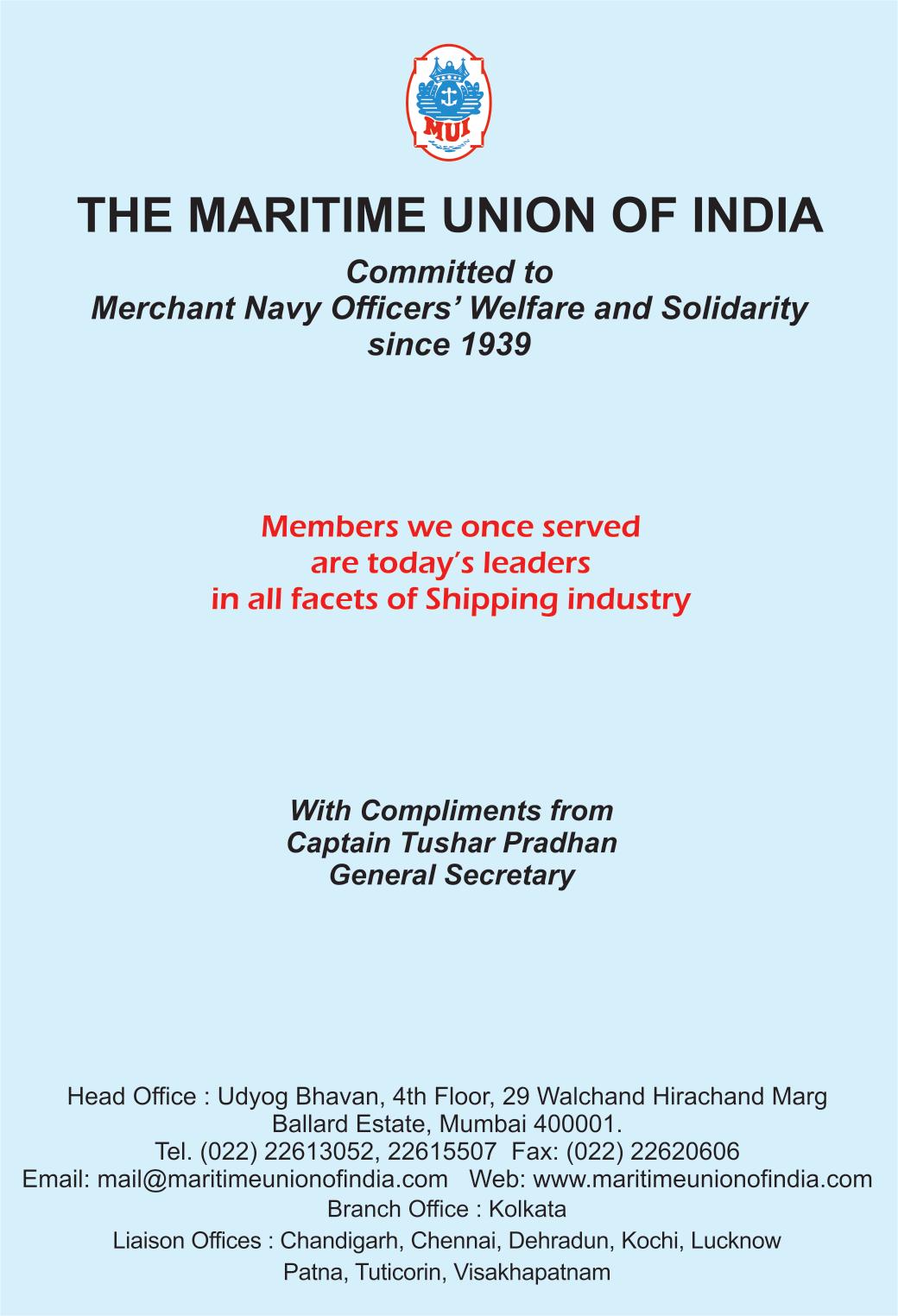
TRS Middle East is part of the leading global staffing businesses, TRS Staffing Solutions. Our global organisation of 23 offices stretches around the world with offices throughout North America, EMEA and Asia Pacific.
The TRS Staffing group delivers solutions with a focus on cost efficiency, talent diversity and quality that are 100% ethical and compliant.
What sets our staffing group apart from the competition is that we are a business line of Fluor, a Fortune 500 corporation. This gives us a unique understanding of what it takes to staff small to mega scale projects across all life-cycle phases wherever they are located in the world today.
For more information please contact ben.carter@trsstaffing.com or visit www.trsstaffing.com
MODUTEC
Modutec provides a number of smart engineering solutions for marine and hazardous areas, which are tailored to specific client requirements. We are one of the industry’s top suppliers of innovative, managed living quarters refurbishment, modular builds, and HVAC solutions, which is why so many of our clients throughout the world highly value our services. Our living quarters refurbishment solutions deliver turnkey repair, upgrade, and conversion for FPSO’S, vessels, rigs, offshore platforms, barges, and support vessels. We can provide a variety of solutions to enhance and improve your living quarters, whether you need individual rooms or a full living space outfitting. With skilled management and trades personnel in the UK, Europe, Middle East and Caspian Region, our teams can survey, design, engineer and procure all materials prior to travelling to conduct on-site installation across the world. Our Modular build services offer complete build and outfitting of modules, from supply, installation, and maintenance of fire blast solutions to bespoke equipment housing. To ensure that our services are of the greatest calibre, we partner with specialised fire and blast rated cladding, doors, and window manufacturers. Together with living quarters refurbishment, our team of experts can upgrade, convert, repair, and maintain HVAC, piping and electrical systems. These include services such as air conditioning, refrigeration systems, lighting systems, fire and gas, hot, pot, sanitary and drainage piping systems and more, all tailored to your requirement. www.modutec.com
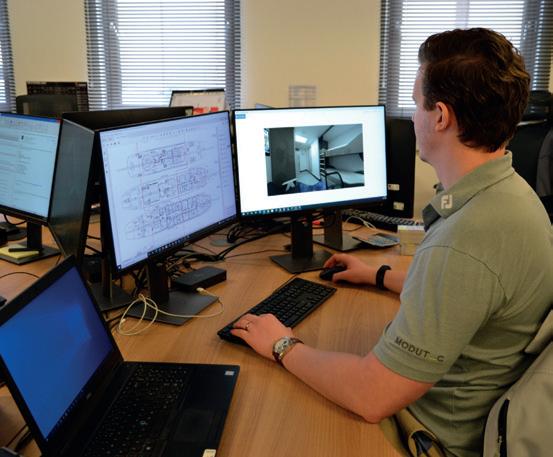
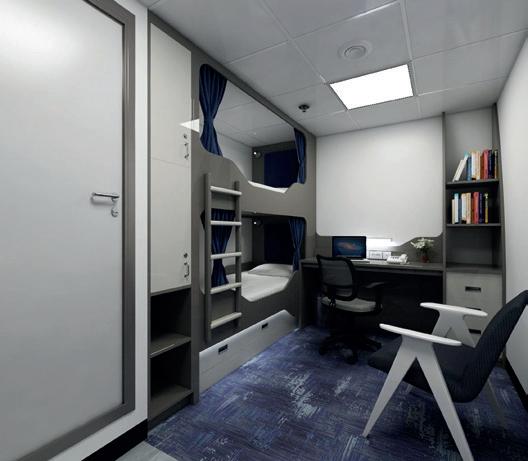
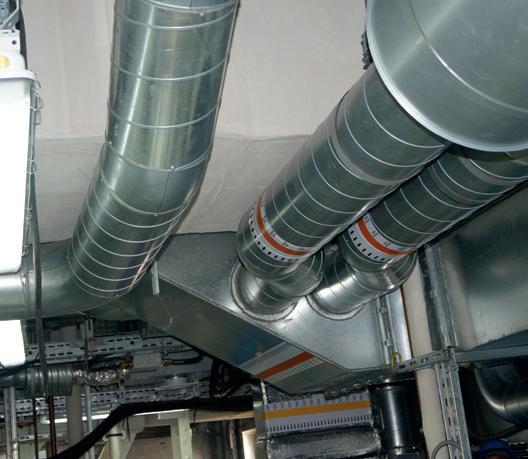
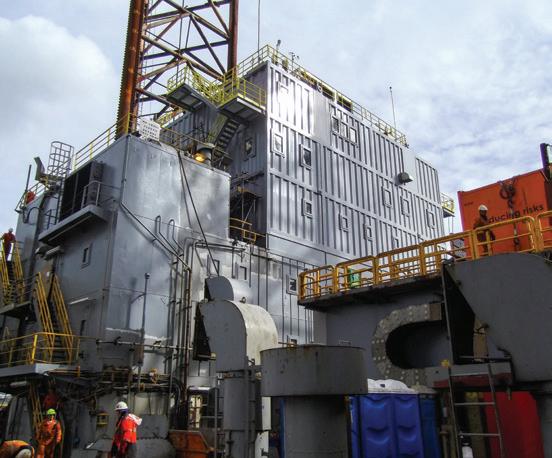

WE ARE EXPERTS IN MARINE SAFETY

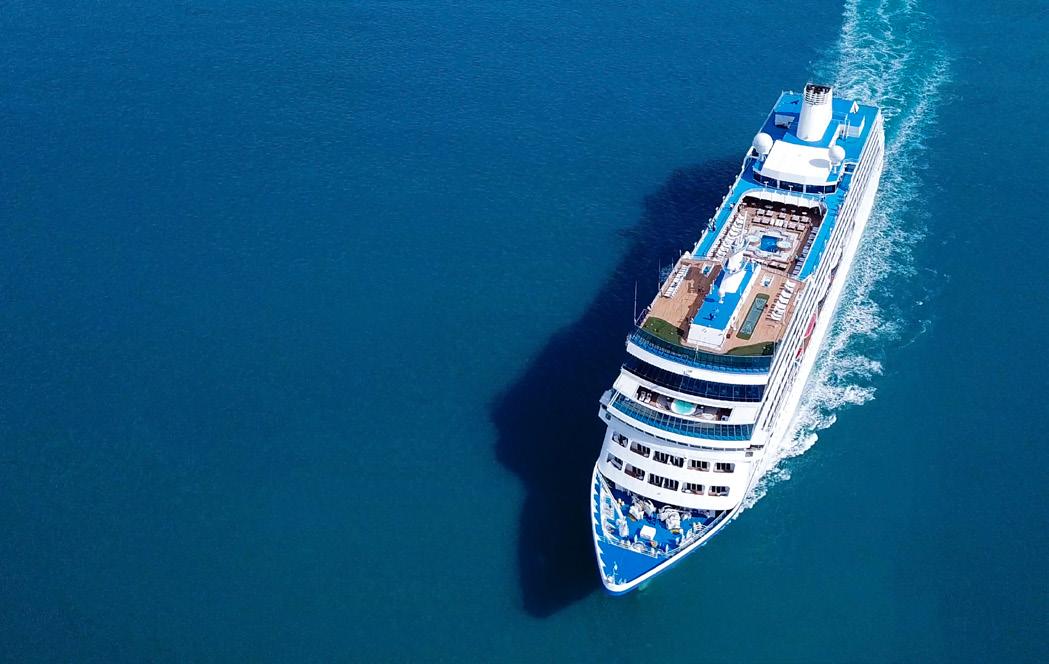
“One of our main objectives is to work closely with the local community and focus on social responsibility,” Swidan insists. “We support local suppliers in different ways: firstly, through the effective services and solutions we offer, and secondly, through establishing strategical partnerships that help enhance and expand our range of services.”
STATE OF THE ART
To prepare Milaha for this bold new phase in the company’s growth, the company is making use of the latest available technology.
“We believe that digital transformation is the main driver of business development. It increases efficiency and improves innovation, decision making, the customer experience, and engagement,” Swidan tells us. “Milaha’s commitment to investing in technology and digitalization includes significant upgrades to our platforms, systems, and digital tools, enhancing connectivity, mobility, and efficiency.”
Moving forward, Milaha is working on building more innovative solutions for customers using existing technology. Its people have experimented with ahead-ofthe-curve innovations such as drone-based survey work, remote subsea inspections, and dynamic pricing for services.
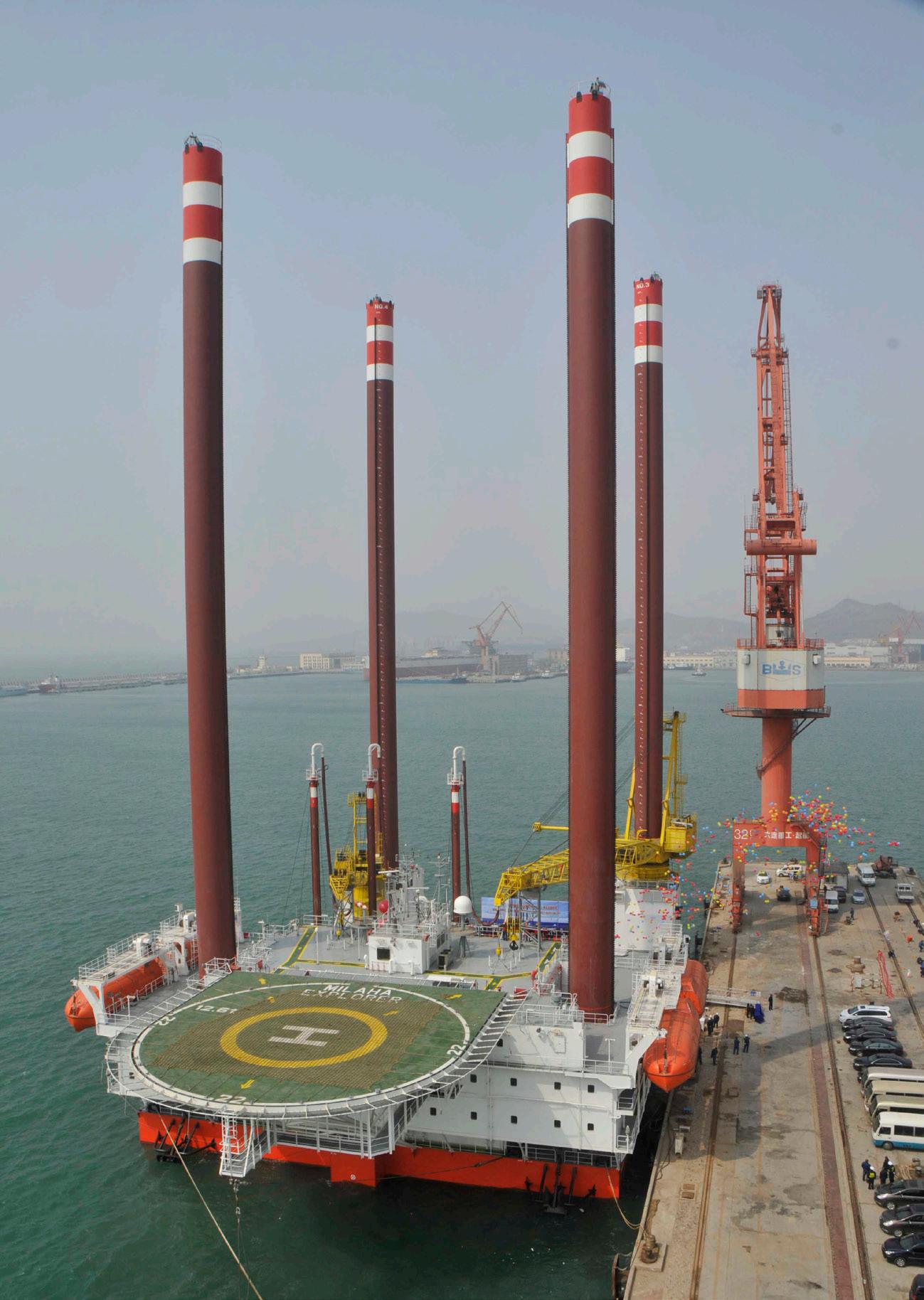
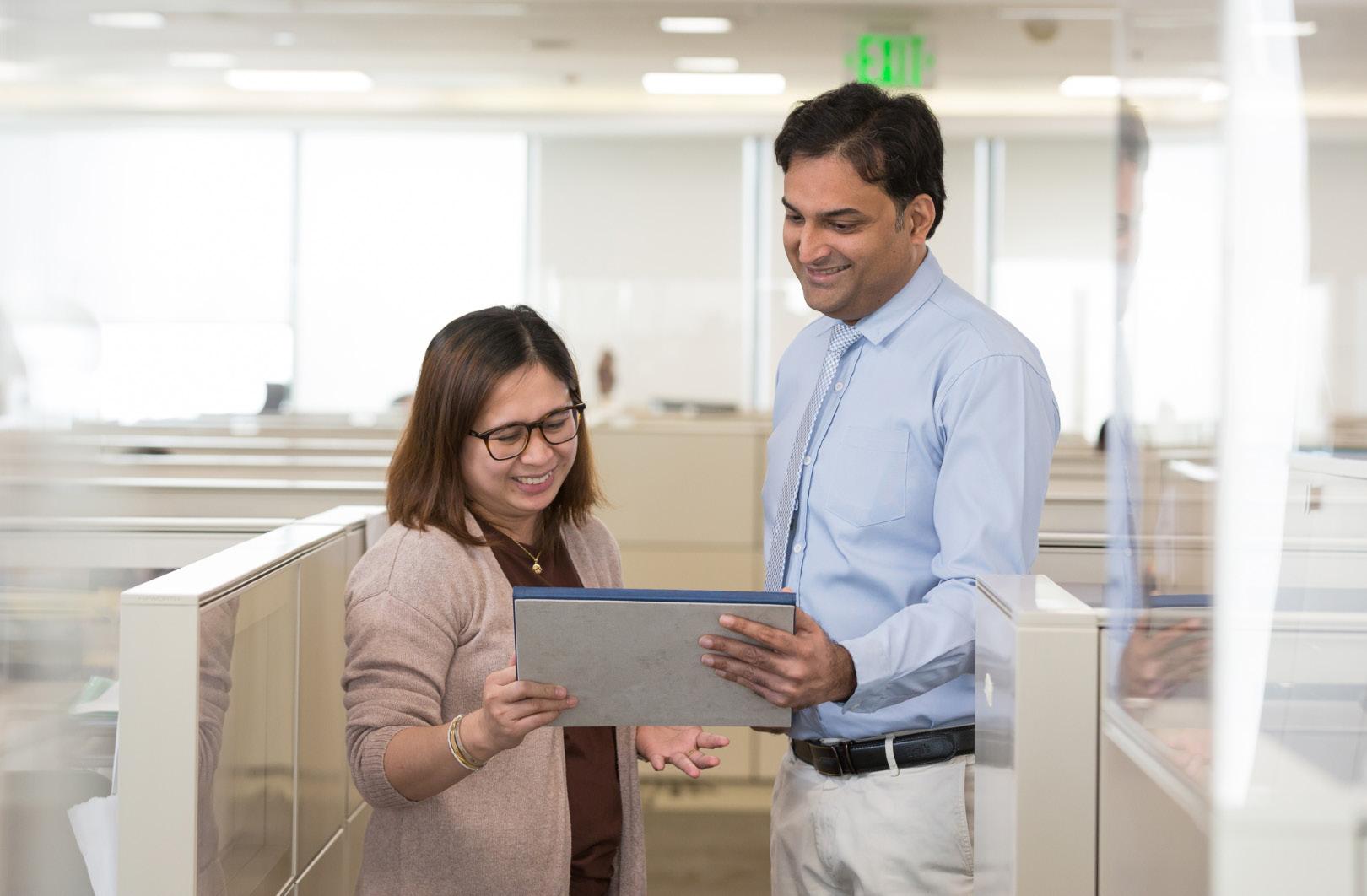
“WE BELIEVE THAT DIGITAL TRANSFORMATION IS THE MAIN DRIVER OF BUSINESS DEVELOPMENT.”
“We are willing to use the technology to solve customer problems, provide a more seamless and friendly experience, as well as more insight to customers,” Swidan points out.
THE COMPLETE PACKAGE
Today Milaha offers engineering services for oil & gas and industrial clients alongside a onestop shop for marine services throughout the life cycle of a vessel from construction through operations and retirement.
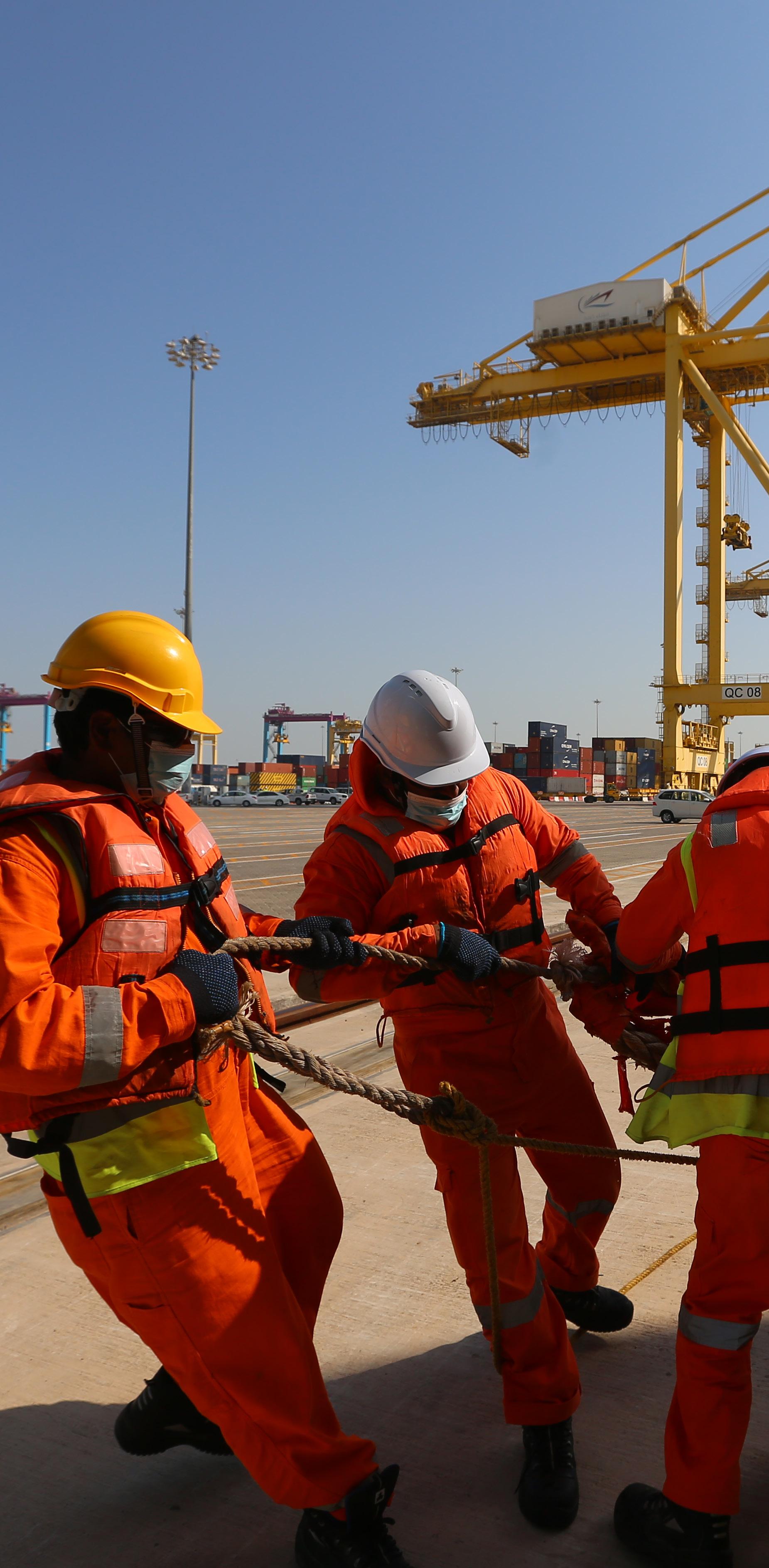
It is an exciting place to be doing business, as Swidan points out.
“The Marine and Logistics Sector is considered one of the most dynamic business sectors in Qatar, playing a major role in accelerating the pace of the country’s economic growth and sustainable development through increasing its contribution to the national GDP,” Swidan says. “The freight and logistics sector in Qatar has been growing steadily over the past five years, with an estimated market value of more than USD 7.5 billion, and is expected to register an annual growth rate of more than 7% during the 2021–2026 period, supported by the government’s ambitious plans to develop the economy.”
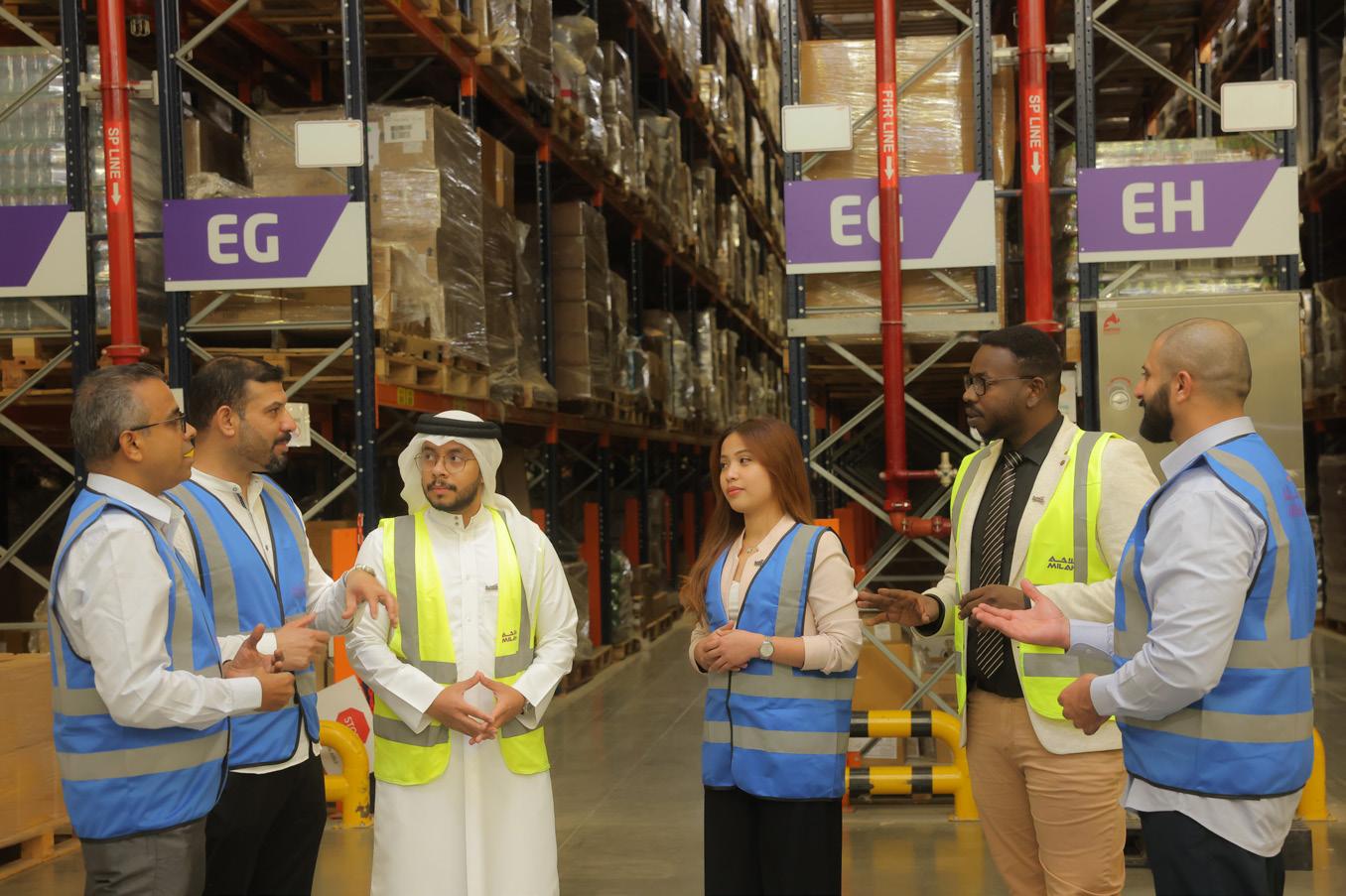
Milaha has also been paying attention to the ways the warehousing market is acting as a key contributor to the logistics industry in Qatar, particularly the retail and FMCG sectors, while advanced warehousing facilities have recently gained a powerful boost driven by the global growth of the E-commerce sector.
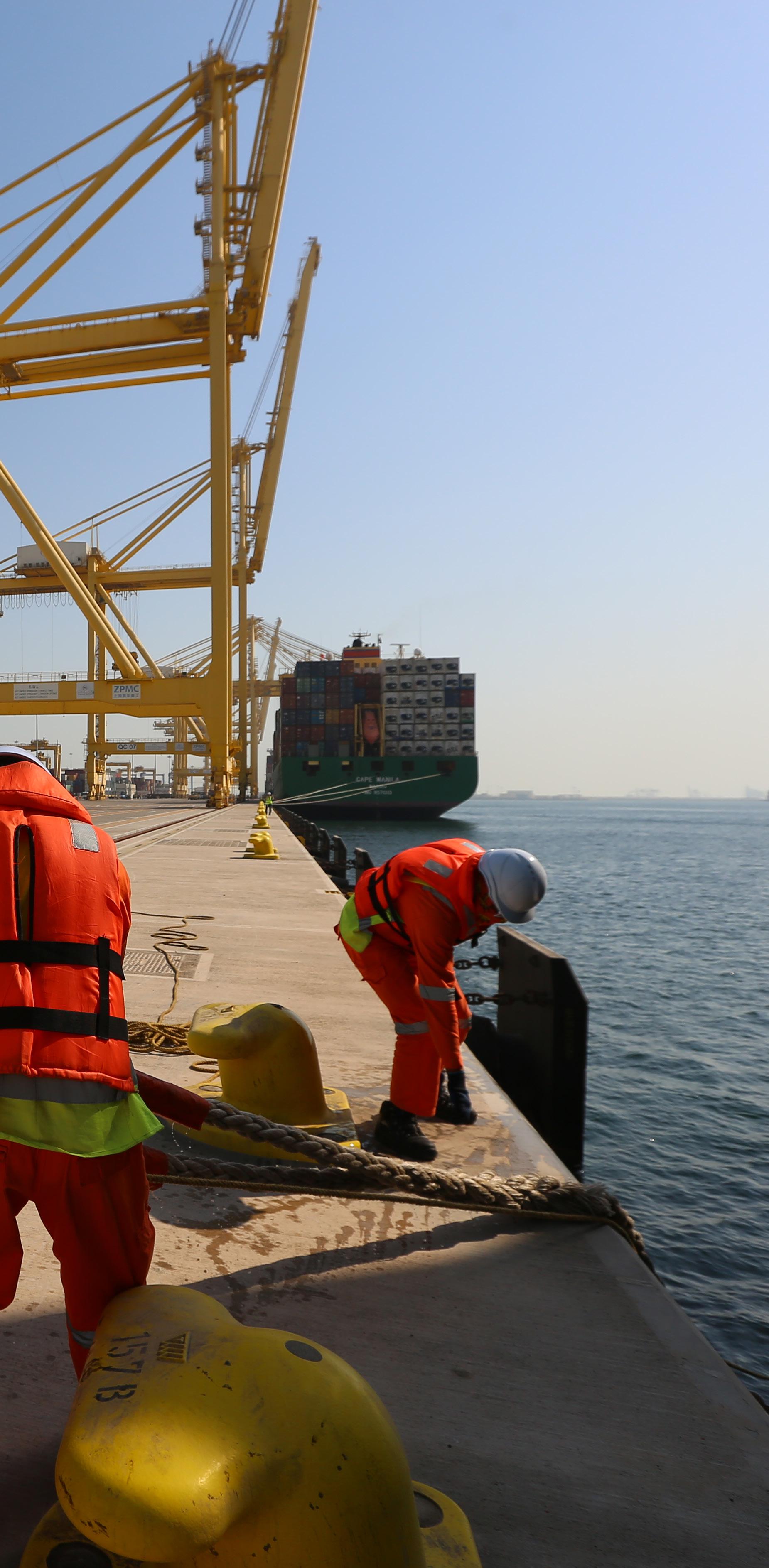
“With this in mind, Milaha Logistics City emerges as an integrated centre for freight logistics, warehousing facilities, and business solutions for startup entrepreneurs and SMEs,” Swidan says. “Milaha Logistics City offers diversified solutions that cater to various customers’ needs in the areas of shipping, storage, and re-export. The stateof-the-art bonded warehouse of Milaha Logistics City offers comprehensive services with zero-duty upfront to support global trade and E-commerce while enhancing business efficiency and profitability.”
Once again, Milaha is set to be at the vanguard of a rapidly evolving, and growing economy.
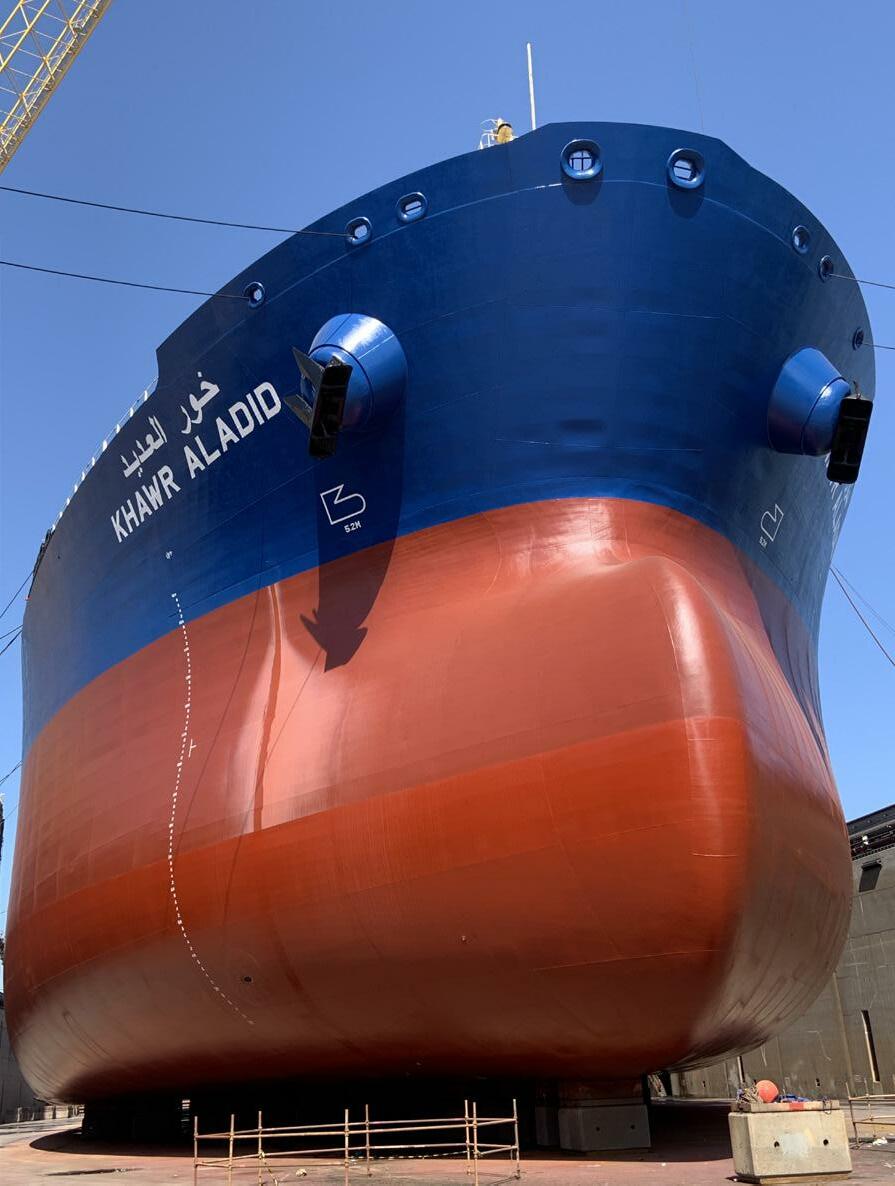
GATEWAY TO THE HEART OF AMERICA
PROJECT MANAGED BY: RASH UDDINIf you travel to the lower end of the Mississippi River, you will arrive at the home of Plaquemines Port Harbor & Terminal District, one of the largest such jurisdictions in the United States. The district covers over 89 miles on both sides of the legendary river. It is land that is rich in potential, as Army Retired Major General Maynard Jackson Sanders tells us.
We have a tremendous amount of land that is very sparsely populated and is prime for development,” Sanders, the District’s Executive Director, tells us.
For the longest time that potential has gone untapped. From 1954 to 2013 the port was operated as a department of the Parish Government. In 2013, the Port was reorganized as an independent agency, operating as its own District, allowing for development to begin.
“The Port Board stood it up on its own and I was hired as the first Executive Director, tasked with implementing the Strategic Plan that had been commissioned before my arrival,” Sanders says. “The plan was to build a container port on
the lower end of the Mississippi River to logistically serve the entire Midwest of the US.”
It is a unique opportunity to develop a unique location. The metamorphosis of container ships resulted in 60% of all oceans going vessels too large to use the Panama Canal. Cargo container ships were being built to a scale unmatched by anything before, and a new Panama Canal had to be built deeper and wider to accommodate them.
“We are located at the lower end of the Mississippi, which is the widest, straightest part of the river, south of New Orleans. The river really straightens out and the velocity of the water slows tremendously, making it perfect for our purposes,” Sanders points out. “Because
of the width of the river, there is no need for a turning basin. In addition, there are no overhead obstructions such as bridges, and I have been blessed with a blank canvas. It is a greenfield location, so I am not trying to fit new infrastructure into a legacy infrastructure design.”
Speaking with Sanders, it is clear that his optimism for the project is contagious, and the potential rewards are great.
“We have a fresh, brandnew canvas on which we are building for the future, which can accommodate the largest ships yet to be built,” he tells us. “Our design can simultaneously accommodate three 23,000 TEU ships. We have over 60 feet of depth, which can readily match the aperture of the Panama Canal. By accommodating the larger ships, we can help the entire Gulf Coast because those ships will not come into the gulf for one port of call. The Container Terminal at PPHTD provides these larger vessels a berth in the Gulf of Mexico. That is unique.”
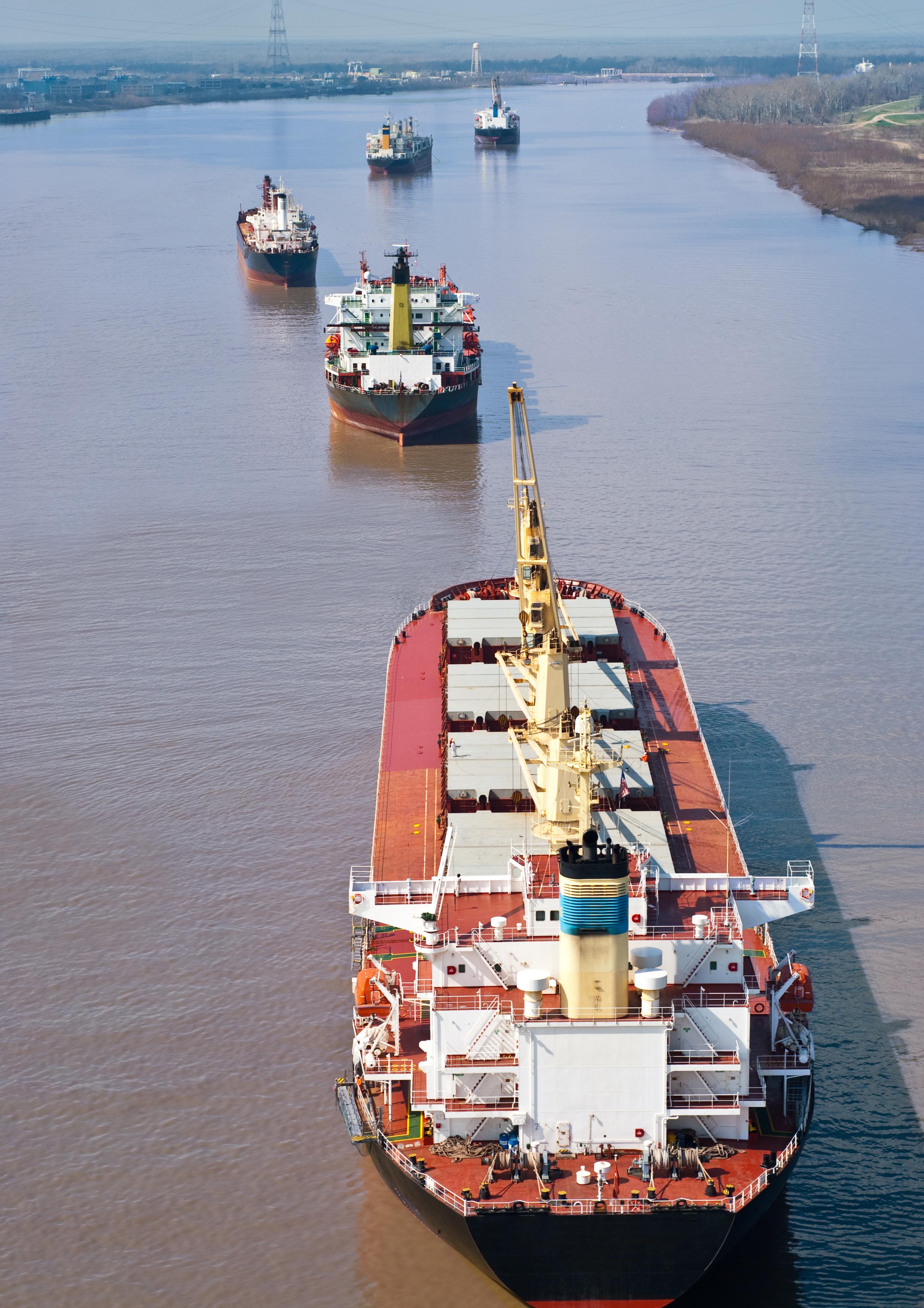
Massman Weeks a Joint Venture.
Industry leading construction & design team partnering with LA23 to successfully deliver a world-class container port facility for Louisiana’s Gateway Terminal.
• Strong commitment to safety

• #1 Marine & Port Facilities Design firm (ENR)
• #1 Marine & Port Facilities Contractor (ENR)

• Two industry-leading marine construction firms with combined experience of over 215 years
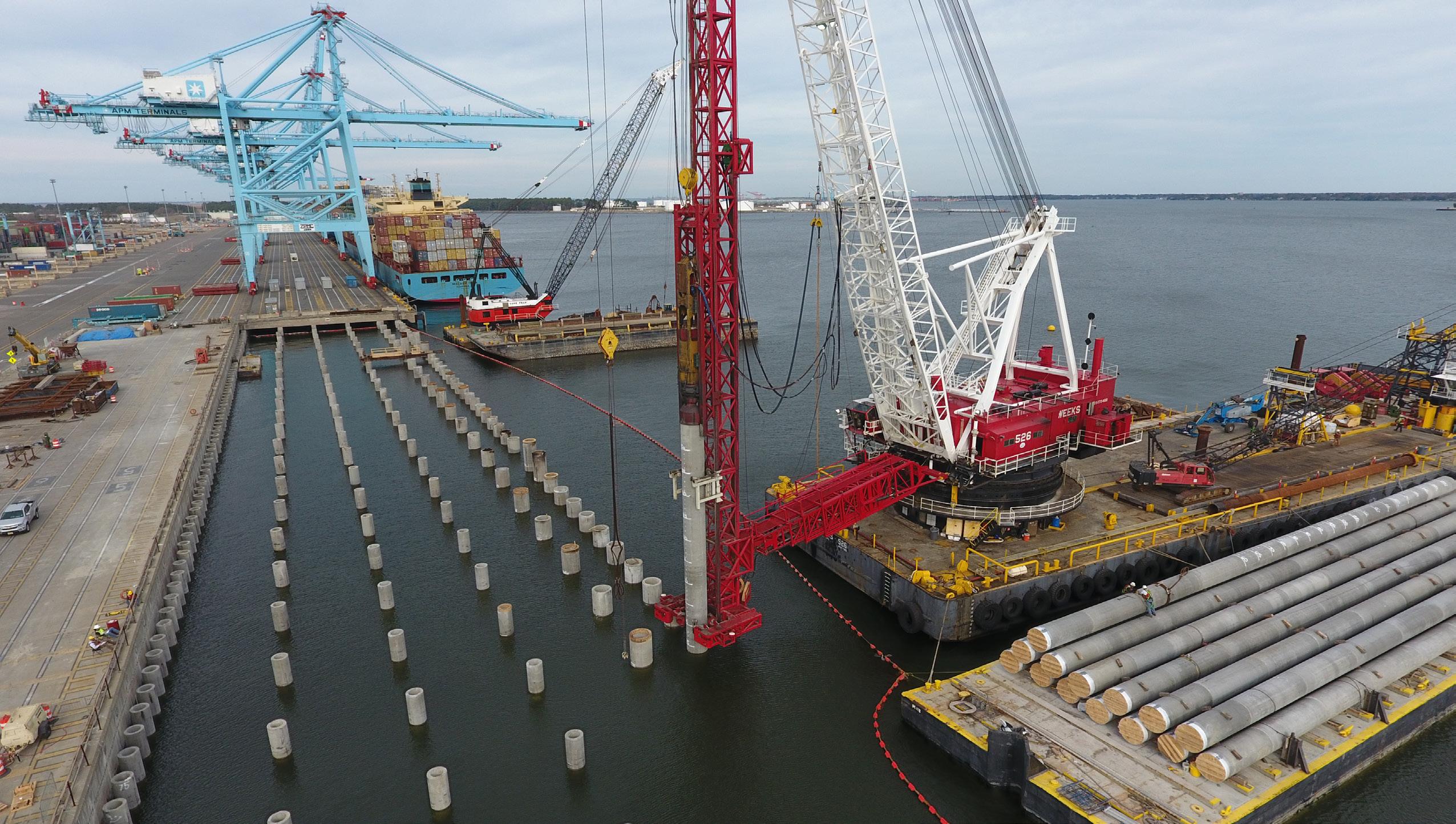
• Significant Mississippi River & Gulf Coast experience
• Extensive container terminal experience
• Unmatched fleet of marine construction equipment www.massman.net www.weeksmarine.com


SEA GREEN
“Bigger and better” might appear to be the watchwords for this project, but they are not the only ones. As Sanders is the first to point out, “If you are going to build a brand-new port you have to build it to be environmentally friendly. Ours is going to be a truly green port.”
Plaquemines Port Harbor & Terminal District will build its port using the latest environmentally friendly building materials. Sanders tells us enthusiastically about on-site power generation, with the latest environmentally friendly technology.
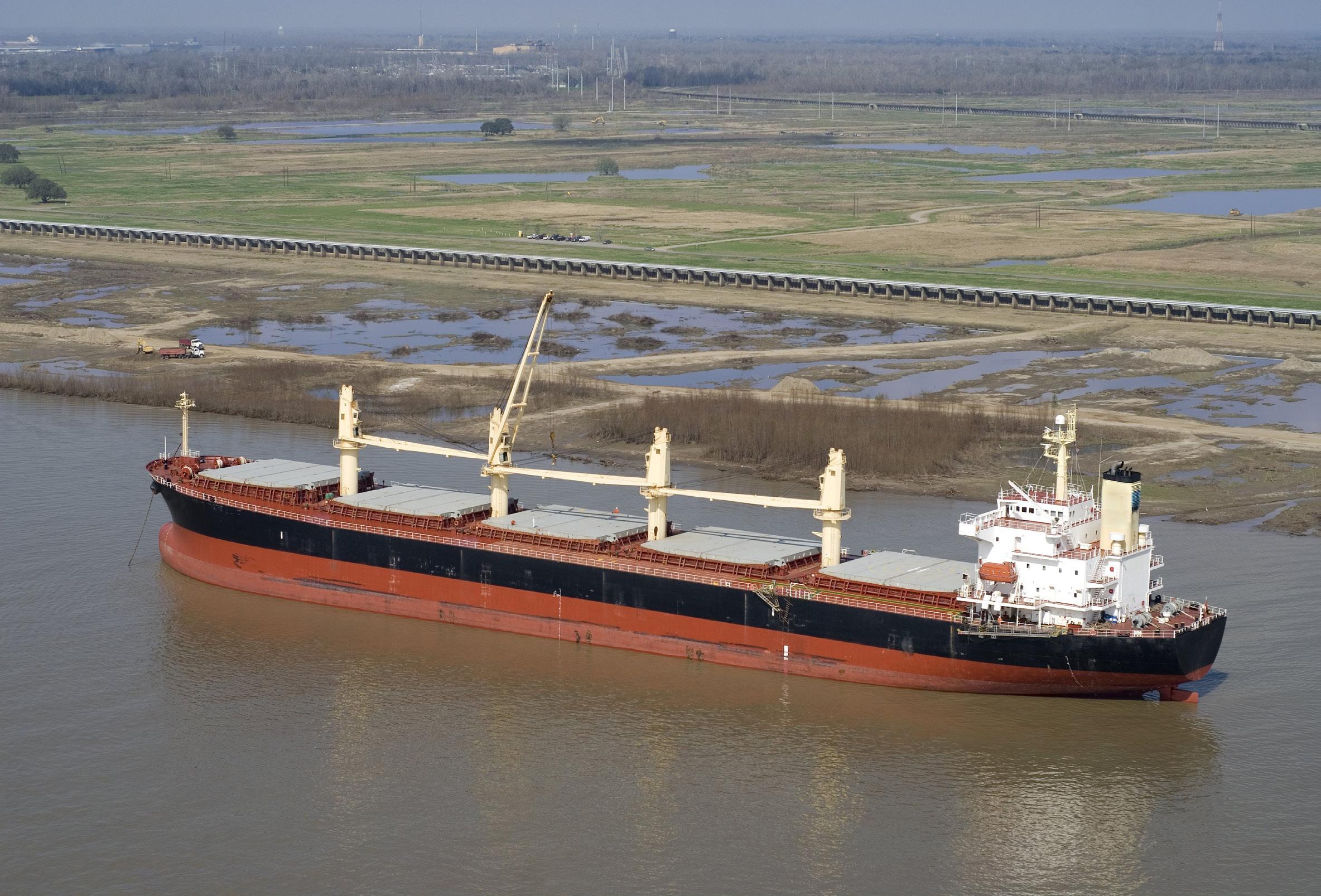
“Our port will be all-electric, or gas powered. We are controlling our carbon footprint and we have an abundance of natural gas here, so all our vehicles will be powered by
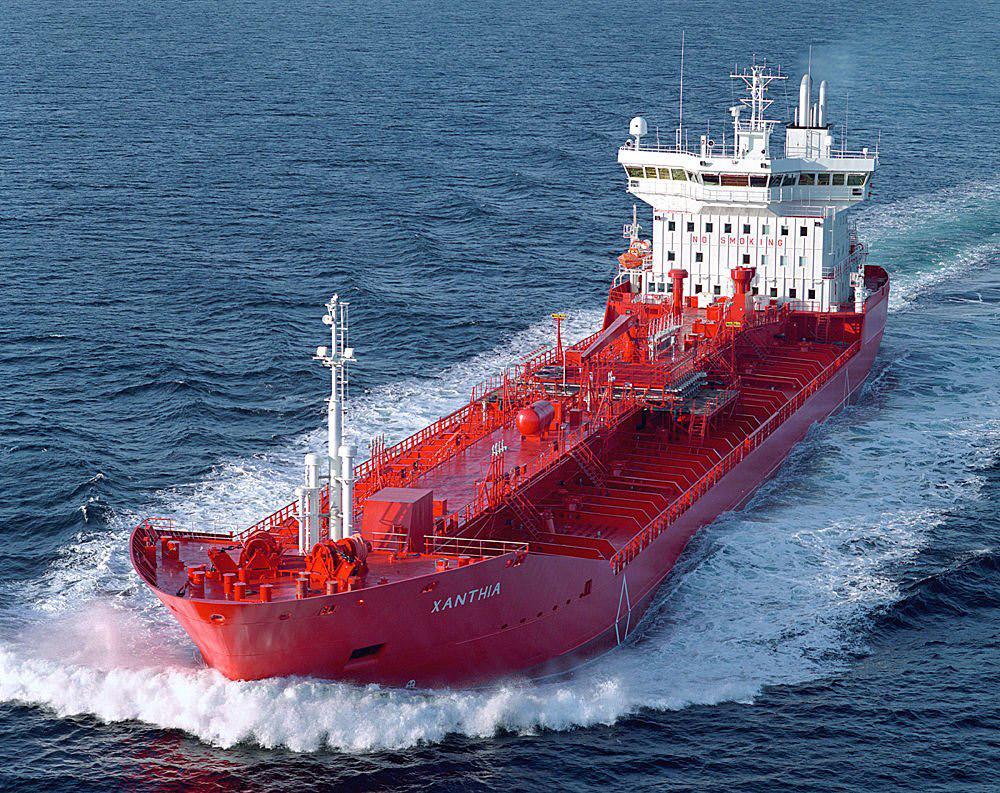
gas,” he says. “We are going to be able to bunker ships with the latest environmentally-friendly propellants such as methanol, LNG compressed natural gas, ammonia and hydrogen.”
This is only one of the ways that Sanders is developing a port that will be a widespread boon to the region and beyond.
“We are demonstrating that this port is going to serve not only this community and the State of Louisiana, but the Region, the Country and quite frankly, the Globe,” Sanders insists. “It will literally change global trade patterns. Our consumption area is the entire Mississippi River basin. That is
presently being served by ports on the east and west coast. We have all seen what the pandemic has done to supply chains, so this offers a new dynamic to old supply chains. It provides a high degree of resiliency into existing supply chains that can offer optionality for shippers and BCOs. It takes a lot of grit and determination and some very dedicated stakeholders.”
The reason Sanders is able to have such lofty ambitions for this project is that he has an excellent team behind him.
“When I arrived in August 2013, I inherited a dedicated workforce that was local, and ready for a change. By changing
our vision from being a regional port to a true gulf gateway to the heartland of America, the team caught on fire. Like most folks, they found most of the limitations the port faced were ones they put in place themselves.

Together, we broadened our vision, our mission and ourselves and are busily transforming our workplace and our output.
Sanders believes in investing in his people, and willingly use port funds to further the training and education of the team. The District helped pay for its CFO’s undergraduate degree, as well as her CPA and MBA degrees.
Of course, it is not entirely selfless.
“She’s bringing all those skillsets to our terminal district,” Sanders points out. “In our accounting department, people are furthering their degrees and the port’s paying for it. When they feel management cares about them enough to invest in them, that brings a new layer of loyalty to the port.”
OPENING THE GATEWAY
Plaquemines Port Harbor & Terminal District is a huge project, but it is one for which Sanders has a clear vision.

“My Vision for the Port is to be the Gulf Gateway to the Heartland of America,” he says. “This is not going to a regional port. The onward movement of cargo on rail, water and truck will be moving to the inland heart of America. We are bringing the Gulf of Mexico to the river ports of Memphis, St Louis, Kansas City, Joliet, Little Rock, and Western Arkansas. We are setting up a relationship with the inland port of Dallas, Texas with a robust rail connection.”
It is a plan that incorporates every mode of transportation to include commercial air cargo in the near future.
“We are working hard to introduce resiliency into our rail capability in order to take advantage of the six class I railroads that converge in the New Orleans area. We are also discussing with the Department of the Navy to introduce Commercial Air Cargo on a joint-use basis on an Active-Duty Navy Air Station. This last goal will bring all six modes of transportation into one accomplishing zip code,” Sanders says. “We are not building just a maritime port, but a Global Transportation Hub.”
“IF YOU ARE GOING TO BUILD A BRAND-NEW PORT YOU HAVE TO BUILD IT TO BE ENVIRONMENTALLY FRIENDLY. IT IS GOING TO BE A GREEN PORT.”
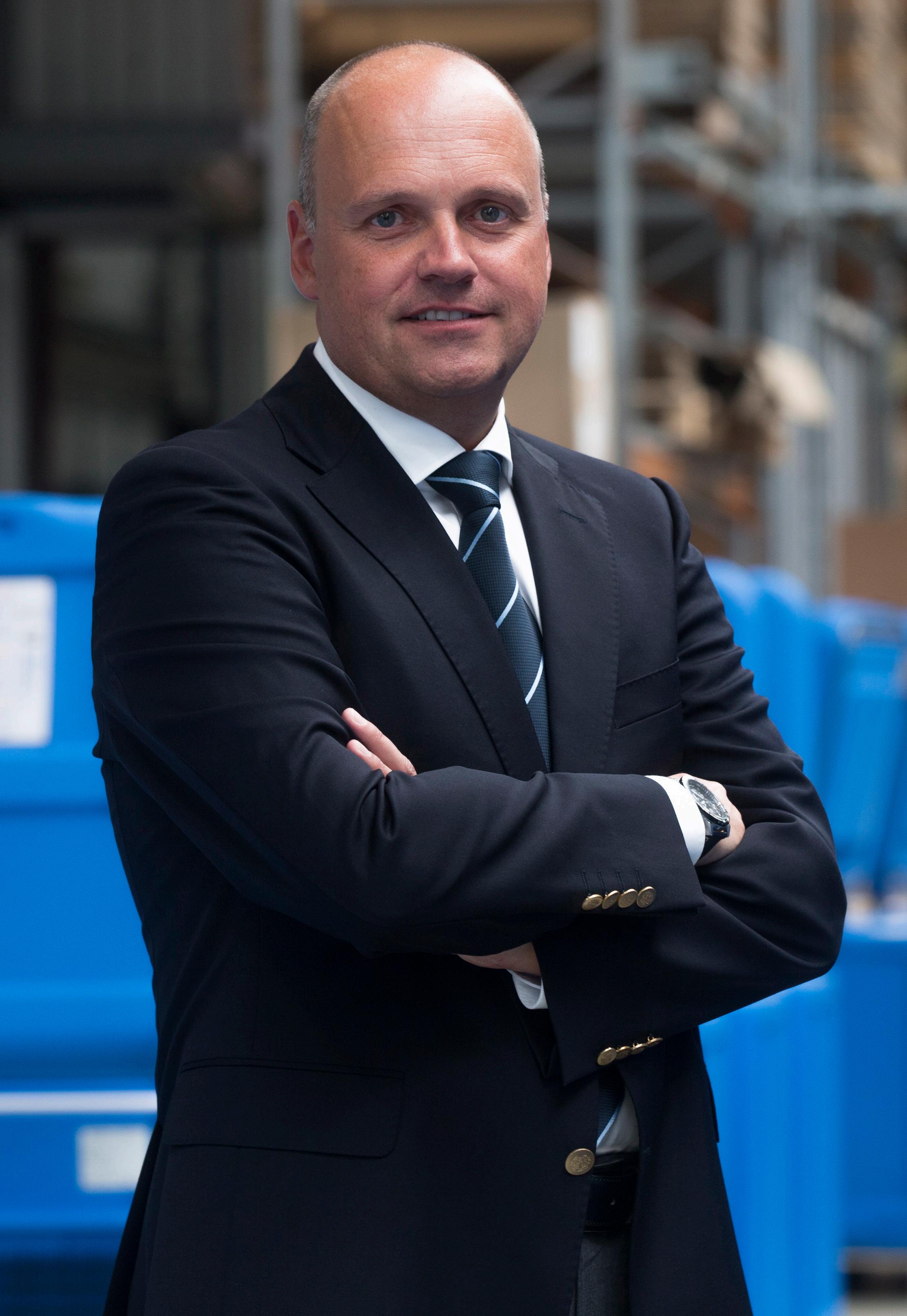
A RELIABLE COLD CHAIN IN THE MEDICAL SECTOR IS LITERALLY LIFESAVING. WE FIND OUT HOW B MEDICAL SYSTEMS MAINTAINS ONE.
PROMOTING THE COLD CHAIN
PROJECT MANAGED BY: LIAM PYWELLB Medical Systems has a storied history that moves across several sectors. Originally spinning out of Electrolux in the late ‘70s, over the years and decades the company has operated in the automotive and good and beverage industries. Yet, eventually, the company moved into the medical sector.
We found our way into medical applications because that was the area where our competencies could best excel,” says Luc Provost, CEO of B Medical Systems. “In the last three decades, we have focused on medical applications in the vaccine cold chain, in blood management solutions, and general medical refrigeration.”
The company’s activities in these fields stepped up a gear when it became independent in 2015, allowing it to focus its efforts on those three industry segments.
“It has accelerated our growth, but also driven our market position as a global leader,” Provost says.
Where B Medical Systems has an edge is in its drive to use the latest technologies and ideas, an effort that Provost regards as essential given the stakes of the company’s work.
“We look at new materials, new technologies and how to use them to offer the most robust product on the market,” Provost
says. “It is hugely important in our domain of activity. It is critical for example to store blood and blood components at the right temperature to not have an incident with a patient. The same goes for vaccinations. If a vaccine has a temperature excursion, its potency can reduce and not protect the patient. So, we equip our product ranges with innovative technology to greatly increase the robustness of our solutions.”
A COMPETITIVE EDGE
The results speak for themselves. One of B Medical Systems’ product lines is a range of solar refrigerators. B Medical Systems’ competitors also offer solar refrigerators, but where the best of B Medical Systems’ competitors sell devices that can operate for a week with full autonomy, Provost tells us his company sells refrigerators that can remain autonomous for up to a month.
Sometimes, that level of success can make B Medical Systems a target.
D.E.C. elettronica s.r.l.
Via dell’Artigianato, 12/1
Fossalta Maggiore di Chiarano 31040 (TV) - Italy
T: +39 0422 806097 – 806159 F: +39 0422 806128 info@decelettronica.com www.decelettronica.com
D.E.C. ELETTRONICA S.R.L.
DEC elettronica is an Italian company that has been active in the electronics sector for over 30 years. The company studies designs and develops customised circuit board and electronic equipment solutions for numerous industrial applications.
Expertise, professionalism, and innovation are its strengths.
DEC invests in research, technology and qualified personnel - It optimises and controls every step, such as the industrialisation, assembly, testing, and inspection phases to deliver the best possible certified-quality product to its clients.
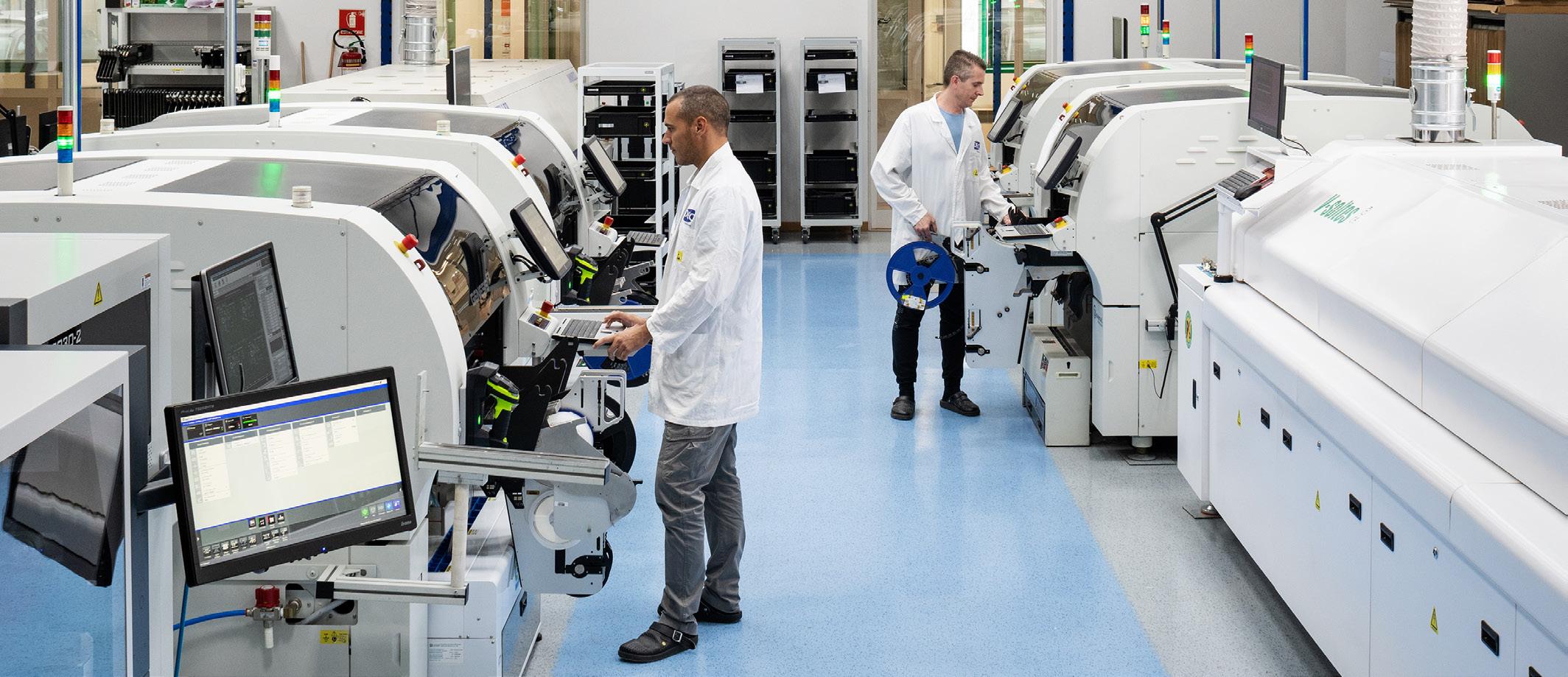
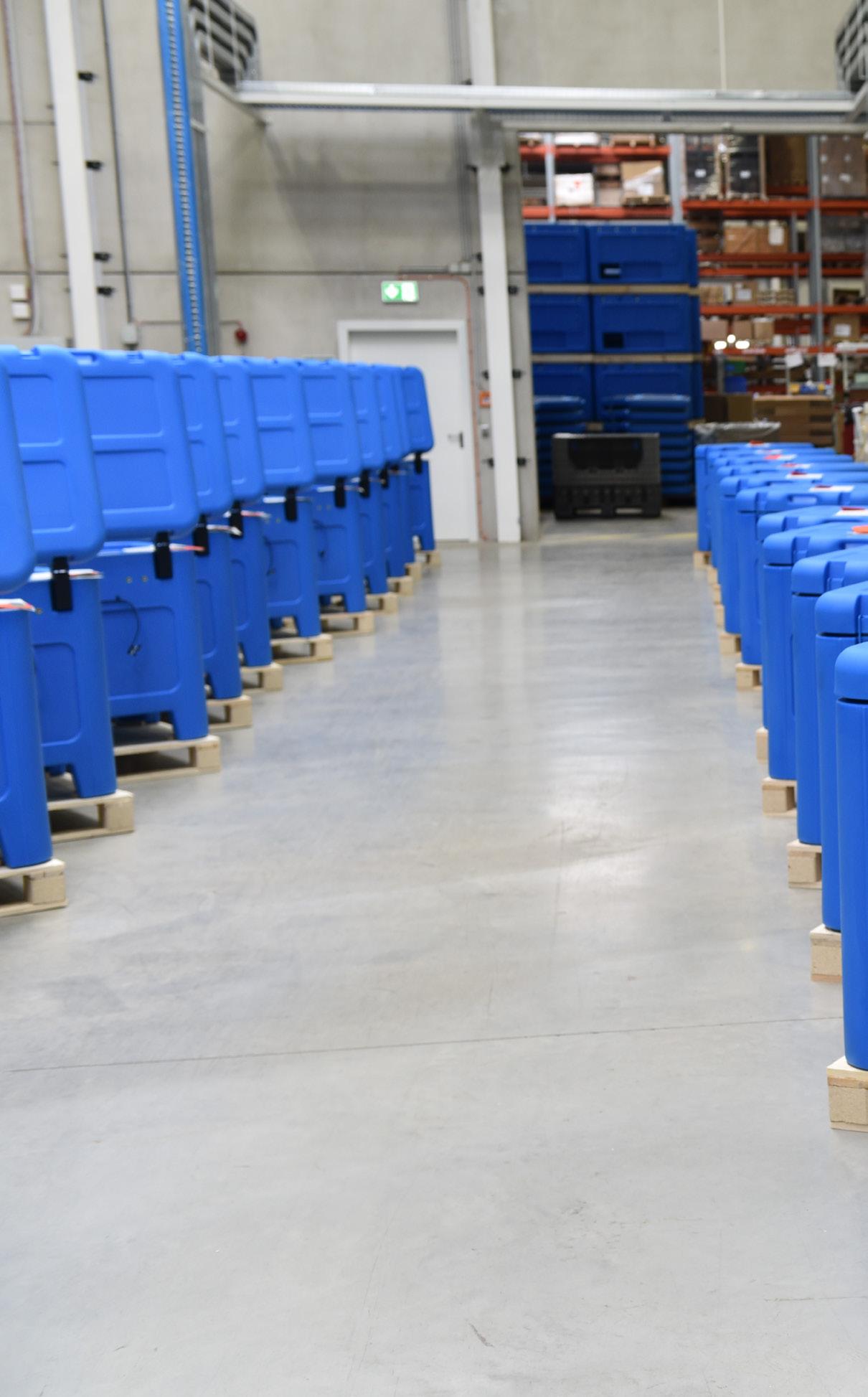
The company operates in Italy and abroad, whilst ensuring maximum reliability and flexibility.
DEC responds to customer needs in the most effective and efficient manner with its competitive services and solutions.
As a result of its agile and flexible approach, DEC elettronica expertly covers the entire production cycle: Electronic Design, Material Procurement, Circuit Board Production, Logistic, and Quality.
The proactive comparison with various market sectors allows DEC elettronica to constantly enrich its knowledge and operate in various fields of electronics, including newly-explored sectors.
As a result of the company’s intuition, experience, and training, it is able to design circuit boards for various sectors: medical, HVAC/R – temperature controls, IoT, home and building automation, Ho.Re.Ca., wellness, naval and shipbuilding, agriculture, renewable energy and lighting.
www.decelettronica.com
Made in Italy - creativity in the design and production of electronic boards.
Provost says. “This is not true, because there are still other big players. But this perception of
Fortunately, the quality of B Medical Systems’ products speaks for itself.
“The final decision maker and customer is always the Ministry of Health in the country where we operate,” says Provost. “That’s a huge strength because we have more than four decades of flawless track record of our products performing exceptionally well in very harsh conditions. They can see and measure the results with an online tool that demonstrates how we outperform our competitors. They know our products are secure and that they will help save lives.”
SPOTLIGHTING INNOVATION
While its track record is exemplary, B Medical Systems also faces a challenge in introducing new technologies to a sector where many are understandably resistant to change.
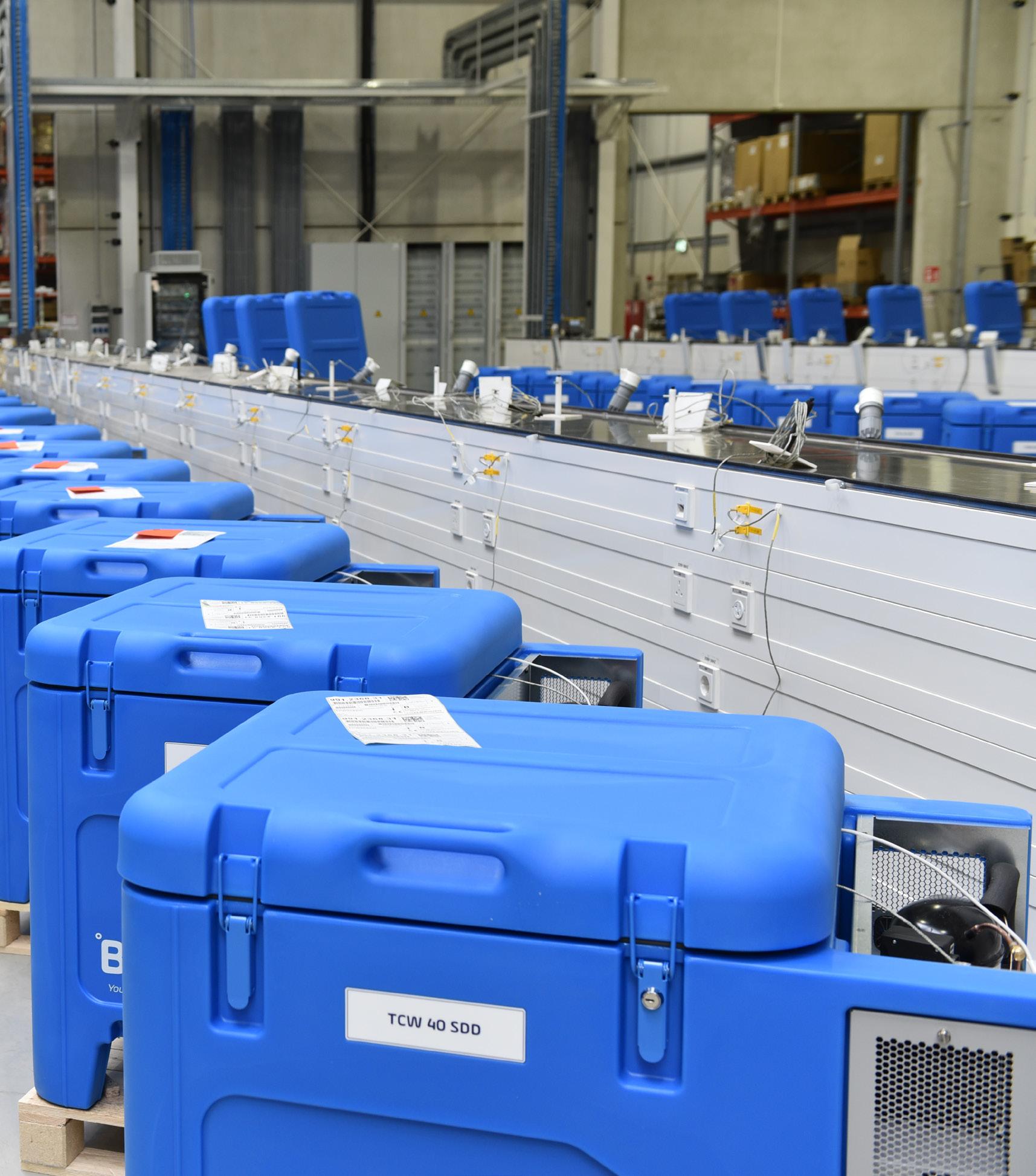
“We bring new tech to the market ahead of the curve, which makes it sometimes challenging to introduce these innovations to our customers,” Provost admits.
The solution Provost has arrived at is, surprisingly, to simply give the benefits of the technology away.
“Often we introduce innovations at zero cost for the customer, bring these technologies to the market and get paid through the benefit these technologies bring our customers,” Provost says. “A recent breakthrough in vaccine technology is the remote temperature monitoring we have in real-time. We launched it a couple of years ago, and now we have 80,000 refrigerators connected to the network, which is a huge benefit for B Medical Systems. It gives us a very accurate view of our effectiveness from the Amazon jungle to the deserts of Chad. It also gives that data to the relevant Ministries of
“WE HAVE MORE THAN FOUR DECADES OF FLAWLESS TRACK RECORD OF OUR PRODUCTS PERFORMING EXCEPTIONALLY WELL IN VERY HARSH CONDITIONS.”
“We are often considered as a market leader, but some organisations consider us to be in a monopoly situation,”
our business as a monopolistic company is a challenge.”
Health. They can connect to their cold chain network and send technicians only to where and when they are needed: for example, there are countries where you sometimes need to canoe for a week to get to a village, and that’s time you may not have if vaccines are in danger. Any advance warning is incredibly helpful in these situations. These kinds of challenges truly bring innovation to the market.”
B Medical Systems has been providing solutions to these challenges for a long time, but in the aftermath of the COVID-19 pandemic, the company has enjoyed a raised profile for its work in fighting the SARS-CoV-2 virus.
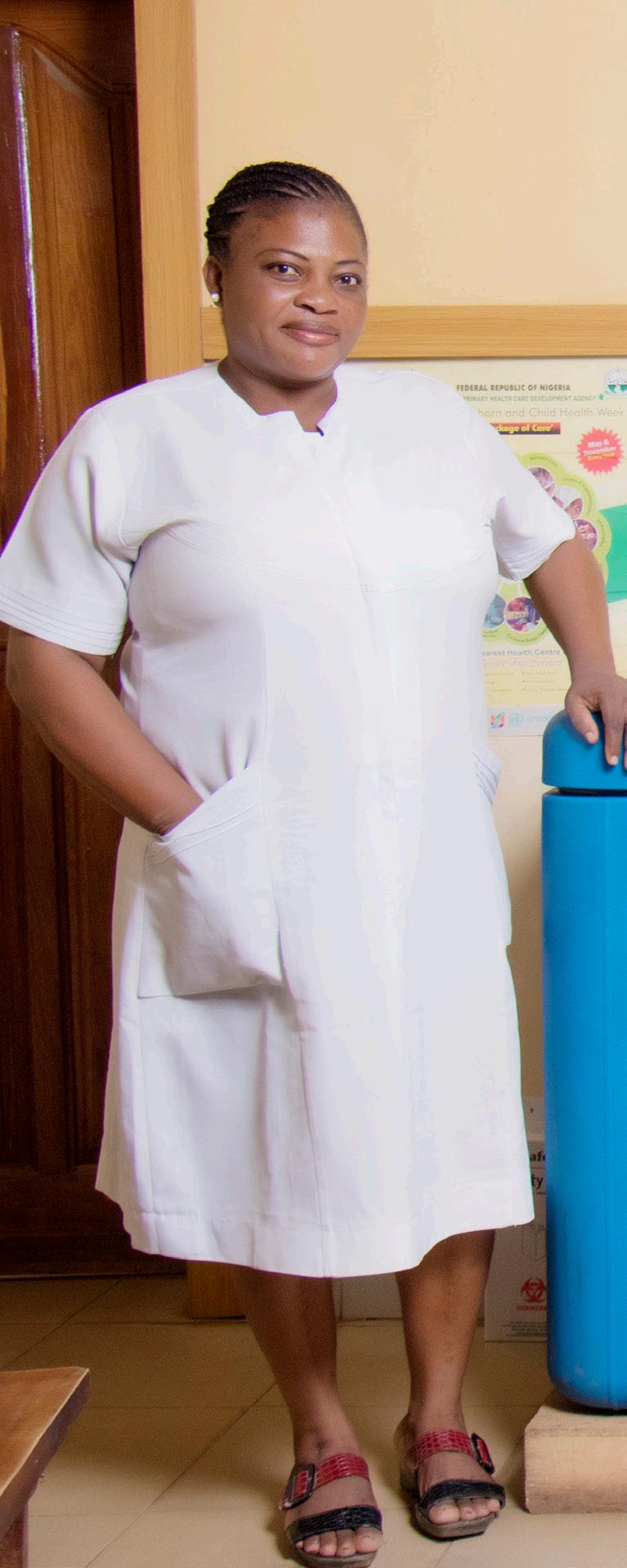
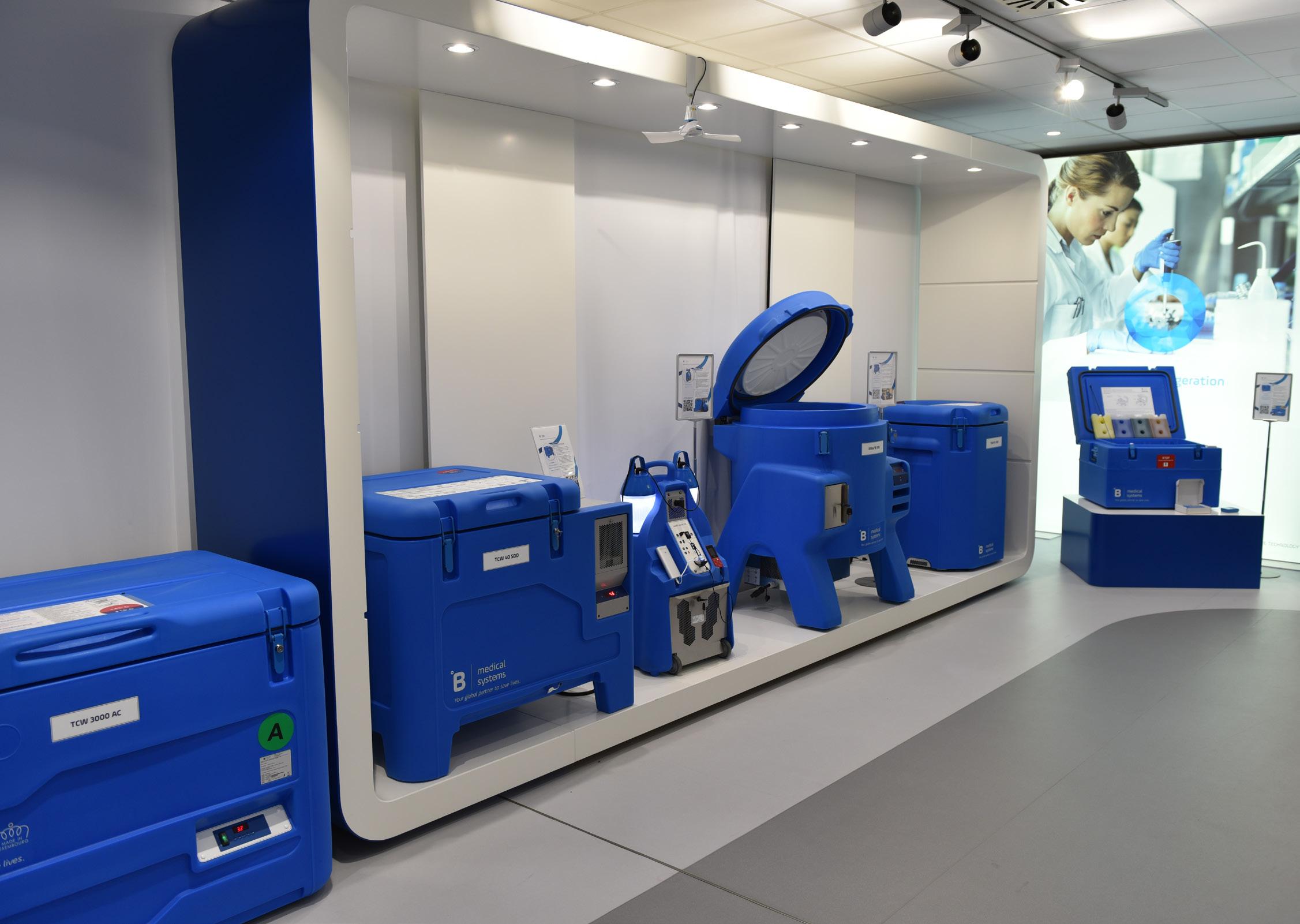
“We’ve been doing this for decades behind the scenes, but COVID brought us into the spotlight,” Provost says. “We’re getting a lot of voluntary applications from talent around
the world. More than a year and a half ago, we were 210 people. Now we have a staff of 350 people with close to 29 different nationalities. We have truly gained international visibility.”
WORK THAT MATTERS
Provost feels that the reason B Medical Systems is drawing so many applications is not just its new visibility, but also a real desire to do work that matters.
“Youngsters don’t just look for an eight-to-five job. They want one that adds meaning to their life,” he says. “Thanks to our products what was once the most highly infected country in the world with polio has eradicated the disease. Our people really get a sense of how their work changes things.”
This is not just a figure of speech. At this stage in the company’s development, every person’s contribution really does matter.
“We’re still relatively smallto-medium size, so every individual can have an impact on our performance,” Provost insists. “Very often people come up with ideas and every idea is discussed and evaluated. If we’re interested, we create an opportunity to bring that idea to completion. We are active from research and development all the way to the manufacturing processes.”
That said, the company has growth in its future- especially since it was acquired by a US firm, Azenta Life Sciences.
“They are going to open new doors for us,” Provost tells us. “They are highly present in the North American market, and B Medical Systems is very present in markets where Azenta is not. There are economies of scale and synergies that are possible now that were not in the past, even just a few months ago. They have competencies we do not have and vice versa, so access to these new levels of resources is going to help us accelerate our growth.”
While B Medical Systems is looking at growing its horizons, it is also working on bringing
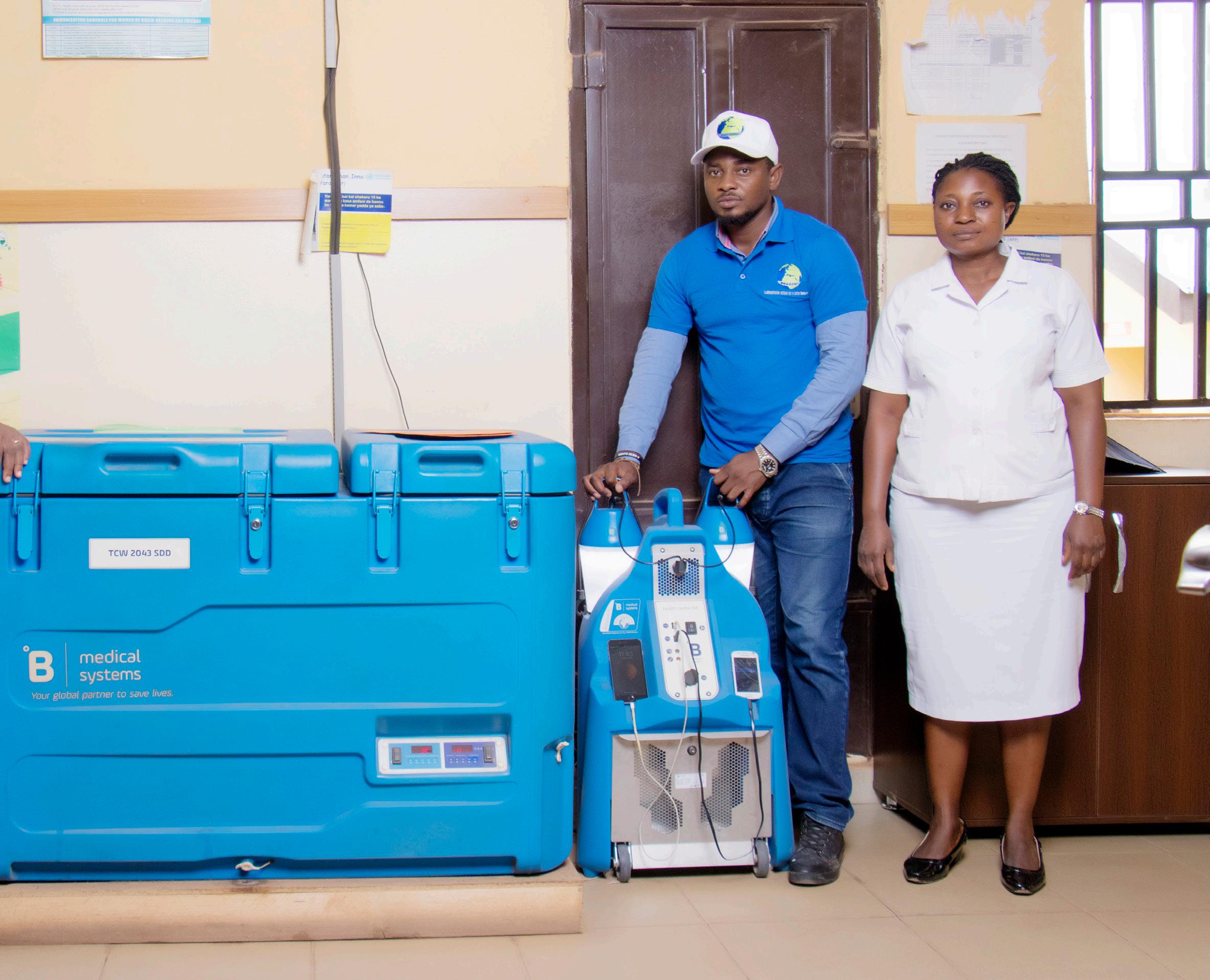
some capabilities closer to home- particularly around the vaccine supply chain.
“Our dependency on other countries is very risky and relying on it requires a very short-term view,” Provost points out. “B Medical Systems has taken the strategic choice of avoiding that and taking firm action to bring the supply chain closer to home, developing and producing in Europe. There is a long-term vision behind that.”
It will be interesting to see where that long-term vision takes them.
POLAND IS ABOUT TO LAUNCH THE CONSTRUCTION OF ITS SOLIDARITY TRANSPORT HUB, THE EU’S LARGEST INFRASTRUCTURE PROJECT, SET TO TRANSFORM THE CONNECTIVITY OF THE CENTRAL EUROPEAN REGION.
BUILDING A REGION’S FUTURE
MANAGED BY: RASH UDDINThe Solidarity Transport Hub is a megaproject from the government of Poland, aiming to integrate air, rail and road transport in order to enhance mobility within the country and the whole region.
The heart of the project is a new, built-fromscratch greenfield airport to be located in the centre of Poland between the capital city of Warsaw and the city of Łódź, connected to highspeed rail and the road system. It is the largest infrastructure programme in Poland’s history, and currently the largest infrastructure programme in Europe.
The new airport will be able to serve 40 million passengers a year which may be increased to 100 million in the future. But above all and more importantly, the construction of a new airport in the heart of Poland is accompanied by its connection to Poland’s main cities with
almost 2,000 kilometres of new railway lines, mainly high-speed.
THREE PILLARS
“STH is indeed the biggest infrastructure and transformational project being run in Poland today. It is aimed to transform Poland’s public transportation system and take the maximum advantage of that transformation and is based on three main pillars,” says Mikolaj Wild, CEO of Centralny Port Komunikacyjny Sp. z o.o., Polish state-owned SPV establish to design and deliver this largest transport infrastructure megaproject in Europe.
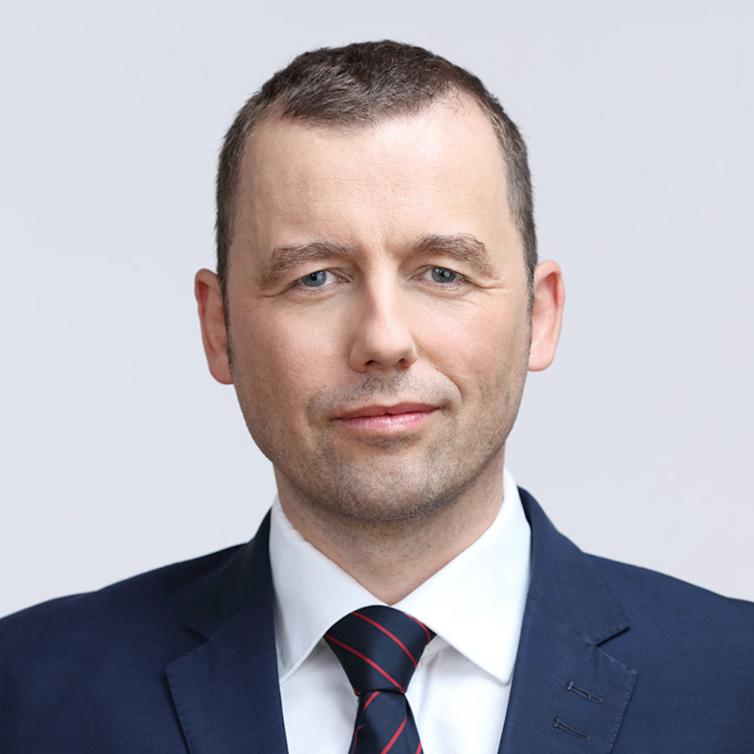
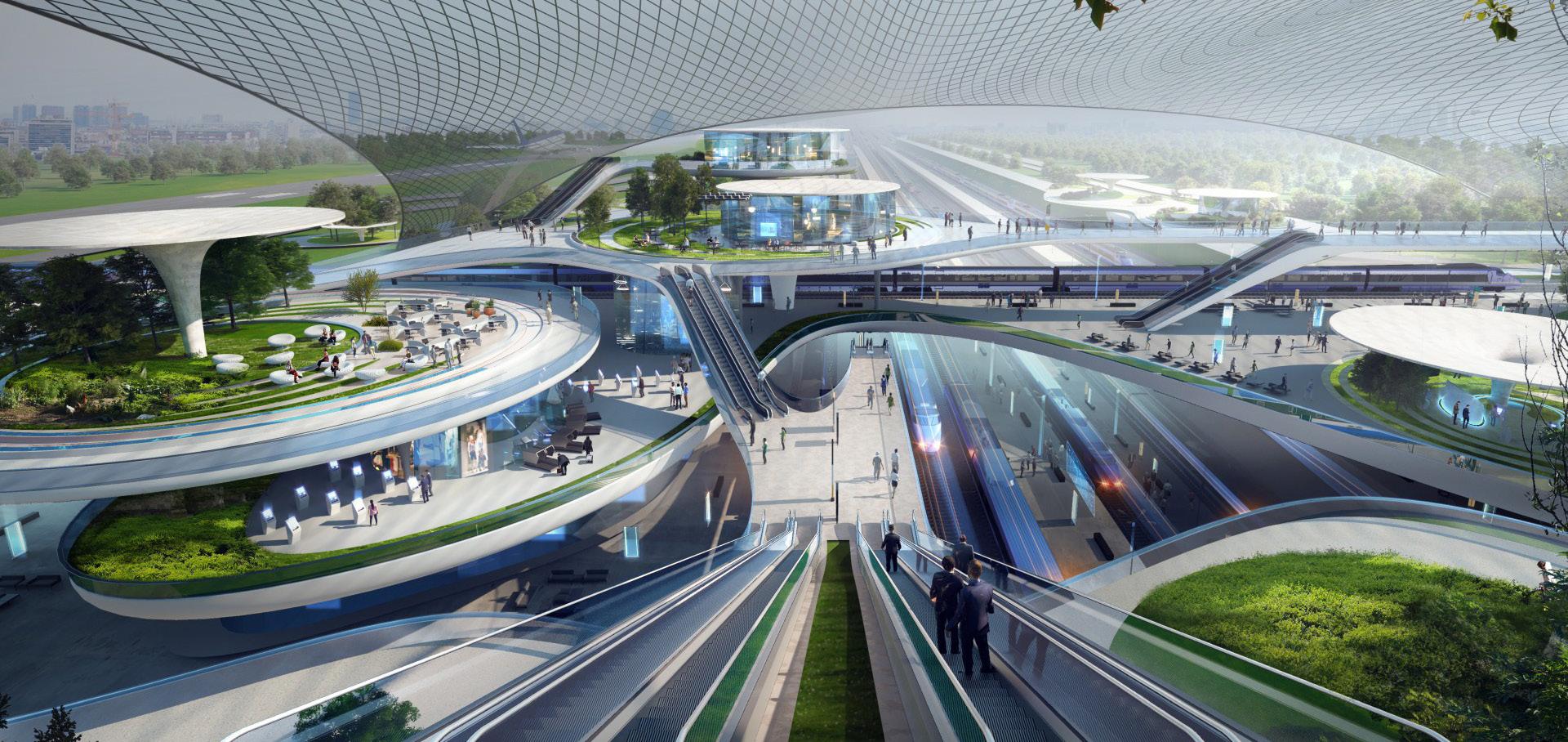

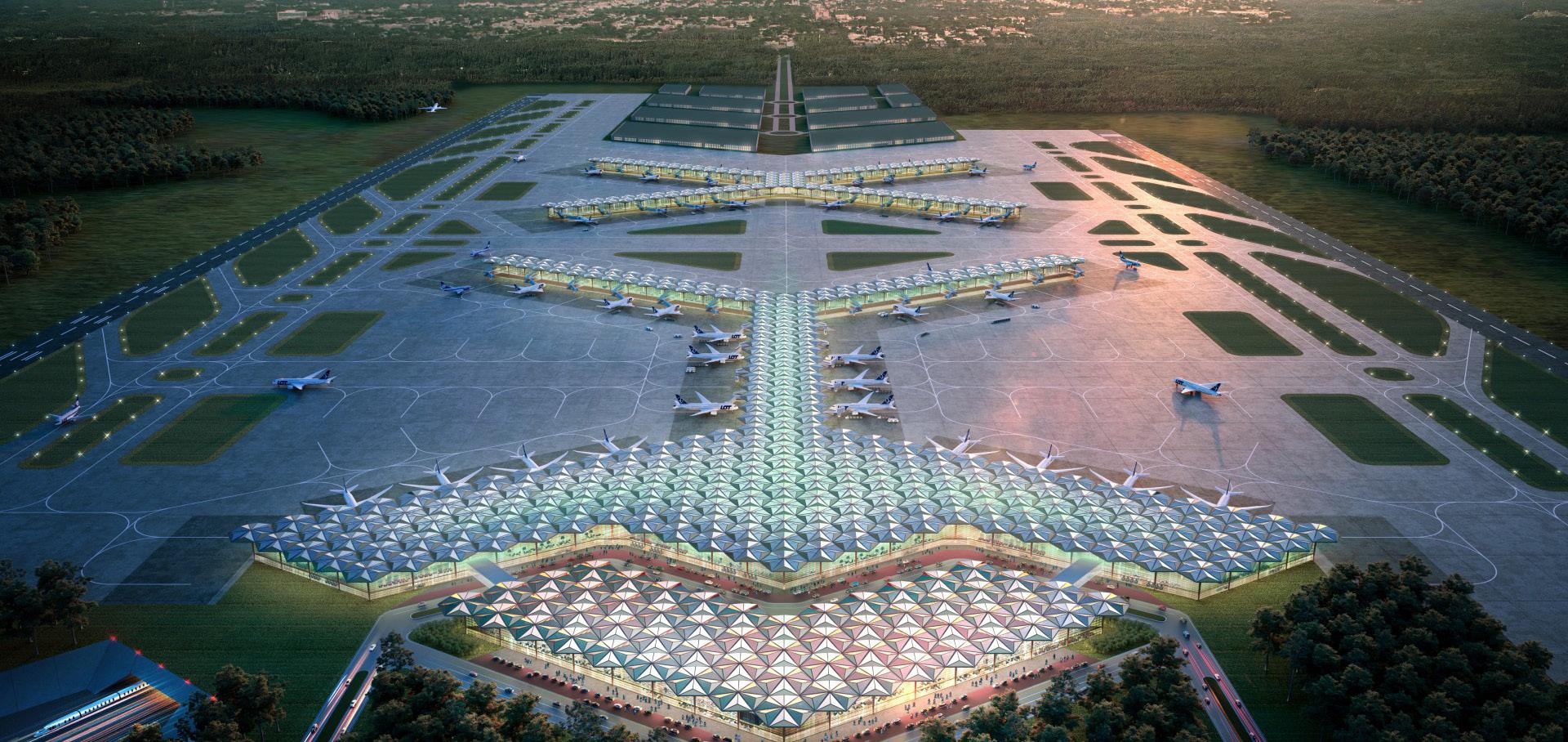
SUD Polska is a design office located in Warsaw and operating throughout Poland. Since 2007 we developed a strong know-how in the field of infrastructure and mobility.

Selected references:



The High Speed Long Distance Railway Tunnel - architecture design, multibranch coordination & BIM management
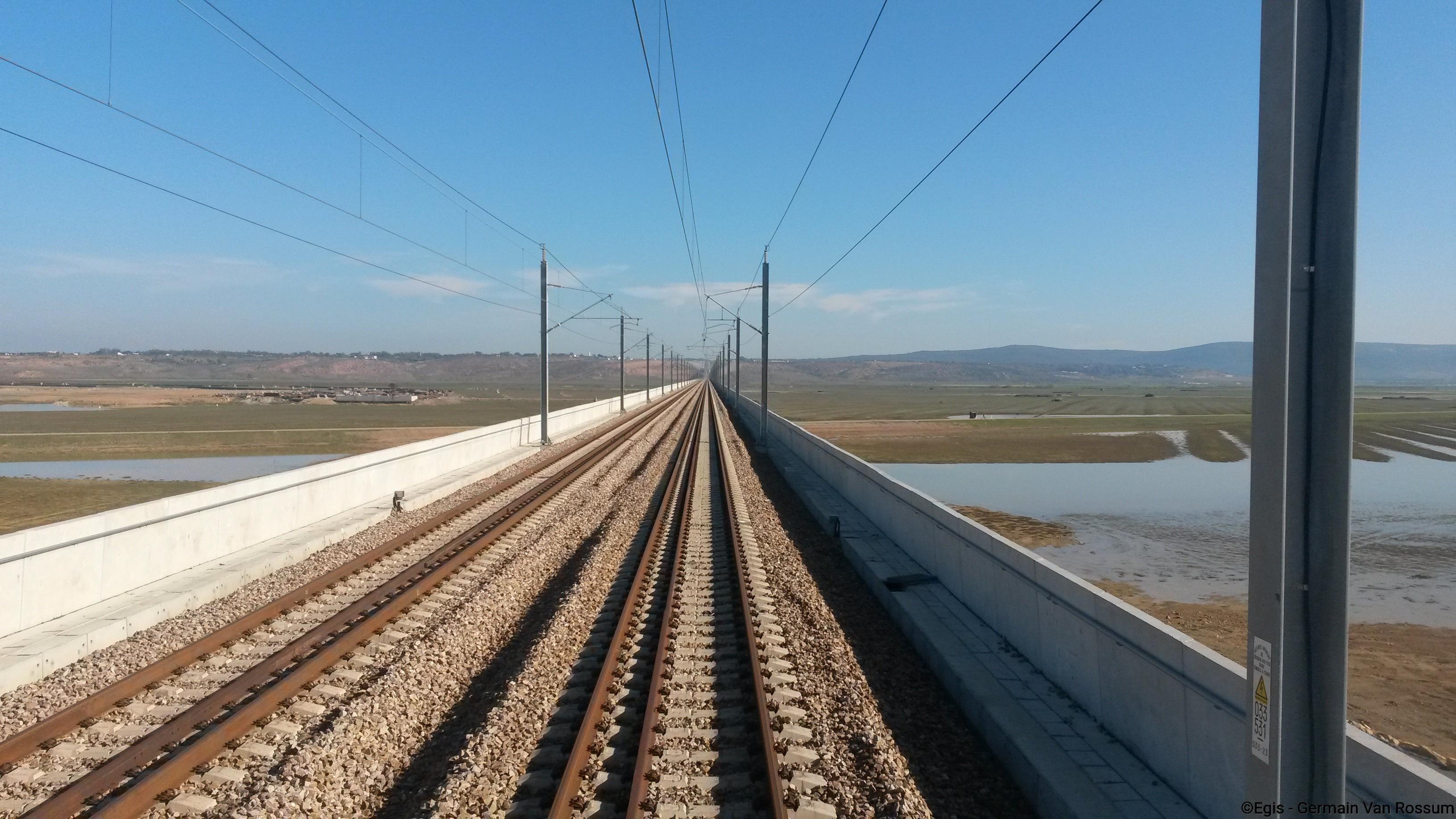
- The project is a part of the CPK project and consists in the the design of the railway line No. 85 covering the 6 km tunnel section from the Łódź Fabryczna station to Łódź Retkinia. The tunnel runs under the city center of Łódź.
Łódź Railway Junction – architecture design with multi-branch coordination
- The tunnel will connect the Łódź Fabryczna railway station with Łódź Kaliska and Łódź Żabieniec. Three underground train stations will be built along the tunnel’s route within the city center of Łódź.
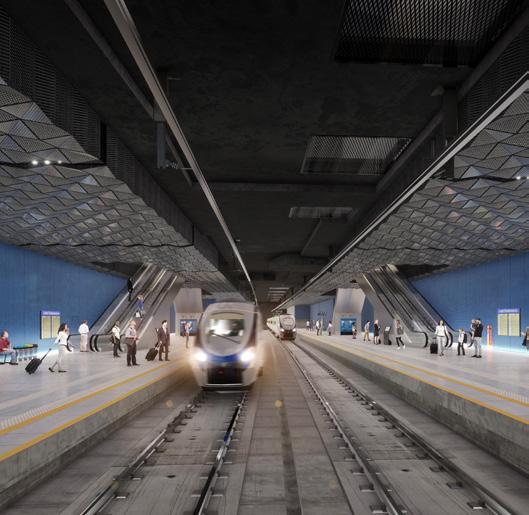
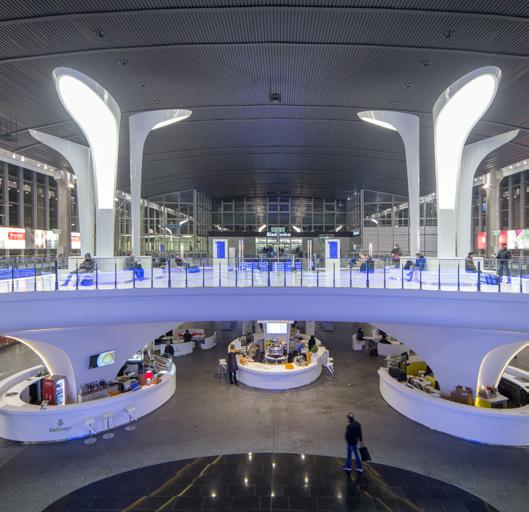
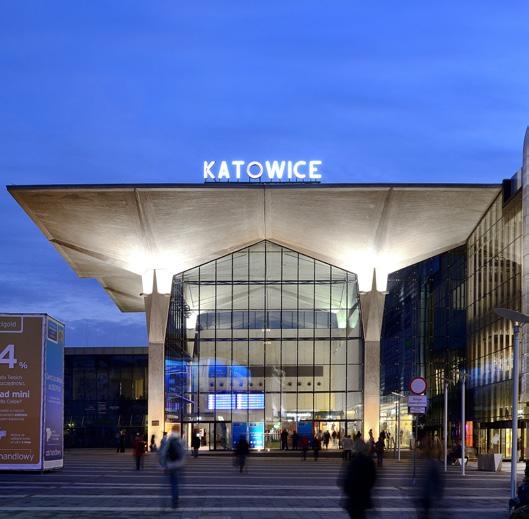
Central Railway Station and communication hub in Katowice –architecture and engineering design - reconstruction of the Central Railway Station as a part of the multi-modal communication hub with the 20 platforms underground bus station, 1200 spaces underground car park and the multi-functional center Galeria Katowicka.

Mr Wild explains that a plan to increase the country’s airport capacity and enhance its transport infrastructure had been under consideration for decades, with the final decision to go ahead made in 2017, when the Polish government approved the concept of the Solidarity Transport Hub.
The first pillar is to establish the heart of a new transportation system, the Solidarity Airport, a hub fully integrated with the railway network. The second pillar is the transformation of the railway system in Poland by introducing high-speed railways to the country, i.e. to build new railway lines and modernise existing lines to meet highspeed railway standards.

Finally, the third pillar, a consequence of the previous two, is the site planning of the area surrounding the Hub, in order to provide maximum advantages of what is destined to be the best-connected location in central-eastern Europe.
MULTI-MODAL BENEFITS
“The added value of this ambitious project lies in bringing together individual infrastructure projects related to air, road and rail transport into one unified programme in order to provide the biggest benefit for the transport system and economic development,” says Mr Wild.
Although Poland has a welldeveloped rail infrastructure and Warsaw is currently served by two airports, he explains that the country needs to enhance the system to match those in the countries of western Europe. “Poland, and the whole central-eastern Europe region, is underserved in terms of aviation.”
“To give you an example: only 16% of Polish air cargo is served by Polish airports, which means that 84% of Polish air cargo is served by airports outside Poland. In addition to the obvious inconvenience, this has dire environmental consequences, as Polish suppliers are forced to use trucks to ship their cargos by road from other countries.”

“THE ADDED VALUE OF THIS AMBITIOUS PROJECT LIES IN BRINGING TOGETHER INDIVIDUAL INFRASTRUCTURE PROJECTS RELATED TO AIR, ROAD & RAIL TRANSPORT INTO ONE UNIFIED PROGRAMME IN ORDER TO PROVIDE THE BIGGEST BENEFIT FOR THE TRANSPORT SYSTEM AND ECONOMIC DEVELOPMENT.”
“Similarly, if Polish tourists want to travel east, they need to travel west first, to a western airport. By integrating air and rail transport in this unique way, we will be able to replace domestic flights by a high-speed railway connection, a system that is being tried out in France, for example. This is just one of the reasons we believe so strongly in the economic and social as well as the environmental benefits of this project.”
STATE OF PLAY
The STH concept as approved by the Polish government estimates that construction work on the airport will be complete by the end of 2027. This is not a definitive schedule, notes Mr Wild, as the final timescale will only be approved by investors, within the framework of time, cost and quality.
According to EU rules, the airport component and the rail infrastructure structure will have to be funded separately – while Poland will have to finance the terminal project itself, applying for European funding is an option for rail infrastructure because the network of new lines to be built would fall within the sustainability and smart mobility strategy adopted by the European Commission, and will therefore be compliant with the European
Green Deal. Additionally, the most important rail connections in the STH Railway Program are included in the EU’s core and comprehensive networks of TEN-T.
Mr Wild confirms that the preparatory works are in full swing. So far, the company has signed the largest in Europe landmark framework agreement for railway investment planning.
Proposals from the main terminal design providers have now been received, as well as the offer from the Master Civil Engineer.
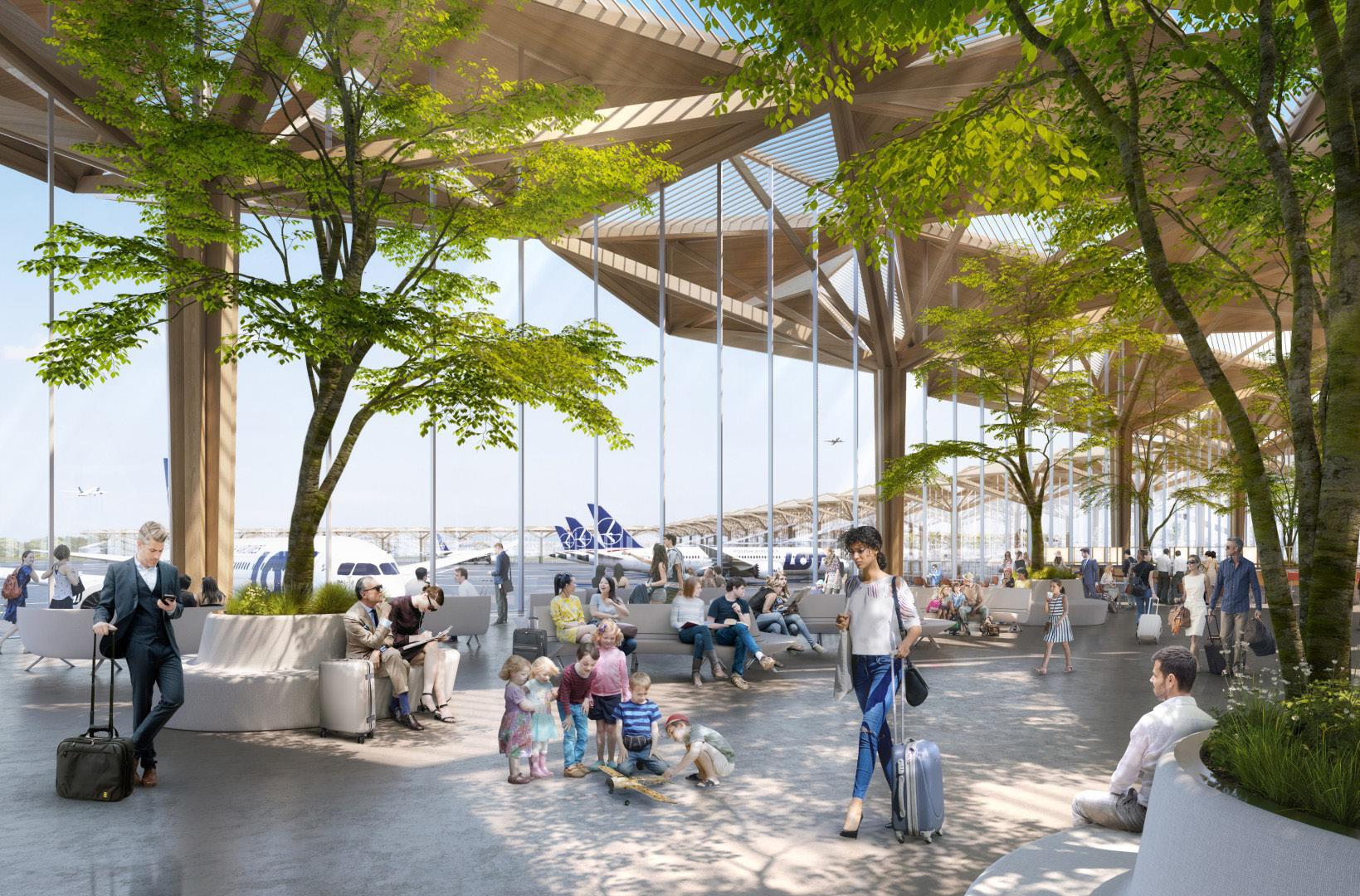
Given its international importance, the project has not only stirred interest with European suppliers but has also attracted global attention. “It is standard practice that for large projects local contractors are given preference. However, this is not the case for STH. We aim to benefit from the knowledge and experience of the world’s leading and most experienced suppliers. Therefore, we are open to, and welcome, suppliers from all over the world.”
“We are now already working with global stakeholders on the preparatory phase – we have entered into a cooperation agreement with the Korean government and Incheon airport in Seoul, and from the very beginning we have been working closely with advisors from the
UK, France, and Spain providing engineering and architectural expertise.”
THE BEST INFRASTRUCTURE IN THE REGION
Needless to say, the project reflects environmental and sustainability requirements, aiming at net-zero operation using state-of-the-art technologies and renewable energy sources. “As this is a greenfield development, we are not limited by existing structures and constraints and can apply the latest technologies.”
So what are the immediate tasks ahead? Mr Wild says: “We will submit the application for an environmental permit in the following weeks and expect this to be granted by the middle of 2023. This year we also plan to select the Master Architect for the terminal, as well as the Master Civil Engineer, Airport System Infrastructure Designer and Support Infrastructure Engineer. We will also start the on-site preparatory construction work. Next year, we expect to sign agreements with investors.”
He admits that the project will have an extensive impact on the rural location and its community, fundamentally transforming not only the site but also the lives of its inhabitants. “There is still a lot of hard work ahead. Considering the massive impact of the construction on the local people, we have set our standards very high, to make sure we provide the best infrastructure in this part of the world that will benefit the local community, the country and the whole region.”
“AS THIS IS A GREENFIELD DEVELOPMENT, WE ARE NOT LIMITED BY EXISTING STRUCTURES & CONSTRAINTS AND CAN APPLY THE LATEST TECHNOLOGIES.”

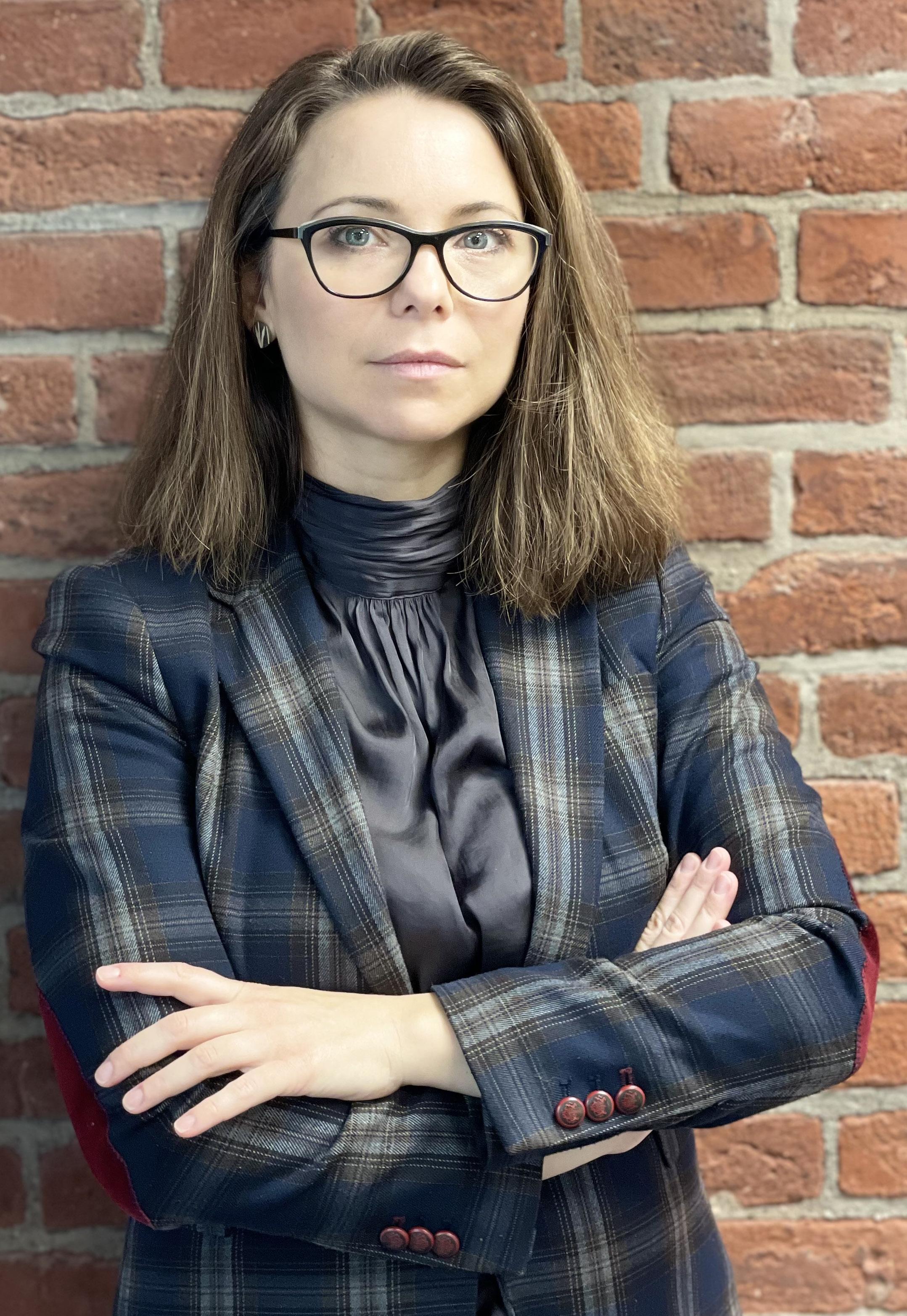
GOPET TRANS IS A TRANSPORTATION AND LOGISTICS ORGANIZATION, LOOKING AT HOW TO MAKE THE WORLD’S SUPPLY CHAINS MORE SUSTAINABLE.
AN INTERMODAL SOLUTION
PROJECT MANAGED
GOPET TRANS was founded in 1995 in Sofia, Bulgaria, to provide stable and reliable transport services to companies looking to export or import to Bulgaria or the Balkans. Over the last 27 years, the firm has faced a dynamic market environment, dealing with everything from the EU membership process and further expansion towards the East, the financial crisis in 2008, and of course, the impact and consequences of the Covid-19 pandemic.
All these events shaped our company and showed our resilience in the market,” says Kamelia Vasileva, GOPET TRANS’s Global Commercial Manager. “Today, we are a one-stop Transportation and Logistics services provider with a regional footprint in Bulgaria, Romania, Poland, Greece, Turkey, and Spain. Our range of services has also developed in direct relationship with markets and clients’ needs evolution.”
GOPET TRANS offers land transportation that covers Europe, the Middle East, and former CIS countries, with global reach via sea and air services to any commercial destination, as well as logistics and warehousing services in Bulgaria, Greece, and Romania. It offers these services and facilities to clients in the automotive, agriculture, retail, FMCG, tobacco, beverages, furniture, manufacturing, metalworking, and electronics sectors, and many more.
Transport and logistics is a highly standardised and relatively commoditised industry. Still, as Vasileva points out, there are ways for a company to differentiate itself.
BY: DAVID TAVERNOR“Our business philosophy has always been straightforward, client-centric, and focused on supporting our partners’ growth for mutual development, not just physically moving their goods,” Vasileva tells us. “That went directly into our tagline – ‘Solutions to forward your business.’ Being what we call an ‘asset light’ supplier, we have always focused on building long-term relationships with both customers and carriers, and we have become a vector of development for the communities where we are present.”
A COMBINED APPROACH
An intermodal understanding of the supply chain is vital to the way GOPET TRANS works, and, Vasileva believes, is critical to the supply chain as a whole in the face of the sustainability and climate challenges ahead.
“Transportation, in all its forms, ranks first in terms of CO2 emissions. Long before the pandemic, industry, and legislators across the EU have been concerned with reducing this footprint,” Vasileva insists.
Among the solutions being implemented across the industry, the most prominent
are fleet renewal with more efficient equipment, improved planning via IT tools to limit empty kilometres, drivers’ training, and other related initiatives. But these tools only cover the traditional ways of transporting goods.
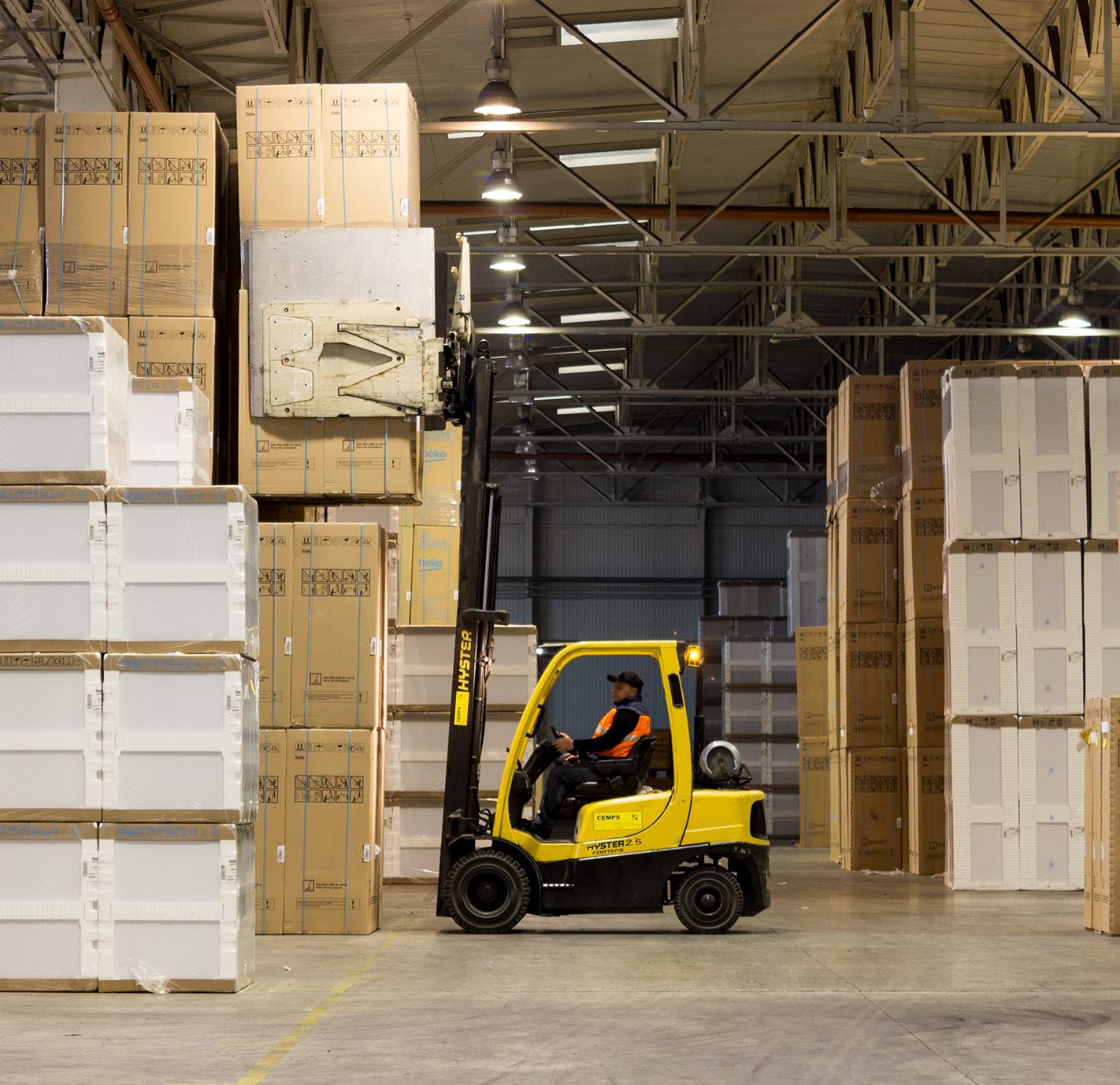
“Europe is continental, and road infrastructures developed more rapidly than rails. Also, road freight transportation is the most efficient in terms of time to destination and flexibility, so it is rather challenging to substitute with air or inner river transportation, which are much more costly or slower and require additional operations,” Vasileva explains. “On the other hand, rail has always been an excellent complementary transportation means to the road, with wider networks that have been electrified and modernised. But a great deal of work is still to be done, given the infrastructural differences between various European areas, which impact performance and productivity.”
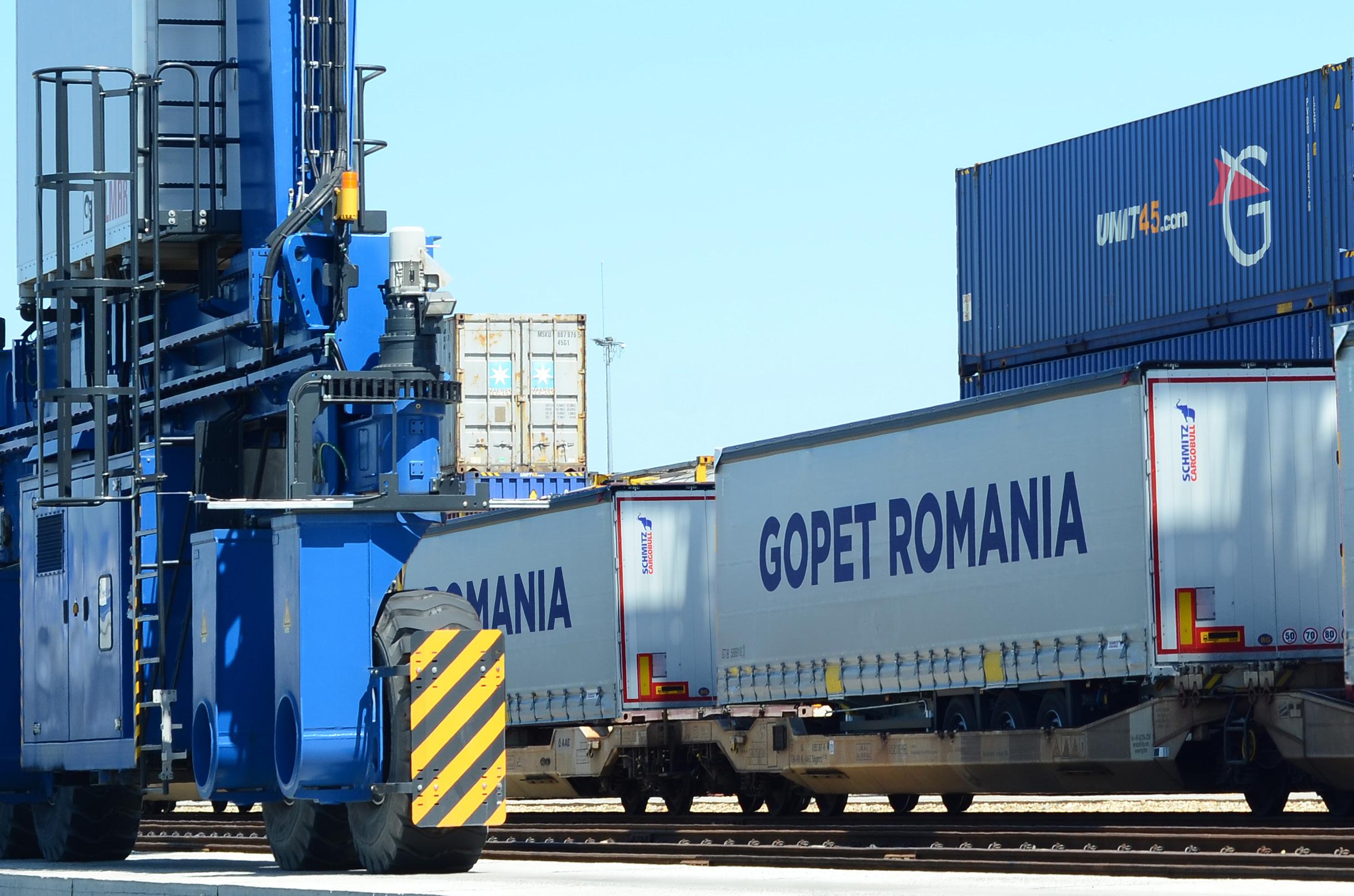
The road-rail combination has proved to have significant impacts on limiting CO2 levels. There are multiple signals in the markets pointing to this. For instance, the major structural works to improve or expand current networks, especially in Germany. Or, within the context of post-Covid-19 plans, resilience funding awarded to states is asking for investment in improving national transport infrastructures.
“As most states have seen significant increases in road transportation, freight included, in the past decades, most of the times over existing capacity, which in turn creates congestion and further pollution,” Vasileva says. “Other essential stakeholders in widely accepting the road-rail combination are the owners of the goods. While ‘Fit for 55’ requires a significant transition to limit greenhouse gases by 55% by 2030 for all industries and society, steps in adopting and adjusting the setups are still to be done.”
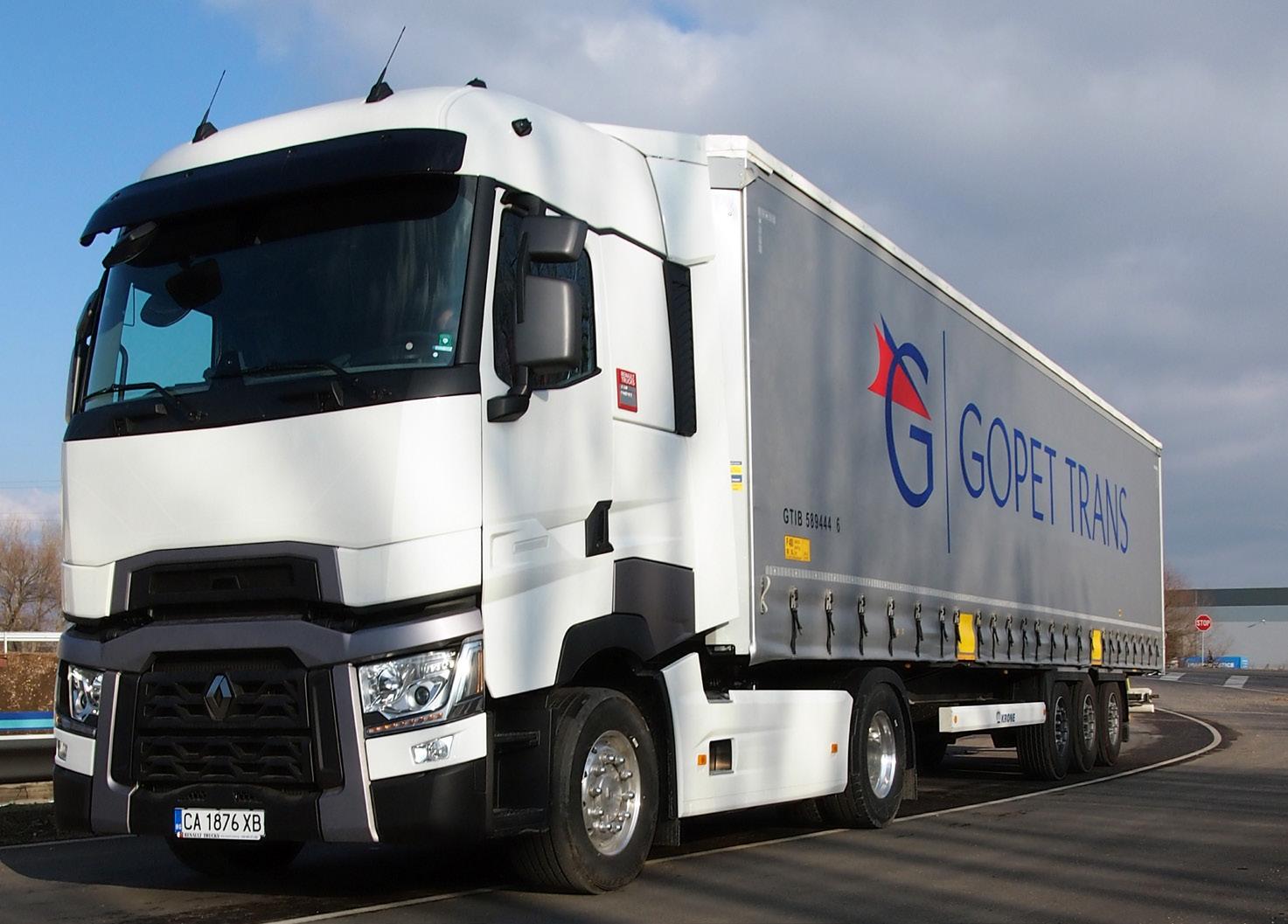
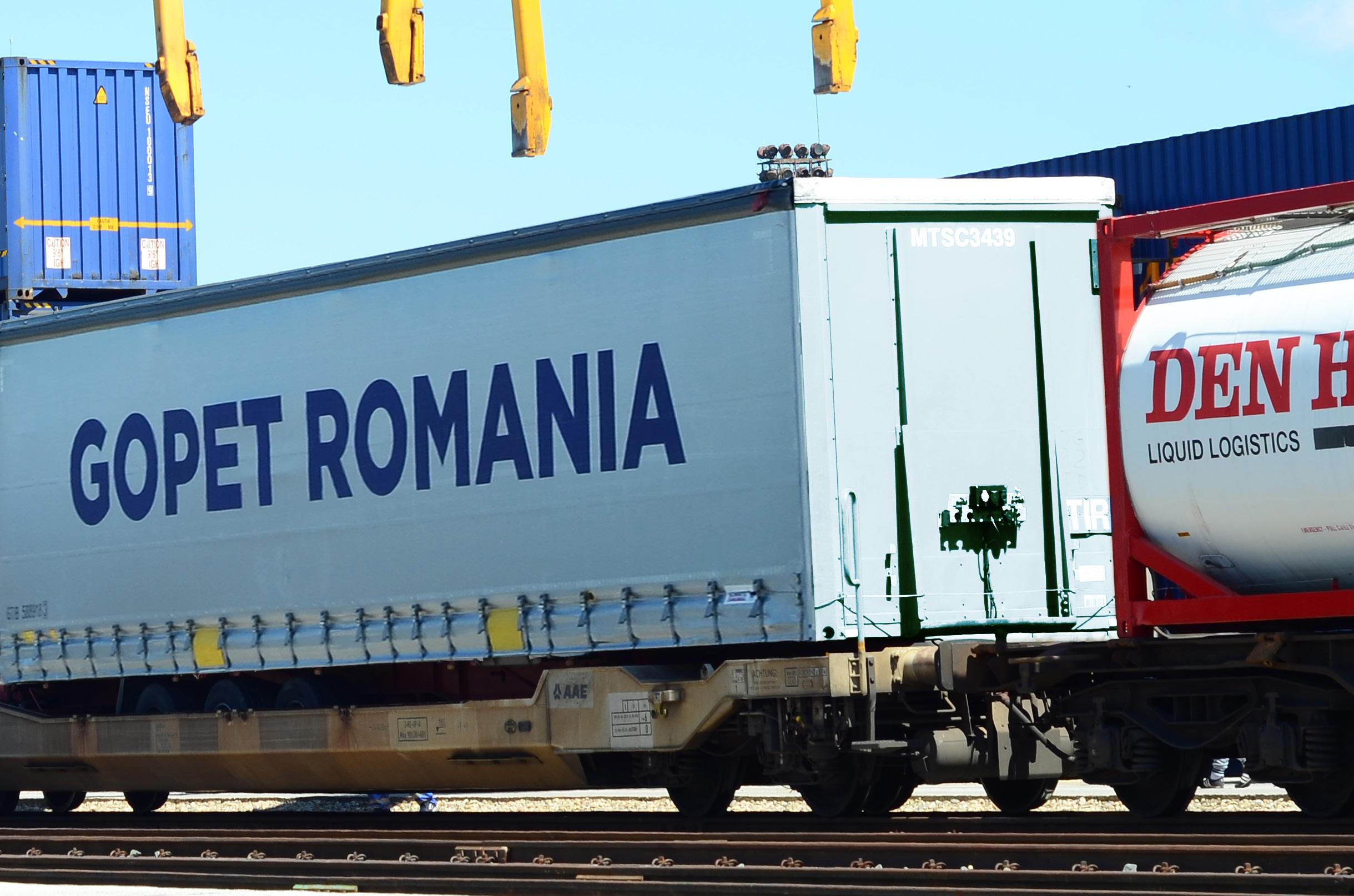
“TRANSPORTATION, IN ALL ITS FORMS, RANKS FIRST IN TERMS OF CO2 EMISSIONS. LONG BEFORE THE PANDEMIC, INDUSTRY, AND LEGISLATORS ACROSS THE EU HAVE BEEN CONCERNED WITH REDUCING THIS FOOTPRINT.”
As Vasileva observes, most companies are open to intermodal transportation in principle. Yet in day-to-day activities adoption is somewhat limited. Integrating intermodal transportation requires a change or an upgrade in internal processes and seems more fitted to companies with more significant outputs and regular shipments’ frequencies.
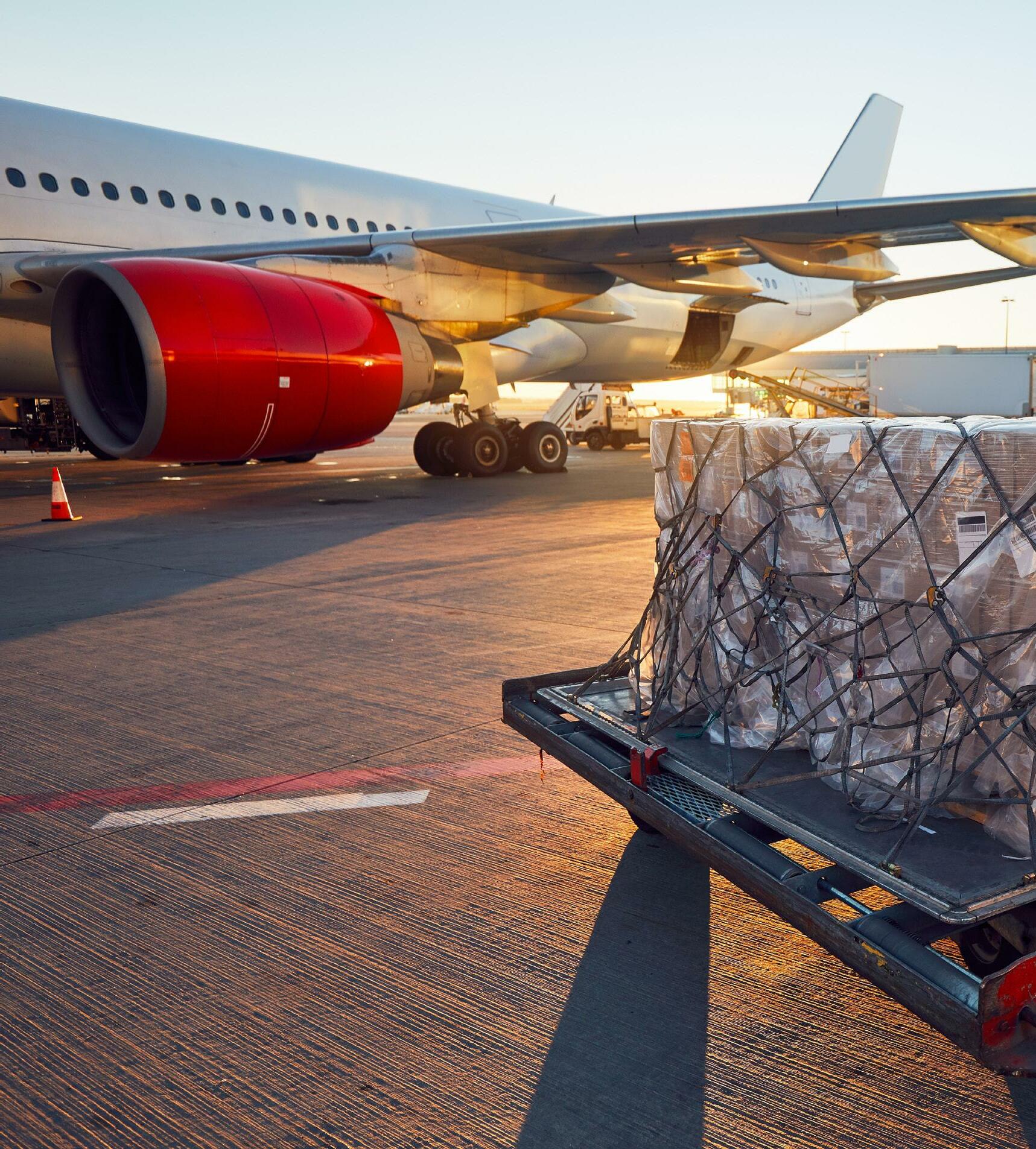
“We are involved with our clients in such transformations, and we can say that significant changes require vast amounts of time and effort,” Vasileva points out. “To that point, we established our Intermodal Division in 2013 and have done quite a bit of pioneering in reintroducing and developing intermodal transportation in the Balkans.”
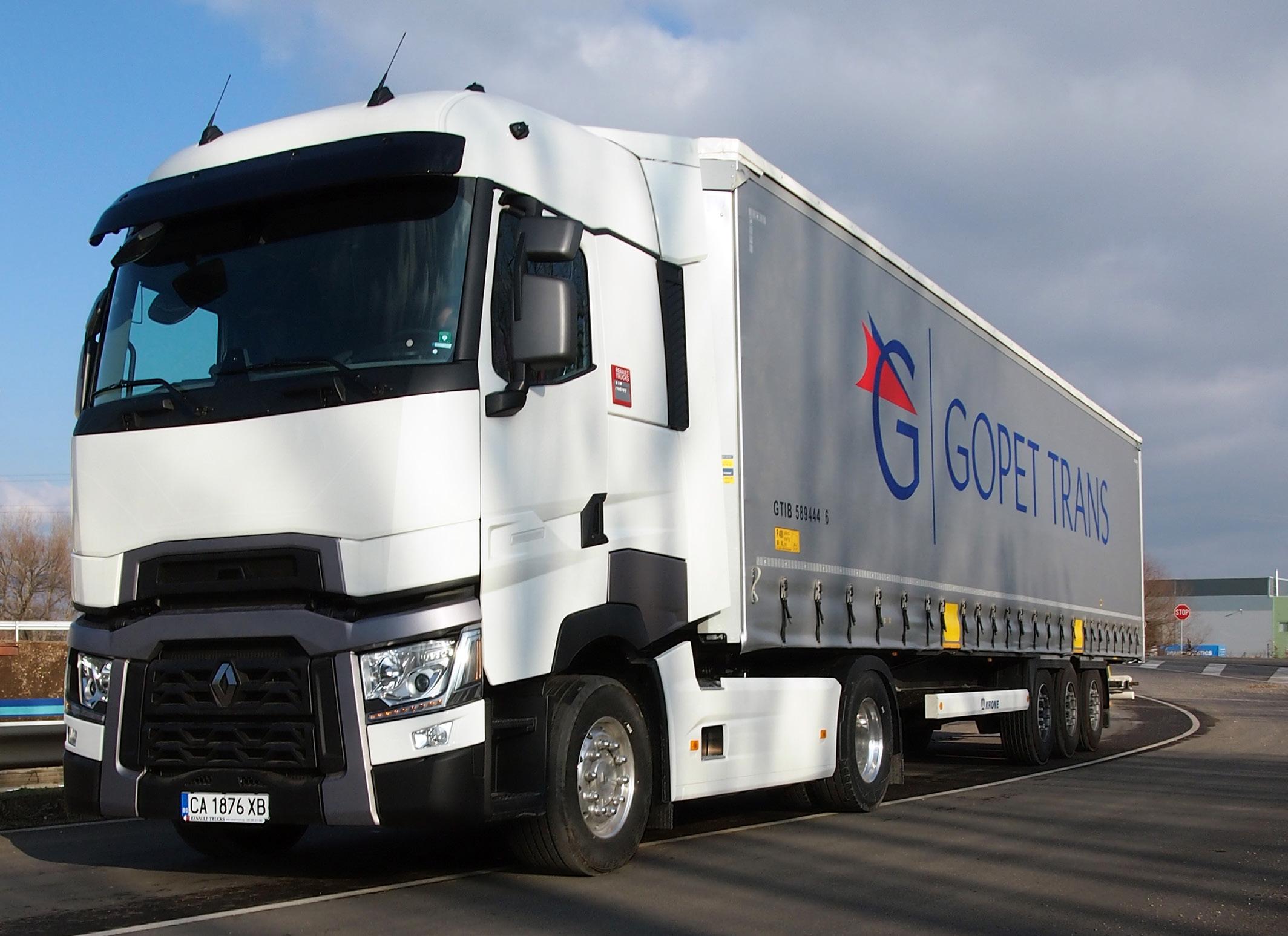
As an example, one of GOPET TRANS’s most important projects has been to create an intermodal connection between Bulgaria and UK to shift freight from road to rail, financed via a Marco Polo grant. The project, titled B2UK, aims to limit congestion and CO2 emissions, and also improve safety.
“Today we have several active setups running through Europe in collaboration with long-standing suppliers and partners,” Vasileva says.
A GREENER SUPPLY CHAIN
The implementation of intermodal transport is just one method GOPET TRANS is pursuing to make the supply chain more sustainable.
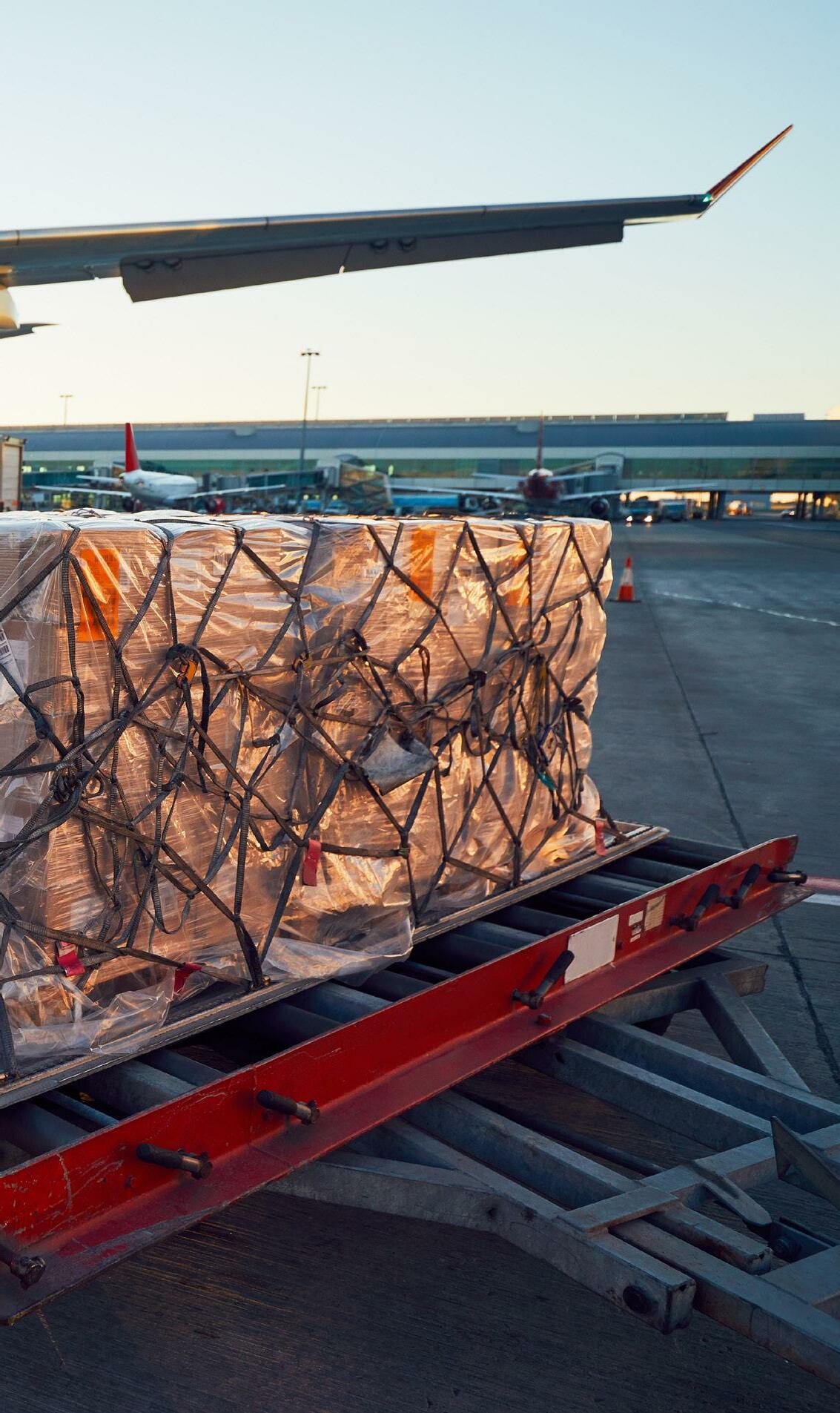
“A delicate balance is often struck, as with intermodal investments, which tend to create value for clients and the environment more promptly than our ROI,” Vasileva points out. “Still, we tend to calculate the value of an initiative by also including benefits that are not immediately quantifiable as the increase in skills and expertise, the development of a new market, and the motivational rewards our teams enjoy while developing the future of transportation.”
Digitalisation is another critical working direction, because managing a sustainable business entails implementing innovative work to become more productive.
As Vasileva tells us, “Technological improvement helps greatly in, for example, improving capacity planning or having real-time visibility of overloaded or available trucks. Such requirements are not only external (clients) but also internal, from our own need for efficiency and further development to defend our leadership in our key markets.”
A third direction is creating the avenues that GOPET excels inbeing a “learning organisation,” which empowers itself and its people to become better and more creative in their jobs.
“None of the above is easy or prompt to deliver results,” Vasileva concedes. “We see them instead as a continuous transformation that benefits our company and all our stakeholders.”
The factors involved in this transformation go beyond technological and economic
issues, however. As Vasileva points out, legislation makes the most significant impact.
“We’re discussing whether national legislation impacts businesses at a local level and whether EU legislation adds a layer of macro effects,” Vasileva tells us. “This includes CO2orientated legislation. Then we have the mobility package, promoting fair access to jobs and payment but also creating a misbalance of capacity usage and, as far as some recent studies show, a potential increase of CO2.”
GOPET TRANS is an international company that operates across boundaries between countries, and so more than most Vasileva appreciates that insufficient harmonization between countries can leave the carriers crossing Europe dealing with unwanted or unforeseen situations. At the same time, the still present impact of the pandemic is being exacerbated by the fallout of the war in Ukraine.
“A more open and inclusive exchange between legislators and industry would represent a proper mechanism for evaluating impacts and proposing working solutions,” Vasileva argues. “After all, transportation is the backbone of the economy. As we saw in March 2020, and then during lockdowns, the industry’s visibility reached unseen highs. It became pretty clear that we could not do without transportation. Improving the industry and working conditions is a must, yet it needs to be approached wisely.”
“A DELICATE BALANCE IS OFTEN STRUCK, AS WITH INTERMODAL INVESTMENTS, WHICH TEND TO CREATE VALUE FOR CLIENTS AND THE ENVIRONMENT MORE PROMPTLY THAN OUR ROI.”
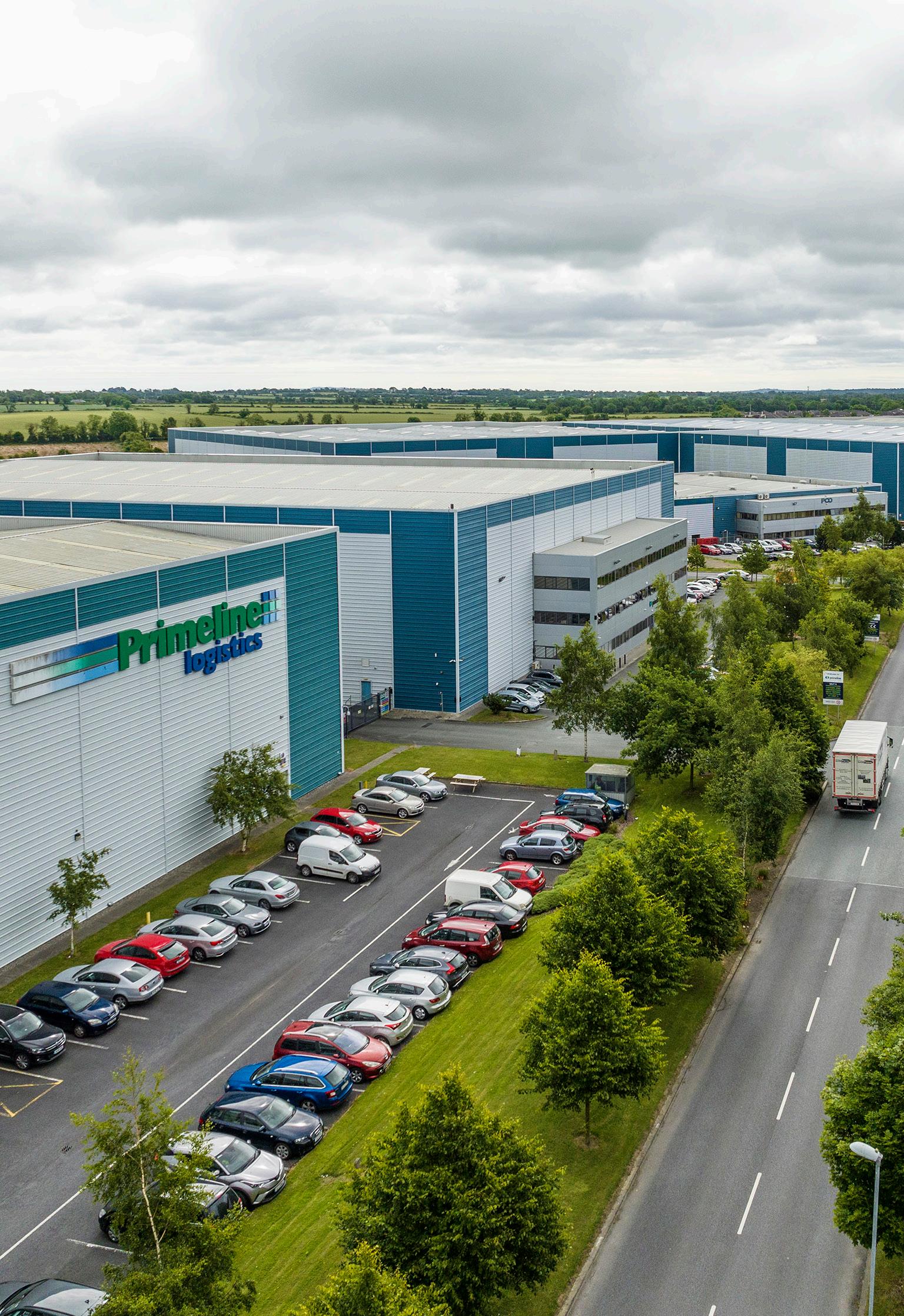
PRIMELINE GROUP, THE LARGEST IRISH INDEPENDENT PROVIDER OF END-TO-END LOGISTICS, SALES, MARKETING, AND STORAGE SOLUTIONS, IS SET TO ACCELERATE ITS GROWTH OVER THE NEXT TWO YEARS.
IRELAND’S
BEST KEPT SECRET
TAVERNORThe private Irish business, based in Ashbourne, some 20 km from Dublin airport, employs around 1,000 people across the island of Ireland and with facilities in UK is the largest company in its sector in the country. The business was founded over 30 years ago by Danny Geoghegan who is now Chairman of the company.
We provide gamechanging solutions for the world’s leading brands. That means that we manage the supply chain from the point of manufacture to the retailer shelf and end consumer using our Business Divisions: Primeline Sales and Marketing, Primeline Logistics and Primeline Express,” Group CEO Tim Cummins describes the core business.
He explains that Primeline is effectively a supply chain business, unique in the sense that its core offering will range from warehousing, transport, customs management right up to sales, merchandising, promotion management as well as full product ownership. The breadth and depth of this offering is what makes the company unique in Ireland.
Last year, Primeline acquired an e-commerce company, expanding its range of services even further with an e-fulfilment capability, making it a one-stop shop for leading brands including Mars, Nestle, Colgate, Molson Coors, Japanese Tobacco, Boots and many more.
WIDE COVERAGE, FAST SERVICE
“Our well-spread infrastructure covers every town, big and small, and any retail outlet regardless of its size,” affirms Mr Cummins, adding that on a weekly basis, the company makes some 25,000 deliveries, servicing around 7,500 retailers.
Group HR Director Nikki Mullin points out that the sheer scale of the capability is a strong selling point: “While we
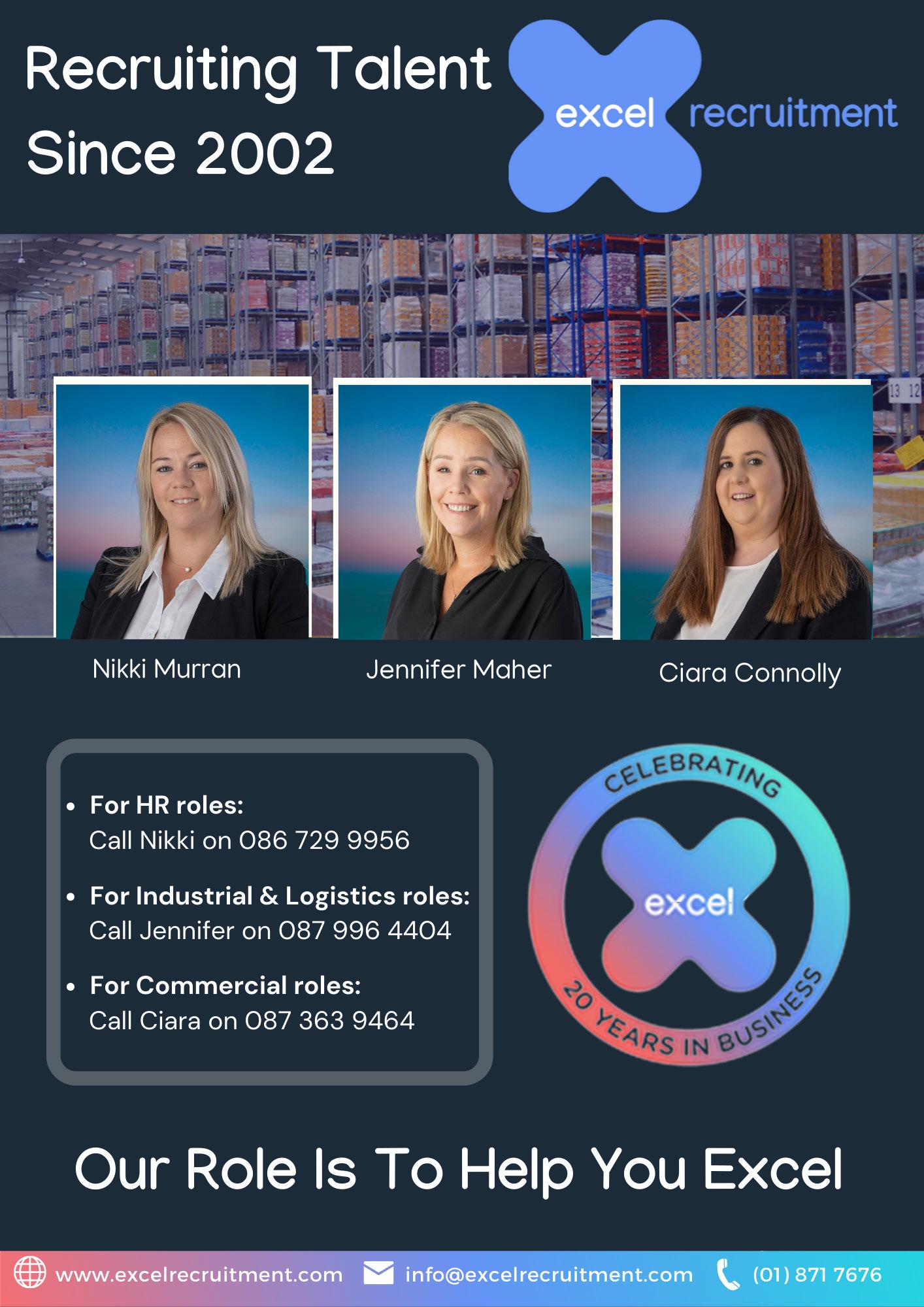
EXCEL RECRUITMENT
Excel Recruitment is an award-winning specialist recruitment agency holding a database of over 1000 clients, 85,000 candidates and a team of 80 expert recruiters.
With five offices located in Dublin, Kildare, Cork, Galway, and Belfast, Excel has rapidly become one Ireland’s leading recruitment firms.
This year marks Excel’s 20th year in business which is an important milestone for our company as we look back on our growth, accomplishments and relationships built over the last 20 years with our clients, candidates, employees, and the community around us.
Our success stems from our dedication to offering expert advice & securing top talent nationwide in the areas of both temporary and permanent employment. Our team of highly skilled consultants have a wealth of knowledge obtained through working in a variety of diverse professions and we go the extra mile to make sure our clients and candidates are well taken care of. Our experienced staff understand that no two businesses are alike, so we listen to our clients and candidates needs to match them appropriately within each role. While happy clients and candidates will always be one of our biggest achievements, we are proud to have collected some silverware through the yearsincluding National Recruitment Federation’s Specialist Agency of the Year 2019, Checkout NRSA Recruitment Provider of the Year 2015, 16, 17, 18, 19 and 2021, Ireland’s Innovative Supplier at the Gold Medal Awards for 2019 & 2021 and NRF’s Recruitment Agency of the Year 2016.
We also provide manual handling training, forklift training & much more through our future proof training wing of our business. These training programmes enable candidates to acquire and develop the skills necessary to deliver the best possible service to our clients once they are placed.
We support our client’s needs across a wide range of positions & levels including General Operatives, Forklift Drivers, CE&D Licence Drivers, Planners, Schedulers, Freight personnel, HR, Sales, Marketing, Commercial & much more. Check out our website at www.excelrecruitment.com for a list of available roles.
Alternatively, if you’re looking for assistance on recruiting temporary or permanent talent across the island of Ireland, please don’t hesitate to get in touch with us at: info@excelrecruitment.com or call our office on 01 871 7676.
Our role is to help you excel. www.excelrecruitment.com
have competitors in all of the different areas in which we operate, there isn’t anybody doing everything that we do. With the comprehensive service offering and our extensive assets, including in excess of million square feet of warehousing space, I often say that Primeline is Ireland’s best kept secret.”
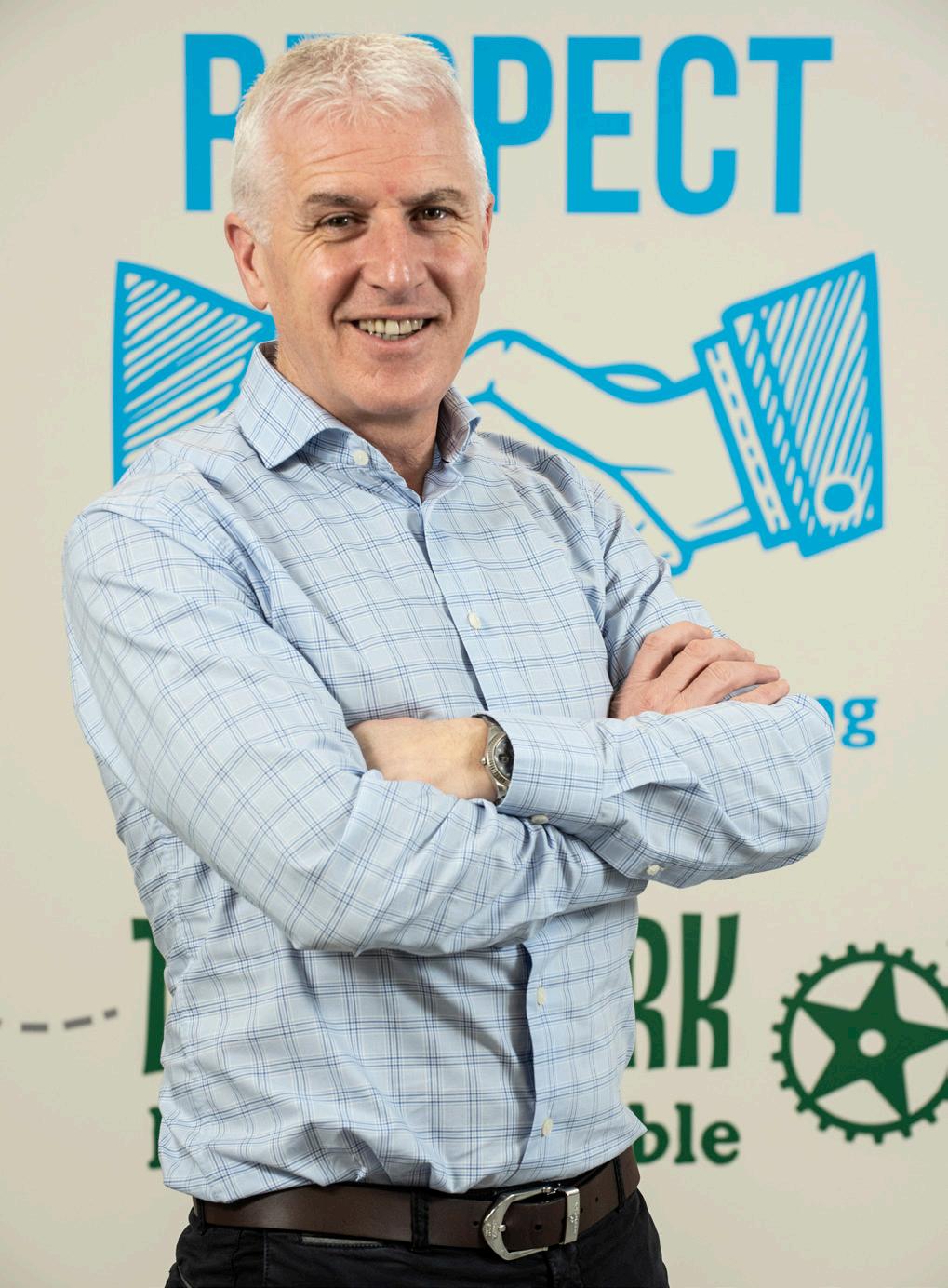
Yet another point of difference is the company’s express logistics business, Primeline Express, in charge of UK-Ireland deliveries on a nextday basis – a much appreciated service as it removes the need for customers to have a warehousing capability within the island of Ireland.
Primeline manages the customs clearance using its sophisticated proprietary customs solution, with the software embedded in the HMRC and Irish Revenue platforms, enabling quick clearance.
that Brexit was a
at the beginning, but Primeline has managed to turn it into an opportunity. “Challenges remain in terms of every customer having different needs. We deal with different types of commodities, covered by separate sets of rules, so if needed, we bring in external expertise to minimise any duty for our customers and to ensure free flow of goods.”

AWARDED PERFORMANCE
Primeline’s outstanding performance has been duly recognised. Last year, Primeline Group achieved the BRCGS accreditation (Brand Reputation Compliance Global Standard), the gold standard in terms of food safety auditing – an achievement the company is rightly proud of.
Primeline has also collected numerous awards for its human resources initiatives. Ms Mullin explains: “We have embarked on a huge cultural transformation over the last couple of years, a cultural transformation rooted in a values-based culture.”
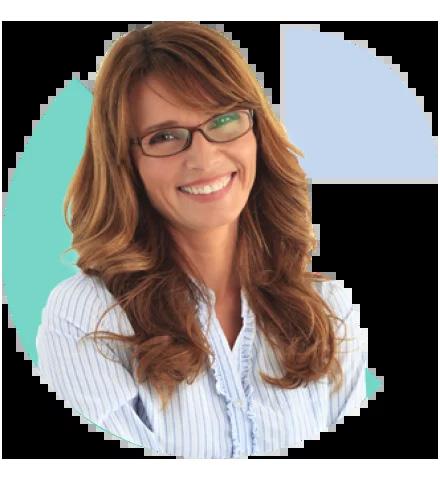
“As a result, we have rolled out a number of different initiatives, including really powerful employee development programmes for all levels, from operators to
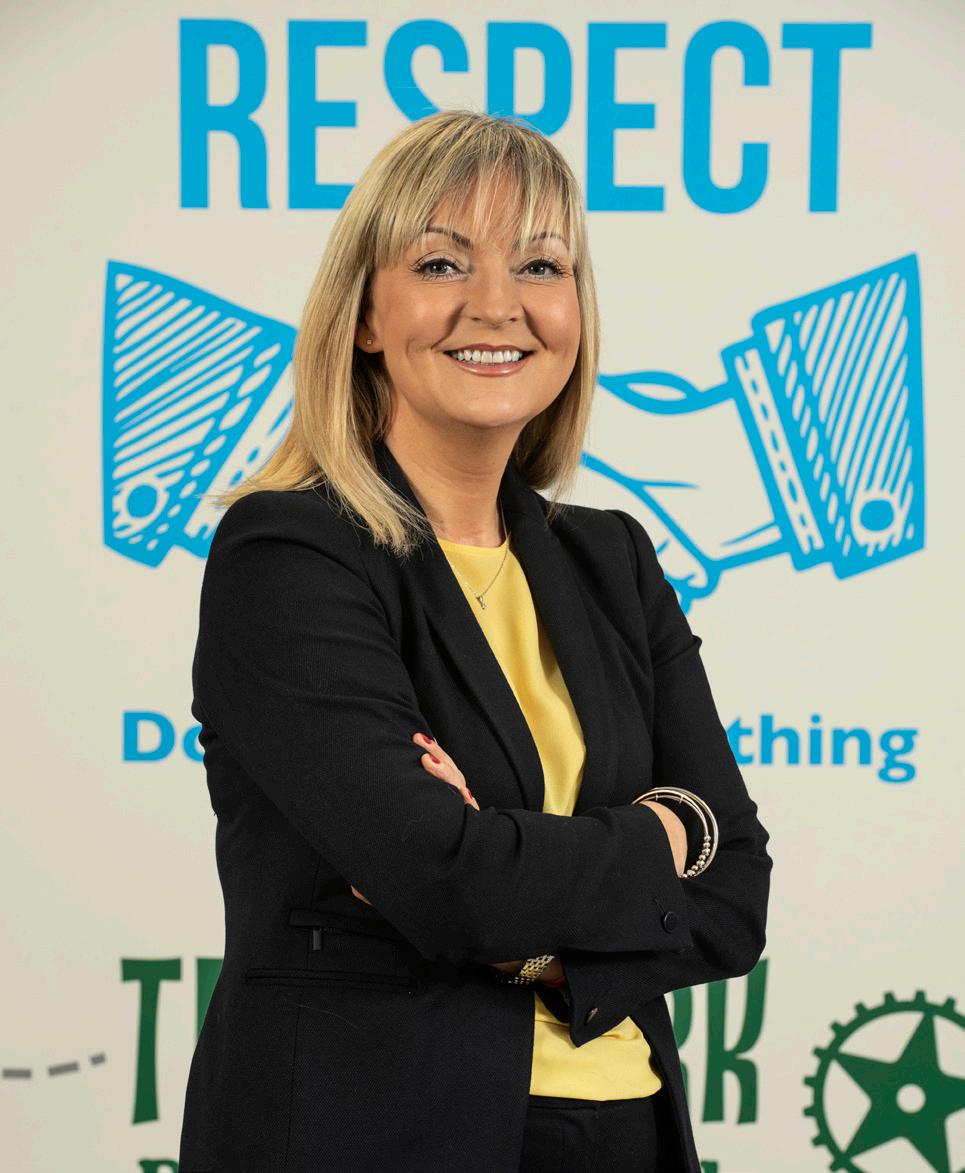
“What has been particularly brilliant about these programmes is that that they bring in not only new talented people but, equally, recognise the colleagues that have been here for long periods of time, those who have contributed to the success of the business to get us to where we are today. This combination of fresh ideas and experience and knowledge benefits us all.”
She explains that staff engagement is key for the company. For example, as part of one of its award-winning programmes, the management launched the 10K challenge, asking the staff to come up with ideas for major savings and improvements.
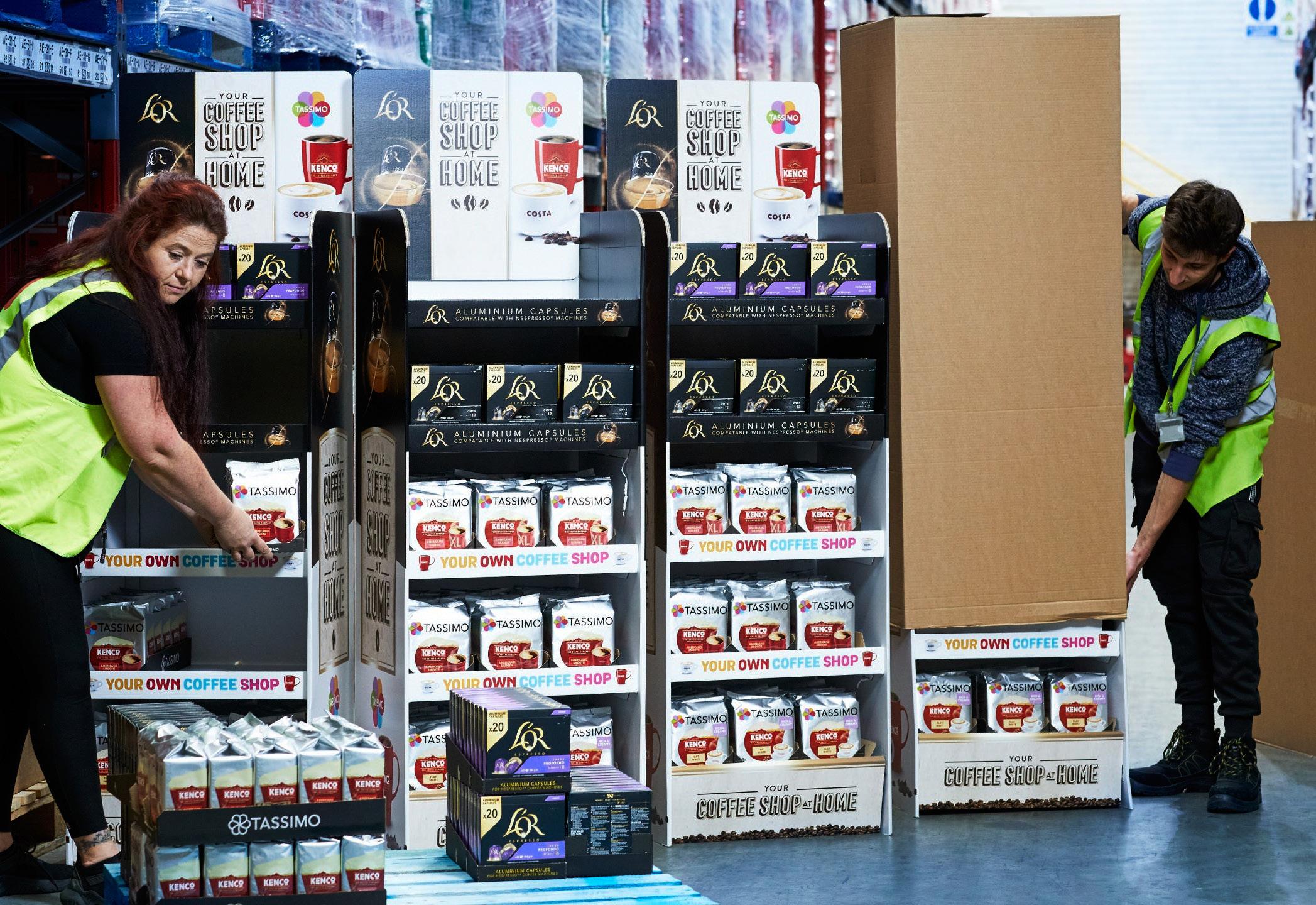
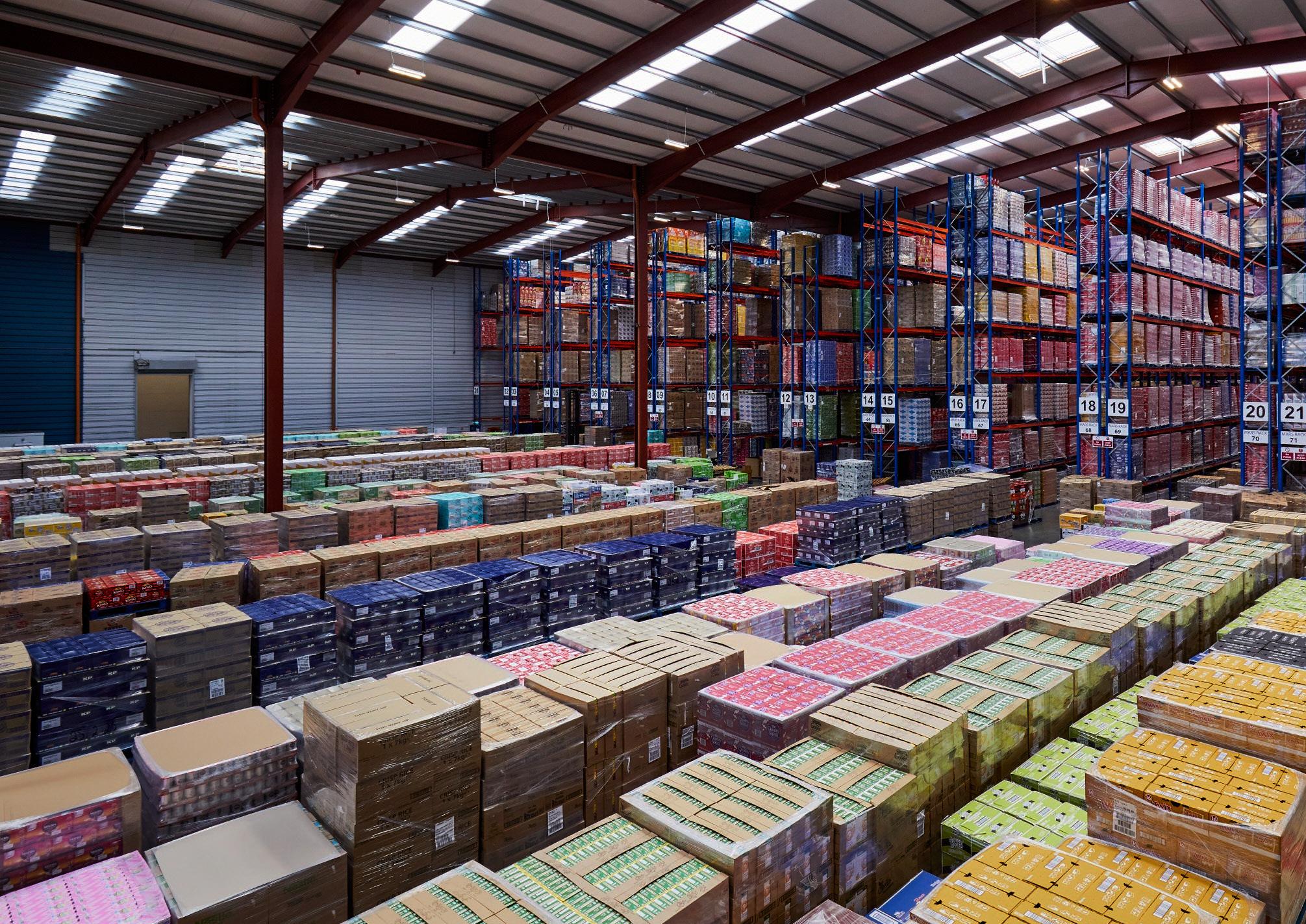
IRELAND’S LARGEST DEALER OF TOYOTA FORKLIFTS
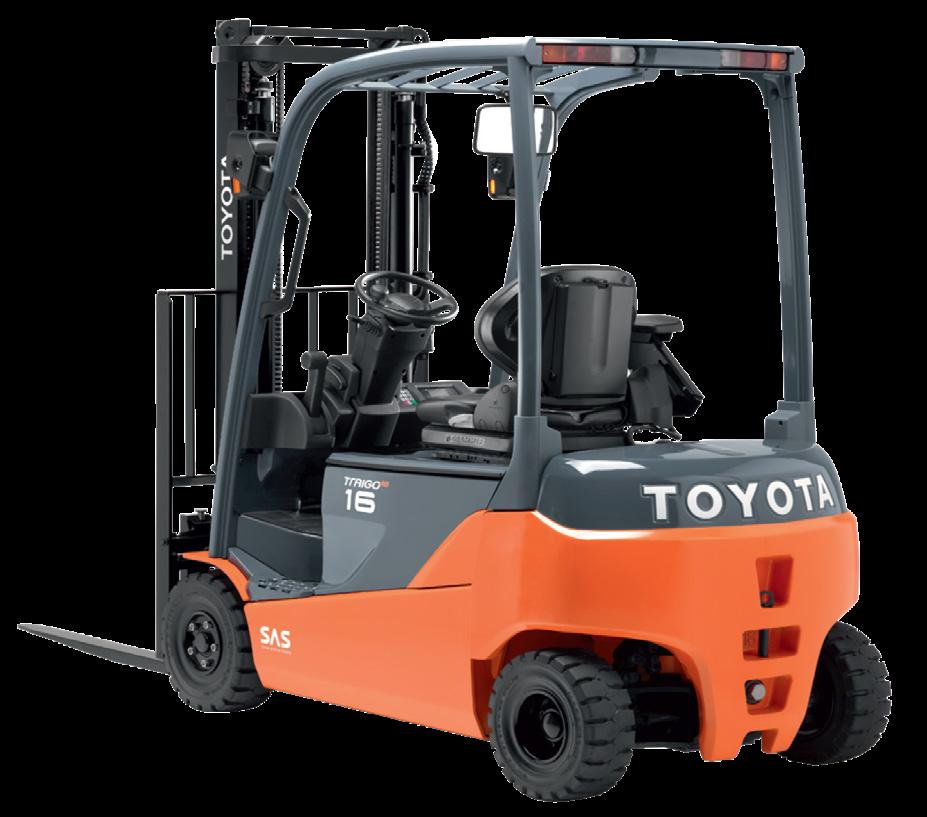
AMLAC has been involved with the sale, hire and servicing of Toyota Material Handling Equipment for over 40 years. Our Customers include many well-established brands throughout a wide range of sectors which include Agri, Distribution, Food, Logistics, I.T. and Pharmaceuticals along with many others.
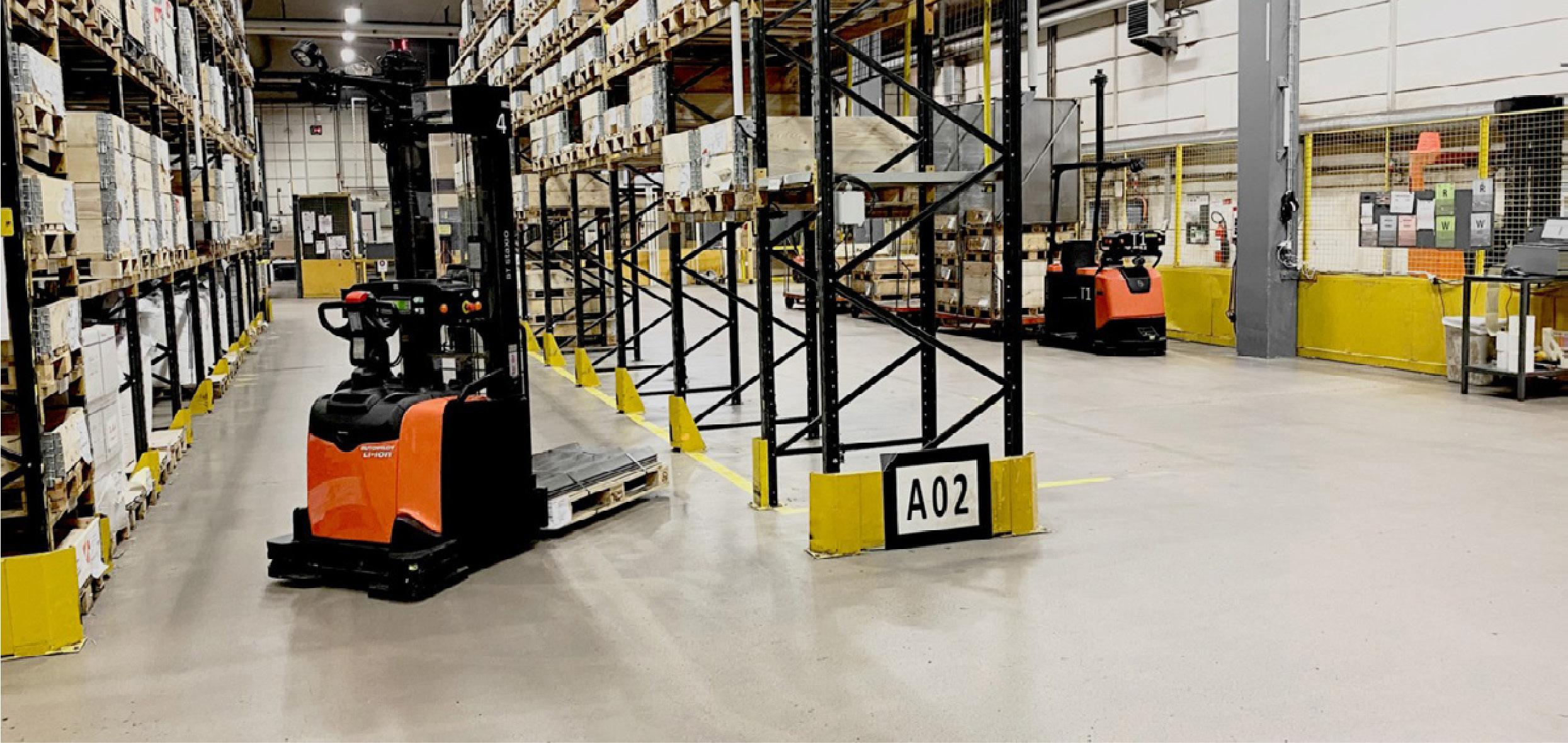
SALES: We are a leading dealer for Toyota Material Handling Equipment, with products ranging from Electric, Diesel & Gas Forklift Trucks to a full range of Warehouse Equipment. We also carry a substantial range of second-hand equipment for sale.
HIRE: We operate a substantial fleet of both new and used Toyota Material Handling Equipment at very competitive rates.
SERVICE: Our team of qualified service engineers are always available to meet our customer’s needs.
Amlac Ltd.
2 Newtown Road, Malahide Road Industrial Park D17 HT68, Ireland +353 (0)1 847 6866 info@amlac.ie
Sales or Hire:
Derek Joyce or Myles Quinlan +353 (0)1 847 6866 info@amlac.ie
Service: Brian Leigh or Christina Flynn +353 (0)1 847 6866 info@amlac.ie
www.toyota-forklifts.ie www.amlac.ie

PRIMTAC PERSONNEL LTD.
Primtac Personnel Ltd, part of the Primtac Group Ltd. was founded in 2016 by Luda and Martins Okafor. With offices in Balbriggan we specialise in recruiting talent for the Construction, Logistics and Engineering sectors.
Our aim is to provide professional and bespoke recruitment solutions to our clients and to maximise and enhance opportunities for our candidates.
We provide a range of workforce solutions to our clients including flexible contingent staffing, contract and permanent placement and managed staffing solutions.

As an active member of the ERF (Employment & Recruitment Federation) we adhere to best industry practice at every step in the process and abide strictly to the ERF code of conduct. This assures both our clients and candidates that they will receive the best service possible.
Primtac Personnel Ltd. has enjoyed a strong relationship with The Primeline Group over the past years with Mr. Lee Peacock (Temp Team Manager) managing the account. Lee manages our Logistics Division and has forged his reputation from his ability to deliver exceptional levels of service, often at short notice, and from his in depth knowledge of the Supply Chain sectors.
Lee is currently managing a team of Supply Chain Recruitment Consultants with the aim of further solidifying Primtac Personnel’s client relationships. He is looking forward to what lies ahead for him and his team and is confident they will further build on his many success.
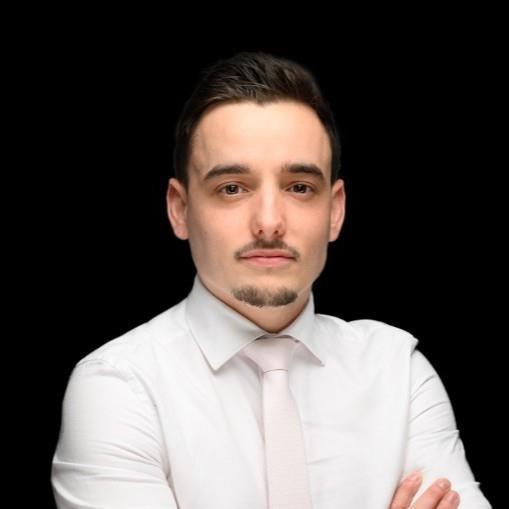
www.primtacpersonnel.ie

“As a senior leadership team, we were blown away by the breadth of thinking and the calibre of talent that we have in the business. There have been many brilliant proposals, some of which have now been, or are planned to be, implemented. A good example is energy savings by means of installing solar panels, a project that we are now actively working on. Sustainability has been an important topic and we all work towards minimising our carbon footprint.”
The company is recognised as a good employer, with staff turnaround lower than the industry average, and with job vacancies filled quickly. In this respect, the company appreciates the support of Kaizen, the provider of workforce solutions, which optimises the power of people to drive organisational & personal growth.
For its efforts in the human resources development area, the Primeline’s HR team became the finalists in 4 categories for the Irish HR Champion Awards and took home two awards: its Forward Thinking Leaders Programme won the category for Champion Leadership Programme 2022, and Nikki Mullin herself became the Irish HR Champion of the Year 2022.
DOUBLE-DIGIT GROWTH
Despite the continued turbulent market conditions, Primeline is preparing for further growth. The company won several
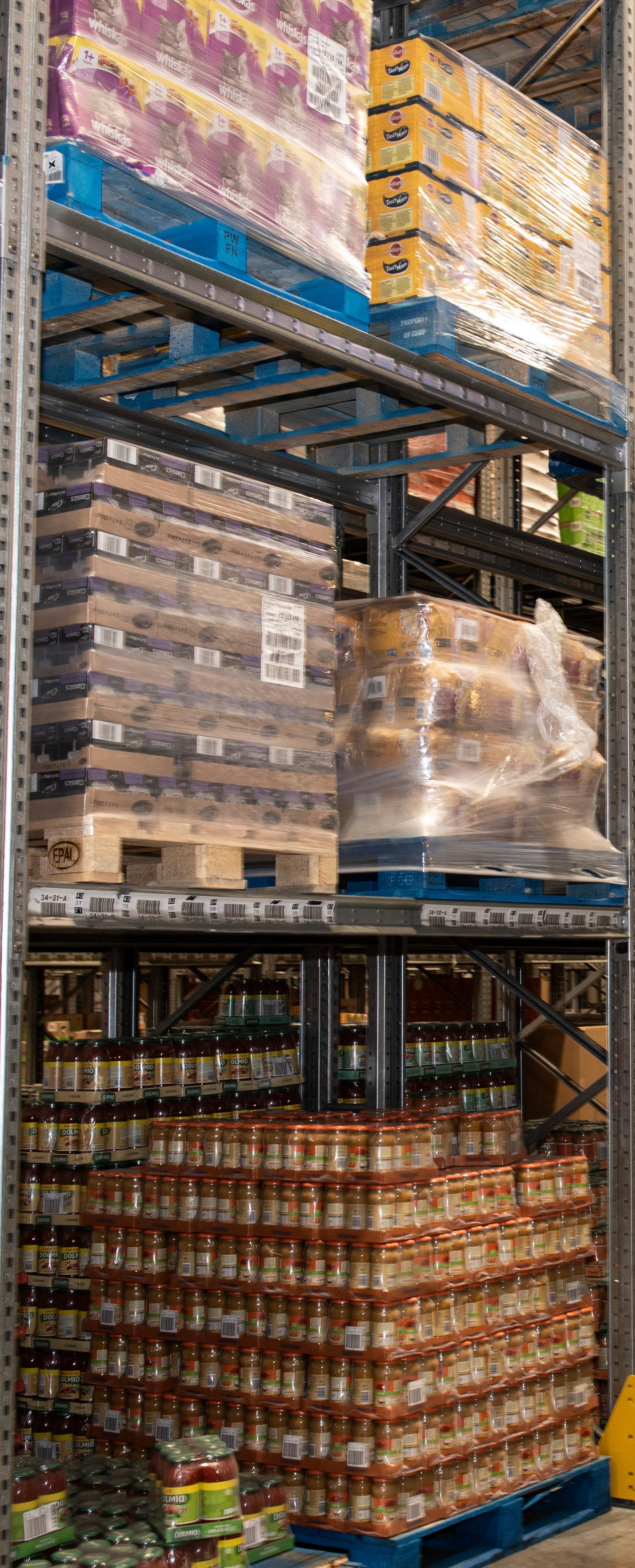
major contracts over the last few years and has embarked on a full business transformation programme to enhance its technology and capability.
“Those solid foundations centred around a peoplebased culture, technology and infrastructure have enabled us to achieve double-digit growth over the last few years, while demonstrating a fantastic resilience through challenging times,” says Tim Cummins. “We are projecting doubledigit growth also for 2023 and are going to further invest in business expansion.”
Reflecting on the coming years, he affirms that Primeline will further build on its core strengths, with a view to move into the B2B space, and explore potential acquisitions. The plan is also to expand Primeline’s traditional FMCG sectors, potentially adding pharma and healthcare.
“In the next 12 months, we’re looking at another two to three hundred people joining the business. We are now embarking on a ‘multi-million’ investment in a new, state-ofthe-art RTC facility of 350,000 square feet equipped with the latest automation technology, with 40 to 50 thousand pallet positions of storage, probably the largest of its kind here in Ireland for a 3PL Provider. This investment, quite significant for an Irish company, demonstrates the trust in our business model, and the trust in our growth.”
“THOSE SOLID FOUNDATIONS CENTRED AROUND A PEOPLE-BASED CULTURE, TECHNOLOGY AND INFRASTRUCTURE HAVE ENABLED US TO ACHIEVE DOUBLE-DIGIT GROWTH OVER THE LAST FEW YEARS.”
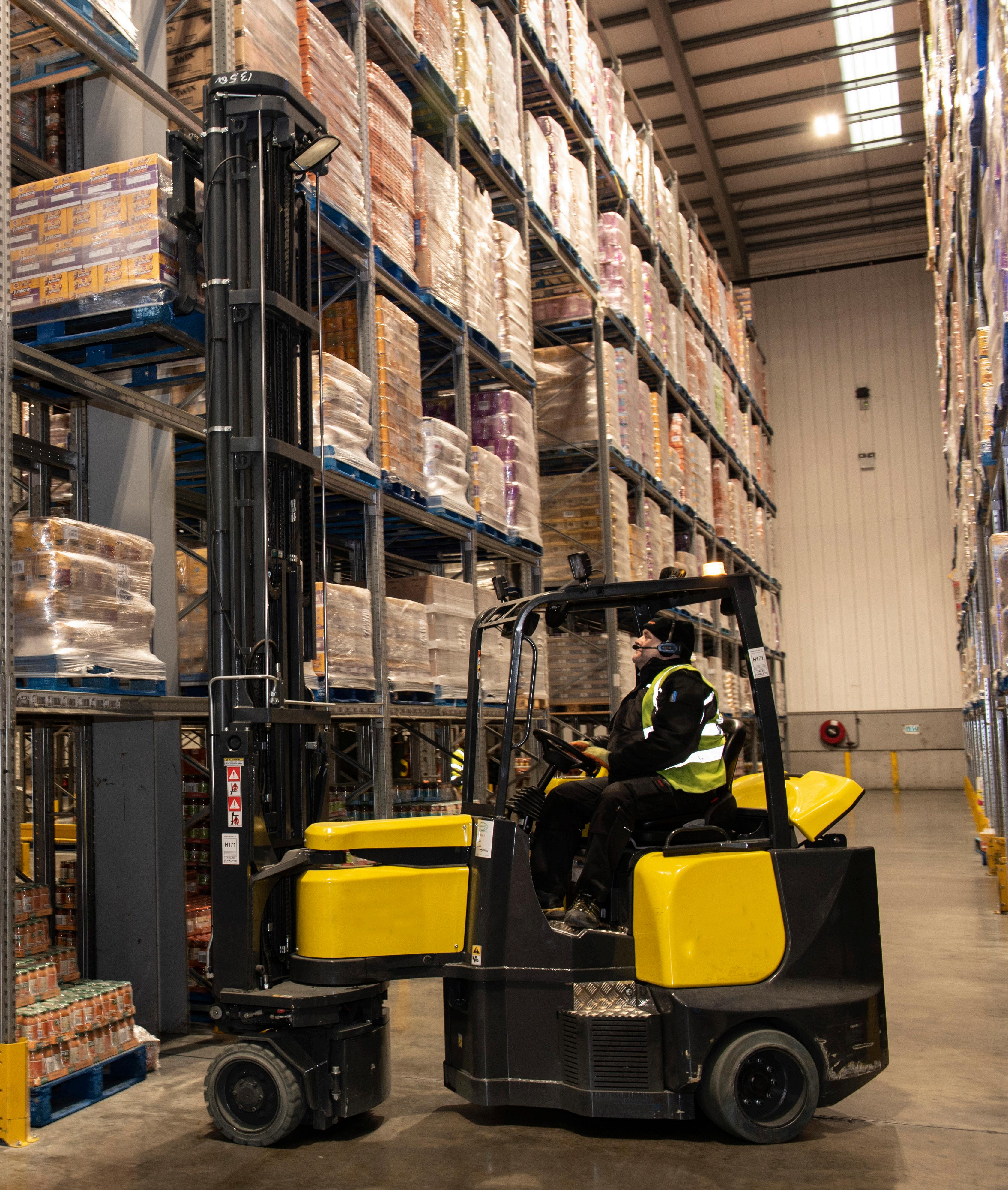

www.linkedin.com/company/ceo-media-group twitter.com/businessfocus_

